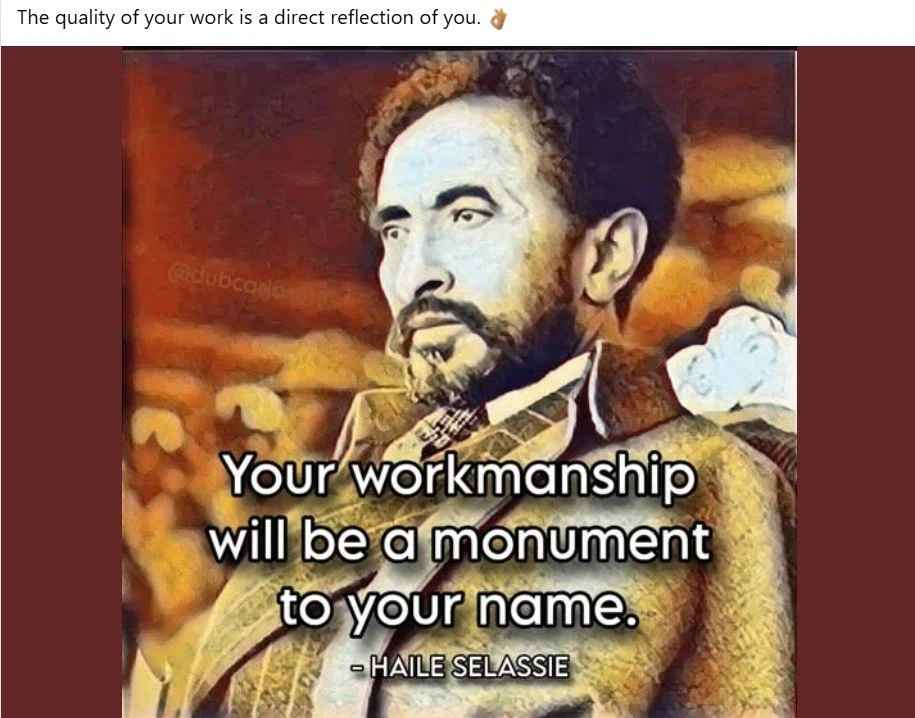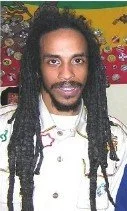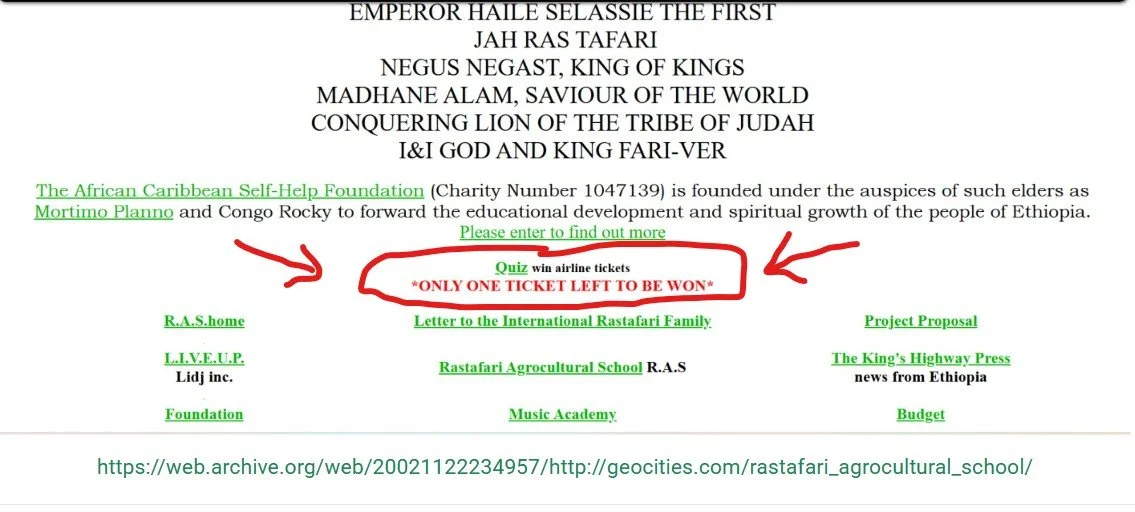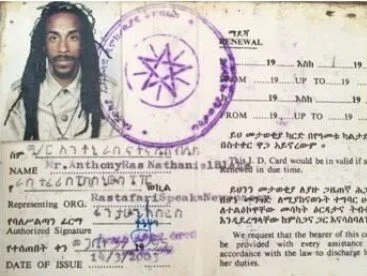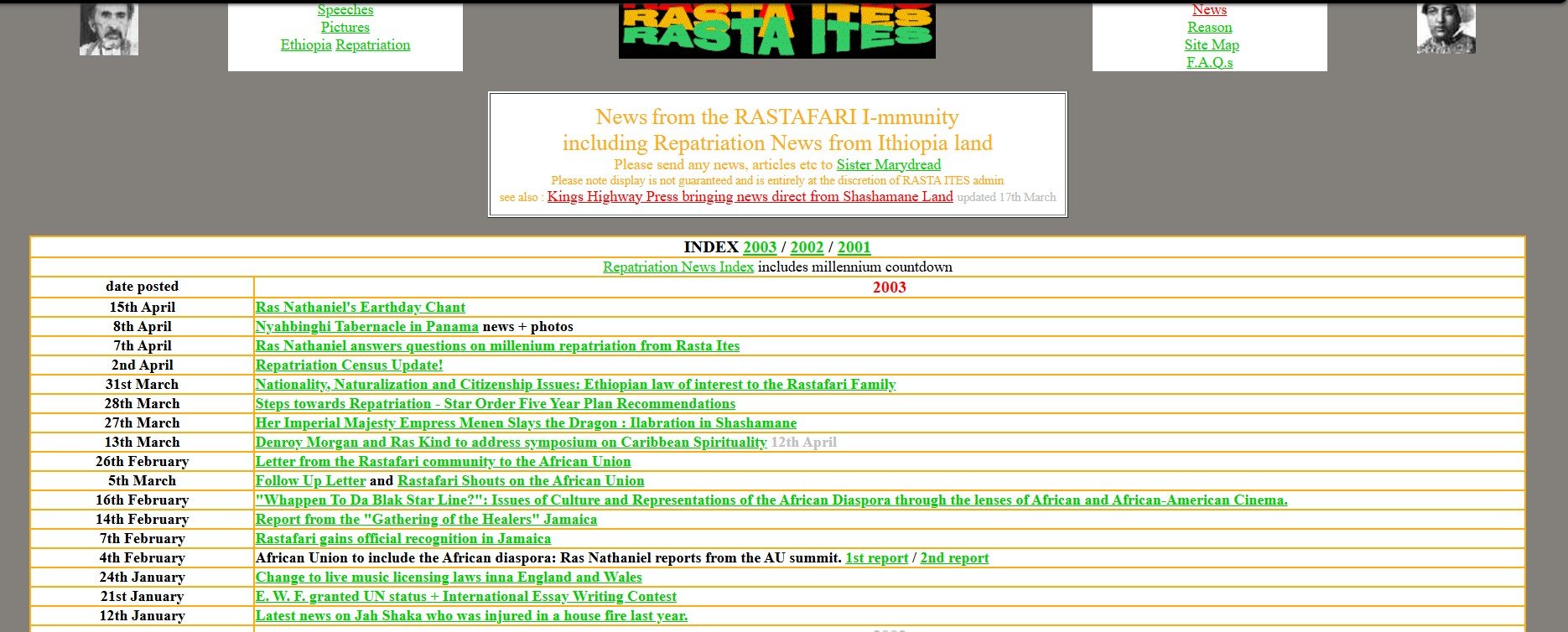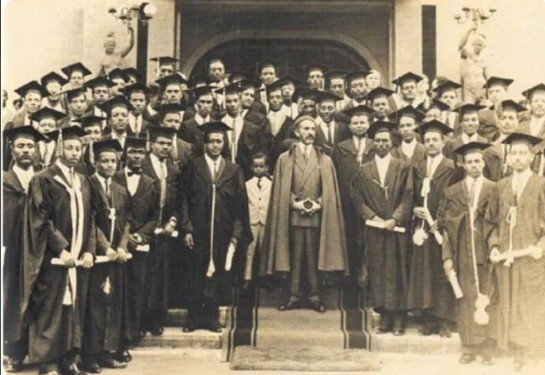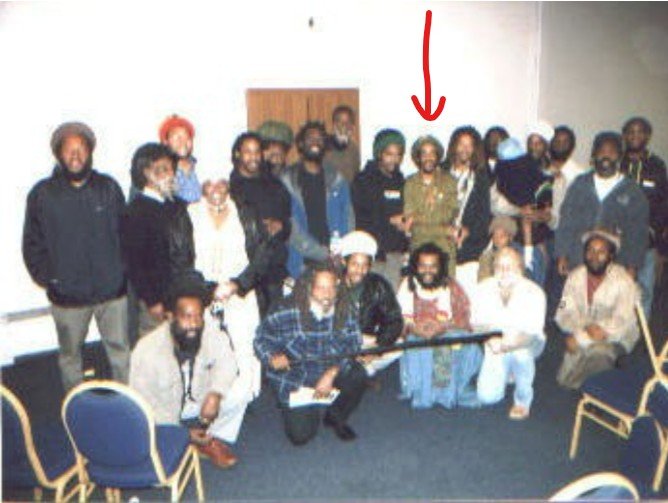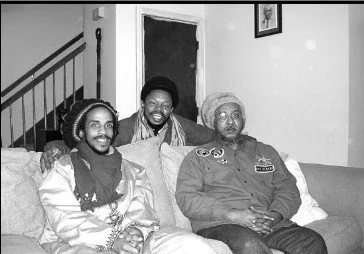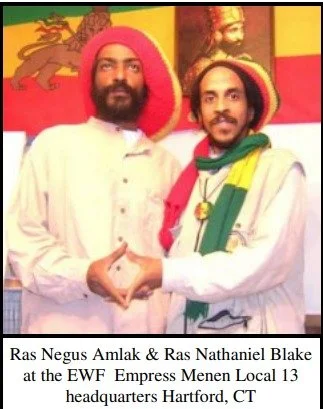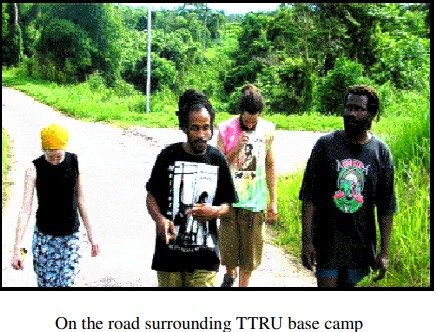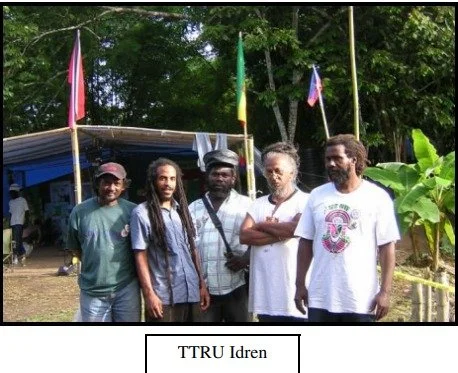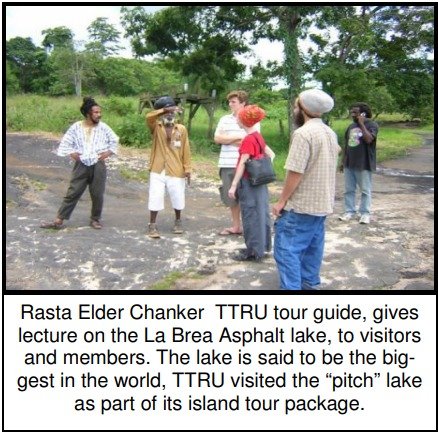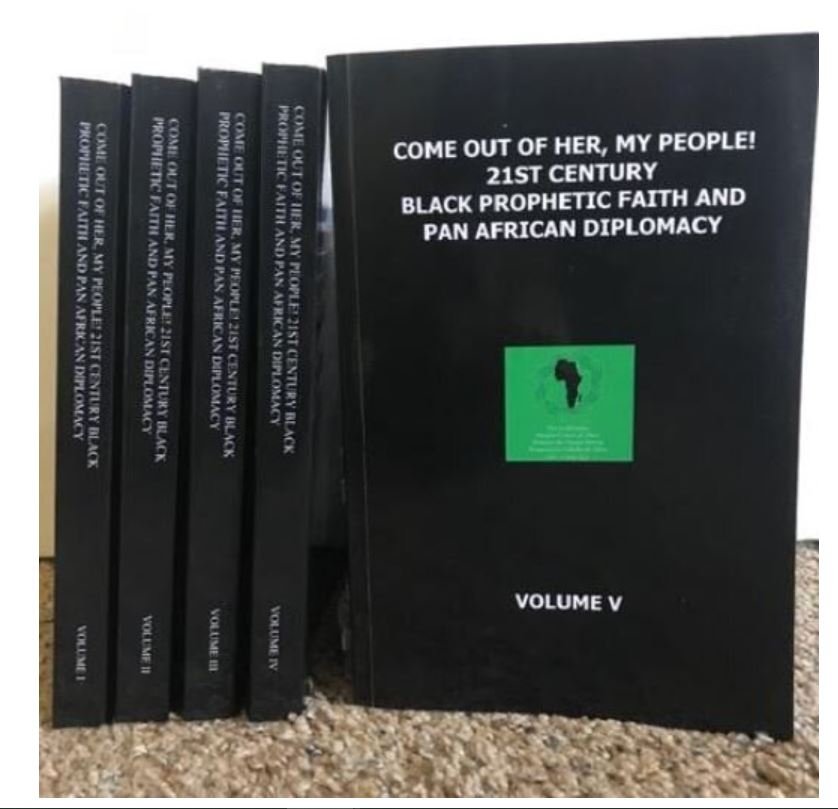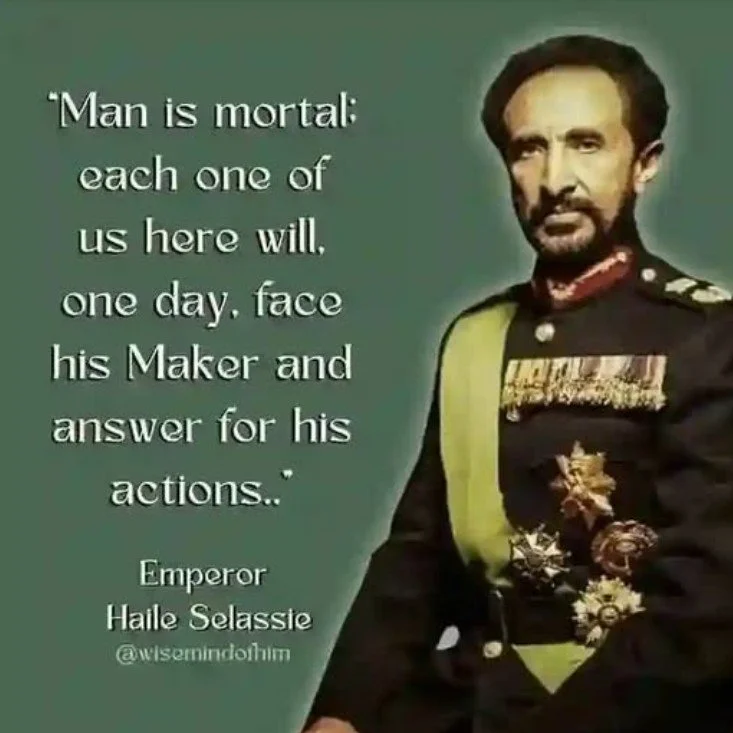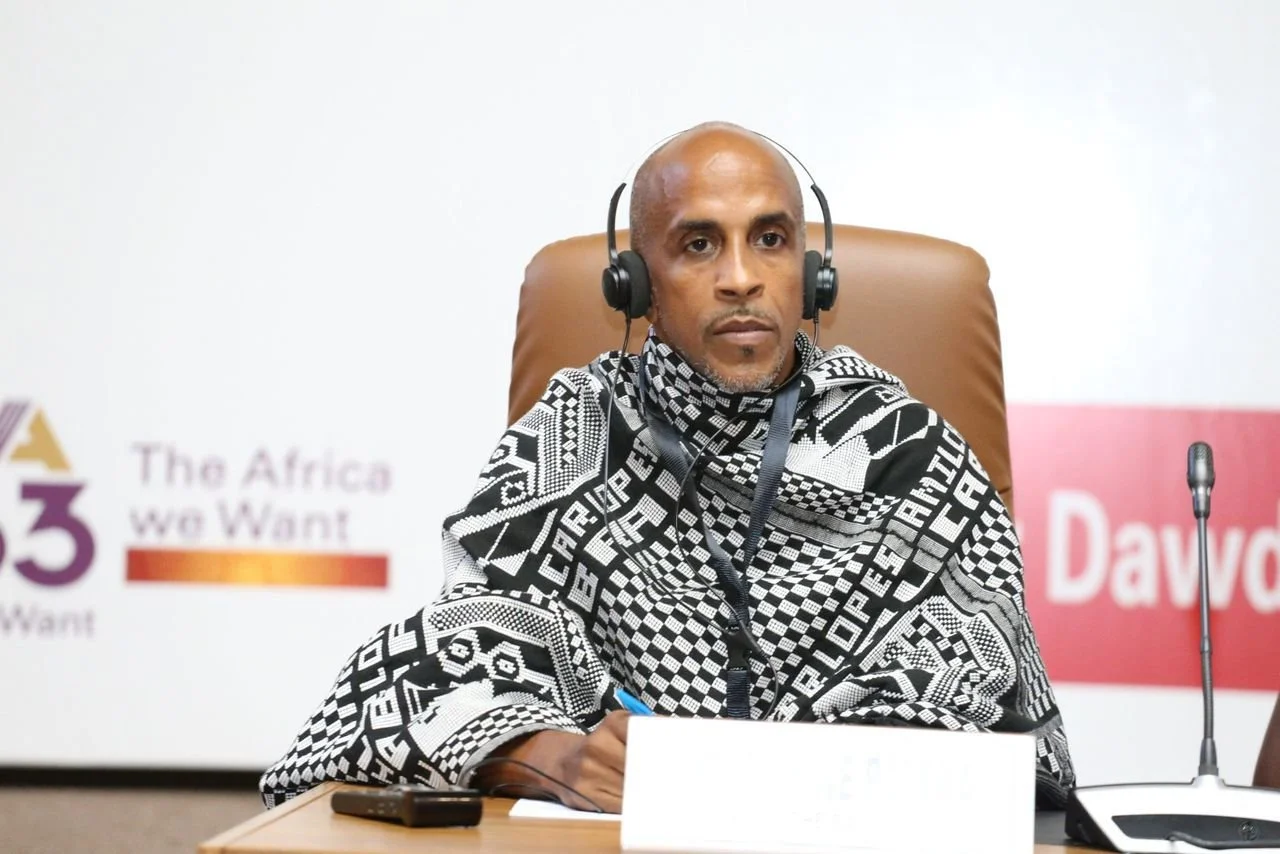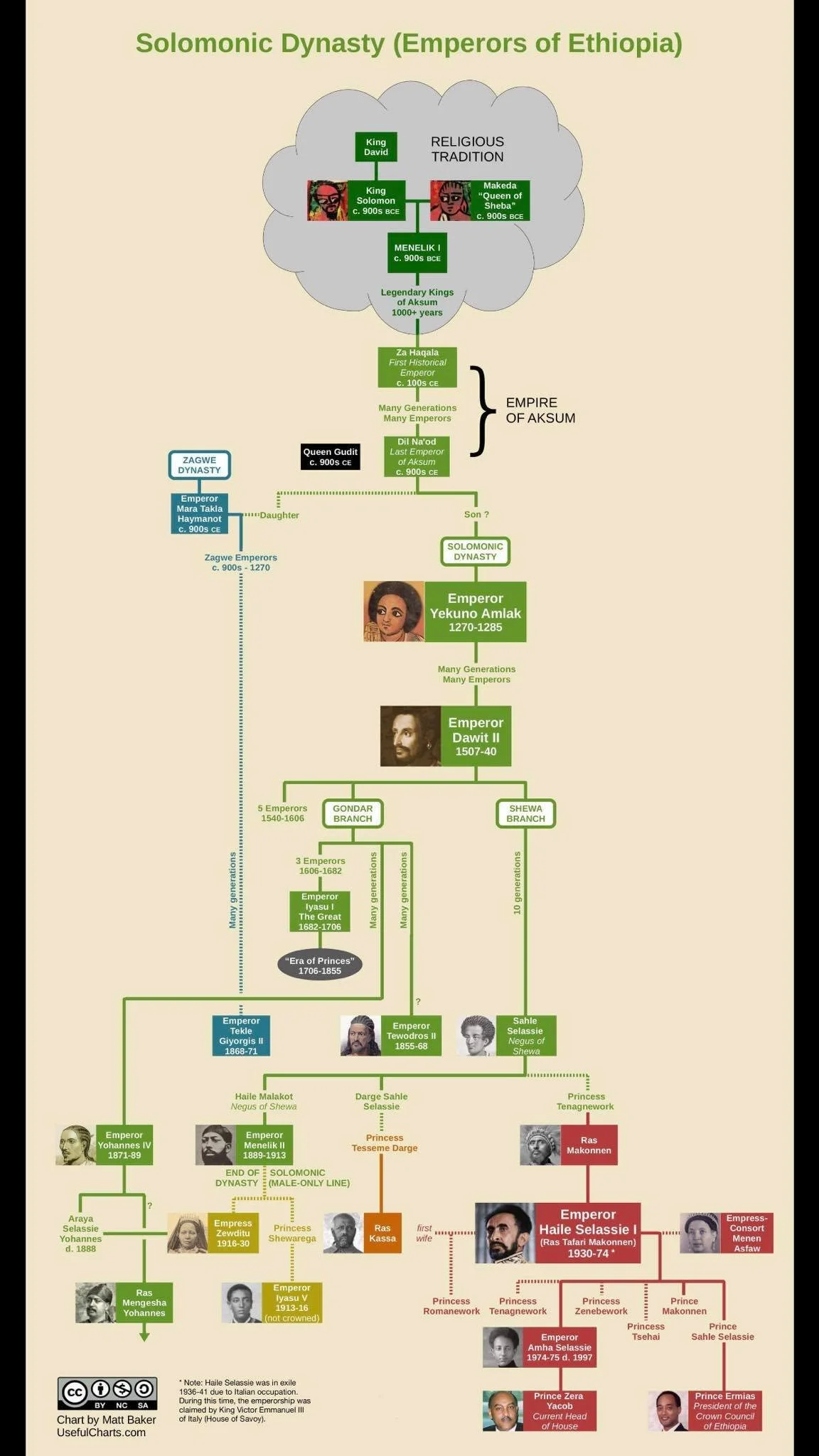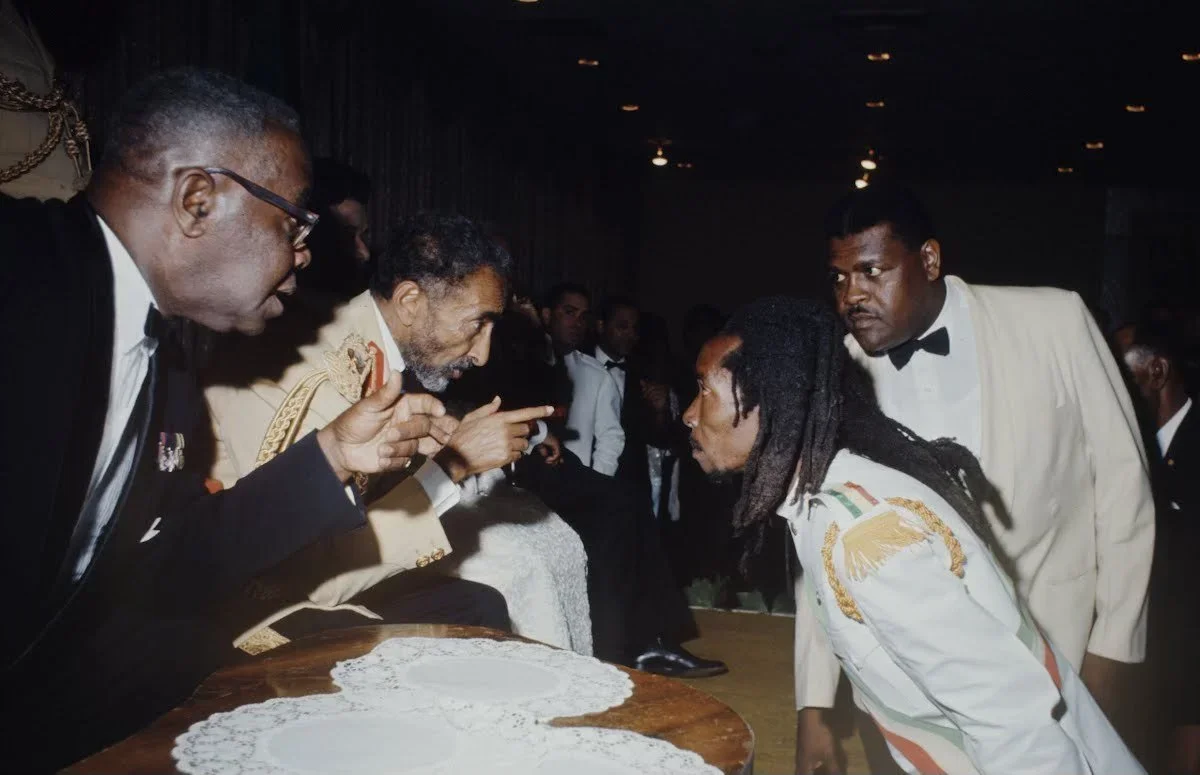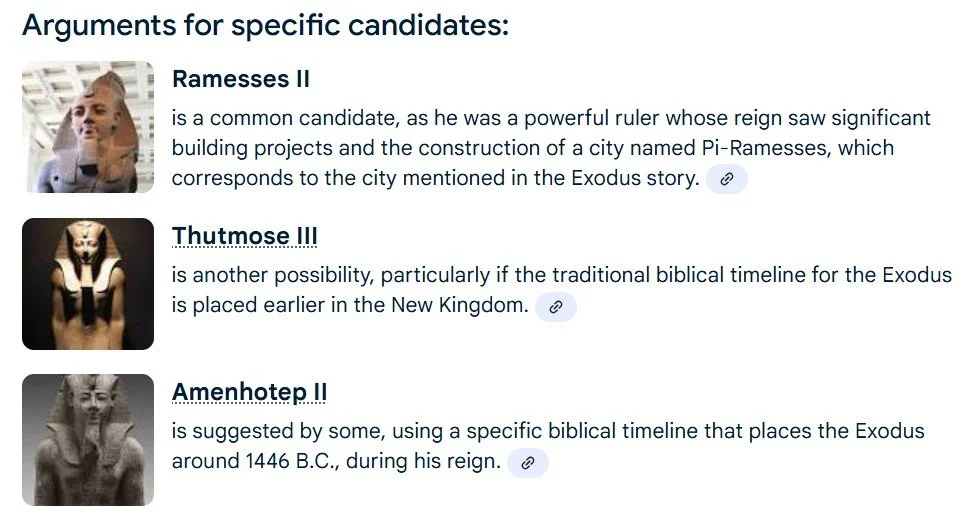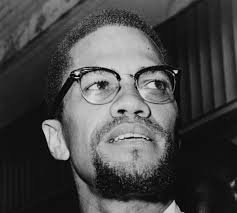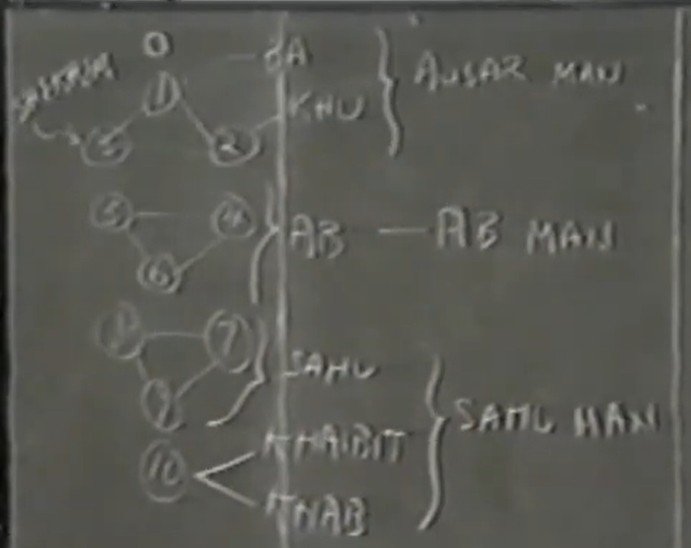-
December 2025
- Dec 19, 2025 ARCHIVE Dec 19, 2025
- Dec 19, 2025 SANKOFA - HOW RAS NATHANIEL FIRST RETURNED TO AFRICA AND HOW HE EMERGED AS SIPHIWE BALEKA Dec 19, 2025
- Dec 17, 2025 SANKOFA - REMEMBERING THE AFRICAN UNION GRAND DEBATE ON THE UNITED STATES OF AFRICA : SIPHIWE BALEKA'S REPORTS FROM ACCRA, GHANA IN 2007 TO THE BIRTH OF THE PAN AFRICAN FEDERALIST MOVEMENT IN 2015 Dec 17, 2025
- November 2025
-
October 2025
- Oct 12, 2025 Siphiwe Baleka and Sânebickté Juliana Yala Nhanca Official Wedding Album Oct 12, 2025
-
September 2025
- Sep 17, 2025 A BALANTA RASTAFARITE BIBLE STUDY: FROM ISRAEL, JUDAH, DAVID, SOLOMON AND SHEBA TO MENELIK AND RAS TAFARI - HAILE SELASSIE I KING OF KINGS, LORD OF LORDS, CONQUERING LION OF JUDAH AND ELECT OF GOD Sep 17, 2025
- Sep 16, 2025 A BALANTA RASTAFARITE BIBLE STUDY: IN THE BEGINNING, FROM A BLACK CUSHITIC ETHIOPIAN ADAM AND NOAH TO A MIXED SEMITIC WHITE ABRA-HAM AND MOSES Sep 16, 2025
-
May 2025
- May 23, 2025 Omowale Malcolm X and the Republic of New Afrika May 23, 2025
- May 5, 2025 HISTORY OF THE MODERN REPARATIONS MOVEMENT THAT STARTED IN THE UNITED STATES AND HAS SPREAD THROUGHOUT THE AFRICAN WORLD May 5, 2025
-
April 2025
- Apr 1, 2025 The Military Order of Jesus Christ in Portugal Started the Misnamed TransAtlantic Slave Trade Apr 1, 2025
-
March 2025
- Mar 24, 2025 THE PAN AFRICAN, REPATRIATION, BACK-TO-AFRICA HISTORY THAT YOU WERE NOT TOLD Mar 24, 2025
- Mar 21, 2025 Malcom X Speaks on Reparations Mar 21, 2025
- January 2025
-
October 2024
- Oct 22, 2024 THE TRUE STORY OF THE 9TH PAN AFRICAN CONGRESS - ALL THE BACKGROUND Oct 22, 2024
-
September 2024
- Sep 7, 2024 Dr. John Henrik Clarke - African Americans the lonely nation away from home Sep 7, 2024
-
August 2024
- Aug 31, 2024 AN ANSWER TO THOSE WHO SHIFT THE BLAME TO AFRICANS FOR SELLING THEIR OWN PEOPLE INTO CHATTEL SLAVERY IN THE AMERICAS Aug 31, 2024
- Aug 18, 2024 IMARI OBADELE ON MALCOLM X AND REPARATIONS Aug 18, 2024
- Aug 17, 2024 𝐏𝐆𝐑𝐍𝐀 𝐅𝐨𝐫𝐞𝐢𝐠𝐧 𝐀𝐟𝐟𝐚𝐢𝐫𝐬 𝐇𝐢𝐬𝐭𝐨𝐫𝐲 - Queen Mother Audley Moore's Speech to the Summit Meeting of the Organization of African Unity (OAU) in Kampala, Uganda - July 28, 1975 Aug 17, 2024
- Aug 15, 2024 THE ABSENCE OF THE BLACK NATIONALISTS IN TODAY’S REPARATIONS MOVEMENT IN THE UNITED STATES: A FAILURE TO LEARN THE LESSONS OF HISTORY Aug 15, 2024
- Aug 13, 2024 CULTURAL CARRYOVERS, EPIGENETICS AND CONNECTING THE DOTS: BALANTA, PALMERES AND THE REPUBLIC OF NEW AFRIKA - A TRADITION OF LIBERATION, INDEPENDENCE AND REPARATIONS Aug 13, 2024
-
June 2024
- Jun 28, 2024 THE UNITED STATES AND ITS COLONIAL EMPIRE Jun 28, 2024
- June 2023
-
March 2023
- Mar 14, 2023 Outcome of the 4th Preparatory Meeting for the 8th Pan African Congress Part 1: Pan African TV and Radio Mar 14, 2023
- Mar 14, 2023 Council of Pan African Diaspora Elders Letter of Support to President Emmerson Dambudzo Mnangagwa of The Republic of Zimbabwe for the 8PAC1 Mar 14, 2023
- Mar 9, 2023 Outcome of the 3rd Preparatory Meeting for the 8th Pan African Congress Part 1: Diaspora Pan African Capital Fund Mar 9, 2023
- Mar 3, 2023 TOWARDS THE 8TH PAN AFRICAN CONGRESS PART 1: LESSONS FROM THE 6TH PAC AND 7TH PAC Mar 3, 2023
- Mar 2, 2023 Divide and Conquer Diplomacy of Lisbon and Washington 1973: Coopting the PAIGC and the Balanta People Mar 2, 2023
-
February 2023
- Feb 28, 2023 The African Union and the African Diaspora - Tracking the AU 6th Region Initiative and the Right to Return Citizenship: A Resource for the 8th Pan African Congress Part 1 in Harare, Zimbabwe Feb 28, 2023
- Feb 27, 2023 PREPARING FOR THE AFRO DESCENDANT/NEW AFRIKAN PLEBISCITE FOR SELF DETERMINATION IN THE UNITED STATES: UNDERSTANDING THE BERLIN CONFERENCE OF 1884 Feb 27, 2023
- Feb 27, 2023 PREPARING FOR THE AFRO DESCENDANT/NEW AFRIKAN PLEBISCITE FOR SELF DETERMINATION IN THE UNITED STATES: UNDERSTANDING DECOLONIZATION Feb 27, 2023
- Feb 27, 2023 PLEBISCITES IN WORLD HISTORY Feb 27, 2023
- Feb 27, 2023 African Liberation and the Use of Plebiscites Feb 27, 2023
- Feb 25, 2023 OUTCOME OF SECOND PREPARATORY MEETING FOR THE 8TH PAN AFRICAN CONGRESS PART 1 IN HARARE, ZIMBABWE Feb 25, 2023
- Feb 20, 2023 Outcome of the First Preparatory Meeting for the 8th Pan African Congress Part 1 in Harare, Zimbabwe Feb 20, 2023
- Feb 19, 2023 A BRIEF HISTORY OF THE MODERN RIGHT TO RETURN CITIZENSHIP MOVEMENT SINCE THE BERLIN CONFERENCE 1884: A PRESENTATION TO THE 8TH PAC PART 1 PREPARATORY MEETING DISCUSSING PATHWAYS TO CITIZENSHIP Feb 19, 2023
- Feb 14, 2023 Defining the Afro Descendants' Right to Return (RTR) to their Ancestral Homelands on the African Continent for the 8PAC Part 1 Feb 14, 2023
-
December 2022
- Dec 25, 2022 The African American Case for Independence at the International Court of Justice Dec 25, 2022
-
November 2022
- Nov 3, 2022 Secrets of the Forest People: Learning the Bantu Culture in Cameroon Nov 3, 2022
-
October 2022
- Oct 19, 2022 Celebrating the 50 Year Anniversary of Amilcar Cabral's Meeting With African Americans, October 20, 1972 Oct 19, 2022
-
September 2022
- Sep 7, 2022 THE POTENTIAL OF A MINORITY REVOLUTION IN THE USA - The Crusader, August 1965 Sep 7, 2022
- Sep 7, 2022 THE AFRICAN LIBERATION READER Sep 7, 2022
- August 2022
-
July 2022
- Jul 20, 2022 DESCENDENTES DE BALANTA LIDERAM MOVIMENTO DE REPARAÇÃO NO VATICANO: RESPONSABILIZAM OS REPRESENTANTES DE JESUS CRISTO PELA ESCRAVAÇÃO DOS POVOS AFRICANO Jul 20, 2022
- Jul 20, 2022 BALANTA DESCENDANTS LEAD REPARATIONS MOVEMENT AT THE VATICAN: HOLD THE REPRESENTATIVES OF JESUS CHRIST RESPONSIBLE FOR THE ENSLAVEMENT OF AFRICAN PEOPLE Jul 20, 2022
- June 2022
- January 2022
-
September 2021
- Sep 23, 2021 Lessons From Amilcar Cabral and Siphiwe Baleka: The Dum Diversas War and the Incomplete Independence of Guinea Bissau Sep 23, 2021
- Sep 2, 2021 BRIEF NOTES ON BALANTA HISTORY BEFORE AND AFTER GUINEA BISSAU INDEPENDENCE Sep 2, 2021
-
August 2021
- Aug 25, 2021 BRIEF NOTES ON BALANTA MIGRATION IN GUINEA BISSAU Aug 25, 2021
- Aug 19, 2021 Jornada de Quintino Medi para descobrir a Mãe Fula de Amílcar Cabral na Guiné-Bissau Aug 19, 2021
- Aug 19, 2021 Quintino Medi's Journey to Discover Amilcar Cabral's Fula Mother in Guinea Bissau Aug 19, 2021
- Aug 8, 2021 Space and Time in the African Worldview: Excerpt from Remembering the Dismembered Continent by Ayi Kwei Armah Aug 8, 2021
-
May 2021
- May 30, 2021 Historic Moment in Guinea Bissau: Denita Madyun-Baskerville is the First Balanta Woman to Return to Her Ancestral Homeland Since the Slave Trade May 30, 2021
- May 27, 2021 Sketches of the History of Balanta People in America: Anthology Series 1 now available! May 27, 2021
- May 5, 2021 MAY 5TH - THE MOST IMPORTANT DAY IN THE TWENTIETH CENTURY AND EVIDENCE THAT THE ANCESTORS OF AFRICAN PEOPLE COMMUNICATE TO THEIR DESCENDANTS ON EARTH AND SHAPE WORLD EVENTS May 5, 2021
-
April 2021
- Apr 6, 2021 CLARIFYING THE POLITICAL AND LEGAL STATUS OF 1,108 GENERATIONS OF MY FAMILY Apr 6, 2021
-
March 2021
- Mar 23, 2021 Balanta Marriage Customs: KWÂSSI, B-BÂSTI and MHÂH M-NANHI Mar 23, 2021
- February 2021
-
November 2020
- Nov 24, 2020 Oligarchy: The Spiritual and International Legal Wars Against the Balanta Nov 24, 2020
-
October 2020
- Oct 25, 2020 The Civil, Political and Legal Illiteracy of African Americans: Failure to Apply the Framework of the International Covenant on Civil and Political Rights Oct 25, 2020
- Oct 11, 2020 Notes on Hugo Grotius' Commentary on the Law of Prize and Booty (1604) Oct 11, 2020
- Oct 10, 2020 The Spiritual Protective Function of the Balanta Placenta Tradition, The United States Birth Certificate and the Spiritual Damage of Slavery Oct 10, 2020
- Oct 6, 2020 B’KINDEU & RANSOM: BALANTA PEOPLE REFUSED TO PARTICIPATE IN THE CRIMINAL EUROPEAN TRANS ATLANTIC SLAVE TRADE Oct 6, 2020
- Oct 1, 2020 From Nhacra to North Carolina: The Story of Brassa Nchabra and The Blake Family, 1760 to 1890 Oct 1, 2020
-
September 2020
- Sep 7, 2020 BALANTA AND THE POISON ORDEAL Sep 7, 2020
- August 2020
-
July 2020
- Jul 4, 2020 KNOW YOUR AMERICAN HISTORY: A BALANTA FAMILY ON JULY 4 1776 Jul 4, 2020
- Jul 3, 2020 LAND HAS ALWAYS BEEN CENTRAL TO THE SOLUTION OF AMERICA'S RACE PROBLEM Jul 3, 2020
-
June 2020
- Jun 24, 2020 The Black Liberation Movement (BLM), Balanta, Rastafari, and America's Drug War: Chicago Police Attacks on January 27, 1997 and August 6, 1999 Jun 24, 2020
- Jun 22, 2020 Revolutionary Action Movement (RAM) Reader Jun 22, 2020
- Jun 21, 2020 A BALANTA PANTHER: STEPHEN HOBBS AND THE CHICAGO BLACK PANTHER PARTY Jun 21, 2020
- Jun 9, 2020 REVISITING THE BATTLE PLAN: THE STRATEGY OF THE REPUBLIC OF NEW AFRIKA TO LIBERATE BLACK AMERICANS Jun 9, 2020
- Jun 8, 2020 JUNE 8, 1954: THE MOST IMPORTANT DAY IN 20TH CENTURY AFRICAN AMERICAN HISTORY Jun 8, 2020
- Jun 2, 2020 Marcus Garvey Message to the People: Lesson 16 Propaganda (and War), The Course of African Philosophy Jun 2, 2020
-
May 2020
- May 17, 2020 THE BALANTA STRUGGLE FOR JUSTICE AND EQUALITY: BRIEF SKETCHES OF ONE STRONG FAMILY'S ROLE IN AMERICAN HISTORY May 17, 2020
- May 9, 2020 KNOW YOURSELF, KNOW YOUR ENEMY: UNDERSTANDING EUROPEAN HISTORY PRIOR TO THEIR ARRIVAL IN WEST AFRICA May 9, 2020
- May 9, 2020 THE BOOK AFRICAN AMERICANS SHOULD BE READING: NOTES ON THE ORIGINS OF AFRICAN-AMERICAN INTERESTS IN INTERNATIONAL LAW May 9, 2020
- May 8, 2020 The B'rassa Fight Against the Befera: Learning from the Revolutionaries from India May 8, 2020
-
April 2020
- Apr 10, 2020 Black Bodies of Knowledge: Information Gangsters, Guerrillas and Notes on an Effective History by John Fiske Apr 10, 2020
- Apr 2, 2020 CREDO MUTWA ON THE RACE THAT DIED: A TALE OF TECHNOLOGY AND A WARNING TO THE FUTURE Apr 2, 2020
- March 2020
-
February 2020
- Feb 19, 2020 MISSING MIDDLE PASSAGE DOCUMENTS: THE CONSEQUENCE FOR BALANTA, MENDE, TEMNE AND OTHER SENEGAMBIAN PEOPLES BROUGHT TO THE UNITED STATES Feb 19, 2020
- Feb 3, 2020 THE MALI KINGDOM AND MANSA MUSA WERE IMPERIALIST SLAVE TRADERS: REVISITING AFRICAN HISTORY FROM THE POINT OF VIEW OF THE PEOPLE WHO WERE OPPRESSED Feb 3, 2020
-
December 2019
- Dec 29, 2019 AFRICAN HISTORIANS SPEAK ON BLACK-WHITE RELATIONSHIPS AND THEIR MIXED RACE OFFSPRING Dec 29, 2019
- Dec 3, 2019 Homosexuality Contemplated From African Spirituality Dec 3, 2019
- Dec 1, 2019 Befera: The White Christian Witches of the Balanta Worldview Dec 1, 2019
-
November 2019
- Nov 16, 2019 Balanta and the Banking System: A Case Study of the Criminal Application of Fictitious Corporate Statutory Law Nov 16, 2019
- Nov 6, 2019 SUMMARY OF LEGAL ISSUES CONCERNING BALANTA PEOPLE Nov 6, 2019
- Nov 6, 2019 DEVELOPMENT OF LEGAL ISSUES CONCERNING BALANTA PEOPLE Nov 6, 2019
- Nov 4, 2019 Timeline of American History And The Birth of White Supremacy and White Privilege in America Nov 4, 2019
-
October 2019
- Oct 29, 2019 LEGAL ISSUES EFFECTING BALANTA AS A RESULT OF CONTACT WITH THE ENGLISH Oct 29, 2019
- Oct 29, 2019 LEGAL ISSUES EFFECTING BALANTA AS A RESULT OF CONTACT WITH EUROPEAN CHRISTIANS Oct 29, 2019
- Oct 28, 2019 DEVELOPMENT OF LEGAL ISSUES DURING THE BALANTA MIGRATION PERIOD Oct 28, 2019
- Oct 28, 2019 ORIGIN OF LEGAL ISSUES CONCERNING BALANTA PEOPLE IN THE UNITED STATES Oct 28, 2019
- Oct 25, 2019 HOW THE AFRICAN UNION WAS ESTABLISHED TO INCLUDE THE AFRICAN DIASPORA Oct 25, 2019
- Oct 22, 2019 THE BALANTA FOUNDER OF THE AFRICAN UNION 6TH REGION CAMPAIGN Oct 22, 2019
- Oct 18, 2019 Amilcar Cabral Describes Balanta People Oct 18, 2019
- Oct 16, 2019 AN ANSWER TO THOSE WHO CLAIM THAT AFRICAN AMERICANS ARE HEBREW OR “LOST JEWS” Oct 16, 2019
- Oct 9, 2019 26 Principles of the Great Belief of the Balanta Ancient Ancestors Oct 9, 2019
-
September 2019
- Sep 19, 2019 Reviewing the Sudanic/TaNihisi Origins of the Balanta Sep 19, 2019
SANKOFA - HOW RAS NATHANIEL FIRST RETURNED TO AFRICA AND HOW HE EMERGED AS SIPHIWE BALEKA
“To embark successfully in a career involving leadership demands a courageous and determined spirit. Once a person has decided upon his life’s work and is assured that in doing the work for which he is best endowed and equipped he is filling a vital need, what he then needs is faith and integrity, coupled with a courageous spirit so that no longer preferring himself to the fulfillment of his task he may address himself to the problems he must solve in order to be effective.” - Ethiopian Emperor Haile Selassie on Leadership - July 17, 1959
Ras Nathaniel in 2004
On October 5, 2000, I, a native of Chicago, presented the Ethiopia to Chicago Exhibit to the Association of African Historians (AAH) at the Center for Inner City Studies at Northeastern University. The presentation was so extraordinary, that I was invited to present it again one month later, November 4, 2000 to the Association for the Study of Classical African Civilizations (ASCAC). Five years later, Nana Baffour Amankwaitia II (Dr. Asia Hilliard III) said, “I still have my copy of the excellent piece that you did. I am waiting for more of your work. . . I am not at all surprised at the work that you have pursued and know that much more is to come.”
Sometime in the late fall of 2002, Ras Antar called me and said,
“Hail Ras Nathaniel. Did you see that there is a quiz on the Rastaites website? Answer all the questions correctly and you win a plane ticket to Ethiopia. You should enter the contest and take the quiz! If anyone can win, it would be you. You know more about this than anyone I know!”
Thus, I answered the quiz questions (see below) and submitted my entry for the contest sponsored by the African Caribbean Self Help Foundation and its founder, Ras Xylon, of the Rastafari Agricultural Music School in Ethiopia. I didn’t think I would win, but I entered anyway. Who knows?
I was surprised when I received an email saying that I won the contest! At the time, I lived together with my Rastafari wife, Sister Myrah. So I returned their message and told them that it was only because of her supporting me that I could gain all that knowledge to answer the questions. So impressed with this, they sent my a second email saying, “We are sending you two plane tickets - one for you and one for Sister Myrah!”
And that is how I went to Africa for the first time in my life. I didn’t buy a ticket, I earned one becasue of education and my choice to follow Rastafari. . . . . To me, that was a sign, a spiritual matter . . . . a CALLING. . . .
Ras Xylon
RAS NATHANIEL ARRIVES IN ETHIOPIA!
The following was published on the Rastaites website:
“NEWS FROM SHASHAMANE
Since May 5 2002 , there has been lots of communication between Ethiopia and the outside World of scattered Rastafari. Rastafari_Agrocultural_School web site started the Community off to a Mighty start as the Original Rastafari website in Ethiopia and Shashemene . The Site have enjoyed the fruits of Participation through networking , as great is the company of those that publish it . Through the help from H.I.M. who is at all time strengthening the efforts of I&I at R.A.S. , I&I give I-more thanks and is extremely grateful to H.I.M. for who I&I am , Blessings will continue to flow to the loyal bretheren and sistren who have made an effort to participate & communicate so as to make the reality full , Special thanks.
The Ethiopian year started in September with Jah Rastafari richest blessings, I&I at Rastafari Agro-cultural School is still working at fulfilling this portion of the works we had already started with Community Development as I&I main Focality. I&I are gratified to have contributed to the build up of interest at home and abroad , I&I received the Reggae Train Award for the Website within the first one month . Much credit goes out to Sister Mary Dread for her unswerving efforts and her personal RastaItes.com contribution which has assisted in making the Networking of Rastafari at home and abroad a fulfillment , I&I at R.A.S. I&I originally approached Ethiopian Airlines who was not able to participate at this time but pledged support in the future. I&I effectuated a Quiz page and one Ras made a wholehearted attempt and was rewarded.
On the 24th of December arrived from the Rastafari Community in Chicago, Co-ordinator of the Bright Sun Solar project, Issembly of Rastafari Iniversal Education (IRIE), Shashemane Creations . Ras Nathaniel and his wife Sister Myrah arrived in Addis Abbaba , Ethiopia and was received by Ras Wolde Tagass King of the E.W.F. Inc. , Ras Ibi and Ras Xylon of the Rastafari Agrocultural School Project. Ras Nathaniel is the recipient of the Rastafari_Agrocultural_School Quiz and was Awarded two airline tickets courtesy of the R.A.S. Project
Ras Nathaniel brought along with him 5 boxes of Organic Soyabean Seeds weighing over 150 kilo (330 lbs.) for immediate cultivation , some of these seeds was given to Ras Wolde of the Ethiopian World Federation Inc.
Ras Xylon was presented with a cheque of US$718.91 cents this will go into the operations and running of R.A.S. Project, It is agreed by our planning committee to use this fund to purchase a brick making machine so as to contribute to Construction and development of the Community.
On the following day Ras Nathaniel met the Chairman of the J.R.D.C. Ras Desmond Martin at the Hawaris Hotel where they stayed for their first night , Together I&I all trodded up to the Home of Rastafari Goahe Muuzyka Academy where I&I listened to the recording done in Shashamane with the Twelve tribes of Israel band featuring Ras Desmond Martin on lead vocals , begging for the lord , to give us a helping hand and take us to the promised land yes take us to the promised land.
I&I will continue to express I&I free thoughts as I&I experience it . Questions are being asked why is R.A.S. Project not highlighted on the new J.R.D.C. page? One of I good sistren say it is politics , an Idrens call it piracy or I would say it could be a part of a Conspiracy , but who want to do , let it be done in righteousness , when R.A.S. was effected there was no Rastafari NGO's in Shashamene and as a member of the freewill trod which the Nyahbinghi Order represents I&I as Rastafari Agro Cultural School community consultants have been doing our Projects and as it go regardless of the Sabotages I&I should get on with it through the POWER OF H.I.M. HAILE SELLASSIE 1ST.
The Ethiopian World Federation Inc. and the Jamaica Rastafari Development Community should put their petty grudges and differences aside and serve Rastafari to effect a Collectivity within Shashamene Community. Personal differences will always arise hence the need for tolerance , Word is Wind but blows is unkind. Internationally every Rastafari has the right to decide his or her moral destiny and in this judgment burn Impartiality. “
Not long after I arrived, Ras Xylon took me to get registered with the Federal Democratic Republic of Ethiopia Ministry of Information & Culture Press and Information Department as a journalist for the Rastafari Speaks newspaper.
With official media credentials, I now had access to the Economic Commission for Africa (ECA), the African Union (AU) and the United Nations (UN). On February 3-4, 2003, I attended the 1st Extra-Ordinary Summit of the Assembly of the African Union in Addis Ababa and began issuing reports to the African Diaspora via the internet. I was the only African American journalist in the room when the historic Article 3(q) was adopted that officially “invite(s) and encourage(s) the full participation of Africans in the Diaspora in the building of the African Union in its capacity as an important part of our Continent.” From this decision, the African Diaspora would become designated as the 6th Region of the African Union.
Aware that Malcom X had also been an observer at the AU’s predecessor, the Organization of African Unity (OAU), I now felt an awesome responsibility to the African Diaspora, and particularly to the Rastafari community, to keep them informed of all things related to the African Union. This I did using the Rastites website which archived all of my messages.
“I now felt an awesome responsibility to the African Diaspora, and particularly to the Rastafari community, to keep them informed of all things related to the African Union.|”
From 2002 to 2007, I was the Coordinator of the Issembly for Rastafari Iniversal Education (I.R.I.E.) which served as a Ministry of Education for the Rastafari Family Worldwide. All my work in the I.R.I.E Ministry of Education, including emails, articles, commentaries and reports are documented in the five volume, 1,500 page work entitled, COME OUT OF HER, MY PEOPLE! 21ST CENTURY BLACK PROPHETIC FAITH AND PAN AFRICAN DIPLOMACY. [See below]
Besides attending the First Extraordinary Session of the African Union, and become the Founder of the AU 6th Region Education Campaign, I also helped to negotiate the immigration issues of the Rastafri community in Shashemane. In this way I started my career after leaving Yale University as a minister of education, a minister of foreign affairs, an ambassador, an envoy and a diplomat. Indeed, I was fulfilling HIM Haile Selassie’s prophecy
“All of you young people who have been given the enriching opportunity of an advanced education will in the future be called upon to shoulder in varying degrees the responsibility for leading and serving the nation."
I returned to the United States in the late fall of 2003 in order to lead the Jubilee 50 Year Commemoration of HIM Haile Selassie I’s first visit to the United States (1954-2004). I created a traveling exhibition of more than 100 pieces that was featured at the Smithsonian. I also published a book as well. I also published a Proposal on the “HOW” to Istablish the Rastafari International Secretariat by May 25, 2004.
I was given exclusive access and permission by Ato Demeke Berhane, Director of Archives at the Institute of Ethiopian Studies in Addis Ababa, Ethiopia, to publish the official photographs of HIM Halie Selassie I’s First Visit to the United States in 1954 https://www.amazon.com/Anniversary-Imperial-Majesty-Haile-Selassie/dp/1412037026
On June 8, 2004 I experienced the supernatural direct communication with HIM durning the Venus Transit. During this "astronomical event of the year" writes Carl Johan Calleman, PH.D,
“it is hard to avoid the impressions that the very transit of Venus across the Sun has somehow served to concentrate these energies and has sent an intensifying beam to planet Earth. During the Venus transits the cosmic energies were thus strongly amplified. There are however many good reasons to believe that the Venus transit on June 8, 2004. . . will herald a development of communications between human beings that is not based on technology. The chief reason is that we are now at a stage . . . that favors the right brain half and the intuitive faculties of our mind that are mediated by this. And so, we may expect that the upcoming Venus transit will launch an era of communications utilizing mental rather than electromagnetic fields. . . . Since there is no person alive today who was born in 1882 or earlier the Venus transit in 2004 will be everyone's first such experience.”
No human alive had previously witnessed one; the last one prior to that occurred on 6 December 1882. On that day in 2004 at the exact moment of the Venus Transit, I was standing on the exact spot where HIM Haile Selassie I had visited and thereby received, through this intensified concentration of energy and direct divine communication particular to HIM Haile Selassie and his Jubilee visit to Chicago, His Imperial Majesty’s theocratic appointment as the Ilect of Records of the Star Order of Ethiopia - a direct divine commission from God to bring about the Repatriation of the Afrodescendant peoples.
Throughout the rest of the year I traveled from Chicago to Atlanta to Washington DC to New York, to Hartford, to Boston and across to Los Angeles.
Rastafari mini-summit, October 21, 2003, Washington DC. Ras Nathaniel in the center. The white man in the front row (second from the right) is Jake Homiak of the Smithsonian Institute. Immediately upon returning from Ethiopia, Ras Nathaniel began mobilizing the Rastafari community in the United States for the upcoming Jubilee Commemoration of HIM Haile Selassie I First Visit to the United States in May 1954. Afterwards, Ras Nathaniel then traveled throught the Caribbean and Central America preparing for the Rastafari Inity Summit in Azania and the Ethiopian Millennium Repatriation.
From left to right: Ras Nathaniel, Ras Jaberi, Ras Ravin-I in Massachusettes
Below: Ras Nathaniel in Trinidad and Tobago 2005
Panama: Ras Nathaniel on funde drumjust left of the Ras Jaberi on bass drum. Full report: https://web.archive.org/web/20060902235707/http://www.rastaites.com/news/hearticals/panama/FinalSummitReport2005.pdf
I co-organized the First Rastafari Diasporic Summit in the Hispanic World in Panama from May 23 to May 30, 2005. In August I traveled to Trindad and Tobago and spent two weeks with the Rastafari community in Fyzabaad. I gave the Keynot Address for the Inaugural Marcus Garvey Lecture Sponsored by the Pan African Commission of Barbados at Frank Collymore Hall Bridgetown, Barbados on August 21, 2005.
Article from the Barbados Sun newspaper.
In Miami I participated in HIM Haile Selassie I Grand Coronation 75th Jubilee Celebration, November 2, 2005, and returned to Atlanta for the Ethiopian World Federation Forum. On December 23, 2005, I signed a Memorandum of Understanding with the Western Hemisphere African Diaspora Network (WHADN) creating the AU 6th Region Education Campaign. Back in April 18, 2003, the African Union in conjunction with the Foundation for Democracy in Africa (FDA) and members of WHADN, announced plans for establishing technical definitions of the Diaspora and the process of effectively integrating the Diaspora into the organs and programs of the African Union, notably the Economic, Social and Cultural Council (ECOSOC). Members of WHADN and the AU delegation agreed that participants should become actively involved in this process by forwarding proposals thru the WHADN Secretariat to the AU Commission for consideration and taking ownership of the outcomes of adopted projects. It was stressed that WHADN is a network in which Diaspora organizations could freely mobilize and coordinate their interaction with the African Union on an equal basis, WHADN to serve as the “functional interface mechanism with the AU.” Among the first groups to submit a proposal to WHADN for consideration by the AU Commission was The Issembly for Rastafari Iniversal Education (IRIE). Recognizing that WHADN was “a functional interface mechanism with the AU” and “the first step of membership” in the AU 6th Region Diaspora Initiative mandated to coordinate events in 2006 to popularize the AU, I, seeking funding and more immediate and effective means towards Repatriation to Africa, sought to utilize this new mechanism to present to the African Union the Rastafari Repatriation Census Proposal for the Start of the Ethiopian Millennium (September 11,2007).
According to the proposal, “Based on results already obtained in three Repatriation Census Workshops, IRIE estimates that there is a minimum of 100 cities or locations with 100 people with various skill sets, representing a minimum of $300,000 per city plus equipment. That translates into Brain Gain of 10,000 persons and US $30 million in financial resources plus equipment available for repatriation. . . . By conducting a Repatriation Census, the African Union will immediately benefit from having a central skills technician resource database from which they could fill skills shortages in various sectors of the African Continent’s economy. . . . This proposal seeks to combine the mandate for African Union Educational Workshops with the mandate to develop a Central Diaspora Skills Resource Bank with the existing Repatriation Census Workshops being conducted by the Issembly for Rastafari Iniversal Education.” The proposal was approved and thus was born the African Union 6th Region 2006 Education Campaign with Ras Nathaniel as its Director.
Immediately after signing the MOU, from January 4 to 10, 2006, I traveled to Jamaica to strategize with the Rastafari community on that island. A plan was eventually approved to host a Rastafari Global Unity Conference in South Africa (Azania). On November 8th, I arrived in Azania. As I was preparing to depart from the plane, I heard drumming and singing. When the door opened, I saw about thirty Rastas waiting for me with Ethiopian flags. A group of Rastafari Elders of Zulu and Xhosa ancestry ascended the steps of the plane and explained to me that whenever a “son of the soil” returns home after a long journey, he receives a new name. Having journeyed far and long, the person returns as a “new” man, thus requiring a “new” name. The elders told me that while I was on ancestral soil, my ancestors required that I have an ancestral name that they could call. Thus, the elders gave me the name “Siphiwe” which means “gift of the creator” and the surname Baleka which means “fast” and “he who escaped”. This was profoundly important to me.
On November 9, I along with Ras Tekla Haymanot, Sister Yaa Ashantewaa, and Ras Gareth Prince, appeared on South African Broadcasting Company (SABC) TV Africa Live program to explain the Rastafari position.
Immediately after returning from Azania, I traveled to Honduras at the end of November for the Central American Black Organization (CABO) 12th Assembly in La Ceiba Honduras as a member of the Pan African Organizing Committee (PAOC). In Honduras, I was a roommate of elder Dr. Pauulu Kamarakafego, CEO of the Pan-African Movement to the United Nations. Dr. Kamarakafego has served as a counselor, consultant, official and friend to Kwame Nkrumah, Julius Nyere, CLR James, Walter Rodney and various African liberation movements. Dr. Kamarakafego was responsible for organizing the 6th Pan African Congress in Tanzania in 1969. With Dr. David Horne of the PAOC, I made a presentation on the AU 6th Region Diaspora Initiative and the process for electing the twenty representatives to the AU’s Economic, Social and Cultural Council (ECOSOCC).
On January 6, 2007, at the request of the Pan African Community Coalition (PACC) and the Pan Afrikan Organizing Committee (PAOC), I was invited to the New York Town Hall Meeting to discuss and supervise the election of New York’s Diaspora Representatives to the African Union (AU). After his presentation, the town hall discussed the formation of the Community Council of Elders (CCE) that conducted the election on January 27th.
With African Diaspora elections underway and spreading throughout the Diaspora, I then attended the African Union Grand Debate in Ghana in July as Coordinator for IRIE and Director of the AU 6th Region Campaign. At this event, there were many other representatives and observers from the African Diaspora. My main focus was on the AU 6th Region Diaspora Initiative, the elections for its representatives to ECOSOC, and the issue of citizenship for members of the 6th Region. I was a vocal supporter of a continental passport and setting up passport bureaus in African airports that could efficiently issue a Pan African passport to AU 6th Region members upon arrival anywhere on the continent.
Finally, working with my friend and comrade, Ras Ikael Tafari, who was the Commissioner of Pan African Affairs for the Government of Barbados, I helped to set the agenda for the Africa Diaspora Global Conference facilitated by the Republic of South Africa on behalf of the African Union, and jointly organized by the AU, CARICOM and the Government of Barbados, August 27-28, 2007. The context of the event was the Bicentennial Global Dialogue on “Slave Trade, Reconciliation and Social Justice.” I submitted a last-ditch proposal for $10 million funding from the governments in attendance, including Venezuela, Brazil and China, for the Ethiopian Millennium Repatriation and an emergency airlift of everyone that had completed Repatriation Census forms in a fashion similar to Operation Solomon, which, on Africa Day, May 25, 1991, airlifted 10,000 Ethiopian Falasha Jews to Israel, an effort kept secret by the military and organized by the American Association of Ethiopian Jews. TIn my opinion, Rastafarians had every right to be repatriated to their spiritual mecca, Ethiopia.
The proposal was rejected, September 11, 2007 came and went, and with my Five-Year Plan now ending in failure, Ras Nathaniel disappeared. On May 12, 2008, Ras Nathaniel legally changed his name to Siphiwe Baleka in order to honor his ancestors.
RASTAFARI QUIZ
What was Marcus Garvey's middle name?
Where was Marcus Garvey born?
Which Parish was Marcus Garvey born in?
Who was Alexander Bedward?
What was the name of Bedward's vision?
Who was Leonard Howell?
What other influences formed Howell's thinking?
What was the name of Howell's first camp?
When did Howell pass?
What were the circumstances of Howell's demise?
Who was Joseph Nathaniel Hibbert?
What was JNH main interest?
What was the name of JNH first organ?
Out of Dunkley, Hibbert, Howell and Hinds, who was at H.I.M. Coronation?
Who was Dunkley?
Who was Hinds?
Who was Ferdinand Ricketts?
What was the name of Ras Boanerges organ?
What was the birth date of H.I.M.?
What date was H.I.M. Crowned?
Who else was crowned with H.I.M.?
What date was the Battle of Adowa?
What date was H.I.M. speech to the League of Nations?
Which country did H.I.M. go to in exile?
How long was H.I.M. in exile?
What date did H.I.M. return to ET.?
Which country did H.I.M. pass through on his return?
What was the name of H.I.M. dog?
What year was the EWF established?
What was the name of H.I.M. official who established EWF?
Who was the first to hold office in JA of EWF?
What No. was this local?
What No. was the local in UK?
What No was the local in USA?
What date was the E.O.C. established in JA?
What date was the E.O.C. established in UK?
What date was the E.O.C. established in Trinidad?
What date was the E.O.C. established in USA?
Who was the founder of the 12 Tribes of Israel?
What was the name of the World's First International Rastafari Artist?
Name three other pioneers of conscious music.
Name four members of the original Wailers.
Give seven names of the sons of Abraham.
What was the name of Moses' wife?
What was the nationality of Moses' wife?
Name the four rivers mentioned in Genesis.
Name the river that encompasseth ET.
Name the river that is the source of the white Nile.
Name the lake that is the source of the Nile.
In which country is this lake?
Who or what is a 'Falasha'?
Name four of the titles given to H.I.M. on his Coronation.
Name the former capital of ET.
Name H.I.M. predecessor.
Name H.I.M. father.
Give the name of H.I.M. mother.
What is believed to have happened to H.I.M. mother.
Give the name of the first ET Patriarch.
What year did E.O.C. gain autonomy from Egypt?
Name the first Ethiopian King.
In which Parish was Pinnacle founded?
Give three other names used for ganja.
Where did the concept of locks or matted hair originate from?
Name three characters in the Bible who are known to have worn locks?
How is Solomon described in the Bible?
How is the Ancient of Days described in the Bible?
What chapter in the Bible describes the Ancient of Days?
Which character in the Bible received the vision of Revelation?
What does Revelation 5:5 state?
Which chapter in Isaiah is of great significance to Rastafarians?
Which chapter of the New Testament shows the lineage of Jesus Christ?
What relationship does Jesus the Christ hold with H.I.M.?
Was Jesus the Christ crowned whilst on Earth? (more that one answer acceptable here)
Who was John the Baptist in the bible?
How was he related to Christ?
How long did Christ spend in ET?
Did Christ visit India?
Did Christ visit Egypt?
Which Apostle is known to have taken the Gospel to India?
Which Apostle is known to have met with an Ethiopian Official?
Where in the Bible can this be found?
What is the Ancient language of ET called?
Which other country is this language known to have been used?
Name an Ethiopian King who had a burial in a Pyramid?
What are the Ethiopian colours?
How is the ET. flag different in H.I.M. time to now?
In which country, apart from JA, was H.I.M. seen as the returned Christ in the early advent of Rastafari philosophy?
What was H.I.M. family name?
What was H.I.M. name at baptism?
At what age was H.I.M. baptised?
Name one Mystical occurrence pertaining to H.I.M. at any age.
Give a general outline of H.I.M. early routine during H.I.M. Emperorship.
Give the date of the Italian Invasion preceding World War 2
Name the leader of this invasion.
Which Church blessed this invasion?
Name a Rastafarian Attorney-at-law (present).
Name a Rastafarian Historian (present).
Name a sound system that is promoting and has been promoting since the seventies Rastafari music in the UK (present).
Name the artist of the most well known group who dispelled Rastafari doctrine whose group had the initials MRR?
Name three vocal artists who have lost their lives in the field of music whilst promoting Rastafari Culture.
Which passage in the Bible qualifies the use of the name JAH for God?
compiled 21/12/1995
COME OUT OF HER, MY PEOPLE! 21ST CENTURY BLACK PROPHETIC FAITH AND PAN AFRICAN DIPLOMACY
When the World Trade Center was destroyed on September 11, 2001 – the same day that Ethiopians celebrate New Year’s Day – a few black men in America interpreted this event as the fulfillment of the biblical book of Revelations Chapter 18. Verses 4 and 5 commanded them to “Come out of her, my people, so that you will not share in her sins, that you will not receive any of her plagues; for her sins are piled up to heaven and God has remembered her crimes”. Obediently, Ras Nathaniel organized a mass Repatriation movement and led a diplomatic effort at the African Union on behalf of an estimated one million Rastafarians. There was just six years before the prophecy fulfilled for the Ethiopian Millennium which, on the western Gregorian calendar would begin on September 11, 2007.
In 1619, the first 20 Africans were brought to Jamestown, Virginia. They all had one common desire: return to their home in Africa. In every period since that time to the present, the most learned, respected and courageous of the Africans and their descendants concluded that they must either revolt against their enslavers or find some way to return to their home, the land which the Bible called “Ethiopia”. From this land a Universal Black King would be born with the titles King of Kings, Lord of Lords, Conquering Lion of Judah. Biblical prophets claimed that Princes would come out of her, that Ethiopia would stretch forth her hands, and her scattered, captive children would be brought home. In every period in American history, black men remained faithful to these scriptures and rejected America’s forced assimilation. Men like
George Liele, 1783
Prince Hall 1787
John Marrant 1791
Robert Alexander Young 1829
David Walker 1829
Martin Delaney 1836-1852
Henry Highland Garnett 1843
Edward Wilmott Blyden 1860’s
Bishop Henry McNeil Turner 1880
William Ellis 1903
Robert Athly Rogers, 1913-1924
Grover Redding, 1917
Clayton Adams (Charles Henry Holmes) 1917
Reverend James Morris Webb 1919-1925
Marcus Garvey 1919-1924
Malcolm X 1964
Ras Nathaniel adds his name to the list.
Come Out of Her My People! tells the story of how these biblical prophesies actually happened in the 20th Century and how the Black Exodus of Rastafari people ultimately failed.
Contents Introduction......................................................................... 0
Report on Shashemane Solar PV......................................... 5
AU, President Mbeki on African Diasopora.......................18
HISTORY OF THE NATIONAL RASTAFARI CONFERENCE IN 2004 (USA).............................................................23
Letter to the African Union ...............................................30
Answers to Repatriation Questions received and answered by Ras Nathaniel................................................................36
HER IMPERIAL MAJESTY EMPRESS MENEN SLAYS THE DRAGON!...........................................................................39
REASONED STEPS TOWARDS REPATRIATION TO ETHIOPIA: STAR ORDER FIVE YEAR PLAN RECOMMENDATIONS........43
NATIONALITY, NATURALIZATION AND CITIZENSHIP ISSUES: ETHIOPIAN LAW OF INTEREST TO THE RASTAFARI FAMILY...............................................................................59
REPATRIATION CENSUS UPDATE.......................................65
More Istory of OAARU/Rastafari National Conference.....67
Rastafari at the African Union Update ..............................75
ZION PSALM 1600 DAYS BEFORE THE ETHIOPIAN MILLENNIUM.....................................................................79
April 21, 2003 Grounation Day and Rastafari Repatriation ...........................................................................................84
April 22, 2003 RASTAFARI GROUNDATION AT THE AFRICAN UNION ...............................................................................89
May 5, 2003 May 5th Great Ethiopian Anniversary .........93
IRIE STAR ORDER REPORT HISTORY OF THE AFRICAN ECONOMIC COMMUNITY (AEC) UP TO THE CREATION OF 3 THE NEW PARTNERSHIP FOR AFRICA’S DEVELOPMENT (NEPAD).............................................................................96
ISSEMBLY FOR RASTAFARI INIVERSAL EDUCATION (IRIE) STAR ORDER REPORT: ETHIOPIAN IMMIGRATION POLICY AND THE RASTAFARI FAMILY WORLDWIDE........108
ISSEMBLY FOR RASTAFARI INIVERSAL EDUCATION (IRIE) STAR ORDER REPORT: UPDATE ON ASSIGNMENTS AND SPECIFIC, MEASURABLE COURSES OF ACTION MAY 2003 .........................................................................................122
RASTAFARI FAMILY WORLDWIDE SUGGESTED REPATRIATION TALKING POINTS FOR FOR THE AFRICAN UNION........................................153
A ZION PSALM 1555 DAYS BEFORE ANOTHER ETHIOPIAN MILLENNIUM ................................................161
SHASHEMANE CONTROVERSIES......................................167
September 18, 2003 Towrds Rastafari Repatriation By The Ethiopian Millennium......................................................184
African Union, NEPAD & Development.......................189
Setting the Stage & the Way Forward.........................195
"Citizen" Centered Development................................196
Consumption, World Consumerism, and African Development...............................................................201
Reconnecting with the Diaspora ................................. 205
Defining Diaspora ........................................................207
Culture as the missing link...........................................213
Rastafari as The Pan African Spiritual and Cultural Leaders........................................................................216
Rastafari Culture (“Way of life”)..................................226
Pro-Human Development ...........................................233 4
The Abdominal Brain: The Central Brain in the Solar Plexus ..........................................................................235
The Holy Herb: Sacrament and Incense for the Holy Temple of the Body .....................................................240
Marginalization from Mainstream ..............................252
Marginalization from OAU/AU....................................256
1980-2003 Rastafari Communications to the OAU.....258
Reparations over Repatriation.....................................260
Repatriation: The Way Forward..................................263
Repatriation According to HIM................................279
The Problems of Ethiopia's Development Post WWII . 284
Repatriation in the context of NEPAD.........................287
Obstacles to Repatriation............................................292
Obstacles to Repatriation Outside the Rastafari Movemant...................................................................306
Land.............................................................................315
Cannabis/Hemp/Ganja as Public Enemy #1 ................327
African Elite Fear of the Rastafari Judgment...............335
Solution: Recognition of Diaspora's Right of Return, Instant AU Citizenship at Airport Bureaus, Land, Hemp Cultivation and an Enabling Environment...................337
Kwankwa: The Missing Link in Rastafari Repatriation and African Development ..................................................337
Africa Must Be Free.....................................................350
Holy Order of Commitment and Counter-Elite ...........352
REFERENCES: ...............................................................354
21st October 2003 A Rastafari Mini-Summit in Washington D.C. ..................................................................................363
Istory of Nyahbinghi ........................................................367
Proposal on the "HOW" to Istablish the Rastafari International Secretariat BY May 25, 2004 .....................374
About Professor Ted Vestal in Stillwater, OK ..................385
AN INTERVIEW WITH RAS XYLON, ETHIOPIA'S "GOVERNOR GENERAL" ........................................................................385
January 1, 2004 HIM Jubilee in America (1954-2004) Opens .........................................................................................394
January 15, 2004 IRIE/OAARU EAST COAST TROD REPORT .........................................................................................407
IRIE/OAARU RE: EXHIBIT AT THE SMITHSONIAN.............419
Re: Ethiopian Viewpoint on African Diaspora .................428
Unity for Repatriation + The Rebirth of Black Starliner II 438
Rasponse to EMF report March 17th..............................451
The Need for Global Rastafar Government.....................458
A VERY SERIOUS MESSAGE TO THE RASTAFARI FAMILY WORLDWIDE 1,257 DAYS BEFORE THE ETHIOPIAN MILLENNIUM...................................................................458
From the Rastafari Community in Washington, D.C. RE: H.I.M. first visit to Washington Jubilee ......................470
MORE SHASHEMANE CONTROVERSIES...........................474
Subject: Re: Visiting Scholar of Ethiopian – African American relationship Atlanta ........................................488
The Issembly For Rastafari Iniversal Education (IRIE) in association with Addis Addarash presents The Jubilee Commemoration Exhibition of His Imperial Majesty Emperor Haile Selassie I 1954 50 days visit from May 25thJuly 12th to the United States, Canada & Mexico...........489
May 25, 2004 An Open Letter to George W. Bush..........492
HIM Haile Selassie and Brown v Board case....................501
June 8 Jubilee/Venus Transvers Convergence in Chicago .........................................................................................512
August 2, 2004 Atlanta Jubilee Ises Report....................523
September 11, 2004........................................................528
EWF UPDATE ...................................................................528
2004 EWF/OAARU Report...............................................535
B.1. IRIE and EWF ........................................................535
B.2. Current EWF Situation..........................................538
Local #1 Seeking International Recognition................544
B.3. Future of the EWF1937 ........................................548
Ethiopian World Federation Chronology ....................554
March 18, 2005 ANKH SCIENCE.......................................568
HISTORICAL REALITY OF REPATRIATION .........................591
A journey to Ethiopia a Rastaman's Vision: from General Salem...............................................................................606
REAL ISTORY: ANU MIGRATION FROM MOUNTAINS OF THE MOON TO KMT................................................................608
THE HU/SPHINX AND THE ANCIENT MYSTERY SCHOOL OF THE ANU................................................................. 624
KING ORI TO KING ITIOPIA TO HAILE SELASSIE *LINK* ...633
LIST OF ETHIOPIAN KINGS ...........................................635
EWF 2005 Report.............................................................650
Ras Nathaniel’s Report From The First Southern California Rastafari Symposium.......................................................656
May 23 -20, 2005 Final Report of the First Rastafari Diasporic Summit in the Hispanic World.........................658
Press Release from 1st Rastafari Summit in Panama..664
August 2005 TTRU Trinidad and Tobago Groundation Report..............................................................................667
Ras Nathaniel’s Address For the Inaugural Marcus Garvey Lecture Sponsored by the Pan African Commission of Barbados Frank Collymore Hall Bridgetown, Barbados August 21, 2005...............................................................682
September 9, 2005 Making a Collective Plan of Action ..685
Towards The African Union 6th Region Diaspora Initiative & Rastafari.......................................................................687
EDUCATION IN THE CONTEXT OF HIM HAILE SELASSIE I TEACHINGS & THE AFRICAN UNION............................690
THE HISTORICAL SIGNIFICANCE OF THE AFRICAN UNION TODAY..........................................................................692
HOW THE AFRICAN UNION WAS ESTABLISHED TO INCLUDE THE AFRICAN DIASPORA ..............................697
THE AFRICAN UNION 6TH REGION DIASPORA INITIATIVE .....................................................................................698
RASTAFARI INVOLVEMENT IN THE AFRICAN UNION 6TH REGION DIASPORA INITIATIVE...............................724
Installation of Rastafari Global Secretariat before Ethiopian Millennium, September 11, 2007 ...............735
September 13, 2005........................................................739
Rap Sheet Planning..........................................................739
Proposal for a venue for the Inity Conference for ones to consider from General Salem..........................................747
(Rastafari Youth Initiative)...............................................747
September 26, 2005........................................................763
Proper Planning for Inity Conference: Star Order Five Year Plans................................................................................763
Strategic Plan of the Commission of the African Union..772 8 View from Rastafari in America.......................................774
Reasoning on the Inity Conference preparations from Sister Ijahnya ...................................................................780
How the RGS uses the Repatriation Census....................785 A Repatriation Message from General Salem.................789
The Grand Coronation 75th Jubilee Celebration in South Florida: Report from Ras Nathaniel................................. 797
NYAHBINGHI ANCIENT COUNCIL RELEASE DATED: NOV 27TH 2005 .......................................................................801
December 2, 2005 Ethiopian Peace Foundation Meets With Ethiopian Ambassador ....................................................803
The Atlanta Rastafari Community presents An Ethiopian World Federation Forum:................................................805
News on Rastafari Development & Unity in Jamaica January 2, 2006 ...............................................................808
January 12, 2006 .............................................................816
Trod to Jamaica for Liddet/Genna Ises............................816
MEMORANDUM OF UNDERSTANDING BETWEENTHE ISSEMBLY FOR RASTAFARI INIVERSAL EDUCATION (IRIE) THE ORGANIZATION OF AFRICAN AMERICAN RASTAFARI UNITY (OAARU) HABESHA, INC. AND THE WESTERN HEMISPHERE AFRICAN DIASPORA NETWORK, INC. (WHADN).....................................................................819
Message from the Nyabinghi Order of Haile Selassie I in South Africa.....................................................................824
The need for 'Governmental Administration in the Rastafari movement' .......................................................832
South Africa gets the Green Light ...................................835
Plan for the Rastafari Inity Summit in South Africa from Ras Nathaniel .........................................................................837
Report from the Dawtas' Quarters Fundraiser in Howard University, Washington DC..............................................841
RYI: THE TROD TO JAMAICA ............................................844
THE AFRICAN UNION 6TH REGION 2006 EDUCATION CAMPAIGN.......................................................................848
Ras Mortimo Planno and Repatriation............................850
Freedom Fighter interviews Ras Nathaniel on the African Union’s Western Hemisphere African Diaspora Network (WHADN).........................................................................863
THE AFRICAN UNION COMES TO TOWN.........................867
David L. Horne, PhD.........................................................867
Conference News............................................................871
Greetings and Rastafari Blessings to the Rastafari Family Worldwide 485 days before the Ethiopian Millennium..874
Background On The Western Hemisphere African Diaspora (WHADN) and its African Union 6th Region 2006 Education Campaign.........................................................................881
AFTER BROWN VS BOARD OF EDUCATION: Malcolm X, Martin Luther King and Repatriation ..............................889
Greetings and Rastafari Blessings to the Rastafari Family 478 Days Before the Ethiopian Millennium ....................900
June 17, 2006 Rastafari, The Plebiscite & The Repatriation Census .............................................................................903
CONSIDER NOW VERY CAREFULLY THE FOLLOWING FROM THE FOREMOST AFRICAN AMERICAN LEGAL EXPERT IN INTERNATIONAL LAW:.....................................................904
ISSEMBLY FOR RASTAFARI INIVERSAL EDUCATION (IRIE) DRAFT RESOLUTION ON OPERATION HOLY MOUNT ZION .........................................................................................917
ETHIOPIAN MILLENNIUM REPATRIATION: RESTORING THE EWF AND THE SHASHEMANE LAND GRANT....................931
August 7, 2006 Inity Conference Update ........................948
August 25, 2006 69 Earthday of the Ethiopian World Federation, Inc.................................................................950
Sept 3, 1937: EWF Presents Its Charter & Early Rastafari Leaders............................................................................964
Reasoning on Rastafari Economics..................................967
The Rastafari Global Inity Agenda, the EABIC and Solution to the Flag Controversy ...................................................986
November 8, 2006 Update on Rastafari Inity in Azania ..997
November 2006 Rastafari Inity and Repatriation by the Ethiopian Millennium? Istory of the Rastafari Inity Summit, November 2006 in South Africa, from Ras Nathaniel .....998
ESTABLISHMENT OF THE RASTAFARI FORUM AT THE NORTH-WEST UNIVERSITY (MAFIKENG CAMPUS) NOVEMBER 14, 2006.....................................................1019
Report to the Rastafari Family Worldwide: CABO XIIth Assembly in La Ceiba, Honduras ...................................1026
December 7, 2006 ORGANIZACIÓN NEGRA CENTROAMERICANA CENTRAL AMERICAN BLACKORGANIZATION CABO HOUNDARUN WURITIAN LAMIDAN MERIGA HOWULAME ...................................1034
Regarding "authorization" to convene a committee to deal with the proposed Rastafari Code of Conduct raised by Ras Ravin:.............................................................................1042
Western Hemisphere African Diaspora Network (WHADN) 2006 6th Region African Diaspora Education Campaign Update..........................................................1055
January 12, 2007 ...........................................................1070
IRIE Trod To The City Of The Great Whore....................1070
EABIC RE: Rasta Representation @ AU ECOSOCC.........1087
Subject: IRIE to EABIC RE: Rasta Representation @ AU ECOSOCC ...................................................................1090
George Liele & True Origin of Ethiopianism and Pan Africanism......................................................................1104
CHRONOLOGY OF REV. JAMES MORRIS WEBB AND THE PROPHESY OF THE COMING UNIVERSAL BLACK KING ..1129
TRUE ORIGINS OF THE RASTAFARI REPATRIATION MOVEMENT:..................................................................1136
The Holy Commandments.....................................1151
FAILURE IS NOT AN OPTION: REPORT ON THE RASTAFARI GLOBAL INITY CONFERENCE IN AZANIA........................1191
I. Why the lack of delegations participating in the RGIC? ...................................................................................1194
II. WHAT HAPPENED IN AZANIA? ..............................1197
III. Trod to Tshwane...................................................1201
IV. Trod to Pretoria and Johannesburg .....................1202
V. Trod to North West Province ................................1204
VI. After North West Trod .........................................1206
VII. Pretoria Again......................................................1208
VIII. FAILURE IS NOT AN OPTION: RASTAFARI & THE WAY FORWARD IN AZANIA................................................1212
DRAFT TIMELINE OF ACTION FOR SEALING THE RASTAFARI NATIONAL COUNCIL FOR INITY IN AZANIA (RNCI).........................................................................1213
RASTAFARI NATIONAL COUNCIL FOR INITY IN AZANIA ...................................................................................1215
REGISTRATION FORM................................................1215
IX. Seal-Up of the Trod and Iditations on What Was Revealed in Azania ....................................................1219
X. HIM HAILE SELASSIE I VISION FOR REPATRIATION1223 XII. Text of Letter Requesting Ethiopian Land Grant . 1225
XIII. TEXT OF HIS IMPERIAL MAJESTY HAILE SELASSIE I RESPONSE TO THE ETHIOPIAN WORLD FEDERATION, INCORPORATED REQUEST FOR LAND GRANT...........1226
XIV. TEXT OF IMPERIAL ETHIOPIAN GOVERNMENT MINISTRY OF FOREIGN AFFAIRS LETTER TO T.E. SEALY, EDITOR OF THE JAMAICAN DAILY GLEANER VERIFYING THE LAND GRANT, SEPTEMBER 8, 1959....................1227
XV. Report on the Shashemane Land Grant, April 2005 ...................................................................................1228
XVI. Report on the Shashemane Land Grant, November 11, 2006.....................................................................1228
XVII. Report on the Shashemane Land Grant Nov 18, 2006...........................................................................1229
XVIII. July 22, 2003, Selected Rastafari Global Reasoning Recommendations ....................................................1236
January 13, 2007 ...........................................................1238
Education from the Ilect of Throne: Ras E. S. P. Mc Pherson .......................................................................................1238
Ethiopia to Atlanta: King of Kings to King......................1241
IMPERIAL ETHIOPIAN WORLD FEDERATION BA BETA KRISTIYAN HAILE SELASSIE ............................................1258
Selected Speeches of His Imperial Majesty Haile Selassie I 1918 - 1967....................................................................1259
Ethiopian Millennium Repatriation Proposal................1270
Ethiopian Constitutional Education from the Ilect of Throne .......................................................................................1271
RNCI-USA learns of attack against Pinnacle in JA..........1280
Rastafari Letter to US Presidential Candidate Barack Obama ...........................................................................1292
RNCI-USA Prison Outreach Program Ifending I&I Human and Religious Rights ......................................................1317
April 6, 2007 ..................................................................1331
Rastafari Representation at the African Union from Ras Nathaniel .......................................................................1331
Excerpts from the Report to the Caribbean Rastafari Organisation on the Planning Meeting for the Establishment of the Caribbean PanAfrican Network Bridgetown, Barbados, 11-12 September 2004 Executive Summary ...................................................................1341
Excerpts from the Statues of the Economic Social and Cultural Council of the African Union adopted July 2004 ...................................................................................1344
RASTAFARI ISTORY FROM THE ILECT OF THRONE: RITA, RICWC and ROYALIST STRUGGLES................................. 1348
Rastafari National Council For Inity (RNCI-USA) Commission to the Rastafari National Council for Inity (RNCI-ETHIOPIA) to submit A Report on the Condition of the Almighty Rastafari Community in Shashemane & Ethiopian Millennium Plan of Action To Ifend the Shashemane Land Grant ...............................................1372 REPORT ON THE CONDITION OF THE ALMIGHTY RASTAFARI COMMUNITY IN GHANA Submitted by Empress Imara May 25, 2007 .............1379
Three messages concerning the 6th Region of the African Union.............................................................................1389
Rastafari Speaks -- Accra, Ghana Monday, June 25, 2007 .......................................................................................1417
Notes from the African Union Grand Debate................1417
HIM WAY IS IVELOPING THE RASTAFARI NATION.........1438
August 27-28, 2007 .......................................................1447
Outcomes Document on the African Diaspora Global Conference: Caribbean Regional Consultation .............1447
Subject: IRIE's LAST TRUMPET.......................................1466
Mandate for STAR ORDER FIVE YEAR PLAN ..................1471
Ras Nathaniel ID ............................................................1474
Repatriation News Index All news from Ras Nathaniel 1480
Galatians 6:4-5
But let each one examine his own work and then he will have rejoicing in himself alone, and not in another. For each one shall bear his own load.
Psalms 26
1: Judge me, RASTAFARI; for I have walked in mine integrity: I have trusted also in thee; therefore I shall not slide.
2: Examine me, RASTAFARI, and prove me; try my reins and my heart.
3: For thy lovingkindness is before mine eyes: and I have walked in thy truth.
4: I have not sat with vain persons, neither will I go in with dissemblers.
5: I have hated the congregation of evil doers; and will not sit with the wicked.
6: I will wash mine hands in innocency: so will I compass thine altar, RASTAFARI:
7: That I may publish with the voice of thanksgiving, and tell of all thy wondrous works.
8: JAH RASTAFARI, I have loved the habitation of thy house, and the place where thine honour dwelleth.
9: Gather not my soul with sinners, nor my life with bloody men:
10: In whose hands is mischief, and their right hand is full of bribes.
11: But as for me, I will walk in mine integrity: redeem me, and be merciful unto me.
12: My foot standeth in an even place: in the congregations will I bless the RASTAFARI
Siphiwe Baleka in 2025
SANKOFA - REMEMBERING THE AFRICAN UNION GRAND DEBATE ON THE UNITED STATES OF AFRICA : SIPHIWE BALEKA'S REPORTS FROM ACCRA, GHANA IN 2007 TO THE BIRTH OF THE PAN AFRICAN FEDERALIST MOVEMENT IN 2015
On December 9, 2025 I had breakfast with Samiah Nkrumah, daughter of the Father of the United States of Africa, Kwame Nkrumah. A few hours later, I risked my life to give a very controversial speech at the 9th Pan African Congress held in Lomé, Togo. My final words were,
“The overriding ultimate imperative at this time is the political unification of African people for the purpose of mutualizing the sovereignty inherent in each human being so that there is what Joomay Faye, Secretary General of the Pan African Federalist Movement (PAFM) calls positive sovereignty. In other words, we must develop the power, the capacity, to enforce the collective will of African people on the African continent and in world affairs. And we must do this by 2030 if we wish to successfully defend against the new wave of neocolonialism and its new forms and weapons, including AI. This is the over-riding, ultimate and urgent imperative because without the political unification of African people and the resultant positive sovereignty, we will not have the power and capacity to implement the solutions to Africa’s problems no matter how brilliant they are.”
When I said this, I did so as the Afrodescendant Theocratic Special Envoy Extraordinary and Reparations Expert Afterwards, I reflected on that moment which was very personal to me. To understand this, one would have to know how I first came to Africa on December 24, 2002 after winning a Rastafari educational quiz contest and receiving two plane tickets to Ethiopia on Ethiopian Airlines (an airline founded by Col John C Robinson from my hometown of Chicago); how I then became the sole Rastafari and Afrodescendant Representative at the 1st Extra-Ordinary Summit of the Assembly of the African Union in Addis Ababa; how I then became the Founder of the AU 6th Region Education Campaign, and after that attended the Ninth Ordinary Session of the Assemby of the African Union during it’s “Grand Debate on the Union Government”. My education brought me to Africa, my work qualified me to enter the African Union, and Almighty God gave me a mission to report to my Afrodescendant people and fight for our “Right to Return”. I have since made something of a career in this as an African Diaspora 6th Region Senior Diplomat. I have been involved, as a peoples’ civil society representative, with the African Union and its project of creating a United African States since its beginning. I thus have a perspective from THOROUGH institutional memory and as a participant and witness, at some of the most important events concerning the establishment of the African Diaspora as the 6th Region of the African Union (to become the Unites African States) and that is why I always feel compelled to hold everyone accountable. Thus, my statement at the 9th PAC in Lomé was not merely a strident declaration from a zealous Pan African, it was a prophetic judgement and warning from my epigentic encoding. Let us, then, in the spirit of SANKOFA, go back to Accra, Ghana, July 1-3, 2007 to the AU Grand Debate on the United States of Africa. . . .
****************************************************************************************************
My Reports from the AU Grand Debate on the United States of Africa, Accra, Ghana 2007 as published on www.rastaites.com
Notes from the African Union Grand Debate - Rastafari Speaks -- Accra, Ghana Monday, June 25
I arrived safely in Ghana after a ten hour direct flight from JFK. Nana Ras Kwame was there to meet I and carried I to the Ministry of Communication to get my press credentials. After a mix up with my paperwork, they finally got it straight, I got my press credentials, and I went to the African Union Summit where I am writing from the media room.
Today I attended the Opening Ceremony for the Fourteenth Ordinary Session of the Permanent Representative Committee . In his opening speech, Nana Akufo Addo, MP, Hon. Minister for Foreign Affairs of the Republic of Ghana and Chairperson of the AU Executive Council, said, "I dare say that this Summit is a crucial one, which seeks to determine the way forward for the African Union, the successor to the OAU....But before we get to the Summit level, you have rightly decided to deal with a number of outstanding issues of administrative, legal, political and economic nature that confront the Commission and the Union in order to make appropriate recommendations for the Executive Council....Surely, there are always numerous challenges ahead that require our utmost attention, and though we may have differences on how to deal with these challenges and issues, there are certain fundamentals that cannot be overlooked. The central one is that the political and economic integration of our continent provides the most effective framework for us, collectively and severally, to address succussfully the great challenge of our generation - the eradication of mass poverty on our continent through its socio-economic transformation."
Outside the main conference hall, I spoke with Bruce Haile Goodwin , Ambassador Extraordinary & Plenipotentiary Permanent Representative to the African Union from the the Embassy of Antigua & Barbuda. He explained that many nations in the Caribbean are African; that is, the majority of the population is of African origin and the government is elected and run by African people representing sovereign African nations in the Caribbean. Ambassador Goodwin stated that the African Union's efforts to include these sovereign African nations of the Caribbean in the African Union was "woefully inadequate". Moreover, he said that the term "diaspora" was very problematic because it created a division between the Africans at home and those abroad. Ambassador Goodwin also remarked that the African Union was treating the diaspora as "an after-thought."
This is in contrast to African civil society which convened a Continental Conference organized by the AU Ghanaian Civil Society Coalition. Their final communique entitled “From a “grand debate” to grand actions for a united Africa” that was adopted and will be presented to the Assembly of Heads of States, called on the African Union to consider "Strengthening the commitment to Africans in the diaspora by formally recognising them as the (sixth) political region of Africa , granting of African citizenship and appointing a Deputy Commissioner for diaspora affairs. "
The Permanent Representative Committee meets again tomorrow. The 11th Ordinary Session of the Executive Council meets June 28-29 and the 9th Ordinary Session of the Assembly "Grand Debate" takes place July 1-3.
Pukwasi Junction ( Rastafari Speaks ) – June 27, 2007 Notes from the African Union Grand Debate by Ras Nathaniel Blake, Director AU 6th Region Education Campaign
Give thanks and praises again. Life is sweet and nice in the Kingdom of the Almighty.
I write from a cushioned wicker chair in the back room of the two-bedroom apartment I have rented for the duration of the Grand Debate. Outside, the cool breeze passes through the trees shadowing the corner of the room. A Ras from Grenada has prepared bush tea, herbs, breadfruit and veggies. The fire keeps burning!
So while I am well blessed, I can’t help thinking about why I am here since just a moment ago, Nana Akufo Addo, MP, Hon. Minister for Foreign Affairs of the Republic of Ghana and Chairperson of the AU Executive Council, just gave a live press conference somewhere in Ghana. Why wasn’t I informed and invited? Today, I must write how the AU Summit is treating the media . . .
One Correspondent’s Experience
After initiating the accreditation process in late May, I felt triumphant when I finally received my press and security pass for Rastafari Speaks newspaper. I had received no response from either the African Union Division of Communication and Information or the Conferences Services Directorate. It took overnight express mail services, several phone calls to the Ghana Embassy in Washington DC, and scanning and emailing signed documents to the AU just to get a letter of referral (one day before my departure) that entitled me to see another official in the Ministry of Communication Information Services Department. This official flatly refused to give me the accreditation because the Embassy in Ghana mixed together my paper work with that of two other correspondents. It was only after my Rastafari host talked to the official that he turned a new leaf and gave me the proper papers which I then had to carry to the accreditation processing site. After the whole room should “Rastafari!” at my entrance, they took my picture and I held in my hand my official media card for the AU Grand Debate.
I was now ready and I planned on attending every session of the Grand Debate, from the PRC meetings, to the Executive Council and finally the Assembly of Heads of State. I looked forward to sitting in the balcony and listening intently to the essential arguments and proposal details. Boy was I dreaming . . . .
Upon my first attempt to enter the main hall on day one, I was told by armed soldiers that I was not allowed to enter, that I must go around to another entrance. At that entrance, I was told that media was not allowed in the building and that I must go across the driveway to the media “tent” that was serving as a holding center and cafeteria.
On the first day of the PRC meeting, the media was eventually called to the main conference hall for the opening ceremony. That session lasted no more than twenty minutes, after which we were escorted and allowed to mingle in the lobby.
Day two of the Grand Debate was even less friendly to the media. I arrived at 8:00 am and up to 6:00 pm, NEVER set foot in the main hall or the lobby! Moreover, they had not networked the computers yet, so there was nothing to do but sit.
There was another woman, dressed in a fine African dress, who was also in the media center early to do some computer work. After she expressed her frustration at not being able to use the computers, I went over to her to introduce myself. As it turned out, she was an Information Officer working in Addis Ababa at the African Union. She explained to me some basics about her work at the AU Commission and her department’s responsibility for promoting AU information. In turn, I described to her the communications problems experienced by African people outside of Africa, especially as experienced by active civil society organizations in the Diaspora seeking to promote the AU Diaspora Initiative and to accept the invitation to seat twenty representatives in the Economic, Social and Cultural Council, as well as my pre-Summit accreditation experience. She suggested that the problem was the result of the regularly occurring challenges of hosting Summits outside of Addis Ababa and the late submission of materials of the Republic of Ghana, who, she said, was pre-occupied with “security” issues.
Throughout the rest of the day I answered email, checked for updated info on the internet, and engaged in conversations with other journalists. A few times I tried to enter the main hall, but was politely refused. So then I started inquiring: is there a program schedule for the day? Will the media be allowed to the PRC closing session as stated in the AU’s Media Advisory? Will there be any press briefings? To these and many other questions, I could get no answers. No one seemed to know anything except that media must stay in the media area.
By midday, I and all the other media were feeling “put-off” and “caged-in”. I decided to stick it out.
I spoke with Tomaso Falcuetta of Amnesty International, who was in the media room distributing a document entitled, “African Union Summit in Accra: Time for African Leaders to make human rights count and implement their promises and commitments” . Since Amnesty International is concerned with African Peoples’ Human Rights, especially for displaced people and asylum seekers, I asked Tomaso how Amnesty International could get involved in the human rights violations of the Rastafari community, and in particular, the soon-to-come situation in the United States where Rasses and other segments of the African Diaspora are proclaiming their “Ethiopian/African” identity and promoting their inclusion, as the Diaspora in the AU 6th Region requiring full “citizenship” in a United States of Africa, and will thus be refusing any National ID which the US government plans to implement on May 11, 2008 . Further, that it is likely that anyone without the National ID will be deemed “illegal aliens” and placed in concentration camps throughout the United States. While Tomaso admitted he was not aware of this situation, he would forward any information to the appropriate Amnesty International officials. . . . .
After more computer work and skipping lunch, I noticed that now was the time to do some investigative interviews, since some of the delegates strolled their way over to the media tent during lunch. Of course, food was on their mind, not interacting with the media. Moreover, it is hard to identify who is who. There is Summit staff, AU Commission people, PRC delegates, etc. The name on the ID badges is very small and unreadable even when standing next to someone. So unless one approaches these delegates, introduces oneself, and asks the person who they are, it is very difficult to know who one is talking or listening to. So this is a very awkward situation. I suggested to the young girls managing the information desk inside the media tent that they should contact AU and host officials and schedule regular press briefings inside the media tent. On their part, they did circulate an interview request form, and I took three. I completed one form requesting an interview with Dr. Jinmi Adisa , Senior Coordinator within the African Union’s African Citizens Directorate (CIDO), and saved my other two forms, possibly to interview a Head of State. This caused me to jot down the following questions:
Given the AU Amendment Article 3(q) of the Constitutive act which invites and encourages the full participation of the Diaspora in the building of the African Union, what specifically was done by the AU and especially CIDO to facilitate the Diapora’s participation in the Grand Debate?
How and when will the AU, CIDO and ECOSOCC examine the various proposals from the Diaspora on the election modalities/method?
Given that the ECOSOCC Interim Standing Committee extended mandate expires December 31, 2007, what is the timeline for finalizing the Diaspora elections process?
Will the AU add a journalist from the 6th Region to the “AU Meets Five Journalists” event scheduled sometime during the Grand Debate?
On June 23, the Civil Society pre-Summit forum recommended the “strengthening and commitment to Africans in the Diaspora by formally recognizing them as the (sixth) political region of Africa, granting of African citizenship and appointing a Deputy Commissioner for Diaspora affairs.” What is the process for taking action and implementing these recommendations?
What is the prospect for African Diaspora citizenship in the AU Government/United States of Africa?
The single greatest forced migration in history was the result of African leaders/rulers complicity in the European Trans-Atlantic Slave Trade which the World Conference Against Racism declared a crime against humanity. In all other cases of forced migration and displacement, all efforts are made to repatriate and resettle its victims. How can the AU Government/United States of Africa undertake the Repatriation and resettlement of the people whose ancestors were taken from Africa and brought as chattel into slavery in the Americas?
African people and her leaders have been warned against Western imperialist military and development aid... What will the AU do to prevent the US from establishing its form of the African High Command?
Dr. Adisa, you have consistently advocated the “enter and enlarge” approach to the Africa Diaspora as a strategy for involvement, beginning with ECOSOCC. Yet, it seems that there is a problem with the first part, the “enter” part. How can the Diaspora get a representative appointed, for example, to the Panel of the Wise, or any other position that requires representation from the five regions in Africa?
How were the funds budgeted for the AU Diaspora Initiative used?
In the late afternoon, I spent some time with a member of the South African PRC delegation who did not want to be identified or quoted directly. She explained that their delegation has a designated spokesperson and that she was not allowed to speak to the press. She was willing to talk off the record, however, so this was my first opportunity to hear what was going on inside the closed door session.
I was particularly interested in Draft Agenda item IV. Political Matters Section 2. Consideration of the Report on the Implementation of the Agenda of the African Union on the Free Movement in Africa. Apparently, some discussion revolved around the de-linking of the Pan African passport which is intended as a diplomatic passport only (with symbolic importance) from the other issues of citizenship. In my opinion, any United States of Africa would have one common citizenship for all African people and there would thus be no need for any diplomatic passport for inter-African travel. If diplomats and government officials need such a passport in order to conduct their business, so, too, do the African people need such a passport to conduct its business in inter-African trade and social/cultural affairs. If it is trade within Africa that is needed that will, for example, create a demand for a modern continental road system, then why should only the already privileged diplomats get yet another privilege while preaching about making the AU a Union of peoples?
After reasoning aboutt this with the South African PRC delegate who was extremely skeptical of any substantive improvement as a result of the Grand Debate, a soldier from a unit that was taking a break and listening to our reasoning, approached me and said that he wants to become a Rasta when his military service was completed! Several soldiers then shouted “Lion of Judah!” and I told them that there would be no African Union nor an independent Ghana today without Ethiopian Emperor Haile Selassie, who defeated the Italian Fascist invaders and thereby preserved the first and last Sovereign empire in Africa for all black people at home and abroad.
So that was day two at the Grand Debate . . . . . I felt very disappointed at how things were proceeding. Fortunately, members of a new local of the Ethiopian World Federation Incorporated (Local #24 has been active in Ghana for more than twenty years) came and carried me to a vegetarian restaurant and explained to me their various development projects. On the way, I saw the caravan of limousines carrying heads of state that just arrived. You can buy a lot of expensive cars with $30 million!
Since the media advisory did not list any scheduled activity for June 27, I counted it a free/rest day, which I spent with Rasses in Pukwasi who are engaged in building houses. So I was very surprised when I saw on TV the live press conference with the Chairperson of the AU Executive Council. Why had I not been told about it and invited? Here again is the same communication problem and lack of information flow.
In several conversations about this, I heard a general conclusion that these Government people in Ghana and throughout Africa don’t want any media around because at the end of the day, it is the media that tells the story and informs the people. And they don’t want anyone exposing them .
So that is how it is.
Yet, how can the people support the AU and do their part (which AU officials are always emphasizing) if they don’t know what is going on because everything is done behind closed doors? To be sure, Nana Akufo-Addo, in response to a question about the media being sequestered away from the main hall, simply said that the media should understand that inside the main hall, discussion often touch on sensitive security issues, which can not be shared with the press.
However, in light of the importance of this Grand Debate which will affect the lives of every African person henceforth, the use of US-styled “security issues” arguments is bullshit! The moderator of the press conference, in his final remarks, did say, however, that the media would be allowed in the lobby in separate groups since there would, he said, be chaos if all were allowed in at the same time.
At the end of the day, I had jotted down a few more questions:
What will CIDO and EOCOSOCC do with the Civil Society Communiqué to the Assembly of the Heads of States Meeting that is being submitted to the 9th Ordinary Summit Grand Debate?
What role or how will CIDO and ECOSOCC work to implement item Civil Society recommendation #10 that recommends removing all visa requirements for African citizens (including the Diaspora) to travel across the continent as the first step towards a Protocol establishing continental citizenship?
Since the Chairperson of the AU launched the African Diplomatic Passport on May 25th (for AU Commission staff and some diplomats), shouldn’t the Chairperson likewise launch a program to accept the Passport for African Citizens that was introduced at the pre-summit Continental Conference organized by the AU Ghanaian Civil Society Coalition?
What are the specific steps in formally and legally establishing the Diaspora as the 6th Region of the AU?
Such has been day two and day three of the AU Grand Debate. Tomorrow is the opening of the Executive Council session.
Accra, Ghana ( Rastafari Speaks ) – June 27, 2007 Notes from the African Union Grand Debate by Ras Nathaniel Blake, Director AU 6th Region Education Campaign
Day four at the African Union Grand Debate has been more exciting. Media was allowed into the main hall for the Opening of the 11th Session of the Executive Council which will be considering the Report of the Permanent Representatives Committee meeting that was concluded on Tuesday. The PRC Report has not been made available to the media, so there is no way to know what happened and what their recommendations are.
Nevertheless, during the opening ceremony, H.E. Alhaji Aliu Mahama, Vice-President of the Republic of Ghana said, "At no time in the history of this Union has the issue of Union Government for Africa become so crucial and, I must add, so urgent. . . . I must underscore the fact that it is not always gloom and despair on our continent. . . . ."
Abdoulie Janneh, UN Under-Secretary-General and Executive Secretary of ECA said, "Increased intra-Africa trades is therefore necessary to enable the continent to take advantage of global trade opportunities. this would, in turn require overcoming the challenges that impede the flow of goods and services within the continent as well as the diversification of Africa's production structures."
The most exciting address, however, was given by H.E. Alpha Oumar Konare, outgoing Chairperson of the African Union Commission, who asked whether the Regional Economic Communities (REC’s) would become “mini AUs” militating against forming a United States of Africa. “We do not represent regions,” he said. “We should have a commitment to the continent. The struggle for the United States of Africa is today the only struggle for our generation.”
Immediately after the opening ceremony, civil society organizations held a press conference in the media tent to launch the African Citizens Passport in order to raise the profile of African citizenship in the Proposal to establish a Union Government. The green passport, which adopts the official color of the AU, shows the image of the African continent in black, surrounded by eight interlocking hands and is written in five languages: Swahili, English, French, Portuguese and Arabic. The text inside reads,
“1. This is to request and require in the name of the Citizens of the African Union, the bearer to freely pass, trade, work and reside in all parts of Africa with full rights, entitlements and responsibilities of citizenship . 2. Valid until the member states of the African Union issues an African Passport as required to fulfill the vision of a people driven African Union and a United Africa.”
According to the display at the press conference, Kenyans who want to come to Senegal have to get a visa issued by the French. Senegalese wishing to visit Kenya have to get a visa issued by England. Ethiopians issue two year visas to Americans, but can only issue three month visas to the Togolese. “Continental Government without Citizenship is meaningless, keep it practical and abolish visas for Africans to move freely!”
After the press conference, I had the chance to interview Mouhamet Lamine Ndiaye, Pan African Head of Economic Justice at Oxfam International. He asked why it was that it was so easy for the AU to issue Diplomatic Passports for themselves on May 25 and not for African people. “The Passport is a pre-requisite for a United States of Africa” Ndiaye said.
Giving an example of the importance of the African Citizens Passport, Ndiaye explained that inter-regional trade within ECOWAS is only 10%, while ECOWAS trade with the EU is 40% and inter-European trade is 60%. “The African Citizens Passport will help inter-regional trade – small scale, multi-national – all can move freely.”
When asked about the strategy for the popularizing the African Citizens Passport, Ndiaye said that was the reason it is downloadable from the internet at www.aumonitor.org. Further, the only eligibility requirement is to prove either African citizenship or African descent.
Tomorrow, the NEPAD Secretariat is hosting a series of presentations on the margins of the Executive Council Session that is open to the media. On Saturday, the Ghana –AU Civil Society Coalition in collaboration with Oxfam, IDEG & UNMC will present the CSO Continental Government resolution. Then on Sunday, the Africa Editor’s Forum and Global Media Aliance (GMA), in collaboration with the African Union Commission and the NEPAD Secretariat will host a panel debate between selected African Heads of State and Government and Senior Editors from each of the five regions in Africa. (Note: no senior editor from the AU 6th Region was invited. I have been instructed to notify the organizers to rectify that).
Accra, Ghana ( Rastafari Speaks ) – June 29, 2007 Notes from the African Union Grand Debate by Ras Nathaniel Blake, Director AU 6th Region Education Campaign
It rained this morning, but that didn't stop the momentum at the AU Grand Debate. It was good that the media center was already up an functioning early this morning because the number of journalists, camera people, photographers, etc has doubled, along with the number of delegates as the Heads of State and their entourages are arriving. The Daily Graphic newspaper in Accra reported that "Libyan leader Muammar al-Qathafi, leading a motorcade of hundreds of vehicles, from Mali to Guinea on Saturday . . . chose the 1,000-km drive as he wanted to have a look at the real situation in the region." The amount of activity in the media tent has intensified and one can feel the energy building on the eve of the actual Grand Debate between the Heads of State starting on July 1.
Since this is the second day of the Executive Council Session, there was no opening ceremony. Thus, media was not allowed into the main hall. However, my suggestions to the Information Desk seem to have been implemented, as there is now an information board informing journalists of today's activities, including a final press briefing after the Closing Ceremony of the Executive Council (which the media is allowed to attend).
Earlier today, I spoke with various journalists and civil society organization representatives from all over the world. After lunch, the NEPAD Secretariat held a series of briefings, especially concerning the African Peer review Mechanism. NEPAD has been heavily criticised by civil society, who view it as more neo--colonialism. To be sure, NEPAD has prioritized the building of an under-sea channel connecting Africa to Europe facilitating European exploitation of African resources, instead of funding a continental road development system facilitating trade within Africa. On behalf of Dr. Ikael Tafari, Director of the Commission for Pan African Affairs of the Government of Barbados, I delivered invitations to the Commission's upcoming Global Dialogue of Faiths conference this August in Barbados to the NEPAD Director of Communications.
I also spent an hour with Dr. Maurice Tadadjeu, ECOSOCC Interim Depury Presiding Officer for Central Africa. Dr. Tadadjeu explained that he was here to present the Draft Contribution of ECOSOCC to the Grand Debate, as was mandated by the Interim Standing Committee of ECOSOCC at its Cairo meeting in February 2007 . As explained on the first page, ". . . the Committee has not been able to meet as previewed to discuss and adopt the document. However, given the imminent holding of the Grand Debate on the African Union Government, it seems necessary to make this document public in the hope that it could be useful in the debate." Further, the Draft Contribution of ECOSOCC to the Grand Debate states,
"This ECOSOCC's contribution to the Grand Debate on the African Union Government proposes the measures presented below as means to significantly move the Union towards the United States of Africa. These measures are hereby summarized as recommendations in six points:
1) The first measure is a simple clarification of terms which helps in recognizing the use of three appellations to refer to the same supernational geopolitical entity, namely: a historic appellation, The United States of Africa; an authentic and practical appellation, the United Africa (UA); and a descriptive appellation, The Pan African Union. this should pose no major problem.
2) The second measure consists in a simple theoretical measurement instrument, namely the irreversible Union Threshold, which helps do away with the controversial concepts of federalism and confederalism in dealing with African integration. The crossing of the union threshold will be achieved through a Pan African referendum to be organized in member States. This concept also helps perceive the United States of Africa not as an end point, but mostly as a new point of departure, with great objectives to be pursued.
3) The national, regional and continental consultations requested by the AU Assembly are hereby defined as a profound dialogue between African leaders and their peoples, going from the day of their decision to the day of effective instauration of the United States of Africa. It is therefore recommended that, wherever possible, these consultations be organized alongside national elections and other democratic consultations which are regularly programmed.
4) The fourth recommendation is a series of concrete measures through which the Union Government (UG) can positively impact the daily lives of ordinary Africans on a short term basis. These are continental taxes (President Wade's and ECOSOCC's proposed taxes, respectively on insurance policies and international air tickets on African air space), peace and security (African Standing Force), infrastructures (regional and trans African highways), free movement of people (African Passport), African currency (Afri) etc.
5) The fifth recommendation is on the financing of the UG. On the basis of proposals that have already been well studied in the AU, an exploration of the various domains of the Innovative Funding of Development (IFD) is recommended. Moreover, it is quite possible to generate major resources for the self financing of the UG from a common percentage of revenues derived by UG member States from their top- and subsoil.
6) Finally, it is recommended that the AU Assembly requests an assessment of the document entitled Third Draft of the Constitution of the United Africa (The United States of Africa) in view of an official recognition of the work for what it is." (see http://www.foscam.org/)
Of particular interest was Chapter 2: The Need for a Theoretical Instrument to Measure Integration: The Concept of Irreversible Union Threshold , that states,
"Debates on African integration often come up against notions such as federalism, confederalism, and more recently, the so-called community approach. Whereas, it really seems that the concrete realities of the African continent call for a judicious combination of these notions by envisaging integration as a linear process on a theoretical measuring scale.
By drawing inspiration from examples of federal States such as the Unired States of America, Canada, Nigeria or Germany, it is easy to come up with a simple theoretical scale of integration graded from 0 to 10, where point 10 represents perfect federalism. In this way, the USA and Germany would be on point 10 whereas Canada and Nigeria would be on point 9.5. Today, the European Union would be on point 6 while waiting for the adoption of its Constitution to take it to point 7 where it might stabilise.
The Irreversible Union Threshold
On such an integration scale, point 5 constitutes the union threshold whose crossing by States marks their irreversible union. This means for instance, that the European Union has already crossed that threshold and only seeks to consolidate its unity according to the needs of her people.
Concerning Africa, it can be said that the OAU took off from point 2 and stopped at point 3 . With the coming of the African Union, the integration of the continent went up to point 4 . All the ideas proposed so far on the Union Government indicate that this might carry African integration to point 4.5 and even farther. The irreversible union threshold would still not be crossed, for, among the criteria to cross, there is the Pan African referendum which cannot be overlooked.
Following the Union Government, if the 3rd Draft Constitution of United Africa (United States of Africa) was adopted by a Pan African referendum, such an act of popular adoption would constitute the effective crossing of the irreversible union point which would place African integration, for States that have crossed that point, at point 5.5. The tracking of the objectives of the Constitution would progressively consolidate this union and would carry it, within ten or fifteen years to points 7.5 and 8 where it would stabilise.
The use of this simple tool as we propose here enables us to illustrate the fact that the coming into being of the United States of Africa does not constitute an end point, but rather, a new point of departure after going through the irreversible union threshold. this new point of departure would guarantee sustainable peace on the continent and make poverty a thing of the past.
Crossing the union point by all African States will, in reality, constitute for Africa, the accession to a second independence, more than 50 years after the first. This second independence will be essentially collective, contrary to the first one that was individual to each African State.
The other interest of the concept of union threshold is the clear illustration of the degree of national sovereignty that each State will continue to enjoy. It is situated between 2 and 2.5 points, which is very important! Compared with the European Union, this brings to focus the fact that, considering the actual weaknesses of our States taken individually, Africa needs a much stronger union than Europe does, in order to be able to address the constraints of globalisation and especially to benefit from it. "
According to Dr. Tadadjeu, in addition to the referendum, it is proposed that those who vote "yes" for the United Africa could purchase "founding membership cards" for a nominal fee which would generate millions of dollars for the referendum process. Referendum info and The Third Draft of the Constitution of The United Africa (UA) is available at http://www.foscam.org/UnitedAfrica.htm
Towards the grand debate on the Union govt of Africa




































Give Room for Civil Society Participation Before Adoption
25.04.2007
Sanusi Ibraheem is the Ag. Executive Director, The Intellectual Group based in Ogbomoso, Nigeria and working on issues around youth development. Saloman Kebede interviewed him on the upcoming “Grand Debate on the Union Government” to be held at the June 2007 summit of the African Union. The interview is part of a series of interviews, to be published in AU-Monitor, of African citizens and civil society leaders on the AU proposal for Continental Government. The interviews were conducted by the Pan Africa Programme of Oxfam in the corridors of a civil society meeting organized by UN-CONGO and FEMNET in Addis Ababa, Ethiopia, in the week of the 13th March 2007. Emily Mghanga of Oxfam’s Pan Africa Programme edited this interview.
Saloman Kebede: What are the strengths and weaknesses of the current proposal?
Sanusi Ibraheem: The strength of the proposal is the fact that Africans will for the first time be uniting, very similar to the European Union. There will be free movement across the continent. Weakness- I hope we will not have weak institutional structures right from the start. That may give room for some lapses, which at the end of the day become too cumbersome. For instance we may be discussing things on the ground that we cannot accommodate.
Saloman Kebede: Should it be adopted in Accra in July 2007, what would you like to see the African Union Commission achieve within the first phase (2007-2009)?
Sanusi Ibraheem: Give room for Civil Society participation in the process before the final adoption. If the reason the government is uniting structures is for the unity of the people of Africa, then the civil society most especially young people should be involved in the process. I hope that the first phase will be able to achieve the resolution of various crises in Africa especially, Sudan, Somalia/Ethiopia, Zimbabwe, Congo etc. If we are able to solve these crises, we will have taken the first and most important steps to economic emancipation.
Saloman Kebede: And why would this form of continental union be important to African citizens, particularly the poor and marginalized?
Sanusi Ibraheem: When we adopt freedom of movement, for instance, we benefit from free information exchange and best practices that could be learnt more easily and replicated in various other individual state. This will help us understand that, we are one and not northern African, western African, central African or southern African. The peer review mechanism is a good system to improve on a government weakness. A Continental Union will bring coherency and stability in our countries which is good for our economies and will consequently increase export, and impart more on local production and increase foreign exchange flows into Africa and ultimately will contribute to reducing the number of poor people living in Africa.
Saloman Kebede: How could states and non-states ensure that continental union efforts are transparent, participatory and driven by an appreciation of political and economic rights?
Sanusi Ibraheem: Civil society organizations should be involved and consultations carried out widely across all segments of society. Each State should be encouraged to carry out sensitization workshops on the Union Government Proposal and ensure that all segments of the society buys into it. This will bring a sense of ownership to all Africans and will see that it’s a collective responsibility. While involving all segments of the society in the process encourages the “buy in” needed to drive the process, it will also offer checks and balances on the other hand.
Saloman Kebede: What obstacles must the AU overcome for the continental union to be successful?
Sanusi Ibraheem: Let us do away with the afro-pessimistic attitude in our midst. Many of us strongly doubt the possibility of such a structure working out. Secondly, the intra-region crises should be curtailed if the process must succeed. With the right attitude and a safe environment to operate, there is no limit to Africa’s progress.
Saloman Kebede: In what policy area, would you like to see greater convergence and unity across Africa and why?
Sanusi Ibraheem: The economy. The strength of the economy is vital in the provision of basic needs to our people. We also need to change the political face, particularly in leadership and policy making.
Submission from civil society organisations to the pan-African parliament
09.05.2007
30 African and international civil society organisations working in over 25 African countries participated in the first consultative dialogue with the pan-Africa parliament with the theme 'Building Effective Mechanisms for Civil Society Engagement with Pan-African and Regional Institutions'.
Aware of the 7th ordinary session of the pan-African parliament being held under the theme of 'African Union Government', the consultative dialogue provided an opportunity for civil society organisations to reflect on the proposal of the union government in preparation for the African Union Summit in June 2007 in Accra, Ghana.
After carefully studying the Study for the Proposal for Continental Government and the Study into the Modalities for Continental Government, it is clear that without the full involvement and participation of African women and men, the vision of a people's union will not be realised. In this regard, the pan-African parliament could play a pivotal role in catalysing informed dialogue at both continental and national levels.
Consequently, we hereby recommend to honorary members of the pan-African parliament that they undertake to:
1. Fully embrace the vision of deeper political and economic integration.
2. To inform their national assemblies and convene public consultations before the July summit.
3. Propose to the heads of states in July, clear consultation mechanisms for African citizens prior to all of the decision-making stages of the continental government.
4. Prioritise in the work of the pan-African parliament committees, the national implementation of continental legal instruments and policies.
5. Anchor the vision of a peoples union by urging the heads of states to immediately abolish visas for Africans travelling in Africa, as a precursor to the lifting of all restrictions on African men and women to reside, work and trade throughout Africa.
6. Call for rationalisation of the regional economic communities to take place at an accelerated rate so that they can become effective building blocs for continental integration.
7. Call for a clear domestic financing strategy for the proposed new functions, which may include the options of taxing air flights and other creative ways of raising revenue for the union government.
While institutional renewal and consultation within the African Union and its specialised organs is important, the immense political will needed to realise political and economic integration will only be sustained if our peoples are informed and supportive of such efforts. A public mandate is necessary for continental government to succeed.
We urge members of the pan-African parliament, in true recognition of their representative role, to champion this process. Lastly, we assure the pan-African parliament of our commitment to sustain the dialogue through regular submissions and interaction.
To sign this submission, please [email]emailpanafrica1@oxfam.org.uk by 09.00 GMT on Thursday May 10 2007.









Actualising the United States of Africa dream
30.05.2007
President Kufuor, chair of the African Union, in concluding his Africa Day speech observed the following:
'All these efforts will bear ready and abundant fruit only if we start with deepening the partnership arrangements among ourselves as Africans before we go out as a continent to access what others can bring to support our efforts.
Fortunately, there is a growing recognition among us today of the need to provide our union with a stronger continental machinery in order to work on agreed strategic areas of focus, including a common understanding of continental integration and the constraints against such an integration process.
We therefore look forward to the July 2007 summit in Accra dedicated to the "Grand Debate on Union Government" which, hopefully, will help us identify the strategic goals, objectives and actions that will help our embattled continent to gain its rightful and dignified place in the globalised world.'
Yet, the news that the Accra summit, 25 June - 6 July 2007, will be the 'Grand Debate on Union Government' may not necessarily be encouraging. Debates we have had plenty. Declarations, decisions, protocols, agreements, treaties, we have signed many.
Our main difficulty has been in implementation, having the will, structures, personnel and discipline to realise our goals. So, before we can get excited about July's grand debate we must first examine how the AU has managed to implement its own time table to date.
The African Union has set for itself the ambition of building, by the year 2025:
'A united and integrated Africa; an Africa imbued with the ideals of justice and peace; an inter-dependent and virile Africa determined to map for itself an ambitious strategy; an Africa underpinned by political, economic, social and cultural integration which would restore to Pan-Africanism its full meaning; an Africa able to make the best of its human and material resources, and keen to ensure the progress and prosperity of its citizens by taking advantage of the opportunities offered by a globalised world; an Africa engaged in promoting its values in a world rich in its disparities.'
The fundamental vision is, therefore, to 'build an integrated, prosperous and peaceful Africa, an Africa driven and managed by its own citizen and representing a dynamic force in the international arena'.
The Constitutive Act of 2002 sets up and mandates certain institutions to facilitate the realisation of this vision: the Commission serves as the engine of the Union; Member States as the political project managers; the Pan-African Parliament and ECOSOCC as democratic control and monitoring organs; the Regional Economic Communities are viewed as the main pillars or building blocks of the Union; the Court of Justice, like that of the EU, is envisioned, once established, to serve as the judicial and arbitration body, especially on commercial cases and harmonisation rules; and the African Court of Human and Peoples" Rights to operate like Europe’s ECHRJ.
African leaders fully recognise that the success of the African Union will, to a large extent, 'depend on effective understanding and collaboration between these various organs, as well as on respect for their individual roles and functions'.
The Union further recognises that it would not be able to garner the necessary political consensus for accomplishment of its mandate, unless it has in place an appropriate governance tool. The question then to ask is how well has the Union so far done to ensure the tools are in place?
It has over the last three years been pursuing a short-term strategy. The strategy, which spans 2004-2007 has the objective to consolidate the institutional pillars of integration, build the human network and forge a network of relations for the Continent. In our view, before ordinary Africans can begin to believe that the 'grand debate’ in Accra would not be just another talk shop, they must be told how far the Union has gone with this short-term strategy which ends this year.
Africans are right to be sceptical. Yet, Africans know that the medium term goal of converging all the regional economic communities between 2008 and 2015 and the long term goal of the continent’s integration by 2025-2030 are all achievable. What we want to know is if our leaders have shown by their deeds that they also share this belief.




PROCEEDINGS OF THE NATIONAL ASSEMBLY South Africa (Thursday, 14 June 2007)
AFRICAN UNION GOVERNMENT DEBATE
Minister Of Foreign Affairs 14 Jun 2007
Madam Chair and you Madam Speaker sitting over there, Ministers, Deputy Ministers, hon members, I'd like to take this opportunity to express our gratitude to the hon members for taking this time to engage in this important debate on the African Union government.
A few weeks ago, during our Budget Vote debate, we did indicate that it would be good for the House to debate this matter. But let me hasten to add that the debate is not new, but what is new is the level of participation by civil society, parliamentarians and different socioeconomic formations on the continent.
At Ghana's independence 50 years ago, the President of Ghana at the time, Kwame Nkrumah said, and I quote: "Our independence is meaningless if it is not linked to the total independence of the African continent."
After that speech there were many discussions and many meetings, from 1958, to generate consensus around this issue. These important meetings took place in Brazzaville, Casablanca, Monrovia and Lagos, and would culminate in the founding of the OAU.
Maybe the questions we should ask are: Why the integration? Why was the OAU established besides its task to decolonise Africa? Again, I think the answer lies with what Kwame Nkrumah said in 1963, the year in which the OAU was formed, and I quote:
Our continent gives the second largest stretch of land in the world. The natural wealth of Africa is estimated to be greater than that of almost any other continent. To draw the most from our existing and potential means for the achievement of abundance and a fine social order, we need to unify our efforts, our resources, our skills and intentions. We need unity to secure total African liberation. We need to carry forward our construction of a socioeconomic system that will support the greater mass of our steadily rising population at a level of life that will compare with those of the most advanced countries.
He further argued that:
The forces that unite us are intrinsic are greater than the superimposed influences that keep us apart, and our goal must be the establishment of Africa's dignity, progress and prosperity. 0 Here is a challenge, which destiny has thrown out to the leaders of Africa. It is for us to grasp what is a golden opportunity to prove that the genius of the African people can surmount the separatist tendencies in sovereign nationhood by coming together steadily for the sake of Africa's greater glory and infinite wellbeing into a union of African states.
The golden opportunity of which Kwame Nkrumah spoke with such urgency was not fully realised during his lifetime. "We must act now," he said, "tomorrow may be too late". It is therefore obvious that while the collective political will was strong, the right conditions had not yet been attained.
The integration process started in earnest with the OAU, even though it was not through the "union of African states" that Kwame Nkrumah, Sekou Toure and others had pressed for. The question is: Are those conditions now met? Maybe we should remind ourselves of what President Mandela said at his first meeting of the OAU as a head of state in Tunis in 1994. He said, and I quote:
Finally, at this meeting in Tunis, we shall remove from our agenda the consideration of the question of apartheid in South Africa.
Where South Africa appears on the agenda again, let it be because we want to discuss what its contribution shall be to the making of the new African Renaissance. Let it be because we want to discuss what materials it will supply for the rebuilding of the African city of Carthage.
More importantly, he went on to say:
One epoch with its historic task has come to an end. Surely, another must commence with its own challenges. Africa cries out for a new birth, Carthage awaits the restoration of its dignity. If freedom was the crown, which the fighters of liberation sought to place on the head of Mother Africa, let the upliftment, the happiness, prosperity and comfort of her children be the jewel of the crown.
The current leadership of the continent, realising that the OAU belonged to the epoch with its historic task that had ended and that another had commenced, with its own challenges, launched the African Union, the AU, with clear objectives that included: one, the acceleration of the political and socioeconomic integration of the continent; two, the promotion of peace, security and stability on the continent; three, the promotion of sustainable development at the economic and cultural levels; four, the integration of Africa's economies; and five, embracing gender equality.
The question, therefore, is: What model of integration is best suited for us to realise these objectives? Maybe we need to look at what the EU did. The EU came together with the objective of making sure that there would never be another war and ending conflict within the region using iron and steel. Furthermore, they wanted to create free economic space where there would be movement of people and eventually a common currency. They are on course.
They also had their own vehicles that drove that process, and those were initially France and Germany. Therefore, we may need to look at Africa and ask: What is it that we want to achieve eventually?
Having seen some of the objectives of the OAU again, the African leadership decided to develop Nepad. Nepad was to accelerate Africa's social and economic transformation, and it had the following objectives: one, eradication of poverty; two, placing African countries, both individually and collectively, on a path of sustainable growth and development; three, halting the marginalisation of Africa in the globalisation process; and four, accelerating the empowerment of women.
Madam Speaker, I must say that we must also understand that the integration of Africa started in earnest with the OAU. It is a continuous process. As we speak, we have our own Peace and Security Council and we are in the process of establishing a stand-by force for peacekeeping, in order to deal with the conflicts on the continent. This is part of integration.
The Pan-African Parliament is located in this country. Again, that shows that integration is proceeding. The establishment of the Human Rights Court is further evidence of this. Indeed we need to integrate. The question is: What model do we need to use to accelerate this integration, which is already taking place as we speak?
The questions that we must ask, Madam Speaker, are: Are we ready for the African Union government? Has the time come to form the united states of Africa or the union of African states?
Some people say, "Yes, it has come". Amongst those who say it has come, there are some slight differences in emphasis. Some say that we must start with just a few areas, such as trade, finance, transport, foreign affairs, amongst other things. However, others feel that we should just go on a fully-fledged union government.
The questions are: Are we ready? Do the conditions exist for a union government? Or should we do more in rationalising and strengthening the regional economic communities as building blocks? Should we strengthen the AU commission's capacity, both human and financial? Should we give it stronger mandates? Should we do more to mobilise financial resources for the implementation of infrastructure, human resource development, agriculture, and so on, which are the priorities of Nepad?
If we agree to form a government, which areas will be covered in the union government? Of course if we do agree to form a government, it will mean that we have to harmonise all the policies so that we can have continental policies in the areas we choose. There would have to be proper funding of this government and all that a government entails.
Madam Speaker, it would not be desirable for me to pre-empt this important debate, so I have just posed questions and given options to allow the House to have proper deliberations. The forthcoming Ghana summit will consider nothing but this question of the African Union.
Should it be established now? And if "yes", then all the attendant questions will need to be considered. If not, what then needs to be done to accelerate integration?
All governments across the continent are consulting their respective citizenry on this matter, because as yet there is no consensus on how to accelerate the integration; hence the grand debate that will take place in Ghana. Maybe I should just conclude my opening remarks by reminding us of what President Mbeki, then Deputy President, said in his famous speech when we adopted our own Constitution, "I am an African". He said, and I quote:
I am an African I am born of the peoples of the continent of Africa. The pain of the violent conflict of the peoples of Liberia, Somalia, the Sudan, Burundi and Algeria is a pain I also bear. The dismal shame of poverty, suffering and human degradation of my continent is a blight that we share. The blight on our happiness that derives from this and from our drift to the periphery of the ordering of human affairs leaves us in a persistent shadow of despair. This is a savage road to which nobody should be condemned. This thing that we have done today, in this small corner of a great continent that has contributed so decisively to the evolution of humanity, says that Africa reaffirms that she is continuing her rise from the ashes. Whatever the setbacks of the moment, nothing can stop us now! Whatever the difficulties, Africa shall be at peace! However improbable it may sound to the sceptics, Africa will prosper! Whoever we may be, whatever our immediate interest, however much we carry baggage from our past, however much we have been caught by the fashion of cynicism and loss of faith in the capacity of the people, let us err today and say - nothing can stop us now!
So how best can we achieve this peaceful and prosperous Africa that President Mbeki spoke about? I look forward to a fruitful debate. Thank you. [Applause.]
Chairperson, Minister, Speaker and colleagues, since Africa's independence from colonial rule, various initiatives have been explored, aimed at trying to forge closer continental co-operation for the purposes of African unity. Such calls are not new in Africa, on the contrary, the very formation of the Organisation of African Unity saw the emergence of two schools of thought which differed on the exact path that Africa should take towards her eventual unity.
The current debate regarding the creation of an African Union government must therefore be seen within such a historical context whereby there are different visions and ideals in Africa on how best to strengthen and forge greater continental co-operation, integration and unity.
Given the significance of this matter, the African Union Summit of Heads of States to be held in Accra in Ghana, will only have this issue on its agenda in July 2007. The July 2007 summit is to be preceded by different forums and meetings aimed at allowing different stakeholders to engage in discussions regarding this idea.
One of such meetings is the recently concluded gathering of the AU Ministers of foreign affairs held in Durban, South Africa, from 8 to 9 May 2007. The report released at the end of this meeting suggests that the issue of the African Union government was thoroughly debated during the meeting. The report noted that during the deliberation the delegates raised a number of issues, concerns and suggestions in paving the way for the African Union government. It was agreed that there was a collective commitment to political and economic integration of the continent. Beyond this, there was divergence on how this should be achieved.
The Minister has already spoken about the European Union, so I won't go into that. The African Union Commission released the framework document in 2005, which outlined the set of principle guidelines for the creation of the African Union government. Among other things, the framework document makes the following proposals:
The Union Government will be a political transitory arrangement towards the United States of Africa; and that the union government shall consist of a more focused assembly and an executive council and commission.
The above structures will be supported by an effective permanent representatives' committee and result-oriented, specialised technical committees. The framework document for an African Union government also states that the creation of such a government should derive its strength from Africa's shared values, common interests and constraints.
These shared constraints entail, for instance, the fact that Africa continues to be overdependent on the external world for its economic development and that the continent continues to suffer due to the underexploitation of its enormous development potentials at national, regional and continental levels. However, it is worth mentioning that this observation is not new and that in fact efforts by the New Partnership for Africa's Development, Nepad, are meant to specifically address these and other challenges.
The commission of the African Union government would share executive functions together with the assembly and the executive council. This, it is observed, would be a departure from the current arrangement whereby the commission functions as secretariat. The framework document also calls for the review of the Pan-African Parliament in the context of article 25 of the protocol of the Pan-African Parliament. It also calls for provisions to be made for the direct elections of the Pan-African Parliament MPs through a proportional representation system. That of course has to be debated. How does that happen? All of the above proposals would require some revision of the Constitutive Act of the African Union. In context of the proposed African Union government, one of the key amendments to the Constitutive Act would be the inclusion of the principle of a community domain through which members of the union will agree to delegate, authority partially or totally, to a continental body. The question that we need to ask is: To what extent are African states ready and willing to even partially relinquish their state sovereignty?
The question of sovereignty is complex, especially in Africa where states do not share similar levels of economic and political independence; where there are small and strong states operating side by side. The question of sovereignty must therefore be approached with outmost care and it may be too ambitious a goal to expect that in a short space of time, all African states will be willing to give up their sovereignty.
The creation of a union government also has implications for the continental financial institutions such as the proposed African Central Bank and the African Monetary Fund. For instance, it is envisaged that the African Central Bank would play a role in ensuring that there is greater co- operation among African states in the sphere of monetary policy.
The Framework Document proposes that a United States of Africa should be created by the year 2015, following a three-phased road map each lasting for three years. That, of course, is up for debate. As far as the challenges with the proposed African Union government are concerned, one of the questions that should be asked concerns the timeframes that have been outlined for the creation of a United States of Africa. That is, Parliamentarians should be able to evaluate whether or not 2015 is a realistic timeframe for the successful conclusion of such a project?
The above question must have as its background the fact that in terns of the Lagos Plan of Action the process for the creation of an African economic community was to take 34 years. Thus the question becomes, what is it about the current sociopolitical and economic conditions in Africa that warrants a belief that the United States of Africa could be created in such a short space of time? This is one of the important questions, because the African leadership has the responsibility to ensure that past mistakes are not repeated, where unrealistic plans and timeframes are outlined without the necessary machinery to ensure their realisation.
Furthermore, parliamentarians and other African stakeholders should be able to reflect on whether the AU has been able to achieve the objectives for which it was created. The AU has not concluded a decade since it replaced the OAU as a continental body. Thus, the question should be: Are those pushing for the replacement of the Union government convinced that enough work has been done to meet the objectives of the African Union and therefore warrants the transformation into an African Union government?
Is there a study that has been conducted that thoroughly informs the African people about the strides or failures therefore, by the AU to achieve its tasks? It appears that it would defeat the purpose to transform the AU without such a study being done and without providing an opportunity for a third examination of the progress by the AU.
One of the foreign policy priorities in South African government is the consolidation of the African agenda. Amongst other things, one of the key objectives of this priority is to strengthen the AU, its relevant organs as well as specialised technical committees. From the point of view of the South African government, more work is still required to ensure that the African Union functions effectively. Therefore, it may well be that the AU still requires strengthening before Africa decides to forge co-operation by creating an African Union government.
I am going to pass on to the decisions taken by the Pan-African Parliament. The Pan-African Parliament sent the recommendations to the African Union, and they are as follows: the first is that the transformation of the Pan- African Parliament into a legislative organ be accelerated to enable it to contribute to the integration of the continent, through among other things, the harmonisation of policies, laws and regulations relating to the various issues of development.
The second is that the evolution towards the Union government should take into account modern global forces and pressures, and that the AU sets a realistic calendar in order to facilitate the evolution of the AU towards the creation of the union government. Third, is that as a prerequisite to setting up a union government, the AU redouble its efforts in order to accelerate the establishment and the strengthening of existing institutions and those which are in the process of being created.
The fourth is that the present process of rationalising and harmonising the AU institutions and regional economic communities which are the actual building blocks, as well as their policy programmes and projects be accelerated and finalised following a realistic calendar. The fifth is that African political leaders show their political will to move towards the union government by paying the respective country's contributions to AU's budget and subsequently to the union government.
The sixth is that the African Union clarifies the type of union government it has in mind. The Pan-African Parliament for its party, is in favour of a federal type of union. The seventh is that the nomenclature "United States of Africa", with the English acronym of USA, be replaced by another acronym which better reflects the history of the continent.
Eighth, the AU takes all the necessary steps to encourage and promote the full participation of peoples of Africa in the debate and process towards the creation of a union government. Ninth, the Nepad, APRM and other similar specialised institutions should be incorporated as specialised technical institutions of the future union government with appropriate levels of autonomy of powers and resources.
I want to very quickly come to the meeting held in Addis Ababa by civil society, trade unions, some legislatures, the military and some women's movements. The meeting articulated the commitment to the unity and the development of Africa. The delegation agreed that efforts towards integration should be informed by the basic development needs of the people of Africa within a peaceful and stable environment.
It expressed support for the decision to order the AU and its institution and organs. Furthermore, it was argued that greater efforts should be made to harmonise continental policy frameworks, particularly within the judiciary and economic domains. Furthermore, greater convergence in government framework should be encouraged and developed among African states through greater support of the APRM framework. Lastly, with the few minutes left, I want to put in that one of the things that was said was that to consolidate continental unity, the people of Africa must be included in the debate in the union government. We should broaden the participation of the debate to civil society and the decision should be taken by the people of Africa. I thank you. [Applause.]
Madam Chair, hon Minister and hon members, coming from a visionary perspective, may I say and state that today we stand, not at the edge of a cliff but on a rolling hill staring far into the distant horizon - so near yet so far. It is the far-off goal which we must work towards today.
Many on the African continent, including South Africa - you know, we are part of Africa and I state this to remind all and sundry - may not live to see the goal attained. But as Africans loyal to Africa's renaissance, growth and destiny, we must be part of the roadmap to Africa's unification, peace, stability and prosperity by laying the first stones - the building blocks! Being African is not dependent on skin pigmentation or necessarily race or tribal origin. Mama Africa embraces all her children from Cape to Cairo, Morocco to Malagasy in all their hue and splendour. Deny yourself or deny others of this parentage at your own peril.
Before we can start building a unified Africa, we must start to build and strengthen the very African Union, which is sadly lacking in various departments. The AU is lacking, not because there is anything inherently wrong with the structure or the mandate of the organisation, but because some member states continually let the other member states down. Too many wars are fought; too many governments are corrupt, undemocratic and abusive of human rights when in fact other governments have sworn to mend their damaged countries and behave with a sense of morality and benevolence.
The AU must be bolstered by vibrancy and sustainability based on positive attitudes and actions from our leaders on the continent and also supported by all citizens otherwise the AU effort will be flawed.
In striving for unification of Africa, we must not shy away from learning from other nations' experiences lest we repeat or make mistakes that were made in these areas. Take note of the journey thus far travelled by the EU and our own regional bodies and related efforts. Surely the EU's journey has been long and fraught with stumbles, missteps, and misadventures but the Euro has been introduced to the world. The lesson for us in our quest for Africa's unification is this: No learning is accomplished without stumbles, missteps and even misadventures. The intrepid yesteryear lads know that ``faint heart never won fair lady''! So, Africa, we have to be courageous.
When looking back at the difficult history of the EU, where major mistakes were made and paid for by developed First World countries, it becomes clear how far Africa must go before the concept of African unification has any real effect on our day-to-day actions. Until then, we must strengthen or fortify the processes and institutions already put in place towards making the continent a better, safe and secure place to live in, before we think of merging. Each sovereign state or country or building block, as I have said, must be strong in the democratic tenets and protocols that we so ably verbalise and espouse.
Take heart though, the picture is not that bleak. There is hope even if it is flickering hope to some, and there is also the will and courage to forge ahead to the ultimate goal - the unification of Mama Africa.
Closer to home, many countries in the SADC region would be good candidates for a free trade area. Peaceful countries like us, Namibia, Botswana - to name but a few - are beacons of hope. Tanzania, Mozambique, Kenya and Malawi could be incorporated in the near future in this free trade sphere.
I hope this happens one day - and very soon. It would be a great privilege to watch African countries slowly joining, like the plates of a tortoise shell moving together to create one strong and formidable whole. The African dream, the African mosaic and tapestry has great potential! A mmaruri, ngenene, ngempela. [Truly.]
Until that time comes, we must focus our efforts on improving the ability of the AU to lead the way. This can only be achieved by member's improving their diligence and commitment to the AU and following through with the promises they made when signing the various treaties. I thank you, Madam Chair. [Applause.]
Madam Chair, guided by the Pan-Africanist philosophy, the African continent has, since independence from colonial rule, consistently pursued the twin objectives of unity on the one hand, and collective self- reliance in the field of economic and social development on the other. These twin objectives aimed at promoting socioeconomic development, protection from neocolonialism and reduction of its dependence from the countries of the North.
As African states finally became independent, they recognised the need to establish an organisation that would act as a vehicle for African unity, and this was realised in 1963 when the OAU was established. The founding fathers of the OAU envisioned a united Africa functioning under a union government with a common defence, common diplomacy, common currency, an African monetary zone, an African Central Bank and a common African citizenship.
The formation of the AU in 2000, replacing the OAU, was necessitated by, among other things, the new context marked by globalisation, the partial end of colonialism in Africa and the end of the Cold War.
The AU established Nepad, which was supported by the Constitutive Act, the objectives of which were inter alia, to achieve greater unity and solidarity between the African countries and the peoples of Africa; defend the sovereignty, territorial integrity and the independence of its member states and so on.
The AU Assembly, then mandated the AU Commission to pursue the projects of the United States of Africa by holding the All-Inclusive Continental Consultation Conference on 29 to 31 May this year in Addis Ababa, where participants, including civil society organisations, agreed that there was a need for the establishment of a union government as the political transitory arrangement towards the United States of Africa.
Many member states, with the exception of few, agreed to the project of the United States of Africa. Their fundamental motivation was that such an eventuality was going to effectively address the issues of underdevelopment, eradication of mass poverty, the promotion of democracy and the rule of law and the defence of their political independence and position in the world.
All participants agreed that that process would be a gradual, incremental and multilayered approach, bearing in mind that of course there are sensitive issues such as the African Bank and sovereignty which are very crucial, the removal of trade barriers, African armies and defence, judiciary systems, African security issues, common currency, common language, etc.
It was further realised that there can be no integration of the continent without strong regional economic communities which would serve as building blocks towards the realisation of that dream.
The biggest challenge is in aligning, synchronising and harmonising the integration efforts of member states, the RECs and the AU. Therefore, a roadmap for the attainment of deep continental integration and the establishment of union government should learn, first, from the difficulties experienced with the two previous roadmaps - the Lagos Plan of Action and the Abuja Treaty. Thank you very much, Chair. [Time expired.] [Applause.]
Chair, Julius Nyerere once said that African nationalism is meaningless, dangerous and anachronistic if it is not at the same time Pan-Africanism. The ID wholeheartedly supports this view, and we believe that we have to continuously fight for the long-held dream of a united and prosperous Africa.
I stand before this House as a proud African who has travelled the length and breadth of this continent. I've been struck by the enormous creativity and resilience of ordinary African people, which I believe must be unlocked in any future governance structure of Africa.
It is often said that Africa is resource-rich but governance-poor. We must set about changing that. Seeing that today is my birthday, I want to make a wish. [Interjections.] That wish is that in my lifetime I will see Africa merge as a united superpower that can lead the world on a new path of sustainable development.
It might be just a wish, but 10 years ago, after travelling through the despair of the then Congo, I never believed that I would be sitting in Parliament listening to the poignant address of a democratically elected President of that country. In Africa the impossible is possible. Let us all work towards the vision of a united and prosperous Africa. I thank you. [Applause.]
Chair, Madam Speaker, Minister, the present integration of African states resembles the EU rather than the United States of America, but is not much different from the secret Accra Agreement in its goals of eliminating tariff barriers, forming one customs union, the creation of a single African bank and a single currency.
It may be useful in this debate to look at some perceptions with regard to the impact of the EU on its member states. These include centralisation of power in Brussels, loss of sovereignty and interference in decision-making. For example, 80% of German legislation since 1998 has its origin in Brussels directives.
With no EU community of people to give it a democratic legitimacy, EU control is seen as an assault on nation states and the national democracies that underpin them. Rampant corruption has been acknowledged by EU auditors and on the EU's own figures, the single market costs three times as much as the benefits.
It is estimated that EU membership cost the UK between 15 billion and 25 billion each year, or 1 000 per household. That would be around R1 000 per month here in South Africa. The UK's membership has been described as an economic and social disaster.
A Zimbabwean delegate at a public seminar on Africa Day was reported as saying that he was attracted to the optimism of continental integration and that the idea of a united states of Africa was good. Very likely, from the perspective of some failed states, the benefits will look good, but what are the implications for South Africa?
The fact that this debate, up till now, has taken place exclusively at the level of heads of state and excludes the people of Africa is, as we have said, of great concern for the ACDP. It is the people of Africa and indeed South Africans who should be applying their minds to this concept as it is the people who stand to gain or lose the most. [Time expired.]
Mr Chairman, the Minister asks: How best can we achieve one, united, prosperous Africa? We answer as the FF Plus by being realistic and not overambitious when we talk of one United States of Africa.
If we are unrealistic in our dreams, we shall fail. Everything will be delayed by many years. Are we really ready at this moment to choose one leader for Africa? I'm afraid not. You know, we struggled to decide who must represent Africa at the Security Council, and it was much easier to do that.
Are we ready for one single currency, meaning putting together the strong pula with a weak Zim dollar? I'm afraid the answer is no. So these are unrealistic dreams.
The European Union started in 1957 with six members and then built up slowly. After 50 years, they now have 27 members. So what is our advice, if I may put it that way? Let's keep the dream alive; let's be realistic. Start regionally with SADC. Build up the infrastructure of SADC. There are lots of possibilities there. Get co-operation going at regional level, start dreaming about the bigger one and then slowly build up to that. I think that's realistic, that's within our reach and can be achieved within, hopefully, our lifetime.
Chair, the unification of Africa is not a choice; it is an imperative. Africa must unite or perish. Through a courageous policy of unification, an integrated economic and technological development continentally, Africa can take her rightful place among the powerful nations of the world.
It is for this reason that, from our inception in 1959, we in the PAC strongly identified ourselves with the entire Pan-African Movement and advocated a union of sovereign states.
A united states of Africa does not mean loss of sovereignty by independent states. On the contrary, as Kwame Nkrumah stated: A united states of Africa will strengthen the sovereignty of the individual states within the union. The longer we wait, the stronger will be the hold on Africa by neocolonialism and imperialism.
Africa has been a great actor in history. She must come alive again and take her destiny in her own hands, once more. The African Union government is a catalyst in this noble journey. Forward to a giant, monolithic state of Africa! Forward to a social order original in conception and Africanistic in orientation! [Applause.]
Chair, Madam Speaker, hon Minister, the MF affirms that it is Mama Africa with all our brothers and sisters that was raped by colonialism. While some of us were led into harsher trenches, such as apartheid, many of us managed to haul ourselves to recovery. Furthermore, some on the continent remained savaged by political agendas, poverty, exploitation and cruel, inhumane social retardation.
Those of us who have managed to escape these shackles need to realise the duty we have to rescue Mama South Africa and give her the opportunity to sprout into the continent we were derailed from.
We cannot allow Western opportunists to fix Africa as this would not be done without an agenda. Africa needs to unite through the AU, PAP, Nepad and independent democratic initiatives to liberate Africa. Let us be the mediator between the colonial aftermath and the future political agenda.
Allow a united Africa to take up its place in this world as the strong Africa that we are. We emphasise, however, that the colonial masters of Africa be held responsible for the African debts as these were accumulated under duress from colonialism.
The MF calls for a united Africa and better Africa. I thank you. [Applause.]
Chairperson, in honour of President Kabila, Azapo wishes to start off by quoting from a secret agreement that was signed in Accra on 8 August 1960 by Kwame Nkrumah and Patrice Lumumba, and I quote:
The President of the Republic of Ghana and the Prime Minister of the Republic of Congo have given serious thought to the idea of African unity and have decided to establish, with the approval of governments and the people of their respective states, amongst themselves, a union of African states. The union will have a republican constitution within a federal framework. The federal government will be responsible for foreign affairs, defence, the issuing of common currency, the economic planning and development.
There will be no customs barriers between any part of the federation. There will be a federal parliament and a federal head of state.
In Azapo's terms this agreement represents a vision that is relevant today as a point of departure towards the unification of Africa.
Africa has come a long way from the time of colonialism, followed by the political revolution ending direct colonial rule to the period we are in now. The period is in essence a prerequisite for the revolution to bring about a radical transformation of Africa.
With the national liberation struggle to get rid of colonialism over, it is now possible to come to grips with the struggle against the continued exploitation by former colonial powers of African resources and wealth.
Azapo believes that this is the more difficult and protracted struggle, where the enemy is less obvious and is supported by the more complex international, monopoly-financed capital. [Time expired.] [Applause.]
Chair, hon Speaker, Minister, Deputy Minister and colleagues, for many years Africa has suffered from its horrifying colonial past, and in the recent past many of our liberated states suffered under the greed and self-interest of many of their own people in leadership positions.
It therefore stands to reason that we, as Africans, face huge internal and external challenges if we are to consider the notion of a united states of Africa. The debate around these issues is always marked by comparisons with the European Union and even the United States of America. These are comparisons that would be very misleading. These two models have very distinctive variables contributing to their respective economic and social successes or failures.
The most important variable for successful African unification is quality and visionary leadership that has the necessary political will. Sadly, our recent history reflects a relatively negative response to this requirement. Far too many of our African countries lack leadership that is accountable to its own citizens, a fundamental prerequisite for the intended goal. We need African leadership that will put African people at the centre of the project.
Therefore the African people have to be at the centre of decision-making and implementation of public policy - in short, respect for democracy. I thank you.
Chairperson, Ministers, hon members, I want to start by saying to the hon Dudley from the ACDP: I understand why you were trying to parachute your speech into statement time. It was because you were not prepared. You debated about the EU instead of the African Union government.
Sihlalo, kule nyanga kaNhlangulana, kule nkulumompikiswano yanamuhlanje ngizothanda ukwethula inkulumo ehalalisela intsha yonke yase-Afrika, ikakhulukazi intsha yaseNingizimu Afrika ngegalelo layo emzabalazweni wethu wenkululeko, nangendima esayiqhuba ekuvikeleni amalungelo abantu.
Sihlalo, ngivumele ngicaphune amazwibela amanoni avela kwenye yezinkondlo ezingasoze zabuna zoxoshidada, esakhula ngazo, esihloko sayo sithi UNomtobhoyi:
We Nomtobhoyi Kukhiwa amanzi Uyafa uyafa Kuyaphekwa Uyafa uyafa Kuyagezwa Uyafa uyafa Kuyadliwa Chwi umlenzana!
Lokhu ngikusho ngoba kule Ndlu yesishayamthetho sinabo oNomtobhoyi. Uhulumeni oholwa yi-ANC umile uthe qingqo, ulokhu ephuma phambili kuhle kwesixhumo senyamazane ngokuhola abantu baseNingizimu Afrika ngezinkambiso nemihlahlandlela yokuletha intuthuko kuleli lengabadi ye-Afrika yonkana.
Isibonelo kulokhu yingesikhathi uhulumeni ehlaba umkhosi wokuthi kunezinhlelo azenzayo zokufinyelela ebantwini , ngalokho-ke zonke izinhlangano nomphakathi wonkana kumele zisebenzisane, okungukuthi "tiriswano". Waphinda futhi wenza uhlelo lwe-Asgisa okuqondwe ngalo ukuvula amathuba emisebenzi. Khona emuva kwalokho nje wenza nohlelo lwe-Nepad, okuqondwe ngalo ukuthuthukisa izwekazi lethu lase-Afri-ka.
Kodwa-ke koNomtobhoyi yonke le mizamo iyize leze kubo, abayigqizi qakala; kufana nokuthela amanzi emhlane wedada nje kubo. Balokhu bedukuza oswini, behlezi phansi bethe dekle. Abanagalelo abalenzayo, kodwa uma bebona izintatheli zamaphephandaba, ezemisakazo kanye nezomabonakude bavele bathi chwi umlenzana.
Ngithanda ukukhumbuza iNdlu ukuthi uMongameli wethu, uComrade Thabo Mbeki bekuthiwa uhamba isikhathi eside futhi uhlale esemazweni angaphandle, akahlali lapha ekhaya. Bacabanga ukuthi kumele ahlale lapha ekhaya kuphela kube sengathi iNingizimu Afrika iyigatsha labo ngoba bona abanawo amagatsha. Bona-ke abakuboni ukubaluleka kokuthi kudingeke ngani aphume ahambele izwekazi lonke nomhlaba wonke jikelele. (Translation of isiZulu paragraphs follows.)
[Chairperson, as it is the month of June, I want to honour all the youth of Africa, especially from South Africa, for the role they played in our struggle for freedom, and the role they continue to play in protecting human rights.
Chairperson, allow me to quote briefly from one of the classical poems which is meant for the kindergarten grades which we also grew up reciting. The title of the poem is Nomtobhoyi:
We Nomtobhoyi Kukhiwa amanzi Uyafa uyafa Kuyaphekwa Uyafa uyafa Kuyagezwa Uyafa uyafa Kuyadliwa Chwi umlenzana!
I quoted from this poem because in this House we have people who behave like Nomtobhoyi. The ANC-led government is standing firm, and it is, like a young buck, leading the pack when it comes to making policies and guidelines for the people of South Africa and Africa as a whole.
An example here is when the government made a clarion call that there are programmes that are being implemented to reach to the people. Therefore it was up to the community organisations and the community at large to work together, hence the word "tiriswano". The government also came up with Asgisa with its chief intention of creating job opportunities. And Nepad was also started with the intention of developing the African continent.
And yet all this seems to be nothing to the Nomtobhoyis. They do not care. To them, it's all just like water off a duck's back. They have neither the direction nor the action. They play no role, and yet when they see the media, they jump with joy.
I want to remind the House that our President, Comrade Thabo Mbeki, is said to be always out of the country. And his critics say he spends most of his time out of the country. Those who say this believe that the President must idly sit in this country like they do in their branches. These people do not see the importance of visiting other African countries and the world.]
Allow me to remind the House that it would be a great mistake in our history to forget the great heroes of our continent who have contributed to the African dream that Africa must unite. There have been leaders like Dr Kwame Nkrumah who championed the clarion call for the African Renaissance in the 1960s.
This led to the creation of the OAU on 25 May 1963. This call was accepted by African leaders who pushed it in different ways. I need to mention other leaders like Julius Nyerere who initiated Ojama - African socialism - not forgetting Milton Obote who allowed the Makerere University to flourish.
What Dr Kwame Nkrumah verbalised was already in the blood of Africans. The clarion call he made was also embraced by African communities. In Africa there were many communities that had distinguished themselves before Western civilisation arrived, particularly in culture, technology, education, economics, etc.
Umbono wokwakhiwa kwe-AU wavuselelwa ngabaholi base-Afrika ngo-1990, okwalandelwa yi-Sirte Declaration eLibya mhla ziyi-9 kuMandulo ngo-1999. Leso simemezelo sasicela kwakhiwe ubumbano lwe-Afrika ngokuthi kwakhiwe i- African Union.
Leso simemezelo salandelwa yingqungquthela yaseLome ngo-2000, lapho kwavunywa khona umthethosisekelo wokwakha ubumbano lwe-Afrika eLusaka ngo- 2001. Ngalowo nyaka kwenziwa imizamo yokwakha iNepad. Inhlangano yobumbano lwe-Afrika yethulwa eThekwini mhla zi-2 kuNtulikazi, 2002. (Translation of isiZulu paragraphs follows.)
[The idea of forming the AU was revived by the leadership of Africa in 1990 which was followed by the Sirte Declaration in Libya on 9 December 1999 which pleaded for the formation of the Africa Union.
This announcement was followed by the Lome conference in 2000 after which the constitution of the African Union was adopted in Lusaka in 2001. In that very year endeavours to form Nepad were made. The African Union was launched in Durban on 2 July 2002.]
The AU seeks to unite Africans as they have a common and shared identity. The first task is to achieve unity, solidarity, cohesion and co-operation among all the people of Africa and the African states.
The AU also aims to end ignorance on our continent by investing in education and research in all fields and it endeavours to develop capacity in science and technology. A key challenge it has to contend with, is to end the levels of unemployment that have been characteristic of almost all societies.
Regarding development, the AU has established the New Partnership for Africa's Development, Nepad, as a vehicle for development.
Ngiko nje namuhla onkhe emave ase-Afrika atibophelele ekutseni umnotfo wawo ukhule udlondlobale ulandzele imigomo yeNepad. Tinyenti tinhlelo letentiwako letenta kwekutsi timbiwa nalokunye kungatfunyelwa emaveni angesheya kuseluhlata kepha kucolisiswe bese kuyatfunyelwa-ke. (Translation of Siswati paragraph follows.)
[That is why, today, all African countries have undertaken to ensure socio- economic growth according to the Nepad objectives. Numerous programmes have been initiated to ensure that minerals and other raw materials are now processed locally and not exported in their raw form.]
With regard to cultural development, in Limpopo the Venda people of Mapungubwe mastered the technology of melting gold that was used to paint, among other things, the world-famous artificial wooden rhino which experts have dated back to 1 000 AD.
In the Eastern Cape there were miners diggers called "Amambo" who were also able to melt iron and manufacture a lot of things from it. All these innovations were inspired by the spirit of the African Renaissance.
Emave ase-Afrika atiwa kakhulu ngekubambelela emasikweni awo lekuyintfo lengatiwa eYurophu, eMelika naseKhanada. Loku kwenteka nakhona umoya waseNshonalanga walinga ngawo onkhe emandla awo eminyakeni leyengca lengu- 500 kubulala emasiko, tilwimi kanye nenkholo yebantfu base-Afrika.
Badzeshi bebakwenta loku ngobe basitsengisa ngesikhatsi sebukholoni. Bawuchuba lomkhankhaso wabo nangesikhatsi semamishinani lapho emasiko, lulwimi nenkholo bebakubetsela ngesipikili balinga kukubulala. Bebatsela emanti emhlane welidada ngobe nalamuhla loku emasiko solomane asekhona.
Angisho kwekutsi ngelishwa lamanye emave, lawa labetfujwe yiFrance nemaPhuthukezi alahlekelwa ngemasiko, tilwimi nenkholo yawo. Phela, kubulala emasiko, tilwimi kanye nenkholo yebantfu, kukubulala buntfu babo. Umuntfu longenabo buyena ufanana nemuntfu lofile. Umuntfu lonjalo uhlala njalo adla ematse ebelumbi.
Lamuhla bavakashi labanyenti bavakashela i-Afrika batewubona imihambo ye- Afrika kutsi ichutjwa njani. Lubumbano lwe-Afrika lubukene nensayeya yekugcugcutela nekutfutfukisa emasiko. Injongo lenkhulu kwakhiwa kabusha kwebu-Afrika.
Kubonakele futsi kuyatiwa kutsi intfutfuko nebuchwepheshe lebebukhona e- Afrika kadzeni abukefiki kulivekati laseYurophu nakulamanye emavekati.
Lucwaningo lusivetela kutsi imphucuko yeMagrikhi yavela e-Afrika. Inyuvesi yekucala yasungulwa eGibhithe. Ngubani longaphika kwekutsi tibalo betivele tifundvwa kwakadzeni e-Afrika. Imibhalo yaseTimbuktu, eMali iyakhombisa kutsi belumbi bangesheya babetele kutewukwendzela lwati lwesayensi, lwetemitsi, lwetebunjinela nalokunye kubantfu labamnyama.
Loku kuniketa Hulumende Welubumbano lwe-Afrika insayeya yekutsi kucedvwe lenkholelo lengenaliciniso yekutsi i-Afrika bekulive lelatfolwa belumbi, imnyama, ingati lutfo kube kunebufakazi bekutsi beyinotsile, inako konkhe kwekutiphilisa kepha labamhlophe baweba wonkhe umnotfo wayo.
Asingakhohlisani bekunene, i-Afrika beyikwati kwenta yonkhe imisebenti yebuciko. [Saphela Sikhatsi.] [Tandla.] (Translation of Siswati paragraphs follows.)
[African countries are famous for clinging to their culture, something which is very unusual in Europe, America and Canada. This is so despite Western elements trying by every means over the past 500 years to invade and destroy the culture, language and religion of the people of Africa.
White people did this because while we were colonised they owned us. The campaign to subdue us was continued by the missionaries where culture, language and religion were being crucified in an effort to destroy them completely. This proved to be like water off a duck's back because we still have our traditions today.
I should say that unfortunately, other countries that were colonised by the French or the Portuguese lost their culture, languages and religion. To take away ones culture, language and religion is to destroy one's identity. A person who has lost his identity is like a dead person. And a person like that remains a slave to foreign ways.
Today most visitors come to Africa to experience the different cultures and to see how we live. As such the AU is faced with the challenge of encouraging and developing our cultural heritage. The greatest aim is to return Africa to its former glory.
It is a known fact that ancient civilization and technology available in Africa in the ancient days have spread to continental Europe and to the other continents. According to research, Ancient Greek civilization came from Africa. The first university was started in Egypt. Further, who can deny that mathematics was being studied in Africa since ancient times? The writings of Timbuktu in Mali are evidence that white people had come to acquire knowledge of science, medicine, engineering and other things from the black race.
This gives the AU another challenge of eradicating the false belief that Africa was discovered by white people even though there is proof that Africa had been very wealthy. She had everything necessary to sustain herself before all the wealth was stolen by the whites.
Ladies and gentlemen, let us be honest with ourselves; Africa has always produced artefacts. [Time expired.] [Applause.]]
Chairperson, I thank all hon members who are taking part by speaking or listening to this debate. Africa is the cradle of humanity and Africa is a continent of hope and endless possibilities. But the future of Africa depends on what we, the Africans do with these possibilities.
Now, Africans was defined by one of the speakers as whoever claims his birthright as an African is an African. So, in this debate what seems to be clear is that there is consensus that Africa needs to unite and even some young and old people amongst us cherish the hope that it happens in their life time. It is clear that there is a strong view that if we do not unite, Africa, as we know it will perish.
But there are also reports that by 2050 Africa will probably have the largest young population whereas Europe will have an aging population. Africa has the second largest land surface as a continent, has large amounts of natural resources but individually we do not seem to the able to harness all these possibilities.
So it seems again that we are all saying yes to integration, but some are saying we should strengthen and rationalise the economic communities as building blocks and that we should also strengthen the AU and its institutions.
In concluding this debate, it seems that we are also saying that there are issues that can be dealt with at a continental level, as Nepad has isolated those already. Therefore, we need to have a kind of twin track: firstly, strengthening the building blocks at the regional level whilst at the same time doing what we need to do at the continental level, especially around the Nepad priorities. We need to mobilise resources because without the resources we can't even begin to integrate the continent.
I am glad to say that at the insistence of our own President, South Africa is leading in the establishment of the Africa Development Fund, which is looking at using some of the pension funds and some of the private sector funds to put together a fund that will build the infrastructure to start with on the continent, because without infrastructure we cannot even begin to integrate. So, infrastructure development is very crucial for any integration.
We hope that this House will support this fund as a way of accelerating the integration. But I also heard that you as parliamentarians, including me are saying, that this debate must not end here - it must go out to the public so that South African's should pronounce on it. But who is best placed other than yourselves as public representatives to go back to the people you represent and ask them what their views are, because I take it today that these were your views? Now, we need to go out and ask our constituencies what their views are on this matter. Thank you. [Applause.]
Debate concluded.
******************************************************************************************************
ADDRESS BY THE CHAIRPERSON OF THE AFRICAN UNION, H.E. PRESIDENT J.A. KUFUOR, AT THE OPENING OF THE NINTH ORDINARY SESSION OF THE ASSEMBLY OF THE AFRICAN UNION IN ACCRA, GHANA
Your Excellencies - My Sister and Dear Brother Heads of State and Government of Africa
Your Excellency, Mr. Mhammoud Abbas, President of the State of Palestine,
Your Excellency, Dr. Asha-Rose Migiro, Deputy Secretary-General of the United Nations,
Your Excellency, Professor Alpha Oumar Konare, Chairperson of the Commission of the African Union,
Your Excellency, Mr. Amir Moussa, Secretary General of the Arab League,
Your Excellencies, Ministers and Ambassadors,
Your Excellencies, Commissioners and Members of the African Union Commission,
Distinguished Ladies and Gentlemen,
It is with great pleasure that I welcome all of you, leaders from Africa and beyond, who have traveled in your numbers to Ghana to participate in the Ninth Ordinary Session of the Assembly of Heads of State and Government of the African Union. For some of you, this is your second visit this year, having joined us on 6th March to celebrate the 50th anniversary of our country's Independence.
Ghana welcomes you with a joyful heart and sincere hospitality. Ghanaians are resolved to do everything possible to make your stay enjoyable, productive and memorable. So, I say welcome to you all.
Excellencies, as decided at our last meeting in Addis Ababa in January this year, today's Summit is devoted exclusively to the Grand Debate on the Union Government of Africa. This assumes that the question of unification is not in doubt. Indeed, the many resolutions and declarations made by the leadership of the continent since the inception of the OAU to date, confirm this. What remains is the form of government, and how and when to attain it. This then should be the content of the Grand Debate to join in.
Excellencies, it is, indeed, significant that this historic and momentous debate should be taking place here in Accra.
On Ghana's Independence Day, in 1957, the founding President, Dr. Kwame Nkrumah made a portentous statement here in Accra, (and I quote) "the Independence of Ghana is meaningless unless it is linked up with the total liberation of Africa". (End of quote) With that statement, he linked this country's destiny irrevocably to that of the continent. Subsequently, and over the next decade, in his writings, and on numerous platforms around the world, his chosen recurring theme was "Africa Must Unite".
In pursuit of this vision, he and his illustrious colleagues including Emperor Haille Sellassie of Ethiopia; King Mohammed V of Morocco; Presidents William Tubman of Liberia; Julius Nyerere of Tanzania; Jomo Kenyatta of Kenya; Sekou Toure of Guinea; Modibo Keita of Mali; Gamel Nasser of Egypt and others, laid the foundation for continental unity by establishing in Addis Ababa, in 1963, the Organisation of African Unity (OAU) which is the predecessor of the African Union of today.
Indeed, in 1965, Dr. Nkrumah hosted a Summit of the OAU here in Accra where the project for the Continental Government was first discussed. It is therefore an uncanny coincidence that here in Accra, on the 50th anniversary of our Independence, this same subject of continental government should return to the agenda of the Summit of the African Union as its sole item for deliberation.
With this background, your Excellencies, permit me to feel that your unanimous decision in electing me chair of our Union this year, thereby vesting in Accra the venue for the 9th Summit of our Assembly is an act of providence. Indeed, I feel both humbled and called upon to perform my role with a deep sense of history and singular honour.
Excellencies, geographically, our continent is the second largest in the world when you divide the Americas. In terms of natural resources, it is second to none. But, in spite of this, it is has been described in many unsavoury terms including "the last frontier for economic and social development" and "a scar on the conscience of humanity". Over the centuries, Africa has suffered harsh and diverse acts of inhumanity, many a time self-perpetrated, but more often than not, from outside its borders.
The litany of factors which have combined to slow the continent's advancement includes slavery, colonialism, imperialism, the wild diversity of cultures, language and even geography. Illiteracy and poverty, famine and diseases especially malaria, tuberculosis and now HIV/AIDS, gender imbalance, ethnic and religious intolerance and conflicts, and recently, border tensions generated by artificially imposed colonial boundaries have also contributed to Africa's woes. But perhaps the worst of all the causes of Africa's dysfunction were the unwarranted external interventions and geo-political manipulations.
It is from this background that our pioneering leaders resolved to liberate the continent and try to overcome the monumental social and economic challenges for development by launching the project for the unification of the continent. Through the mechanism of the OAU, the pioneers succeeded in shaking off imperialism, colonialism and apartheid.
But, as Africa's great statesman, Nelson Mandela, has observed, you climb one mountain only to find that there are more mountains to climb. For, after liberating the individual countries on the continent the pioneering leaders were confronted with the looming mountains of economic and social challenges which dogged their developmental efforts in the immediate decades after Independence. To be candid, your Excellencies, we must also admit that those decades were marked by bad governance and impunity in most of our nations. This is why at the turn of the century, the current crop of leaders of Africa decided to create the African Union and also adopt the New Partnership for Africa's Development.
Resolved to overcome the mountain of political and economic emancipation through integration, the leadership passed the Constitutive Act of the African Union in Sirte, Libya, in 1999. This law thereby provides the legal framework for the realization of the vision of the Union Government. Through NEPAD which the African Union adopted as its development paradigm in Maputo in 2002, the Renaissance of the continent was also formally declared.
With the establishment of these two mechanisms, the immediate challenge to the realization of our goal becomes institutional development. Such a development should bring all sides of the continent together in a functional and participatory order that will give ownership of the eventual Union to the peoples. Thus, the various sub-regional groupings have come to be perceived as critical building blocks for the integration process. Their co-ordination and streamlining to service the central institutions of the African Union are therefore prerequisites for unification.
Unfortunately, over the past two decades or so of their establishment, these groupings have not performed to the degree of efficiency and purposefulness which would assure an objective observer of hastening the day of the attainment of the Continental Government. There has been lack of political will and commitment on the part of the component governments in implementing the various protocols setting up these regional groupings thereby, slowing down the pace of integration.
Similarly, the Commission of the African Union itself has not been constituted and nurtured enough along the lines of an eventual competent and efficacious Administrative Nerve-Centre of a Continental Union Government. This nurturing is the responsibility of all of us member governments of the Union.
Excellencies, in the light of global developments, including the formation of political and economic groupings on other continents, and inspite of some economic and political progress, Africa can be said to be running against time in its efforts at integration. For this reason, the continent must leapfrog to attain a dignified and promising place in the globalization process.
This challenges our various governments to sincerely commit to implementing the protocols dedicated to the integration programmes. Among these are the free movement of peoples and goods; the establishment of customs unions, common currencies and markets; harmonization of the security policies and programmes, and the creation of stand-by forces to underpin peace and stability, without which there cannot be development. Also, critical infrastructure programmes including transportation and telecommunication networks, and pooling of energy must be undertaken as top priority to open up the continent.
Excellencies, we all know these conditions as the major hurdles to jump in the path of integration. This is why NEPAD was established as the mechanism to identify, study, cost and implement strategic projects for realizing the integration programme. Given this awareness of what to do to hasten the process, why has the impression been created so powerfully that the continent is not ready or able to come to grips with the challenge of designing the sort of government that Africa's integration will dictate pragmatically and when to establish it?
Excellencies, permit me to state unambiguously that, given the complexities and practical difficulties in the path of attaining this Union Government in one form or the other, the topmost prerequisite facing us as leaders of the continent should be mutual respect and trust among us all. We must also acknowledge the necessity for shared values in terms of respect for human rights, principles of good governance and the rule of law. These values should constitute the fabric of the Union's budding institutions like the Pan-African Parliament and the Union Court of Justice and Human Rights.
Whatever position any of us will espouse in the debate should be attended to with tolerance and critical analysis, even when we disagree with such positions.
Excellencies, since it was agreed that this all important issue of Union Government should be debated upon within our various countries by our respective citizenry, it is hoped that whatever we the leaders would put forward as our view-points will reflect the views of our peoples. This should make our contributions human-centred and clearly owned by our peoples. With this as our guiding principle, everything else should be secondary. Gender, religion and country should all be subsumed under the welfare of the peoples of Africa who empower us as their leaders to meet at this Summit. Only our peoples' ownership of this debate will give this conference its legitimacy and sustainability.
Excellencies, there cannot be a better grounding for the projected Union Government than the AU and its agencies being perceived to be pursuing people- centred "Basic Needs Agenda". This prioritizes provision of the basic needs of most of our citizens for food, water, electricity, education, health and security. In our respective countries, this is the rationale for government, and so it must be for the Union Government when we realize it. Therefore, the provision of these basic needs through what may be described as "Continental Projects", feasibly studied, cost and implemented within the framework of NEPAD, should move the continent fastest and irreversibly to the realization of the Union Government.
Permit me to suggest that, It is suggested that, under the auspices of NEPAD, countries that are endowed with abundant critical resources like energy, water or great potential for commercial agriculture should be encouraged technically and financially to launch the necessary investment projects in them, to benefit the continent as a whole at affordable cost. Such investments must be managed on business lines tempered with conscionable profit margins.
Happily, the African Union, even in its present form, should be able to realize some of these objectives in the short term rather than the medium to long term. Hopefully, some of these matters will form part of the debate.
Today, by exclusively devoting this Summit to this noble debate, and with the benefit of the outcome of the comprehensive brainstorming of our Ministers, and the all-inclusive consultations conducted at national, regional and continental levels, we have the unique opportunity to elaborate clear-cut modalities and signposts on how to achieve our collective objective of the Union Government.
I am confident that at the end of our deliberations, we should be able to arrive at a common understanding of the sort of "Continental Government" we want for ourselves and how to develop a roadmap with time lines towards its realization.
Excellencies,
The task before us is enormous but exciting. We are at the crossroads, and at the same time the threshold, of a new era, with great opportunities but also many challenges and responsibilities for Africa. We therefore must not fail the people of Africa and the future of our continent by unexamined decisions during this Grand Debate.
Given our high sense of responsibility to the cause of Africa, I am confident that this Summit will rise to the occasion and the challenge. I am sure that we will come out with far-reaching resolutions and relevant recommendations.
We need only to enter the debate with positive attitudes, political will and the confidence that whatever challenges lie ahead can be overcome. As the adage goes, "where there is a will, there is a way". Let us therefore appeal again that we all engage in the debate with mutual trust, mutual respect, fellow-feeling and abiding faith in the great future that awaits our continent, Africa.
I thank you.
Akwaaba - which is to say welcome!
Merci.
Obrigado.
Shukran.
Asante Sana.
Gracias.
May God Bless Africa!
Nkrumah's second coming
6 Jul 2007
Fifty years after Ghana's leader mooted plans for a United States of Africa, the Accra summit replays the arguments without conclusion
Supporters of Ghana's founding President, Kwame Nkrumah, found the African Union summit in Accra on 1-3 July both a tribute and a huge frustration. Billed as the 'Grand Debate', it was meant to agree a vision of the future of the AU and of the basis for a political union. Stalwart pan-Africanists hoped the summit would discuss and develop Nkrumah's idea of Union Government and then decide definitively on the form and structure of that government, as well as the pace at which it should be built. However, the resulting 'Accra Declaration', released at midnight on 3 July, postponed all the big decisions and delegated further research to yet another study group, which is due to report at the next summit in January 2008.
The Gadaffi caravan moves on
6 Jul 2007
More than any other leader at the summit, apart from host John Kufuor, the Libyan leader, Colonel Moammar el Gadaffi, had prepared meticulously for the Grand Debate. As the self-proclaimed author of the African Union in 2002, El Gadaffi has been pressing the cause of African political unity over the past decade.






















********************************************************************************************************
Briefing of Heads of Mission on African Union Summit
outcomes
16 Jul 2007
Briefing by Deputy Minister of Foreign Affairs Ms Sue van der Merwe to the Heads of Mission accredited to South Africa on the outcomes of the Ninth ordinary African Union Summit, Council for Scientific and Industrial Research Convention Centre
16 July 2007
Your Excellencies
Thank you for responding to our invitation to address you on the outcomes of
the ninth African Union (AU) Summit that was held in Ghana this year under the
theme: Grand debate on the union government.
African leaders chose this theme because of their unanimous desire for our
continent to move rapidly towards the improvement of the human condition
experienced by all our people informed by the belief that this can best be
achieved through unity.
This theme is a clear testimony of the progress and growth that the African
Union is making as the Premier Continental Organisation to realise the vision
of the rebirth of Africa.
It is also testimony of the commitment of our leaders to the goal of an
African continent that is prosperous, peaceful, democratic, non-racial,
non-sexist and united and which contributes to a world that is just and
equitable.
At my last briefing, we were very upbeat in reporting on the good progress
made with regards to the vision we have set for ourselves, of the idea that
Africans could come together as a united federation of nations and states.
These ideas were captured most notably in the words of Kwame Nkrumah when he
said, "We must endeavour to eradicate quickly the forces that have kept us
apart. The best means of doing so is to begin to create a larger and
all-embracing loyalty which will hold Africa together as a united people with
one government and one destiny."
We have long realised that our strength lies in our unity and it was thus
proper that on the occasion of the 50th anniversary of the independence of one
of the first African countries to achieve its freedom from colonialism, Ghana,
that the ninth ordinary session of the Assembly of Heads of State and
Government of the AU was held under the theme 'Grand Debate on the Union
Government', in Accra, Ghana from 1 to 3 July 2007.
The Summit was preceded as is custom, by the meeting of the Permanent
Representatives Council (PRC) on 25 to 26 June and that of the Executive
Council on 28 to 29 June respectively. The PRC considered administrative and
financial matters, legal and institutional matters, political, economic, social
and cultural matters while the Executive Council adopted a number of decisions
and considered a number of reports including those of the Chairperson of the AU
Commission and that of the PRC.
For its part, the Assembly of Heads of State and Government met from 1 to 3
July and devoted its time to the Grand debate on the union government with a
view to providing a clear vision for the future of the AU and the framework for
continental integration. I will deal with these issues in some depth and with
the assistance of officials from the department provide further elaboration
during the questions and answer session.
The grand debate on the union government
Your Excellencies, I think we can all agree that the notion of a United
States of Africa has evoked within us a keen sense of inquisitiveness. By its
very nature it has stimulated a sense of wonder about its nature and for some
even a wait and see attitude as to what we as Africans hope to achieve.
What the Assembly of Heads of State and Government sought to realise during
the most recent summit in Accra, was to give concrete expression to this vision
by adopting the outcomes of the 10th extraordinary session of the Executive
Council and the brainstorming session of foreign affairs ministers on the union
government that took place in Durban, South Africa, from 8 to 10 May 2007.
At the Summit in Ghana, the Assembly adopted the Accra Declaration on the
union government, which reiterated the conviction of the United States of
Africa, with a union government as the ultimate objective of the African Union.
The Heads of State and government reiterated the need for common responses to
the major challenges of globalisation facing the continent, as well as the need
to boost regional integration processes through effective continental
mechanism.
Through the Declaration, the Assembly agreed to accelerate the economic and
political integration of the continent, including the formation of a union
government for Africa, with the ultimate objective of creating the United
States for Africa.
With regards to the specific modalities for attaining this objective, the
Assembly agreed on the following steps:
1. To rationalise and strengthen the Regional Economic Communities and
harmonise their activities, with a view to the creation of an African Common
Market, within a reviewed shorter timeframe;
2. To conduct immediately, an audit of the Executive Council, the Commission
and other organs of the African Union; based on the terms of reference adopted
at the Zimbali Brainstorming Session of AU foreign ministers;
3. To establish a Ministerial Committee charged with the following
functions:
* Identification of the contents of the Union Government concept and its
relations with national governments
* Identification of domains of competence and the impact of the establishment
of the union government on the sovereignty of Member States
* Definition of the relationship between the Union Government and the Regional
Economic Communities (RECs)
* Elaboration of the roadmap, together with timeframes, for establishing the
Union Government and
* Identification of additional sources of financing the activities of the
African Union.
Relationship between the Union Government and the Regional Economic
communities
You will recall, Your Excellencies, that during last year's briefing we
mentioned the important role assigned to the Regional Economic Communities
(RECs) with regards to supporting the agenda of the AU towards African Unity.
Towards this end, the AU called for the rationalisation of the RECs, which was
the focus of its seventh summit in July last year. Following on this, the Accra
Assembly adopted the protocol on relations between the African Union and the
Regional Economic communities. This protocol was originally finalised in 2005
and is intended to facilitate the harmonisation of policies and ensure
compliance with the Abuja Treaty and Lagos Plan of Action time frames.
The Assembly therefore affirmed the integration process as envisaged in the
Abuja Treaty, based on Regional Economic communities, working towards common
African market within shorter timeframes.
A decision was also taken with regards to the report on the status of
Organisation of African Unity/African Union (OAU/AU) treaties. The Commission
was requested to implement its previous decision of reviewing OAU/AU treaties
that have not entered into force. Member States were also requested to submit
to the Commission their ratification/accession procedures.
Finally, the Commission was requested to resolve inconsistencies in
linguistic texts and to appoint an Arabic speaking legal expert to assist.
The outcome of the audit and the work of the Ministerial Committee will be
submitted to the Executive Council, to make appropriate recommendations to the
next ordinary session of the Assembly.
Already, within this month, ministers responsible for integration will meet
in Kigali, Rwanda to further guide and give impetus to the need to rationalise
and harmonise Regional Economic Integration and to ensure that the building
blocks are strengthened to enable us to achieve the African common market in
shorter timeframes.
The Assembly also agreed on the importance of involving the African peoples,
including Africans in the Diaspora, in the process leading to the formation of
the Union Government.
Regarding the Diaspora, you will recall that the African Union took a
decision in January 2006 that South Africa should host the global
Africa-African Diaspora Summit, scheduled for 2008. The proposed theme of this
Summit is: "Towards the realisation of a United and Integrated Africa and its
Diaspora" and the aim is to produce a shared vision of sustainable development
for both the African continent and the Diaspora.
The Preparatory meetings have already started in South Africa, London,
Brazil and New York. Further meetings will take place in the Bahamas, in Paris
and Addis Ababa in Ethiopia.
The Ministerial Conference will take place in November this year in Gauteng
followed by a Global Summit of the African Diaspora Heads of State and
Government in 2008. There will be a civil society component as well.
The effort by our country on behalf of the United Nation is a part of our
own contribution to rekindle the flames of solidarity, inspired by the
establishment of the first black republic in Haiti. As part of our ongoing
engagements with CARICOM, the AU and the United Nation, we will continue to
monitor political developments in Haiti.
South Africa's African Peer Review Mechanism (APRM) Report
Your Excellencies, allow me to remind this forum that at a meeting of the
APR Panel and the New Partnership for Africa's Development (Nepad) Steering
Committee on 29 June 2007 in Accra, concern was raised regarding the slow pace
of the peer review process. This was attributed to the unfulfilled funding
promises of some of the Group of Eight (G8) countries. To this end South Africa
and Nigeria emphasised the importance of sourcing funding from donor partners
but reiterated the imperative of upholding the Heads of State and Government
Implementation Committee decision to continue to provide the core funding for
the African Peer Review Process.
Of the twenty countries that have acceded to the APRM, thirteen have been
engaged in the peer review process. Of these, five countries have completed the
process.
The Panel agreed that a brainstorming session to reflect on the lessons
learnt is necessary and a decision was taken to have such a session in Algiers
towards the end of October 2007 to coincide with the ninth African Peer Forum
in Algiers.
As you are aware, South Africa's Peer Review Report was discussed during the
Summit and amongst others, the following recommendations were made:
* that South Africa should give greater attention to accelerating the pace
of land reform and should step up the fight against racism and crime; and
* that there is a need to strengthen the integrated and holistic approach to
combating HIV and AIDS, Tuberculosis and malaria plus other communicable
diseases.
South Africa has noted the concerns raised in the report and will endeavour
to address the recommendations made by the African Peer Review Panel through
the Programme of Action containing actions to deal with challenges
identified.
As President Mbeki noted on the outcomes of our report, "we must feel
inspired that, among other things in its report on South Africa, the APR Panel
identified 18 best practices in our country, which it recommended should be
emulated by other African countries as we, together, strive to improve overall
governance and accelerate our advance towards meeting the goal of a better life
for the masses of the peoples of our continent."
Infrastructure in support of trade and development
Last year we also highlighted attention that the Summit gave to the
importance of infrastructure in the support of trade and development. To this
end the Pan-African Infrastructure Development Fund was established.
The vision for the Fund is to create a financing platform for infrastructure
development that will accelerate Africa's growth. The Fund estimates that over
the next ten years at least US$150 billion of infrastructure investment
opportunities are expected to be created due to infrastructure demands in
energy, water and sanitation, transport and communication technology.
The Fund represents investment opportunities to African States and private
investors on the continent and is structured to offer:
* a range of investment instruments to offer opportunities for African
pension fund portfolios to invest on the continent;
* competitive instruments based on public-private infrastructure investments to
increase returns;
* flexible long-term investment horizons;
* the mitigation of risk at key levels; and
* an opportunity to participate in an initiative for Africa's post-colonial
reconstruction that will help to put in place the drivers for Africa's future
growth.
Again, the important role of Regional Economic Communities was highlighted
in spurring trade and development ahead.
During the most recent Summit, the Heads of State and Government noted the
Report on assessing the progress towards the attainment of the Millennium
Development Goals (MDGs). They called upon the AU Commission, in collaboration
with the United Nations Economic Commission for Africa, the African Development
Bank and the Regional Economic Communities to continue monitoring the
implementation of the MDGs and submit a progress report to Assembly at least
once a year.
The Assembly also mandated the AU Commission and the African Development
Bank to strengthen the capacity of the Regional Economic Communities, national
statistics bodies as well as other organisations in the development of
statistics for Africa. A process on African statistics harmonisation has
already been initiated.
Intra-continental travel is an important element for trade and integration.
The Summit endorsed the resolution entrusting the functions of the Executing
Agency of the Yamoussoukro Decision to the African Civil Aviation Commission.
It also endorsed the Addis Ababa Declaration on Civil Aviation as well as the
2007-2010 Air Transport Plan of Action.
The Summit also endorsed the Abuja Declaration and Plan of Action on
Maritime Transport. All stakeholders were requested to ensure the
implementation of the Action Plan for the development of the maritime
transport. The Summit recognises the important role that international partners
can play in supporting this Plan. Towards this end, international partners were
requested to support the implementation of this Plan. The Summit requested that
the AU Commission submit periodic progress reports on this issue to the
Executive Council.
Sustainable development
Your Excellencies,
Again last year, we emphasised the progress that we are making as a
continent with regards to human development. Development in all its forms
should ultimately translate into the improvement of the lives of our people.
The AU is very much alive to this priority and continues to give prominence in
its discussions to these issues.
During the Summit, the Report of the eighth and ninth sessions of the
African Committee of experts on the rights and welfare of the child was noted.
Concern was expressed over the deteriorating situation of children on the
Continent and Member States, who have not yet done so, were urged to ratify the
African Charter on Rights and Welfare of the Child.
The Executive Committee was requested to play an active role in convening
the Second Pan-African Forum on Children to be held in September 2007. The
outcomes of this Forum will be submitted to the UN General Assembly in December
2007 as Africa's position.
The Summit also endorsed the Africa Health Strategy as a framework in which
Member States will address the health challenges facing the Continent. It
further endorsed the Pharmaceutical Manufacturing Plan for Africa, the Plan of
Action on Violence Prevention in Africa and the Monitoring and Reporting
Mechanism for the Outcomes of the May 2006 Abuja Special Summit on HIV and
AIDS, TB and Malaria. The AU Commission was requested to submit a status report
on implementation to the Executive Council.
I am glad to inform you that the Africa Health Strategy was welcomed by the
World Health Organisation.
A decision was also taken on the management of Africa's natural resources. The
Report of the ECA and the African Development Bank on the "2007 Big Table" on
the theme of Africa's natural resources was noted and the AU affirmed its
commitment to Africa's ownership of its natural resources and to the efficient
management of these resources for the achievement of sustainable development
with a strong emphasis on local value addition.
The AU Commission was requested, in collaboration with ECA and the African
Development Bank, to organise a meeting of the AU Ministers Responsible for
Natural Resources to reflect on major issues pertaining to the exploitation and
management of Africa's natural resources as a catalyst for development, and to
submit a report to the next ordinary session of the Executive Council in
2008.
World Trade Negotiations (WTO) negotiations
Trade remains one of the key milestones in facilitating the continent's
development. Towards this end, the opening up of markets, particularly those of
the developed countries for products coming from the continent remains a
priority.
Africa-European Union Dialogue
As I indicated earlier on, we do not do these things naively but do them
conscious of our own current realities. As a continent functioning within the
current realities of globalisation, partnership with the international
community, particularly the European Union, remains important. I am glad to
report that Africa-European Union discussions towards the next Africa-EU Summit
are progressing well.
At the Summit, the Heads of State and Government adopted an Outline of the
Joint Africa-EU Strategy as the basis for a fully-fledged Joint Strategy and
Action Plan for the Lisbon Summit. It also decided that a Joint Ministerial
Preparatory Meeting would be held in Egypt in November this year. The AU
Commission was requested to ensure that in preparation for the Africa-EU
Summit, Africa's development needs are taken into account, particularly in the
areas of agriculture and food security.
The Summit also noted the Report on the Commission on the Status of
Negotiations of Economic Partnership Agreements (EPAs) with the European Union
as well as the decision of the 85th session of the ACP Council of Ministers on
EPAs held in Brussels, Belgium from 21 to 24 May 2007. Deep concern was
expressed at the slow progress in the EPAs Negotiations on the development
aspects and the European Commission was called upon to reflect in their
negotiating positions the political commitment of EU member States in making
EPAs instruments of development for ACP countries.
The EU was requested to consider putting in place transitional measures to
safeguard the continued flow of African exports to the EU market beyond
December 2007, given the low likelihood of satisfactorily addressing all
outstanding EPA issues as well as the impossibility of completing the EPA
ratification by the end of 2007.
The Commission and the African Negotiating Regional Groups were requested to
prepare and submit for the consideration of the AU Ministers of Trade a
comprehensive report on the progress, problems and way forward in trade and
economic co-operation with the EU. It is within this context that it becomes
increasingly important for African Nations States to maintain unity and forge
common positions in the interest of the continent.
Afro-Arab co-operation
Beyond the Africa-EU partnership, the Summit also noted the Report of the
Chairperson of the Commission and commended the Commission and the General
Secretariat of the Arab League for the initiative to transform the Afro-Arab
Cultural Institute in Bamako, Mali, to an Afro-Arab Institute for Culture and
Strategic Studies. The Summit endorsed the conclusion of the general agreement
on co-operation between the African Union and the League of Arab States signed
in 2007 and called upon the parties to take all necessary measures to ensure
successful implementation of the provisions of the Agreement.
Peace, security and post conflict reconstruction
The Summit considered and took decisions on the conflict situations in the
Middle East and Africa. Regarding the situation in the Middle East and
Palestine the Summit reiterated its support to, and solidarity with, the
Palestinians in their struggle for self determination, return to their land and
the establishment of an independent state with Jerusalem as its capital, in
accordance with international principles of international law, UN Resolution
194 and other pertinent resolutions of the OAU/AU and all UN resolutions.
The Summit also reaffirmed its support for a peaceful resolution to the
Israeli-Palestinian conflict and for the Arab Peace initiative to end the
Israeli occupation of Palestinian territories. The UN was urged to take
concrete measures to protect the people of Palestine by providing international
protection forces to the occupied Palestinian territories and to compel Israel
to allow the UN fact-finding Mission to discharge its duties. The International
Community and Quartet Committee were urged to spare no efforts in invigorating
the negotiations to salvage the peace process, and AU support was expressed for
the organisation of an International Peace Conference on the Middle East
conflict.
I reiterate the statement made by my colleague Deputy Minister Pahad that
the South African government does not believe that you can have reconstruction
and development without peace and security and that will not be possible until
the situation in Israel and Palestine is solved on the basis of a two-state
solution.
Regarding the establishment of the Palestinian Government of National Unity,
grave concern was expressed over the deteriorating situation between the two
main components, the Fatah and the Hamas, resulting in the dissolution of the
government. The International Community was called upon to lift the siege,
boycott and blockade against the Government so as to ease the difficult living
conditions of Palestinian people which stir up tension and violence. Grave
concern was also expressed regarding the tension and violence in Lebanon and
the Council called upon the Lebanese parties to resolve their differences
through negotiations.
On Darfur
The Summit welcomed the outcomes of the United Nations-African Union
Technical Consultation with the Government of Sudan and the subsequent decision
of the Peace and Security Council on the Hybrid Operation in Darfur and the
renewal of the AMIS mandate. It expressed satisfaction with the efforts of the
Special Envoys of the African Union and United Nations, Messrs Salim Ahmed
Salim and Jan Eliasson respectively, to re-energise the Darfur Peace
Process.
On Somalia:
On the issue of Somalia, the Summit appealed to Member States and partners
to provide the requisite support for the full deployment and sustenance of
AMISON. IGAD, the League of Arab States, the United Nations and other
stakeholders were encouraged to support the early convening of a national
reconciliation congress in Somalia.
On Comoros
The Summit welcomed the decisions adopted by the Peace and Security Council
on 9 May and 9 June, as well as the Communiqué adopted by the countries of the
region at the meeting held in Cape Town. It encouraged the countries of the
region to intensify their efforts to enable the Peace and Security Council to
meet as soon as possible to take the required decisions. The Summit supported
the initiative by South Africa to host a meeting.
South Africa is still involved with the Comoros in their effort to consolidate
their democracy and deal with post-conflict and development challenges.
On policy frameworks on peace and security
The Summit noted AU Commission efforts to operationalise the continental
peace and security architecture, including the Continental Early Warning
System, the Panel of the Wise and the African Standby Force and requested it to
intensify efforts. The AU Peace and Security Council and the United Nations
Security Council were encouraged to strengthen their co-operation.
Related to the matter of conflict and the consequences thereof, the Summit
also took a decision with regard to dealing with the challenge of refugees,
returnees and displaced persons in Africa. It noted the Report on Refugees,
Returnees and Displaced Persons and called on the international community to
increase its assistance to victims. It also called on the AU Commission to
reactivate the Committee on Assistance and Protection to Refugees, Returnees
and Internally Displaced Persons, to finalise its terms of reference and to
submit it to the Legal Counsel for validation and approval at the next session
of the Executive Council.
South Africa believes that there is an urgent need for the AU and its Member
States to take greater ownership of this issue and to develop a comprehensive
strategy, with support from partners, in order to ameliorate this
situation.
Free movement of people and border control
The free movement of people within the continent is one of the building
blocks of integration and eventually Union Government. While this is still a
process in the making, the recent Summit noted the Report on this matter as
well as the symbolic launching of the African Union Diplomatic and Service
Passports. It underscored the need to de-link the issue of the African Union
Diplomatic Passport from that of Free Movement in Africa. The Summit further
decided to convene a forum, bringing together African officials at national,
regional and continental levels and the PRC to hold consultations and making
recommendations on issues of common interest that would facilitate free
movement in Africa.
A decision was also taken regarding the Conference of African Ministers in
Charge of Border Issues held in Addis Ababa on 7 June 2007. The Summit took
note of the Report of the Conference and endorsed the Declaration on the
African Union Border Programme and its implementation modalities as adopted by
the Ministerial Conference. The AU Commission and Member States were then
requested to take appropriate measures to implement the Declaration and to
submit regular report thereon to the policy organs of the Union.
Human rights
The respect for human rights remains a fundamental pillar of our approach to
the Consolidation of the African Agenda. It therefore remains critical for us
as Africans to jointly commit ourselves as governments and civil society to
entrench the protection and promotion of a culture of human rights for all our
peoples.
The AU Summit adopted and authorised the publication of the 22nd Activity
Report of the African Commission on Human and Peoples Rights in Accordance with
Article 59 of the African Charter on Human and Peoples Rights.
Member States, who had not yet done so, were also urged to present their
State Party Reports to the African Commission on Human and Peoples Rights in
accordance with Article 62 of the Charter. Also, Member States who had not yet
done so were requested to take urgent steps to ratify Protocols to the Charter
on the establishment of an African Court on Human and Peoples Rights.
I am pleased to report that five new members were appointed to the
Commission and of these, four are female. This reaffirms the AU's commitment
for 50/50 gender representation within its structures.
Good governance, finance and administration
The AU continues to grapple with issues of good governance within its own
structures and institutions as well as in its Member States. The Summit
expressed concern at some of the findings of the external Auditors and endorsed
recommendations of the Permanent Representative Committee as contained in the
report. A decision was also taken to establish a Committee of the Executive
Council charged with the formulation of proposals on the implementation of the
recommendations.
The recommendations of the Executive Council were adopted in their entirety
including the recommendation to extend the term of office of the current
Executive team of the AU Commission as well as recommendations of the Pan
African Parliament and the Dakar Conference.
Furthermore, increased emphasis on performance, as proposed in the decision
should be encouraged.
2010
You're Excellencies, as you are aware, we are well on track with regards to
our preparations for 2010 as evidence by regular inspection visits by
Federation International Football Association (Fifa) and the positive reports
that have come out of these visits.
We are encouraged by the decision of the AU to encourage Member States to
implement activities programmed to lead up to 2010 and to popularise the
international year of football and the Fifa World Cup Legacy Programme.
I would like to conclude by reiterating our commitment to the vision of an
African continent that is prosperous, peaceful, democratic, non-racial,
non-sexist and united and which contributes to a world that is just and
equitable.
I thank you.
Issued by: Department of Foreign Affairs
16 July 2006
Source: Department of Foreign Affairs (http://www.dfa.gov.za)
*********************************************************************************************
Prior to the 9th Ordinary Session of the AU Assembly of Heads of State and Government, held in Accra, Ghana, from 1 to 3 July 2007, the DCP commissioned and undertook thematic studies on issues pertaining to the ‘Grand Debate on Union Government’. Eight policy-oriented research papers were produced to influence policy debates and consultations on a Union Government for Africa. On 27 July 2007 the DCP launched these papers at a seminar entitled ‘Towards the United States of Africa?’ held at the Alisa Hotel in Accra, Ghana. At the conclusion of the 9th Ordinary Session the AU Assembly issued the Accra Declaration. The ISS DCP subsequently commissioned additional papers to assess the issues outlined by the Accra Declaration. These papers were presented at a two-day seminar entitled ‘Towards a Union Government of Africa: Challenges and opportunities’, held at the Hilton Hotel in Addis Ababa on 11 and 12 October 2007. Following the deliberations at the seminar, the authors edited their papers, which have now been compiled into this monograph.


























































































































































































































































What form of union?
Joomaay Ndongo Faye, November 24, 2014 East Windsor, NJ
In his acceptance speech as the First President of the Organization of African Unity (OAU) Emperor Haile Selassie said; “but while we agree that the ultimate destiny of this continent lies in political union, we must at the same time recognize that the obstacles to be overcome in its achievement are at once numerous and formidable. Africa’s peoples did not emerge into liberty in uniform conditions. Africans maintain different political systems; our economies are diverse; our social orders are rooted in differing cultures and traditions. Furthermore, no clear consensus exists on the ‘how’ and the ‘what’ of this union. Is it to be, in form, federal, con-federal, or unitary? Is the sovereignty of individual states to be reduced, and if so, by how much, and in what areas? On these and other questions there is no agreement, and if we wait for agreed answers, generations hence matters will be little advanced, while the debate still rages.”
Since many sincere believers in the need for the political unification of the African Sates are still skeptical on the feasibility and/or viability of such union, the concerns raised in this portion of the Emperor’s speech deserve the attention of those who are today interested in campaigning for a political union between the African States that will be; “of, for and by the people” of African descent. The focus in this piece is on the passage; “Is it to be, in form, federal, con-federal, or unitary? Is the sovereignty of individual states to be reduced, and if so, by how much, and in what areas?” Our goal is to prove that federalism is the form of union that can best serve the interests of the Africans while infringing as little as possible on their diversities.
The main point the Negus seems to be making in this portion of his speech is: yes African Unity is what everyone wants but because of the disparities- cultural, economic and political-, between the African States, how can this unification be achieved and which of the three forms of union mentioned by his Highness can best suit the Africans? The Negus seems to be also concerned about his future as Emperor if the central government of the union takes away from him the guardianship of key elements of his empire’s sovereignty. It is not far fetch to believe that he voiced the concern of many of his peers who voted against the Nkrumah plan. It is also fair to assume that even if it is not clearly stated, the reluctance of most of those among the ruling class in Africa who have voiced their opposition to the political unification of African States has roots in their uncertainty in their future role in the United African States.
By Unitary Union I assume that the Negus is referring to a form of Union in which all the sovereignty of the present States will be surrendered to the Central Government. In Wikipedia a unitary state is defined as; “a state governed as one single power in which the central government is ultimately supreme and any administrative divisions (sub-national units) exercise only powers that their central government chooses to delegate. The majority of states in the world have a unitary system of government. In a unitary state, sub-national units are created and abolished, and their powers may be broadened and narrowed, by the central government. Although political power in unitary states may be delegated through devolution to local by statute, the central government remains supreme; it may abrogate the acts of devolved governments or curtail their powers”.
For anyone who has a basic understanding of the complexity of power sharing in a democratic republic, a Unitarian State can not enjoy the necessary level of legitimacy which will allow it to efficiently rule an entity that will be as vast and as culturally diverse as the United African States. The most serious issue that this form of Union poses is that cultural diversity, one of the riches of the African continent, will be in great jeopardy. This form of union will also be a threat to the respect of minority rights, an important ingredient for the viability of vast democratic political entities. Another serious problem for a Unitarian union is the differences in the levels of political development of the various African states. A unitary system, where member states are required to adopt the same constitution, therefore the same form of government, will seriously infringe on the States’ Rights. This infringement on the States Rights will certainly be a serious impediment to the acceptance by many African States of joining the union. Throughout history, the only times that a unitary system covering vast areas have been sustainable was when central power mostly used force to keep peace. A revisit of the Ghana and Mali empires shows that these empires were not unitary systems. Yes, the Emperors were at the top of the political pyramid but they did not infringe in the way the Kings, under their control, run their states. Contrary to Europe where English and French were imposed as the languages that everyone must speak, in Mali and Ghana people kept their languages, their cultures and even their political systems. In a nutshell the Unitary System is foreign to most of the African cultures. The confusion between Pan Africanism and African Federalism has caused many to believe that Unity meant Uniformity. No plan to unite the African people shall tamper with the continent’s cultural diversity.
The con-federal form of Union is an agreement codified in a Treaty, like the Maastricht Treaty or the African Union Charter, which States sign when they accept to consult in some of their domestic and foreign policies. In most cases it is strongly suggested, not mandatory, for the member states of a con-federal union to implement the policies of the union. The EURO for example is not the currency of all the EU’s members. The American colonies had adopted this form of Union between 1776 and 1789. It is the form that countries in Europe have adopted under the European Union. The OAU and the African Union are embryonic con-federal systems. The major difference between the European Union and the African Union is that the first is a grouping of countries which in the majority of the cases are viable and enjoy a positive sovereignty. This gives the European Union a lot more muscles than the African Union which is made up of non-viable entities with negative sovereignties. The American confederacy (not to be confused with the secessionist South which called itself Confederacy because they wanted to go back to the pre 1789 con-federal system) was as dysfunctional and toothless as the OUA has been and the AU is today, the same cause producing the same effect. Save New York, Virginia and maybe Massachusetts, the thirteen newly independent American States were non-viable entities with negative sovereignty. The British Empire recognized their rights to political independence but continued to impose many of its policies on them. This is very similar to what is happening today to African countries. Because the African Union is a con-federal union of negative sovereignties many of its members are still at the mercy of their former colonizers. The colonizers recognized their political independence but continue to infringe into their internal affairs and in some cases control and/or manage significant portions of their sovereignties. The failure of the OUA to implement the Lagos Plan of Action (LPA) and the subsequent Abuja Treaty that were both sound macro-economic policies clearly demonstrate the limits of the con-federal union’s power. The fact that the non-implementation of the LPA was due to its Conflicts with the International Monetary Fund’s Structural Adjustment Program speaks volumes and demonstrate that a con-federal union of negative sovereignties remains a negative sovereignty. The inability of the AU to implement the NEPAD’s is another proof that a con-federal union cannot carry the economic policies that lead to the development of the African countries. The African Union’s reliance of the G8 to provide the funds that would jumpstart the implementation of the NEPAD is a clear testimony to the impotence of this con-federal union of the African States. No objective minded economist will disagree with the fact that a federal government of the United African States can easily acquire those funds through taxation or borrowing at a rate that is a fraction of what it cost African states today to sell bonds.
A federal Union is a political, economic and military alliance between politically independent States. The main driving factor for such union is the awareness, by the member states, of their inability to efficiently manage all the portions of their sovereignty. In the Federal Union, three Governments Share the management of Sovereignty: The Local Government (districts, counties, departments, Regions etc), the State Government and the Federal Government. The Distribution of Power in the Federal Union is Centripetal which means that it goes from Local=to=>State=to=>Federal. The Local Government hands to the State Government the Portion of the People's Sovereignty it cannot manage, the State Government surrender to the Federal Government the Portions of its Resident's Sovereignty it is unable administer efficiently. There is also what they call Concurrent Power (Taxation Powers for example). All the Powers (portions of Sovereignty) that are not CLEARLY entrusted to the Federal Government remain in the HANDS of Local and State Government. There are Cases that are called "Necessary and Proper Cases". Meaning that sometimes to protect the Federal Rights of its Citizens or Enhance their Opportunities to improve their living conditions, the Federal Government will be obliged to use Powers that are not Specifically Surrendered by Local or State Government, but these Situations are very rare.
In a federal union the search for more opportunities, security and liberty for the individuals and the groups is what serves as a cement. However, the conflict between wanting to share a somewhat common destiny and the fierce desire to preserve their cultural identity is a constant threat to the survival of such Union and the Federal Government has to be always mindful of this fact. Between 1789 and 1865 the North and South of the United States of America battle over this issue. In fact, this cultural battle is to this day a clear delineation between the Red, Purple and Bleu States of the Union. It was only after the bloodiest war in their history that the Southerners were forced to accept that their way of life is in some aspects in blatant contradiction with the founding principal of the Union, the inalienability of the individual’s; “right for life, liberty and the pursuit of happiness”. Yes African people, like all the other people around the world, want more opportunities, prosperity, security and liberty! However they are not ready to surrender their identities for these benefits. This is perfectly legitimate. The people’s cultural identities are sacrosanct and only they should have the right to amend them as long they do not infringe on the Federal Rights of the citizens of the Union.
One other reason why a Federal Union is what Africans need is that in this form of union is governed by a Federal Government to which the member States voluntarily entrust specific portions of their sovereignty. However the Federal government is directly accountable to the citizens of the Union who retain the power to select its members. This is not the case with the con-federal arrangement. This federal government also has the duty o protect the basic federal rights of all the citizens and residents of the Union. But to keep the federal government from infringing on the rights of people within these states to live their lives as they see fit, issues that have to do with culture are kept away from the federal government’s reach. This form of Union is the one that I believe can best suit the African Countries. It is today obvious that there are specific portions of their sovereignty that they are unable to manage because of their size and/or social make up. These can be handed over to the federal government, directly answerable to the African People, to manage them. The fact of the matter is that most of the African States have handed these portions of their sovereignty to the States of their former colonizers who are only accountable to their citizens not those of the African countries. It is therefore clear that the African people, who will regain control of these portions of their sovereignty if they are handed over to a Federal government that will be accountable to them, have nothing to lose if African States unite politically. They have their dignity and full sovereignty to regain.
The federal form of union is the one that the former American colonies had adopted when they came to the realization that there are portions of their sovereignty that they cannot individually manage. Among those were foreign policy, diplomacy, security and peaceful dealings between the States when it comes to commerce and the management of their waterways. After they failed to find a way of dealing with the issues that brought tension between them at a meeting in Annapolis, Maryland, two of the attendees, Alexander Hamilton and James Madison agreed to jointly work on calling for a meeting in Philadelphia so that the Articles of confederacy can be reviewed and revised in order to, “build a more perfect union”. After thoroughly reviewing the articles of confederacy, they agree that only a Federal Compact can help them build a more perfect Union. History has proven them right. For more than fifty years Africans have been hoping for a form of union that can help them take full advantage of the natural resources of their continent. The call for the First African Federalist Congress is without a doubt a step in that direction.
Many people are concern with the possibility of uniting States at as disparate political and economic stages in their development as the various African States are. Yes this will pose a problem for a Unitarian Form of Union. It would have also been a problem if the different states use different economic systems. But this is not the case. All African States, including those ruled by left leaning political parties, have capitalism in its various forms, as their mode of production. The major differences among them are political or cultural. This will not pose any problem to the viability of a Federal Form of Union. States that belong to a Federal Union can have different political Systems as long as the basic principles in which their constitutions are founded on do not violate the Federal Rights of the citizens of the Union. It is perfectly possible to have Republic and Kingdoms in such union. In the European Union Kingdoms and Republic work side by side, why not in a Union of the African States?
The beauty with Federalism for the Case of Africa is that it is very flexible and can allow Countries at Different levels of political and economic development to manage together, and in a much more efficient way, the portions of their sovereignties they can't do by themselves (Macro-economic policies, Monetary Policies, Diplomacy, Security etc.). In such union one can have Kingdoms and Republics existing side by Side as full members. However, the Catch is that the powers of some of the African Republics and Kingdoms to violate the basic human rights of individual and groups will be curtailed. They will have to abide by the FEDERAL CITIZENS BILL OF RIGHTS and these Rights cannot be violated by any of the Constitutions or Laws of the Member States. The Other reason why Federalism will work well with Africa is that it will keep our cultural diversity as intact as possible. Of Course, there are Elements of these Cultures that will violate the Federal Rights of the Citizens of the Union. These elements will be dealt with as citizens bring their cases one by one to the federal courts. The prevalence of Slavery in many of the Northern African countries and the discrimination against certain minorities in other African countries will certainly be easier targets if a Federalist Compact between the African States is secured.
PAN aFRICAN fEDERALIST MOVEMENT LOGO
A CALL FOR THE FIRST AFRICAN FEDERALIST CONGRESS
Africa can unite and must unite if we African federalists come together! The outcome of the Accra 2007 African Union Summit has made it clearer, even to the least perceptive monitors of the effort that is being deployed to unite Africa, that Sirte 1999 (a meeting hosted by Libyan President Muammar Gadaffi that helped pave the way for the current African Union and its outreach to the African Diaspora) did not create the momentum that many African Federalists were hoping for. Like the Addis Ababa 1963 compromise that gave birth to the Organization of African Unity (OAU), what appeared to be a middle of the ground agreement on July 12, 2000 in Lome, Togo, was indeed a defeat of the African federalists. It is today becoming more and more evident that we are headed towards another failure of the African Political leadership to put an end to the balkanization of our continent. The dream of a United States of Africa, which an overwhelming majority of the people of African descent has for decades longed to see materialize, is starting to look more like a utopia than a feasible plan to get Africa out of its actual quagmire.
We believe that the failures of the different plans that have been put forth to unite Africa trace their roots to the fact that the approaches that have been so far embraced by African Federalists were either wrong or incomplete. For that very reason they were unable to create the kind of environment that is vital to the birth of the Union of African States. All these approaches were deeply rooted in the sincere desire to see Africa become one politico-economic entity and for that reason they were worthy and significant but lacked the capacity to carry the implementation of the African Federalist Agenda to a level that is necessary to achieve the Unification of Africa. The need for the African federalists to find a new approach for the birth of a healthy political union of the African states is today self-evident.
What are the obstacles that have for several decades foiled the plans to unite Africa politically? How can these impediments be overcome? Why does the unification of Africa, from which more than a billion people will undoubtedly benefit, seem to be so difficult to achieve?
These are some of the questions that many Africans at home and abroad have been rightfully asking themselves as they lose faith in the capacity of the Organization of African Unity (OAU) and the African Union (AU) to transform our continent into one politico-economic entity. The search for realistic answers to these questions is the main reason for creating this meeting place for African Federalists.
Why do we believe that the right time is now?
In 1961 when Dr. Nkrumah said prophetically to his peers that the only way for us to make it was by forming “a strong political union”, many Africans had a hard time seeing and/or accepting the truth. Today, more than fifty years after the wave of independence has passed through the continent, the failed economies of those countries that once looked promising, the civil wars and pandemics that have claimed the lives of millions of Africans, the national debts that have become an unbearable burden for the majority of the African countries despite the insignificance of their amount and the threat posed today by globalization to many of the African subcultures stand as undeniable proofs to the righteousness of Nkrumah’s warning.
It is now “self-evident” to the overwhelming majority of people of African descent and to the friends of Africa that the only way out of despair is to follow Nkrumah’s advice and embrace the Continental Federalist option.
Now more than ever his call stands a much better chance to be heeded if the right approach for provoking the birth of the Union of African States is found and implemented. Now more than ever a generation of Africans has the real opportunity to unite Africa and leave to its descendants a legacy that will be a source of pride and bright prospect instead of being a laughing stock for the rest of the world.
- Do you believe that Nkrumah was right when he stated that; “Africa Must Unite”?
- Do you believe like Cheikh Anta Diop that only a federal state can develop Africa?
- Do you believe that the OAU and its child the AU have very little chance to unite Africa?
- Do you believe that the overwhelming majority of the African people want Africa to unite?
- Is Africa’s political and economic unity a cause worth giving your time and resources?
If your answer to any of those five questions is yes, consider yourself to be one of the people that we are trying to reach. Please start to mobilize around you for the convening of the First African Federalist Congress.
COMMEMORATION OF SIXTIETH ANNIVERSARY OF THE ALL AFRICAN PEOPLE’S CONFERENCE
(1958–2018)
AND THE PAN-AFRICAN FEDERALIST MOVEMENT PRE-CONGRESS
ACCRA, GHANA
From 8 – 13 December, 2018
On the occasion of the joint commemoration of the 60th Anniversary of the historic All African People’s Conference held in Accra from 8th to 13th December 1958 at the call of Dr. Osagyefo Kwame Nkrumah, the Kwame Nkrumah Pan African Centre (KNAC) and the Pan-African Federalist Movement (PAFM) convened a gathering in Accra, Ghana, on the same dates in 2018, at the Bank of Ghana’s auditorium at the University of Ghana, in Legon.
The choice of Ghana to host the commemoration of the 60th Anniversary of the All African People’s Conference and hold the Pre-First Pan African Federalist Congress is justified by the important role this country had played in the history of the Pan-Africanist movement. This event was enhanced by the presence of the President of the Republic of Ghana, His Excellency Mr. Nana Addo Dankwa Akufo-Addo who said in his speech:
“My generation can fulfill the dreams of our founding fathers and founding mothers: the total unification of the continent and the African peoples, including those of the Diaspora and Afro Descendants.”
This statement of the President of the Republic of Ghana is in complete harmony with the spirit and vision of the Pan-African Federalist Movement. During the pre-congress, the delegates who came fromvarious regions and countries on the continent of Africa and its Diaspora dealt with the following issues:
⦁ The call for the political unification of Africa,
⦁ The manifesto of the Pan-African Federalist Movement,
⦁ The terms of reference for the upcoming First Pan African Federalist Congress,
⦁ The charter of First Pan African Federalist Congress,
⦁ The Concept of the First Pan African Federalist Congress
⦁ The Strategy to Build the Pan African Federalist Movement and its campaign machine,
⦁ Fundraising and Management strategies for financing the Movement and its campaign,
⦁ The communication and mobilization strategy for the Movement and its Campaign,
⦁ Kwame Nkrumah’s book “Africa must unite” was presented
When this work was completed, the Movement decided on the official proclamation of its existence, three years after the call of the Provisional International Initiative Committee (CIIP) launched in Dakar in 2015. The new organizational charter of the Movement was adopted. Key members of the International Preparatory Committee of the First Pan African Federalist Congress were elected and the decision to hold the Congress in two to three years was made. Mali was chosen to host the headquarters of the PAFM.
The Pan-African Federalist Movement and the Kwame Nkrumah Pan African Centre jointly launch a solemn call to all African peoples, wherever they may be in the world, to join them in the active preparation of the Congress for the POLITICAL UNITY OF AFRICANS IN LESS THAN ONE GENERATION.
–Statement made at Accra on Thursday, December 13, 2018
ON JULY 6, 2023 I COMPLETED THE PAFM LEADERSHIP TRAINING COURSE AND WAS APPOINTED HEAD OF STRATEGY AND RESEARCH FOR THE WEST AFRICA REGION.
ON NOVEMBER 6, 2024 I TOOK OFFICE AS PRESIDENT OF THE COMMUNICATIONS COMMISSION OF THE INTERNATIONAL PREPARATORY COMMITTEE OF THE PAFM.
ON APRIL 6, 2025 I RESIGNED FROM OFFICE IN THE PAFM TO EVENTUALLY BECOME THE AFRODESCENDANT SPECIAL ENVOY TO BURKINA FASO AND AFTER THAT, THE AFRODESCENDANT THEOCRATIC SPECIAL ENVOY EXTRAORDINARY AND REPARATIONS EXPERT.
Guinea Bissau Memorializes Her Sons and Daughters Taken from the Port of Cacheu and Enslaved in the Americas
THE SONG THAT HAS BEEN SUNG BY THE PEOPLE OF GUINEA BISSAU SO THAT THEY WOULD NOT FORGET THE SONS AND DAUGHTERS WHO WERE TAKEN FROM THE PORT OF CACHEU AND ENSLAVED ACROSS THE ATLANTIC....THOUGH THE EUROPEAN CHRISTIANS ERASED FROM THEIR MEMORY KNOWLEDGE OF THEIR HOMELAND, THE FAMILY MEMBERS LEFT BEHIND NEVER FORGOT....
Cacheu
Cacheu da Silva (mother Cacheu) tie your bambaran (typical mothers cloth) show the world that a mother never sleep, please mother, show them, show them a mother never forget
Tell the people that came to visit you, this people want to know the history of our Guinee, about the bravery of our people, our Sons and daughters taken from us
Tell them that since long ago, you did not sleep and you were never sleepy and you have seen it all
You still remember, waiting and looking for all your Sons (sons and daughters) of Guinee what happen to them
Since then you never sleep again, you were restless, always watching, so much that your neck looks longer, longer because since then you’ve never slept again until today always watching and waiting
Cacheu da Silva (mother Cacheu), Show them, show the all world that a mother never forget never sleep
Since yesterday you stand still like a statue, watching,
Sadness have consumed and break your heart
Show them the signs (traces) that have been left behind,
Let the world be witness, Cacheu stills exist, and it never disappeared
Despite all the pain and sadness, let us stand up; let us do the biggest ceremony (prayers and sacrifices to powerful spirits and ancesters) to our Brothers and Sons taken from us
They have chained them, foot and neck, they chain the foot and necks of our Brothers and sons
We celebrate your bravery and your courage for standing and not giving up for them mother (Cacheu da Silva)
A mother never sleep, show the all world that a mother never forget
A big boat came to the big port, a boat of suffering a boat of evil
Where did they took our Brothers and Sons
We eared names, Cuba, Maranhao (America and South America) Brazil, those who were not lucky enough have died and thrown out to the bottom of the ocean.
Mother you have seen all this, but mother tie your bambaram (Cacheu da Silva mara bu bambaram) and show them that a mother never sleep a mother never forget, Cacheu stills remember.
From November 19th to 25th, 2010, 20 quilombola people from the state of Maranhão, Brazil, traveled to Guinea-Bissau and Cape Verde.
This short film portrays a week of intense cultural exchange between quilombola, Guinean, and Cape Verdean people. It reflects the cultural richness of Guinea-Bissau and the warmth with which these descendants of African slaves were received.
As Verónica Gomes, a project technician in Brazil, says, "The quilombola people, to a certain extent, experienced an intense sense of belonging (...) The historical points of the places visited, the cuisine, the songs, the dances, the African aesthetics, the beliefs, the African hospitality, the structural problems of the political organization had a great impact on the hearts and lives of the quilombola people, who had to look at Africa closely to better understand themselves." (...)
Photographic record of the cultural exchange at http://www.flickr.com/photos/comunica...
Learn more about the project at https://www.imvf.org/project/o-percur...
Development Partners: European Union, Camões, I.P., IMVF, ACONERUQ, Platform of NGOs of Cape Verde and Action for Development (AD)
#Quilombos #Quilombolas #Culture
Siphiwe Baleka and Sânebickté Juliana Yala Nhanca Official Wedding Album
Siphiwe Baleka and Sânebickté Juliana Yala Nhanca were married on October 10, 2025 at the Ministry of Justice in Bissau, Guinea Bissau. The civil ceremony took place on the 172nd Anniversary of the Emancipation and Marriage of Jack and Cherry Blake on October 10, 1853. Jack Blake is the Great, Great, Great, Great Balanta Grandfather of Siphiwe Baleka and the first of that family to be free in America. Below are the official wedding pictures of this historic union of two Balanta families into the Yala-Baleka Dynasty.
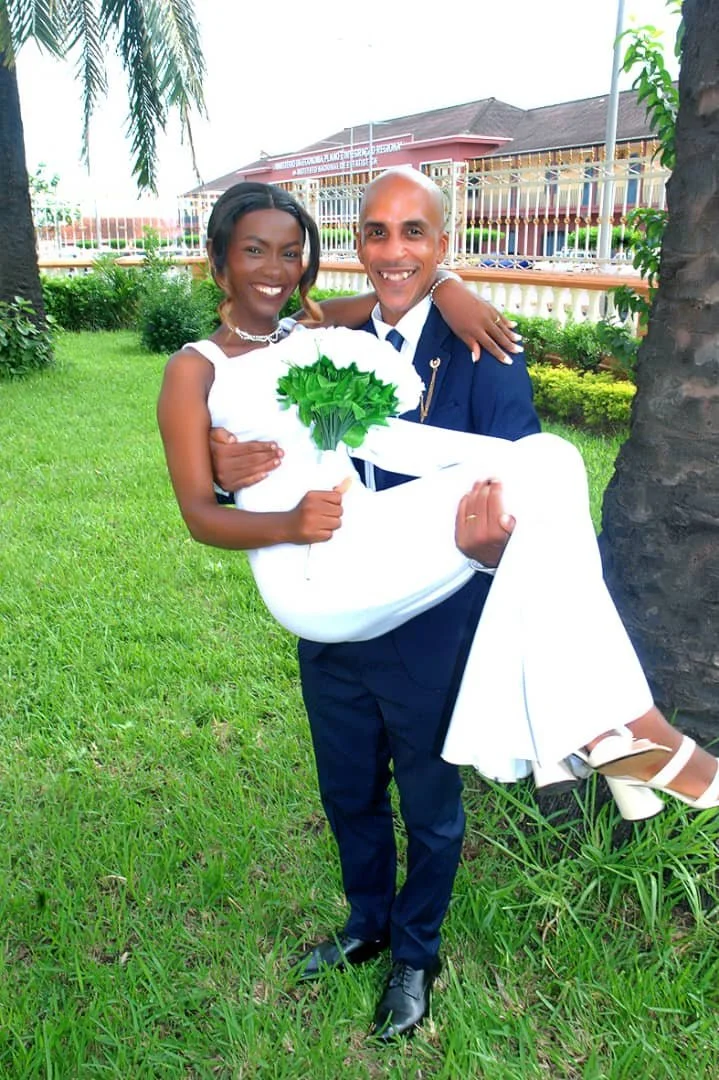


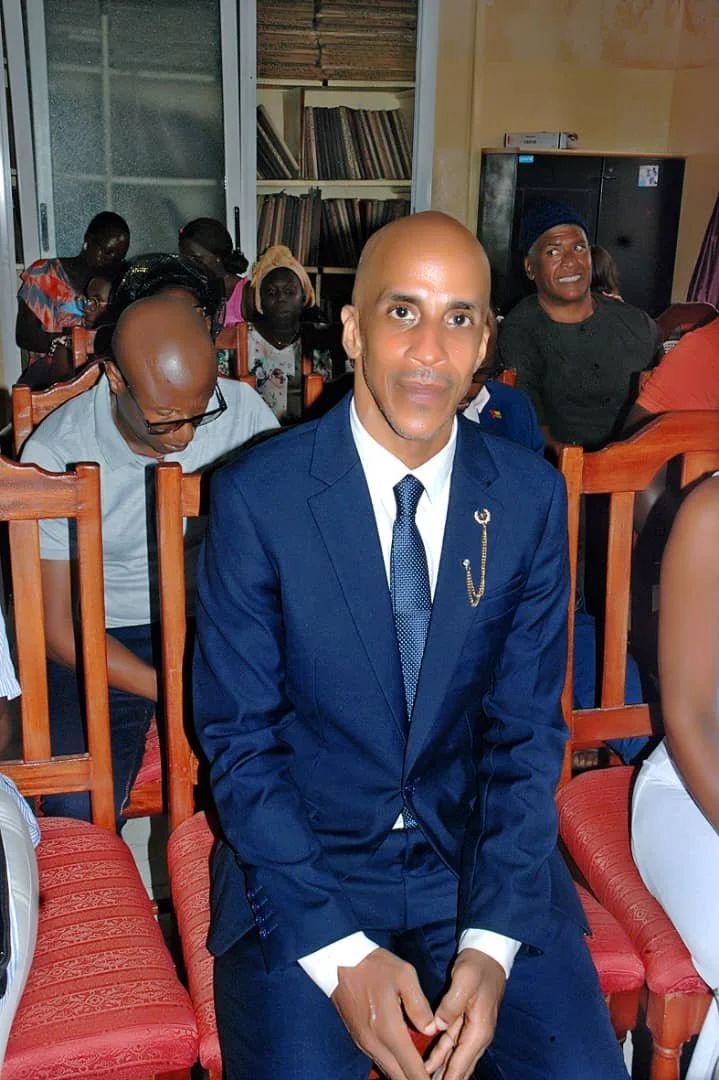

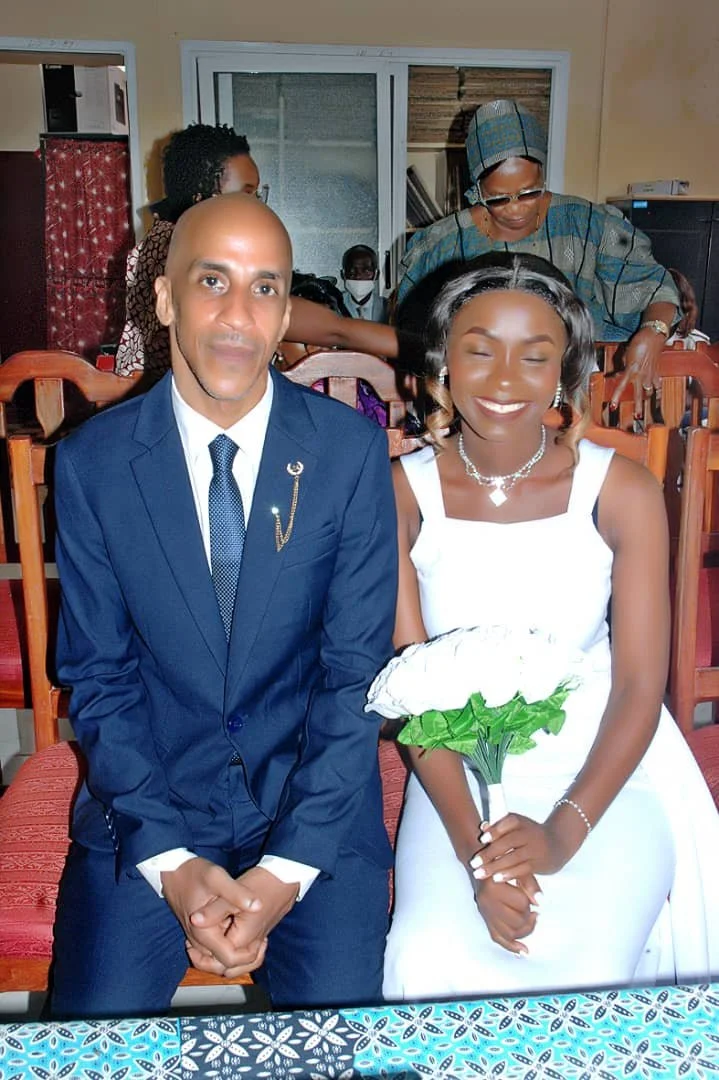
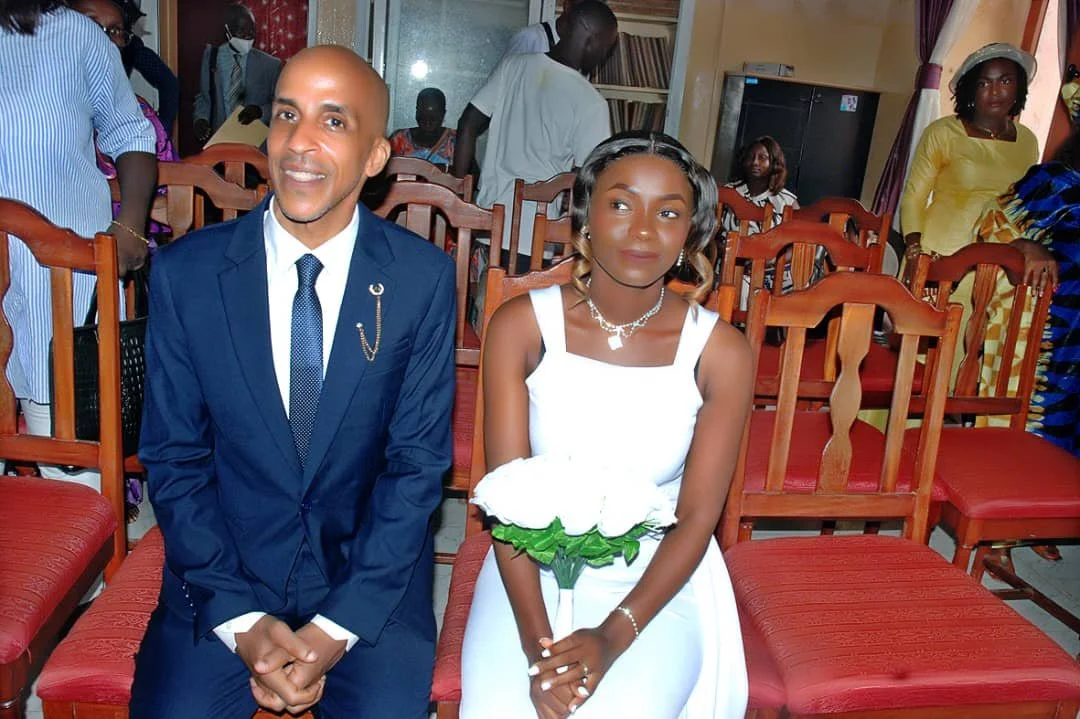

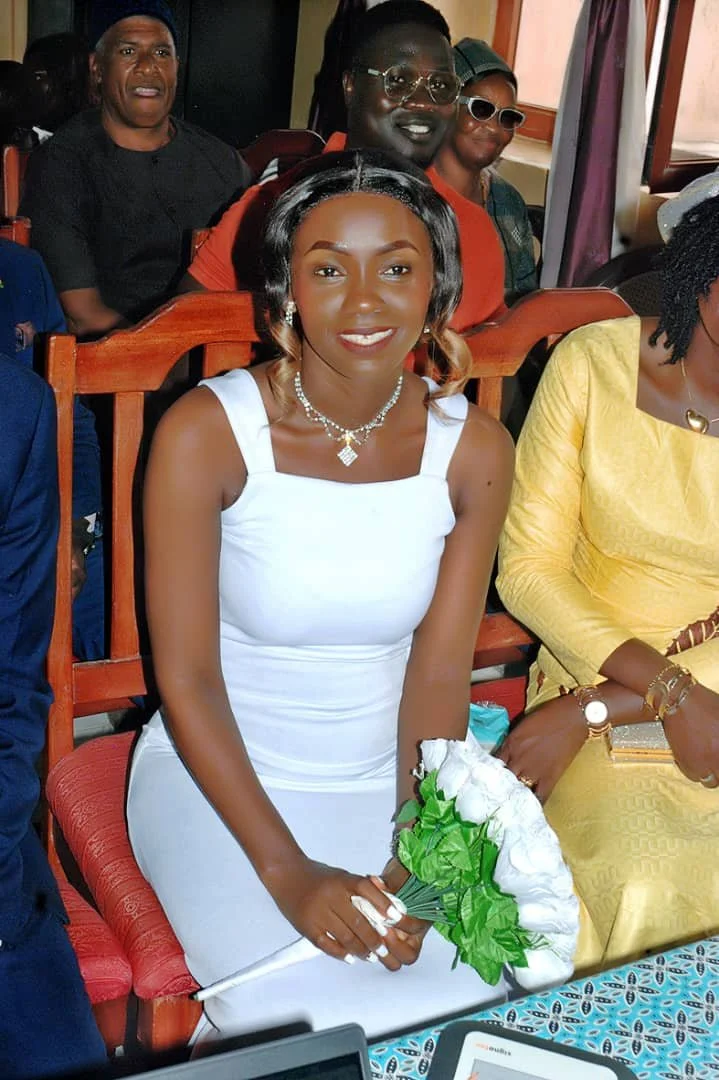
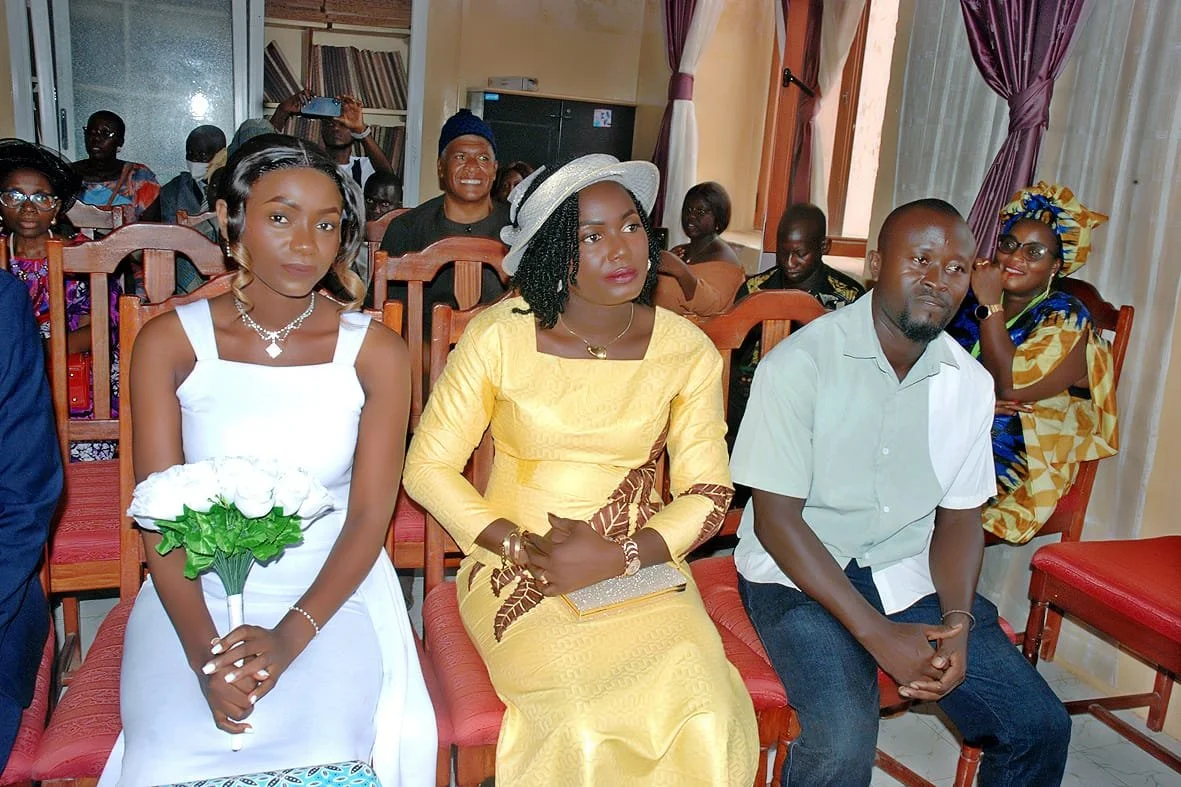
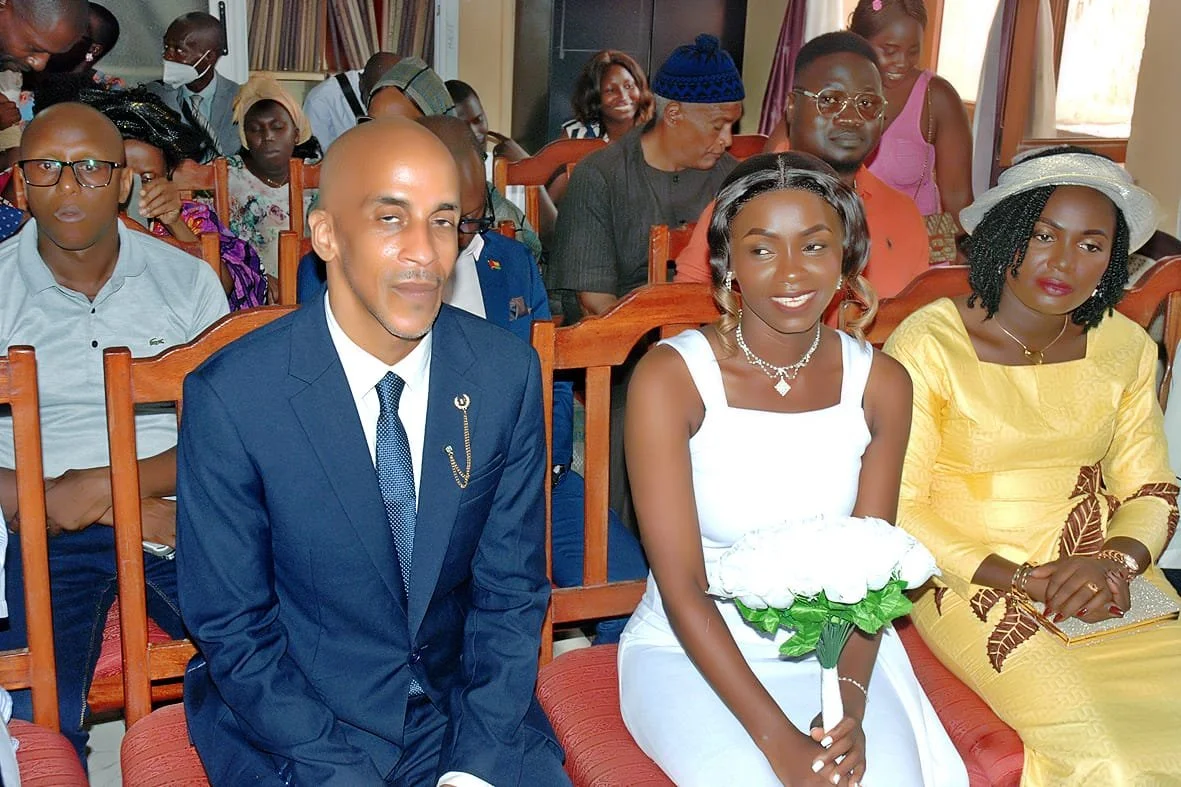
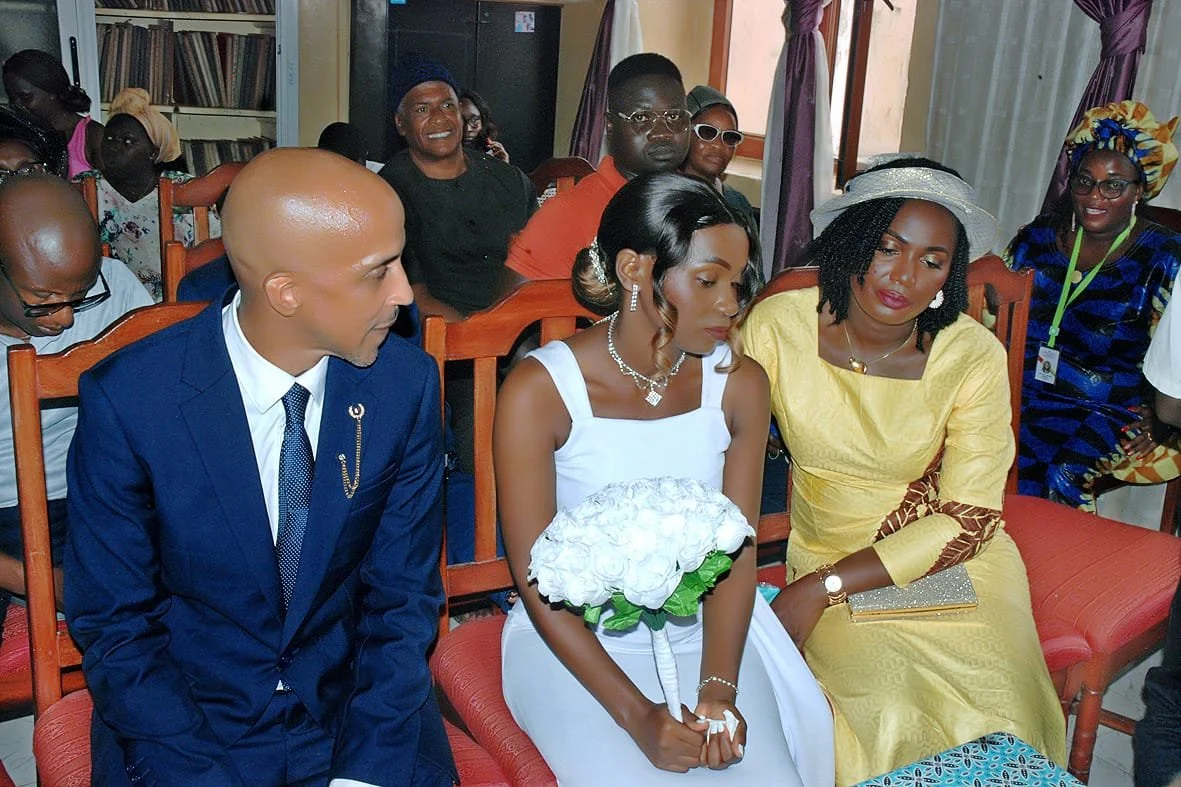
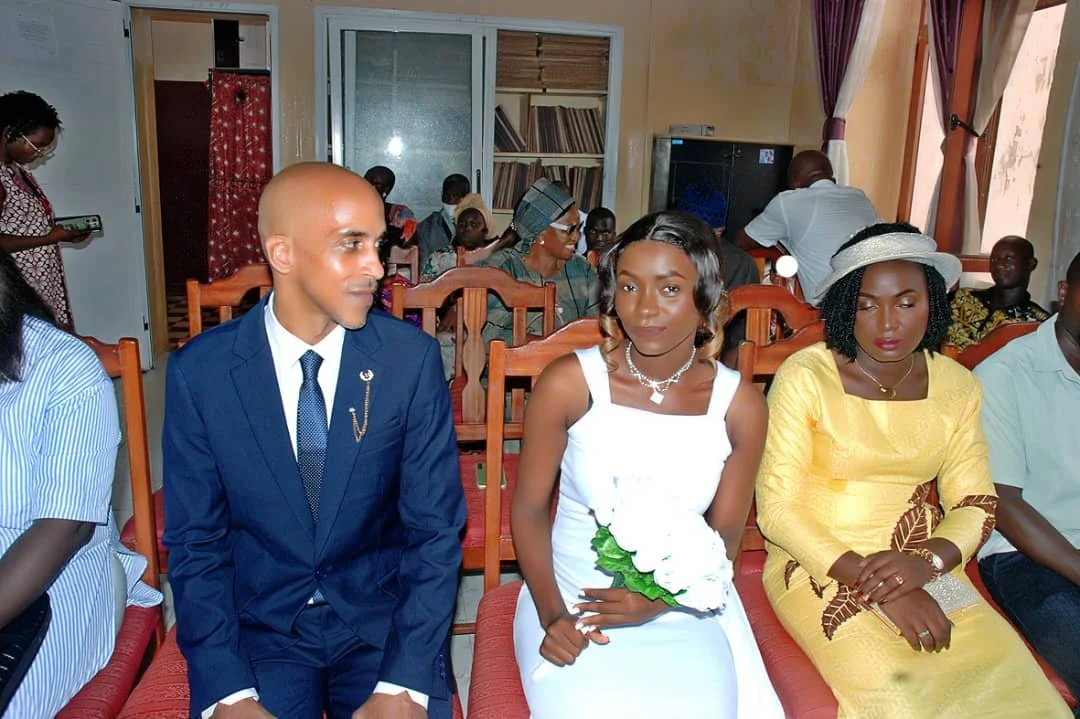
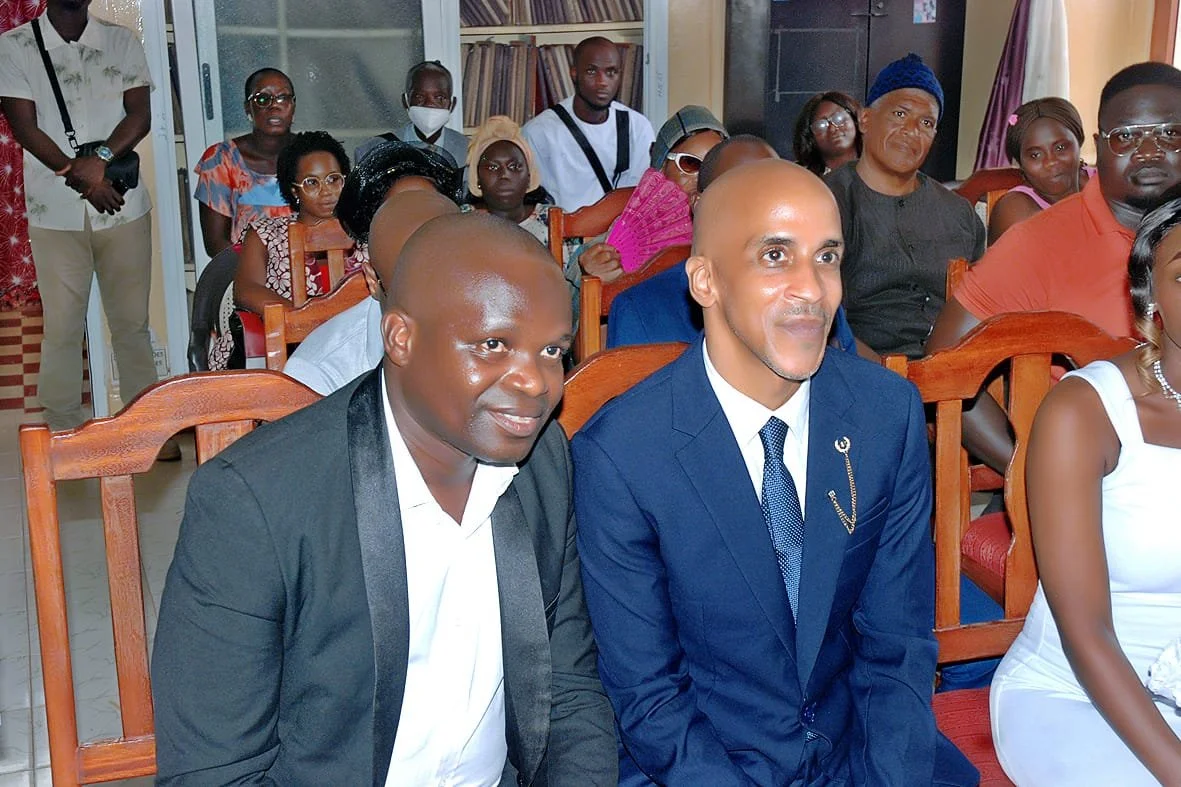
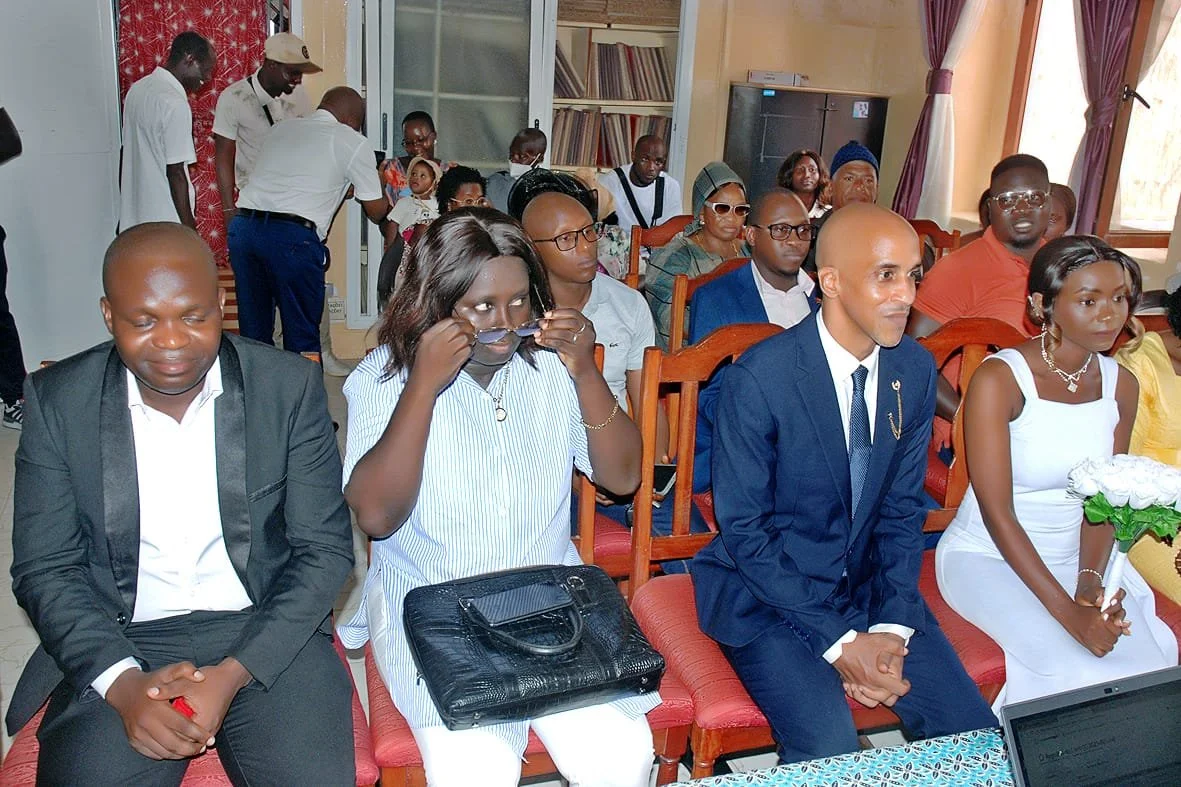
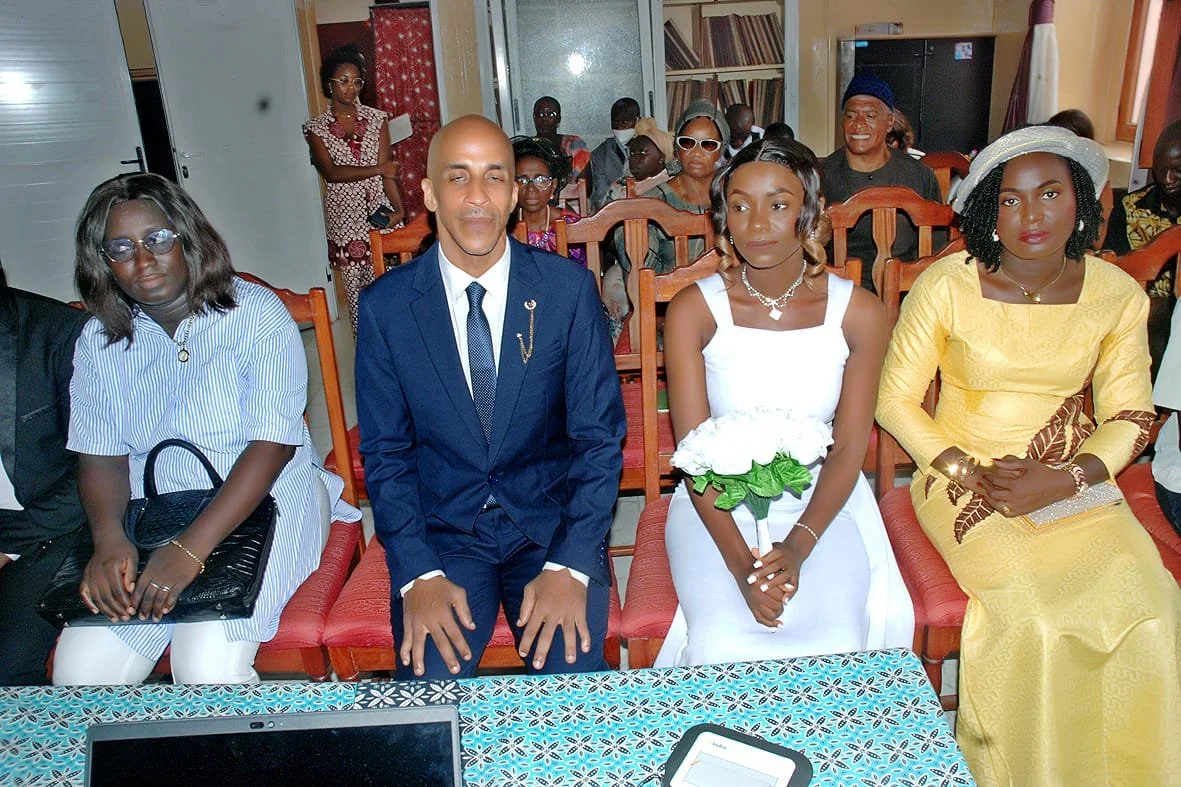

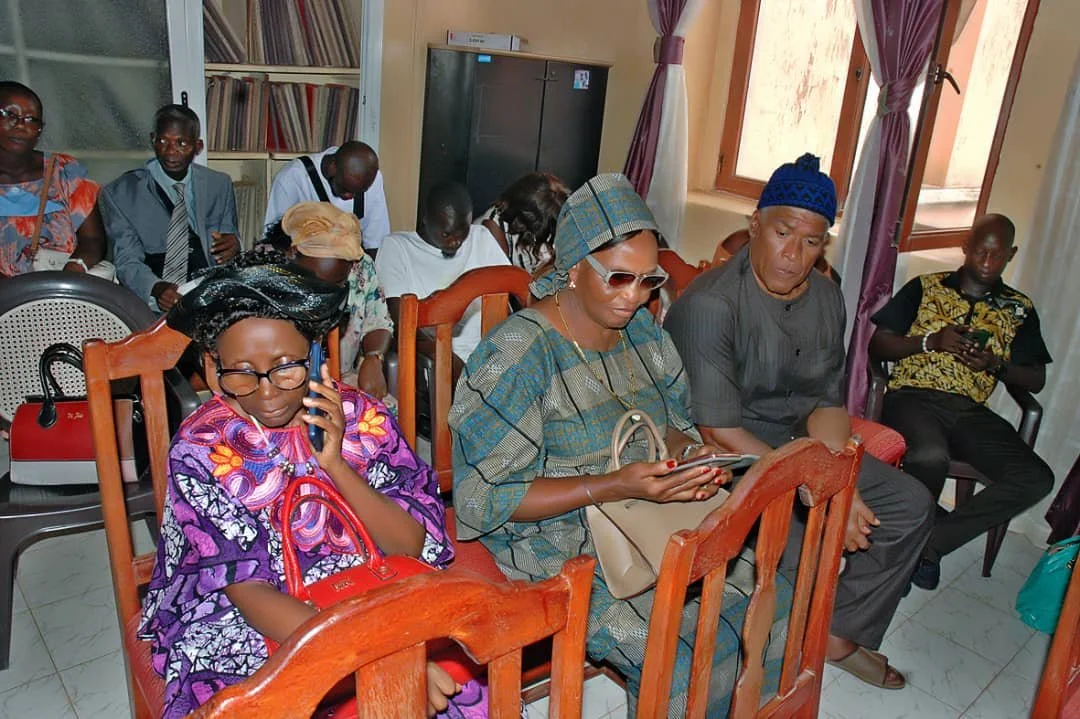
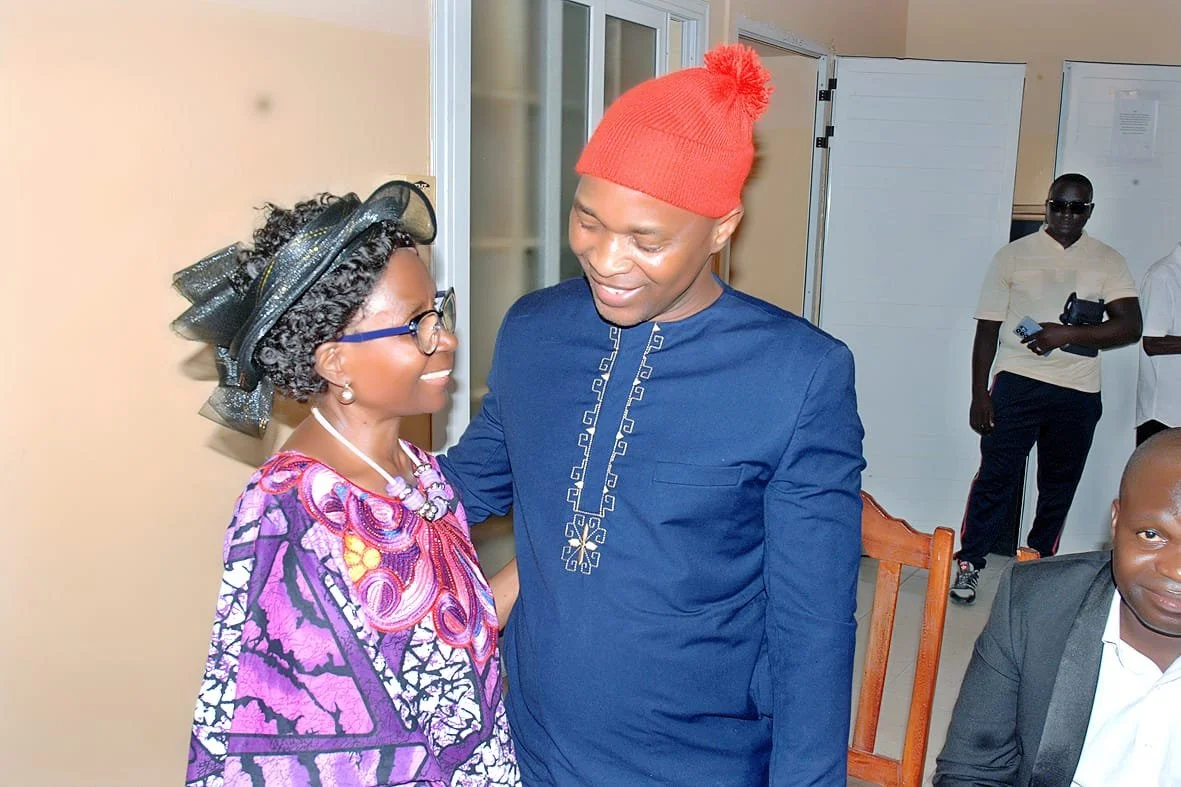

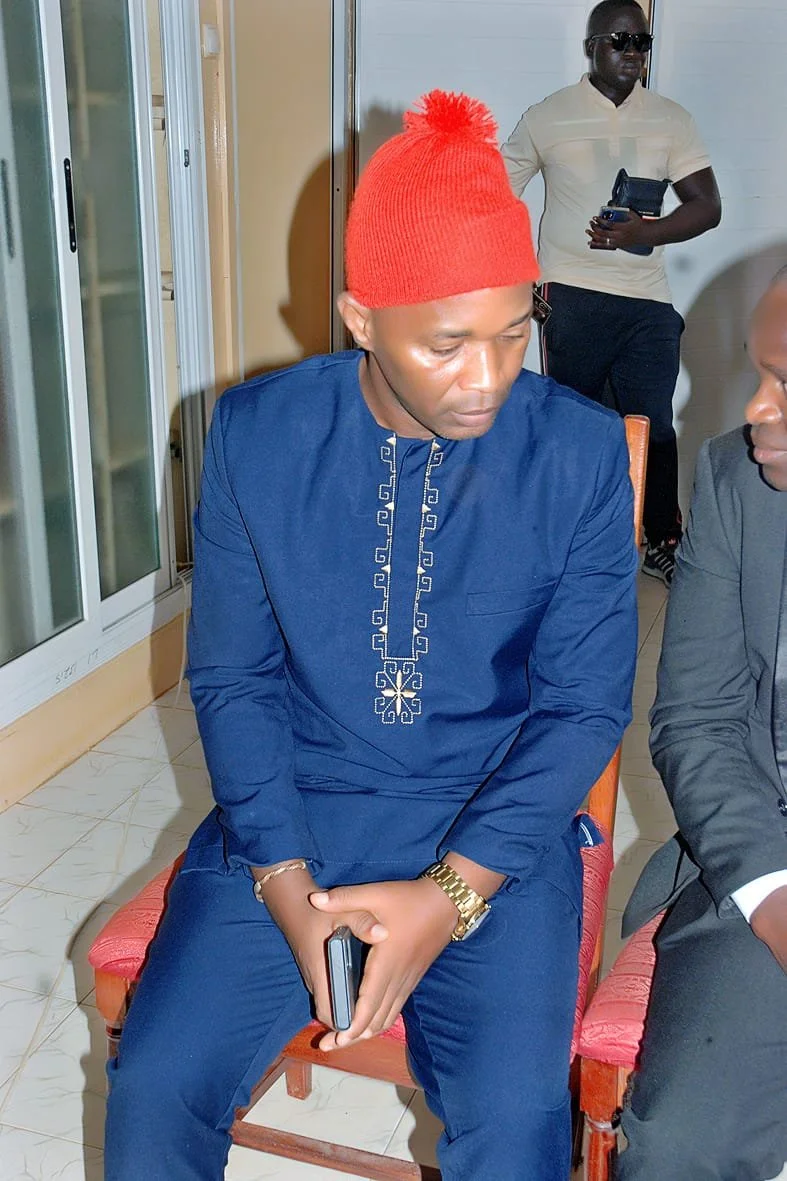
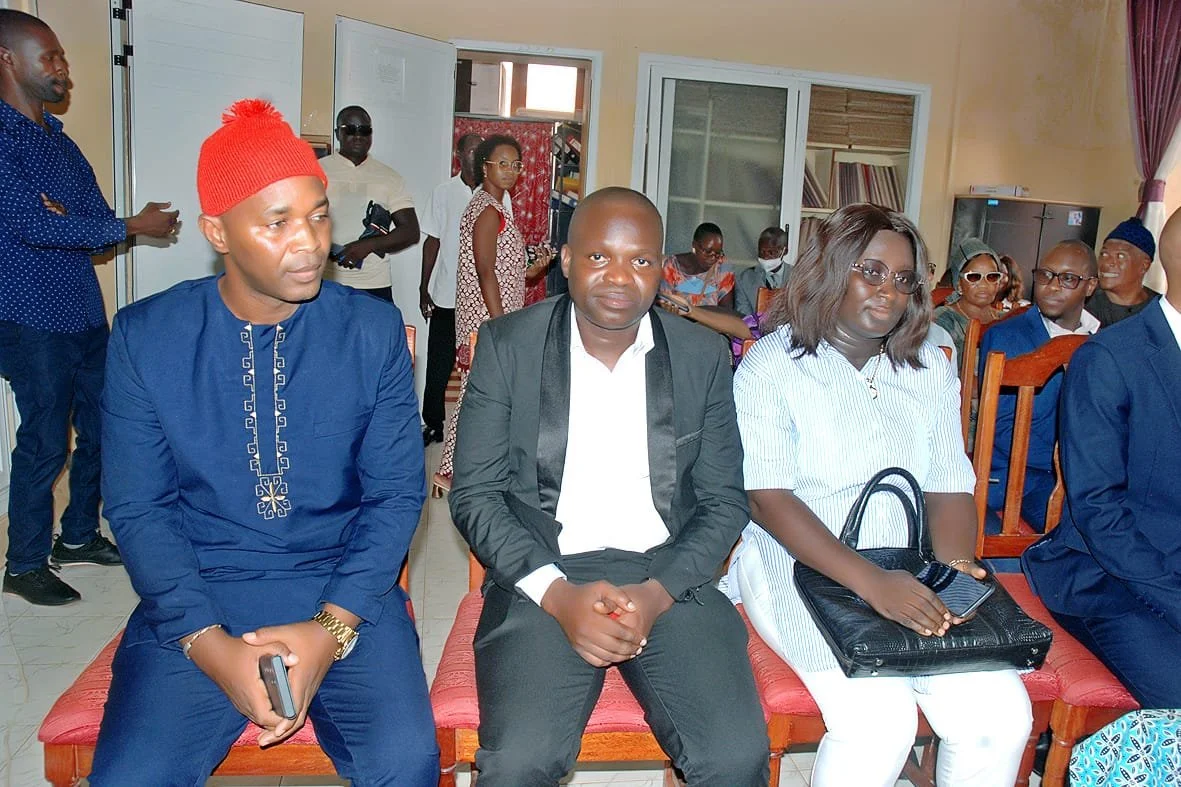
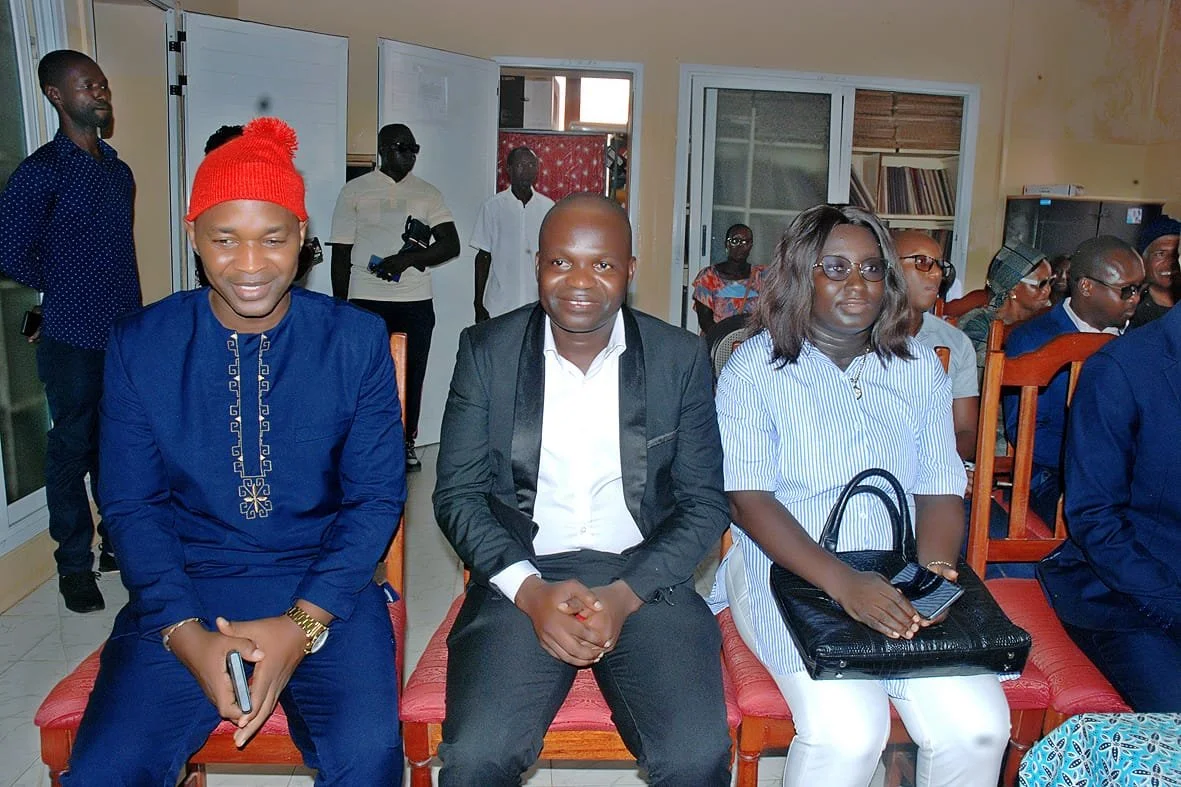


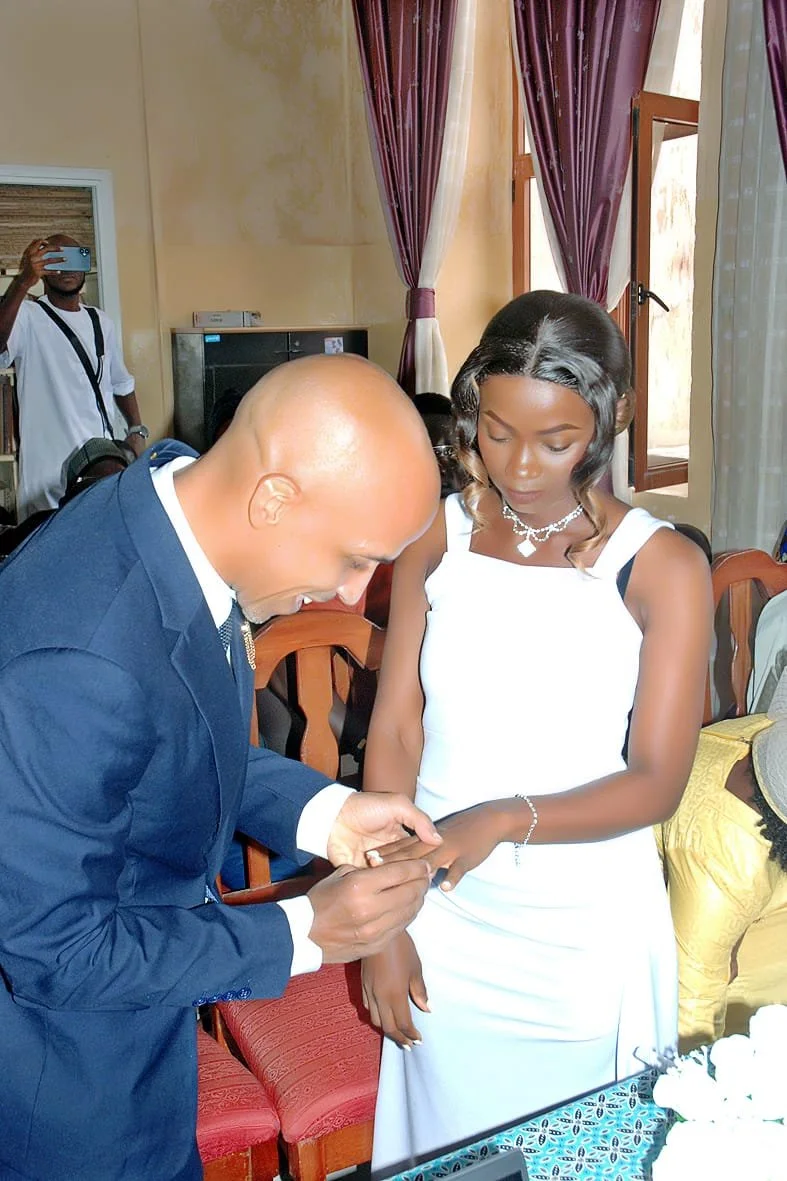
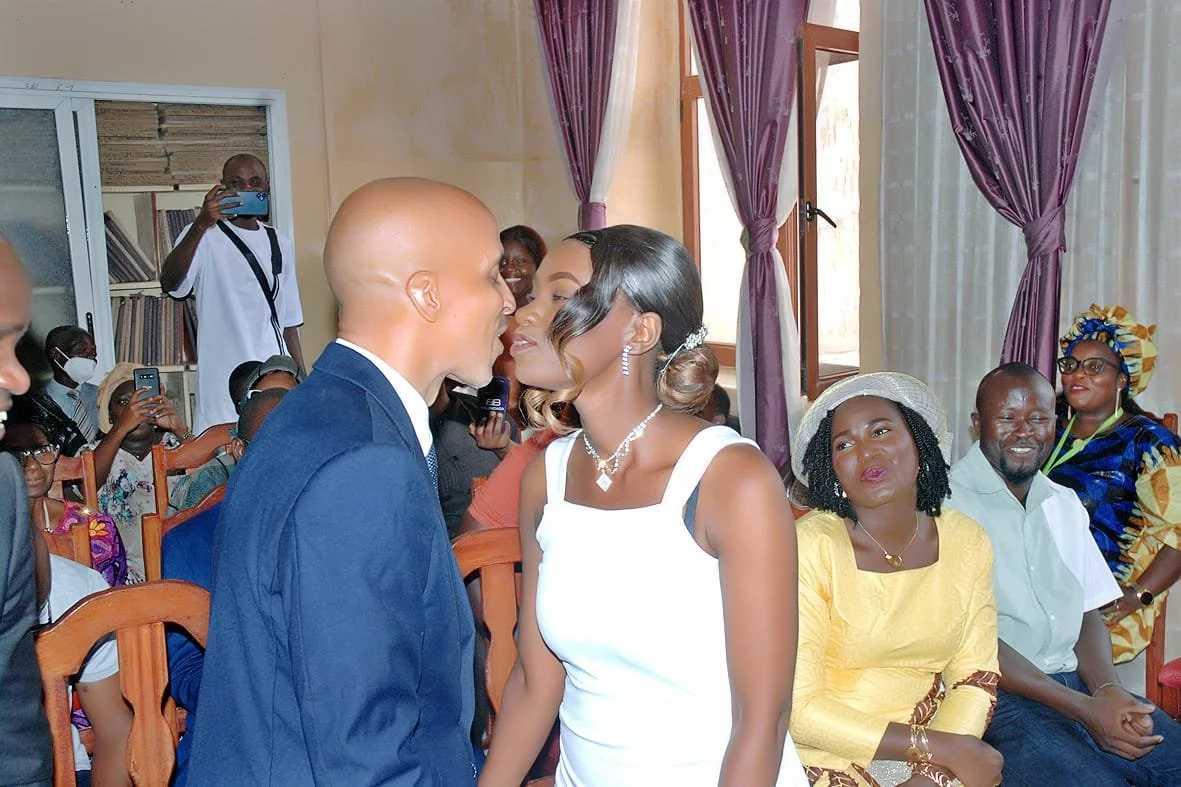
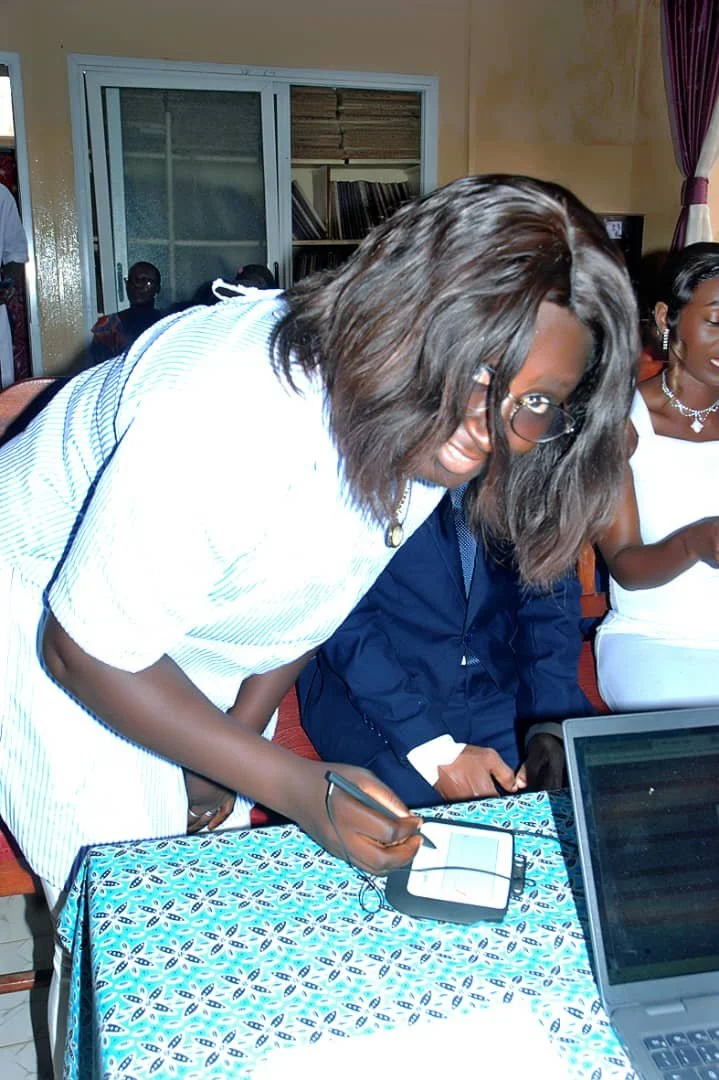
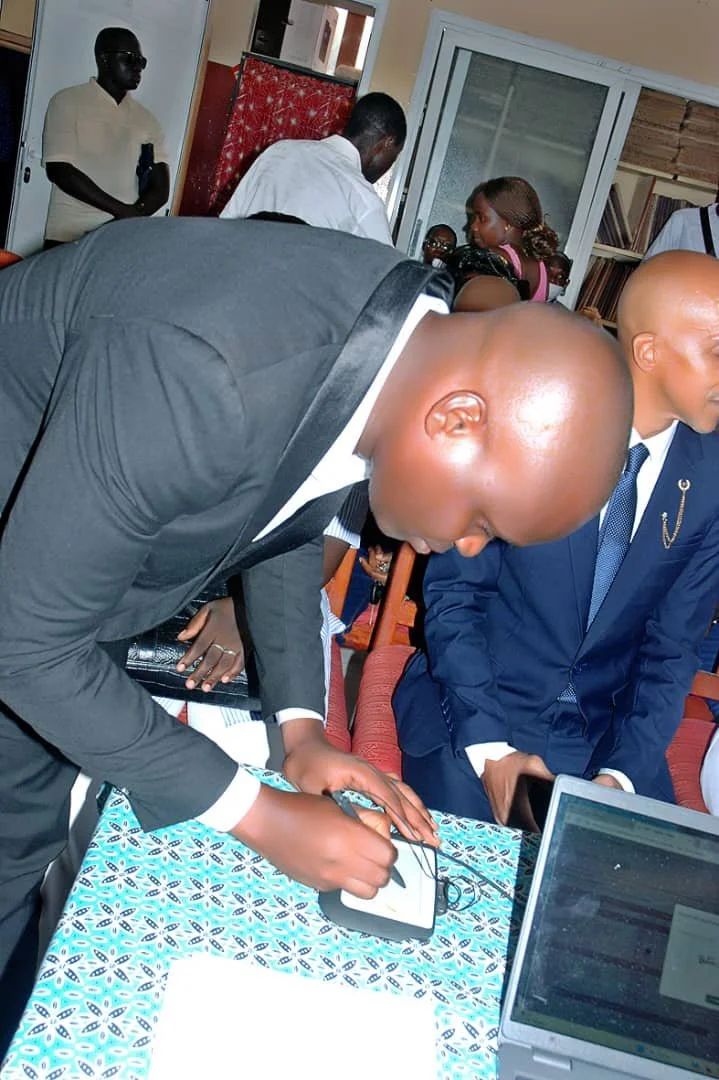
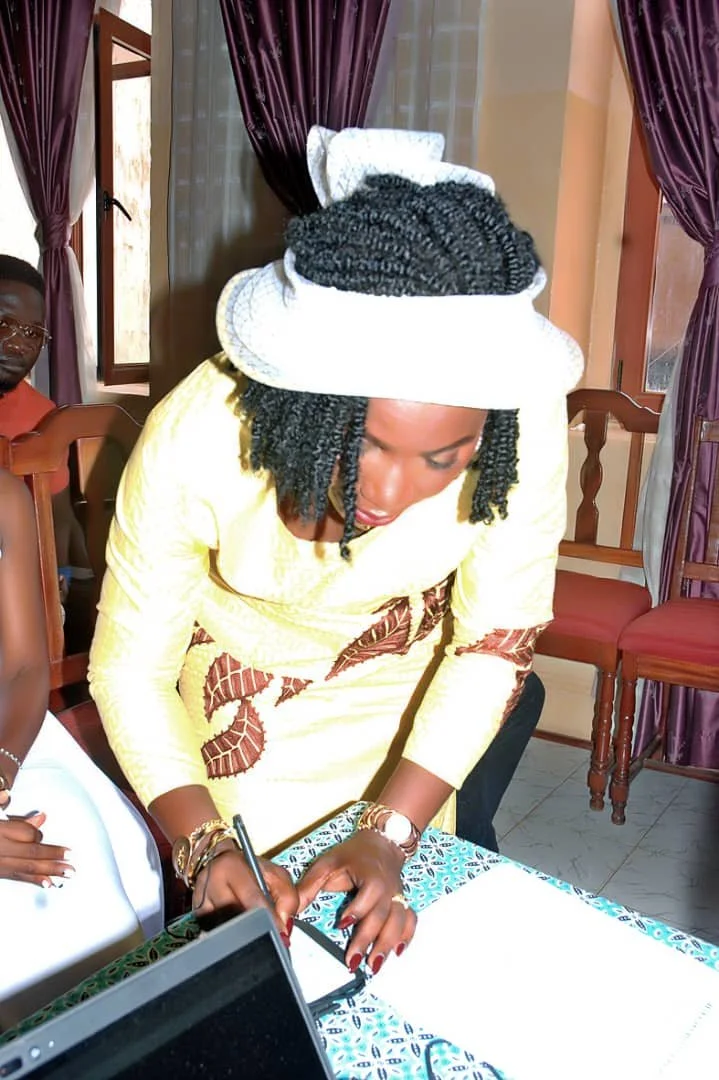
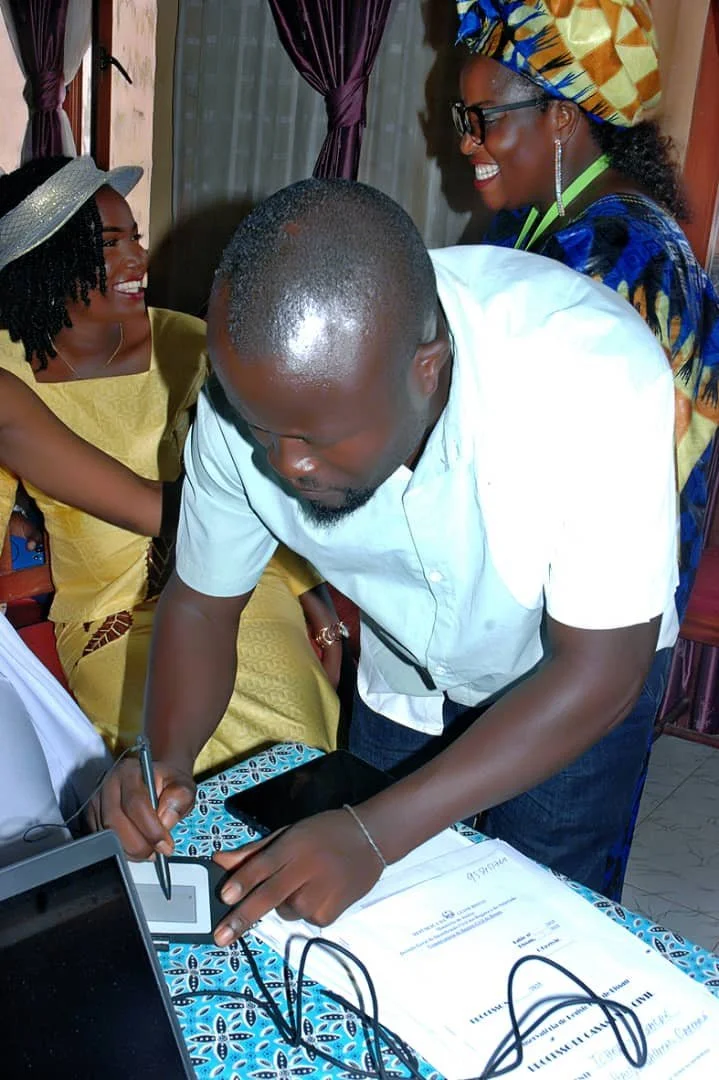
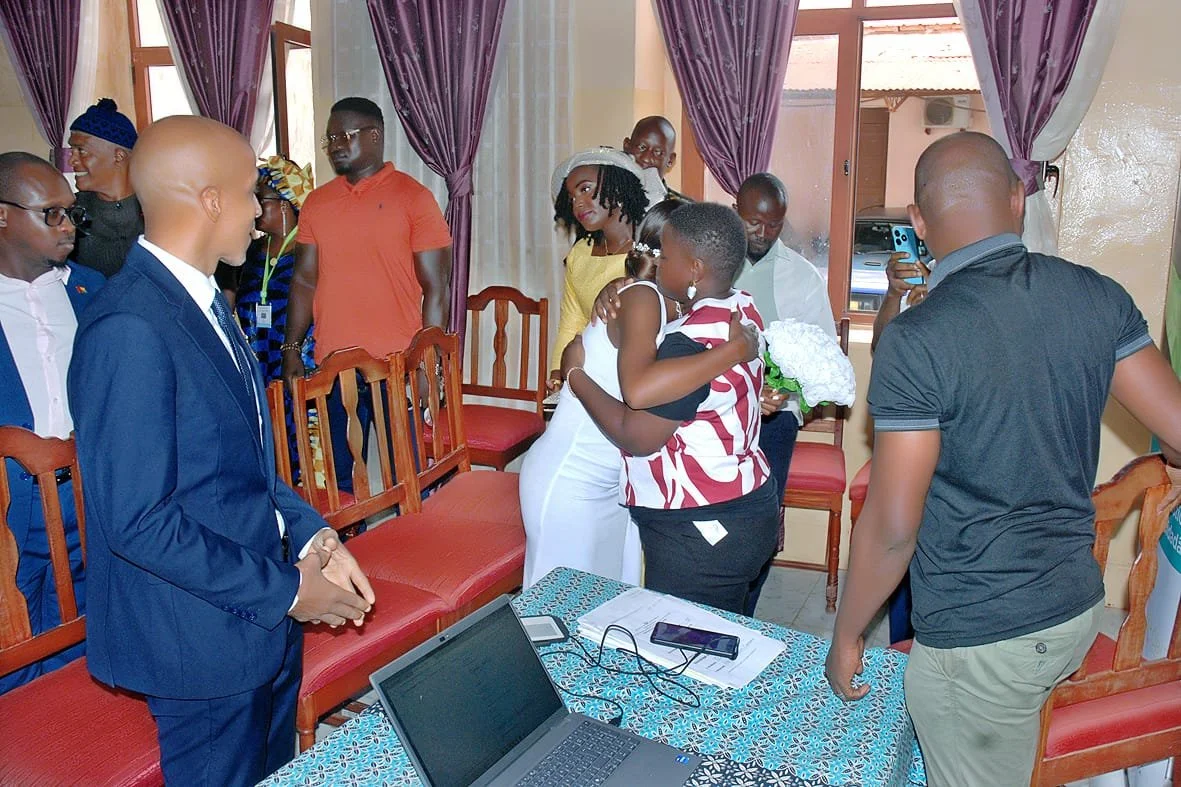
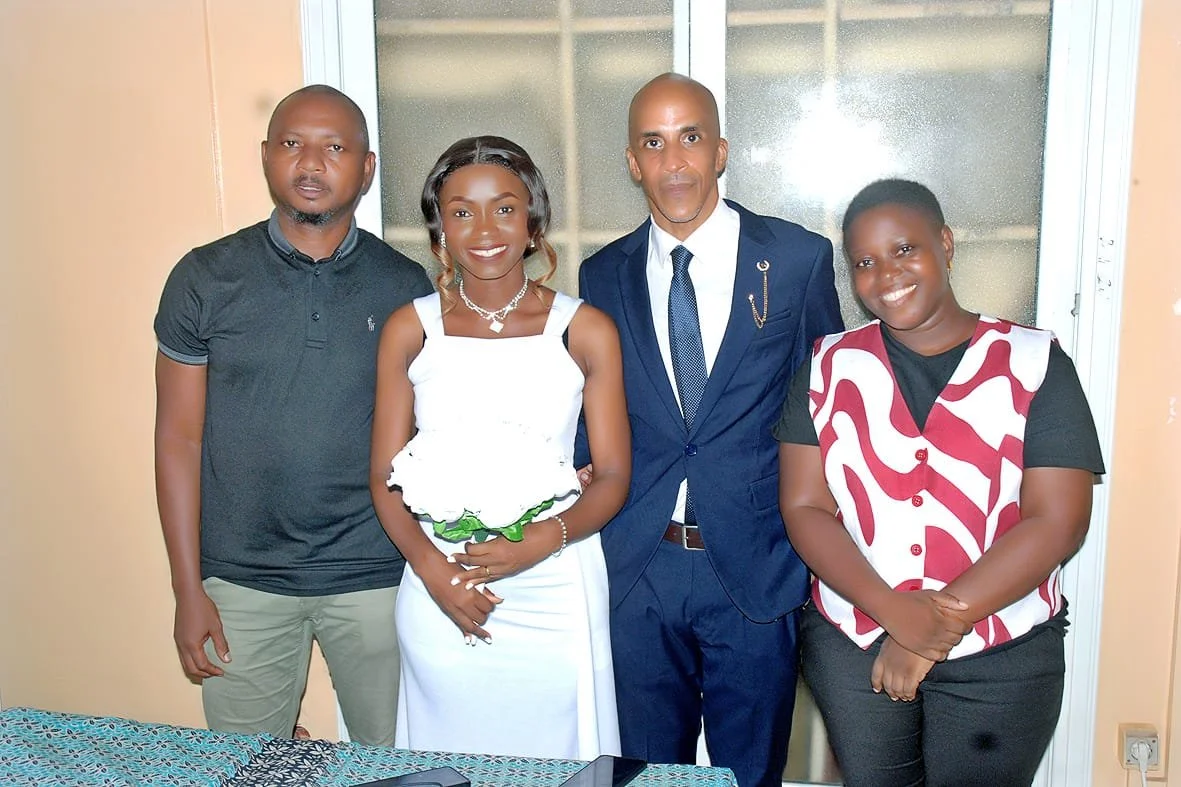
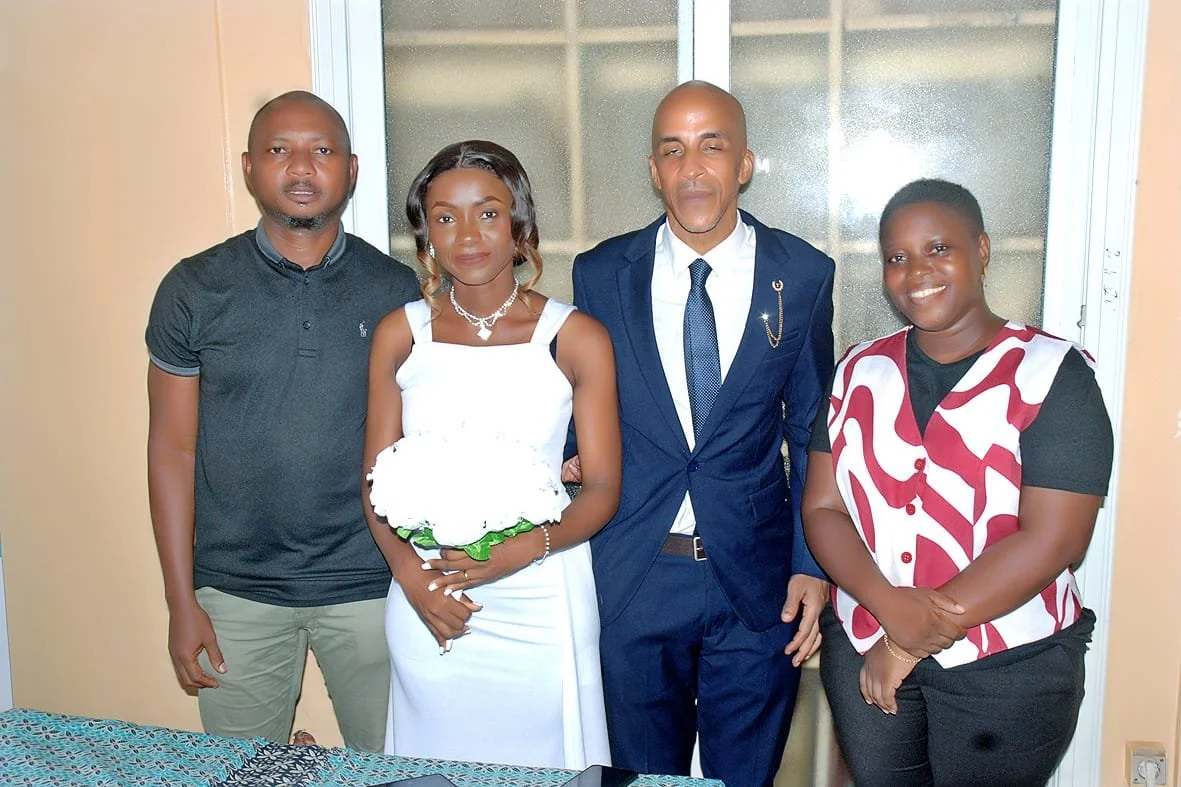

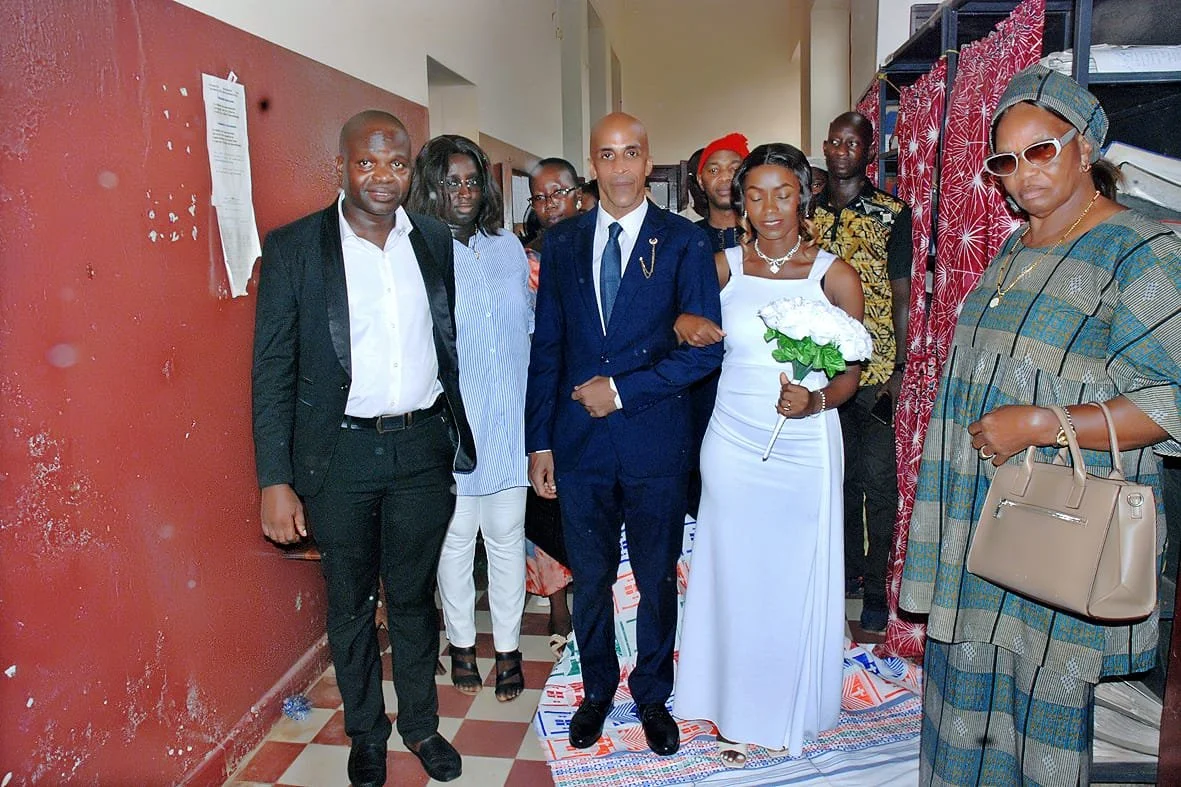

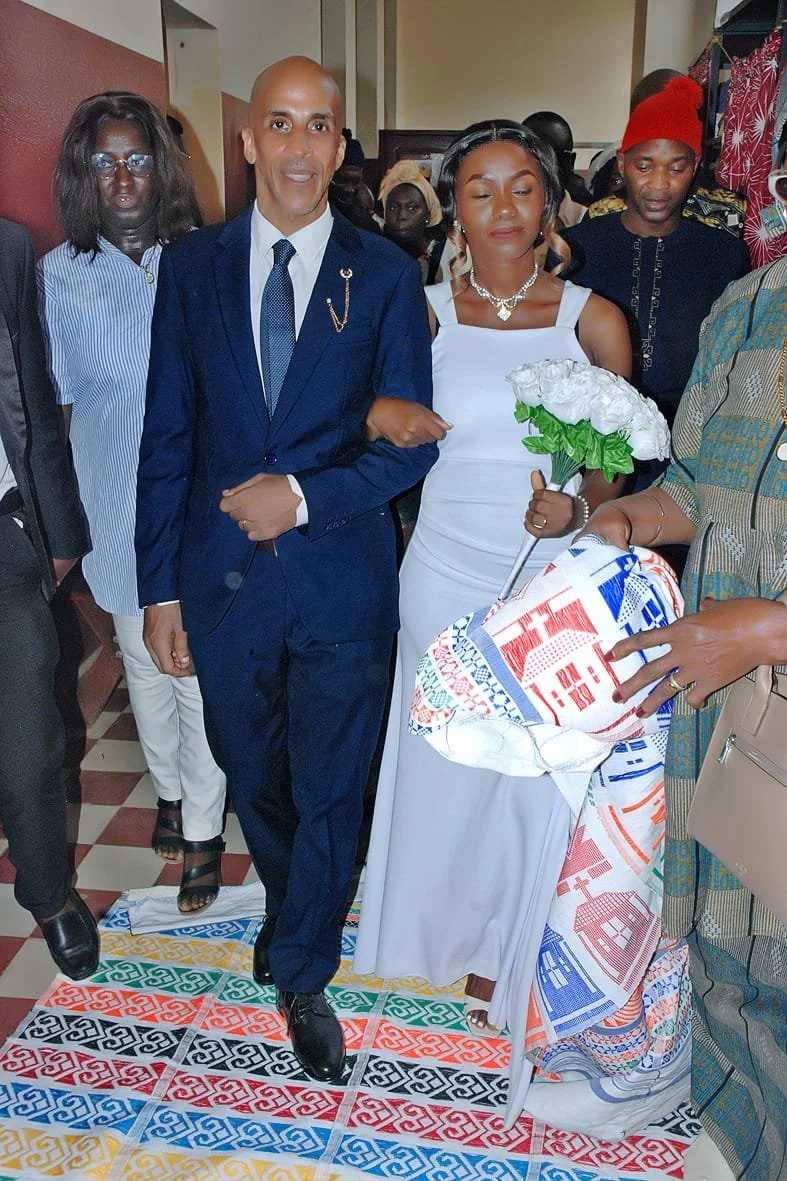

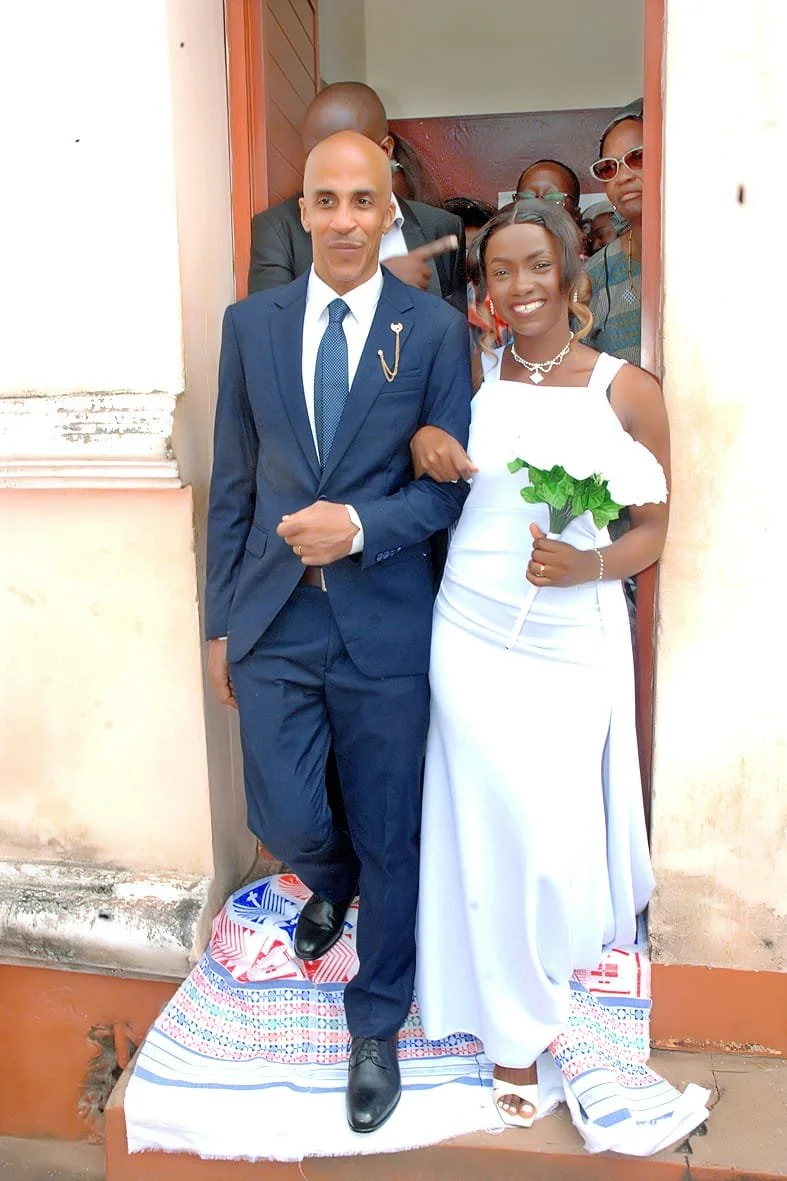
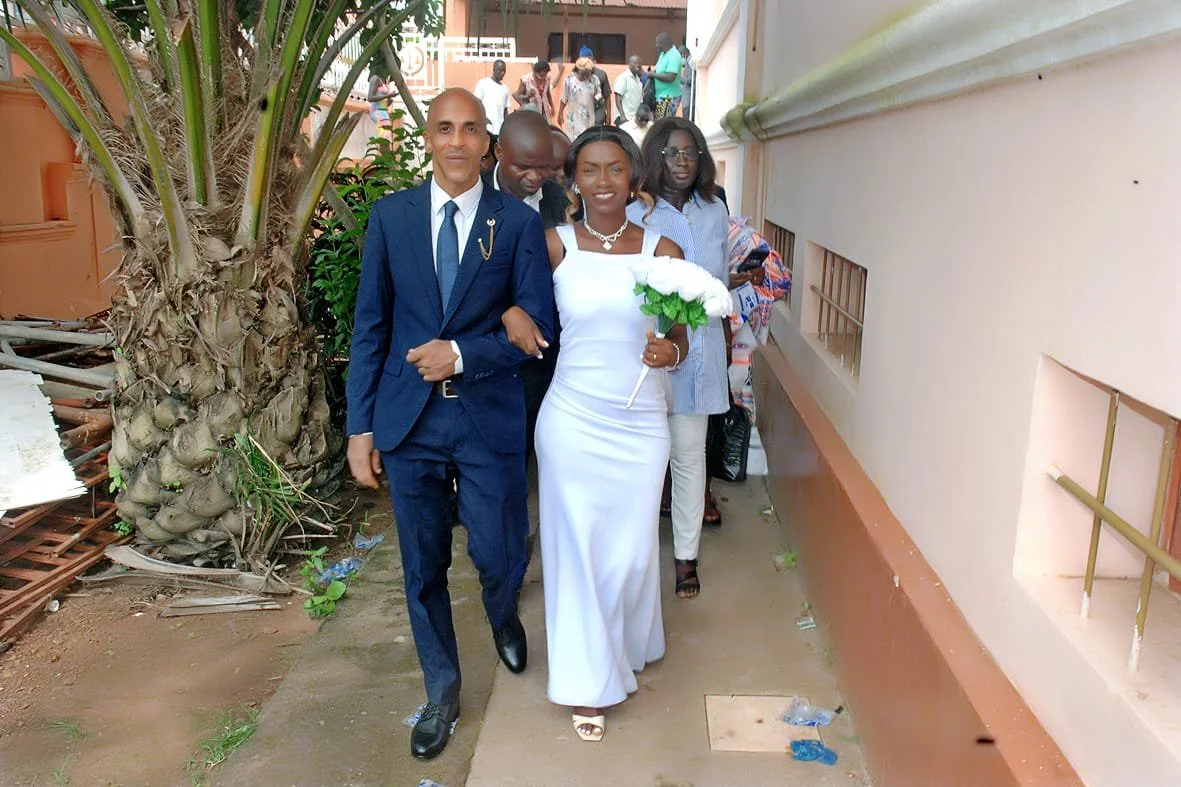
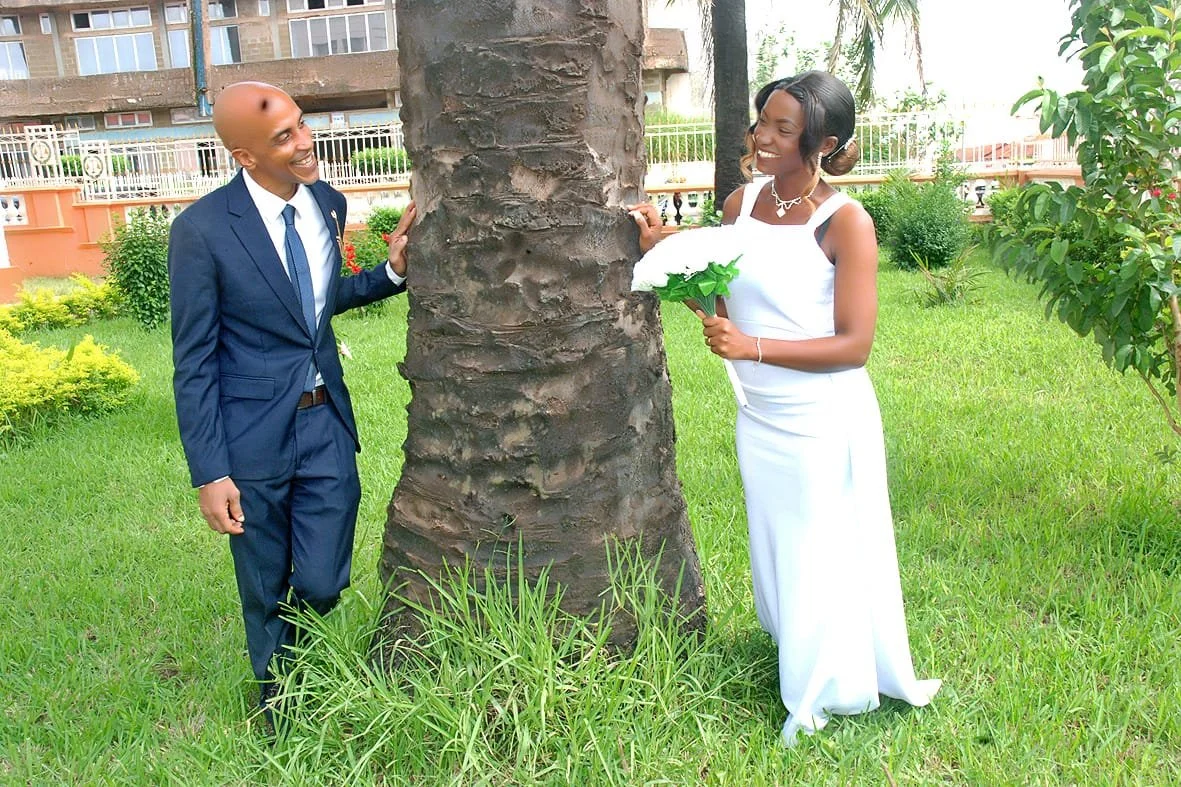
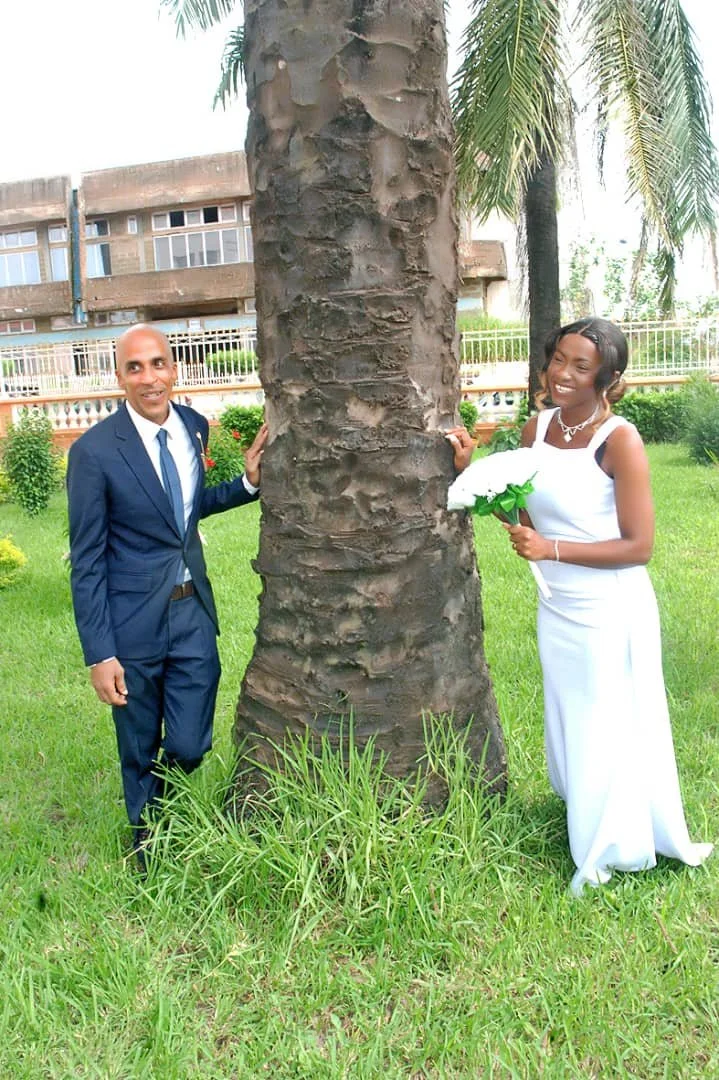

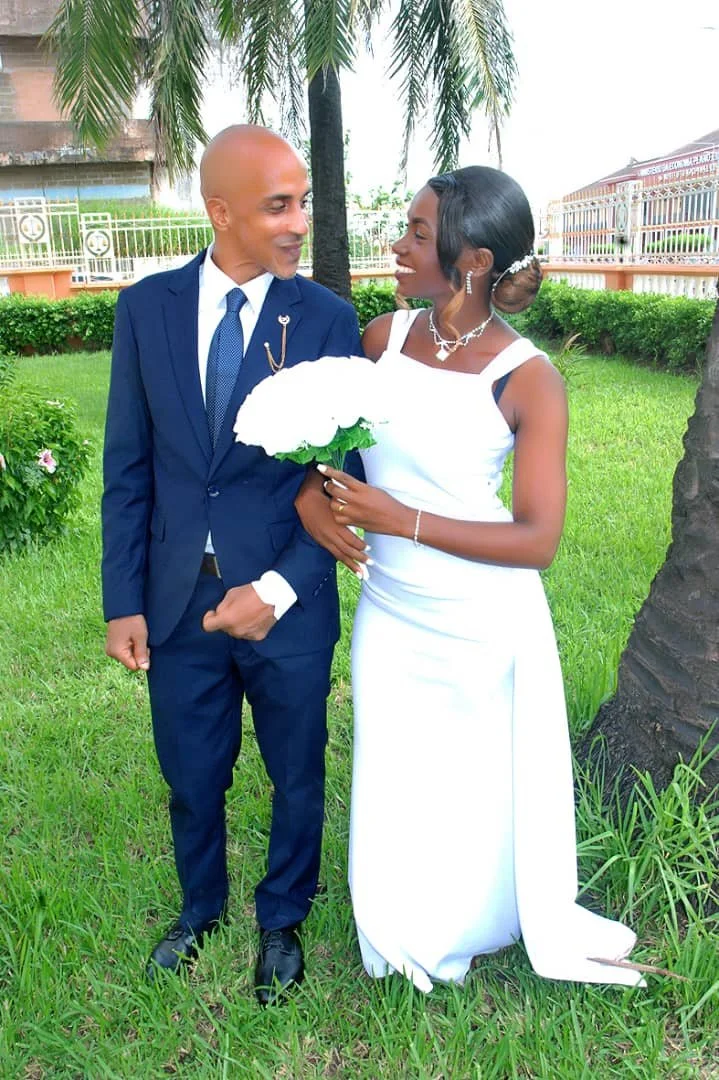
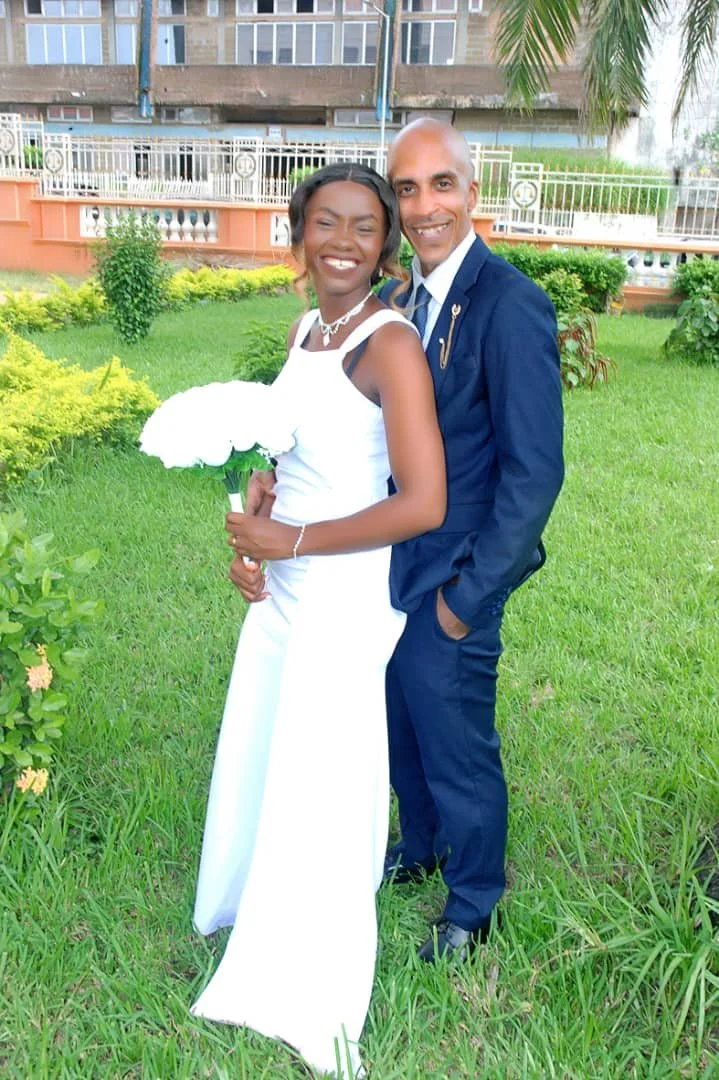
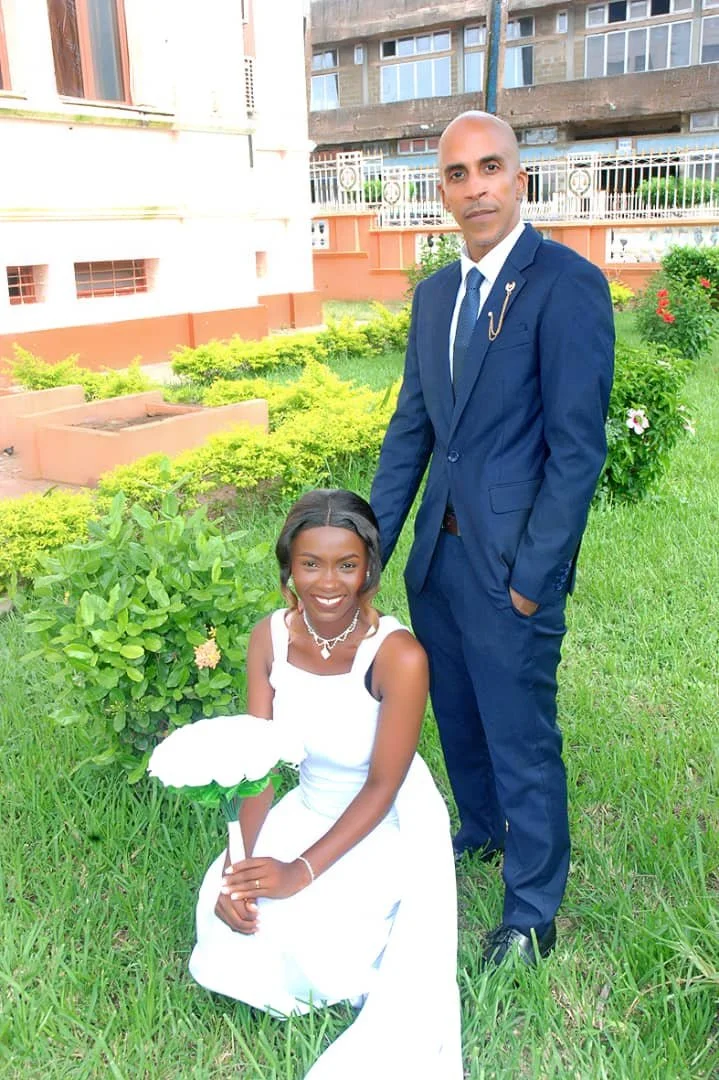
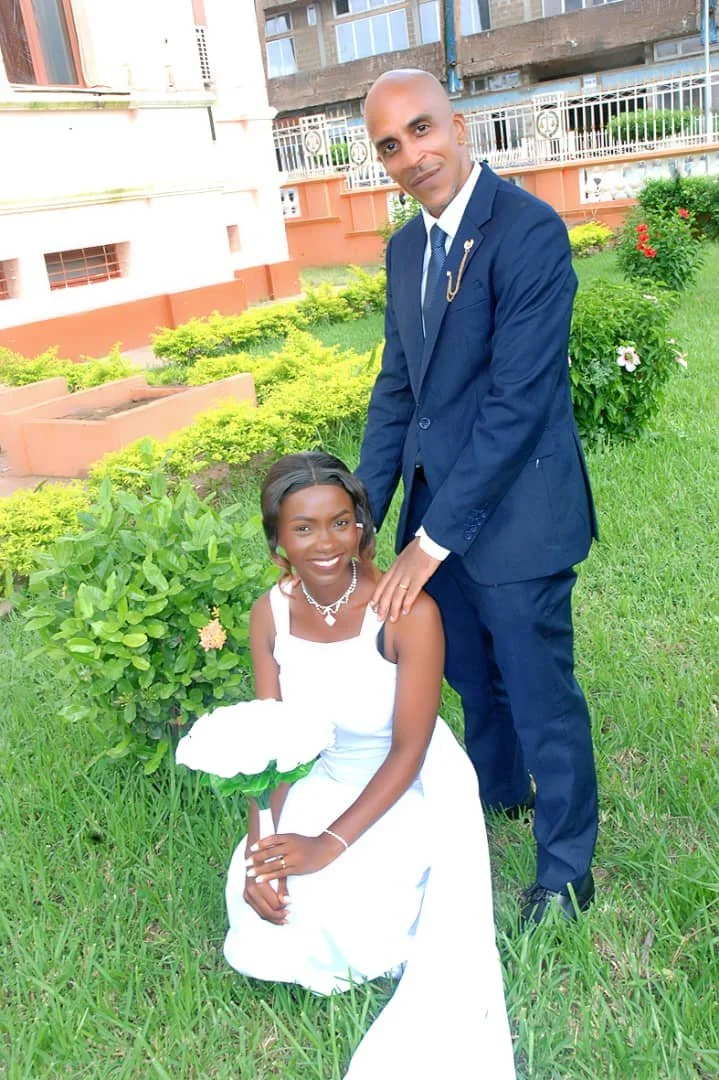
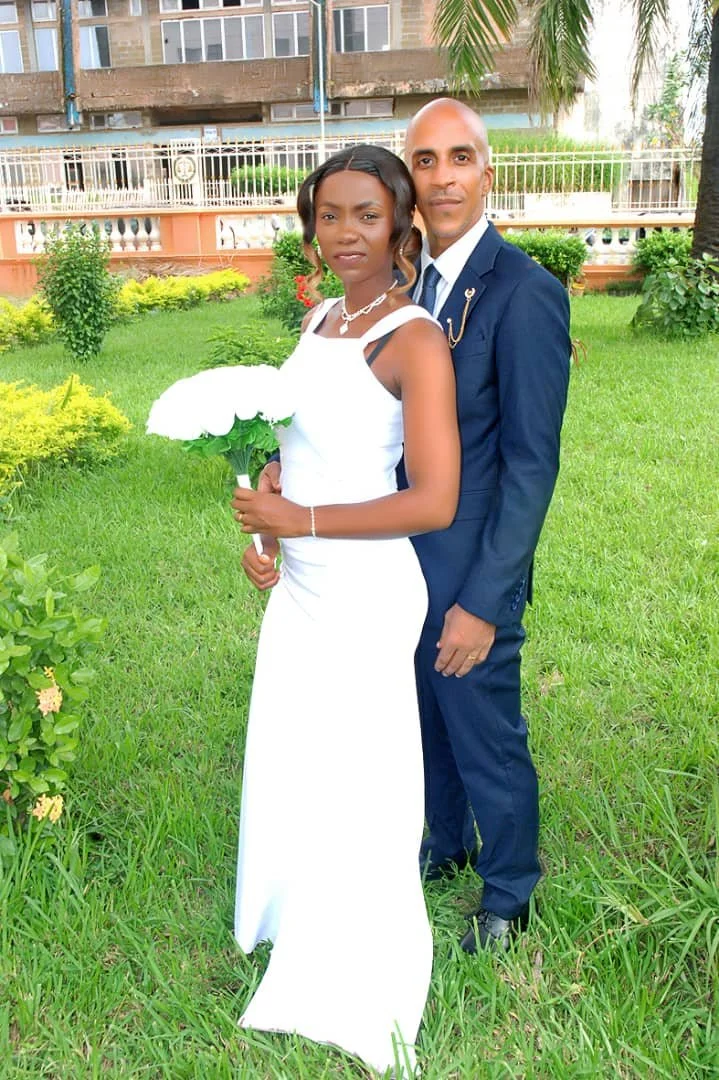



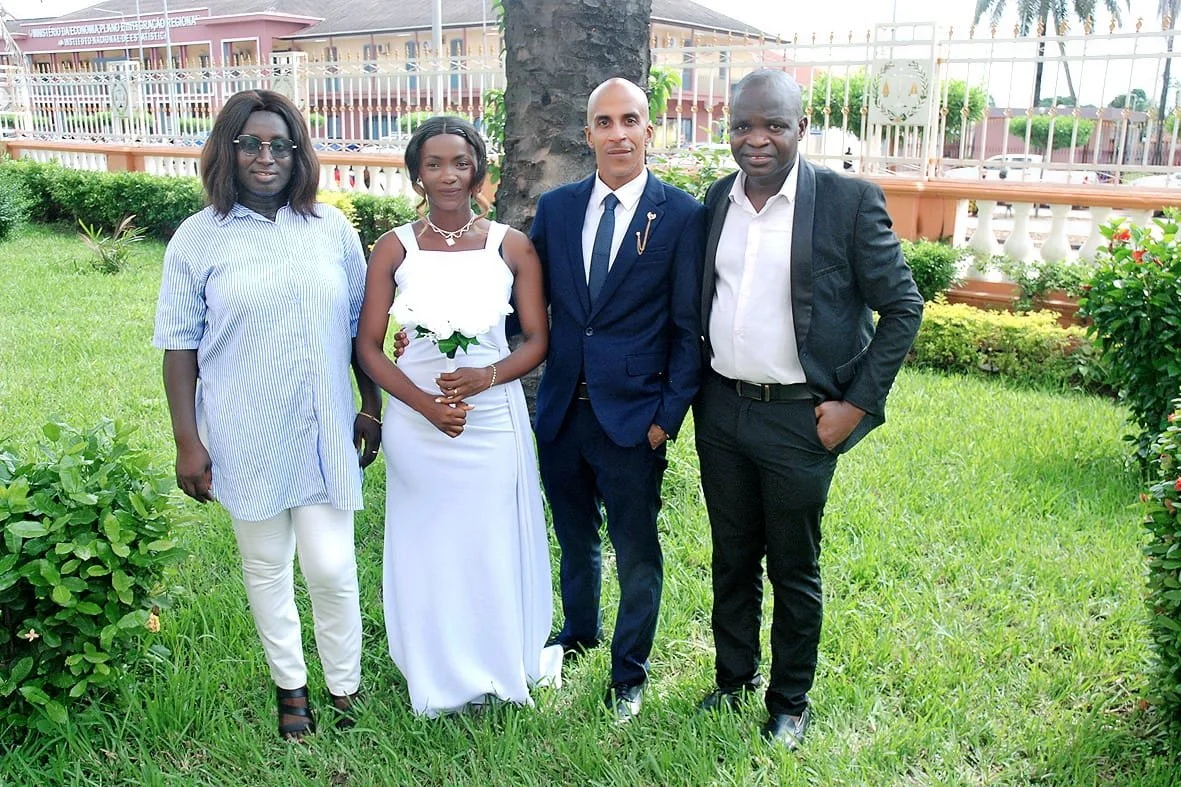

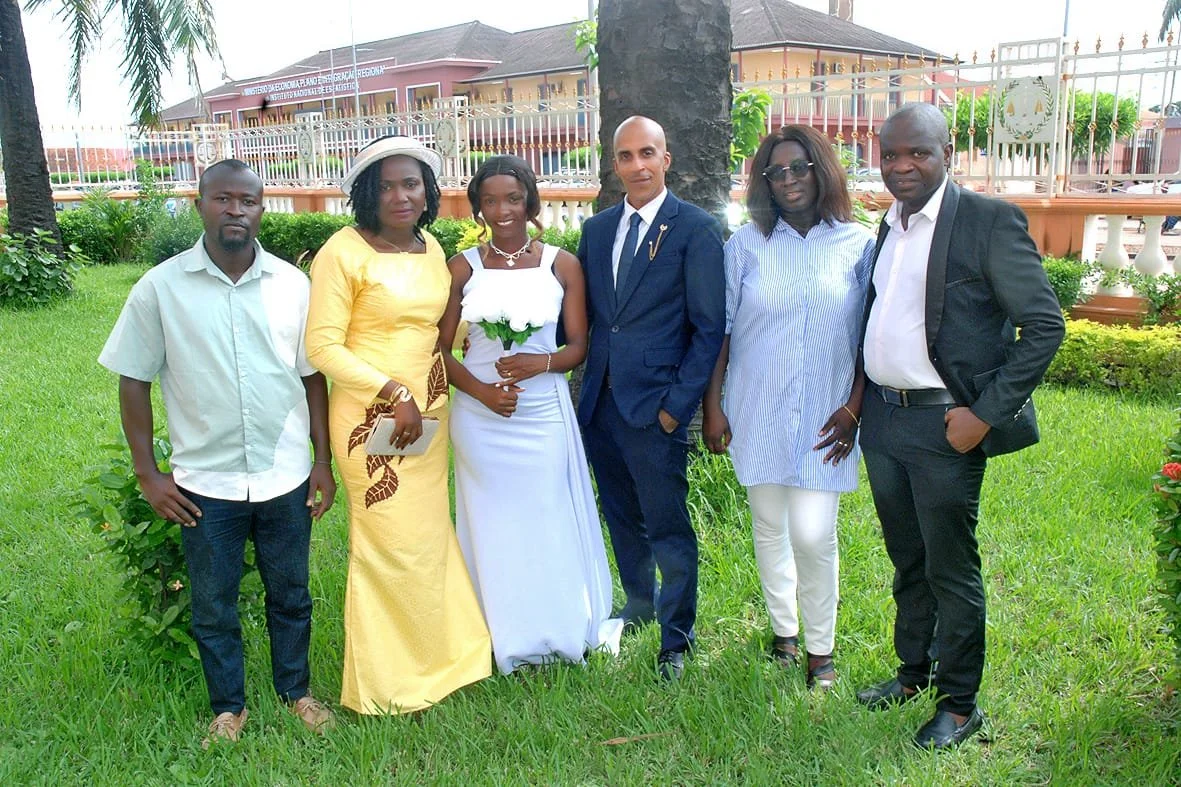
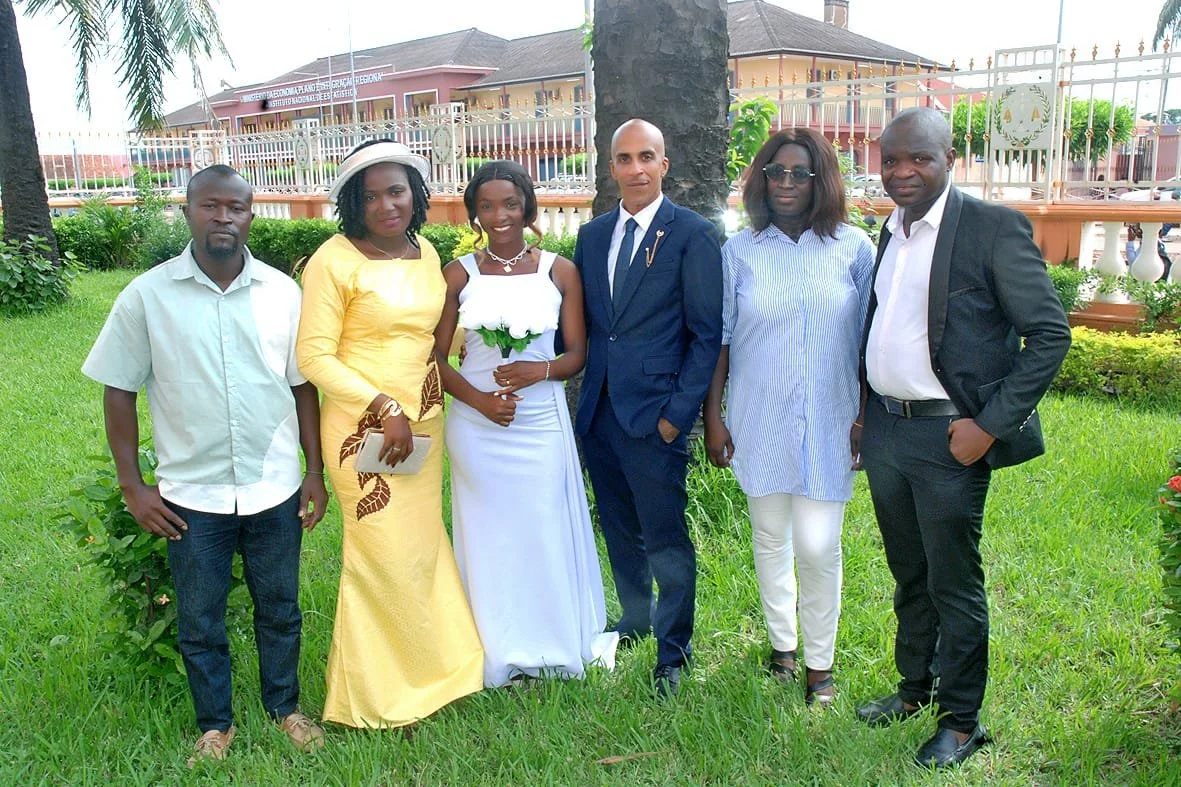

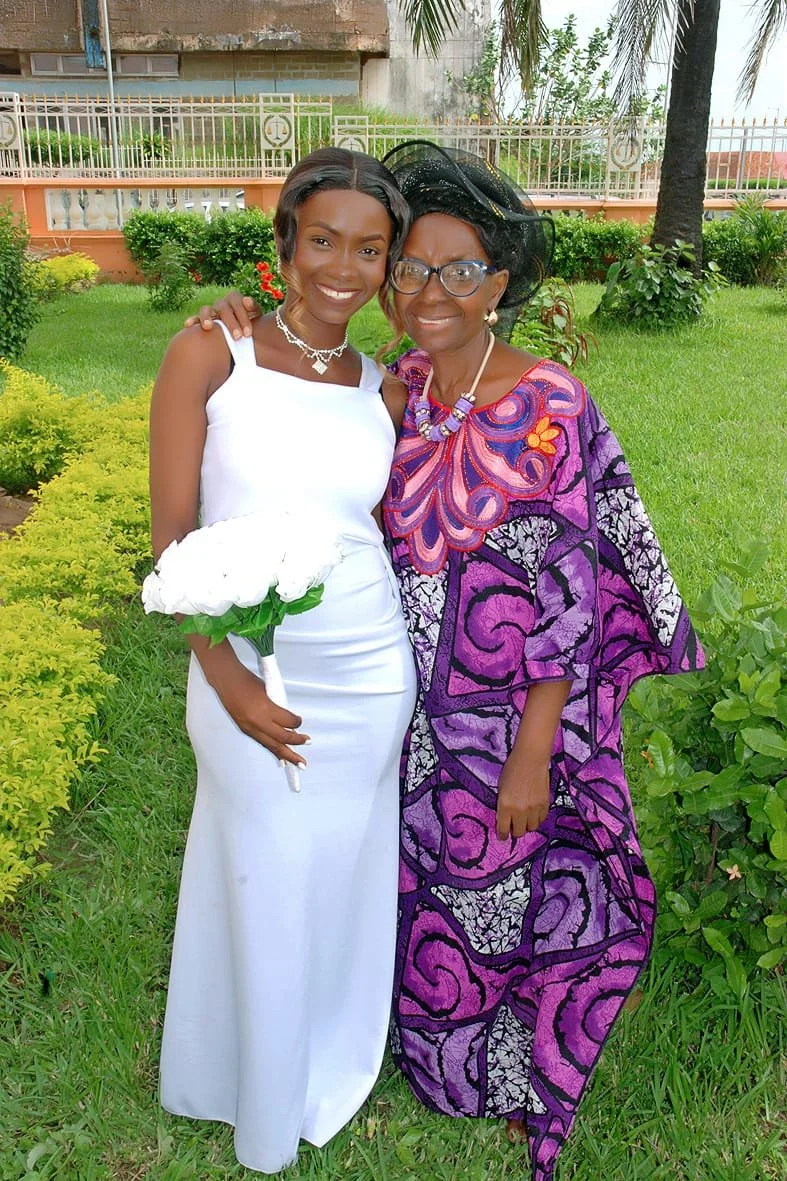
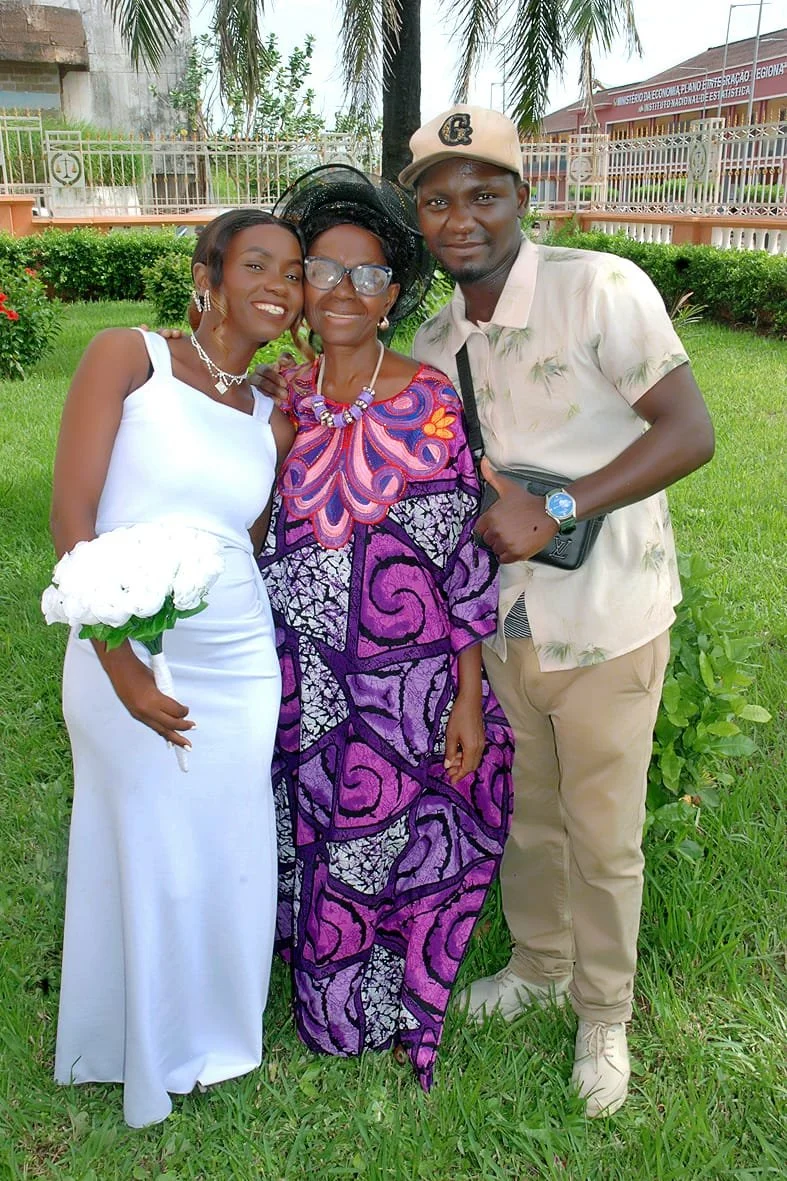


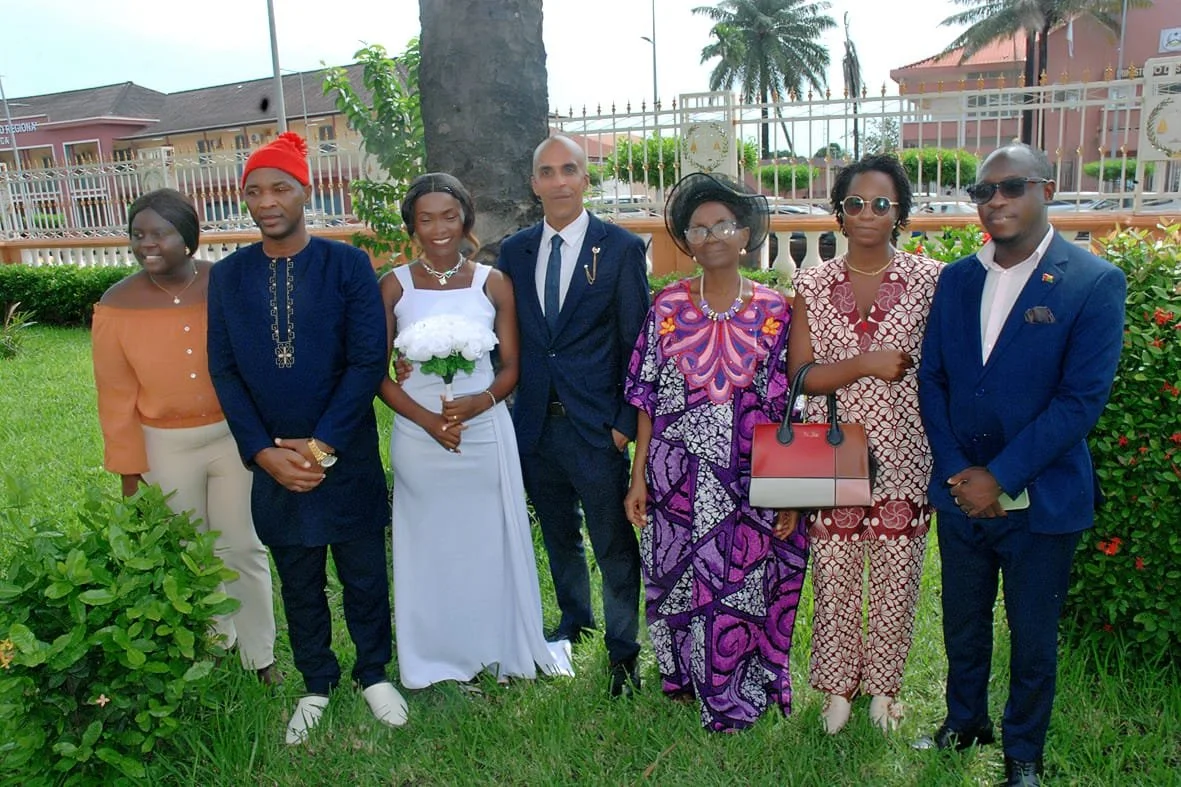
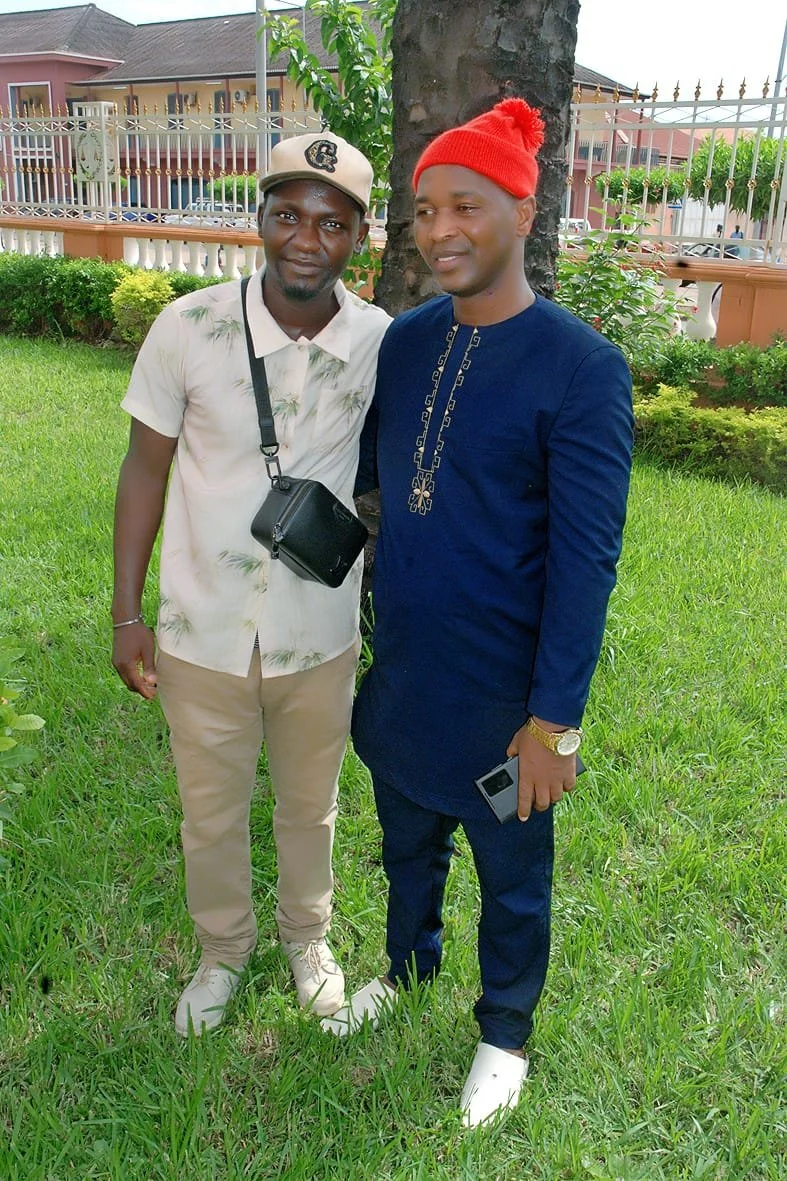

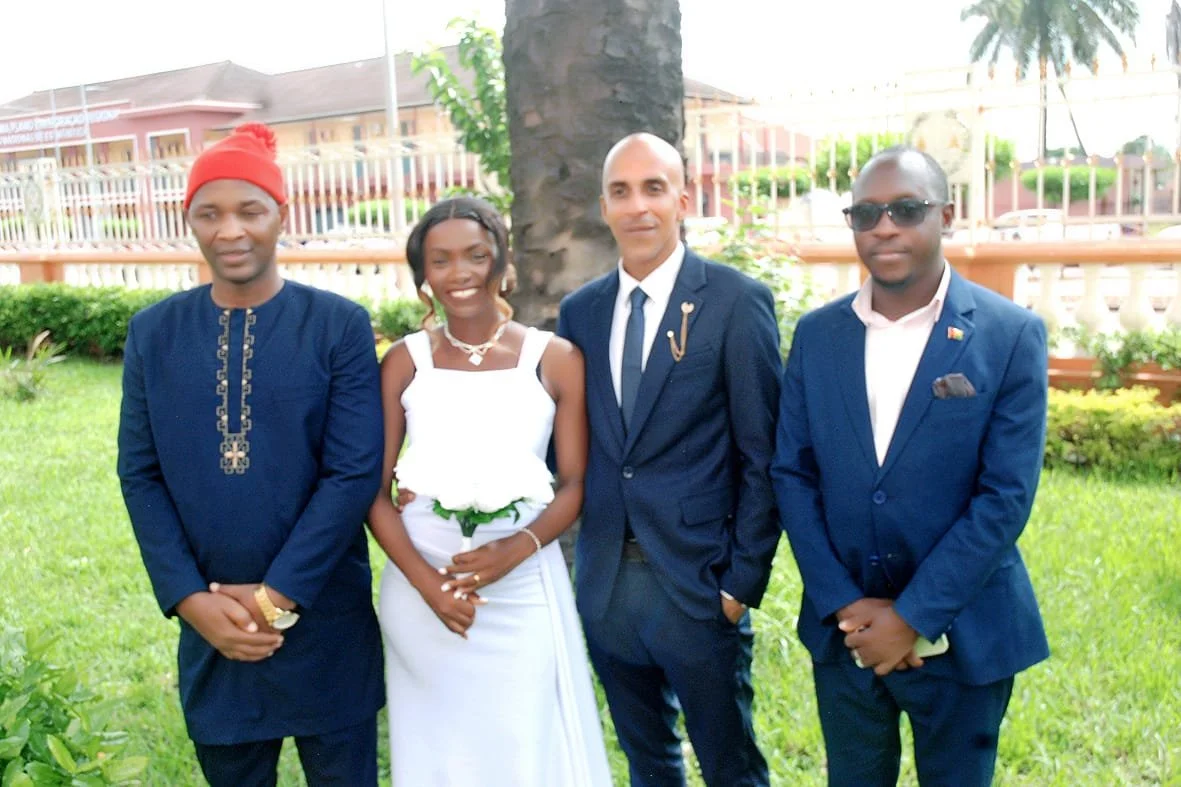
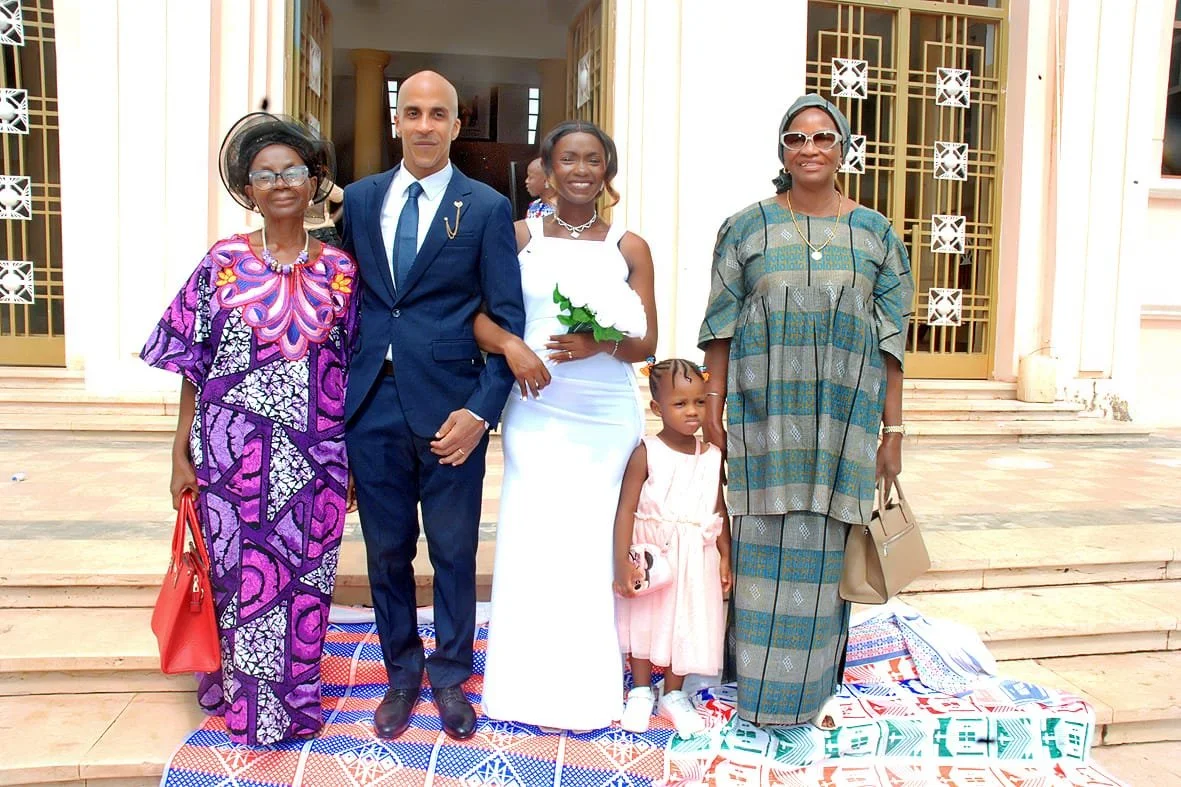
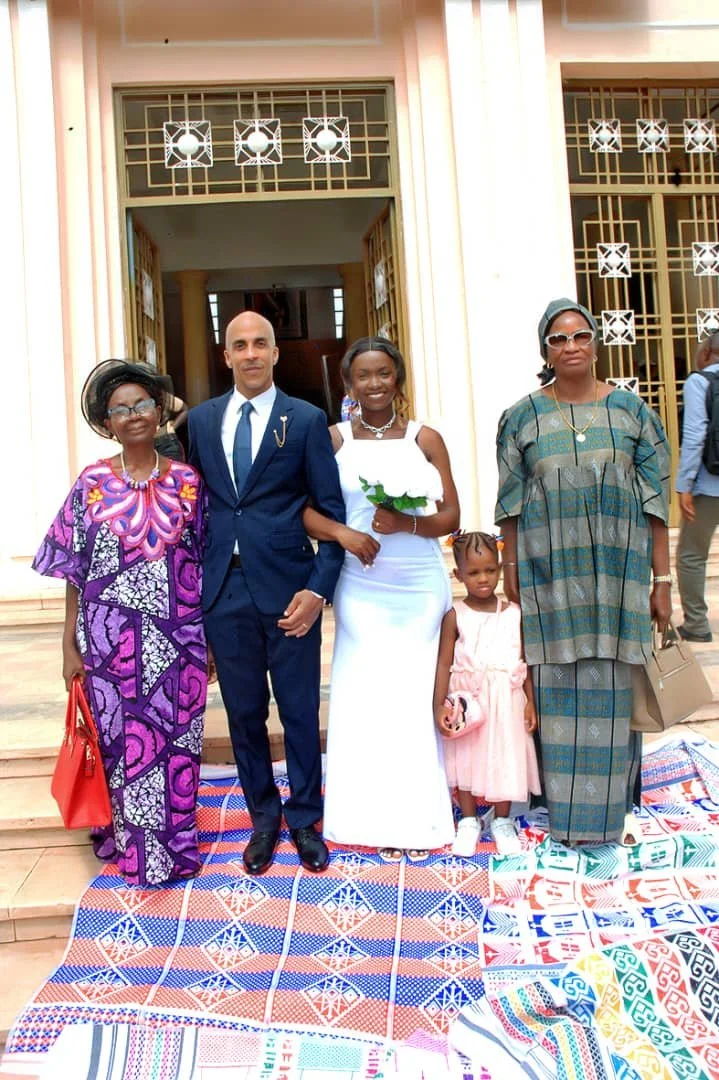
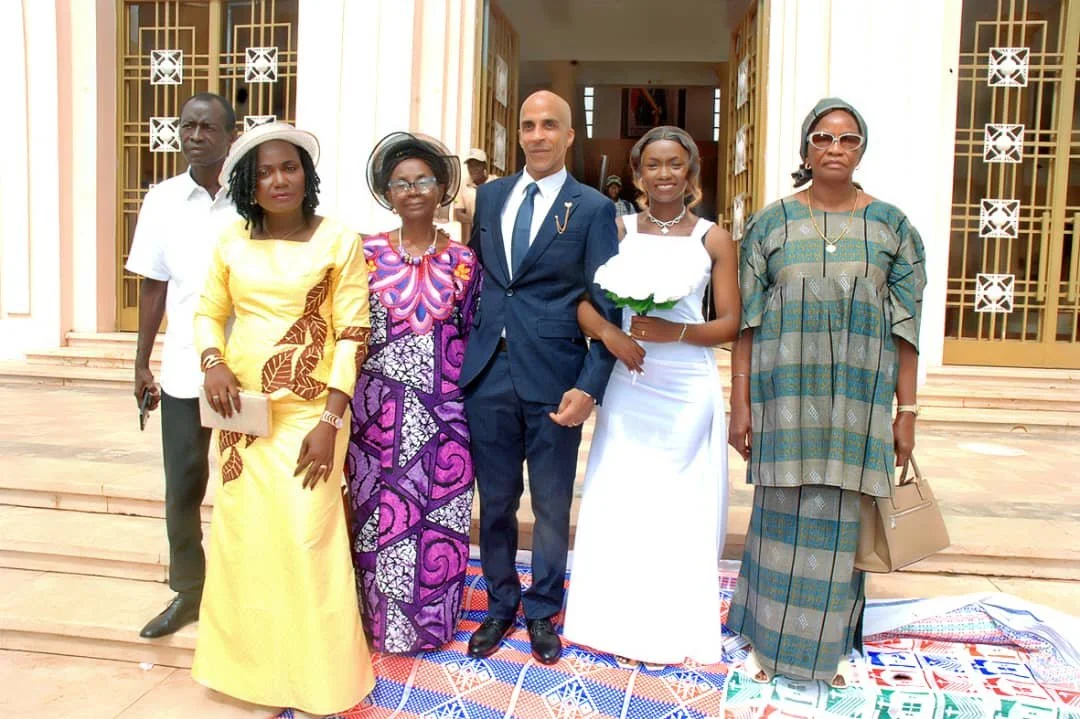


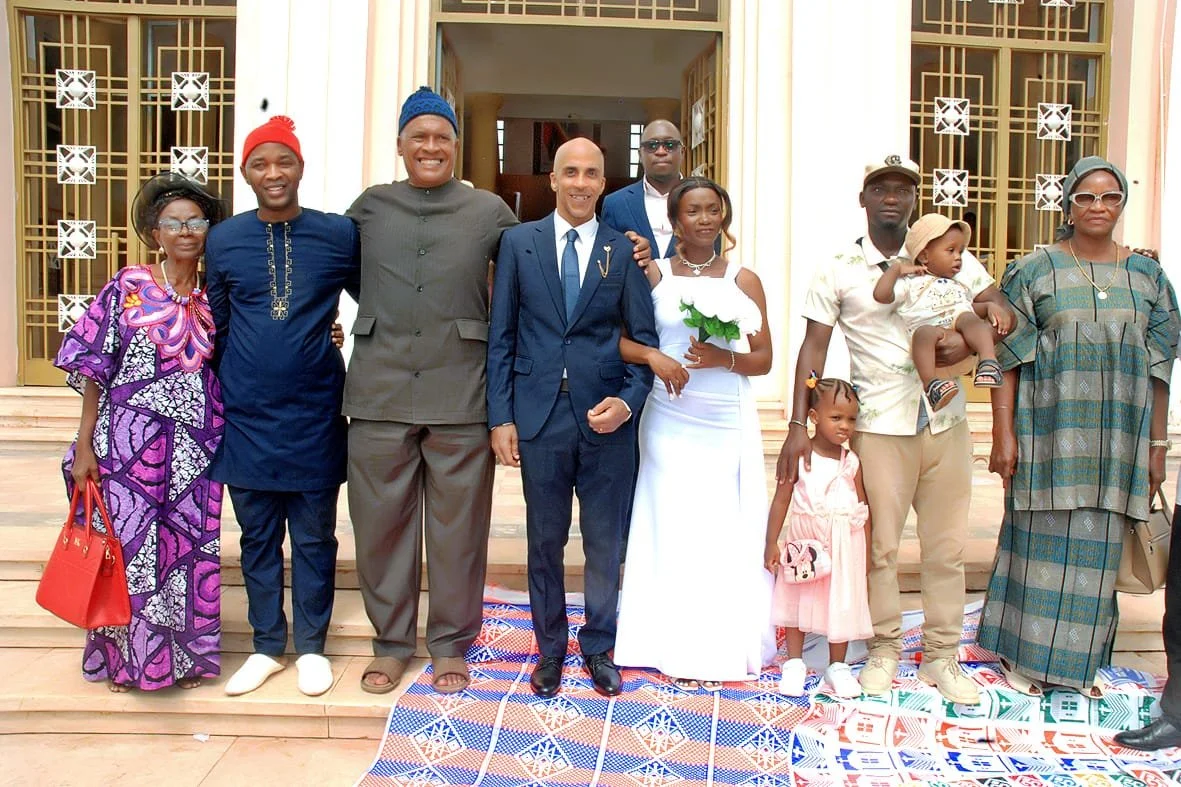
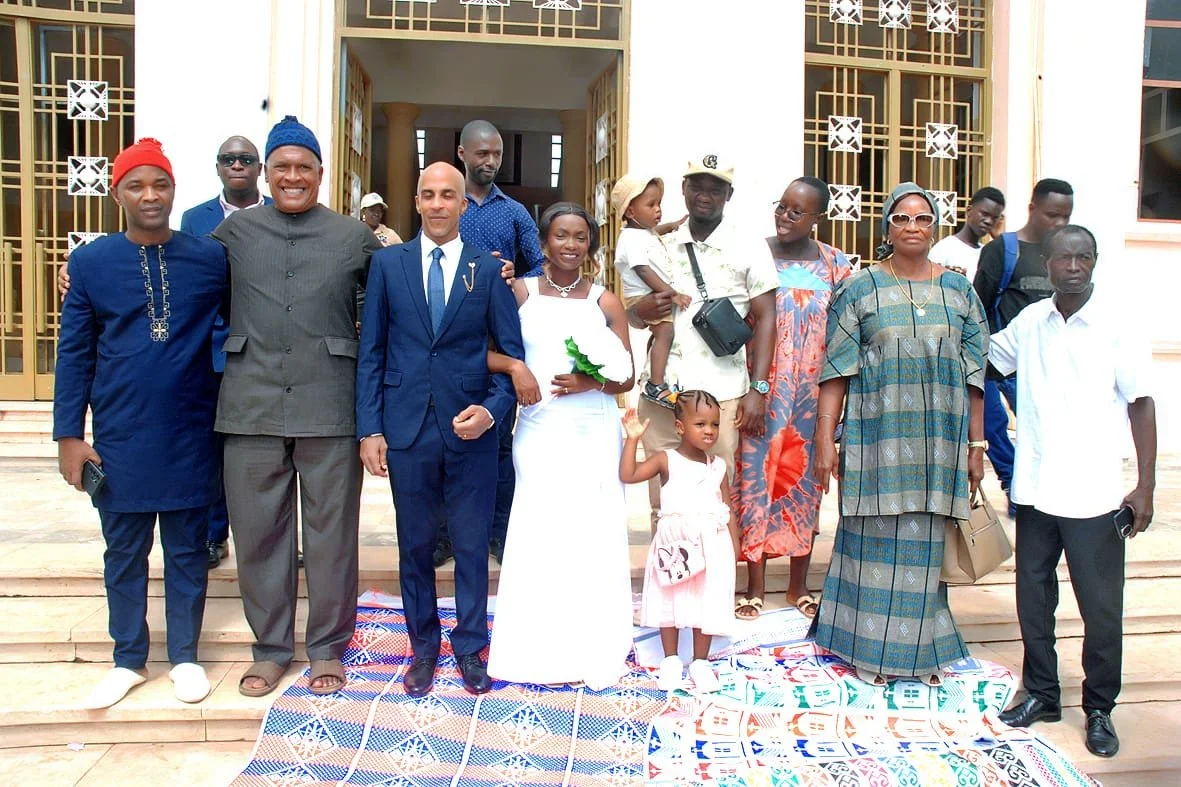
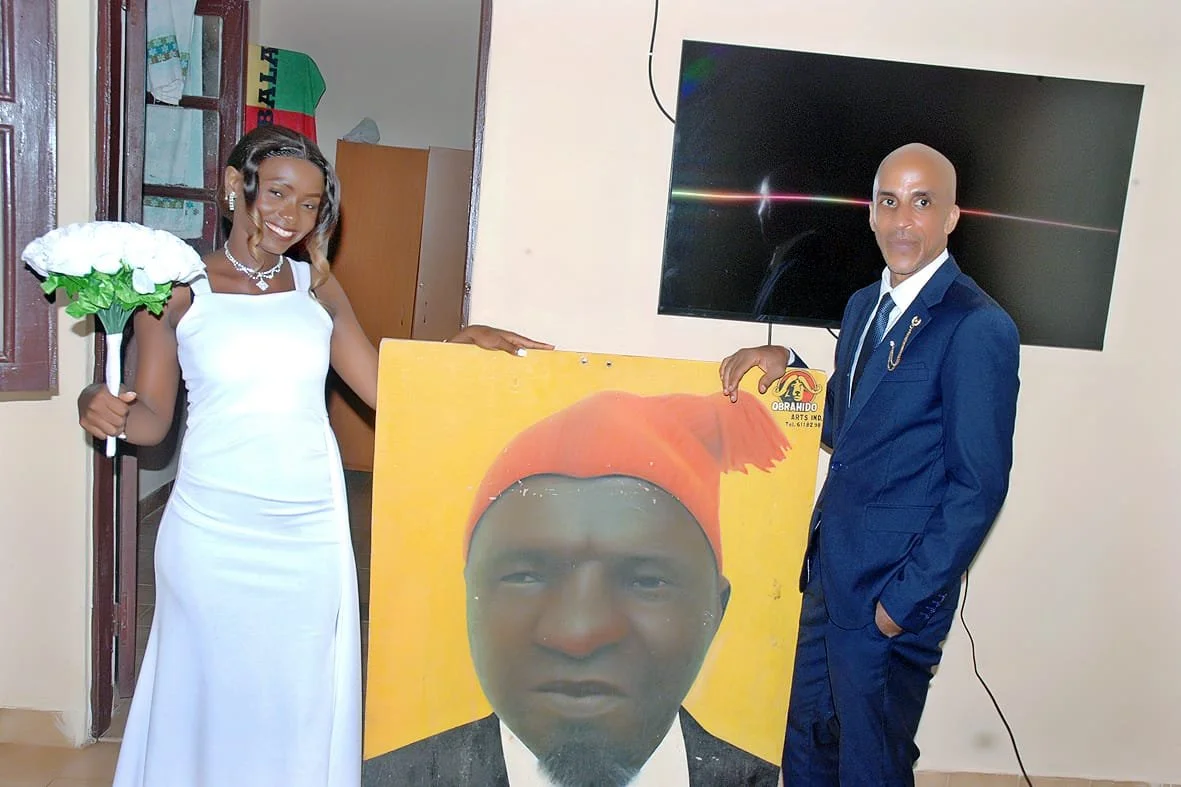
More pictures from family and friends


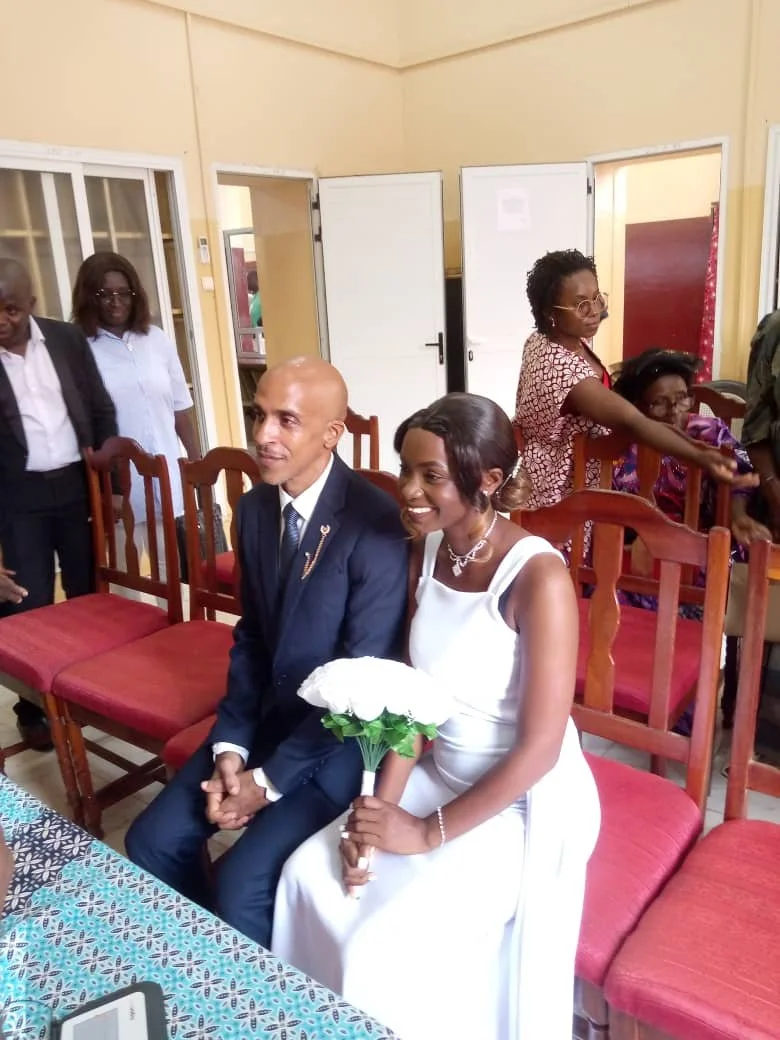
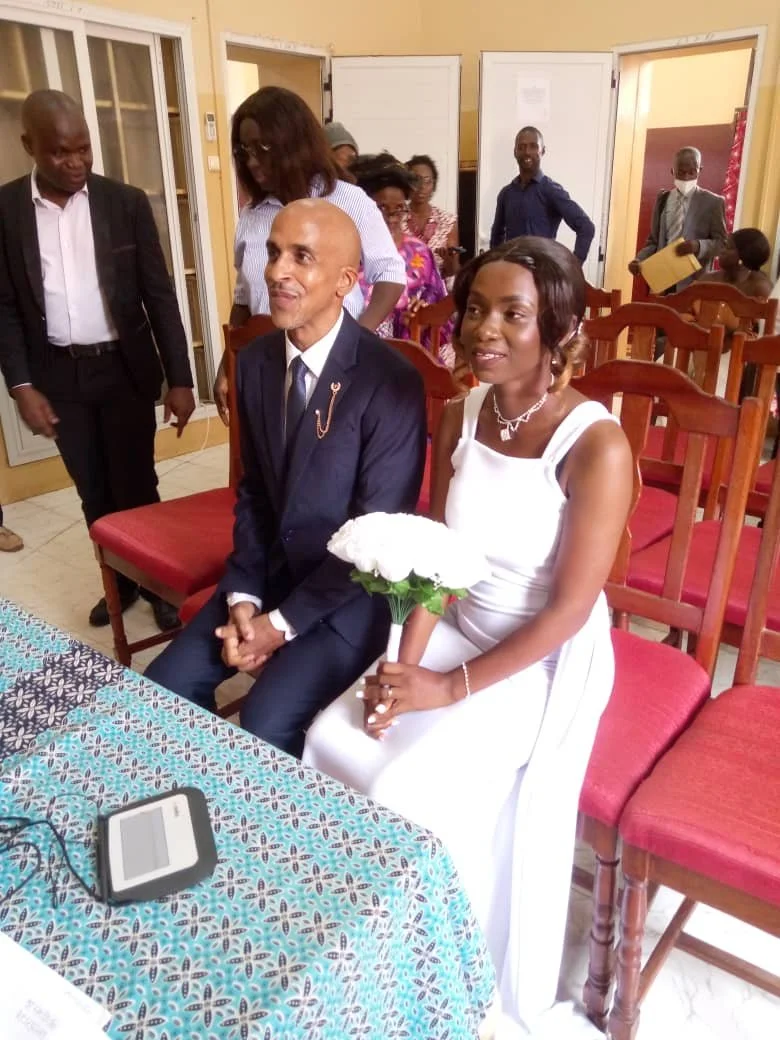
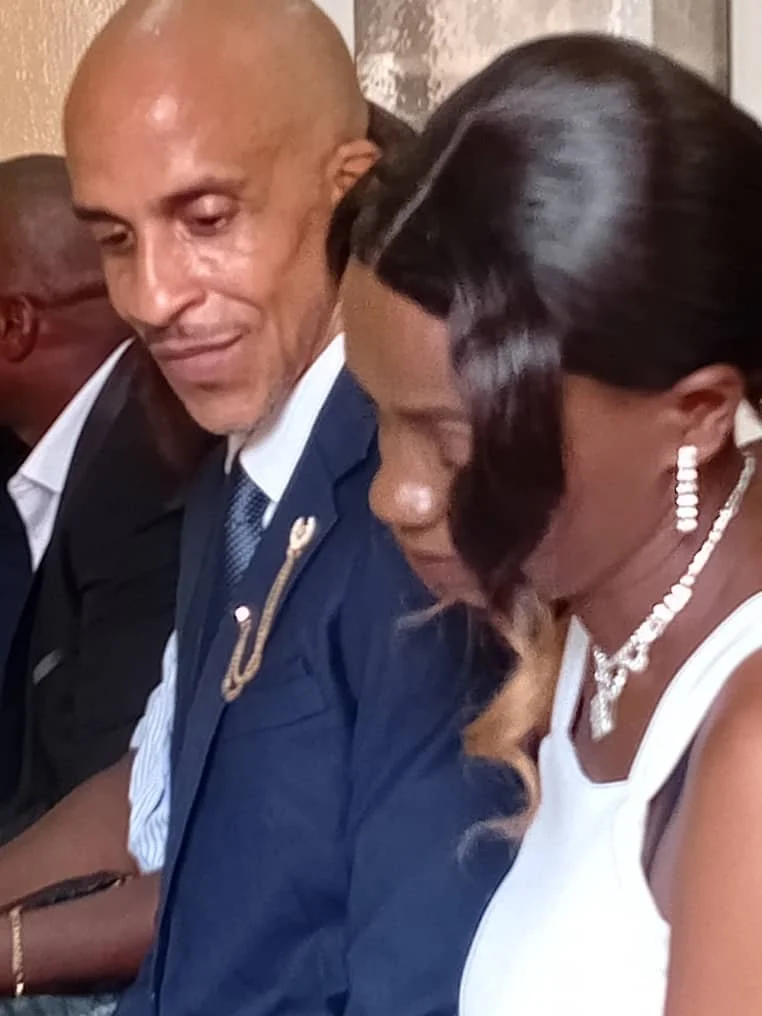
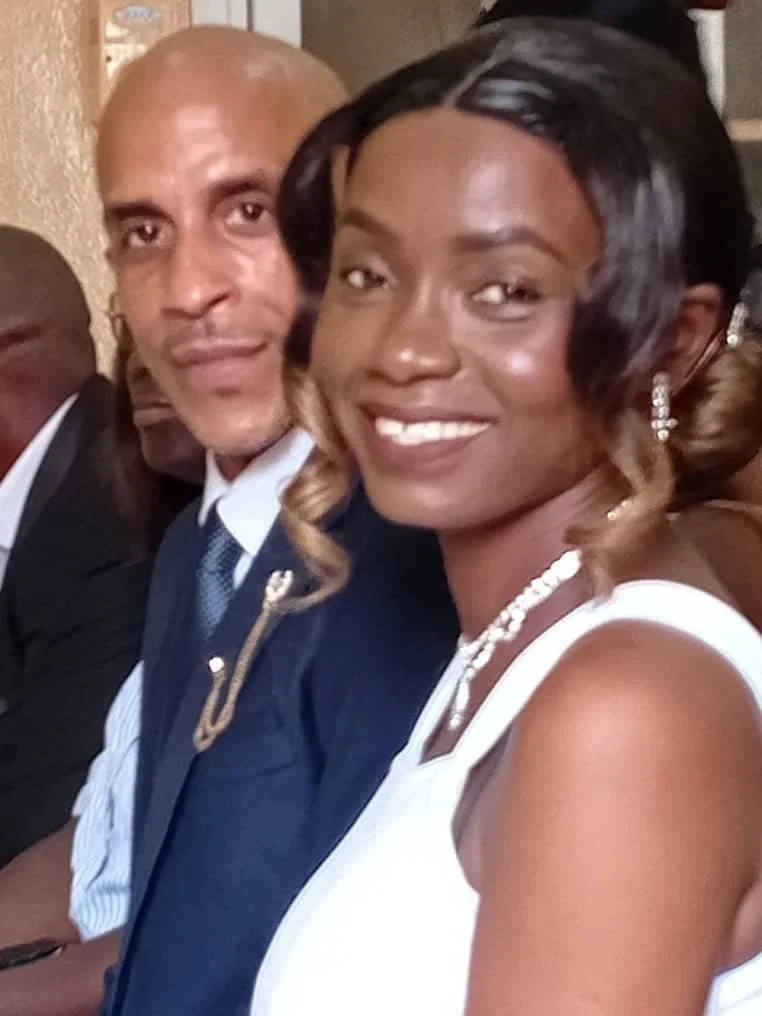
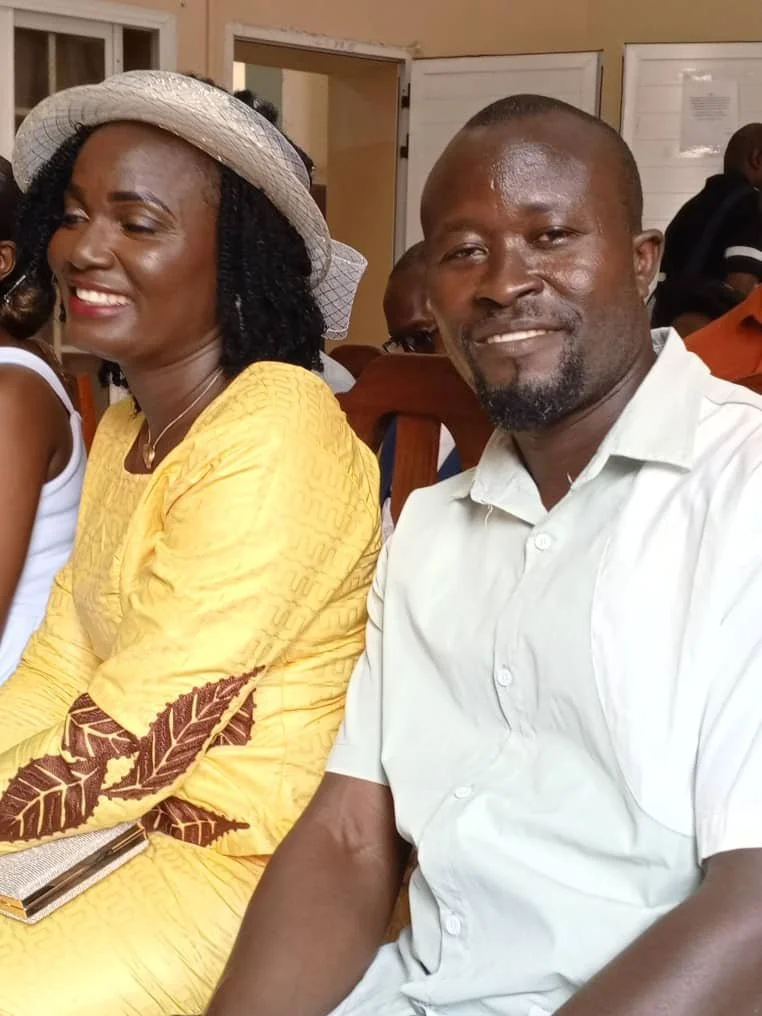
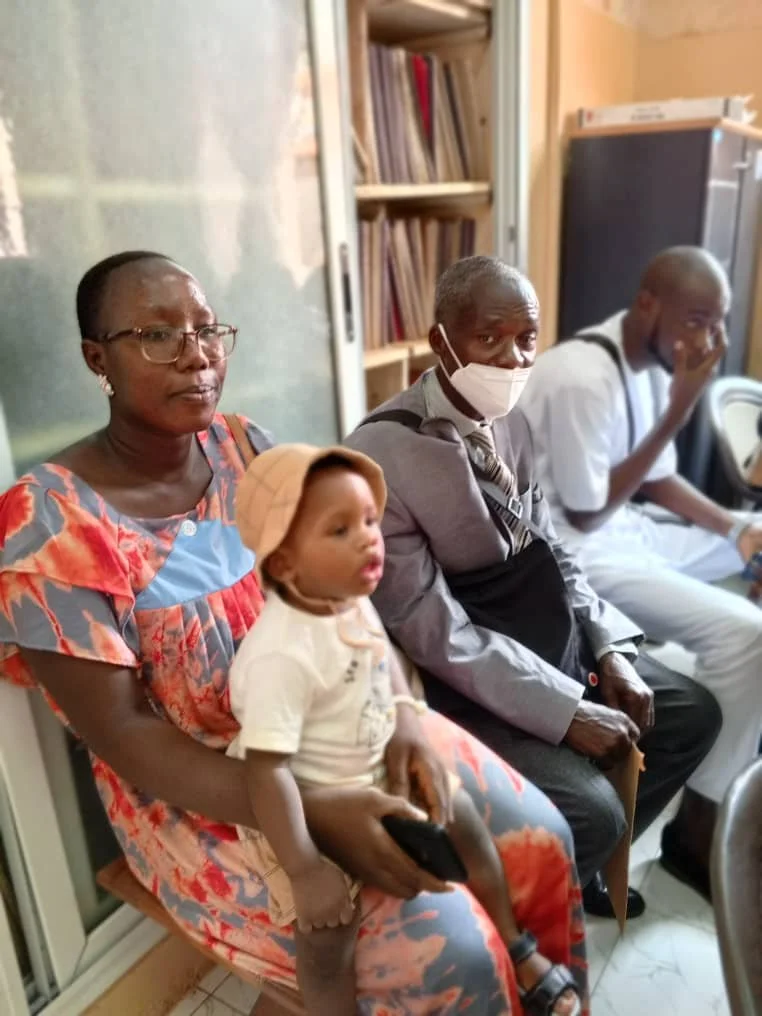
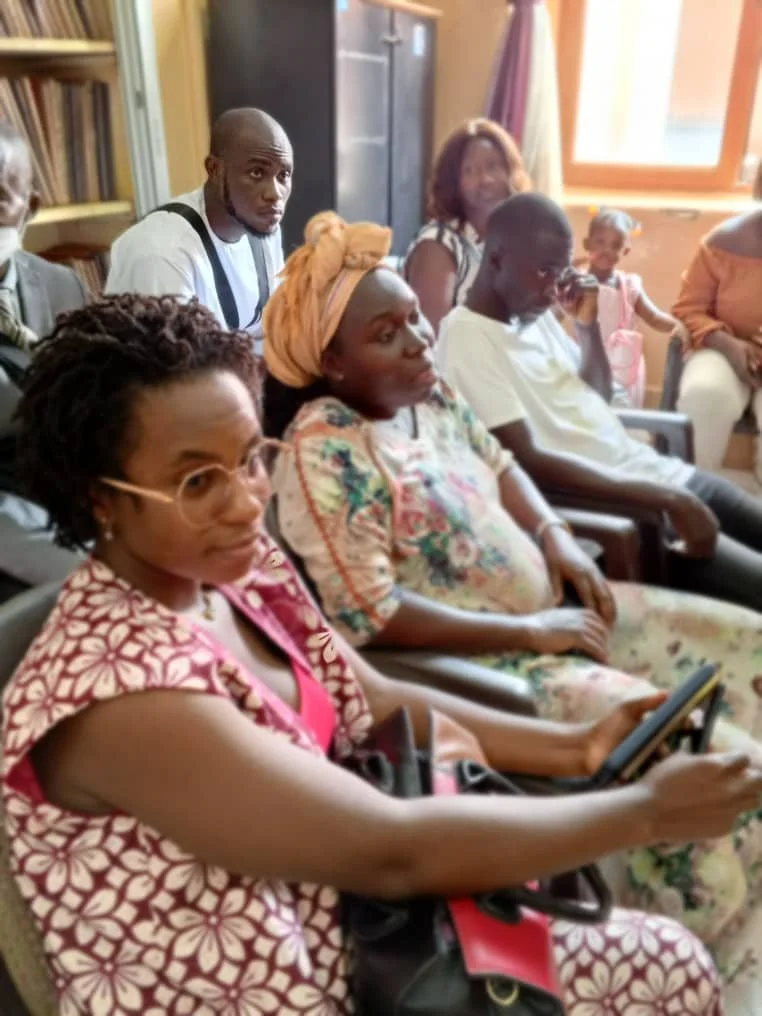
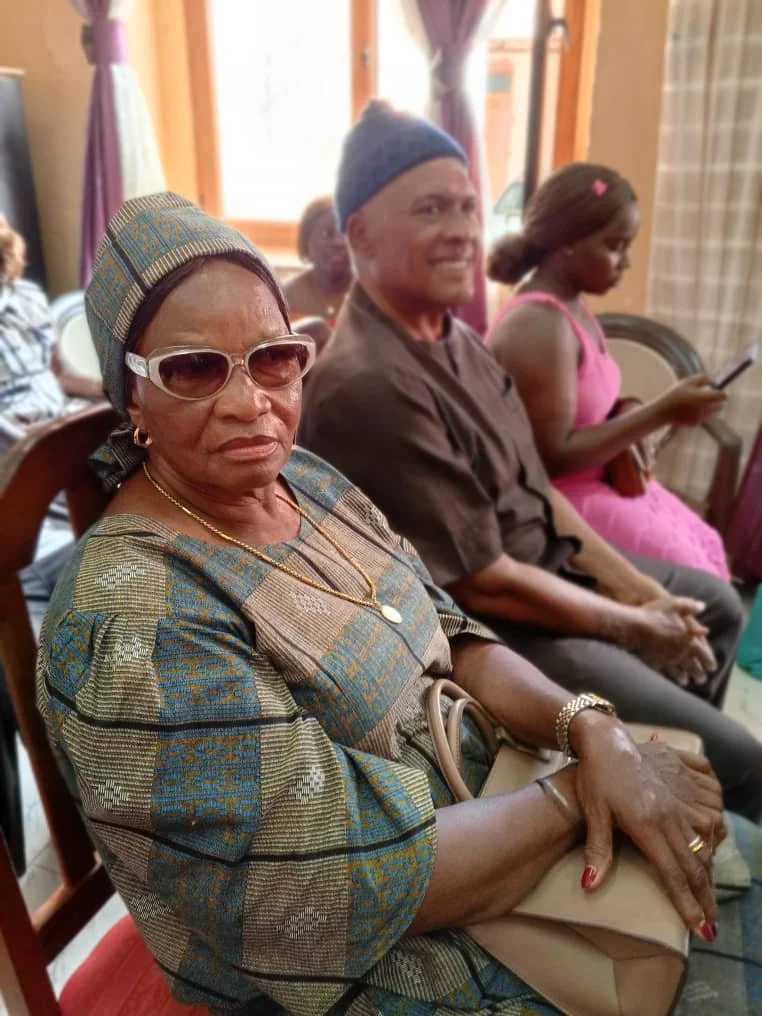
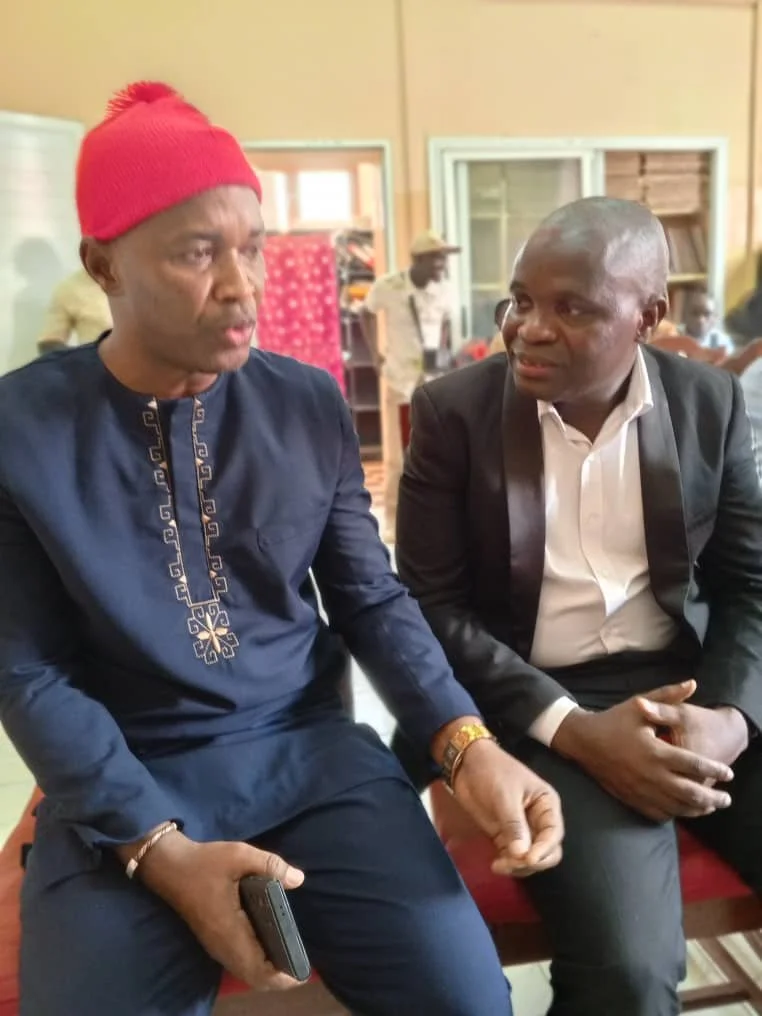
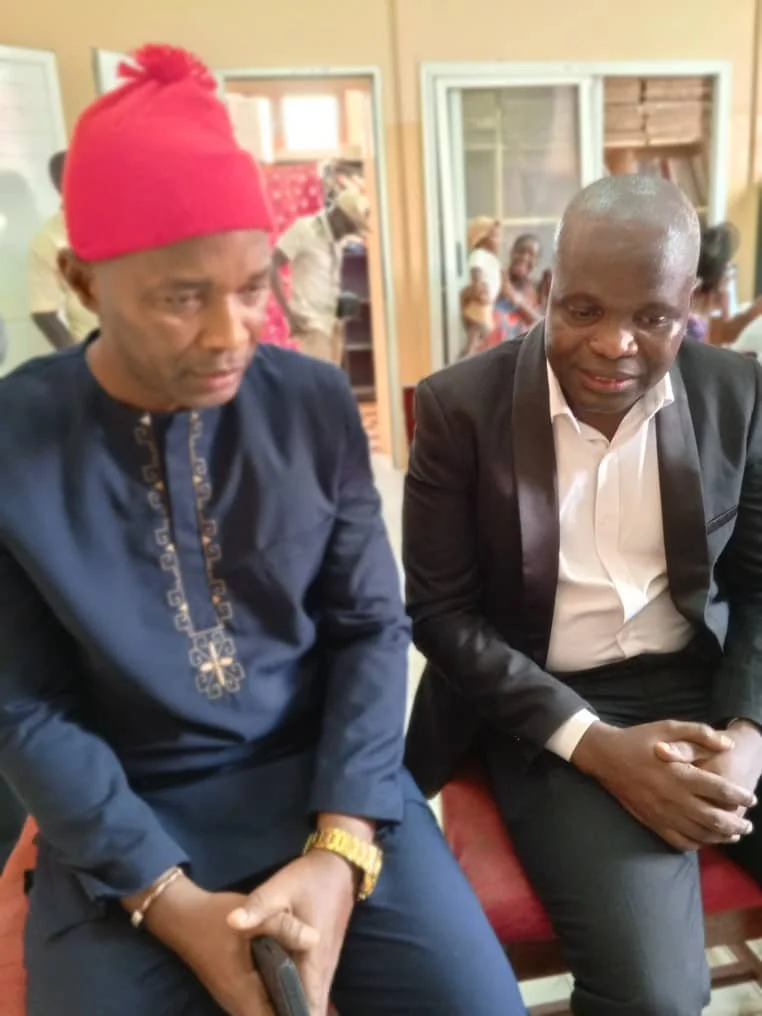
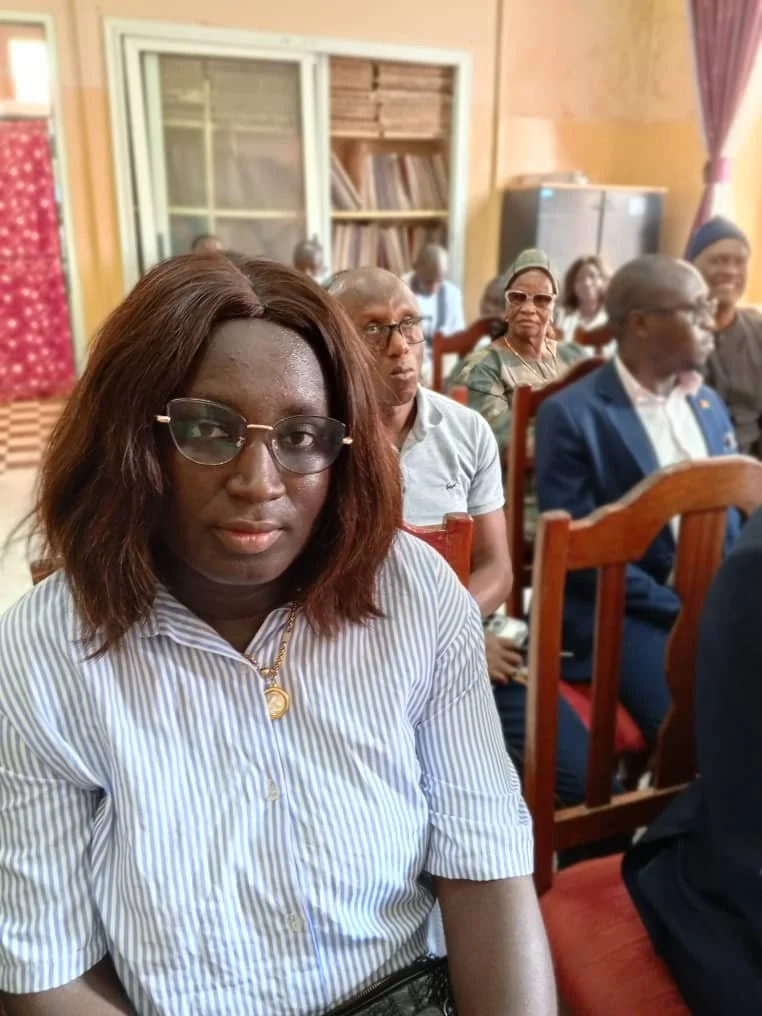
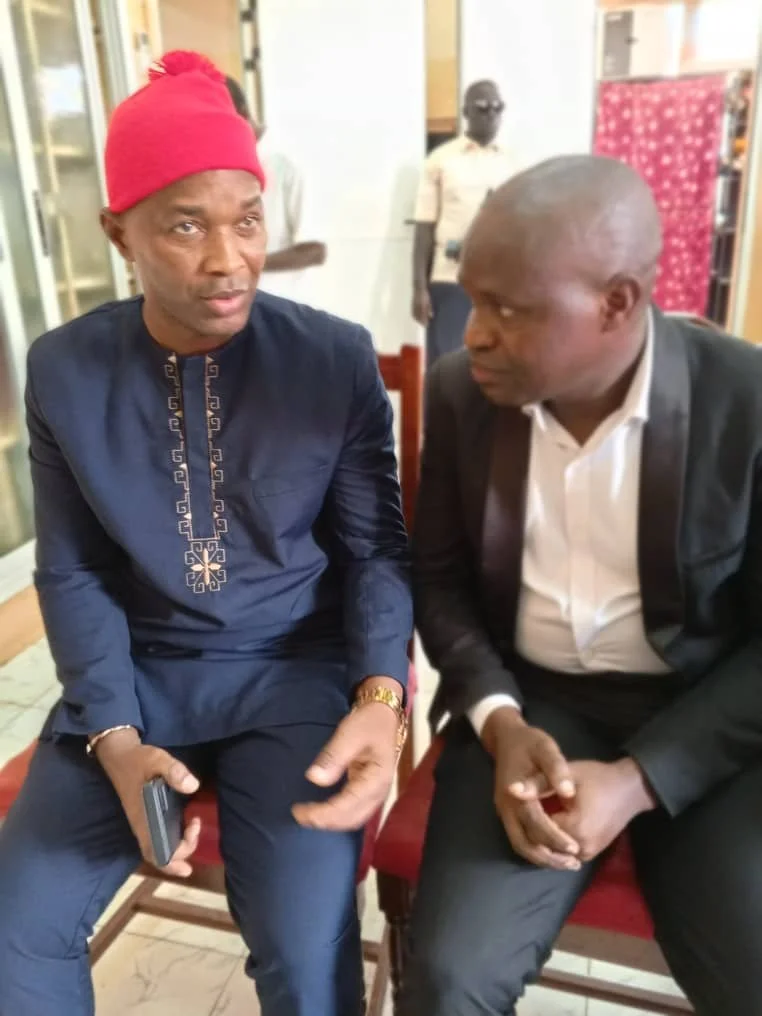

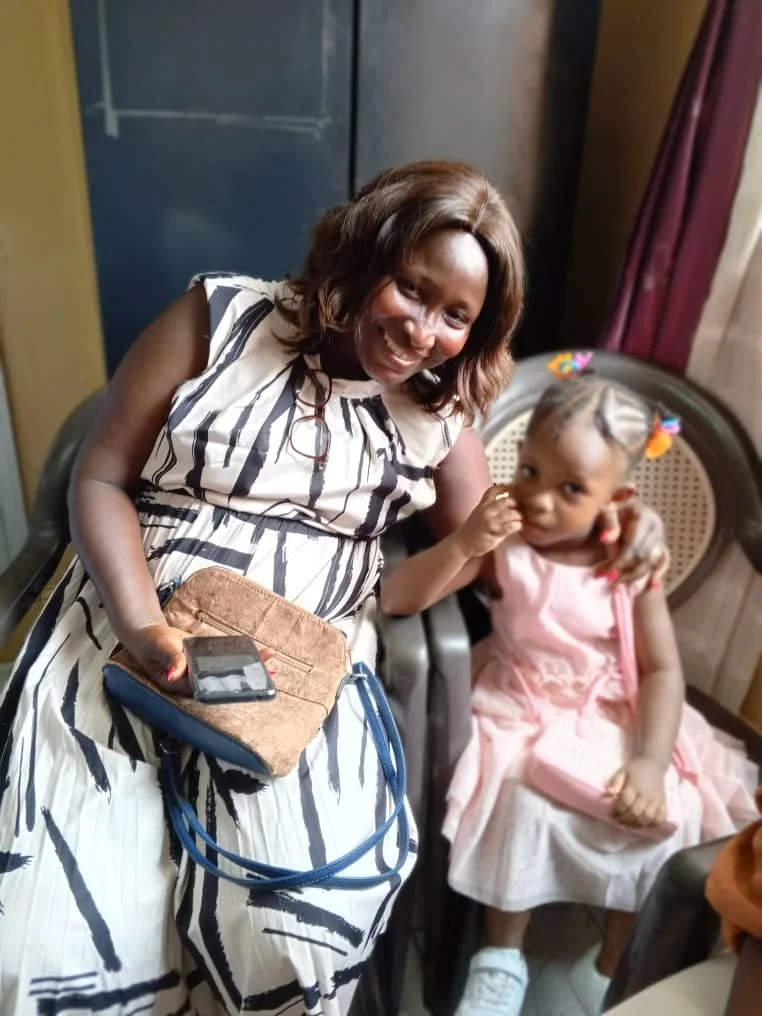
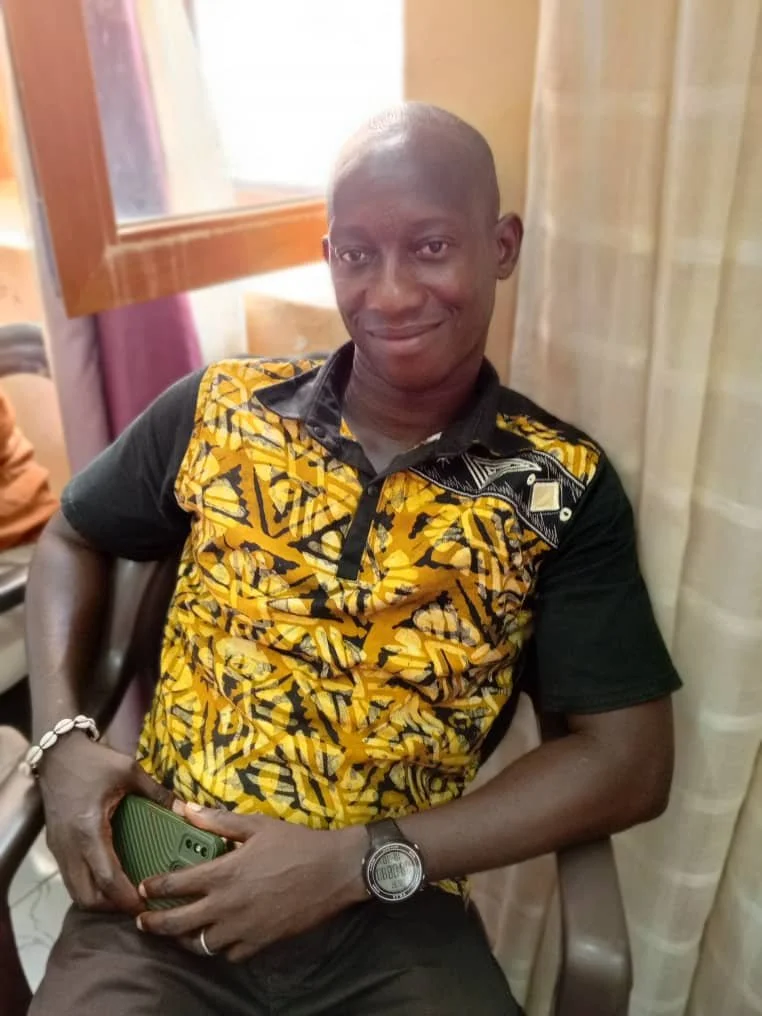
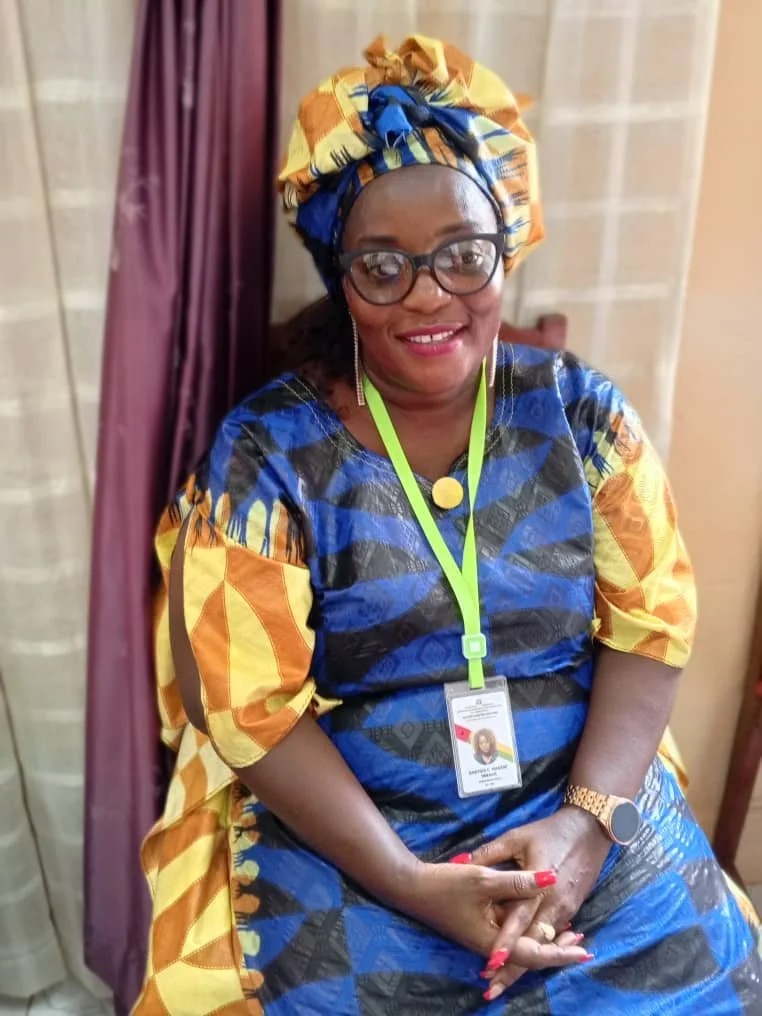
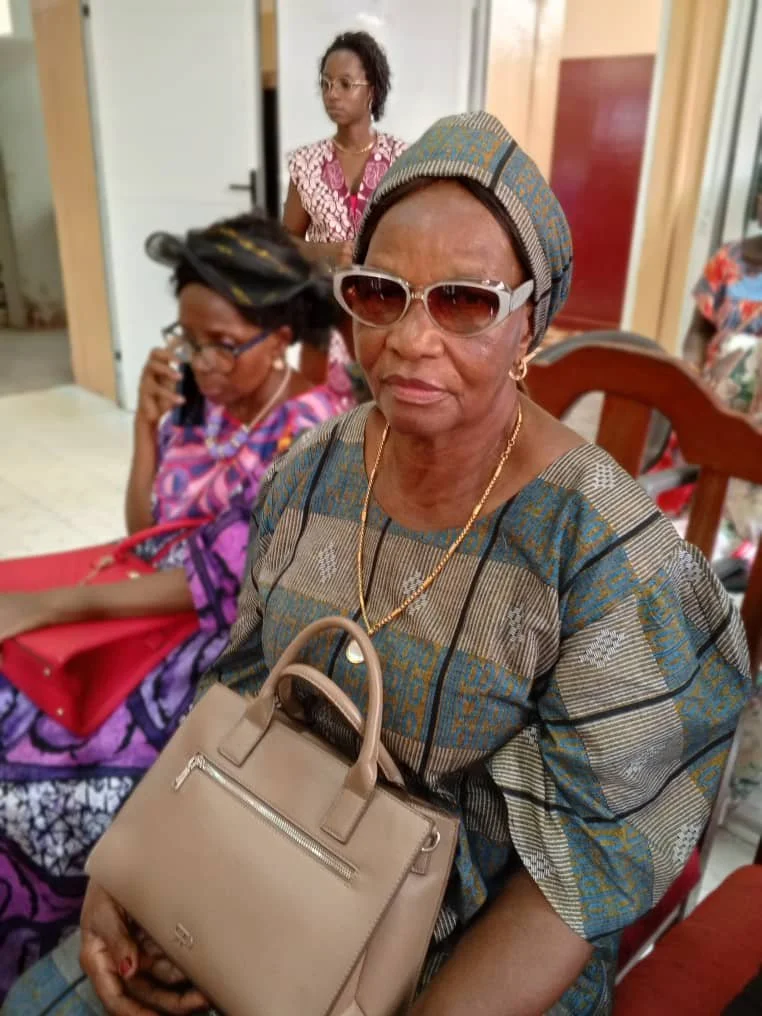
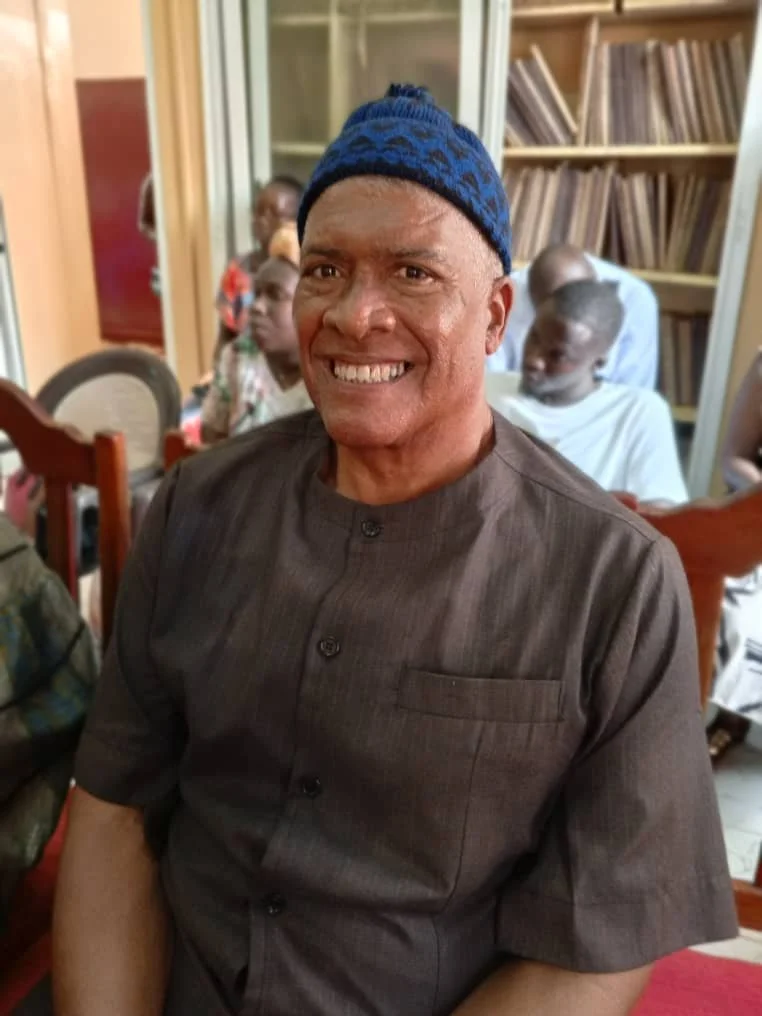
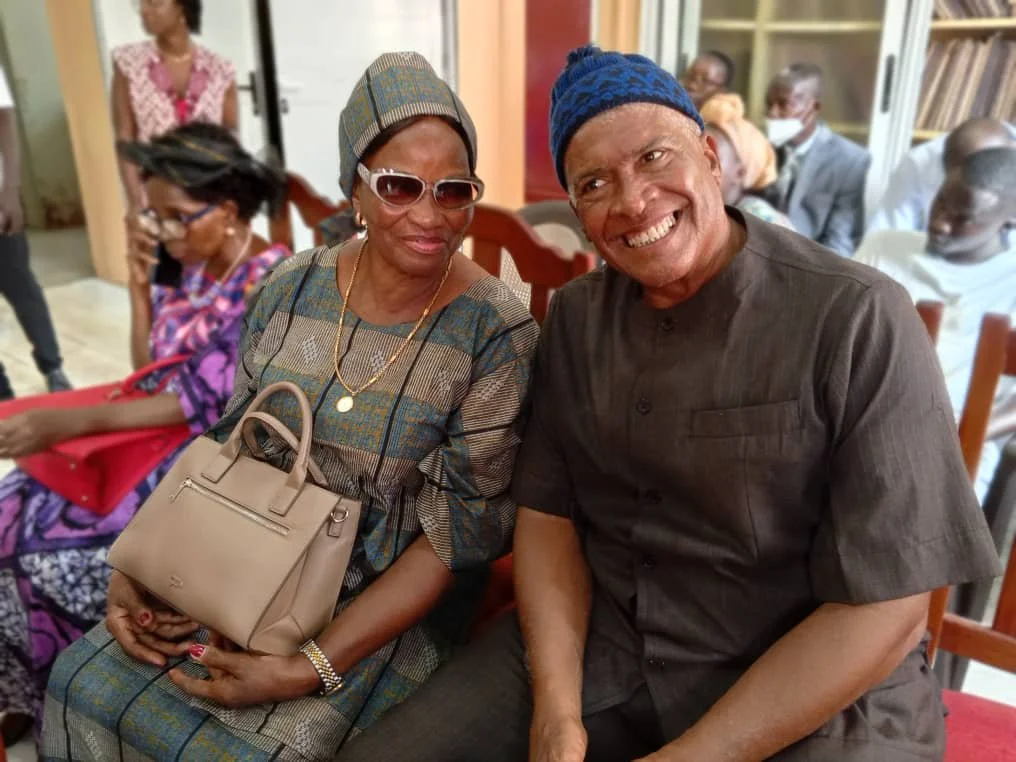
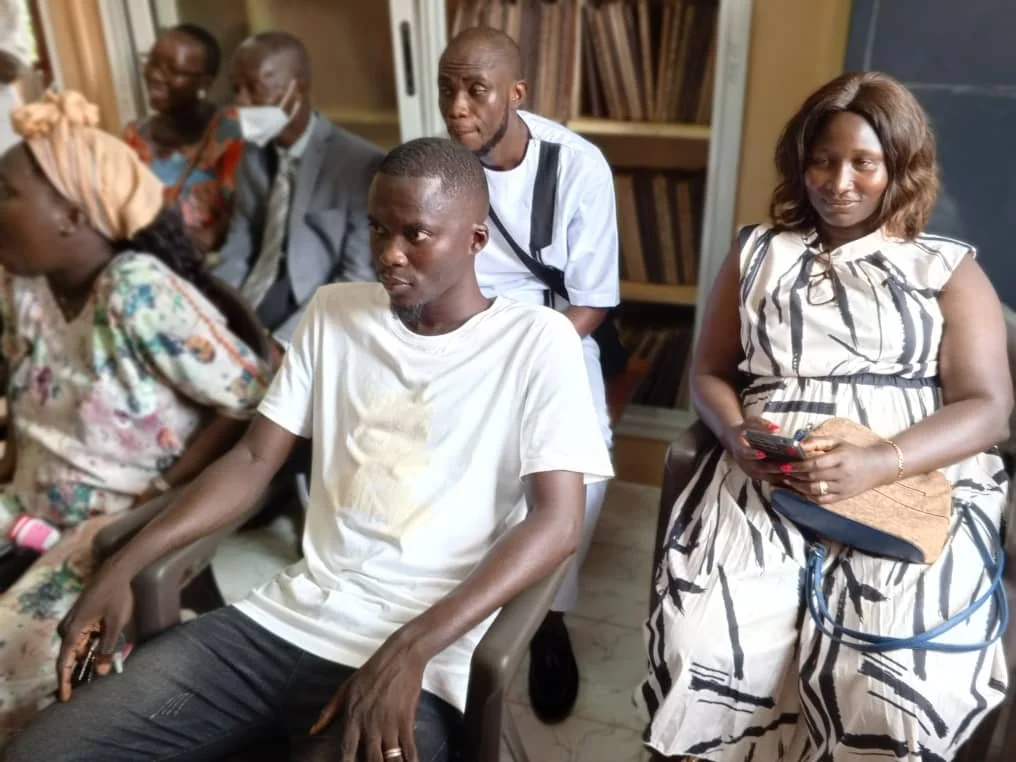
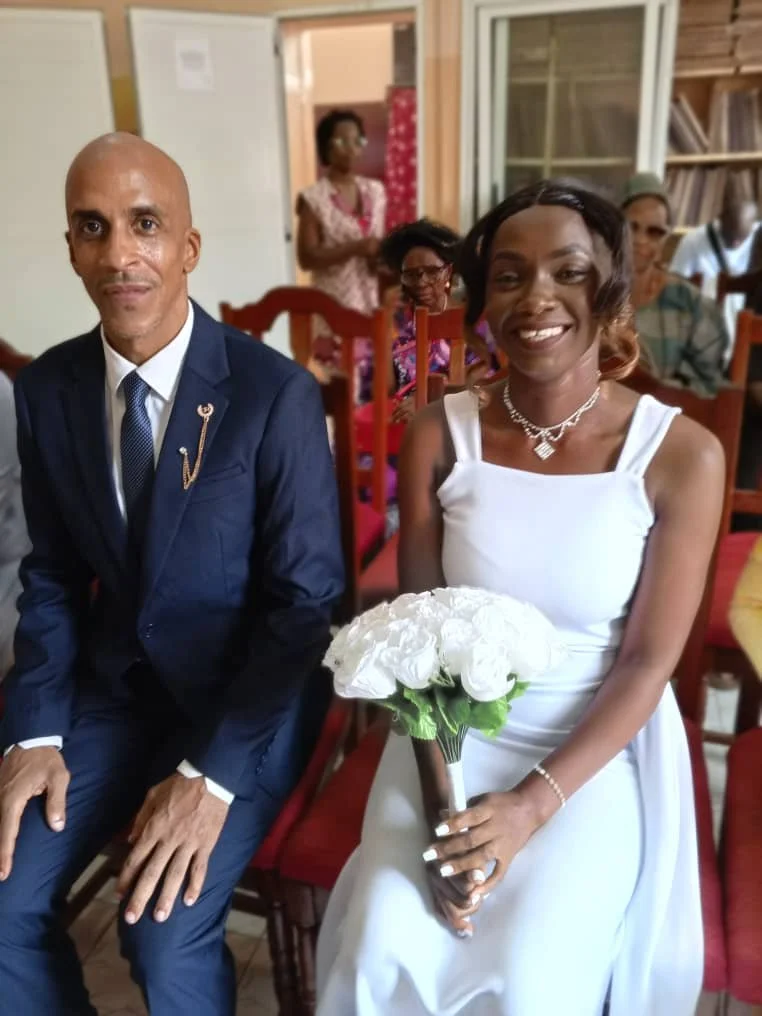

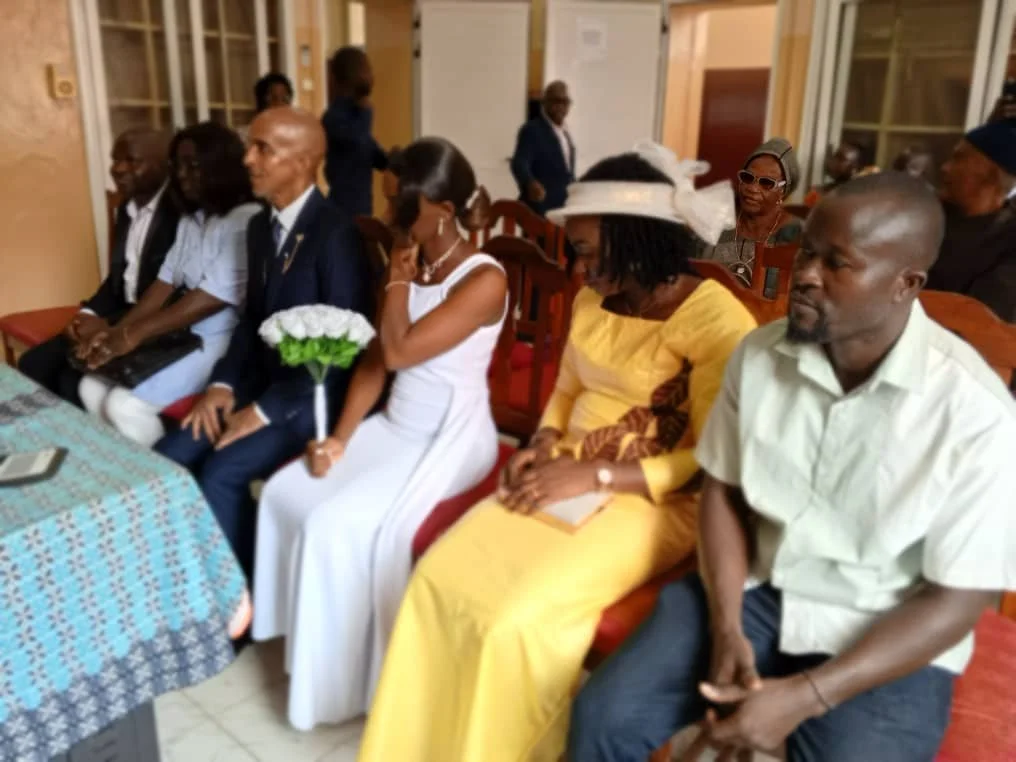
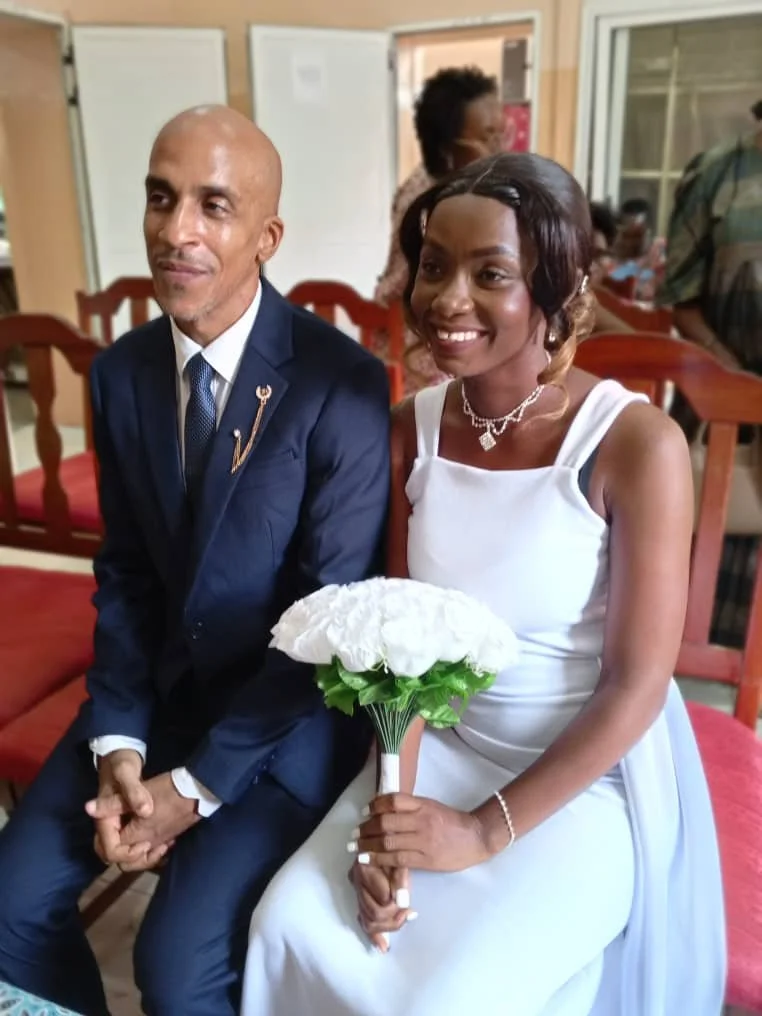
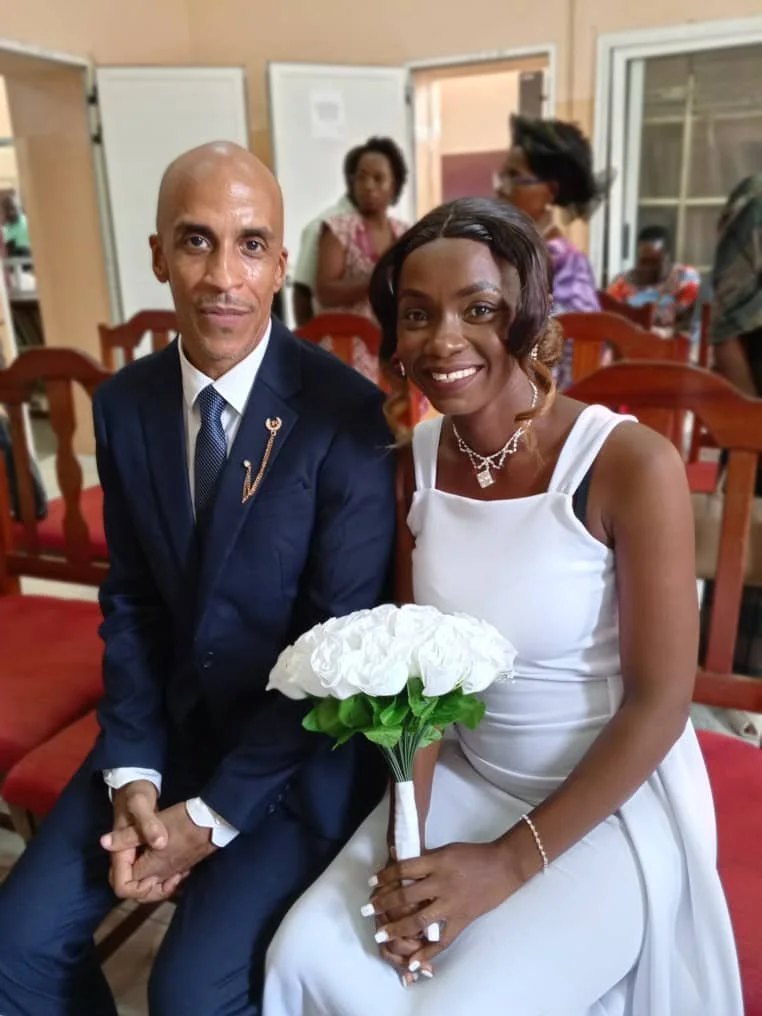
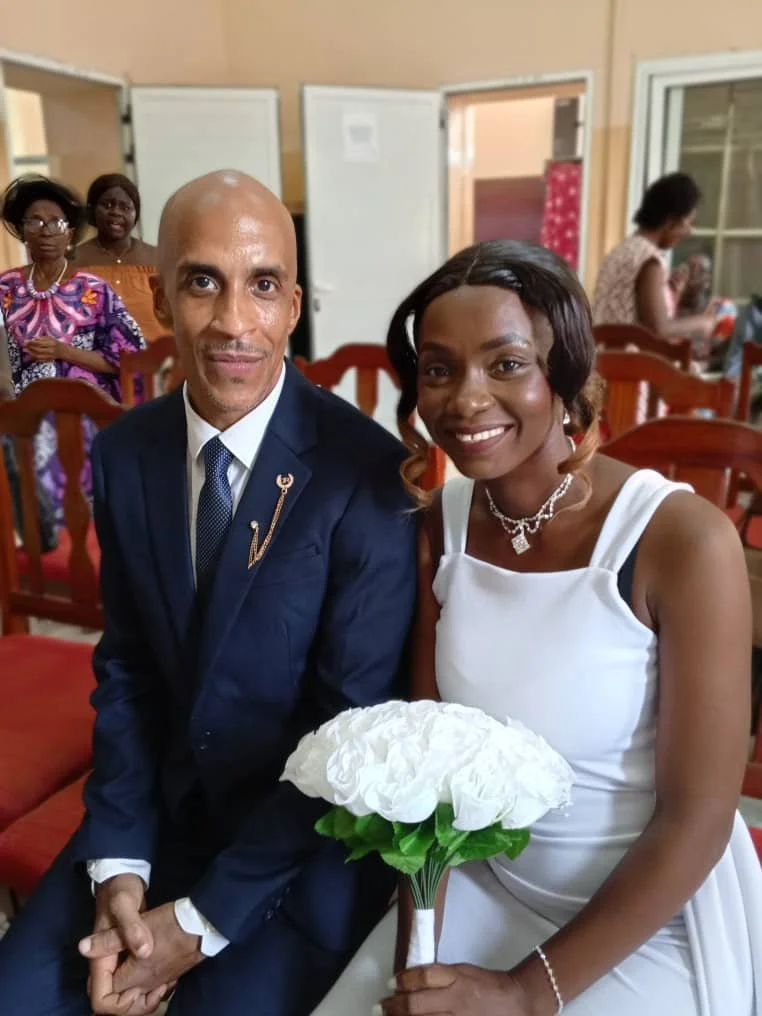

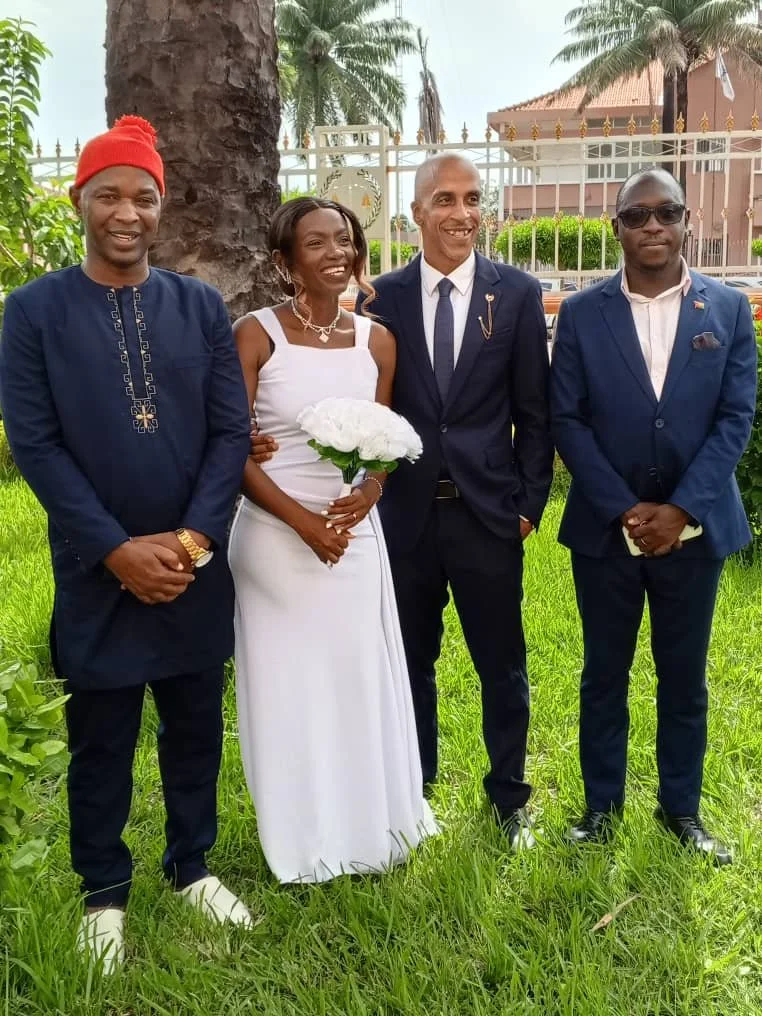
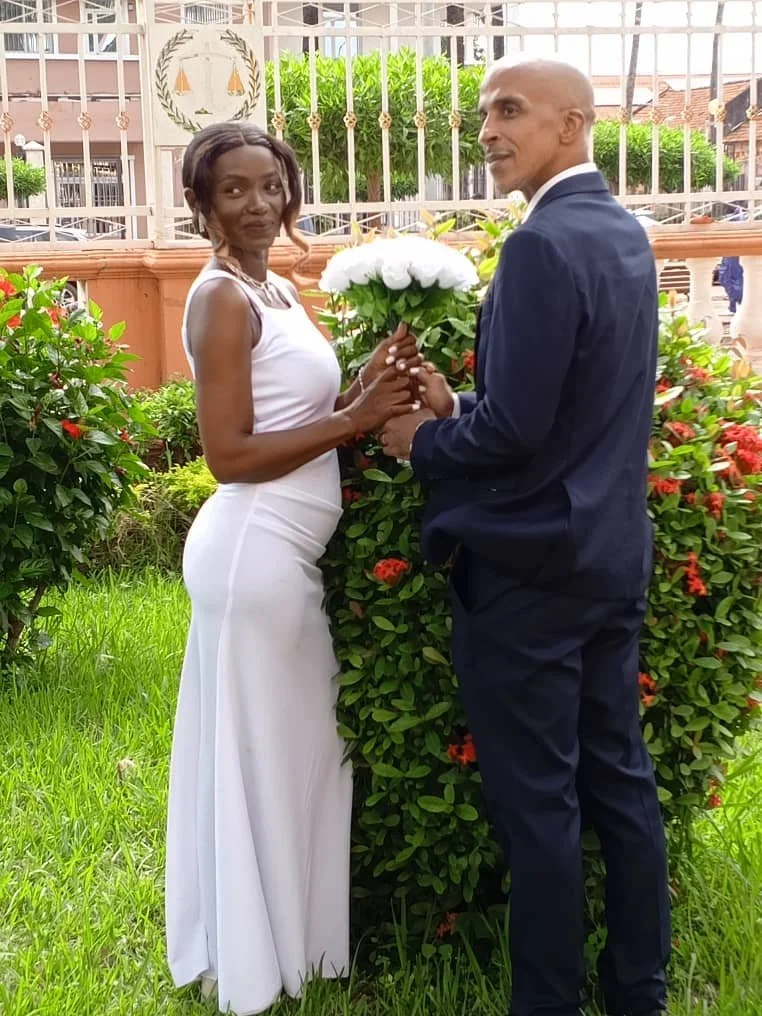
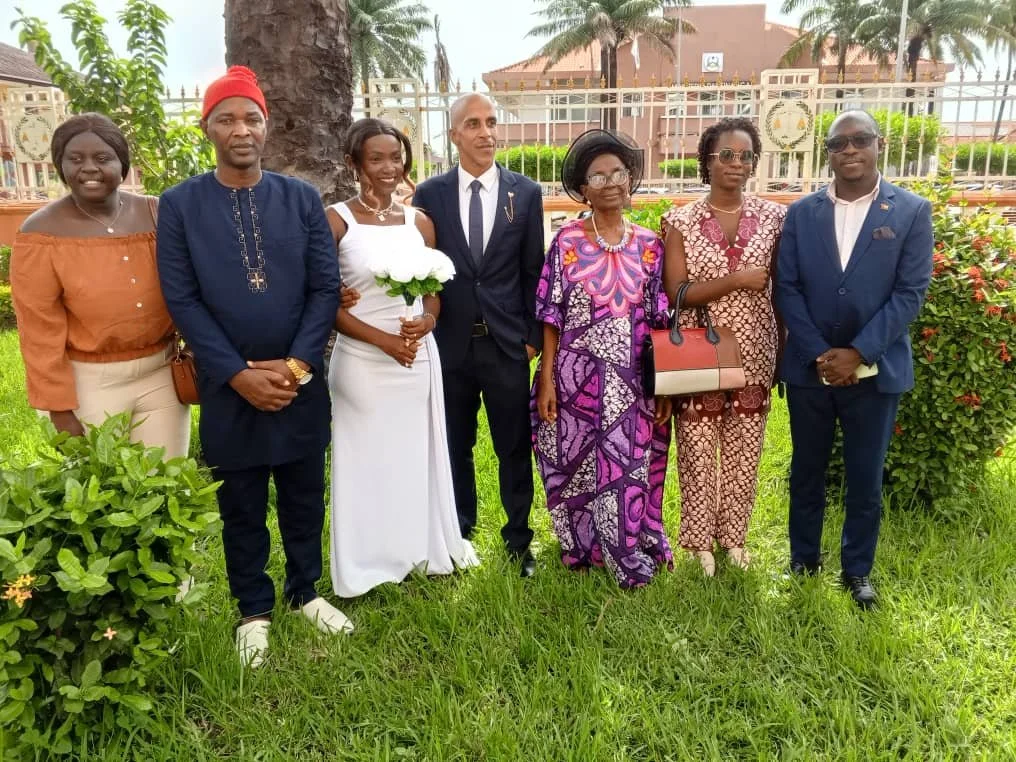
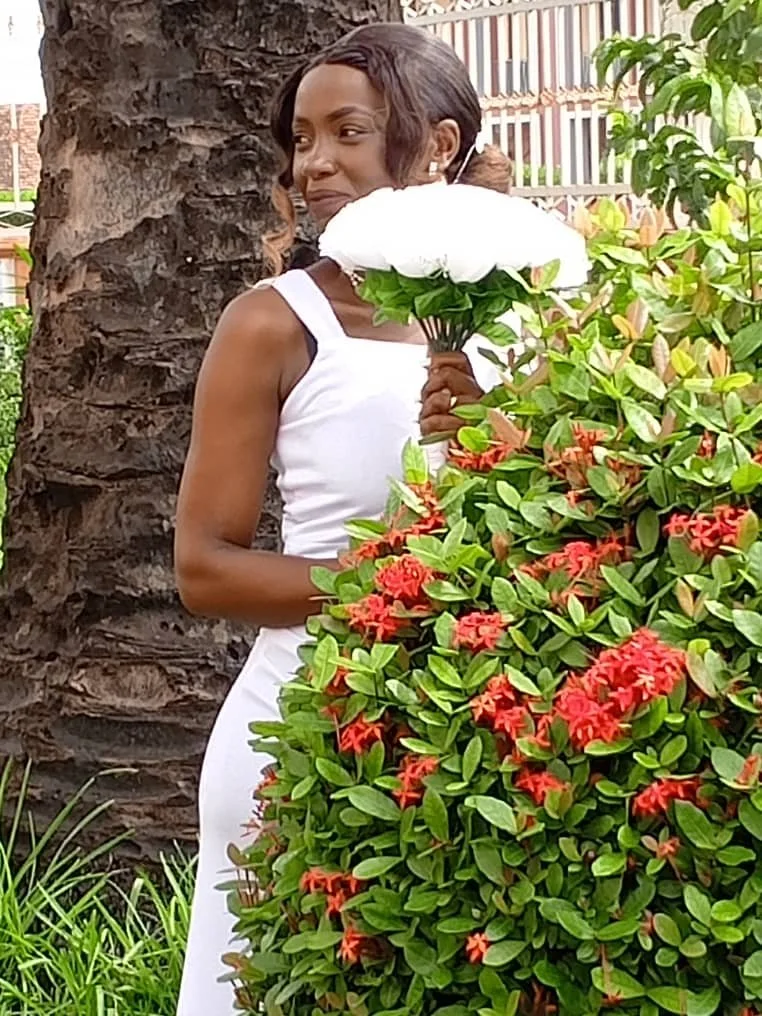
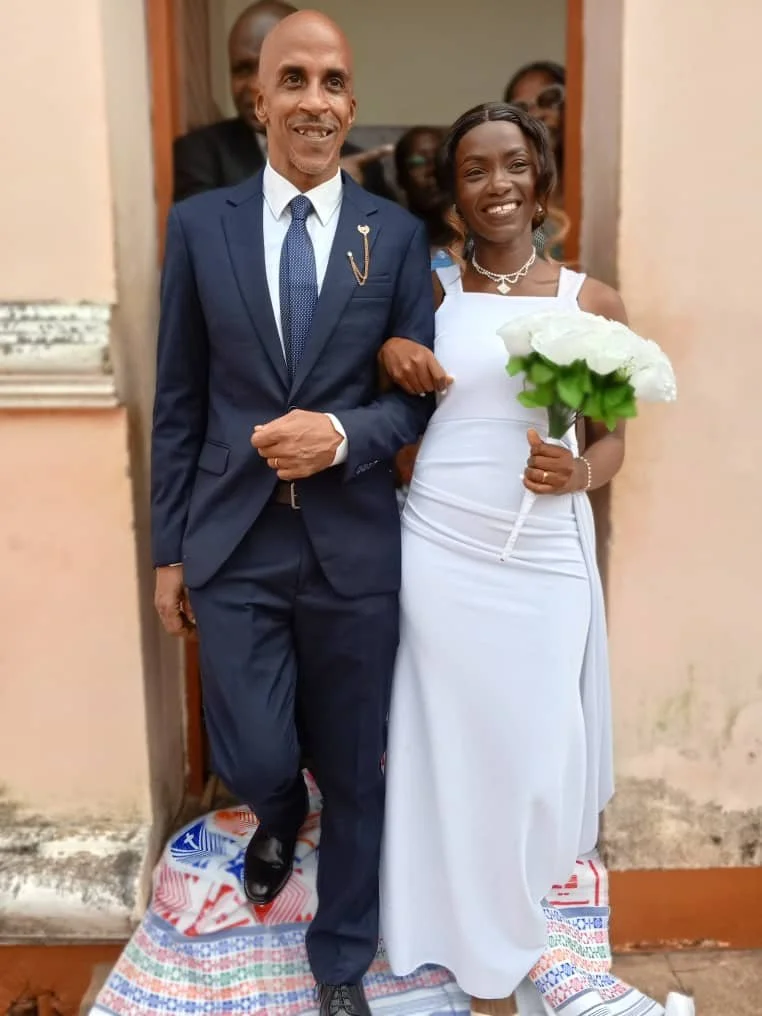
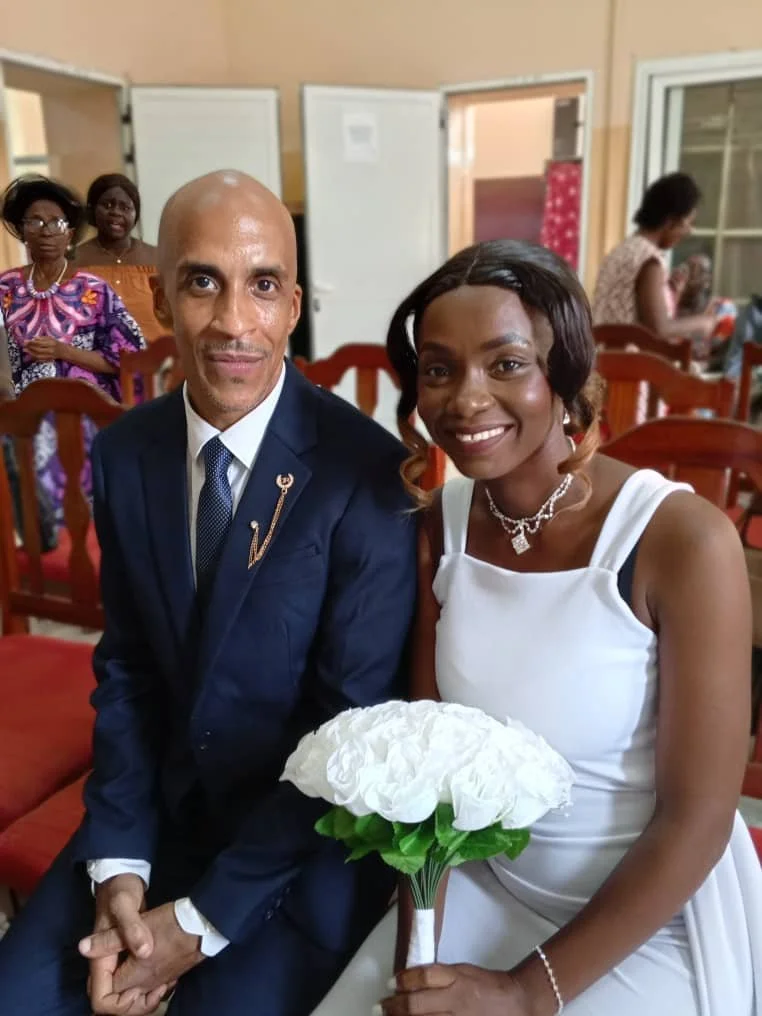
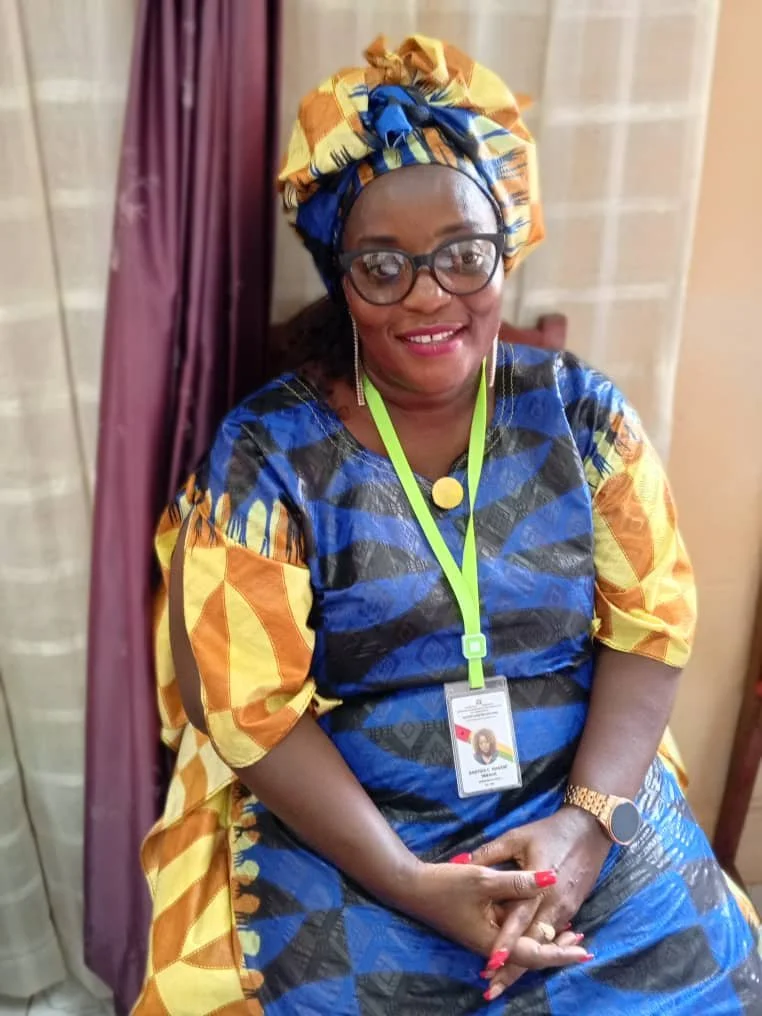
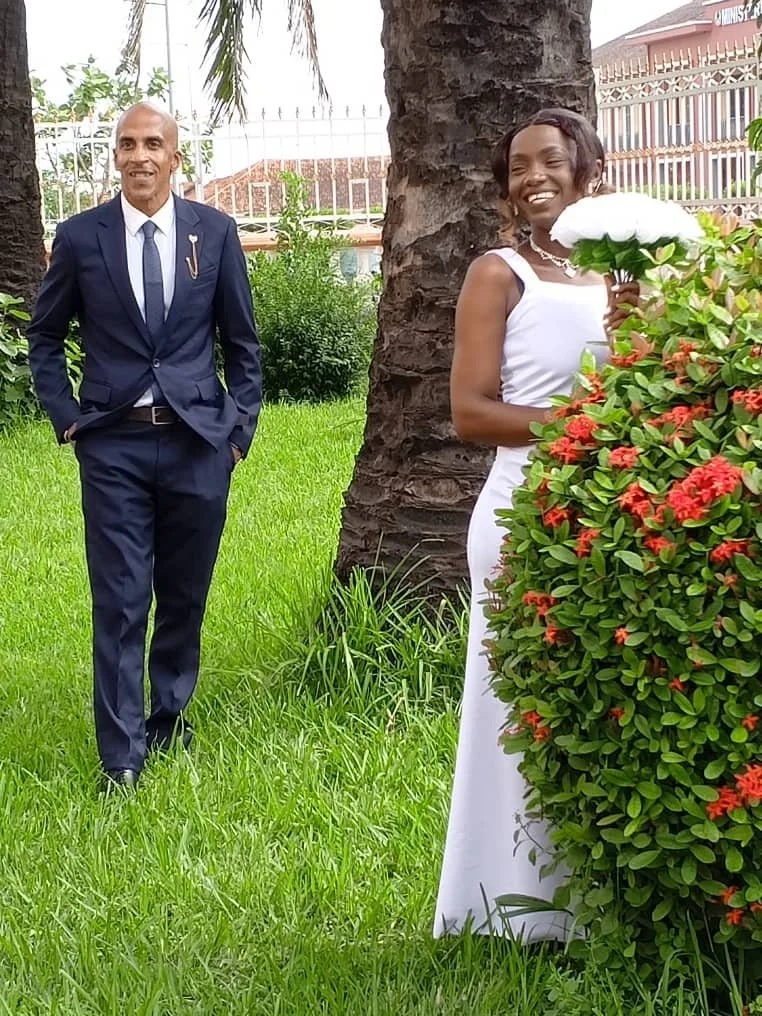
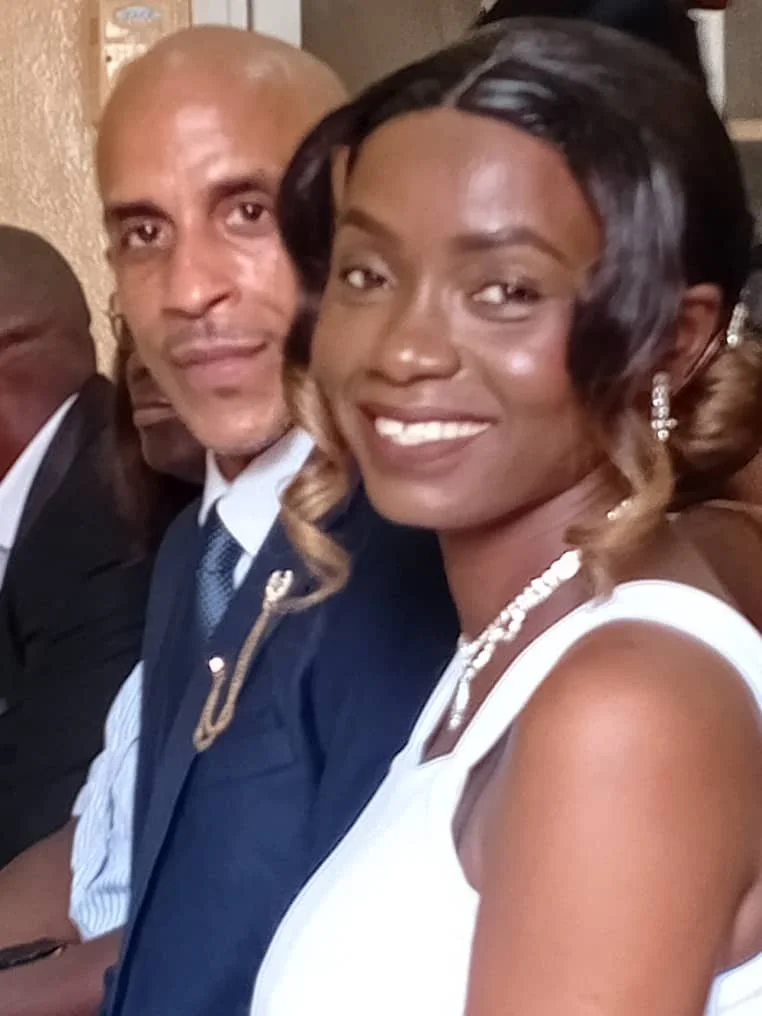
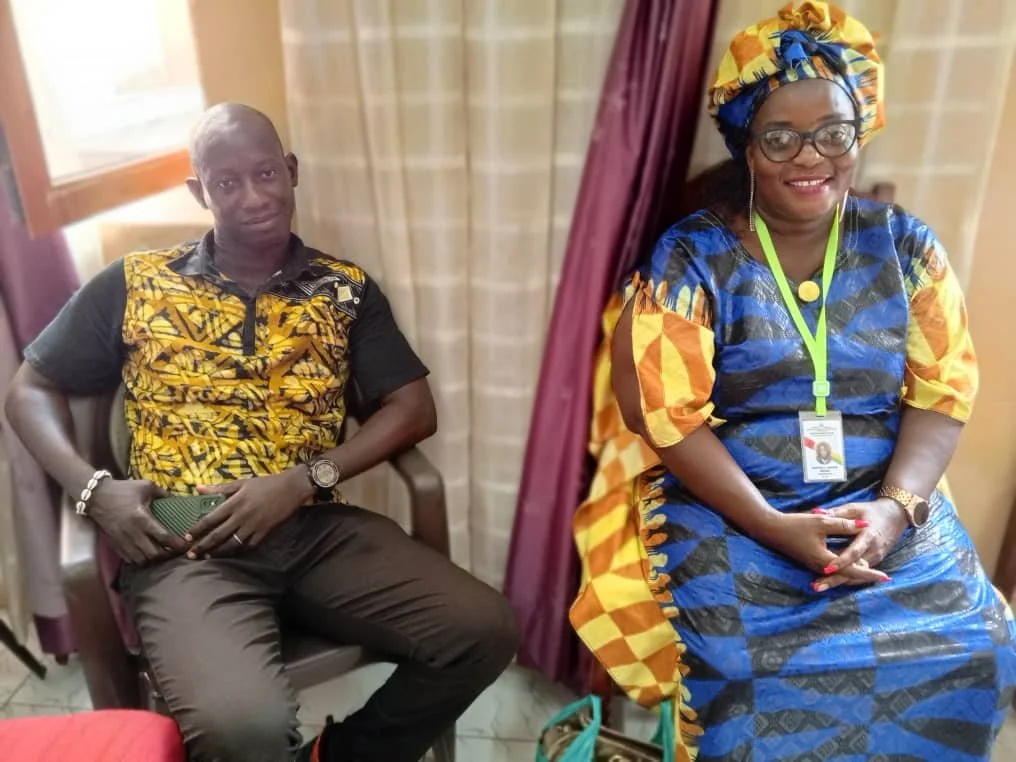
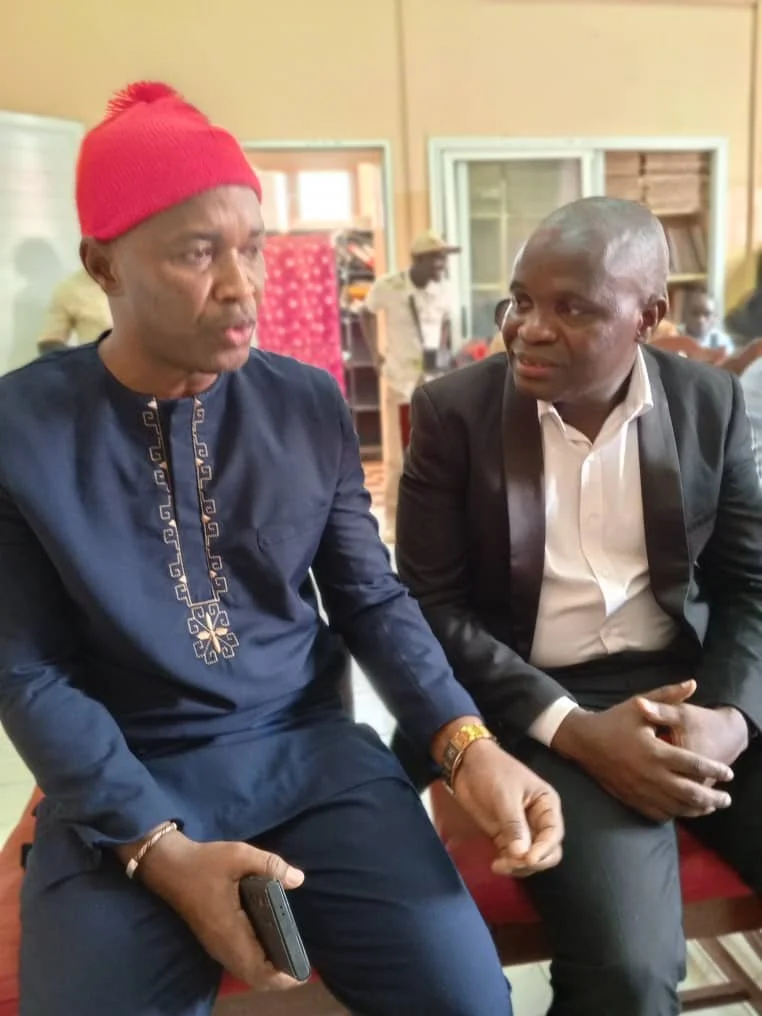
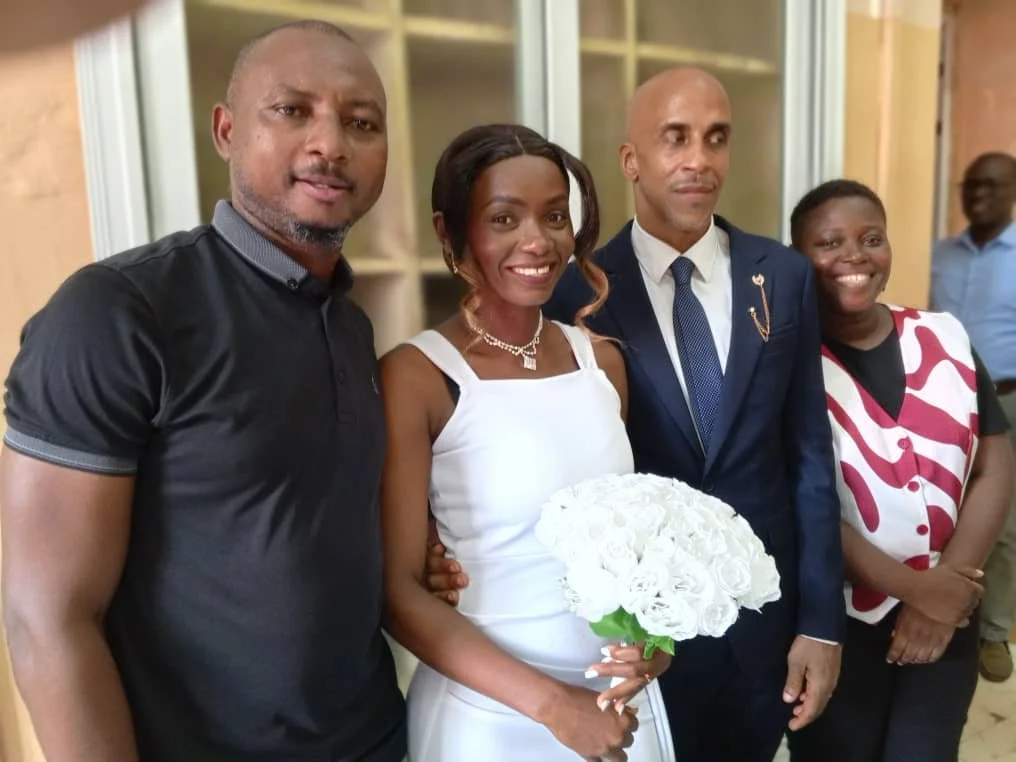
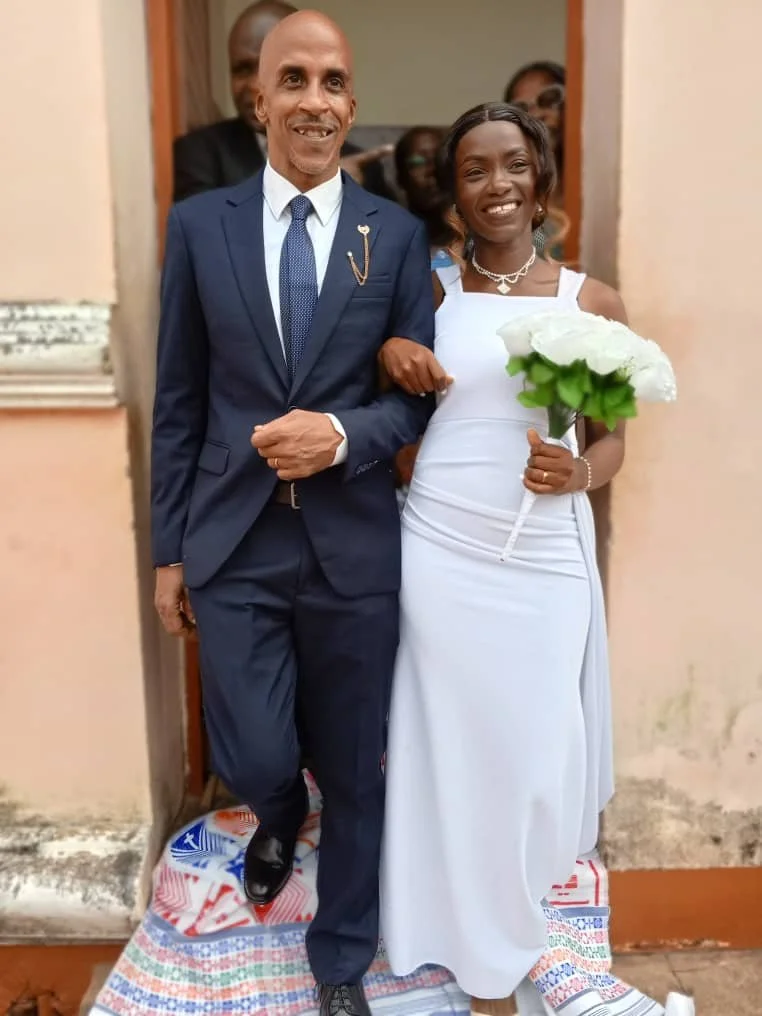
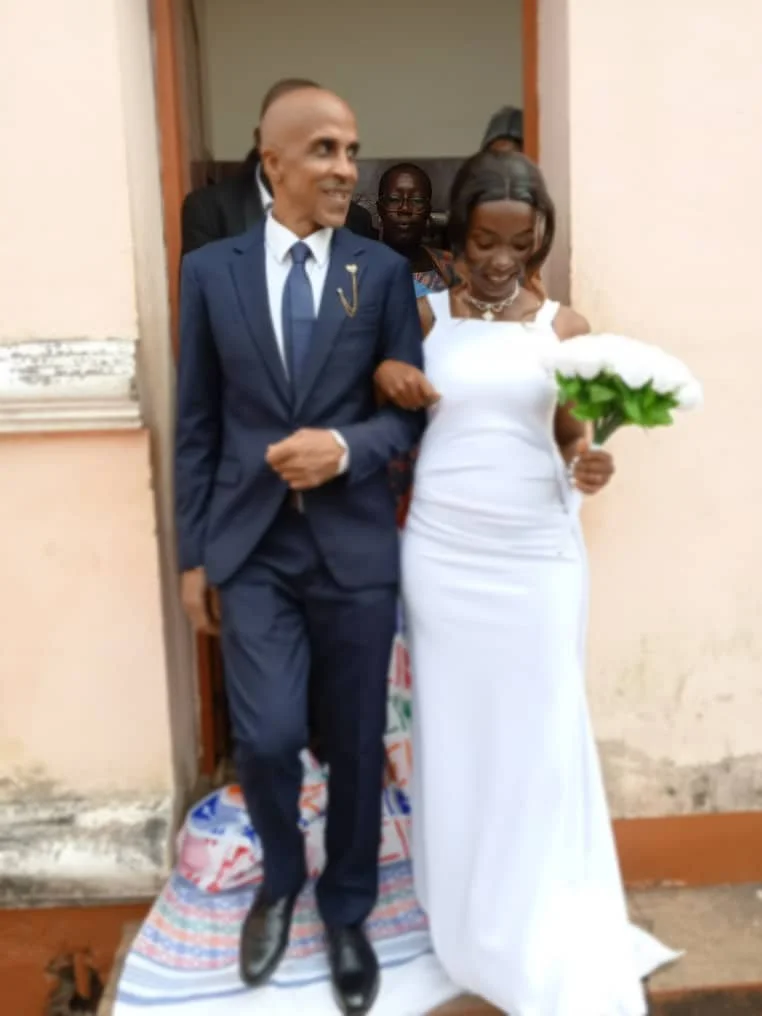
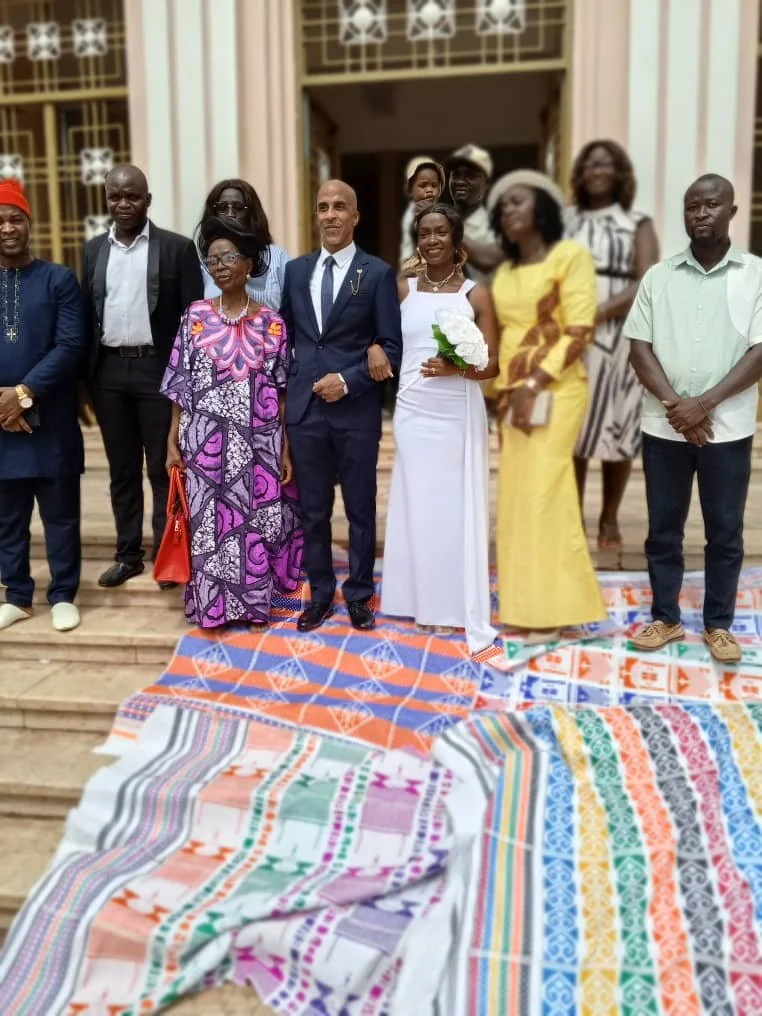
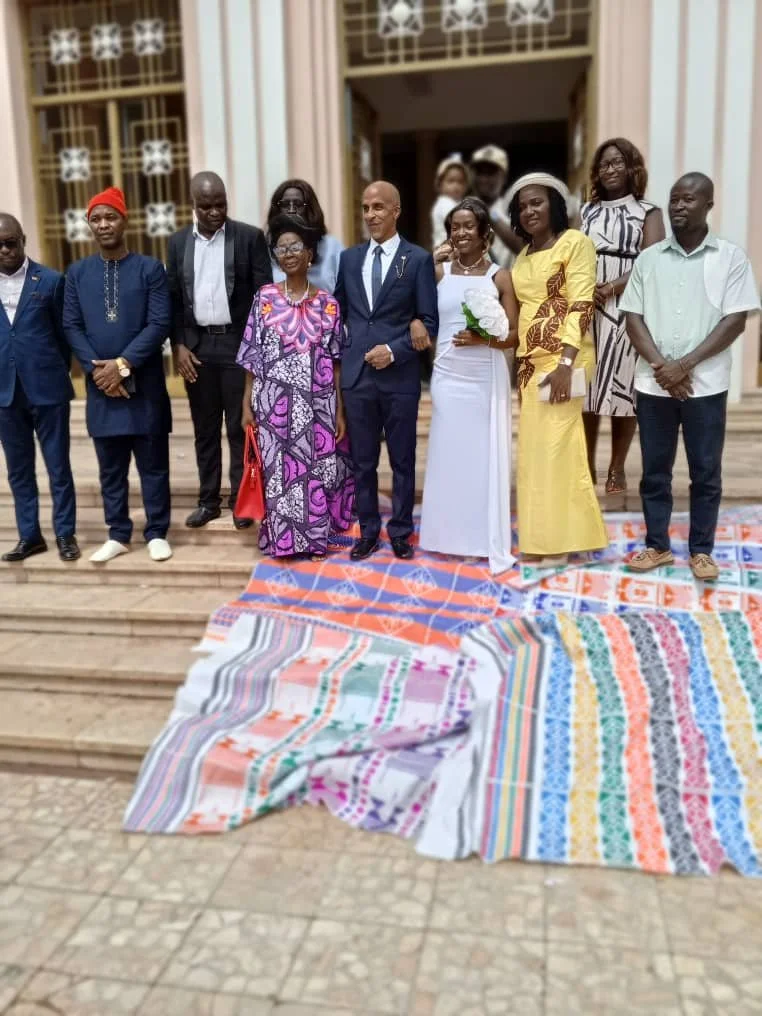
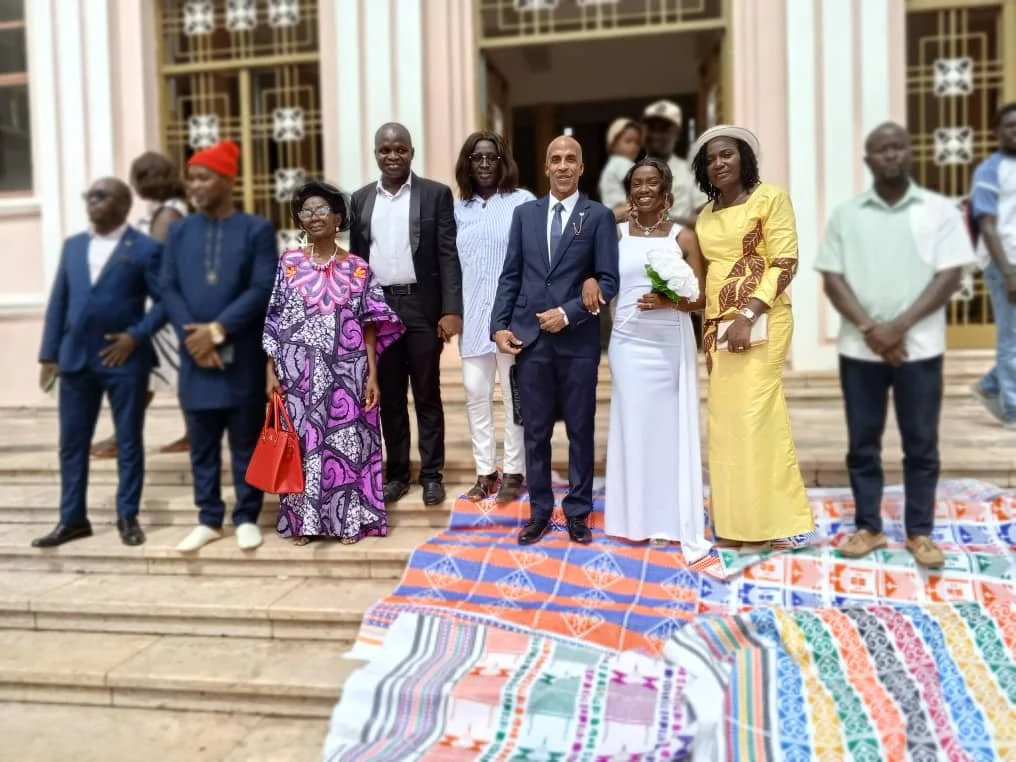
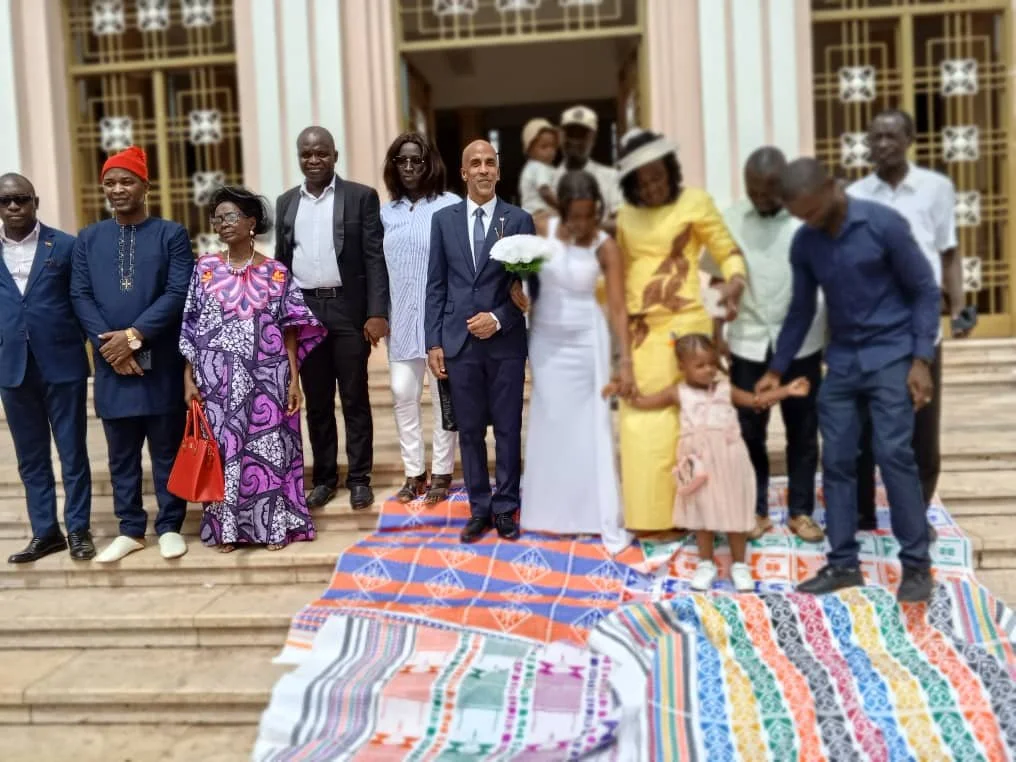
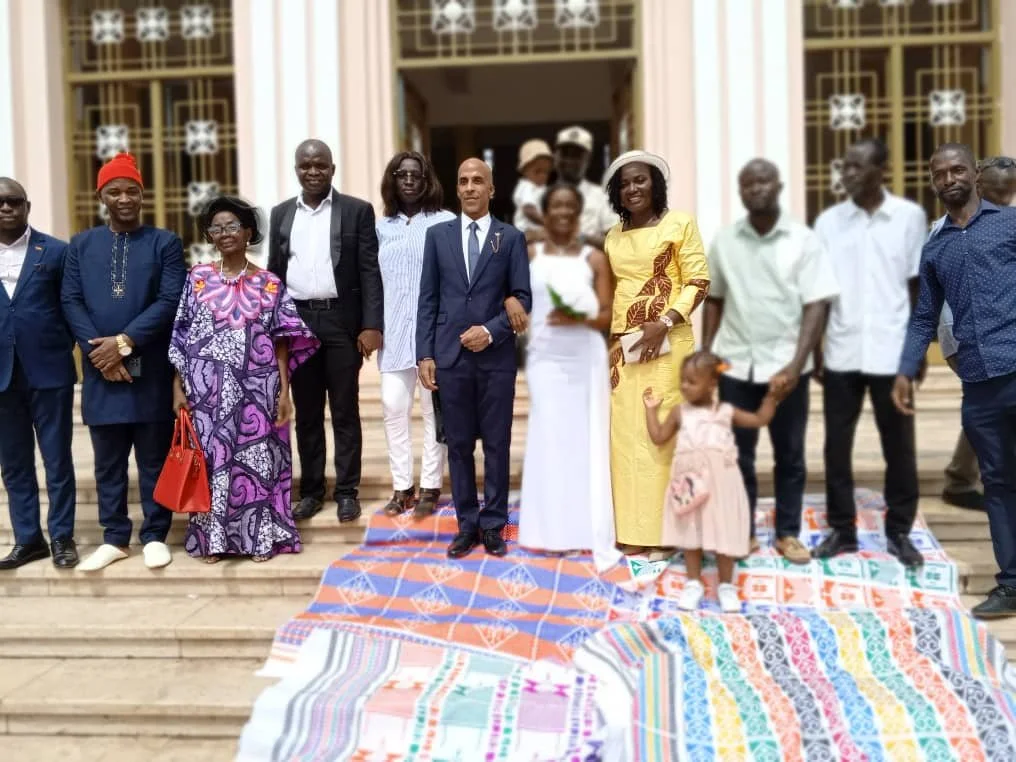


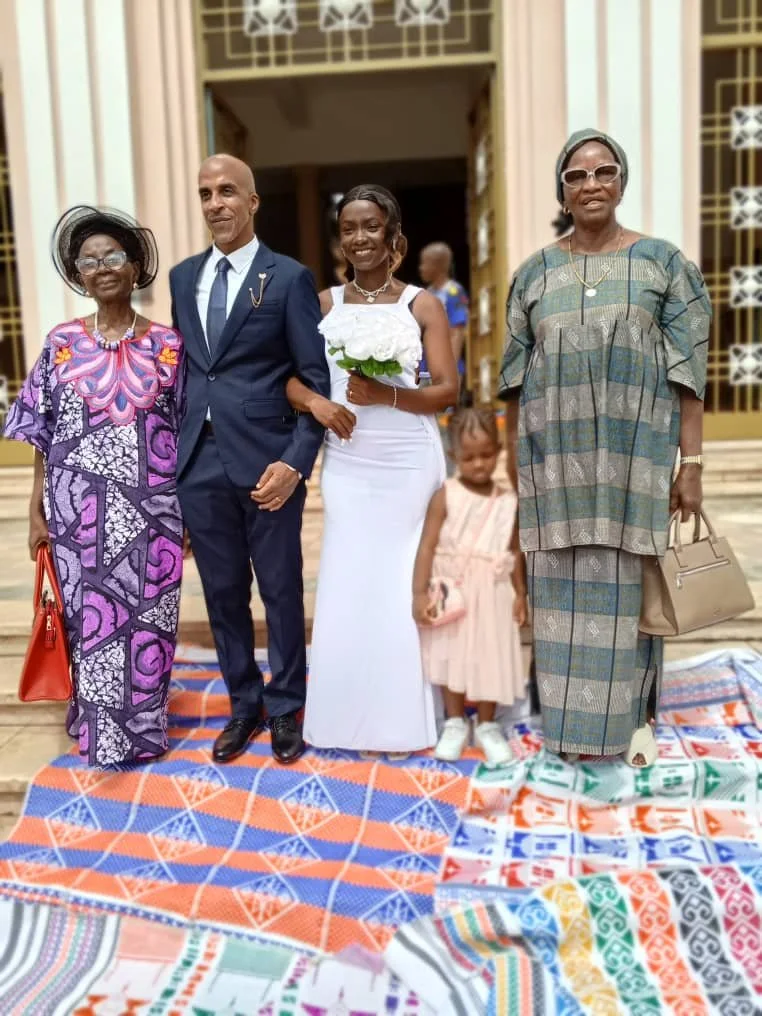
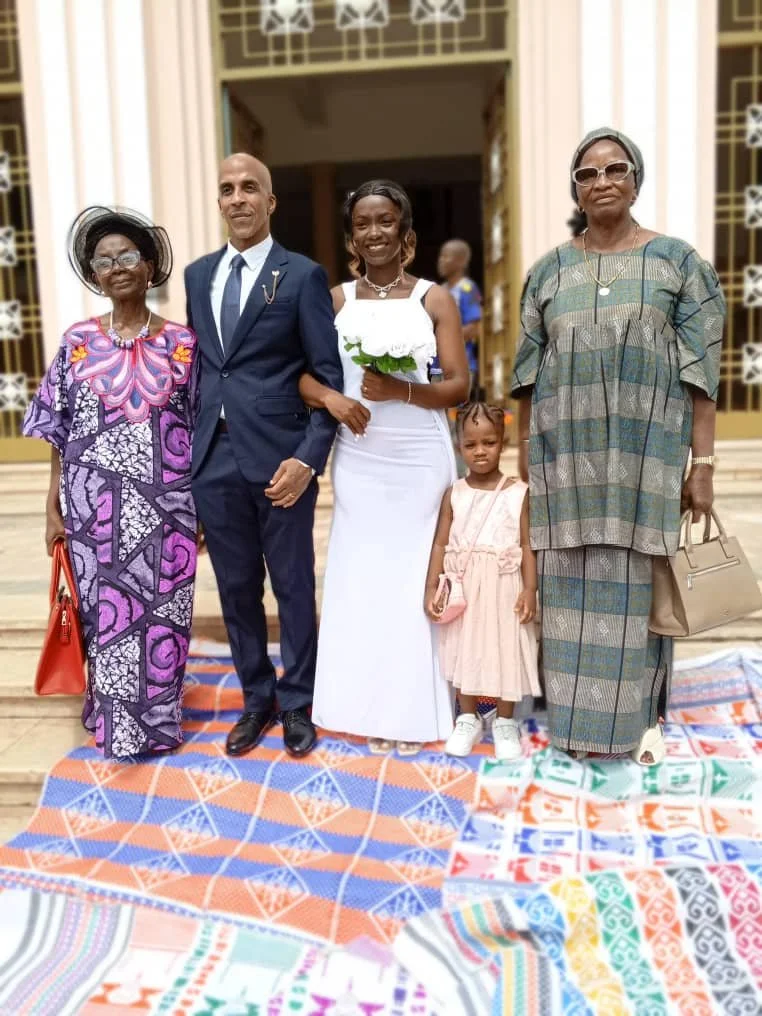
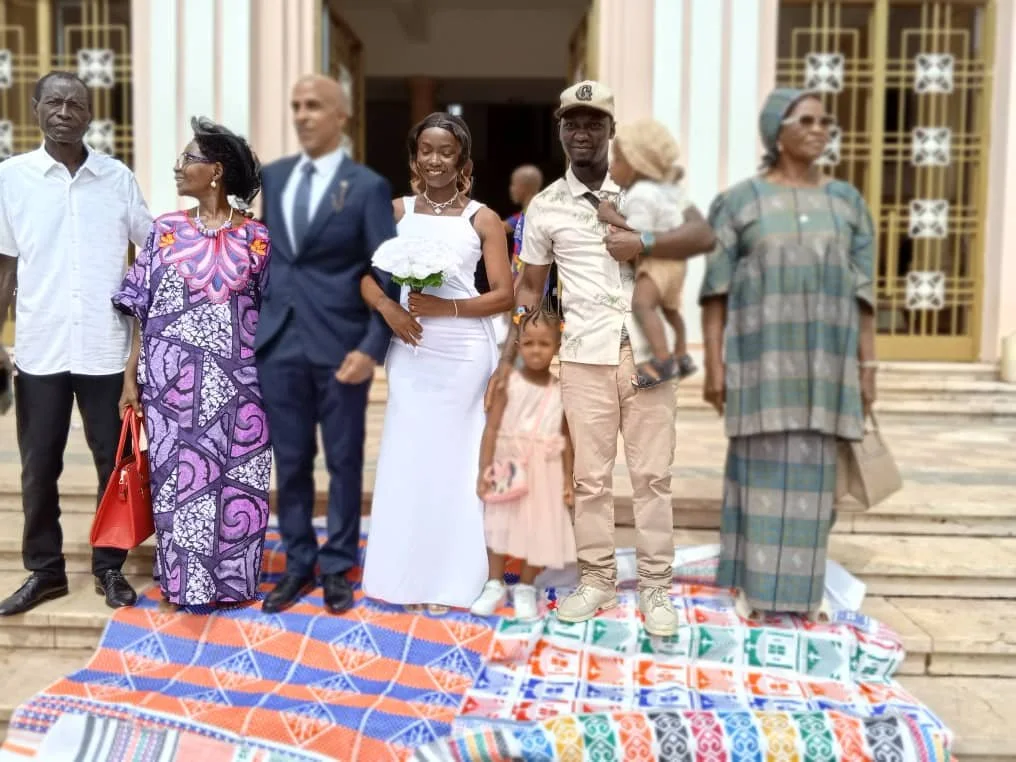
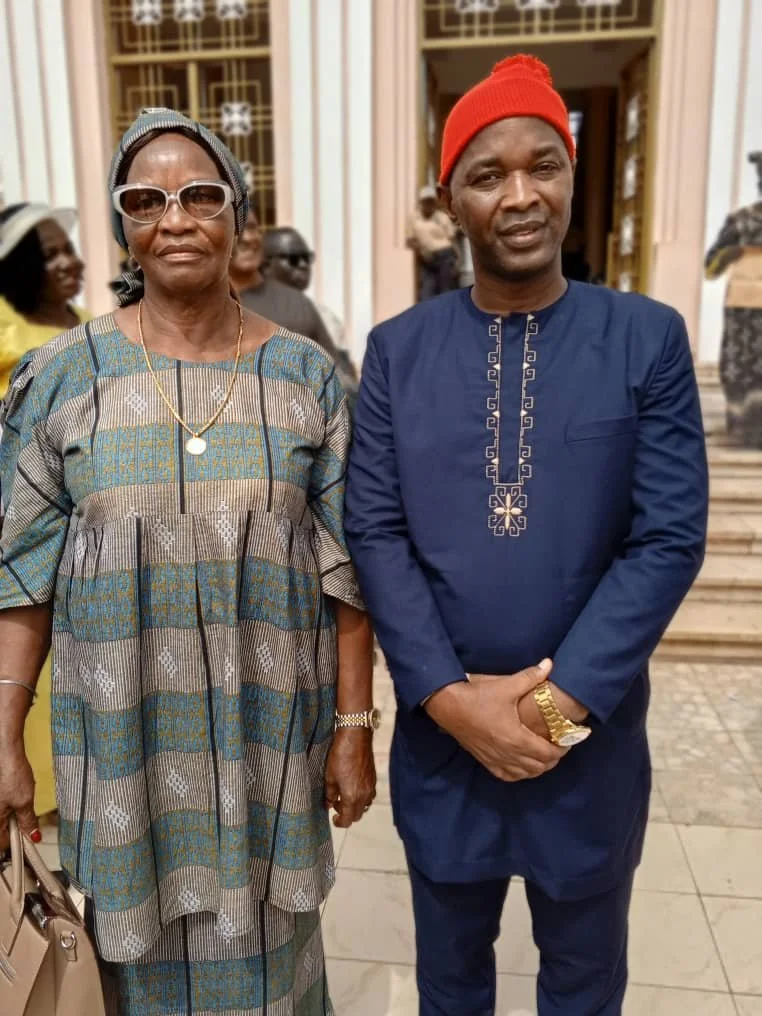
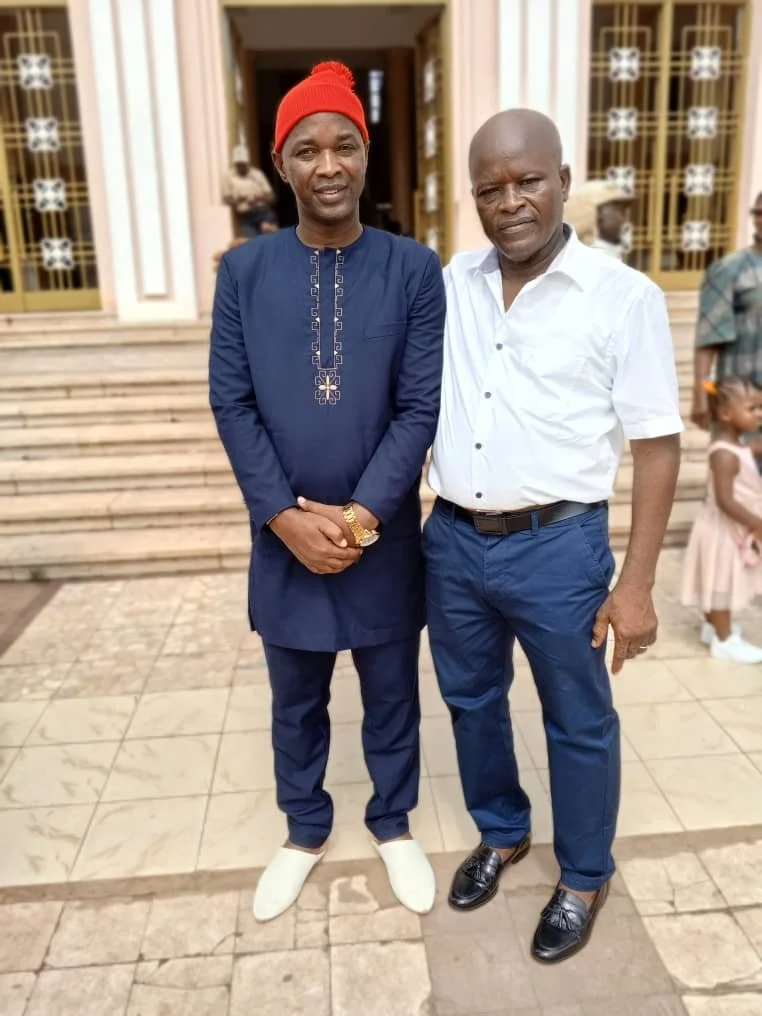
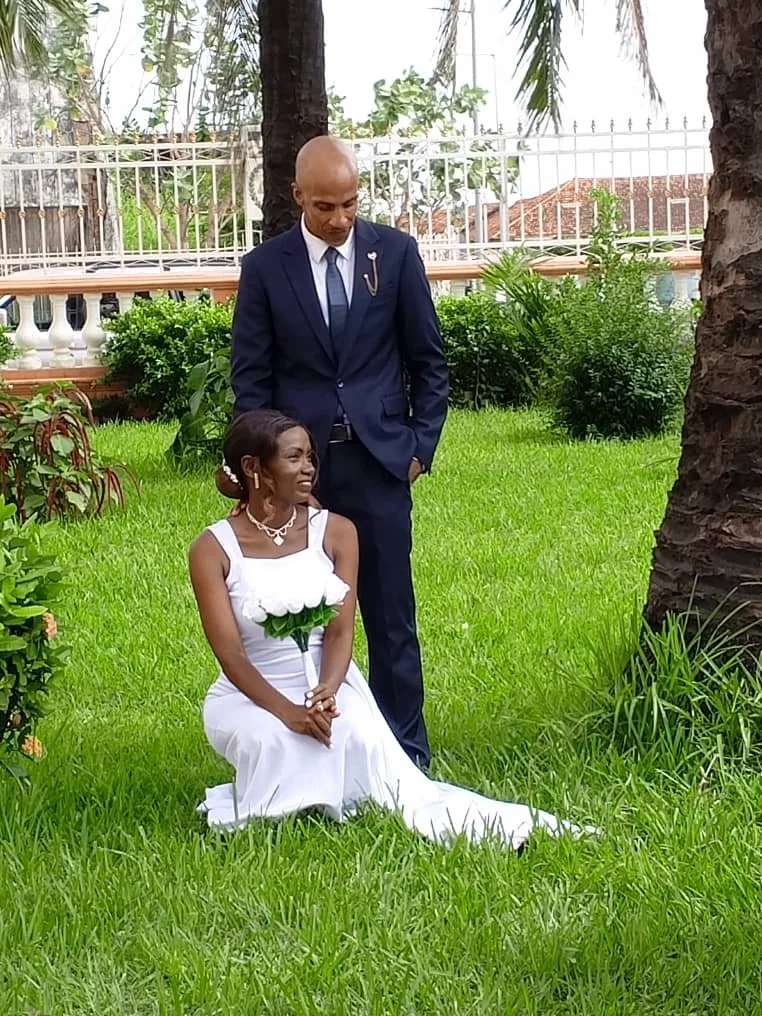

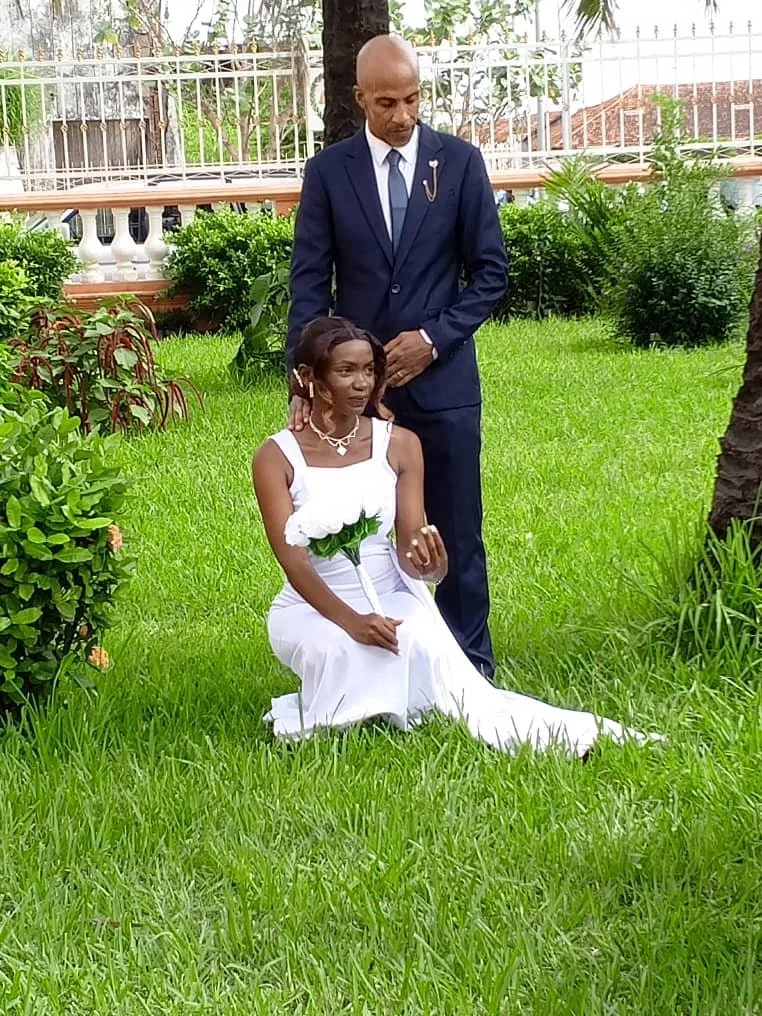



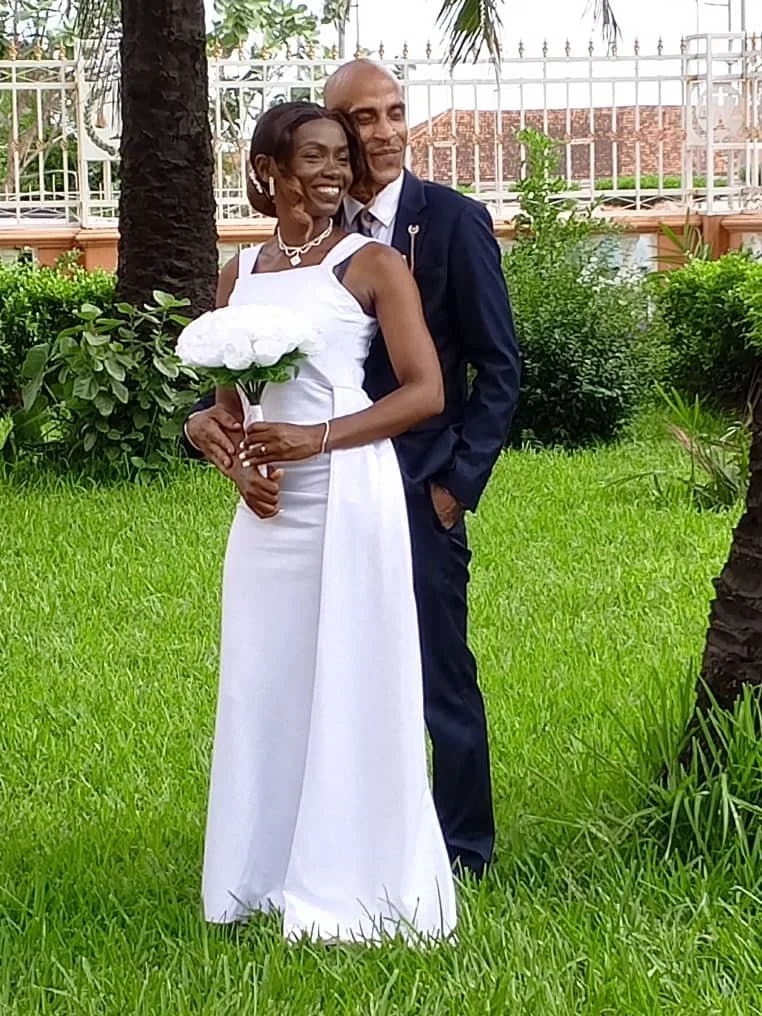
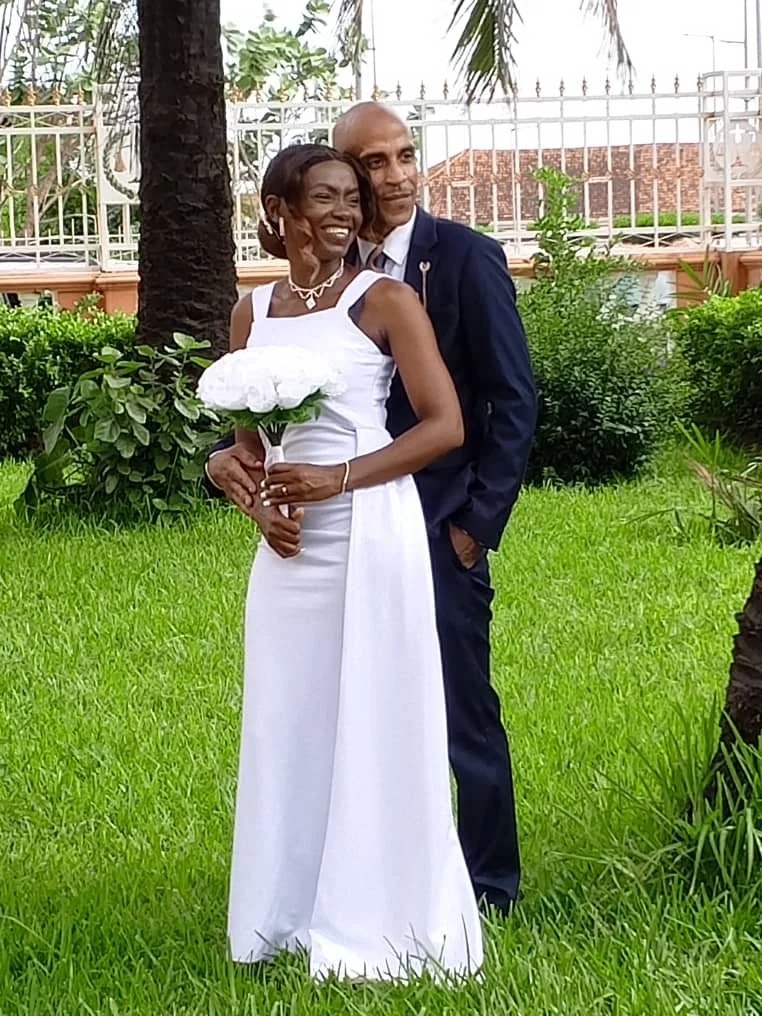
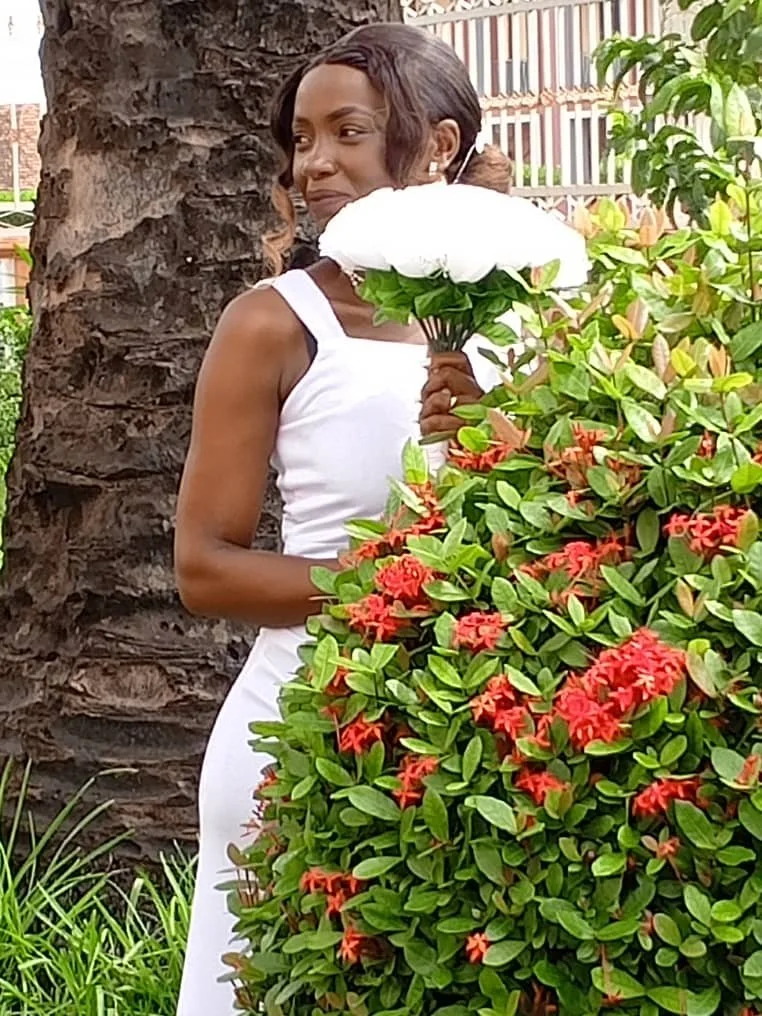
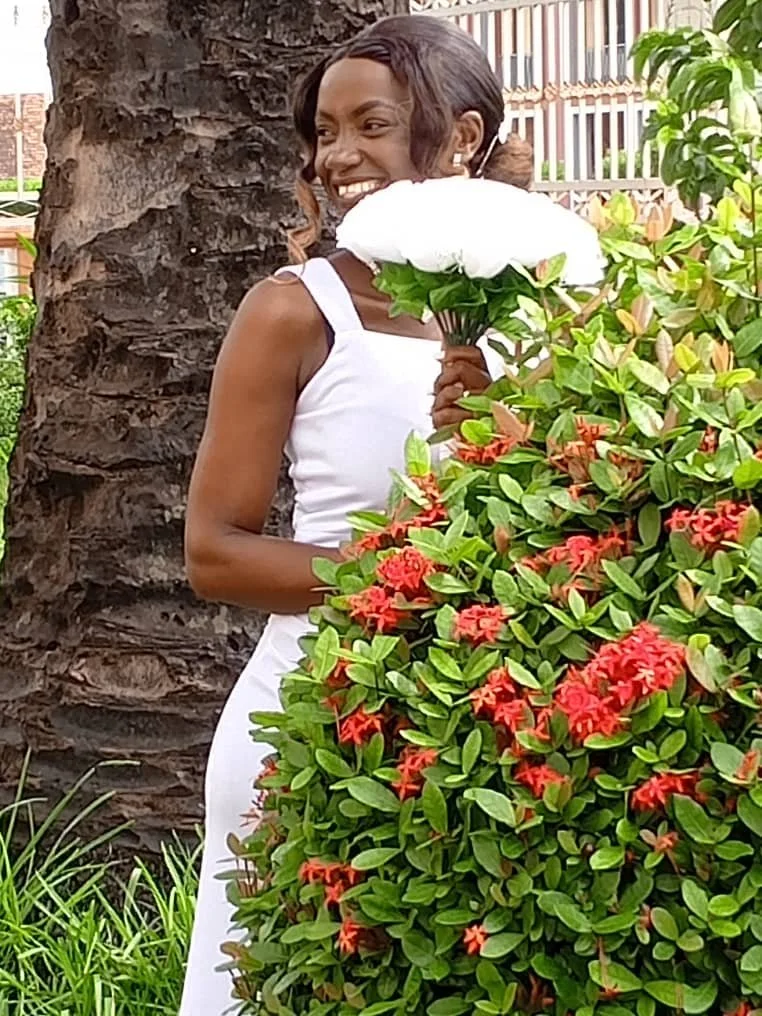
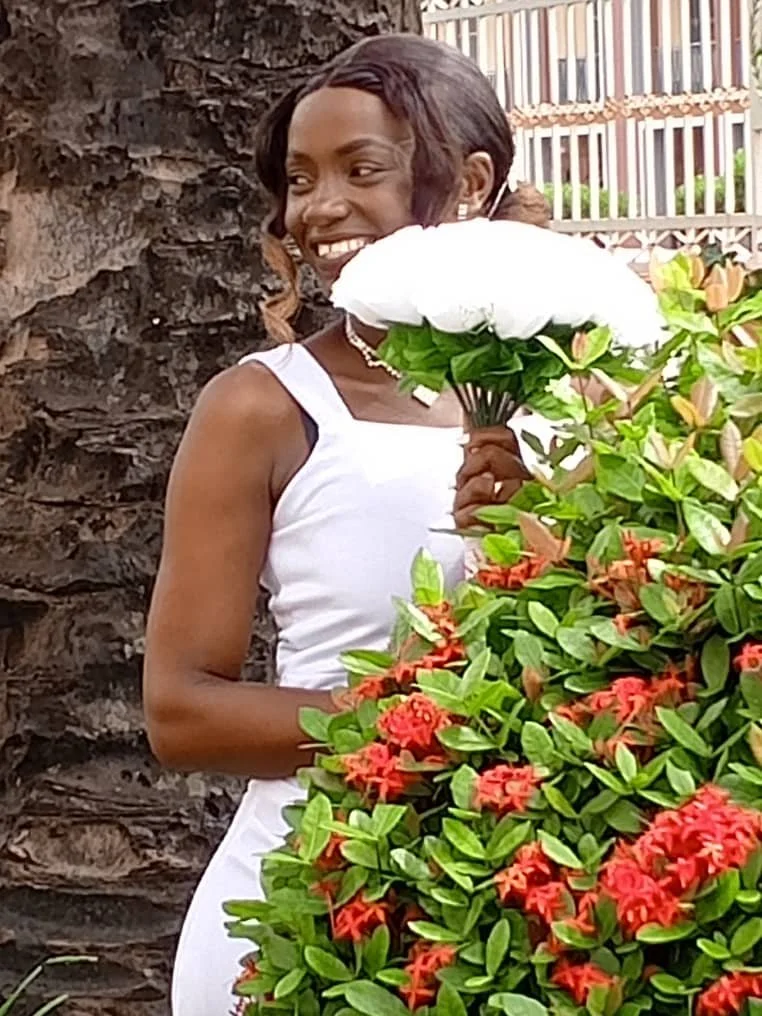

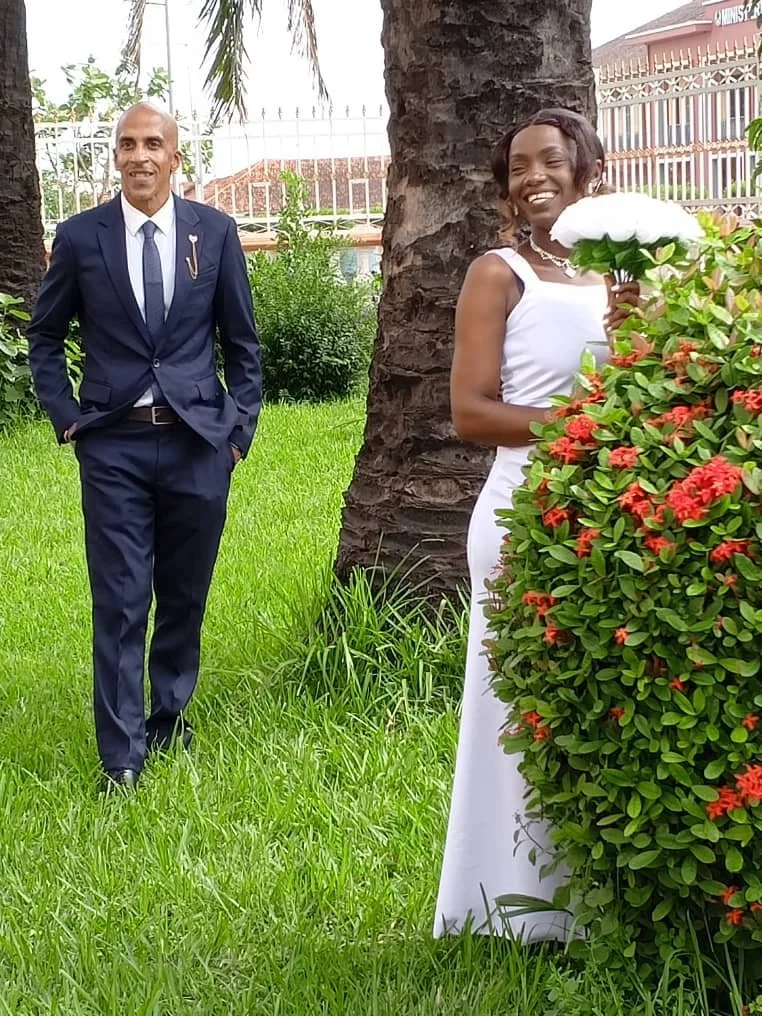
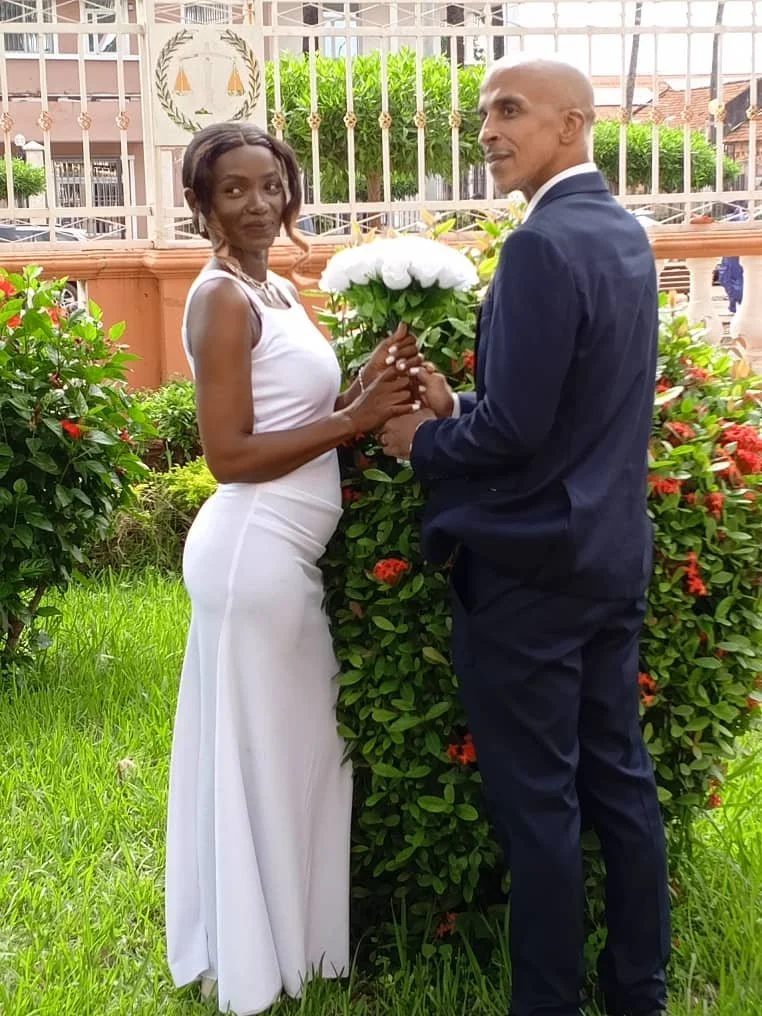
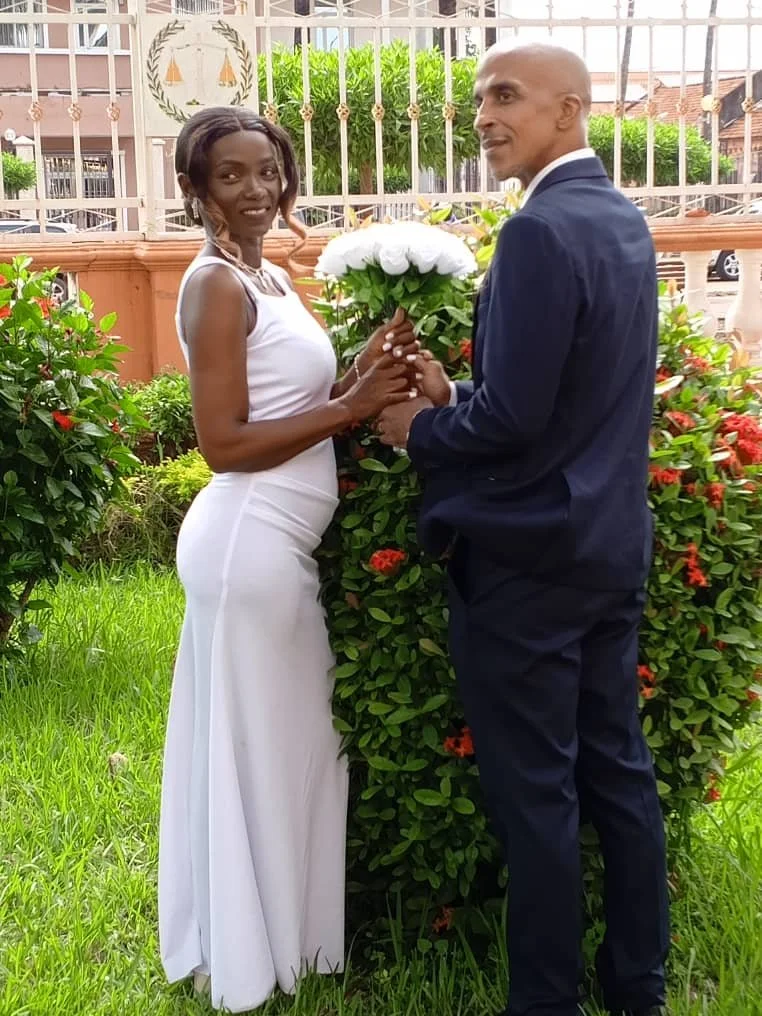
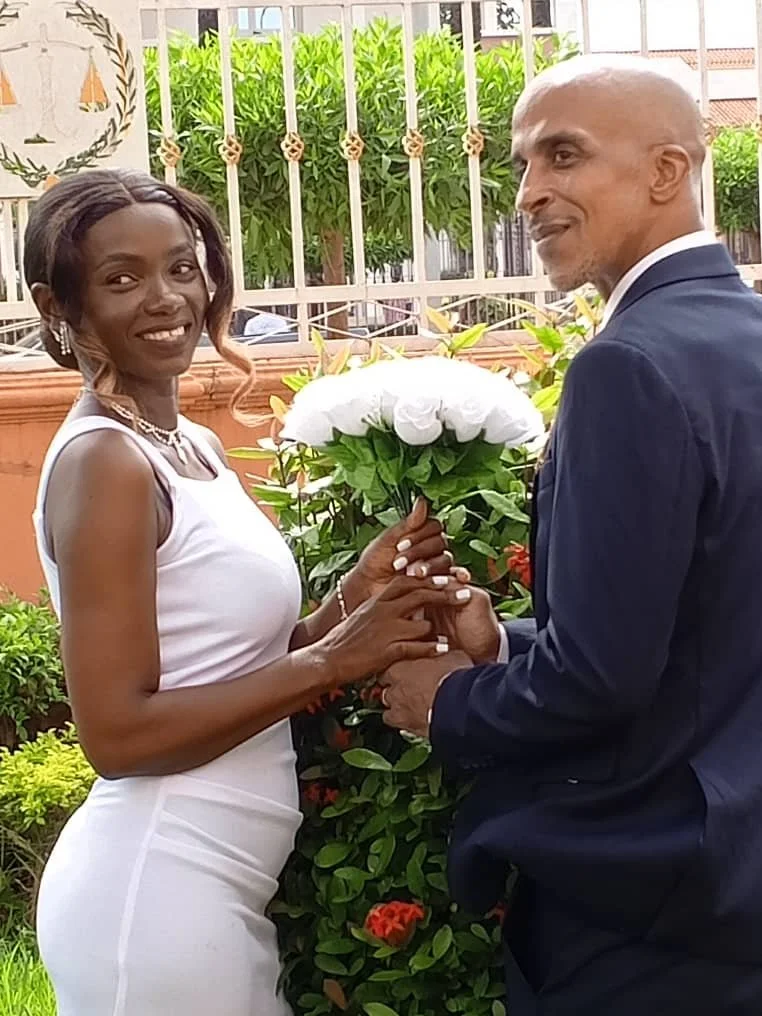
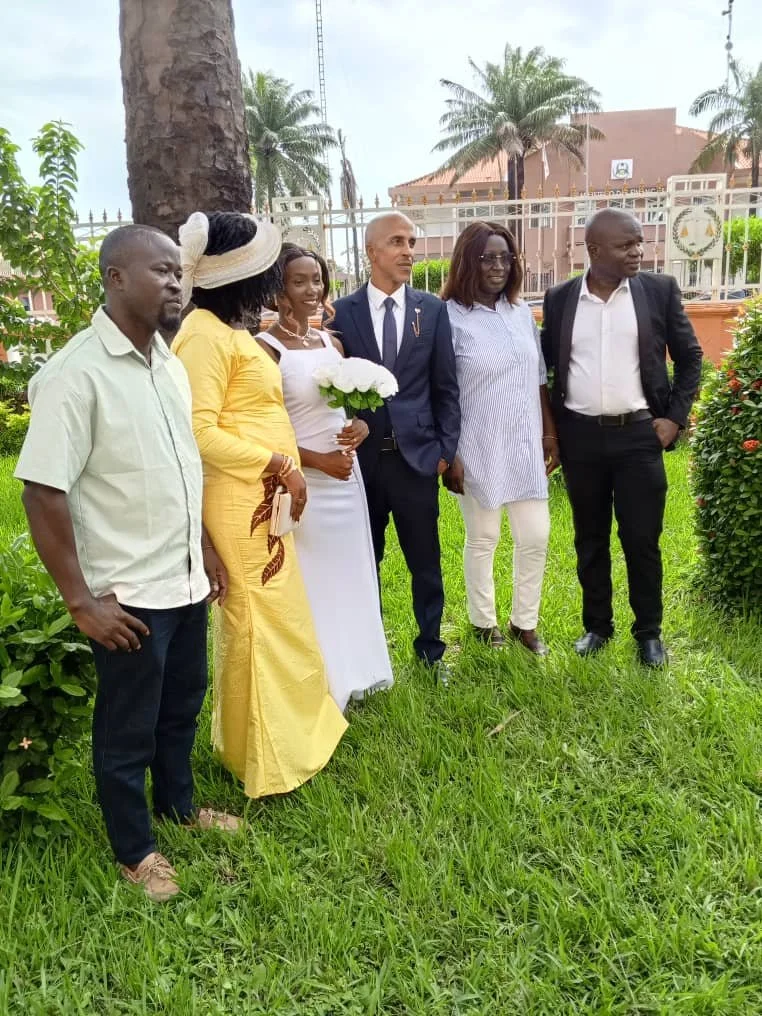
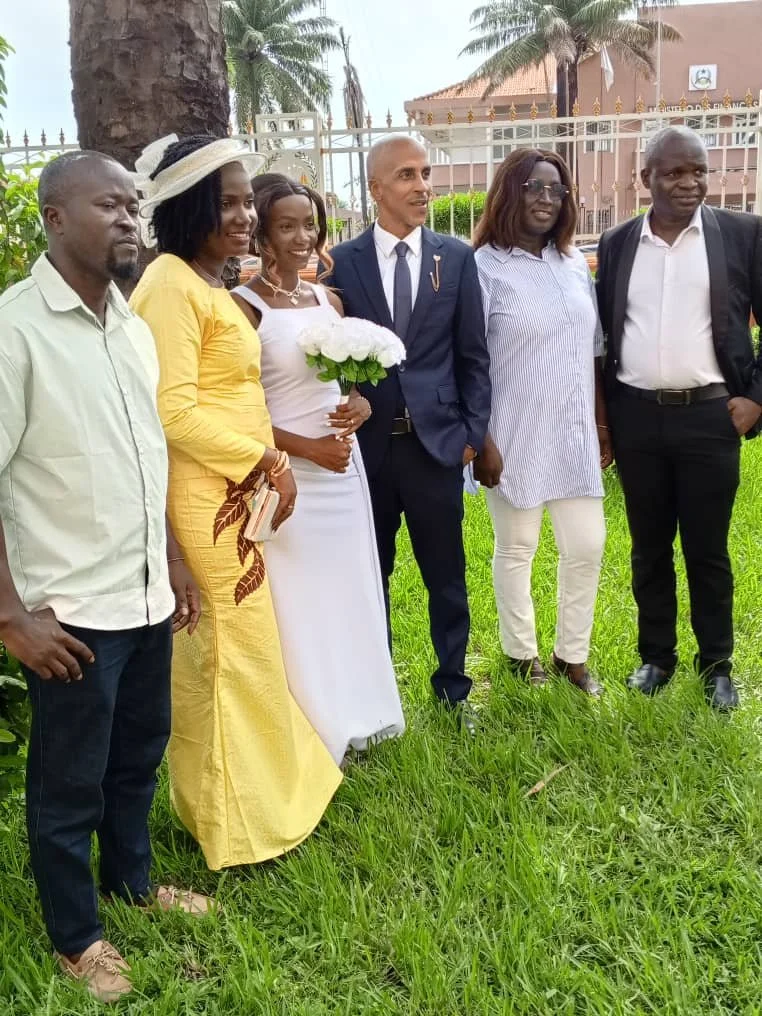
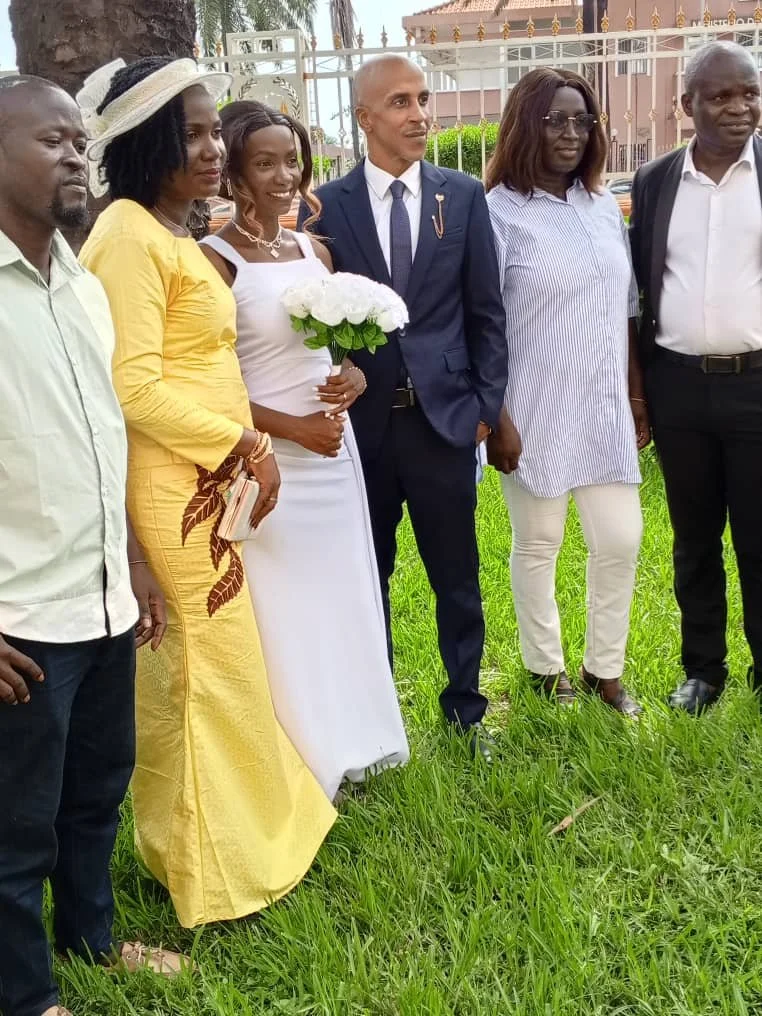
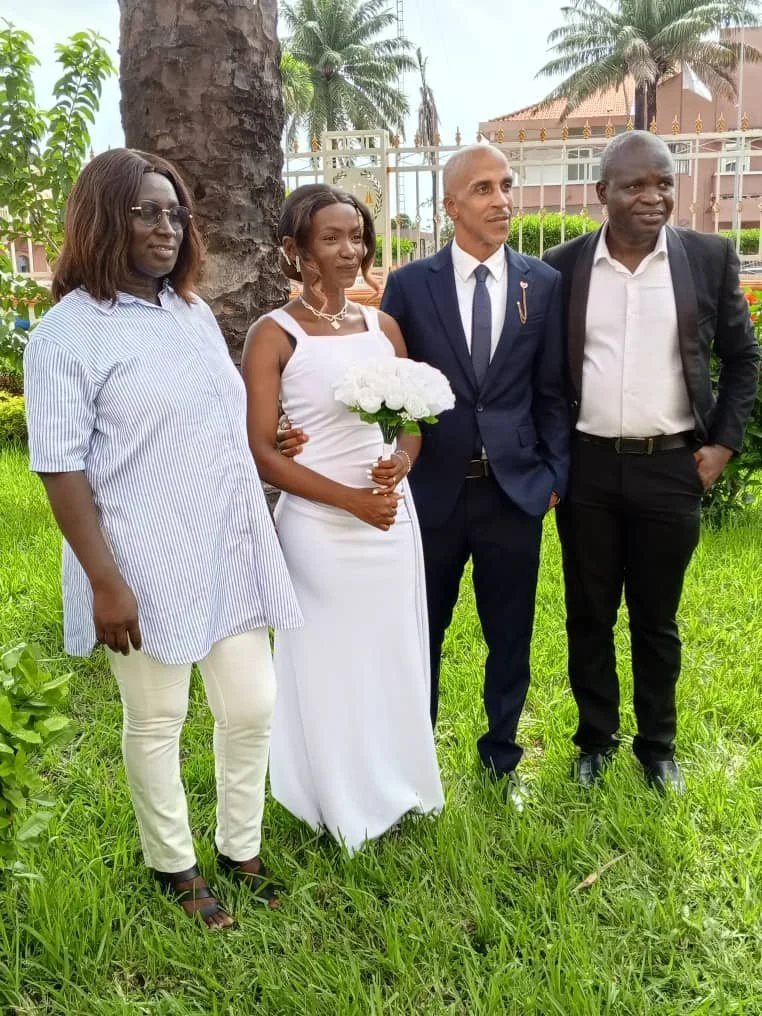
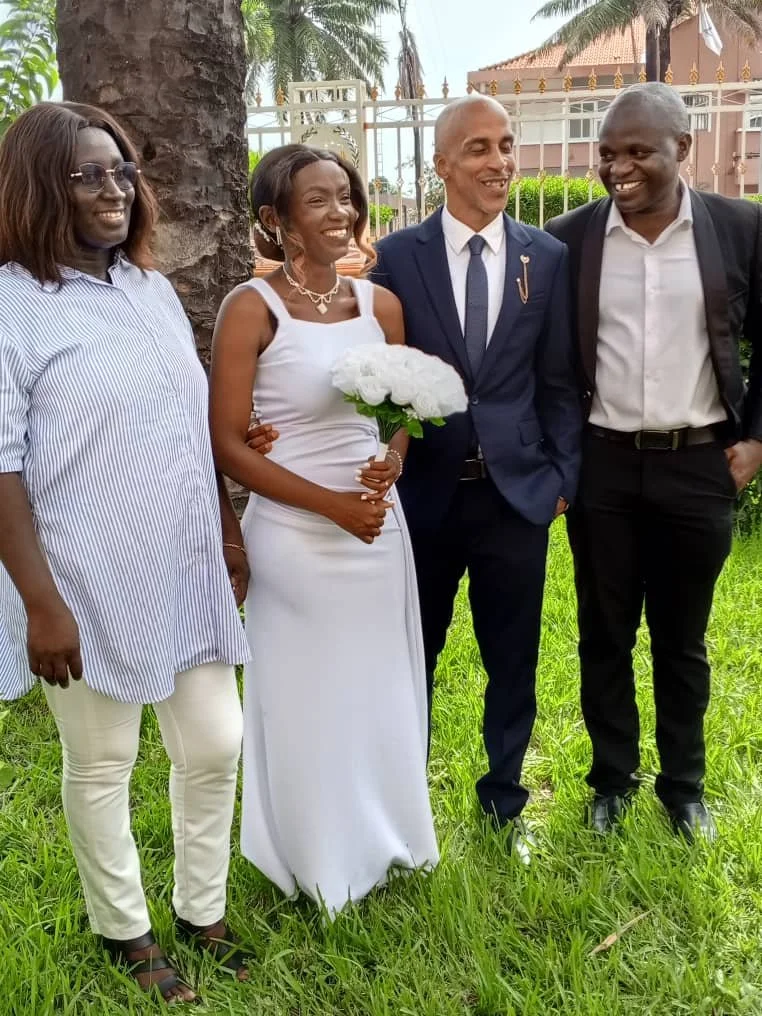

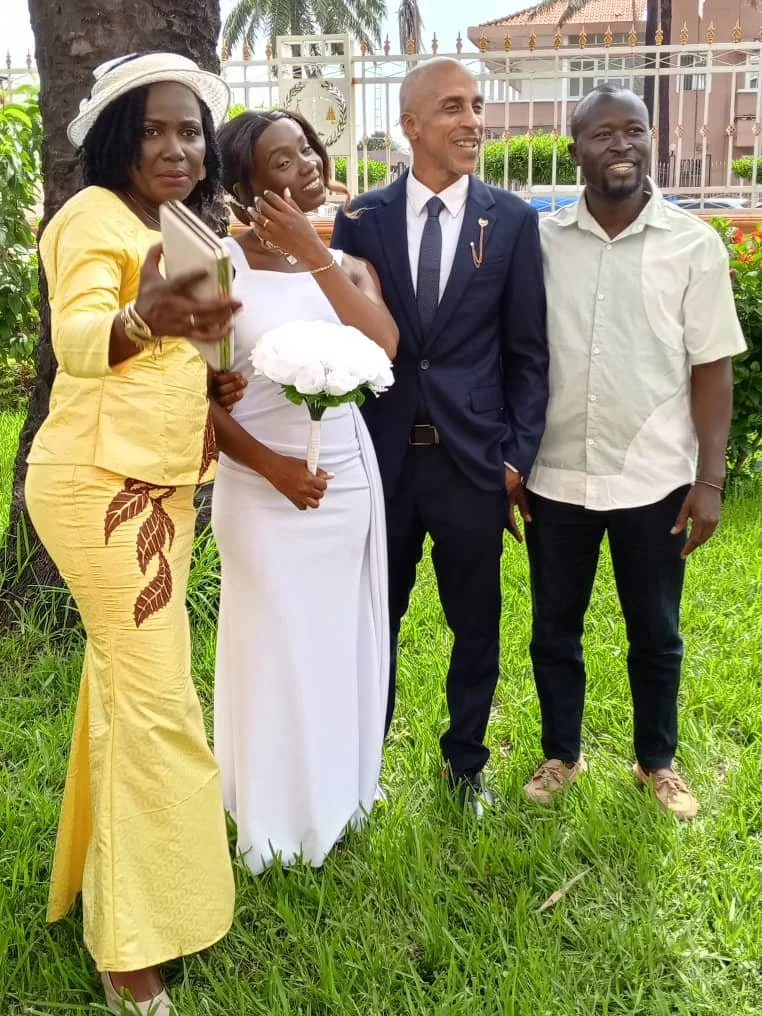


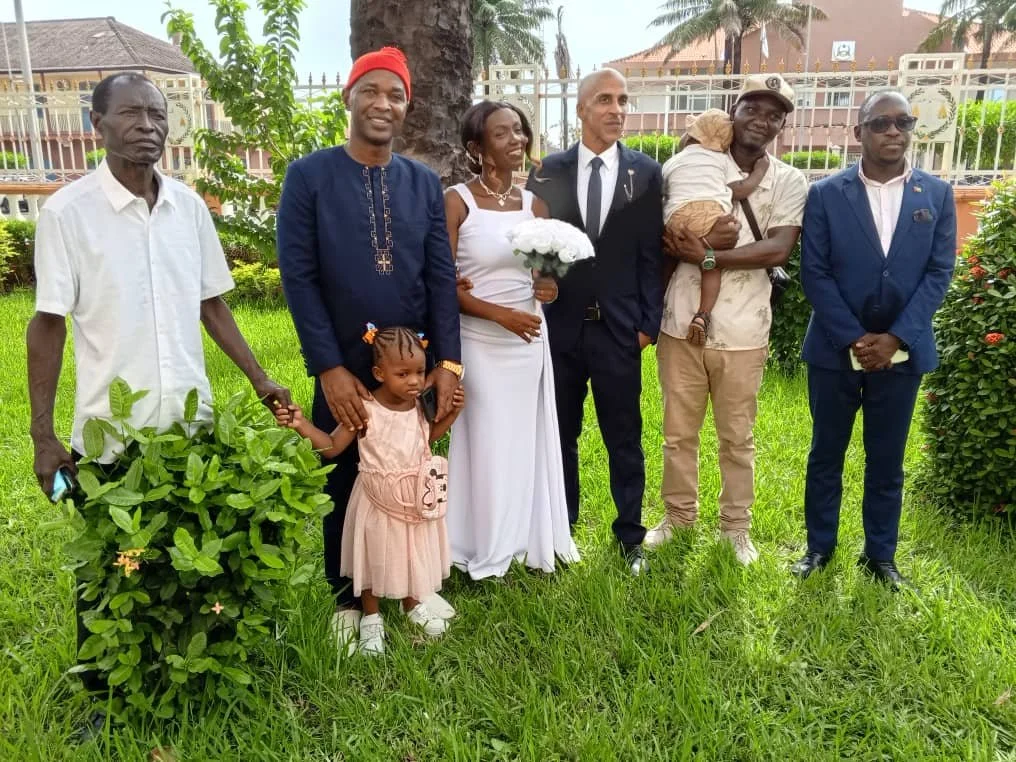


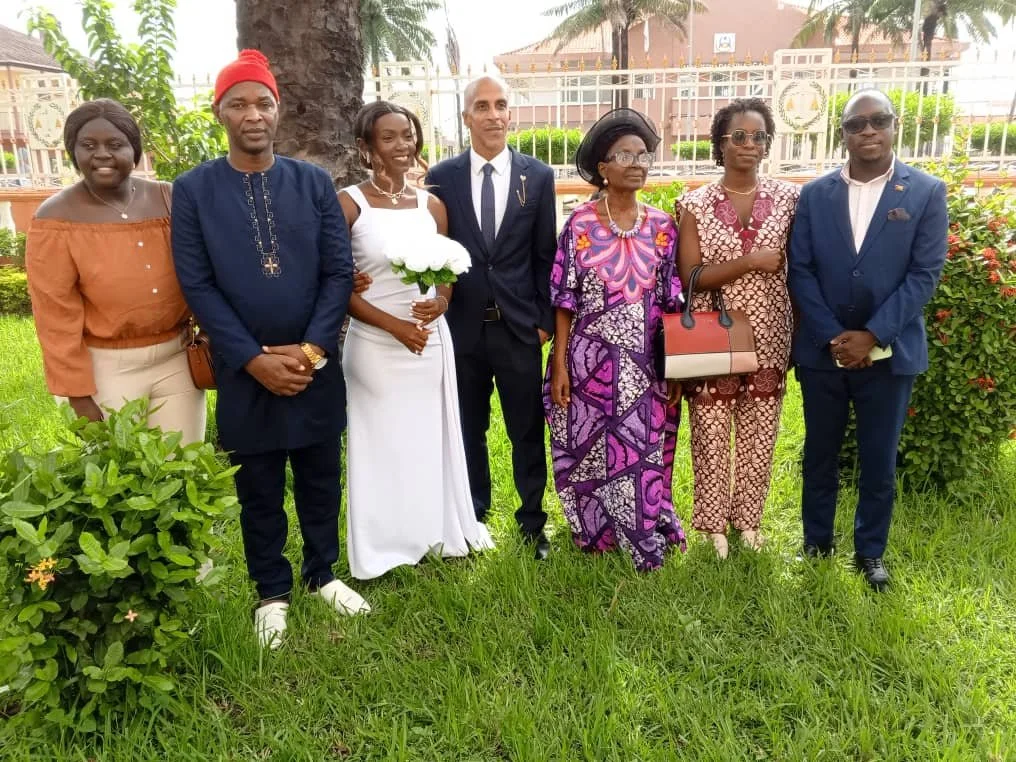
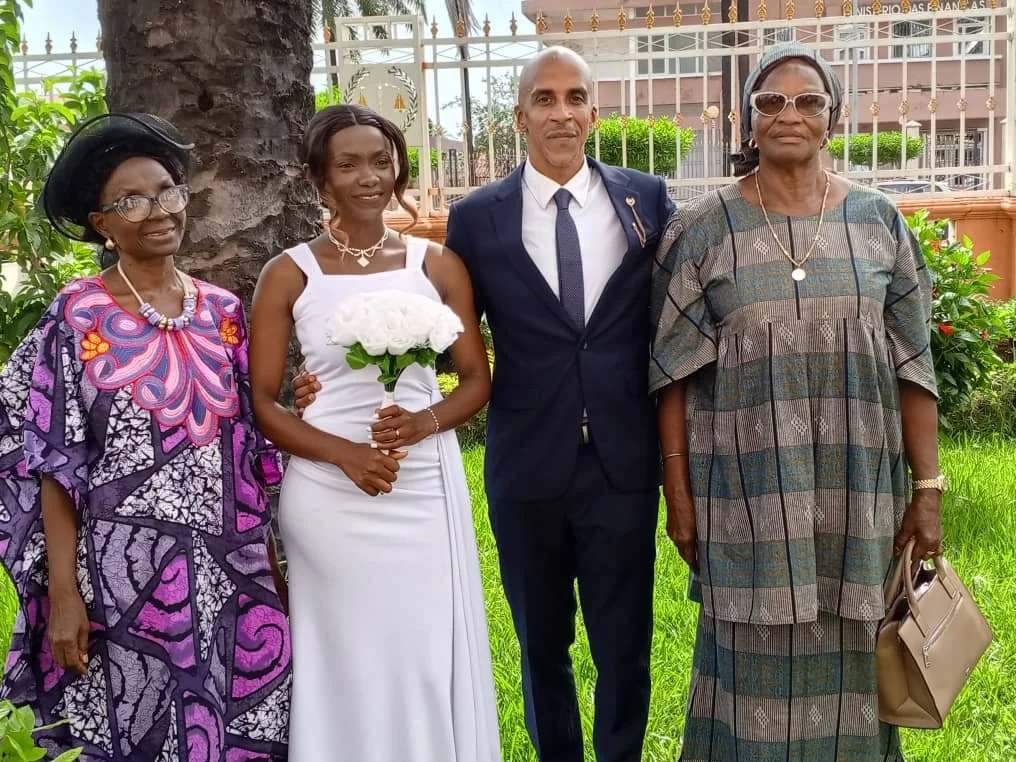

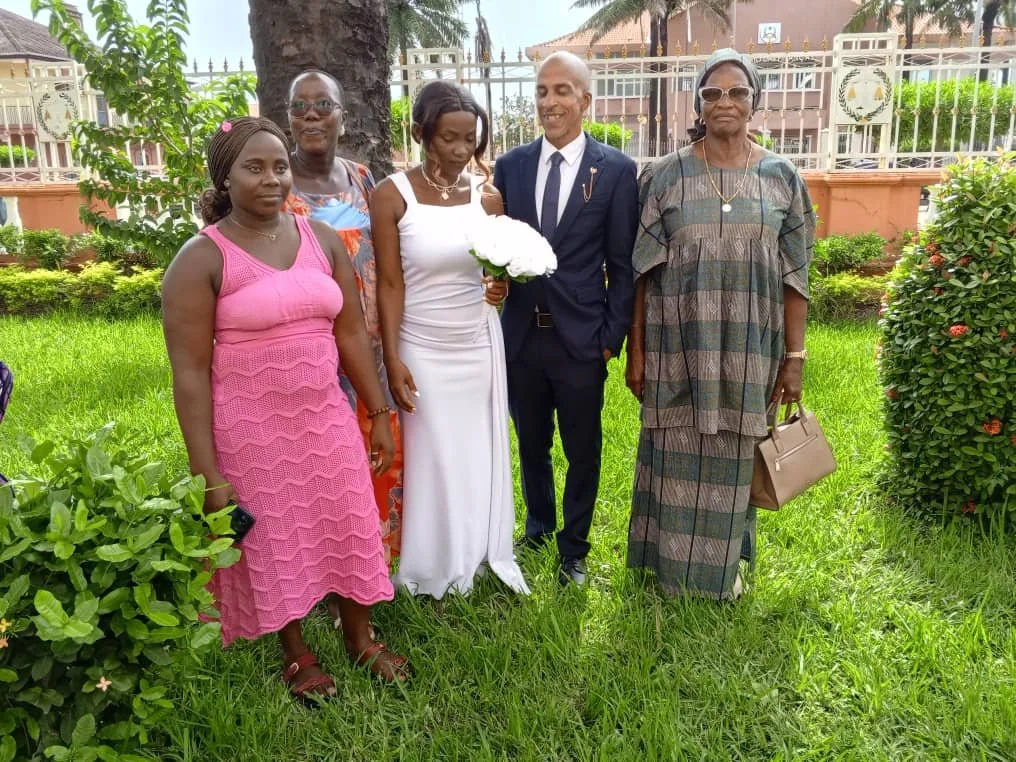
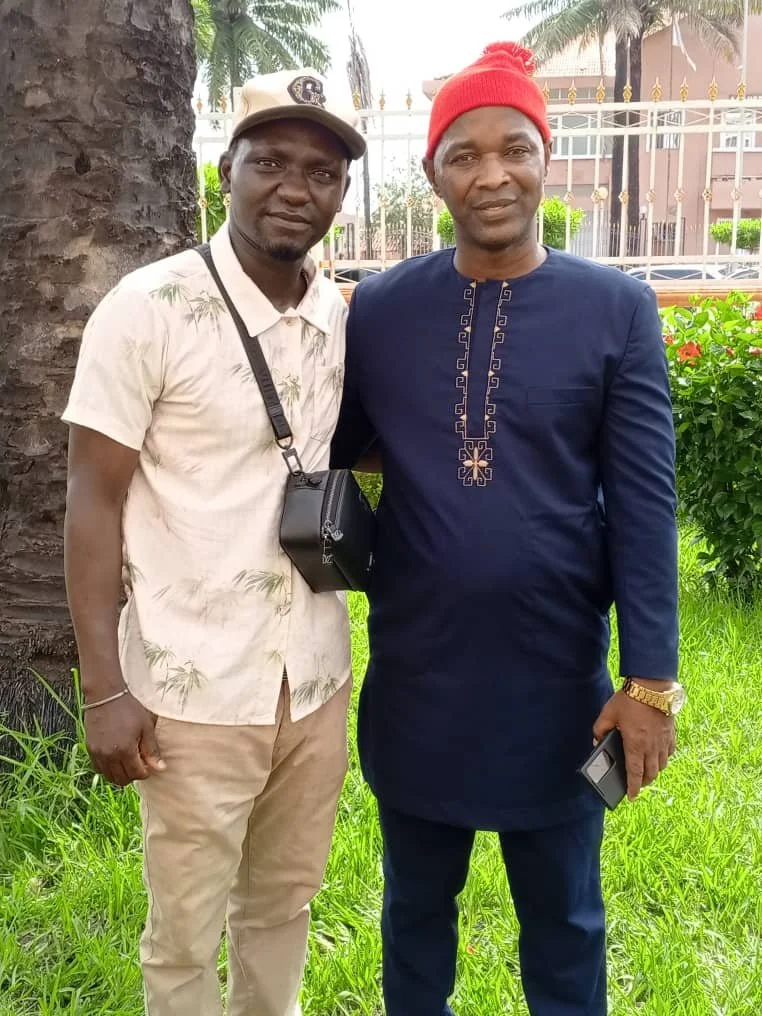


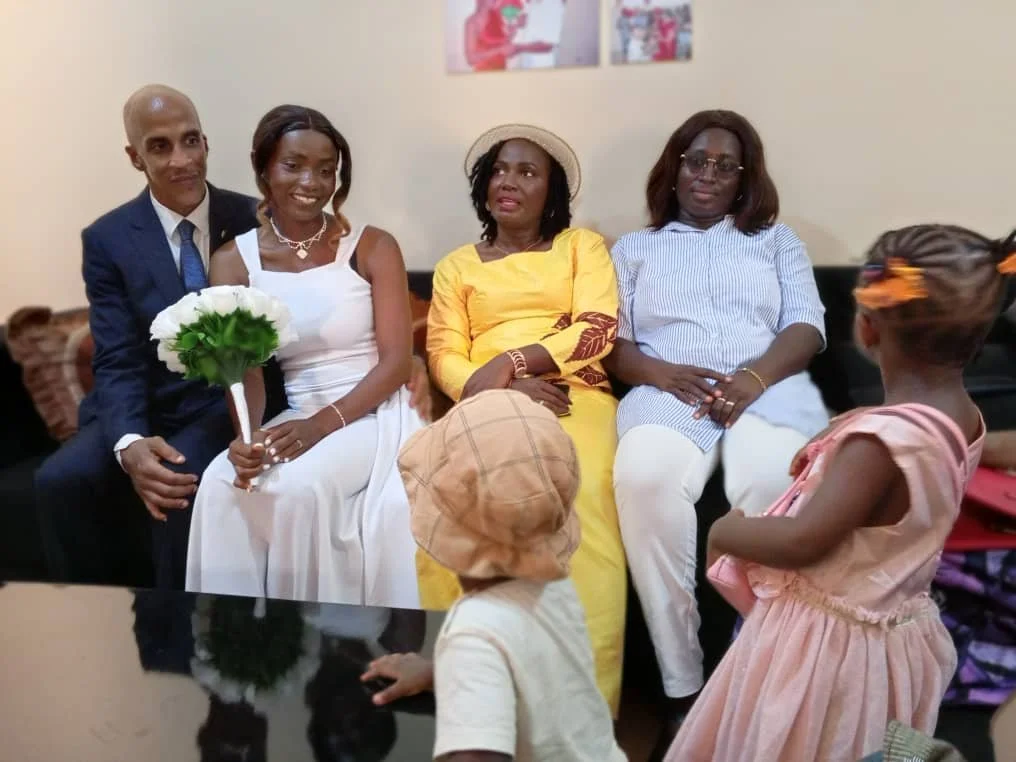
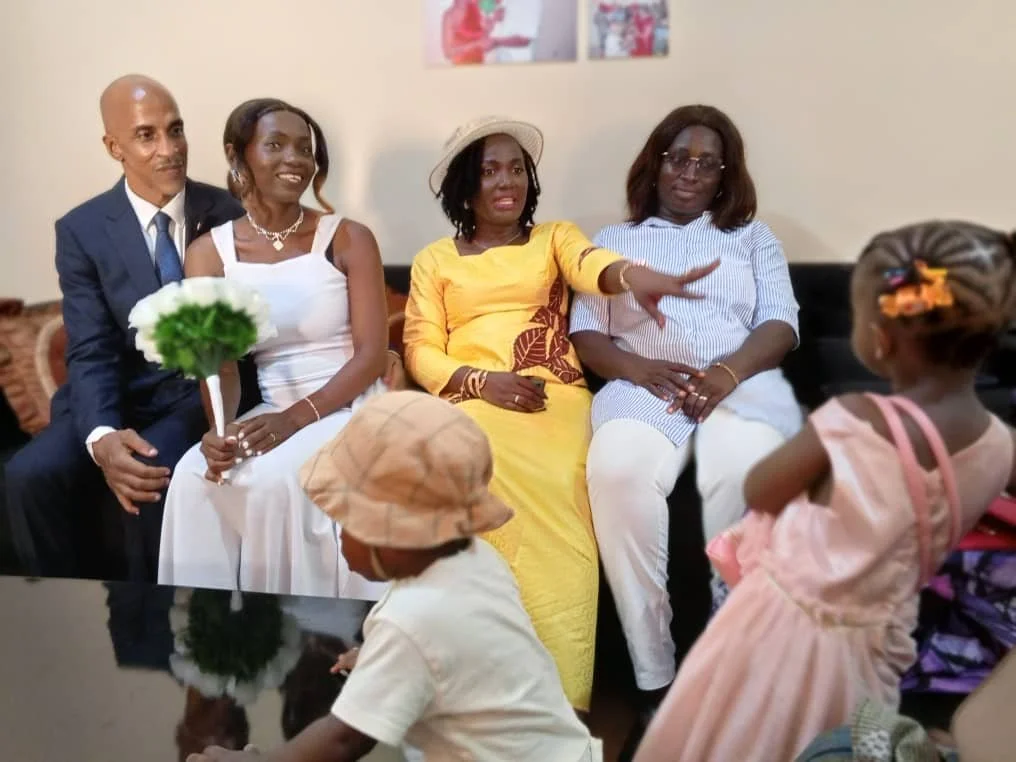
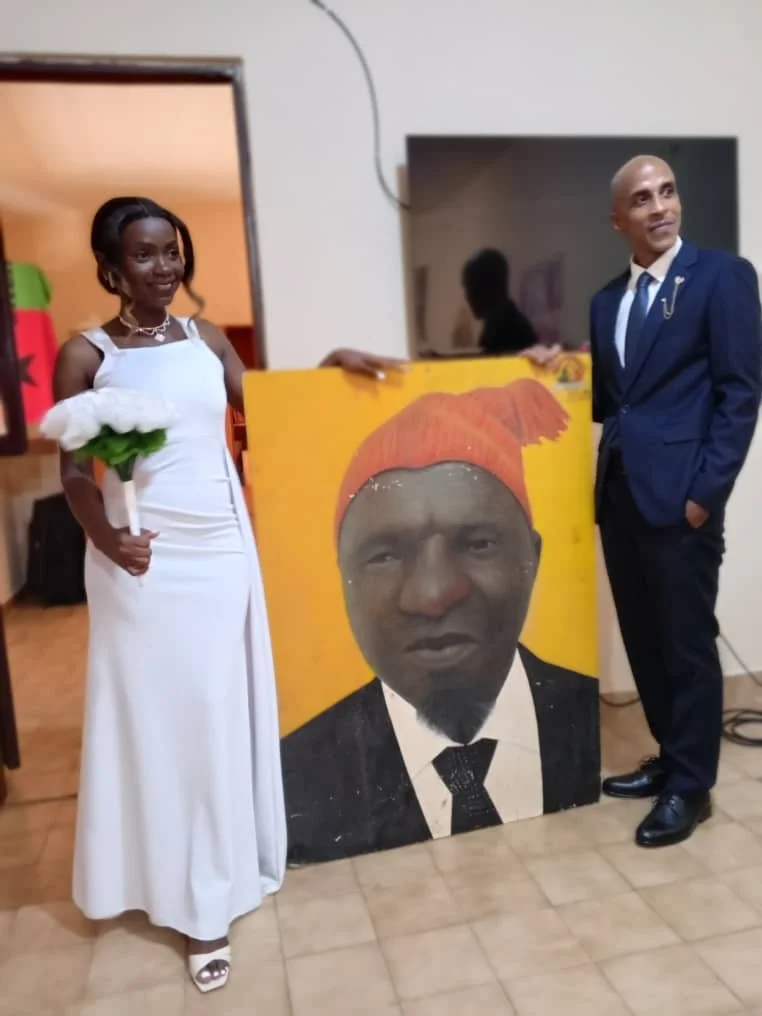
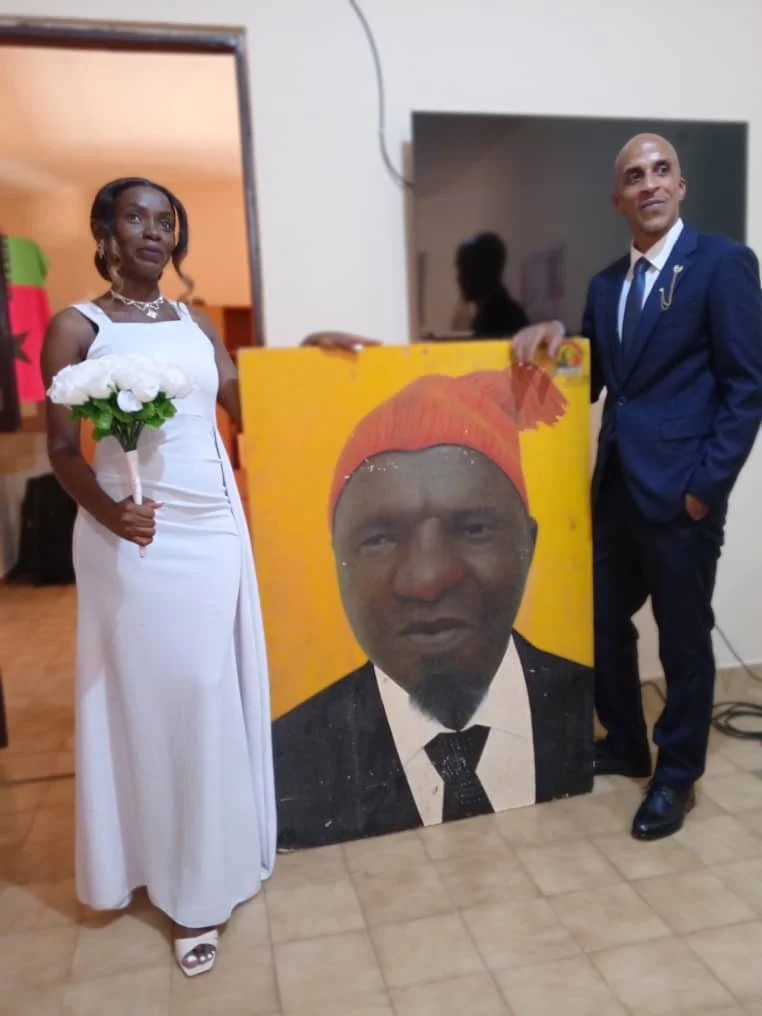

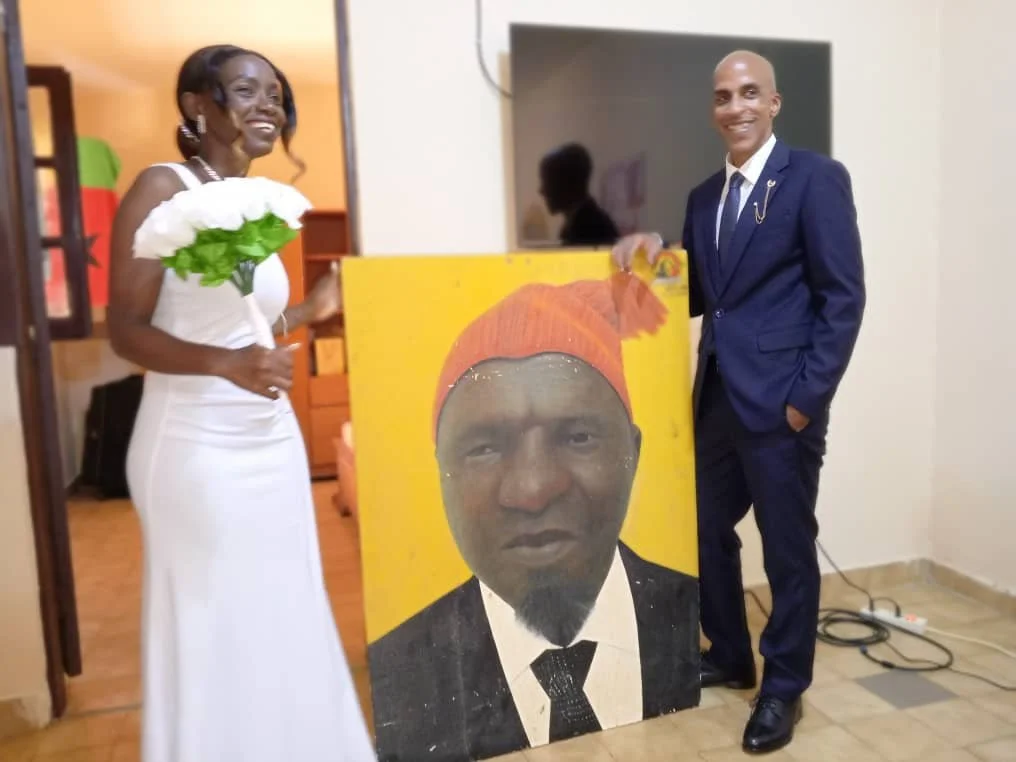
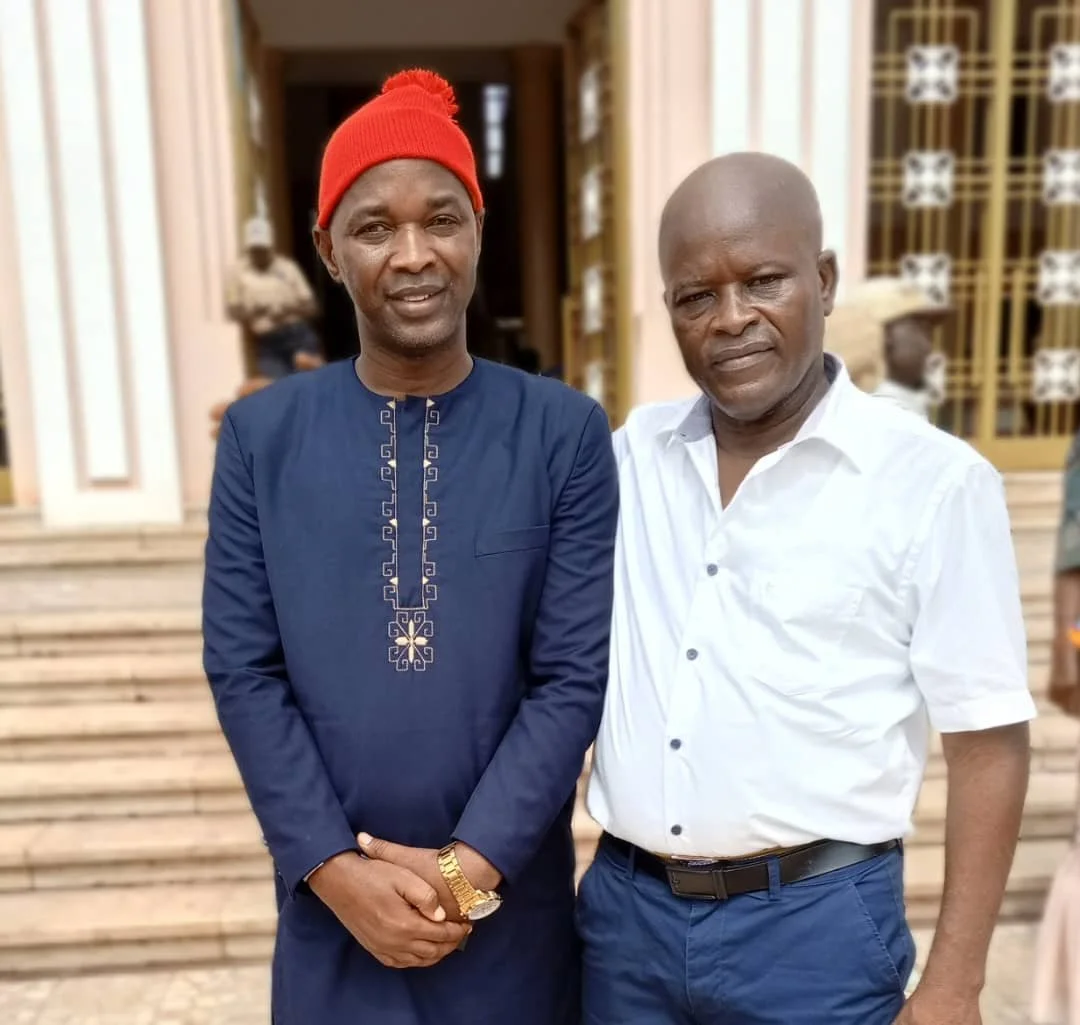
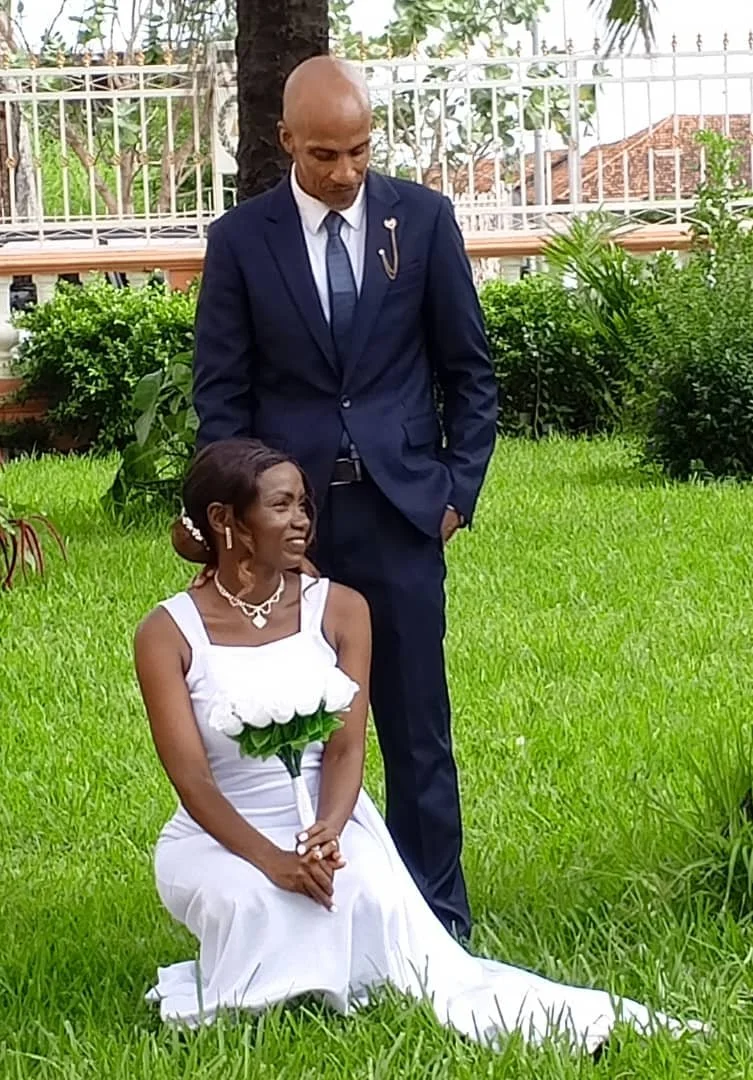
A BALANTA RASTAFARITE BIBLE STUDY: FROM ISRAEL, JUDAH, DAVID, SOLOMON AND SHEBA TO MENELIK AND RAS TAFARI - HAILE SELASSIE I KING OF KINGS, LORD OF LORDS, CONQUERING LION OF JUDAH AND ELECT OF GOD
1 GALATIANS 15-17
“ But when it pleased God, who separated me from my mother's womb, and called me by his grace. To reveal his Son in me, that I might preach him among the heathen; immediately I conferred not with flesh and blood: Neither went I up to Jerusalem to them which were apostles before me;”
*********************************************************************************
Key Promises and Covenants
The Abrahamic Covenant (Genesis 12:1-3):
God promised to make Abram (Abraham) a great nation.
His descendants would be given the land of Canaan as an everlasting possession.
Abraham would be a blessing to all nations.
The Mosaic Covenant:
God promises to redeem the Israelites from the burdens of Egypt and take them as His people.
He would bring them into the Promised Land, giving it to them as a heritage.
Prophetic Promises:
Gathering and Restoration: God promised to bring the scattered people back to their land from the "ends of the earth".
Everlasting Love and Comfort: The people would be shown "everlasting love," and their mourning would be turned to joy.
Sovereignty and Security: God promised to establish them permanently in their own place so they would "be disturbed no more".
Interpretations and Fulfillment
Jewish Tradition:
Views the promises as eternal and applies them to the Jewish people, with the brit milah (circumcision) as the sign of the covenant.
Christian Interpretation:
Views these promises as literal, with the return to and establishment of the modern State of Israel after the Holocaust being a fulfillment.
The Promised Land:
The borders of this land are outlined in Genesis 15:18, stretching from the River of Egypt to the great river Euphrates.
Divine Faithfulness and Human Responsibility
While God is faithful to His promises, the benefits of these promises have sometimes been "slipped through their hands" due to the people's "cowardice" or unfaithfulness, according to some interpretations.
The promises include that God would chasten His unfaithful people but also keep them from literal extermination and eventually return them to their land.
***********************************************************************************
PROMISES TO ISRAEL
Exodus 6:6-8
Therefore say to the children of Israel: "I am the LORD; I will bring you out from under the burdens of the Egyptians, I will rescue you from their bondage, and I will redeem you with an outstretched arm and with great judgments. I will take you as My people, and I will be your God. Then you shall know that I am the LORD your God who brings you out from under the burdens of the Egyptians. And I will bring you into the land which I swore to give to Abraham, Isaac, and Jacob; and I will give it to you as a heritage: I am the LORD.""
Exodus 33:1
Then the LORD said to Moses, “Depart and go up from here, you and the people whom you have brought out of the land of Egypt, to the land of which I swore to Abraham, Isaac, and Jacob, saying, ‘To your descendants I will give it.’
Numbers 10:29
Now Moses said to Hobab the son of Reuel the Midianite, Moses’ father-in-law, “We are setting out for the place of which the LORD said, ‘I will give it to you.’ Come with us, and we will treat you well; for the LORD has promised good things to Israel.”Deuteronomy 6:3
Therefore hear, O Israel, and be careful to observe it, that it may be well with you, and that you may multiply greatly as the LORD God of your fathers has promised you—‘a land flowing with milk and honey.’
Deuteronomy 8:1
“Every commandment which I command you today you must be careful to observe, that you may live and multiply, and go in and possess the land of which the LORD swore to your fathers.
Deuteronomy 9:28
lest the land from which You brought us should say, “Because the LORD was not able to bring them to the land which He promised them, and because He hated them, He has brought them out to kill them in the wilderness.”
Deuteronomy 12:20
“When the LORD your God enlarges your border as He has promised you, and you say, ‘Let me eat meat,’ because you long to eat meat, you may eat as much meat as your heart desires.
Deuteronomy 15:4
except when there may be no poor among you; for the LORD will greatly bless you in the land which the LORD your God is giving you to possess as an inheritance—
Deuteronomy 19:8
“Now if the LORD your God enlarges your territory, as He swore to your fathers, and gives you the land which He promised to give to your fathers,
Deuteronomy 26:15
Look down from Your holy habitation, from heaven, and bless Your people Israel and the land which You have given us, just as You swore to our fathers, “a land flowing with milk and honey.”’
Deuteronomy 31:7
Then Moses called Joshua and said to him in the sight of all Israel, “Be strong and of good courage, for you must go with this people to the land which the LORD has sworn to their fathers to give them, and you shall cause them to inherit it.
Deuteronomy 31:20
When I have brought them to the land flowing with milk and honey, of which I swore to their fathers, and they have eaten and filled themselves and grown fat, then they will turn to other gods and serve them; and they will provoke Me and break My covenant.
Deuteronomy 31:23
Then He inaugurated Joshua the son of Nun, and said, “Be strong and of good courage; for you shall bring the children of Israel into the land of which I swore to them, and I will be with you.”
Joshua 5:6
For the children of Israel walked forty years in the wilderness, till all the people who were men of war, who came out of Egypt, were consumed, because they did not obey the voice of the LORD—to whom the LORD swore that He would not show them the land which the LORD had sworn to their fathers that He would give us, “a land flowing with milk and honey.”
Joshua 21:43-45
So the LORD gave to Israel all the land of which He had sworn to give to their fathers, and they took possession of it and dwelt in it. The LORD gave them rest all around, according to all that He had sworn to their fathers. And not a man of all their enemies stood against them; the LORD delivered all their enemies into their hand. Not a word failed of any good thing which the LORD had spoken to the house of Israel. All came to pass.
Joshua 22:4
And now the LORD your God has given rest to your brethren, as He promised them; now therefore, return and go to your tents and to the land of your possession, which Moses the servant of the LORD gave you on the other side of the Jordan.
Judges 2:1
Then the Angel of the LORD came up from Gilgal to Bochim, and said: “I led you up from Egypt and brought you to the land of which I swore to your fathers; and I said, ‘I will never break My covenant with you.
1 Kings 8:56
“Blessed be the LORD, who has given rest to His people Israel, according to all that He promised. There has not failed one word of all His good promise, which He promised through His servant Moses.
2 Kings 14:25
He restored the territory of Israel from the entrance of Hamath to the Sea of the Arabah, according to the word of the LORD God of Israel, which He had spoken through His servant Jonah the son of Amittai, the prophet who was from Gath Hepher.
1 Chronicles 27:23
But David did not take the number of those twenty years old and under, because the LORD had said He would multiply Israel like the stars of the heavens.
Psalm 98:3
He has remembered His mercy and His faithfulness to the house of Israel;
All the ends of the earth have seen the salvation of our God.
Jeremiah 31:1
'At the same time,' says the LORD, 'I will be the God of all the families of Israel, and they shall be My people.'
Jeremiah 32:15
For thus says the LORD of hosts, the God of Israel: “Houses and fields and vineyards shall be possessed again in this land.”’
Jeremiah 33:14
‘Behold, the days are coming,’ says the LORD, ‘that I will perform that good thing which I have promised to the house of Israel and to the house of Judah:
Ezekiel 20:5
"Say to them, 'Thus says the Lord GOD: "On the day when I chose Israel and raised My hand in an oath to the descendants of the house of Jacob, and made Myself known to them in the land of Egypt, I raised My hand in an oath to them, saying, 'I am the LORD your God.'
Ezekiel 20:42
Then you shall know that I am the LORD, when I bring you into the land of Israel, into the country for which I raised My hand in an oath to give to your fathers.
Ezekiel 37:12
Therefore prophesy and say to them, ‘Thus says the Lord GOD: “Behold, O My people, I will open your graves and cause you to come up from your graves, and bring you into the land of Israel.
Romans 9:4
who are Israelites, to whom pertain the adoption, the glory, the covenants, the giving of the law, the service of God, and the promises;
Ephesians 2:12
that at that time you were without Christ, being aliens from the commonwealth of Israel and strangers from the covenants of promise, having no hope and without God in the world.
Exodus 19:4-6
‘You have seen what I did to the Egyptians, and how I bore you on eagles’ wings and brought you to Myself. Now therefore, if you will indeed obey My voice and keep My covenant, then you shall be a special treasure to Me above all people; for all the earth is Mine. And you shall be to Me a kingdom of priests and a holy nation.' These are the words which you shall speak to the children of Israel.'
Exodus 23:22-23
But if you indeed obey His voice and do all that I speak, then I will be an enemy to your enemies and an adversary to your adversaries. For My Angel will go before you and bring you in to the Amorites and the Hittites and the Perizzites and the Canaanites and the Hivites and the Jebusites; and I will cut them off.
Exodus 23:25-31
"So you shall serve the LORD your God, and He will bless your bread and your water. And I will take sickness away from the midst of you. No one shall suffer miscarriage or be barren in your land; I will fulfill the number of your days. "I will send My fear before you, I will cause confusion among all the people to whom you come, and will make all your enemies turn their backs to you. And I will send hornets before you, which shall drive out the Hivite, the Canaanite, and the Hittite from before you. I will not drive them out from before you in one year, lest the land become desolate and the beasts of the field become too numerous for you. Little by little I will drive them out from before you, until you have increased, and you inherit the land. And I will set your bounds from the Red Sea to the sea, Philistia, and from the desert to the River. For I will deliver the inhabitants of the land into your hand, and you shall drive them out before you.
Numbers 14:28-32
Say to them, 'As I live,' says the LORD, 'just as you have spoken in My hearing, so I will do to you: The carcasses of you who have complained against Me shall fall in this wilderness, all of you who were numbered, according to your entire number, from twenty years old and above. Except for Caleb the son of Jephunneh and Joshua the son of Nun, you shall by no means enter the land which I swore I would make you dwell in. But your little ones, whom you said would be victims, I will bring in, and they shall know the land which you have despised. But as for you, your carcasses shall fall in this wilderness.Numbers 24:17
'I see Him, but not now; I behold Him, but not near; A Star shall come out of Jacob; A Scepter shall rise out of Israel, And batter the brow of Moab, And destroy all the sons of tumult.Ezekiel 36:27
I will put My Spirit within you and cause you to walk in My statutes, and you will keep My judgments and do them.Romans 9:4
who are Israelites, to whom pertain the adoption, the glory, the covenants, the giving of the law, the service of God, and the promises;***********************************************************************************
PROMISES TO JUDAH
Genesis 49:10
The scepter shall not depart from Judah, Nor a lawgiver from between his feet, Until Shiloh comes; And to Him shall be the obedience of the people.Psalm 78:67-68
Moreover He rejected the tent of Joseph, And did not choose the tribe of Ephraim, But chose the tribe of Judah, Mount Zion which He loved.***********************************************************************************
PROMISES TO DAVID
2 Samuel 5:4-5
David was thirty years old when he began to reign, and he reigned forty years. In Hebron he reigned over Judah seven years and six months, and in Jerusalem he reigned thirty-three years over all Israel and Judah.
2 Samuel 7:8-17
”Now therefore, thus shall you say to My servant David, ‘Thus says the LORD of hosts: “I took you from the sheepfold, from following the sheep, to be ruler over My people, over Israel. And I have been with you wherever you have gone, and have cut off all your enemies from before you, and have made you a great name, like the name of the great men who are on the earth. Moreover I will appoint a place for My people Israel, and will plant them, that they may dwell in a place of their own and move no more; nor shall the sons of wickedness oppress them anymore, as previously, since the time that I commanded judges to be over My people Israel, and have caused you to rest from all your enemies. Also the LORD tells you that He will make you a house. "When your days are fulfilled and you rest with your fathers, I will set up your seed after you, who will come from your body, and I will establish his kingdom. He shall build a house for My name, and I will establish the throne of his kingdom forever. I will be his Father, and he shall be My son. If he commits iniquity, I will chasten him with the rod of men and with the blows of the sons of men. But My mercy shall not depart from him, as I took it from Saul, whom I removed from before you. And your house and your kingdom shall be established forever before you. Your throne shall be established forever." According to all these words and according to all this vision, so Nathan spoke to David.
Psalm 89:35-37
Once I have sworn by My holiness; I will not lie to David: His seed shall endure forever,
And his throne as the sun before Me; It shall be established forever like the moon, Even like the faithful witness in the sky.” SelahJeremiah 33:17
“For thus says the LORD: ‘David shall never lack a man to sit on the throne of the house of Israel;’
Ezekiel 21:25-27
‘Now to you, O profane, wicked prince of Israel, whose day has come, whose iniquity shall end, thus says the Lord GOD: “Remove the turban, and take off the crown; Nothing shall remain the same. Exalt the humble, and humble the exalted. Overthrown, overthrown, I will make it overthrown! It shall be no longer, Until He comes whose right it is, And I will give it to Him.”
Luke 1:32
He will be great, and will be called the Son of the Highest; and the Lord God will give Him the throne of His father David.
Genesis 35:11
Also God said to him: "I am God Almighty. Be fruitful and multiply; a nation and a company of nations shall proceed from you, and kings shall come from your body.Isaiah 9:6-7
For unto us a Child is born, Unto us a Son is given; And the government will be upon His shoulder. And His name will be called Wonderful, Counselor, Mighty God, Everlasting Father, Prince of Peace. Of the increase of His government and peace There will be no end, Upon the throne of David and over His kingdom, To order it and establish it with judgment and justice From that time forward, even forever. The zeal of the Lord of hosts will perform this.
Luke 3:31
the son of Melea, the son of Menan, the son of Mattathah, the son of Nathan, the son of David,
1 Kings 11:35-37
But I will take the kingdom out of his son’s hand and give it to you—ten tribes. And to his son I will give one tribe, that My servant David may always have a lamp before Me in Jerusalem, the city which I have chosen for Myself, to put My name there. So I will take you, and you shall reign over all your heart desires, and you shall be king over Israel.
1 Chronicles 17:11-14
And it shall be, when your days are fulfilled, when you must go to be with your fathers, that I will set up your seed after you, who will be of your sons; and I will establish his kingdom. He shall build Me a house, and I will establish his throne forever. I will be his Father, and he shall be My son; and I will not take My mercy away from him, as I took it from him who was before you. And I will establish him in My house and in My kingdom forever; and his throne shall be established forever.”2 Chronicles 13:5
Should you not know that the LORD God of Israel gave the dominion over Israel to David forever, to him and his sons, by a covenant of salt?
***********************************************************************************
PROMISES TO SOLOMON
1 Chronicles 29:23
Then Solomon sat on the throne of the LORD as king instead of David his father, and prospered; and all Israel obeyed him.
***********************************************************************************
FROM ISRAEL TO GENTILES
Judges 6:36
So Gideon said to God, “If You will save Israel by my hand as You have said—
Acts 13:23
From this man’s seed, according to the promise, God raised up for Israel a Savior—Jesus—
Ephesians 3:6
that the Gentiles should be fellow heirs, of the same body, and partakers of His promise in Christ through the gospel,Matthew 1:20-21
But while he thought about these things, behold, an angel of the Lord appeared to him in a dream, saying, "Joseph, son of David, do not be afraid to take to you Mary your wife, for that which is conceived in her is of the Holy Spirit. And she will bring forth a Son, and you shall call His name JESUS, for He will save His people from their sins."Matthew 1:1
The book of the genealogy of Jesus Christ, the Son of David, the Son of Abraham:
***********************************************************************************
PROPHECY OF THE KING OF KINGS
Daniel 7:13-14
“I saw in the night visions, and behold, with the clouds of heaven there came one like a son of man, and he came to the Ancient of Days and was presented before him. And to him was given dominion and glory and a kingdom, that all peoples, nations, and languages should serve him; his dominion is an everlasting dominion, which shall not pass away, and his kingdom one that shall not be destroyed.
Ruth 4:18-22
Now this is the genealogy of Perez: Perez begot Hezron; Hezron begot Ram, and Ram begot Amminadab; Amminadab begot Nahshon, and Nahshon begot Salmon; Salmon begot Boaz, and Boaz begot Obed; Obed begot Jesse, and Jesse begot David.Isaiah 11:1
There shall come forth a Rod from the stem of Jesse, And a Branch shall grow out of his roots.Jeremiah 23:5
“ Behold, the days are coming,” says the LORD, “ That I will raise to David a Branch of righteousness; A King shall reign and prosper, And execute judgment and righteousness in the earth.”Luke 1:32
He will be great, and will be called the Son of the Highest; and the Lord God will give Him the throne of His father David.Jeremiah 33:17
“For thus says the LORD: ‘David shall never lack a man to sit on the throne of the house of Israel;”Psalm 89:34-37
My covenant I will not break, Nor alter the word that has gone out of My lips. Once I have sworn by My holiness; I will not lie to David: His seed shall endure forever, And his throne as the sun before Me; It shall be established forever like the moon, Even like the faithful witness in the sky.” SelahIsaiah 9:6-7
For unto us a Child is born, Unto us a Son is given; And the government will be upon His shoulder. And His name will be called Wonderful, Counselor, Mighty God, Everlasting Father, Prince of Peace. Of the increase of His government and peace There will be no end, Upon the throne of David and over His kingdom, To order it and establish it with judgment and justice From that time forward, even forever. The zeal of the Lord of hosts will perform this.Psalms 87:4 I will make mention of Rahab and Babylon to them that know me: behold Philistia, and Tyre, with Ethiopia; this man was born there. [Note: Psalm 87 describes Zion (Jerusalem) as God's beloved city and the spiritual birthplace of His people, with a future vision where people from all nations are considered citizens, even those from historical enemy states like Babylon and Egypt. The psalm emphasizes the universal nature of God's kingdom and salvation, showing that all who acknowledge and know God, through faith, can be considered "born in Zion" and recorded in God's "book of life". It concludes with a call for all people to recognize that their spiritual springs and ultimate source of life and joy are found in God. ]
Revelation 19:16
And he hath on his vesture (robe) and on his thigh a name written, King Of Kings, And Lord Of Lords.Which he will display at the proper time—he who is the blessed and only Sovereign, the King of kings and Lord of lords, [Note: Coronation, November 2, 1930]
Revelation 17:14
They will make war on the Lamb, and the Lamb will conquer them, for he is Lord of lords and King of kings, and those with him are called and chosen and faithful.”
Revelation 19:15-16
Now out of His mouth goes a sharp sword, that with it He should strike the nations. And He Himself will rule them with a rod of iron. He Himself treads the winepress of the fierceness and wrath of Almighty God. And He has on His robe and on His thigh a name written:
KING OF KINGS AND LORD OF LORDS.Revelation 19:11-16
Then I saw heaven opened, and behold, a white horse! The one sitting on it is called Faithful and True, and in righteousness he judges and makes war. His eyes are like a flame of fire, and on his head are many diadems, and he has a name written that no one knows but himself. He is clothed in a robe dipped in blood, and the name by which he is called is The Word of God. And the armies of heaven, arrayed in fine linen, white and pure, were following him on white horses. From his mouth comes a sharp sword with which to strike down the nations, and he will rule them with a rod of iron. He will tread the winepress of the fury of the wrath of God the Almighty. ...
* Zechariah 14:9
And the Lord will be king over all the earth. On that day the Lord will be one and his name one.
Hebrews 1:2
But in these last days he has spoken to us by his Son, whom he appointed the heir of all things, through whom also he created the world.
***********************************************************************************
HIM HAILE SELASSIE I
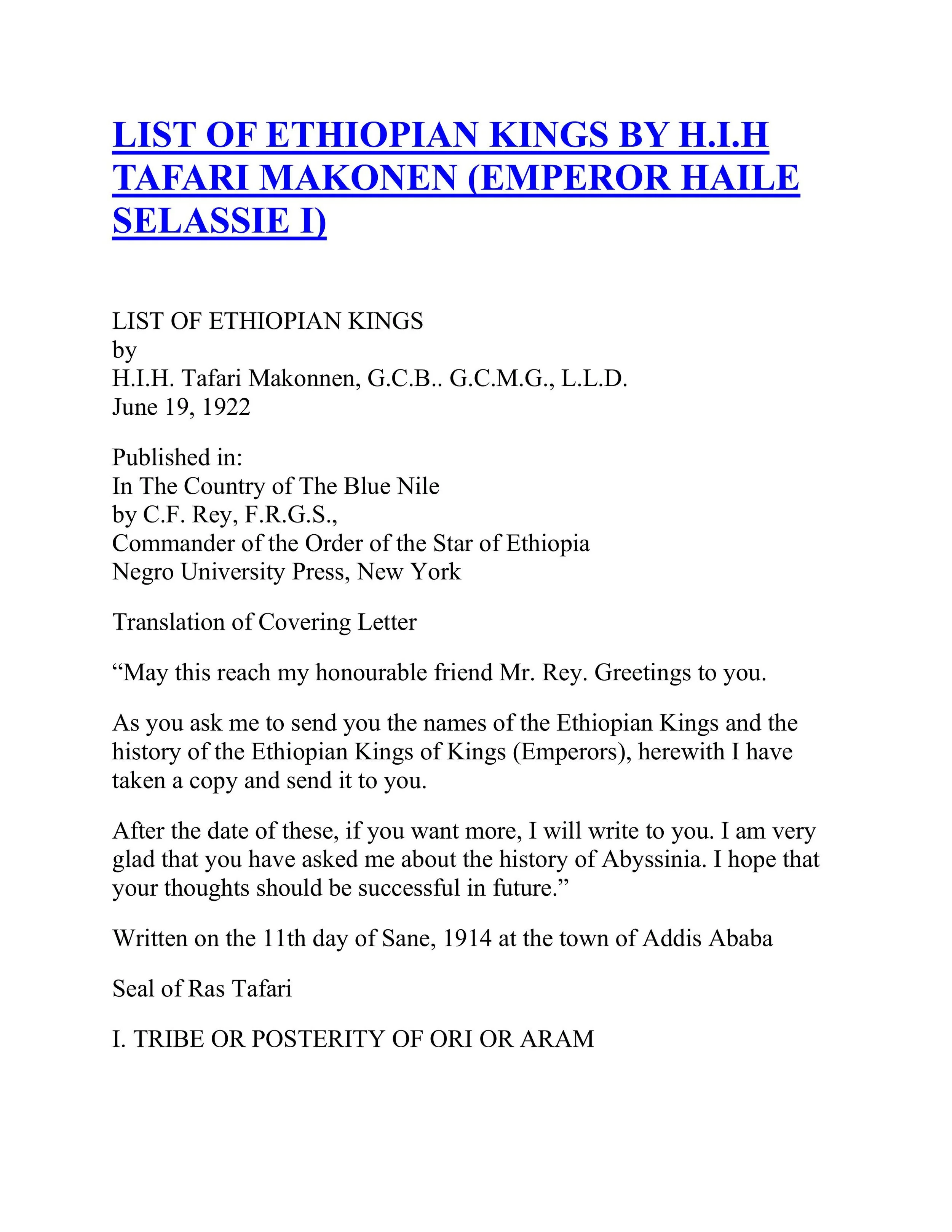
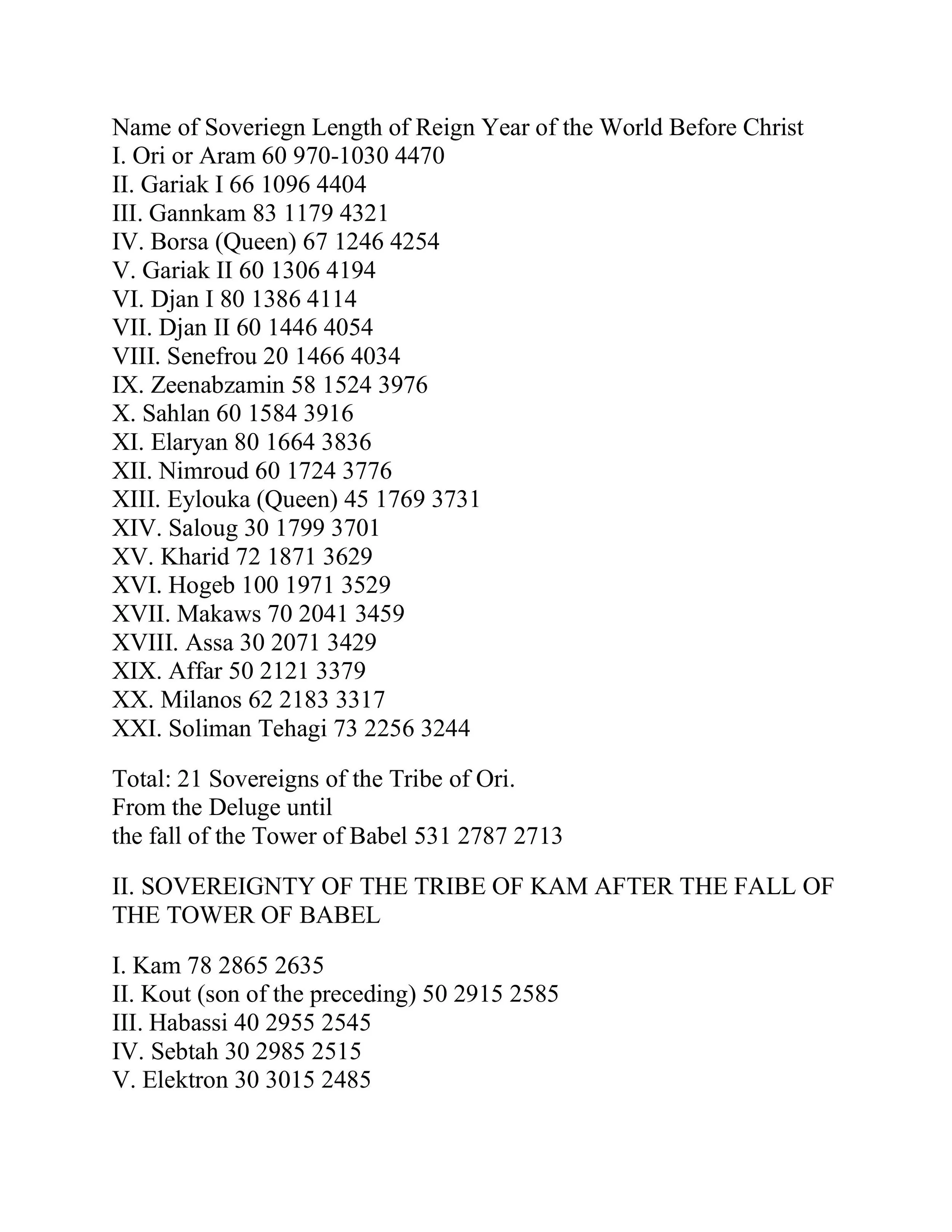
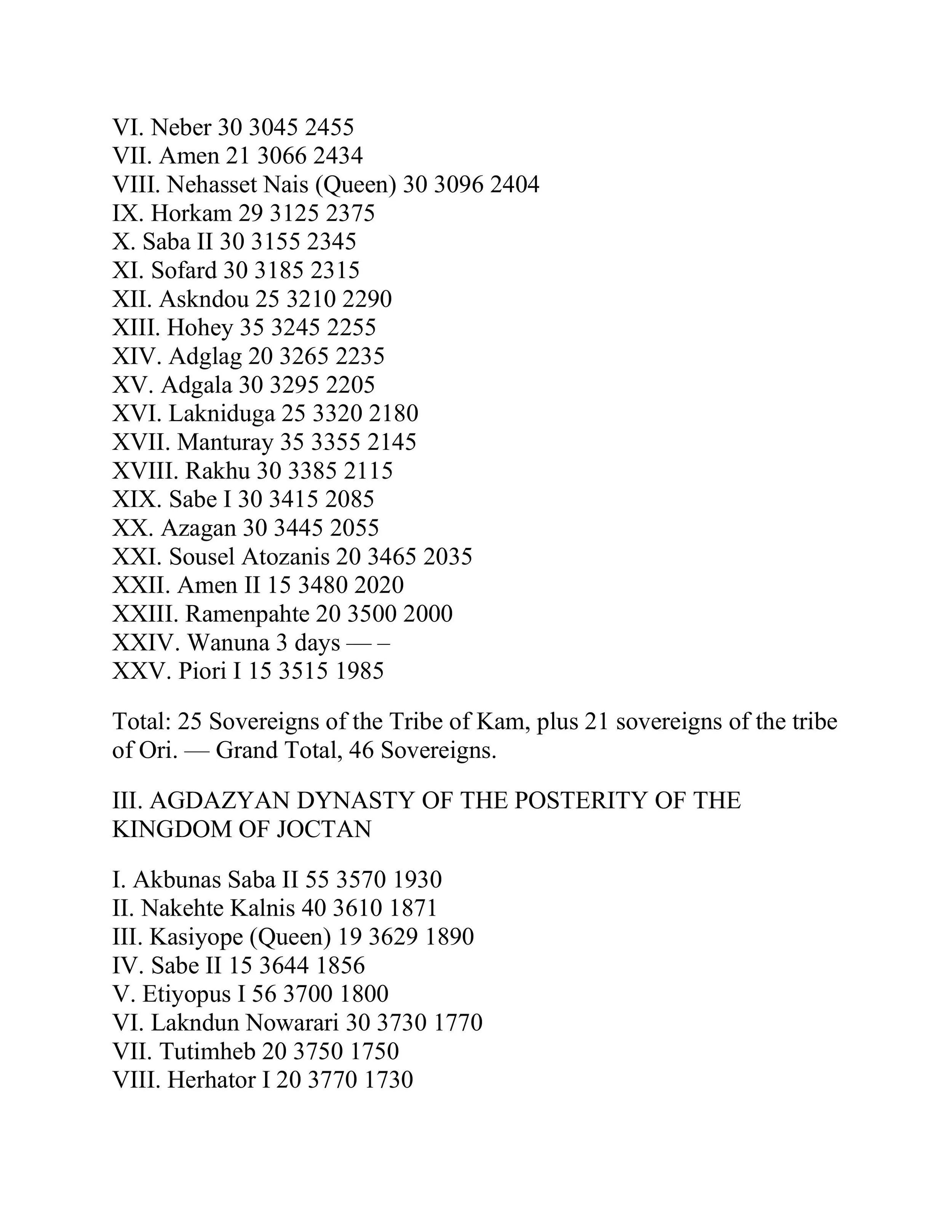
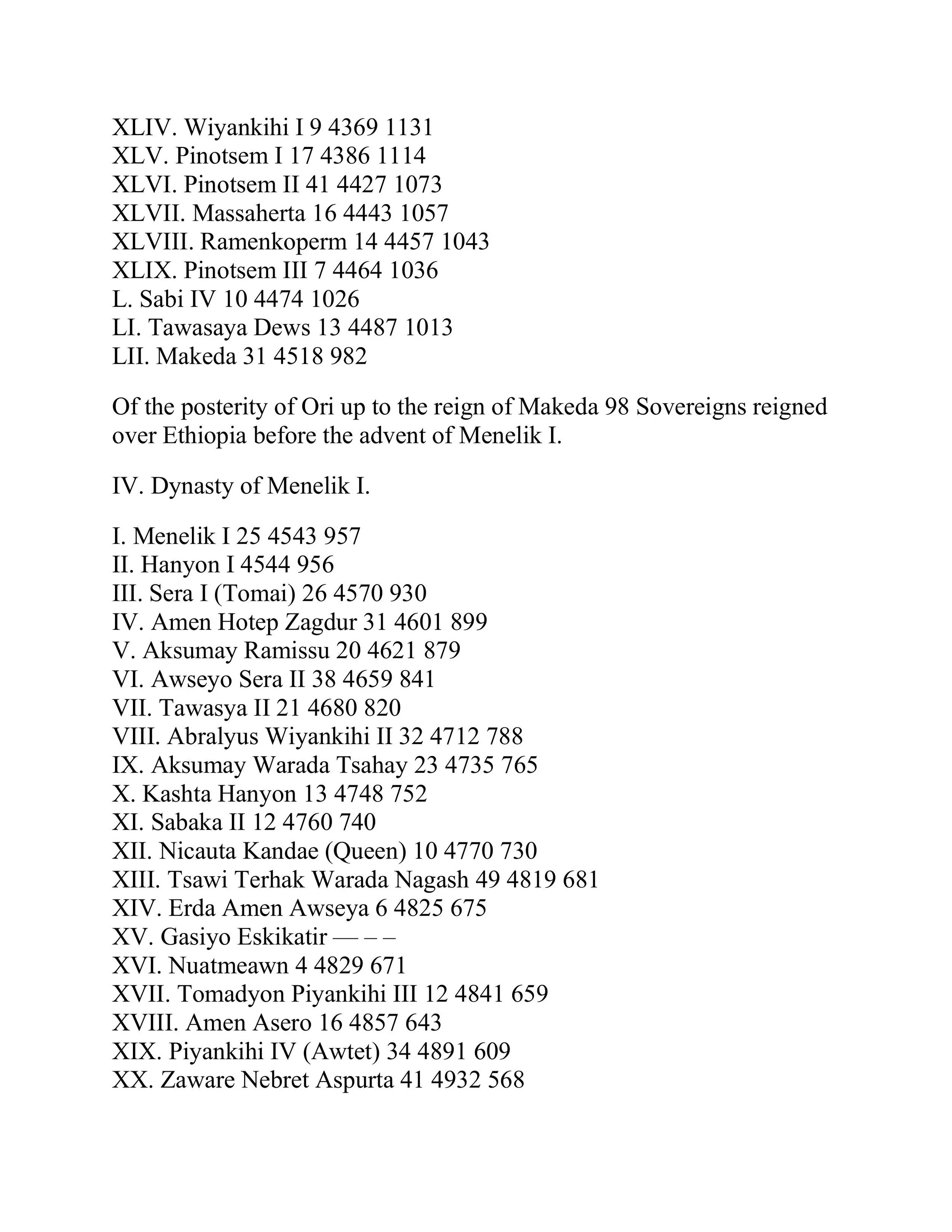
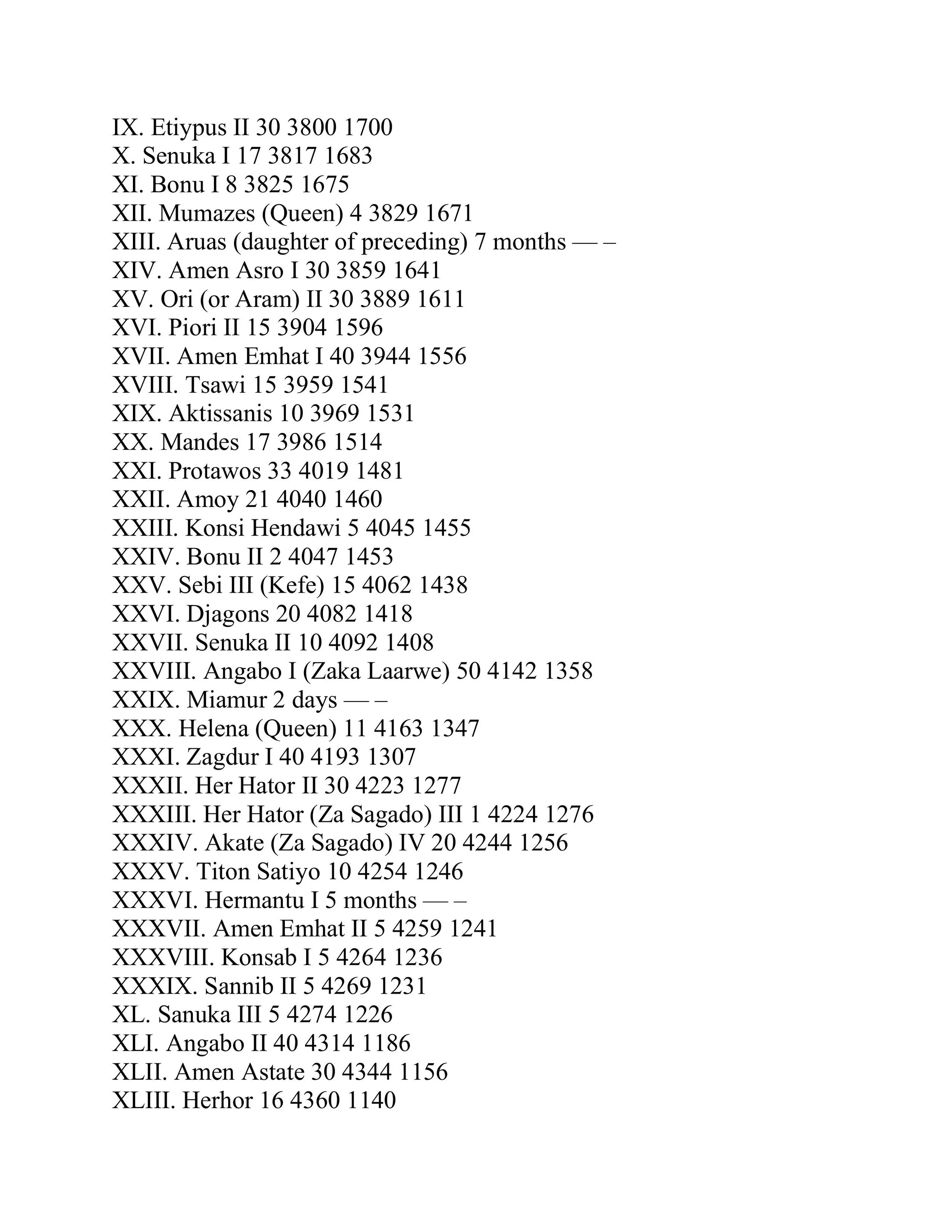
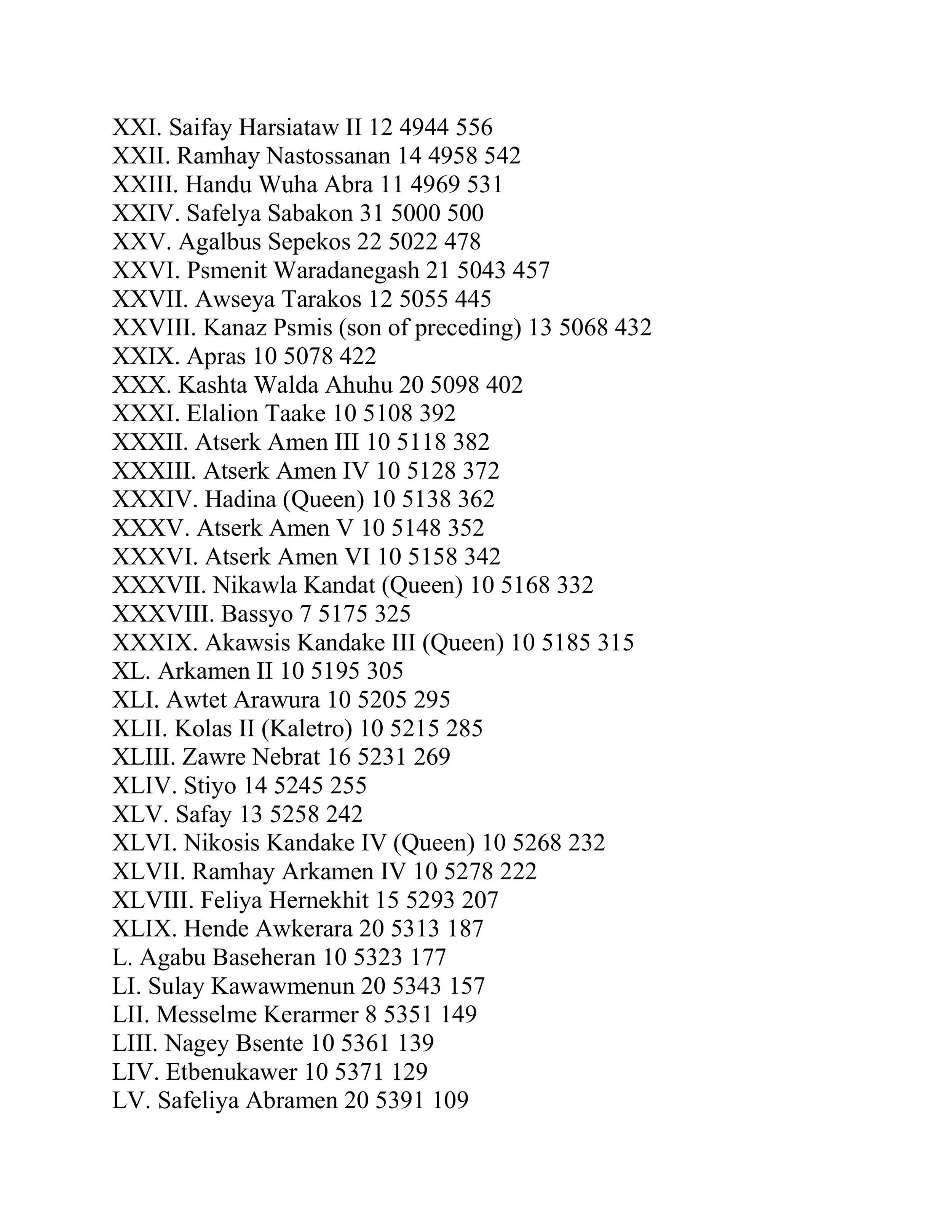
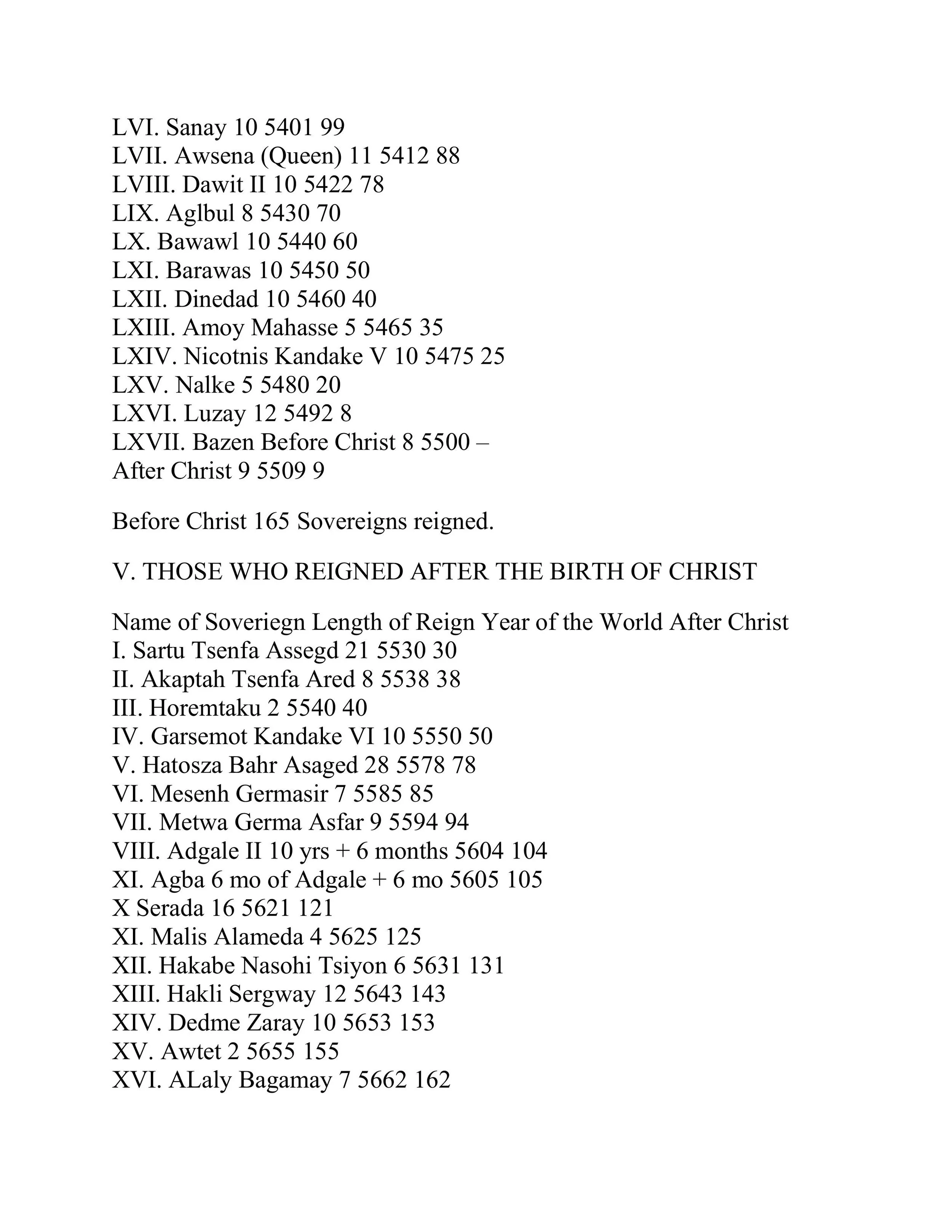
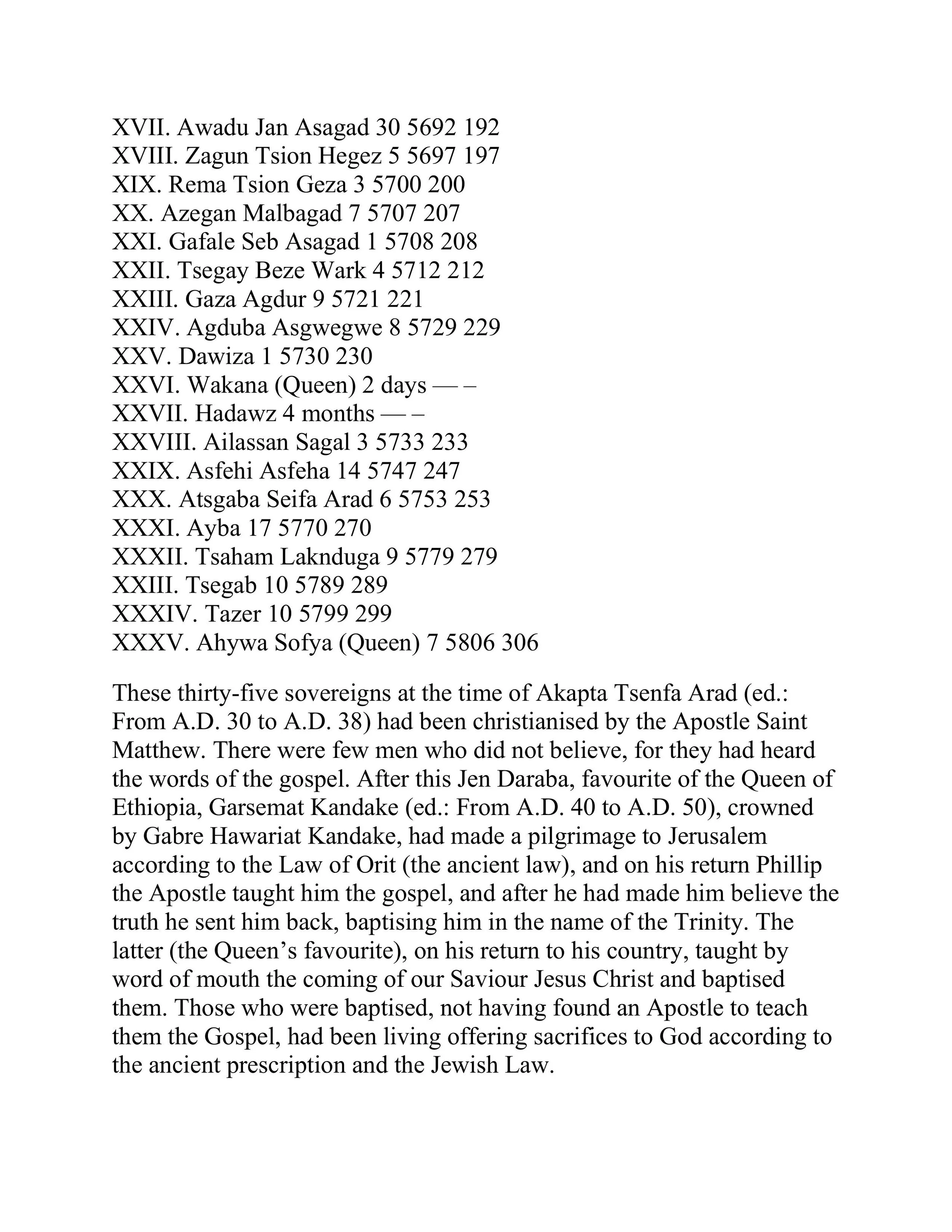
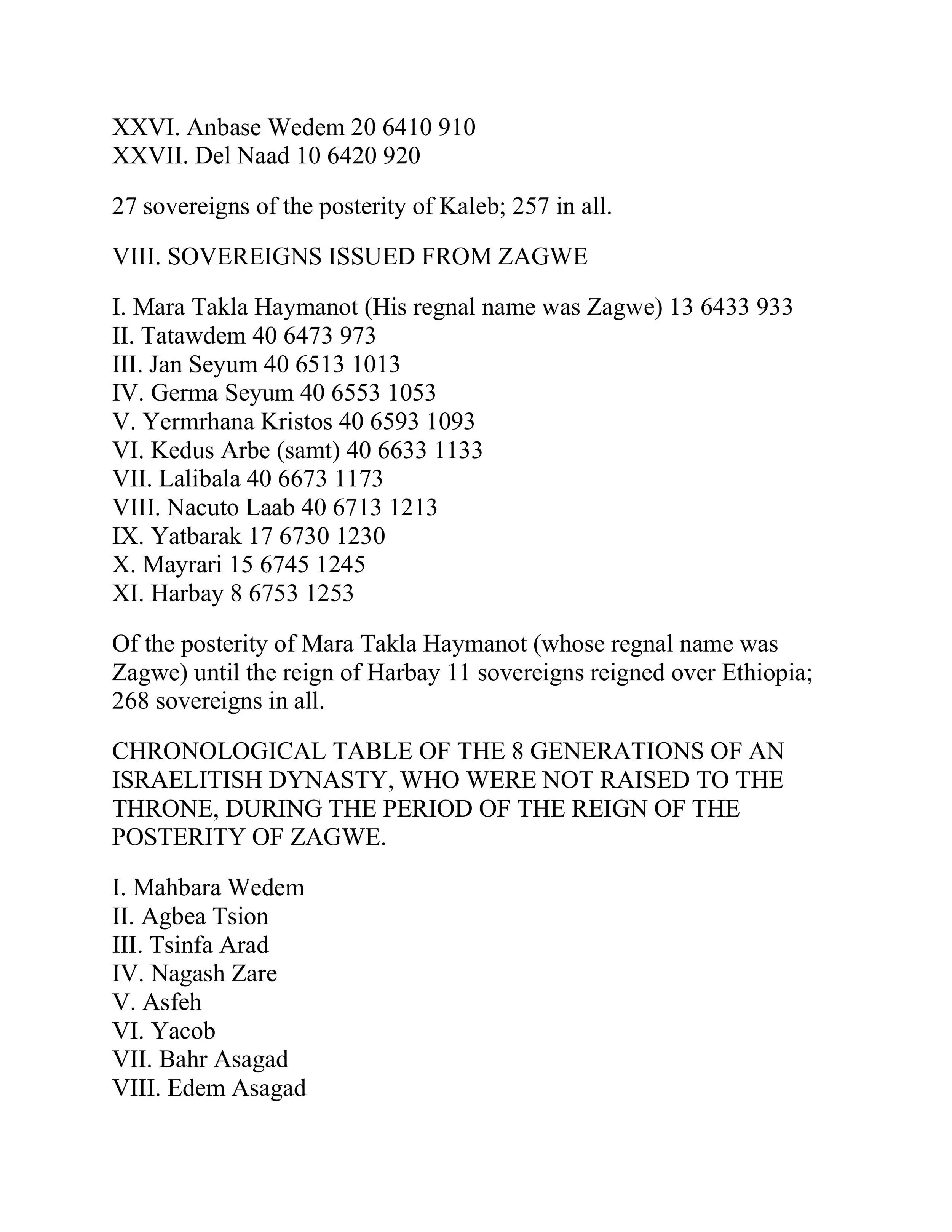
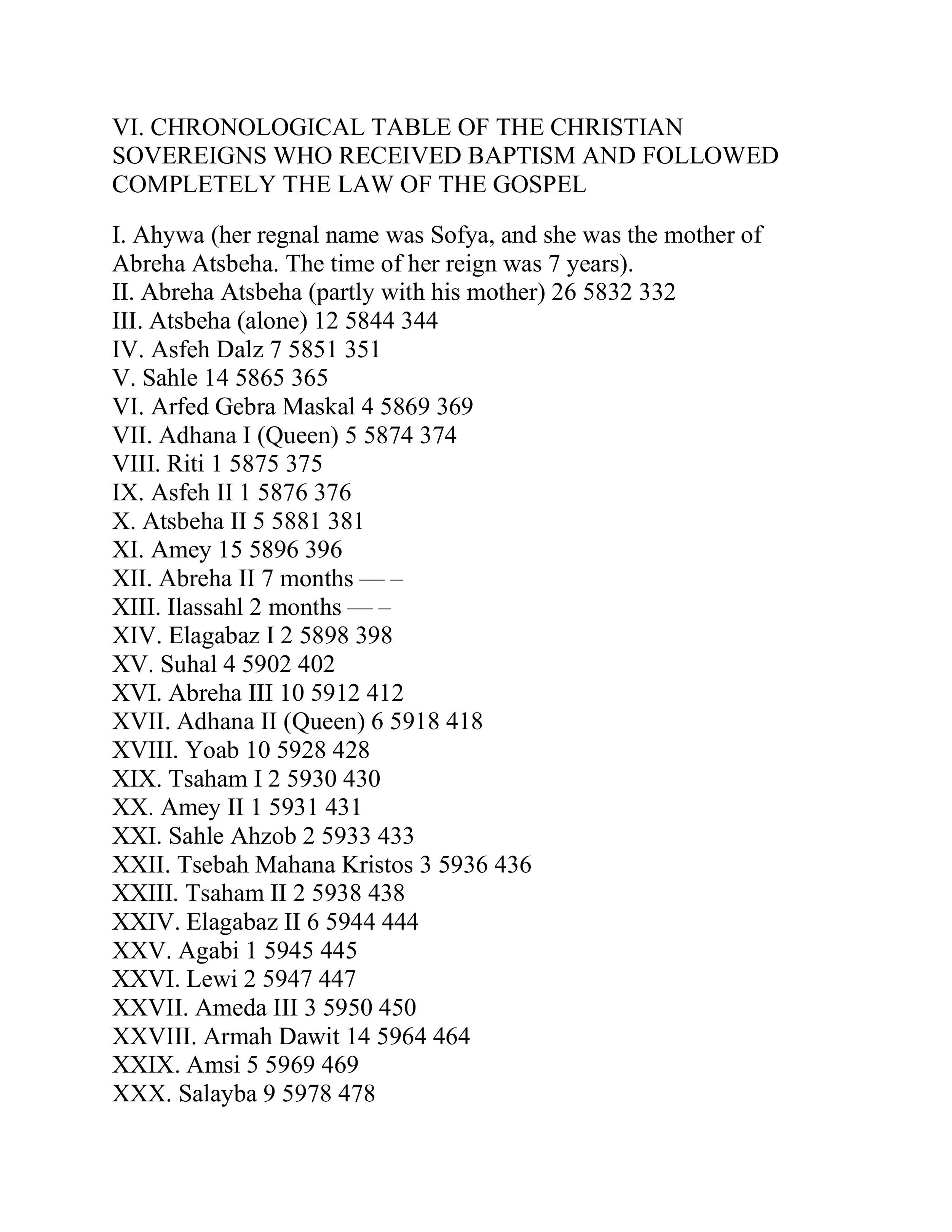
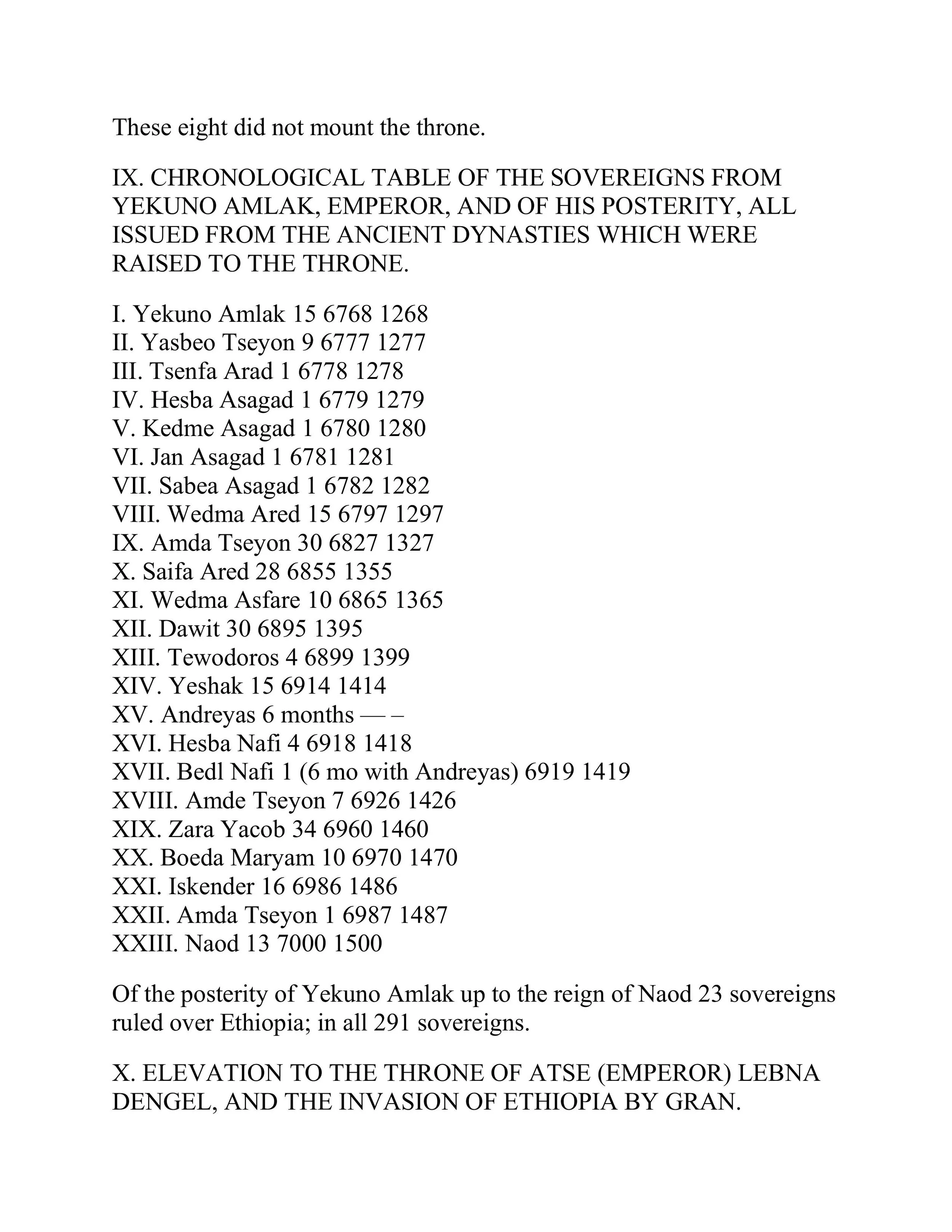
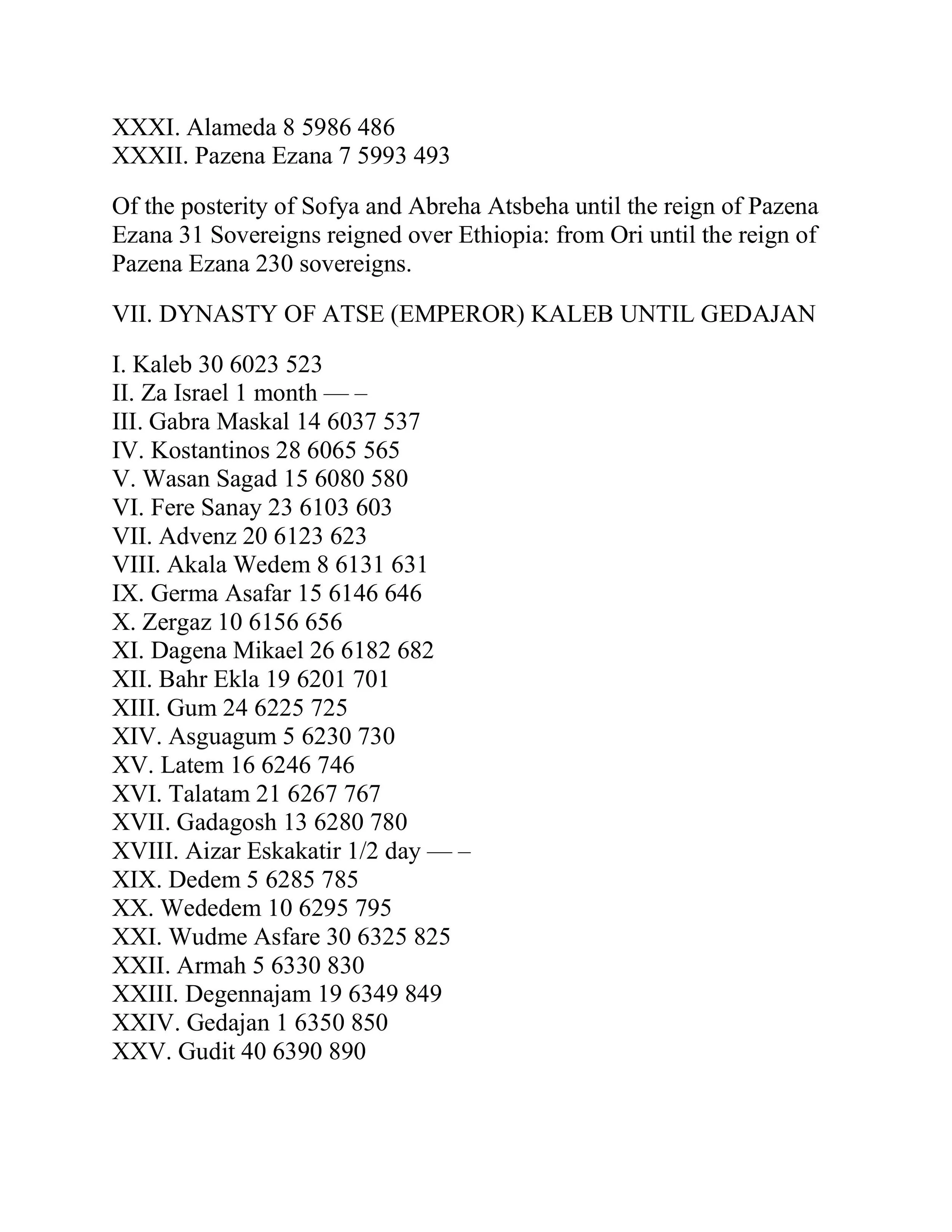
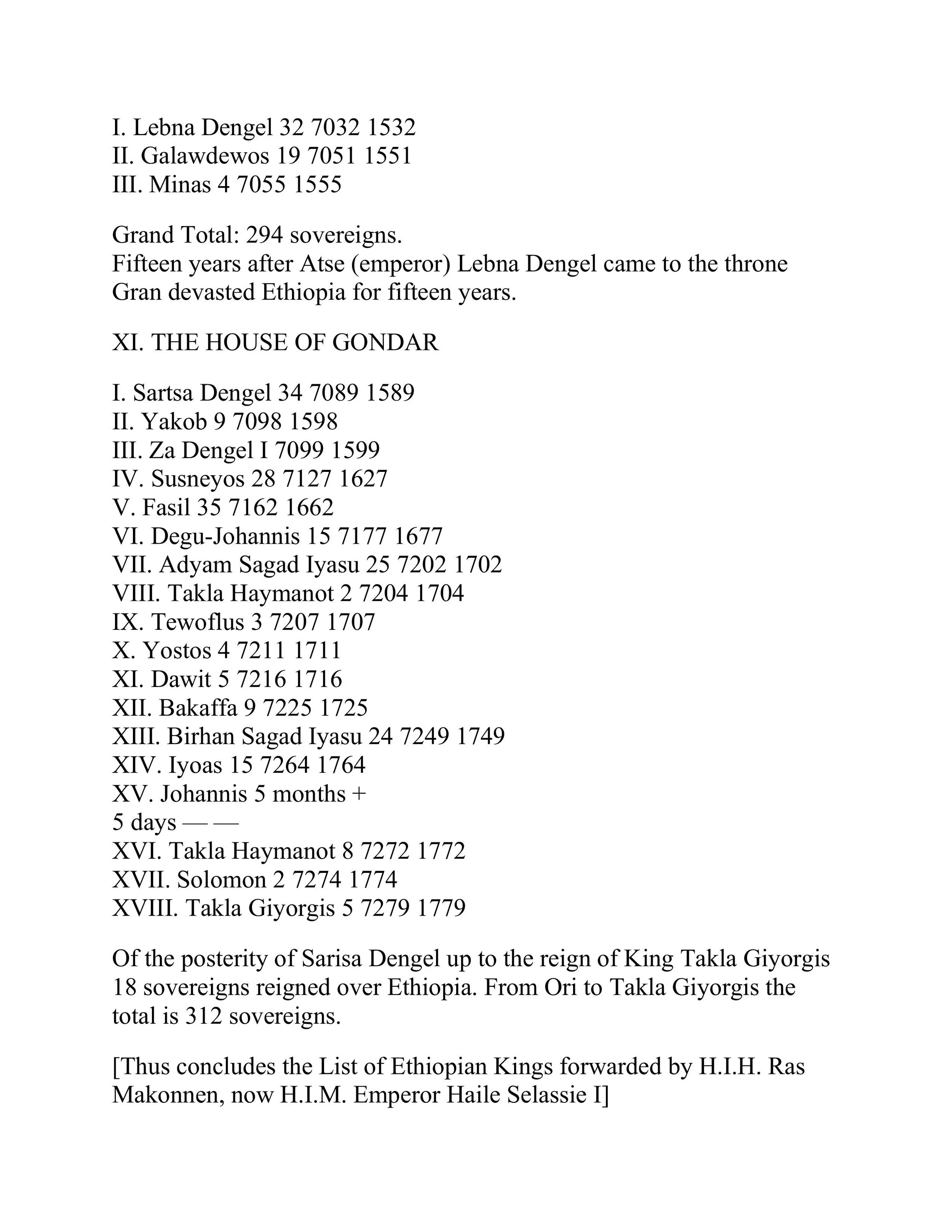
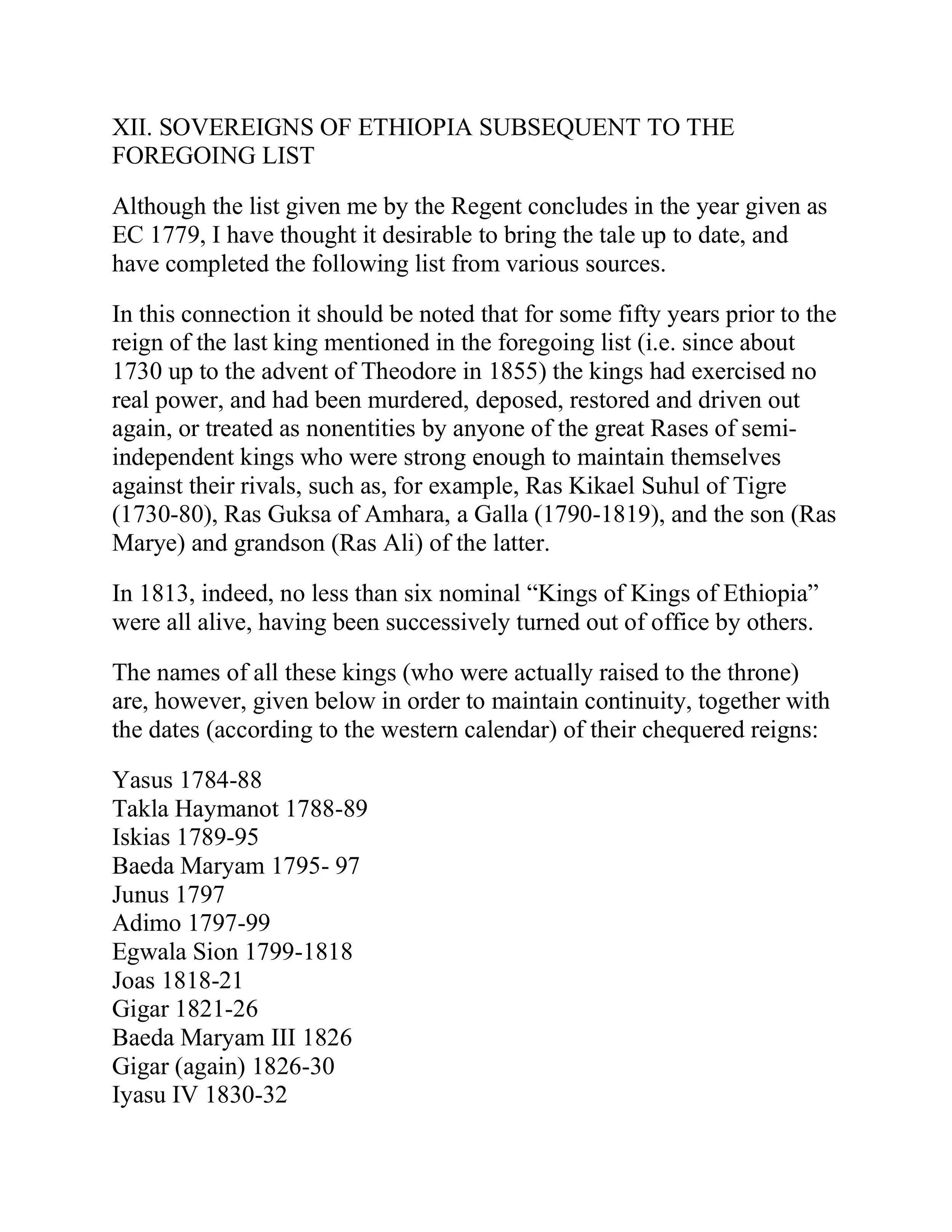
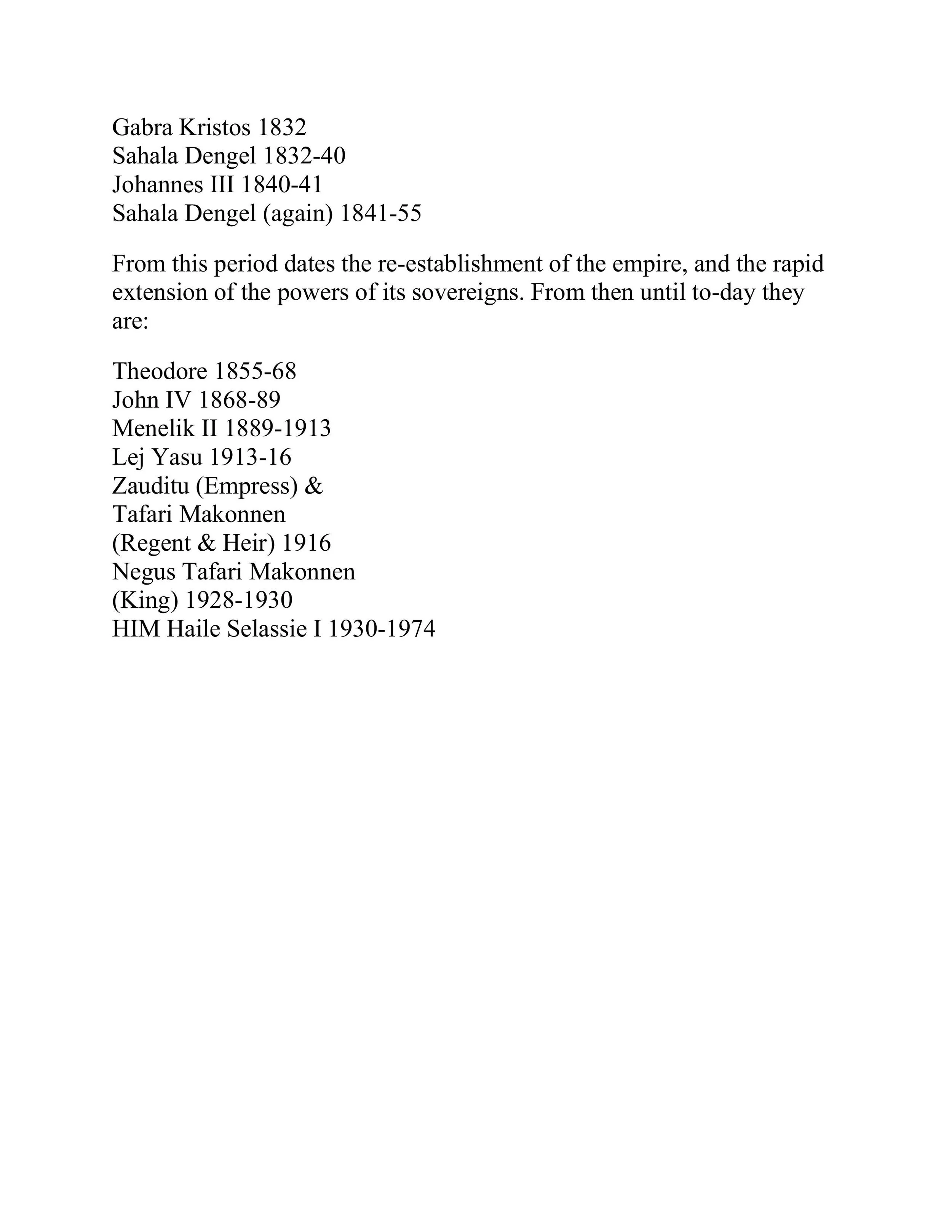
A BALANTA RASTAFARITE BIBLE STUDY: IN THE BEGINNING, FROM A BLACK CUSHITIC ETHIOPIAN ADAM AND NOAH TO A MIXED SEMITIC WHITE ABRA-HAM AND MOSES
SEEK FIRST THE KINGDOM OF GOD WITHIN YOU
Matthew 6:33
“But seek first the kingdom of God and His righteousness, and all these things shall be added to you.”
LUKE 17:21
“nor will they say, ‘See here!’ or ‘See there!’ For indeed, the kingdom of God is within you.”
1 John 3:2
“Beloved, now are we the sons of God, and it doth not yet appear what we shall be: but we know that, when he shall appear, we shall be like him; for we shall see him as he is.”
John 5:20
“For the Father loveth the Son, and sheweth him all things that himself doeth: and he will shew him greater works than these, that ye may marvel.”
2 Timothy 2:15
“Study to shew thyself approved unto God, a workman that needeth not to be ashamed, rightly dividing the word of truth.”
amos 5:8
“Seek him that maketh the seven stars and Orion, and turneth the shadow of death into the morning, and maketh the day dark with night: that calleth for the waters of the sea, and poureth them out upon the face of the earth: The Lord is his name:”
The Ethiopian Bible contains 81 canonical books, comprising the 66 books found in most Protestant Bibles, plus 15 additional books that are considered scriptural in the Ethiopian Orthodox Tewahedo Church but are typically found in the Apocrypha or deutero-canonical sections of other Christian traditions.
**************************************************************************************
Moses
"And Moses was learned in all the wisdom of the Egyptians and was mighty in words and in deeds."
Acts, chapter 7:22
SO, BEFORE MOSES "WROTE" THE FIRST FIVE BOOKS OF THE BIBLE, HE HAD FIRST LEARNED ALL THE WISDOM OF THE EGYPTIANS. WHAT DID THE EGYPTIANS TEACH?
According to George Singleton, in his book, The Egyptian Mystery School of On (Annu): Esoteric Anuology, Egyptology and Rastafariology:
“AT THE BEGINNING OF WHAT THE ANCIENT EGYPTIAN TRAINED HISTORIANS HERODOTUS AND MANETHOS CALLED THE “DYNASTY OF THE DEMI-GODS” CIRCA 17,000 TO 10,000 B.C.; IN ANCIENT EGYPT/KEMIT PROPER (WITHOUT NILE RIVER CATARACTS) A THEOCRATIC EDUCATIONAL INSTITUTION FOR TEACHING THE DOCTRINES, TECHNOLOGIES AND TECHNIQUES REQUIRED TO ESTABLISH AND OPERATE A THEOCRATIC SOCIETY WAS STARTED BY THE DEMIGOD THOTH (TCHUTI OR HU) AT THE CITY OF “ANNU OF THE NORTH” JUST NORTHEAST OF MEMPHIS REFERRED TO IN THE BIBLE THOUSANDS OF YEARS LATER AS THE “SCHOOL OF ON (ANNU).” THE CITY OF ANNU WAS KNOWN BY THE HEBREWS REFLECTED IN THE BIBLE OLD TESTAMENT AS ON AND BY THE GREEKS AS HELIOPOLIS. ANCIENT EGYPT/KEMIT WAS DIVIDED BY THE DEMI-GOD THOTH (TCHUTI OR HU) INTO 42 THEOCRATIC STATES OR NOMES EACH RULED BY A THEOCRATIC KING-HIGH PRIEST TRAINED AT THE ANCIENT EGYPTIAN MYSTERY SCHOOL OF ON (ANNU). EACH THEOCRATIC NOME OR STATE WAS DEDICATED TO AN ASPECT OF DIVINE SYMBOLISM OR TOTEM AND EACH THE GUARDIAN OF ONE OF THE 42 BOOKS OF THOTH COVERING THE WRITTEN CURRICULUM TEACHINGS OF THE DOCTRINES, TECHNOLOGIES AND TECHNIQUES REQUIRED TO ESTABLISH AND MAINTAIN A THEOCRATIC SOCIETY. . . . THE EGYPTIAN MYSTERY “SCHOOL OF ON” (ANNU) IS CITED IN THE BIBLE AS THE “SCHOOL OF ON”WHICH TRAINED JOSEPH (GENESIS 41: 45, 50, AND 46::20); AND IS INFERED BY THE BIBLE AS HAVING TRAINED MOSES (ACTS OF THE APOSTLES 7:22) CONFIRMED BY JOSEPHUS THE HISTORIAN. . . . MOSES “AT LENGTH BECAME ‘LEARNED IN ALL THE WISDOM OF THE EGYPTIANS’ (ACTS 7:22). EGYPT HAD THEN TWO CHIEF SEATS OF LEARNING, OR UNIVERSITIES, AT ONE OF WHICH, PROBABLY THAT OF HELIOPOLIS (ON), HIS EDUCATION WAS COMPLETED. . . . ”
GENESIS 1: MOSES CREATION STORY BASED ON THE KEMETIC MYTHOLOGY
**************************************************************************************
GENESIS 2:8-13 Life in God’s Garden
8 The Lord God planted a garden eastward in Eden, and there He put the man whom He had formed. 9 And out of the ground the Lord God made every tree grow that is pleasant to the sight and good for food. The tree of life was also in the midst of the garden, and the tree of the knowledge of good and evil.
10 Now a river went out of Eden to water the garden, and from there it parted and became four riverheads. 11 The name of the first is Pishon; it is the one which skirts the whole land of Havilah, where there is gold. 12 And the gold of that land is good. Bdellium and the onyx stone are there. 13 The name of the second river is Gihon; it is the one which goes around the whole land of Cush.
Commentary: From Wikipedia: The book of Genesis describes Gihon as "encircling the entire land of Cush", a name associated with Aethiopia elsewhere in the Bible. This is the reason that Ethiopians have long identified the Gihon (Giyon) with the Abay River (Blue Nile), which encircles the former kingdom of Gojjam. First-century Jewish historian Josephus associated the Gihon river with the Nile, which is the merger of White and Blue Nile. [Jewish Antiquities, 1.39]
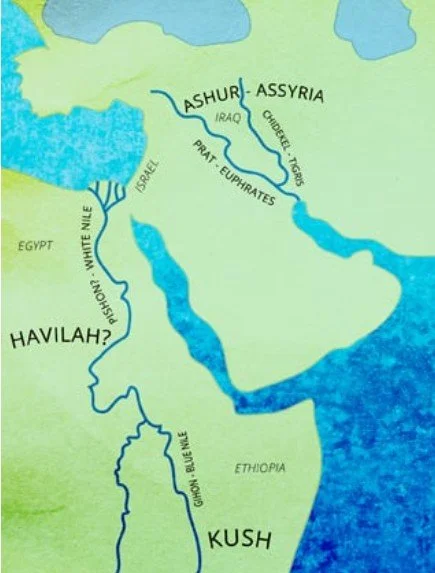
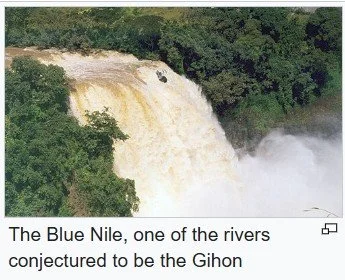
FIRST BOOK OF ADAM AND EVE CHAPTER 1
“ON the third day, God planted the garden in the east of the earth, on the border of the world eastward, beyond which, towards the sun-rising, one finds nothing but water, that encompasses the whole world, and reaches unto the borders of heaven.
2 And to the north of the garden there is a sea of wafer, clear and pure to the taste, like unto nothing else; so that, through the clearness thereof, one may look into the depths of the earth.”
GENESIS 1:26-31
GENESIS 2:8
“And the Lord God planted a garden eastward in Eden; and there he put the man whom he had formed.”
SIPHIWE NOTE: This means that “Adam and Eve”, God’s created and therefore FIRST CHOSEN PEOPLE, were BLACK AND LIVED IN THE LAND OF CUSH/ETHIOPIA. Question: Why then are all the images of the people in the Bible on the earth and in heaven, including the angels, WHITE??????
READ THE FIRST BOOK OF ADAM AND EVE
READ THE SECOND BOOK OF ADAM AND EVE
FIRST BOOK OF ADAM AND EVE CHAPTER 3: 2-6
“2 Yea, the Word that will again save thee when the five days and a half are fulfilled."
3 But when Adam heard these words from God, and of the great five days and a half, he did not understand the meaning of them.
4 For Adam was thinking that there would be but five days and a half for him, to the end of the world.
5 And Adam wept, and prayed God to explain it to him.
6 Then God in His mercy for Adam who was made after His own image and similitude, explained to him, that these were 5,000 and 500 years; and how One would then come and save him and his seed.”
***********************************************************************************************
“ADAM & EVE WEREN’T THE FIRST HUMANS”
Written by Westgate Junior
A Truth Hidden Beneath the Scriptures
For centuries, we were told that humanity began with one man and one woman — Adam and Eve — about 6,000 years ago in a garden.
But both science and ancient African spiritual knowledge tell another story — one far older, deeper, and far more divine.
---
Science Proves Humanity Didn’t Begin With Two People
Modern genetics shows that:
Humanity could never have descended from just one couple.
Our DNA traces back to thousands of early humans who lived in Africa over 200,000 years ago.
Fossils like Homo habilis and Homo erectus existed millions of years before the biblical Adam.
Meaning: there were already many humans on Earth long before the “Adam” of scripture.
---
Africa — The True Cradle of Humanity
From Olduvai Gorge (Tanzania) to Omo Valley (Ethiopia) and Jebel Irhoud (Morocco) — every discovery points to one truth:
Human life began in Africa.
Our ancestors were building, thinking, and connecting to the Divine long before any Garden of Eden story was written.
---
Even the Bible Reveals Other Humans Existed
Genesis 4:14–17: Cain fears other people might kill him, then marries a wife from the land of Nod.
Who were those people if only Adam, Eve, and their sons existed?
Genesis 6:1–4: Mentions “sons of God” marrying “daughters of men” — meaning two distinct groups of beings.
---
“Let Us Make Man in Our Image” — The Verse They Never Explained
Genesis 1:26 says:
> “Let us make man in our image, after our likeness.”
This verse is not about creating man for the first time — man already existed.
It means that among existing humans, Elohim (Divine Beings) decided to modify, elevate, or upgrade man to reflect their divine image.
In essence:
Humanity existed — but the Adam-Eve lineage was a chosen pair, genetically and spiritually refined to mirror the Elohim, then placed in the Garden as a bridge between the divine and the earthly.
This is why the word “Elohim” is plural — it refers to the Divine Council or higher beings, not a single deity.
---
Ancient African Texts Knew This Truth Long Before Genesis
African spiritual systems — from Kemet (Egypt) to the Dogon, Yoruba, and Zulu — taught that creation unfolded in cycles.
Humanity descended in stages of spiritual evolution, not a single act.
Kemetic wisdom called it the “coming forth by day” — where divine energy materialized into human form through time and light.
The biblical Adam story is simply a reduced, rewritten version of these older African cosmologies.
---
“Adam” and “Eve” Are Symbols, Not Names
“Adam” means red clay — the Earthly vessel.
“Eve” means life — the living essence.
Together, they symbolize matter infused with spirit — the union that births consciousness.
---
The Truth They Feared You’d Discover
Adam and Eve were not the first humans — they were the first modified humans.
The story of Eden is not about the beginning of humanity — it’s about the awakening of consciousness.
Humanity existed long before the Bible — and long before religion tried to own creation.
---
GOD IS NOT RELIGIOUS
Religion was made by men to divide men.
If God were religious, why create different faiths that war and hate in His name?
The Creator is universal — beyond temples, books, or borders.
Every sincere heart is heard. Every path to truth is divine.
---
Truth doesn’t fear questioning — only lies do.
If you doubt, don’t believe — simply do your research.
---
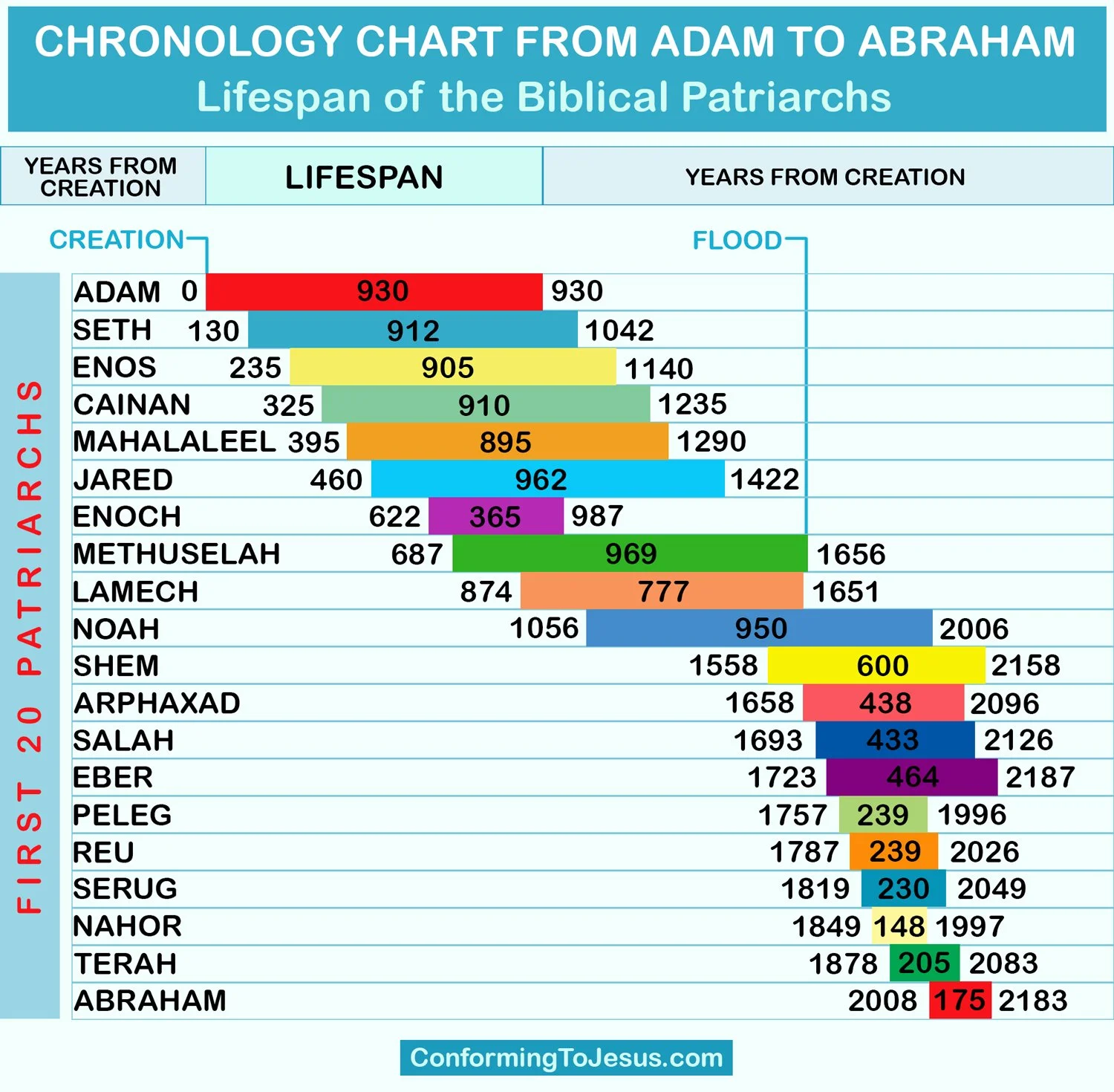
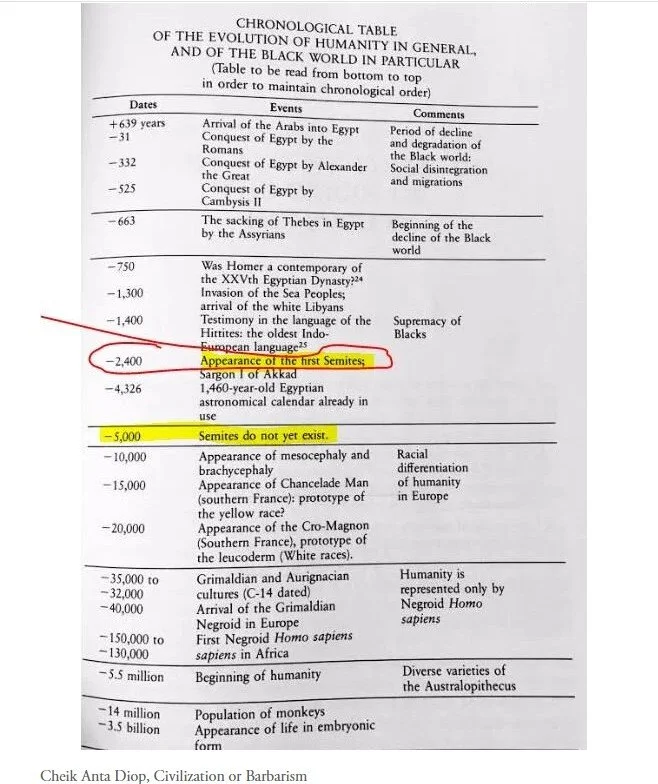
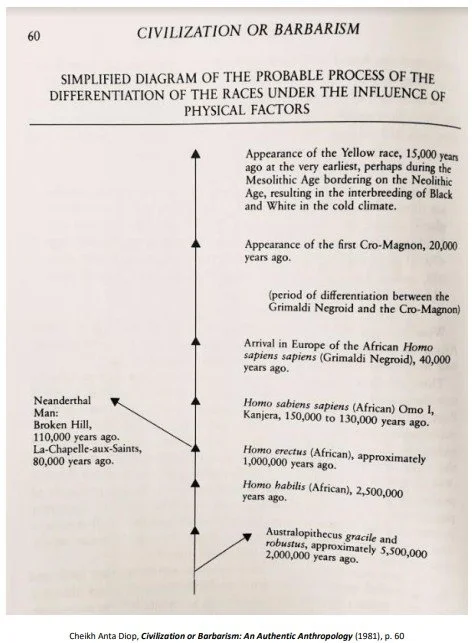
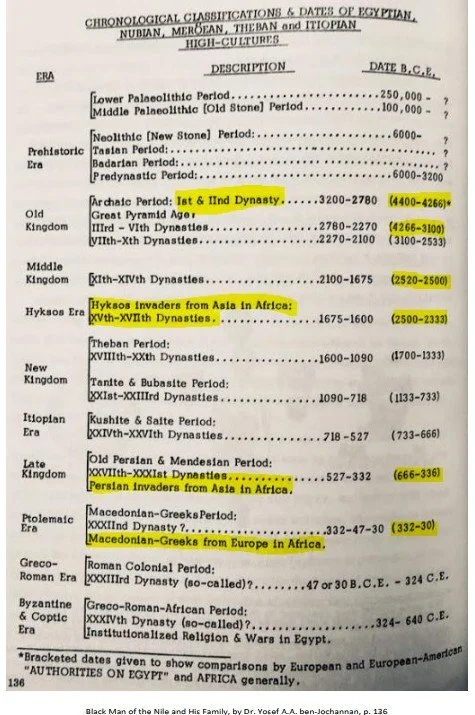
The Book of Enoch
VI-XI. The Fall of the Angels: the Demoralisation of Mankind: the Intercession of the Angels on behalf of Mankind. The Dooms pronounced by God on the Angels: the Messianic Kingdom (a Noah fragment).
CHAPTER VI.
1. And it came to pass when the children of men had multiplied that in those days were born unto them beautiful and comely daughters. 2. And the angels, the children of the heaven, saw and lusted after them, and said to one another: 'Come, let us choose us wives from among the children of men and beget us children.' 3. And Semjâzâ, who was their leader, said unto them: 'I fear ye will not indeed agree to do this deed, and I alone shall have to pay the penalty of a great sin.' 4. And they all answered him and said: 'Let us all swear an oath, and all bind ourselves by mutual imprecations not to abandon this plan but to do this thing.' 5. Then sware they all together and bound themselves by mutual imprecations upon it. 6. And they were in all two hundred; who descended ⌈in the days⌉ of Jared on the summit of Mount Hermon, and they called it Mount Hermon, because they had sworn and bound themselves by mutual imprecations upon it. 7. And these are the names of their leaders: Sêmîazâz, their leader, Arâkîba, Râmêêl, Kôkabîêl, Tâmîêl, Râmîêl, Dânêl, Êzêqêêl, Barâqîjâl, Asâêl, Armârôs, Batârêl, Anânêl, Zaqîêl, Samsâpêêl, Satarêl, Tûrêl, Jômjâêl, Sariêl. 8. These are their chiefs of tens.
CHAPTER VII.
1. And all the others together with them took unto themselves wives, and each chose for himself one, and they began to go in unto them and to defile themselves with them, and they taught them charms and enchantments, and the cutting of roots, and made them acquainted with plants. 2. And they became pregnant, and they bare great giants, whose height was three thousand ells: 3. Who consumed all the acquisitions of men. [Siphiwe Note: like the Befera - eight plutonomarchs who have as much money as half the world today.] And when men could no longer sustain them, 4. the giants turned against them and devoured mankind. 5. And they began to sin against birds, and beasts, and reptiles, and fish, and to devour one another's flesh, and drink the blood. 6. Then the earth laid accusation against the lawless ones.
CHAPTER VIII.
1. And Azâzêl taught men to make swords, and knives, and shields, and breastplates, and made known to them the metals 〈of the earth〉 and the art of working them, and bracelets, and ornaments, and the use of antimony, and the beautifying of the eyelids, and all kinds of costly stones, and all colouring tinctures. 2. And there arose much godlessness, and they committed fornication, and they were led astray, and became corrupt in all their ways. Semjâzâ taught enchantments, and root-cuttings, Armârôs the resolving of enchantments, Barâqîjâl, (taught) astrology, Kôkabêl the constellations, Ezêqêêl the knowledge of the clouds, 〈Araqiêl the signs of the earth, Shamsiêl the signs of the sun〉, and Sariêl the course of the moon. And as men perished, they cried, and their cry went up to heaven . . .
CHAPTER IX.
1. And then Michael, Uriel, Raphael, and Gabriel looked down from heaven and saw much blood being shed upon the earth, and all lawlessness being wrought upon the earth. 2. And they said one to another: 'The earth made †without inhabitant cries the voice of their crying† up to the gates of heaven. 3 ⌈⌈And now to you, the holy ones of heaven⌉⌉, the souls of men make their suit, saying, "Bring our cause before the Most High.".' 4. And they said to the Lord of the ages: 'Lord of lords, God of gods, King of kings,〈and God of the ages〉, the throne of Thy glory (standeth) unto all the generations of the ages, and Thy name holy and glorious and blessed unto all the ages! 5. Thou hast made all things, and power over all things hast Thou: and all things are naked and open in Thy sight, and Thou seest all things, and nothing can hide itself from Thee. 6. Thou seest what Azâzêl hath done, who hath taught all unrighteousness on earth and revealed the eternal secrets which were (preserved) in heaven, which men were striving to learn: 7. And Semjâzâ, to whom Thou hast given authority to bear rule over his associates. 8. And they have gone to the daughters of men upon the earth, and have slept with the women, and have defiled themselves, and revealed to them all kinds of sins. 9. And the women have borne giants, and the whole earth has thereby been filled with blood and unrighteousness. 10. And now, behold, the souls of those who have died are crying and making their suit to the gates of heaven, and their lamentations have ascended: and cannot cease because of the lawless deeds which are wrought on the earth. 11. And Thou knowest all things before they come to pass, and Thou seest these things and Thou dost suffer them, and Thou dost not say to us what we are to do to them in regard to these.'
CHAPTER X.
1. Then said the Most High, the Holy and Great One spake, and sent Uriel to the son of Lamech, and said to him: 2. '〈Go to Noah〉 and tell him in my name "Hide thyself!" and reveal to him the end that is approaching: that the whole earth will be destroyed, and a deluge is about to come upon the whole earth, and will destroy all that is on it. 3. And now instruct him that he may escape and his seed may be preserved for all the generations of the world.'
WHAT RACE OR ETHNICITY WAS NOAH?
About 40,000 years ago, a group of people left the continent of Africa. This group is known in anthropology as “homo sapiens sapiens” and are called the Grimaldi Negro. Thus, the first inhabitant of modern Europe was this black man. Racial differentiation took place in Europe, probably in southern France and in Spain, at the end of the last Wurm glaciation, between 40,000 and 20,000 years ago. Thus made the appearance around 20,000 years ago of the Cro-Magnon Man – a mutation of the Grimaldi Negro caused by the excessively cold climate of Europe. From him came the different peoples of Europe.
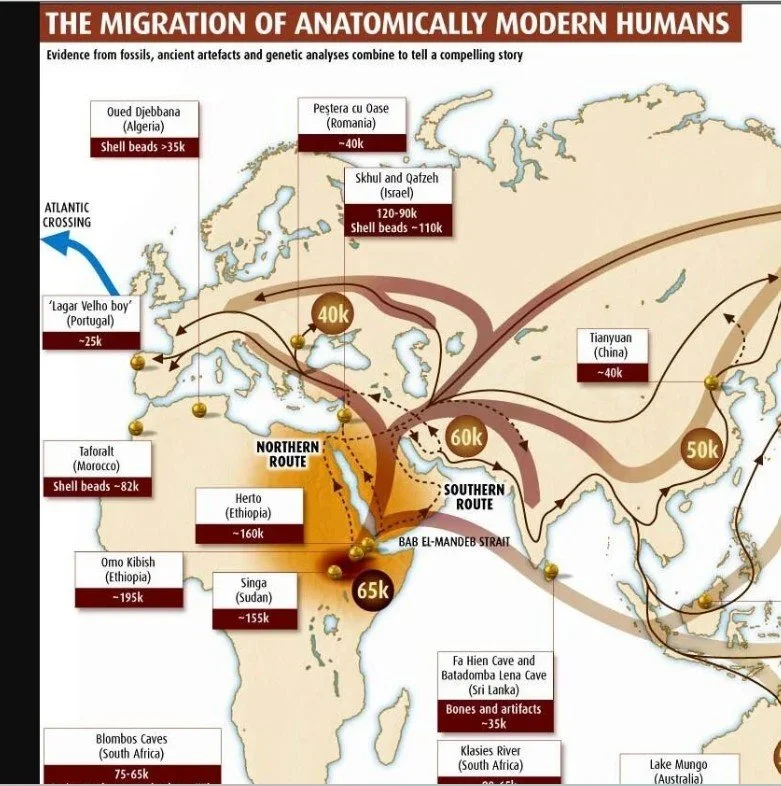
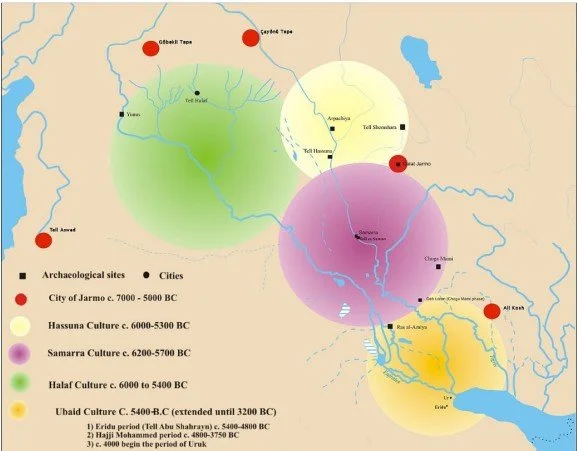
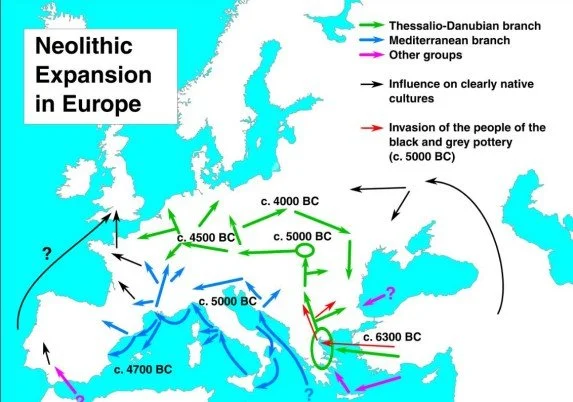
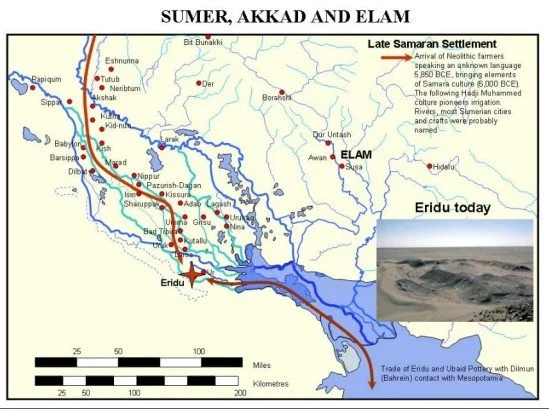
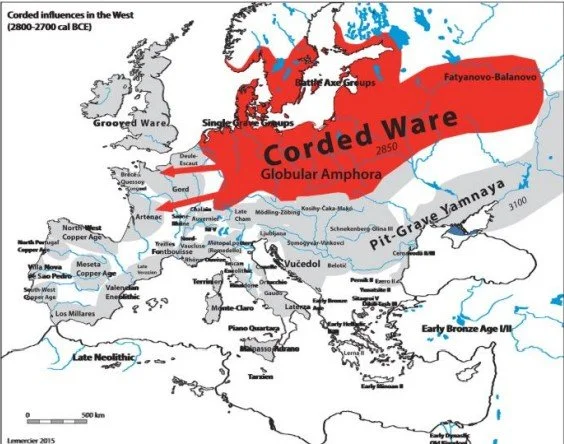
According to the Ethiopian Bible, which contains 81 books (compared to only 66 books in the King James version) Adam was expelled from the Garden of Eden and dwelt in the Cave of Treasures on the Western Border of the Garden of Eden (See BOOK I. CHAP. I.The crystal sea. God commands Adam, expelled from Eden, to dwell in the Cave of Treasures) which is the Pishon River (White Nile). His great, great, great, great, great, great, great grandson Noah was born 1,056 years later. In The Book of the Cave of Treasures, a Syriac Christian text that tells a legendary account of the relics Adam and Eve stored in a sacred cave after their expulsion from Eden, Noah takes the body of Adam from the Cave of Treasures and carries it into the Ark during the Flood. Thus we know that the race of Noah is Cushitic/Ethiopian/Black since he never migrated from the Cave of Treasures north into Europe where racial differentiation took place and the white race appeared as a mutation of the Grimaldi man. That means that all of Noah’s sons, Japhet, Shem, and Ham, were ALL BLACK CUSHITIC ETHIOPIANS.
Second Book of Adam and Eve
CHAP. XIX.
The children of Jared are led astray.
THEN God revealed to him again the promise He had made to Adam; He explained to him the 5500 years, and revealed unto him the mystery of His coming upon the earth.
2 And God said to Jared, "As to that fire which thou hast taken from the altar to light the lamp withal, let it abide with you to give light to the bodies; and let it not come out of the cave, until the body of Adam comes out of it.
3 But, O Jared, take care of the fire, that it burn bright in the lamp; neither go thou again out of the cave, until thou receivest an order through a vision, and not in an apparition, when seen by thee.
4 "Then command again thy people not to hold intercourse with the children of Cain, and not to learn their ways; for I am God who loves not hatred and works of iniquity."
5 God gave also many other commandments to Jared, and blessed him. And then withdrew His Word from him.
6 Then Jared drew near with his children, took some fire, and came down to the cave, and lighted the lamp before the body of Adam; and he gave his people commandments as God had told him to do.
7 This sign happened to Jared at the end of his four hundred and fiftieth year; as did also many other wonders, we do not record. But we record only this one for shortness sake, and in order not to lengthen our narrative.
8 And Jared continued to teach his children eighty years; but after that they began to transgress the commandments he had given them, and to do many things without his counsel. They began to go down from the Holy Mountain one after another, and to mix with the children of Cain, in foul fellowships.
9 Now the reason for which the children of Jared went down the Holy Mountain, is this, that we will now reveal unto you.
CHAP. XX.
Ravishing music; strong drink loosed among the sons of Cain. They don colorful clothing. The children of Seth look on with longing eyes. They revolt from wise counsel; they descend the mountain into the valley of iniquity. They can not ascend the mountain again.
AFTER Cain had gone down to the land of dark soil, and his children had multiplied therein, there was one of them, whose name was Genun, son of Lamech the blind who slew Cain.
2 But as to this Genun, Satan came into him in his childhood; and he made sundry trumpets and horns, and string instruments, cymbals and psalteries, and lyres and harps, and flutes; and he played on them at all times and at every hour.
3 And when he played on them, Satan came into them, so that from among them were heard beautiful and sweet sounds, that ravished the heart.
4 Then he gathered companies upon companies to play on them; and when they played, it pleased well the children of Cain, who inflamed themselves with sin among themselves, and burnt as with fire; while Satan inflamed their hearts, one with another, and increased lust among them.
5 Satan also taught Genun to bring strong drink out of com; and this Genun used to bring together companies upon companies in drink-houses; and brought into their hands all manner of fruits and flowers; and they drank together.
6 Thus did this Genun multiply sin exceedingly; he also acted with pride, and taught the children of Cain to commit all manner of the grossest wickedness, which they knew not; and put them up to manifold doings which they knew not before.
7 Then Satan, when he saw that they yielded to Genun and hearkened to him in every thing he told them, rejoiced greatly, increased Genun's understanding, until he took iron and with it made weapons of war.
8 Then when they were drunk, hatred and murder increased among them; one man used violence against another to teach him evil taking his children and defiling them before him.
9 And when men saw they were overcome, and saw others that were not overpowered, those who were beaten came to Genun, took refuge with him, and he made them his confederates.
10 Then sin increased among them greatly; until a man married his own sister, or daughter, or mother, and others; or the daughter of his father's sister, so that there was no more distinction of relationship, and they no longer knew what is iniquity; but did wickedly, and the earth was defiled with sin, and they angered God the Judge, who had created them.
11 But Genun gathered together companies upon companies, that played on horns and on all the other instruments we have already mentioned, at the foot of the Holy Mountain; and they did so in order that the children of Seth who were on the Holy Mountain should hear it.
12 But when the children of Seth heard the noise, they wondered, and came by companies, and stood on the top of the mountain to look at those below; and they did thus a whole year.
13 When, at the end of that year, Genun saw that they were being won over to him little by little, Satan entered into him, and taught him to make dyeing-stuffs for garments of divers patterns, and made him understand how to dye crimson and purple and what not.
14 And the sons of Cain who wrought all this, and shone in beauty and gorgeous apparel, gathered together at the foot of the mountain in splendour, with horns and gorgeous dresses, and horse races, committing all manner of abominations.
15 Meanwhile the children of Seth, who were on the Holy Mountain, prayed and praised God, in the place of the hosts of angels who had fallen; wherefore God had called them "angels," because He rejoiced over them greatly.
16 But after this, they no longer kept His commandment, nor held by the promise He had made to their fathers; but they relaxed from their fasting and praying, and from the counsel of Jared their father. And they kept on gathering together on the top of the mountain, to look upon the children of Cain, from morning until evening, and upon what they did, upon their beautiful dresses and ornaments.
17 Then the children of Cain looked up from below, and saw the children of Seth, standing in troops on the top of the mountain; and they called to them to come down to them.
18 But the children of Seth said to them from above, "We don't know the way." Then Genun, the son of Lamech, heard them say they did not know the way, and he bethought himself how he might bring them down.
19 Then Satan appeared to him by night, saying, "There is no way for them to come down from the mountain on which they dwell; but when they come to-morrow, say to them, 'Come ye to the western side of the mountain; there you will find the way of a stream of water, that comes down to the foot of the mountain, between two hills; come down that way to us.'"
20 Then when it was day, Genun blew the horns and beat the drums below the mountain, as he was wont. The children of Seth heard it, and came as they used to do.
21 Then Genun said to them from down below, "Go to the western side of the mountain, there you will find the way to come down."
22 But when the children of Seth heard these words from him, they went back into the cave to Jared, to tell him all they had heard.
23 Then when Jared heard it, he was grieved; for he knew that they would transgress his counsel.
24 After this a hundred men of the children of Seth gathered together, and said among themselves, "Come, let us go down to the children of Cain, and see what they do, and enjoy ourselves with them."
25 But when Jared heard this of the hundred men, his very soul was moved, and his heart was grieved. He then arose with great fervour, and stood in the midst of them, and adjured them by the blood of Abel the just, "Let not one of you go down from this holy and pure mountain, in which our fathers have ordered its to dwell."
26 But when Jared saw that they did not receive his words, he said unto them, "O my good and innocent and holy children, know that when once you go down from this holy mountain, God will not allow you to return again to it."
27 He again adjured them, saying, "I adjure by the death of our father Adam, and by the blood of Abel, of Seth, of Enos, of Cainan, and of Mahalaleel, to hearken to me, and not to go down from this holy mountain; for the moment you leave it, you will be reft of life and of mercy; and you shall no longer be called 'children of God,' but 'children of the devil.'"
28 But they would not hearken to his words.
29 Enoch at that time was already grown up, and in his zeal for God, be arose and said, "Hear me, O ye sons of Seth, small and great--when ye transgress the commandment of our fathers, and go down from this holy mountain--ye shall not come up hither again for ever."
30 But they rose up against Enoch, and would not hearken to his words, but went down from the Holy Mountain.
31 And when they looked at the daughters of Cain, at their beautiful figures, and at their hands and feet dyed with colour, and tattooed in ornaments on their faces, the fire of sin was kindled in them.
32 Then Satan made them look most beautiful before the sons of Seth, as he also made the sons of Seth appear of the fairest in the eyes of the daughters of Cain, so that the daughters of Cain lusted after the sons of Seth like ravenous beasts, and the sons of Seth after the daughters of Cain, until they committed abomination with them.
33 But after they had thus fallen into this defilement, they returned by the way they had come, and tried to ascend the Holy Mountain. But they could not, because the stones of that holy mountain were of fire flashing before them, by reason of which they could not go up again.
34 And God was angry with them, and repented of them because they had come down from glory, and had thereby lost or forsaken their own purity or innocence, and were fallen into the defilement of sin.
35 Then God sent His Word to Jared, saying, "These thy children, whom thou didst call 'My children,'--behold they have transgressed My commandment, and have gone down to the abode of perdition, and of sin. Send a messenger to those that are left, that they may not go down, and be lost."
36 Then Jared wept before the Lord, and asked of Him mercy and forgiveness. But he wished that his soul might depart from his body, rather than hear these words from God about the going down of his children from the Holy Mountain.
37 But he followed God's order, and preached unto them not to go down from that holy mountain, and not to hold intercourse with the children of Cain.
38 But they heeded not his message, and would not obey his counsel.
CHAP. XXI.
Jared dies in sorrow for his sons who had gone astray. A prediction of the Flood.
AFTER this another company gathered together, and they went to look after their brethren; but they perished as well as they. And so it was, company after company, until only a few of them were left.
2 Then Jared sickened from grief, and his sickness was such that the day of his death drew near.
3 Then he called Enoch his eldest son, and Methuselah Enoch's son, and Lamech the son of Methuselah, and Noah the son of Lamech.
4 And when they were come to him he prayed over them and blessed them, and said to them, "Ye are righteous, innocent sons; go ye not down from this holy mountain; for behold, your children and your children's children have gone down from this holy mountain, and have estranged themselves from this holy mountain, through their abominable lust and transgression of God's commandment.
5 "But I know, through the power of God, that He will not leave you on this holy mountain, because your children have transgressed His commandment and that of our fathers, which we had received from them.
6 "But, O my sons, God will take you to a strange land, and ye never shall again return to behold with your eyes this garden and this holy mountain.
7 "Therefore, O my sons, set your hearts on your own selves, and keep the commandment of God which is with you. And when you go from this holy mountain, into a strange land which ye know not, take with you the body of our father Adam, and with it these three precious, gifts and offerings, namely, the gold, the incense, and the myrrh; and let them be in the place where the body of our father Adam shall lay.
8 "And unto him of you who shall be left, O my sons, shall the Word of God come, and when he goes out of this land he shall take with him the body of our father Adam, and shall lay it in the middle of the earth the place in which salvation shall be wrought."
9 Then Noah said unto him, "Who is he of us that shall be left?"
10 And Jared answered, "Thou art he that shall be left. And thou shalt take the body of our father Adam from the cave, and place it with thee in the ark when the flood comes.
11 "And thy son Shem, who shall come out of thy loins, he it is who shall lay the body of our father Adam in the middle of the earth, in the place whence salvation shall come."
12 Then Jared turned to his son Enoch, and said unto him, "Thou, my son, abide in this cave, and minister diligently before the body of our father Adam all the days of thy life; and feed thy people in righteousness and innocence."
13 And Jared said no more. His hands were loosened, his eyes closed, and he entered into rest like his fathers. His death took place in the three hundred and sixtieth year of Noah, and in the nine hundred and eighty-ninth year of his own life; on the twelfth of Takhsas on a Friday.
14 But as Jared died, tears streamed down his face by reason of his great sorrow, for the children of Seth, who had fallen in his days.
15 Then Enoch, Methuselah, Lamech and Noah, these four, wept over him; embalmed him carefully, and then laid him in the Cave of Treasures. Then they rose and mourned for him forty days.
16 And when these days of mourning were ended, Enoch, Methuselah, Lamech and Noah remained in sorrow of heart, because their father had departed from them, and they saw him no more.
CHAP. XXII.
Only three righteous men left in the world. The evil conditions of men prior to the Flood.
BUT Enoch kept the commandment of Jared his father, and continued to minister in the cave.
2 It is this Enoch to whom many wonders happened, and who also wrote a celebrated book; but those wonders may not be told in this place.
3 Then after this, the children of Seth went astray and fell, they, their children and their wives. And when Enoch, Methuselah, Lamech and Noah saw them, their hearts suffered by reason of their fall into doubt full of unbelief; and they wept and sought of God mercy, to preserve them, and to bring them out of that wicked generation.
4 Enoch continued in his ministry before the Lord three hundred and eighty-five years, and at the end of that time he became aware through the grace of God, that God intended to remove him from the earth.
5 He then said to his son, "O my son, I know that God intends to bring the waters of the Flood upon the earth, and to destroy our creation.
6 "And ye are the last rulers over this people on this mountain; for I know that not one will be left you to beget children on this holy mountain; neither shall any one of you rule over the children of his people; neither shall any great company be left of you, on this mountain."
7 Enoch said also to them, "Watch over your souls, and hold fast by your fear of God and by your service of Him, and worship Him in upright faith, and serve Him in righteousness, innocence and judgment, in repentance and also in purity."
8 When Enoch had ended his commandments to them, God transported him from that mountain to the land of life, to the mansions of the righteous and of the chosen, the abode of Paradise of joy, in light that reaches up to heaven; light that is outside the light of this world; for it is the light of God, that fills the whole world, but which no place can contain.
9 Thus, because Enoch was in the light of God, he found himself out of the reach of death; until God would have him die.
10 Altogether, not one of our fathers or of their children, remained on that holy mountain, except those three, Methuselah, Lamech, and Noah. For all the rest went down from the mountain and fell into sin with the children of Cain. Therefore were they forbidden that mountain, and none remained on it but those three men.
GENESIS 6
4 There were giants in the earth in those days; and also after that, when the sons of God came in unto the daughters of men, and they bare children to them, the same became mighty men which were of old, men of renown.
5 And God saw that the wickedness of man was great in the earth, and that every imagination of the thoughts of his heart was only evil continually.
6 And it repented the Lord that he had made man on the earth, and it grieved him at his heart.
7 And the Lord said, I will destroy man whom I have created from the face of the earth; both man, and beast, and the creeping thing, and the fowls of the air; for it repenteth me that I have made them.
8 But Noah found grace in the eyes of the Lord.
Genesis 10:8
“And Cush begat Nimrod: he began to be a mighty one in the earth.”
According to the Great Senegale Scientist Cheik Anta Diop,
“The Ancients remained silent about the alleged Mesopotamian culture prior to the Chaldeans. They considered the latter a caste of Egyptian astronomer-priests, that is to say, Negroes. According to the Egyptians, Diodorus reports, the Chaldeans were ‘a colony of their priests that Belus had transported on the Euphrates and organized on the model of the mother-caste, and this colony continues to cultivate the knowledge of the stars, knowledge that it brought from the homeland.’ So it is that ‘Chaldean’ formed the root of the Greek word for astrologer. The Tower of Babel, a step pyramid similar to the tower of Saqqara, also known as ‘Birs-Nimroud’ and ‘Temple of Baal,’ was probably the astronomical observatory of the Chaldeans.
This fits in, for Nimrod, son of Kush, grandson of Ham, the Biblical ancestor of the Blacks, is the symbol of worldly power: ‘He was a mighty hunter before the Lord. Hence the saying, ‘Like Nimrod, a mighty hunter before the Lord.’ The beginning of his kingdom was Babylon, Arach and Akkad, all of them in the land of Sennar. From that region Assur went forth.’ . . .
Moses’s account, however contradicts the list of Ethiopian Kings as given by H.I.H. Tafari Makonnen, June 19, 1922, published in: “In The Country of The Blue Nile” by C.F. Rey, F.R.G.S., Commander of the Order of the Star of Ethiopia, Negro University Press, New York.
accordingly, Nimroud is NOT the grandson of Ham. Nimroud is, in fact, the 12th Sovereign in the line of King Ori, reiging in 3776 BC and before the Biblical Flood. Kam (Ham) and Kout (Kush) appear about 1,000 years later….
Cheikh Anta Diop writes in “Political and Social Evolution of Ancient Egypt”:
“By the Third Dynasty (2778-2723), centralization of the monarchy was complete. All the technological and cultural elements of Egyptian civilization were already in place and had only to be perpetuated. . . . Petrie affirmed that this dynasty, the first to give Egyptian civilization its almost definitive form and expression, was of Sudanese Nubian origin. It was easier to recognize the Negro origin of the Egyptians when the initial display of their civilization coincided with an unquestionably Negro dynasty. The equally Negro features of the protodynastic face of Tera Neter and those of the first king to unify the valley, also prove that this is the only valid hypothesis….
‘With administrative centralization in the Third Dynasty,’ writes Jacques Piernne, ‘there was no longer any noble or privileged class.’ However, the clergy, guardian of the faith that established the king’s authority, was a corps apart, well organized and relatively independent. Until then it had exercised its spiritual guardianship at the coronation of the king in the temple at Heliopolis. But, to make his power absolute, the king clashed with the clergy. From then on he renounced the Heliopolis coronation and had himself crowned in his own palace at Memphis. He proclaimed the principle of his omnipotence by divine right, added ‘Great God’ to his titles, and was free from any human control. The advent of the Fourth Dynasty, with the Giza pyramids, showed that the monarchy had reached its zenith. . . . And the Sixth Dynasty was to end with the first popular uprising in Egyptian history. . . . So, the first cycle of Egyptian history ended with the collapse of the Old Kingdom. It had begun with the feudalism that preceded the first political unification.; it closed in anarchy and feudalism. Monarchy sank into feudalism without being directly attacked. . . . Confronted by this situation, the former provincial governors in Upper and Middle Egypt set themselves up as independent feudal lords, freed henceforth from any royal overlordship, though they did not ever question the principle of monarchy itself. On the contrary, each in his own way was trying to be king; they called themselves kings of their own regions. Apparently the bureaucratic apparatus, which weighed so heavily on the poor, along with royal absolutism, was the main target. . . . After that revolution, all Egyptians had a right to the ‘Osirian death,’ the privilege of survival in the hereafter, previously reserved for the Pharaoh as the only one with a Ka, a soul, in the sky.”
As noted by George G.M. James in his book, Stolen Legacy:
“The ancient Egyptians had developed a very complex religious system, called the Mysteries, which was also the first system of salvation.
As such, it regarded the human body as a prison house of the soul, which could be liberated from its bodily impediments, through the disciplines of the Arts and Sciences, and advanced from the level of a mortal to that of a God. This was the notion of the summum bonum, or greatest good, to which all men must aspire, and it also became the basis of all ethical concepts. The Egyptian Mystery System was also a Secret Order, and membership was gained by initiation and a pledge to secrecy.
‘The earliest theory of salvation is the Egyptian theory. The Egyptian Mystery System had as its most important object, the deification of man, and taught that the soul of man if liberated from its bodily fetters, could enable him to become godlike and see the Gods in this life and attain the beatific vision and hold communion with the Immortals.’ (Ancient Mysteries, C.H. Vail, P. 25).
There was no mediator between man and his salvation, as we find in the Christian theory.”
**************************************************************************************
ABRAM TO ABRAHAM
Amorites and Hurrians
Genesis 10
Abraham's time is generally placed in the 18th century BCE, a period known as the Middle Bronze Age and the Hyksos Era before the Theban Period prior to the New Kingdom era in Egypt, though biblical chronologies place him slightly earlier, around the 21st to 19th centuries BCE.
The introduction of “bronze” in the Early Bronze Age (3000-2000 B.C.) brought about a cultural revolution marked by the development of metallurgy, and a decline in pottery. By the Middle Bronze Age (2000-1550 B.C.), Amorites who were originally nomads from the dessert regions to the east, and southern Anatolia (modern Turkey), had penetrated Canaan and were inhabiting the hilly areas around the cities. From these hills, they launched raids and harassment attacks against the cities.
In addition to the Amorites, other invaders included the Hurrians (the Horites of the Old Testament), also came to Canaan from the north. The Late Bronze Age (1550–1200 B.C.) was marked by incursions of new Amorite marauders, these were Amorites displaced by the fall of the Hammurabian dynasty in Babylon. As it were, over time, the nomadic Amorites were joined by Amorites who had previously been in Mesopotamia. So that by now, the total of these Amorites had become the dominant element of the population in Canaan.
Many of these Amorites, such as the Biblical Abraham, continued on to Egypt.
Genesis 11:27-32
Now these are the generations of Terah: Terah begat Abram, Nahor, and Haran; and Haran begat Lot. And Haran died before his father Terah in the land of his nativity, in Ur of the Chaldees (Sumer). And Abram and Nahor took them wives: the name of Abram's wife was Sarai; and the name of Nahor's wife, Milcah, the daughter of Haran, the father of Milcah, and the father of Iscah. But Sarai was barren; she had no child. And Terah took Abram his son, and Lot the son of Haran his son's son, and Sarai his daughter in law, his son Abram's wife; and they went forth with them from Ur of the Chaldees, to go into the land of Canaan; and they came unto Haran (Anatolian city), and dwelt there. And the days of Terah were two hundred and five years: and Terah died in Haran. Genesis 12:9-10 And Abram journeyed, going on still toward the south. And there was a famine in the land: and Abram went down into Egypt to sojourn there; for the famine was grievous in the land.
According to Diop, “After many ups and downs, the Canaanites and the white tribes, symbolized by Abraham and his descendants (Isaac’s lineage), blended to become the Jewish people of today:
So Hemor and his son Sichem went to the gate of their city and spoke to their fellow citizens. ‘These men,’ they said, ‘are friendly: let them dwell with us and trade in the land, since there is ample room for them. Let us marry their daughters and give them our daughters to marry.’
Those few lines, which seem to be a ruse, nonetheless reveal the economic imperatives which at that time were to govern relations between white invaders and black Canaanites. Phoenician history is therefore incomprehensible only if we ignore the Biblical data according to which the Phoenicians, in other words, the Canaanites, were originally Negroes, already civilized, with whom nomadic, uncultured white tribes later mixed. . . . . This is how the lasting alliance between Egyptians and Phoenicians can be explained. Even throughout the most troubled periods of great misfortune, Egypt could count on the Phoenicians as one can more or less count on a brother. . . . To be sure, we should not minimize the role of economic relations between Egypt and Phoenicia in explaining the loyalty which seems to have existed. One can also understand that Phoenician religion and beliefs are to some extent mere replicas of Egypt’s. . . . .”
In Egypt these Amorites become known as Habiru or Hapiru (one who sells his services), whether these ‘services’ were as mercenaries or tradesman is unknown. In time, the number of Amorites in northern Egypt was sufficient to overthrow Egyptian rule and establish an independent region of Egypt ruled by Amorites, since known as the Hyksos (foreign kings or Shepherd Kings). The Egyptian historian Manetho, and the traitor Hebrew, Josephus Flavius, both wrote of the Amorite coup as an invasion.
Cheikh Ana Diop explains in The African Origin of Civilization: Myth or Reality:
“In the Bible, when the first white races reached the place, they found a black race there, the Canaanites, descendants of Canaan, brother of Mesraim, the Egyptian, and Kush, the Ethiopian, sons of Ham.
The Lord said to Abram: ‘Leave your country, your kinsfolk and your father’s house, for the land which I will show you . . .” Abram went away as the Lord had commanded him, and Lot went with him. . . . Abram took Sarai his wife, Lot his brother’s son, all the property they had acquired and the persons they had got in Haran and they departed for the land of Canaan. When they came to the land of Canaan, Abram passed through the land to the sacred place at Sichem, near the plain of More. At that time the Canaanites were in the land.’”
Melchisedec
“For this Melchisedec, king of Salem, priest of the most high God, who met Abraham returning from the slaughter of the kings, and blessed him; To whom also Abraham gave a tenth part of all; first being by interpretation King of righteousness, and after that also King of Salem, which is, King of peace; Without father, without mother, without descent, having neither beginning of days, nor end of life; but made like unto the Son of God; abideth a priest continually.”
[NOTES.—According to the Book of Adam, (iii. 5), Shem was to appoint Melchisedek (see Gen. xiv. 18-24; Heb., chapter vii.), the son of Kainan, and grandson of Arphaxad, [SIPHIWE NOTE: Making Melchesidec the great great grandson of the black Cushitic Ethiopian Noah] to be the priest of the Most High; and he was to stand and minister on the mountain which is in the middle of the earth. He was to wear a garment of skin, and have a leather girdle about his loins, and his apparel was to be humble and without ornament. In the majority of Masoretic Hebrew texts the name is written as two words, Malki-ṣedeq מלכי־צדק, rendered in one word in both the Septuagint (Μελχισεδέκ) and Vulgate (Melchisedech). The Authorised King James Version of 1611 renders the name "Melchizedek" when translating from the Hebrew, and "Melchisedec" in the New Testament.
The name is composed from the two elements: melek(h), 'king', and ṣedeq, which means either 'righteousness'[6] or the proper name Zedek.[7][8] With the addition of the hiriq compaginis (-ī) indicating the archaic construct form, malk-ī means 'king of', so that the name literally translates to 'king of righteousness'[9] or 'my king is Zedek',[7] indicating that he worshipped Zedek, a Canaanite deity worshipped in pre-Israelite Jerusalem.[5]: ]
Medieval scholars such as Michael the Syrian, Bar Hebraeus, and Agapius of Hierapolis noted that the prevailing view was the Hebrews (Hebrew: עִבְרִיִּים, romanized: ʿIḇriyyim, also derived from the letters ʿ-b-r) had received their name from ʿEber,[7][8] while others state the name "Hebrew" means "those who cross", a reference to those who crossed the Euphrates with Abram from Ur of the Chaldees to Harran and then Canaan.[6].
However, Wikipedia states that “The Shasu (from Egyptian š3sw, probably pronounced Shaswe) were Semitic-speaking cattle nomads in the Levant (Canaan) from the late Bronze Age to the Early Iron Age or the Third Intermediate Period of Egypt. They were organized in clans under a tribal chieftain, and were described as brigands active from the Jezreel Valley to Ashkelon and the Sinai. Some scholars link the Israelites and YHWH with the Shasu.
The earliest known reference to the Shasu occurs in a 15th-century BCE list of peoples in the Transjordan region. The name appears in a list of Egypt's enemies inscribed on column bases at the temple of Soleb built by Amenhotep III. Copied later in the 13th century BCE either by Seti I or by Ramesses II at Amarah-West, the list mentions six groups of Shasu: the Shasu of S'rr, the Shasu of Rbn, the Shasu of Sm't, the Shasu of Wrbr, the Shasu of Yhw, and the Shasu of Pysps. Two Egyptian texts, one dated to the period of Amenhotep III (14th century BCE), the other to the age of Ramesses II (13th century BCE), refer to 'Yahu in the land of the Šosū-nomads' (t3 š3św yhw), in which yhw[3]/Yahu is a toponym. Regarding the name yhw3, Michael Astour observed that the "hieroglyphic rendering corresponds very precisely to the Hebrew tetragrammaton YHWH, or Yahweh, and antedates the hitherto oldest occurrence of that divine name – on the Moabite Stone – by over five hundred years." K. Van Der Toorn concludes: "By the 14th century BC, before the cult of Yahweh had reached Israel, groups of Edomites and Midianites worshipped Yahweh as their god."
Donald B. Redford has argued that the earliest Israelites, semi-nomadic highlanders in central Palestine mentioned on the Merneptah Stele at the end of the 13th century BCE, are to be identified as a Shasu enclave. Since later Biblical tradition portrays Yahweh "coming forth from Seʿir", the Shasu, originally from Moab and northern Edom/Seʿir, went on to form one major element in the amalgam that would constitute the "Israel" which later established the Kingdom of Israel. Per his own analysis of the el-Amarna letters, Anson Rainey concluded that the description of the Shasu best fits that of the early Israelites. If this identification is correct, these Israelites/Shasu would have settled in the uplands in small villages with buildings similar to contemporary Canaanite structures towards the end of the 13th century BCE.
Habiru (sometimes written as Hapiru, and more accurately as ʿApiru) is a term used in 2nd-millennium BCE texts throughout the Fertile Crescent (Canaan) for people variously described as rebels, outlaws, raiders, mercenaries, bowmen, servants, slaves, and laborers. The word Habiru, more properly 'Apiru, occurs in hundreds of 2nd millennium BCE documents covering a 600-year period from the 18th to the 12th centuries BCE and found at sites ranging from Egypt, Canaan and Syria, to Nuzi (near Kirkuk in northern Iraq) and Anatolia (Turkey), frequently used interchangeably with the Sumerian SA.GAZ, a phonetic equivalent to the Akkadian (Mesopotamian) word saggasu ("murderer, destroyer").
In the Amarna tablets from 14th century BCE, the petty kings of Canaan describe them sometimes as outlaws, sometimes as mercenaries, sometimes as day-labourers and servants. Usually they are socially marginal, but Rib-Hadda of Byblos calls Abdi-Ashirta of Amurru (modern Lebanon) and his son 'Apiru, with the implication that they have rebelled against their common overlord, the Pharaoh. The biblical word "Hebrew", like Habiru, denotes a social category, not an ethnic group. Since the discovery of the 2nd millennium BCE inscriptions mentioning the Habiru, there have been many theories linking these to the Hebrews of the Bible, but modern scholars see the 'Apiru/Habiru as only one element in an early Israel composed of many different peoples, including nomadic Shasu, the biblical Midianites, Kenites, and Amalekites, displaced peasants and pastoralists.
CONCLUSION: Adam, was a black man placed in the Garden of Eden whose rivers encompassed the lands of Kush (Ethiopia) and Havilah (Sudan and Egypt). Adam was then expelled from the Garden of Eden and dwelt in the Cave of Treasures on the Western Border of the Garden of Eden (See BOOK I. CHAP. I.The crystal sea. God commands Adam, expelled from Eden, to dwell in the Cave of Treasures) which is the Pishon River (White Nile). His great, great, great, great, great, great, great grandson Noah was born 1,056 years laterand had not migrated north to Europe yet, and was thus a black Cushitic Ethiopian. His seventh great grandson, Abram, was of the mixed Semitic white race that migrated into Ur in the Tigris and Uphrates Valley that was originally occupied by the black Cushitic Ethiopian Sumerians. Abram then migrated from Ur into the land of Canaan originally inhabited by the black Cushitic Ethiopians. There, Abram met the black Cushitic Ethiopina HIgh Priest of Righteousness Melchisedec to whom he paid tithes. Upon entering Egypt, the land of Ham, Abram became Abra-Ham (Genesis 17), when he was 99 years old and God established a new covenant with him. God declared Abram's new name as Abraham, which means "father of many nations," to seal His promise of making him exceedingly fruitful and the ancestor of many peoples. Abraham of the mixed Semitic white race that migrated into Ur who was now blessed by Melchesiden the High Priest of Elyon and King of Salem (Peace) and Righteousness. Abram married Sarah, his half-sister. According to Genesis 20:12, Abraham explained, "She is indeed my sister, the daughter of my father, but not the daughter of my mother". This implies Terah had multiple wives, and Sarah was born from a different mother than Abraham, but was also of the mixed Semitic white race that migrated into Ur. Together, Abra-Ham and Sarah gave birth to Isaac, a mixed Semitic white child, the grandfather of the twelve tribes of Israel, at a time just before the Hyksos-Israelite invasion of Egypt.
Chancellor Williams writes,
“The end of the Twelfth Dynasty in 1786 B.C. ended nearly three and one half centuries of great leaders and, therefore great progress. . . . Nearly two centuries of internal strife and decay followed. . . . This meant an increased and unrestricted flow of Asians into the country. A period of turmoil was also the opportune time for great armed invasions. Among these invaders were the Hyksos, the ‘Children of Israel,’ according to the historian Josephus. This invasion of Egypt in 1720 B.C. was ruthless and aimed at nothing less than the extermination of the Egyptian people and their replacement by the Israelites.
They did not succeed in this but settled down to rule the country as the Thirteenth and Sixteenth Dynasties and stayed on as a powerful influence for over 400 years. The important point here is that Semites poured into Egypt following its conquest by fellow tribesmen, and that this still further advanced the Asiatic character of the Egyptians. Hyksos power was broken during the Eighteenth Dynasty (1549/1550 to 1292 BC.) and many were expelled in masse. They returned to Palestine and founded Jerusalem. Meanwhile, Egypt was developing into ‘The New Empire’ and, during the same dynasty in which the Hyksos had been expelled, she struck back by conquering both the Hyksos homeland and Syria and extending those conquests to the Euphrates. It should be noted that the greatest Hebrew invasion of Egypt occurred about 600 years before Moses and the Captivity.”
SIPHWE NOTE: There is no single date for Moses's birth because he is a figure from ancient history and religious tradition, and historical and religious scholars have proposed different dates for his life, with some suggesting a lifespan of 1391–1271 BCE, while other sources point to a 13th-century BCE timeline. Traditional Jewish sources cite Moses's birth and death as occurring on the 7th of Adar in 1393 BCE and 1273 BCE, respectively. Here is a breakdown of Moses' lineage from the biblical account:
Jacob (Israel): One of the patriarchs of the twelve tribes of Israel, a mixed Semitic white child of Isaac, son of the mixed Semitc white Abra-Ham, the eight great grandson of the Black Cushitic Ethiopian Noah after the mutation in Europe.
Levi: Jacob's son, and the patriarch of the Levites.
Kohath (Kehath): Levi's son, through whom Moses' family line is traced.
Amram: Kohath's descendant and the father of Moses, Aaron, and Miriam.
Jochebed: Amram's wife and a relative of Kohath, who was also a Levite.
Moses: The son of Amram and Jochebed, born to them in Egypt and later raised as an Egyptian before leading the Israelites out of slavery.
George Singleton continues in his book, The Egyptian Mystery School of On (Annu): Esoteric Anuology, Egyptology and Rastafariology::
“Specifically, during the Dynastic Period the corrupt Theban Sorcery Lodge priests and priestesses were the theocratic rivals of the Ancient Egyptian Mystery School of On (Annu), becoming increasingly more powerful and wealthy under the “Theban Influenced Pharaohs” of the 18 th Dynasty. Thus circa 1570 thru 1330 B.C the Theban Sorcery Lodges produced the Egyptian Book of the Dead by mixing their demonic occult writings with the Sacred Scriptures of the Ancient Egyptian Mystery School of On (Annu). As a consequence the 18 th Dynasty witnessed the holistically brilliant but failed attempt by the “Aten Path” Master and Pharaoh Akhenaton (Ikhnaton) to continue what his Co-Regent father Pharaoh Amenhotep III and Queen Tiy began __ the limitation of the corruption and power of the Theban Sorcery Lodges.
The Theban Sorcery Lodges sold copies of their Book of the Dead to prominent Egyptians promising false “Salvation of Their Soul” upon death regardless of their having entered or completed the esoteric Science of Spirituality System (Salvation of the Soul through Deification While Alive ). Called the “Aten Path” as part of the priest and priestess training by the Ancient Egyptian Mystery School of On (Annu); the Theban Sorcery Lodges antithetically offered the false spiritism/spiritualism doctrines of body resurrection and materialism based on mummification through its demonic Amen-Ra and Osiris-Isis cults.
The “Aten Path” was the esoteric “Spirituality System of Salvation of the Soul through Deification While Alive”, and was the core of the Ancient Egyptian Mystery School of On (Annu). . . . That these Ancient Egyptian Mystery School of On (Annu) mystic scriptures were compiled by the Masters and “Initiated” disciples of the aboriginal “Path of the (Aten\7) Atannu” is not debatable. Circa 10,000 B.C is the time esoterically for the writings of Spiritual Scripture D Chapter 64a translated partly herein. That these mystic scriptures were complied within the black African Anu Peoples Nile River Valley Annu Culture originating aboriginally in Central Africa is documented herein. In the Predynastic Period these writings were composed by the Anu Peoples who lived along the entire Nile River Valley; and who had cultural and religious allies called the “Nine Bow Nations” along the Jordan, Tigris and Euphrates River Valleys; i.e the Biblical Garden of Eden\Aten. A systematic cover up and falsification of history and artifacts has been perpetrated by the Theban Sorcery Lodges, the corrupt rivals of the Ancient Egyptian Mystery School on On (Annu) who dominated the Theocracy of Ancient Egypt/Kemit after the reign of Pharaoh Akhenaten at the close of the 18 th Dynasty. This systematic cover up and falsification continues with the subsequent rulers and various conquerors of Dynastic and Post-Dynastic Egypt/Kemit to keep the black African Anu People and their “rainbow” colored “Nine Bow Nation” contribution to ancient Egypt/Kemit’s great civilization hidden. Esoterically this is when Pharaoh lkhnaton\Akhenaten the last simultaneous Annu King and Aten Path Master set on the throne of Ancient Egypt/Kemit and then was driven out into Palestine and Syria after a long, bitter civil war. Thus Pharaoh lkhnaton\Akhenaten’s subsequent actions are known in history as those of Moses.”
SIPHIWE NOTE: We now have a context for the story in Exodus 7, the contest of sorcery between Pharoah and Moses, where it is claimed that Aaron cast down his rod and it turned into a serpent. In actuality, however, it was a demonstration of control of electromagnetic energy - “casting one’s rod” is an initiated euphemism for touching one’s carefully constructed staff complete with metal attachments at the top and bottom, to harness the earth’s electromagnetic energy. The ancient Egyptians used this science of electro magnetic energy to build djed “batteries” (made by placing two dissimilar metals on either side of a piece of papyrus soaked in salt water or acid] and leyden jars (electornic capacitors) like the Ark of the Covenenat (Exodus 25) which 2 Samual 6:6-7 recounts how Uzzah was electrocuted (“smote”) when he touched it while it was turned on. Moses would then use the Ark of the Covenant at the head of his army leaving Egypt as a kind of “laser” weapon (Numbers 10:33). In the book The Ankh: African Origin of Electromagnetism, Nur Ankh Amen illustrates the understanding of elemental forces which Moses had learned:
“A leyden jar or capacitor is constructed by placing an insulating material, usually wood or glass, between two sheets of metal. This invention was known 5000 years before in Ancient Egypt. Shrines were built of wood and covered with sheets of gold inside and out, then charged to protect sacred objects placed inside. One of the most famous of these shrines was the Ark of the Covenant (Exodus 25). Built by Moses the Egyptian, to protect the tablets of the Ten Commandments and to serve as a reminder of the presence of God. Once charged this portable shrine was potentially lethal if touched, as was evident in the Old Testament account (1 Chronicles 13:9): ‘And when they come to the threshing floor of Chidon, Uzzah put out his hand to steady the ark, when the oxen stumbled. And the wrath of the Lord was kindled against Uzzah; and he smote him because he put forth his hand to the ark; and he died before God.’ A priesthood specially trained to handle the shrine wore special clothing for protection and used a rod to ground or discharge the Ark. When the shrine was discharged by the priest it could be handled safely. When the positive and negative terminals of a charged capacitor or shrine were brought close to each other, a spark could occur and if the capacitor is attached to a stable source of current, charging and discharging occur at a specific rate. The high voltage necessary to charge the shrine or ark was provided by the atmospheric potential difference between the sky and the ground. The electrical gradient above the earth is 60 to 100 volts per meter in fair weather and increases to 6000 to 12,000 volts per meter under a thunderstorm. Shrines were usually placed on high mountains, natural or artificial, to take advantage of this effect. Moses was no doubt an eyewitness to the ark in the King’s Chamber of the Great Pyramid at Giza. . . . The Encyclopedia of Ancient Egypt defines the djed as: The Egyptian symbol of stability. The djed is a pillar with bands across the top and base. This hieroglyphic symbol is associated with the Osirian mortuary cult practice of mummification. Serving as a powerful symbol in Egyptian magic and reincarnation, where it was used to symbolize the metamorphosis which the body underwent at death. The transformation of the physical being into its eternal celestial form. The djed is thought to represent the backbone of Osiris, who’s sparks were as bright as the Sirius Star.”
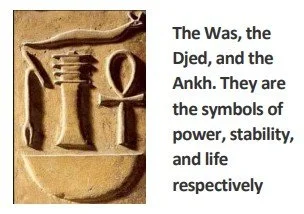
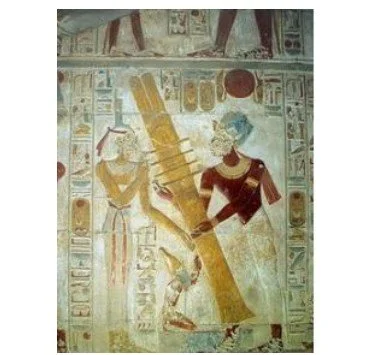
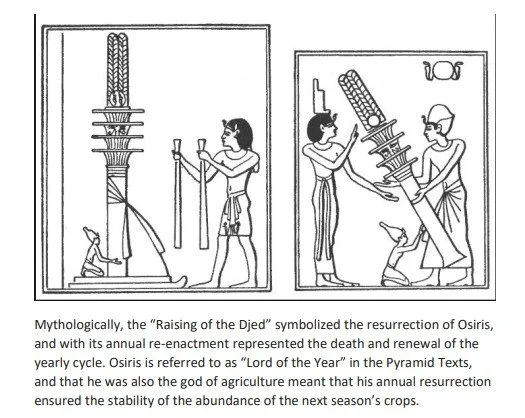
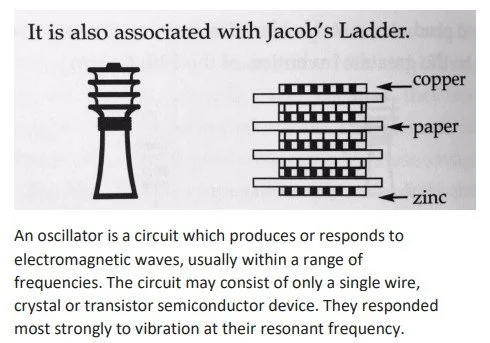
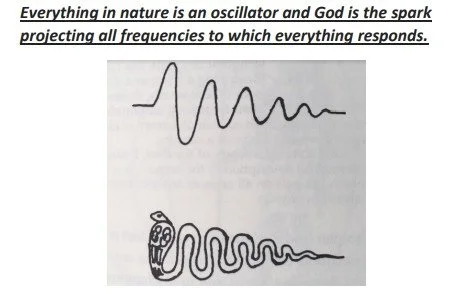
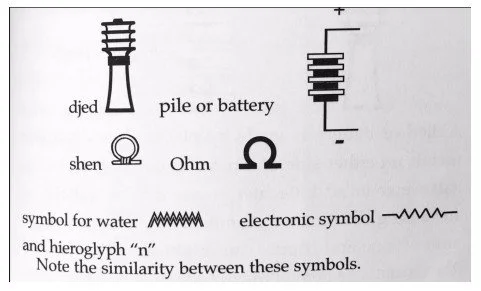
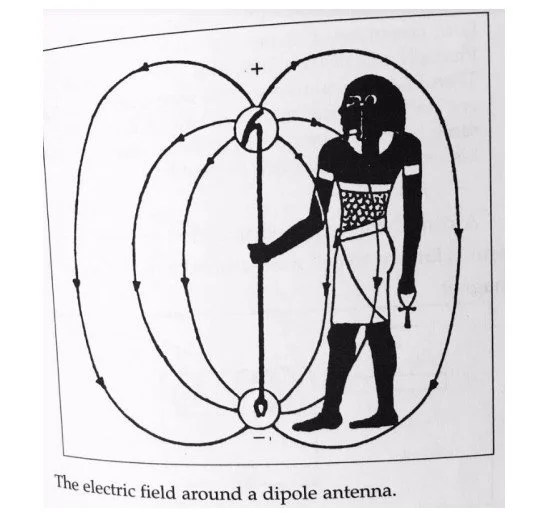
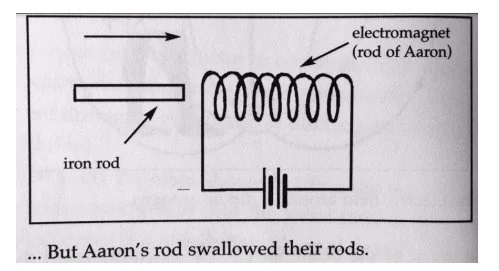
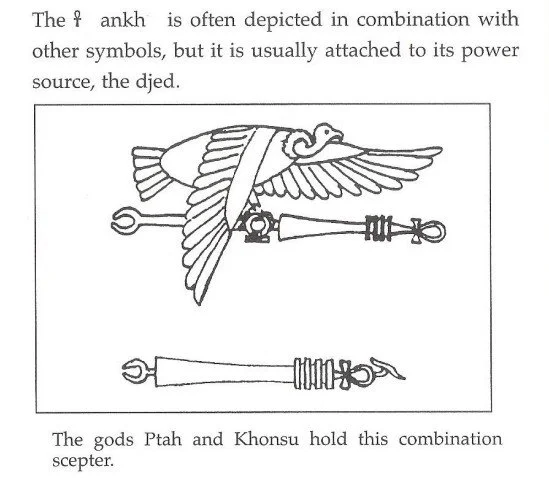
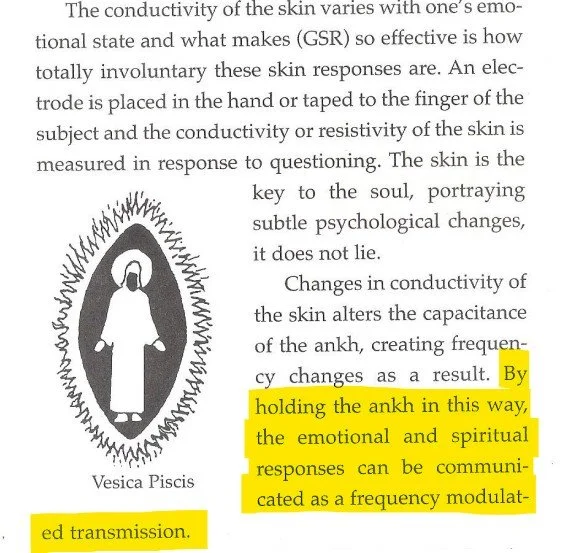
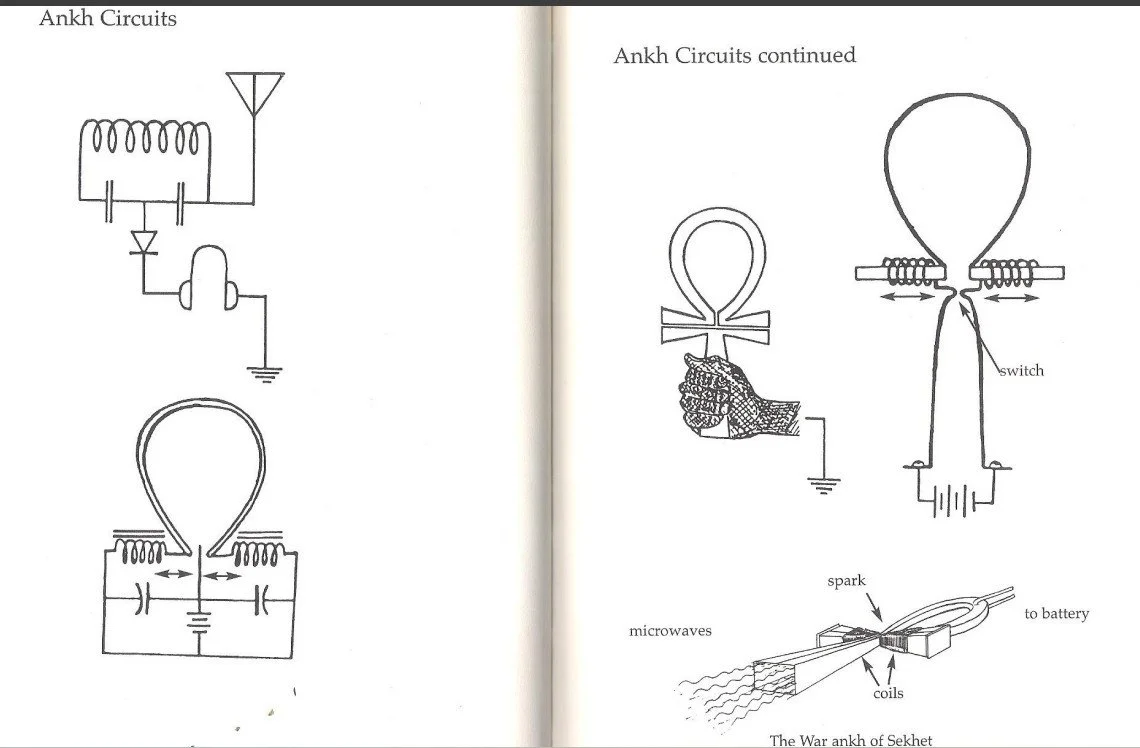
SIPHIWE NOTE: The identity of the Pharaoh during Moses' time is not definitively known, as the Bible does not name him and there is no archaeological consensus. However, the most popular candidates suggested by scholars and historians include Ramesses II, Thutmose III, and Amenhotep II. Other theories suggest Merneptah, Thutmose II, or a less powerful, undistinguished pharaoh like Dudimose, though these are less supported. As a Hyksos or foreign ruler, these pharaohs would therefore come from groups outside the native Egyptian population and had Semitic or Asiatic origins, making them white or yellow people and not Black.
Illustration from the Book of Gates depicting four ethnic groups being led by the god Horus (not pictured) into the afterworld based on a wall painting in the tomb of Seti I, a pharaoh of the 19th dynasty. From left to right: an Egyptian, an Asiatic, a Nubian, and a Libyan. The Nineteenth Dynasty of Egypt (notated Dynasty XIX), also known as the Ramessid dynasty,[1] is classified as the second Dynasty of the Ancient Egyptian New Kingdom period, lasting from 1292 BC to 1189 BC.
SIPHIWE NOTE: Thus, Moses was distinct from the original Chushitic/Ethiopian/Nubian Anu “Egyptians” - he was a mixed Semitic white race foreigner or alien. Moses' wife was Zipporah, the daughter of Jethro, a priest and prince of Midian, as mentioned in the Book of Exodus. She is also referred to as an "Ethiopian woman" or "Cushite wife" in some biblical translations, thus indicating that Jethro, her father, was BLACK. According to the ancient historian Josephus, Moses also married a princess named Tharbis from the Kingdom of Kush before his marriage to Zipporah. THESE ARE BLACK WOMEN!!!!!
THUS, WE ARE TALKNING ABOUT A MYTHICAL/ESOTERIC NON-BLACK SEMITIC MOSES MARRIED TO A BLACK ETHIOPIAN WOMAN LEARNING ABOUT ‘YAWEH” FROM HIS BLACK SHASHU MIDIANITE (CANANITE) FATHER IN LAW PRIEST AND THEN, AFTER INITIATION IN THE EGYPTIAN MYSTERY SCHOOL REBELLING AGAINST A NON-BLACK FOREIGN PHARAOH DURING A RELIGIOUS AND POLITICAL CONFLICT BETWEEN THE THEBEN ARISTOCRACY AND THE ATENISTS FROM THE UNIVERSITY AT ON. MOSES, WHO HAD NOW MASTERD THE VARIOUS SPIRITUAL DISCIPLINES, INCLUDING RHETORIC, LOGIC AND METU NTER (THE SECRET SACRED SPEECH) WANTED TO GATHER HIS ALIEN PEOPLE, DESCENDANTS OF THE EBER HAPIRU AND LED BY THE FOLLOWERS OF THE SHASHU OF YHW WHO THEMSELVES DESCENDED FROM THE MUTATED NEOLITHIC FARMERS WHO MIGRATED INTO THE TIGRIS EUPHRATE VALLEY POPULATED BY THE BLACK CUSHITIC ETHIOPIAN SUMERIANS AND ESTABLISHED THE FOREIGN SAMARA CULTURE IN 6,000 BCE. SINCE THE EGYPTIANS TAUGHT THAT MAN WAS CREATED FROM THE LAND OF THE GODS (PUNT, ETHIOPIA), MOSES NEEDED TO FIND A WAY TO INCLUDE HIS PEOPLE - DESCENDANTS OF THE GRIMALDI MAN THAT MUTATED INTO WHITE PEOPLE AND MIGRATED INTO UR IN CHALDEA - IN THE ORIGINAL CREATION STORY, AND THUS WROTE GENESIS TO INCLUDE THE TIGRES AND EUPHRATES RIVERS AS THE THIRD AND FOURTH RIVERS OF THE GARDEN OF EDEN. THIS DEVIATION OF THE ORIGINAL UNDERSTANDING OF THE HOME OF THE FIRST MAN HAS CAUSED SCHOLARS SINCE TO ERRONEOUSLY CLAIM MESOPOTAMIA AS THE LOCATION OF THE FIRST CIVILIZATION AND THE LOCATION OF THE EARLIEST BIBLICAL STORIES. HOWEVER, WE CAN NOW SEE THAT MAN WAS CREATED IN THE NILE VALLEY, AND IT WAS THERE WHERE THE KNOWLEDGE OF GOD WAS OBTAINED, AND THAT BLACK CUSHITIC ETHIOPIAN PRIESTS LIKE MELCHISEDEC AND JETHRO EDUCATED ABRA-HAM AND MOSES WHO SUBSEQUENTLY LED A COUNTERFEIT RELIGIOUS INSURRECTION AMONG ALIEN PEOPLES IN EGYPT, CALLING THEMSELVES “ISRAELITES” AND FABRICATING A NARRATIVE THAT THEY ARE GOD’S CHOSEN PEOPLE RATHER THAN A NON-CREATED MUTATION OF THE ORIGINAL CHOSEN PEOPLE. THEY THEN USE SUPERIOR TECHNOLOGY AND WEAPONRY IN THE FORM OF THE ARK OF THE COVENANT LASER, TO BECOME SETTLER OCCUPIERS OF THE “LAND OF CANAAN” ENGAGING IN GENOCIDE OF THE ORIGINAL GOD’S CHOSEN PEOPLE WHO MIGRATED AND LIVED THERE FOR NEARLY 60,000 YEARS!
FROM THIS ISRAEL WILL COME THE CHRISTIAN JESUS, ANOTHER FABRICATED NARRATIVE . . . .
Acts 13:23
From this man’s seed, according to the promise, God raised up for Israel a Savior—Jesus—
Ephesians 3:6
that the Gentiles should be fellow heirs, of the same body, and partakers of His promise in Christ through the gospel,amos 5:8
“Seek him that maketh the seven stars and Orion, and turneth the shadow of death into the morning, and maketh the day dark with night: that calleth for the waters of the sea, and poureth them out upon the face of the earth: The Lord is his name:”
Omowale Malcolm X and the Republic of New Afrika
TOWARDS A PLEBISCITE FOR SELF DETERMINATION OF THE AFRO DESCENDANT COLONY IN THE UNITED STATES: AN IMARI OBADELE READER AND STRATEGIC PLAN
Revolutionary Action Movement (RAM) Reader
WHERE ARE THE REVOLUTIONARIES?
REVISITING THE BATTLE PLAN: THE STRATEGY OF THE REPUBLIC OF NEW AFRIKA TO LIBERATE BLACK AMERICANS
REVISITING THE BLACK LIBERATION ARMY'S MESSAGE TO THE BLACK MOVEMENT IN RESPONSE TO THE KILLING OF GEORGE FLOYD
INSTRUCTIONS FOR THE PROTECTION OF THE BLACK COMMUNITY AND PROTESTERS IN THE WAKE OF THE MURDER BY TORTURE OF GEORGE FLOYD.
October 15, 2022 - NEW AFRIKAN INDEPENDENCE MOVEMENT AND HUMAN RIGHTS: Statement to the 20th session of the UN Intergovernmental Working Group on the Effective Implementation of the Durban Declaration
March 5, 2023 - TAKING THE AFRO DESCENDANTS CASE TO THE INTERNATIONAL COURT OF JUSTICE: A PEOPLES' MANDATE ISSUED TO THE PERMANENT FORUM ON PEOPLE OF AFRICAN DESCENT
May 27, 2023 - The Unfinished Business of Malcolm X and Imari Obadele: Taking Our Claim to the International Court of Justice
June 19, 2023 - JUNETEENTH: THE LINCOLN ADMINISTRATION'S RECOGNITION OF NEW AFRIKAN RIGHTS UNDER NATURAL AND INTERNATIONAL LAW, THE 14TH AMENDMENT FRAUD & THE UNFINISHED BUSINESS OF MALCOLM X AND IMARI OBADELE
November 28 2023, - STOP CALLING IT A SLAVE TRADE: YOUR ANCESTORS WERE PRISONERS OF WAR! NKECHI TAIFA REFLECTS ON THE TEACHINGS OF IMARI OBADELE
December 30, 2023 - Plebiscite Workshop at the New Afrikan People's Convention, December 30, 2023
January 4, 2024 - A Matter of War: Imari Obadele, Our Enslavement in the 13 Colonies and the United States, the Republic of New Afrika and Reparations
Feb 3, 2024 - The Interim Provisional Government of the Republic of New Afrika Applies to Renew Observer Status at the African Union
Feb 26, 2024 - Provisional Government of the Republic of New Afrika Advises African Union Legal Reference Group
Apr 26, 2024 - Provisional Government of the Republic of New Afrika Statement to the Permanent Forum on People of African Descent
Apr 26, 2024 - THE POLITICAL-LEGAL HISTORY OF THE REPUBLIC OF NEW AFRIKA AND THE WAR WAGED AGAINST IT BY THE UNITED STATES OF AMERICA
Apr 27, 2024 - Analysis by the Republic of New Afrika of Legal Issues Requiring an Advisory Opinion from the International Court of Justice
May 9, 2024 Republic of New Afrika Minister of Foreign Affairs Siphiwe Baleka Concludes Successful Diplomacy Tour in Ougadougu, Burkina Faso
May 19, 2024 - The Minister of Foreign Affairs of the Provisional Government of the Republic of New Afrika addressed the Afrodescendant Nation National Reparations Convention in Washington, D.C.
May 27, 2024 - PGRNA Minister of Foreign Affairs Siphiwe Baleka discussed the UN Permanent Forum and the Request for an Advisory Opinion from the ICJ on the 𝑹𝒆𝒑𝒂𝒓𝒂𝒕𝒊𝒐𝒏𝒔 𝑵𝒐𝒘 podcast
June 14, 2024 - Republic of New Afrika Minister of Foreign Affairs on RealTalk: History as a Weapon for Black Liberation, Black Power Media Network podcast
June 19, 2024 - Minister of Foreign Affairs Presents at Juneteenth Commemoration Highlighting the Need for Reparatory Justice
HISTORY OF THE MODERN REPARATIONS MOVEMENT THAT STARTED IN THE UNITED STATES AND HAS SPREAD THROUGHOUT THE AFRICAN WORLD
HISTORY OF THE REPARATIONS MOVEMENT IN THE UNITED STATES
Belinda Royall presented a petition to the Massachusetts General Assembly requesting pension from the proceeds of her master’s estate because it was the product of her own uncompensated labor in 1783.
Special Field Order No. 15 (1865) military order issued during the Civil War on January 16, 1865 by General William Tecumseh Sherman issuing 40 acres of land to freed people. [See Here]
Henrietta Wood, a free Black woman, successfully sued for reparations from her kidnapper who had sold her into slavery illegally in 1870.
Callie House and Isiah Dickerson organized the National Ex-Slave Mutual Relief, Bounty and Pension Association with the goal of providing compensation to formally enslaved Africans, mutual aid, and burial costs in 1898.
Bishop Henry Turner attended the Chicago Congress on Africa in 1893 which was the starting point for the historic Pan African Congresses. A Pan African Repatriation plan was initiated two years later in 1895 by black businessman William Ellis, who helped Bishop Turner organize the Congress on Africa in Atlanta at the end of 1895. Bishop Alexander Walters would, five years later, chair the London Pan African Congress in 1900. That Congress declared that the problem of the new century is “the problem of the color-line, the question as to how far differences of race… will hereafter be made the basis of denying over half of the world the right of sharing. . . the opportunities and privileges of modern civilization.” Haitian born Benito Sylvain, the former secretary of the Haitian Legation in London and serving as Aide-de Camp to the Imperial Household of Ethiopian Emperor Menelik, attended the London Congress in 1900 as the Ethiopian Representative. In 1900, Bishop Turner said,
“We remained in slavery two hundred and fifty years, and have been free the best end of fifty more years. In other words we have been dominated over by the buckra, or wite race, for about three hundred years. We have worked, enriched the country and helped give it a standing among the powers of the earth, and when we are denied our civil and political rights, (many) ridicule the idea of asking for a hundred million of dollars TO GO HOME, for Africa is our home and is the one place that offers us manhood and freedom, though we are the subjects of nations that have claimed a part of Africa by conquest. A hundred million of dollars can be obtained if we, as a race, would ask for it. The way we figure it out, this country owes us forty billions of dollars, and we are afraid to ask for a hundred million. Congress, by its legislation, throws away over a hundred million annually.” (Black Nationalism in America, ed. by Bracey, Meier, and Rudwick, New York, 1970, p. 172)
The African nationalist Arthur Anderson said in 1919, “We, the colored race of the USA and our representatives, your wards, your half brothers and sisters by blood, demand of the Government of this United States 600,000,000 dollars indemnity for slavery, for the trail of blood sacrificed in human lives, the loss of country. The years of tyranny and oppression that followed and continues until today on the ex-slaves and their offsprings, created by the institution of a cruel slavery by the American people of the U.S.A.”
Marcus Garvey saw the redemption of Africa as recompense for the exploitation of African people; He petitioned the League of Nations to turn over the former German colonies in Africa to the UNIA in 1919.
The Peace Movement of Ethiopia petitioned President Franklin Roosevelt and the Virginia legislature in 1930s for reparations.
Paul Roberson, William Patterson, and W.E.B. Du Bois launched the 1951 Genocide Campaign that included a call for repair and reparations in 1951.
Robert Brock in 1956 formed the Self-Determination committee in Los Angeles, CA which advocated for reparations for over 40 years.
Queen Mother Audley Moore appealed to the UN in 1957 and 1959 for reparations for African Americans. 𝒂𝒓𝒈𝒖𝒊𝒏𝒈 𝒇𝒐𝒓 𝒔𝒆𝒍𝒇-𝒅𝒆𝒕𝒆𝒓𝒎𝒊𝒏𝒂𝒕𝒊𝒐𝒏, 𝒂𝒈𝒂𝒊𝒏𝒔𝒕 𝒈𝒆𝒏𝒐𝒄𝒊𝒅𝒆, 𝒇𝒐𝒓 𝒍𝒂𝒏𝒅 𝒂𝒏𝒅 𝒓𝒆𝒑𝒂𝒓𝒂𝒕𝒊𝒐𝒏𝒔, making her an international advocate. Interviewed by E. Menelik Pinto, Moore explained the petition, in which she asked for 𝟐𝟎𝟎 𝐛𝐢𝐥𝐥𝐢𝐨𝐧 𝐝𝐨𝐥𝐥𝐚𝐫𝐬 to monetarily compensate for 400 years of slavery. The petition also called for 𝐜𝐨𝐦𝐩𝐞𝐧𝐬𝐚𝐭𝐢𝐨𝐧𝐬 𝐭𝐨 𝐛𝐞 𝐠𝐢𝐯𝐞𝐧 𝐭𝐨 𝐀𝐟𝐫𝐢𝐜𝐚𝐧 𝐀𝐦𝐞𝐫𝐢𝐜𝐚𝐧𝐬 𝐰𝐡𝐨 𝐰𝐢𝐬𝐡 𝐭𝐨 𝐫𝐞𝐭𝐮𝐫𝐧 𝐭𝐨 𝐀𝐟𝐫𝐢𝐜𝐚 𝐚𝐧𝐝 𝐭𝐡𝐨𝐬𝐞 𝐰𝐡𝐨 𝐰𝐢𝐬𝐡 𝐭𝐨 𝐫𝐞𝐦𝐚𝐢𝐧 𝐢𝐧 𝐀𝐦𝐞𝐫𝐢𝐜𝐚.
The New Alajo Party in 1961 stated, “All leaders must be educatied by their own people in their own aims. Our present leaders are not. That is why our power is wasted. The U.S. owes us millions of dollars in indemnity for slavery. We must have strong leadership to collect this money which is due each family. You and your friends should join the Alajo Party now to petition the U.S. to pay its debt to us.”
The development of revolutionary territorial nationalism in the United States also includes the formations of the African Nationalist Partition Party of North America (ANPP), the African Descendants Nationalist Independence Partition Party (ADNIP), and the Provisional Government of the African American Captive Nation (PG-AACN). The goal was to establish an African state in America with reparations by 1972. The PG-AACN’s Cabinet included Chief Oseijeman Adefunmi as President, Robert F. Williams as Prime Minister, Abdul Rahman as First Deputy Prime Minister, Queen Mother Audley Moore as Second Deputy Prime Minister, and Moore’s Sister, Loretta Langley, as Acting Minister of Finance. The PG-AACN intended to relocate to South Carolina by 1965 where it would begin to work on liberating a thirteen state region in the southeastern United States. The PG-AACN’s Declaration of Self-Determination of the African American captive nation listed grievances agains the U.S. Government. In 1962, Moore organized the Reparations Committee of the Descendants of United States Slaves, which filed a claim in California. She went to the White House in 1962 to meet with President John F. Kennedy. In 1963, at the time of the one hundred years of the signing of the Emancipation Proclamation, Queen Mother set up the Reparations Committee with a petition drive to get signatures to demand reparations for slavery and 100 years of economic, political inequality. She went all over the country getting signatures and organized the African-American Party of National Liberation in August 1963. Its political position was that African Americans constituted a captive oppressed nation in the black belt South. Some members of the Revolutionary Action Movement in Philadelphia joined the African-American Party of National Liberation (AAPNL) and formed a joint study collective.
African American Repatriation League appealed for support for blacks to emigrate to Africa as compensation for slavery
Martin Luther King Jr. called for reparations in 1963 and 1964 through a “Bill of Rights for the Disadvantaged” – “The moral justification for special measures for Negroes is rooted in slavery.”
Black Panther Party was formed and issued a call for reparations as part of its 10-Point Program in 1966:
“3. We Want An End to the Robbery By the Capitalists of Our Black Community.
We believe that this racist government has robbed us, and now we are demanding the overdue debt of forty acres and two mules. Forty acres and two mules were promised 100 years ago as restitution for slave labor and mass murder of Black people. We will accept the payment in currency which will be distributed to our many communities. The Germans are now aiding the Jews in Israel for the genocide of the Jewish people. The Germans murdered six million Jews. The American racist has taken part in the slaughter of over fifty million Black people; therefore, we feel that this is a modest demand that we make.
The A. Phillip Randolph Institute in 1966 pur forth a Freedom Budget calling for 355 billion dolloars for black people for economic development.
Republic of New Afrika (RNA) was formed with a demand for land to create a separate government composed of the “Black Belt” states in the souther U.S. and several billions of dollars in 1968. See IMARI OBADELE ON MALCOLM X AND REPARATIONS and A Matter of War: Imari Obadele, Our Enslavement in the 13 Colonies and the United States, the Republic of New Afrika and Reparations
Whitney Young of the Urban League suggested a Marshall Plan for African Americans.
Black National Economic Conference issued the Black Manifesto with a demand for reparations from churches in 1969. James Forman former executive director of SNCC in May 1969 targeted religious institutions in the Black Manifesto; he demanded $5 billion in reparations from white Christian churches and Jewish synagogues – some white Protestant churches increased their annual contributions to Black organizations by $1 million
Similarly, African people in the Caribbean through such organizations as the National United Movement of Barbados and the New Jewel Movement of Grenada called for Reparations for African people through documenting the wealth stolen from African people over the centuries and uniting with the call of the Non-Aligned Nations Conference for Reparations of 300 billion dollars for the “underdeveloped” countries of the world.
𝐓𝐡𝐞 𝐀𝐧𝐭𝐢 𝐃𝐞𝐩𝐫𝐞𝐬𝐬𝐢𝐨𝐧 𝐏𝐫𝐨𝐠𝐫𝐚𝐦 𝐚𝐧𝐝 𝐭𝐡𝐞 𝐍𝐚𝐭𝐢𝐨𝐧𝐚𝐥 𝐁𝐥𝐚𝐜𝐤 𝐏𝐨𝐥𝐢𝐭𝐢𝐜𝐚𝐥 𝐂𝐨𝐧𝐯𝐞𝐧𝐭𝐢𝐨𝐧 𝐢𝐧 𝟏𝟗𝟕𝟐
If you look at the opening credits to the documentary, you will see that the documentary features the "celebrities" like Dick Gregory, Isaac Hayes, the Jackson, Jesse Jackson, etc. But in fact the majority of the delegates were serious political activists, most of which came out of the nationalist segment of our people. Among the driving forces was the Provisional Government of the Republic of New Afrika (PGRNA). The PGRNA submitted a reparations program called the Anti Depression Program to the National Black Political Convention in Gary, IN in 1972. In the book 𝑹𝒆𝒑𝒂𝒓𝒂𝒕𝒊𝒐𝒏𝒔 𝒐𝒏 𝑭𝒊𝒓𝒆: 𝑯𝒐𝒘 𝒂𝒏𝒅 𝑾𝒉𝒚 𝒊𝒕’𝒔 𝑺𝒑𝒓𝒆𝒂𝒅𝒊𝒏𝒈 𝑨𝒄𝒓𝒐𝒔𝒔 𝑨𝒎𝒆𝒓𝒊𝒄𝒂, Nkechi Taifi writes,
“The RNA supported James Forman’s Black Manifesto, which in 1969 called for white churches and synagogues to pay Black people half a billion dollars in reparations. The RNA drafted an Anti-Depression Program which 𝐜𝐚𝐥𝐥𝐞𝐝 𝐟𝐨𝐫 𝐚 𝐥𝐮𝐦𝐩-𝐬𝐮𝐦 𝐫𝐞𝐩𝐚𝐫𝐚𝐭𝐢𝐨𝐧𝐬 𝐝𝐨𝐰𝐧 𝐩𝐚𝐲𝐦𝐞𝐧𝐭 𝐚𝐧𝐝 𝐚 𝐧𝐞𝐠𝐨𝐭𝐢𝐚𝐭𝐢𝐧𝐠 𝐜𝐨𝐦𝐦𝐢𝐭𝐭𝐞𝐞 𝐛𝐞𝐭𝐰𝐞𝐞𝐧 𝐢𝐭𝐬 𝐬𝐮𝐛𝐣𝐮𝐠𝐚𝐭𝐞𝐝 𝐠𝐨𝐯𝐞𝐫𝐧𝐦𝐞𝐧𝐭 𝐚𝐧𝐝 𝐭𝐡𝐞 𝐔.𝐒. 𝐠𝐨𝐯𝐞𝐫𝐧𝐦𝐞𝐧𝐭, 𝐚𝐧𝐝 𝐬𝐮𝐜𝐜𝐞𝐬𝐬𝐟𝐮𝐥𝐥𝐲 𝐡𝐚𝐝 𝐭𝐡𝐞 𝐏𝐫𝐨𝐠𝐫𝐚𝐦 𝐚𝐝𝐨𝐩𝐭𝐞𝐝 𝐚𝐭 𝐭𝐡𝐞 𝟏𝟗𝟕𝟐 𝐍𝐚𝐭𝐢𝐨𝐧𝐚𝐥 𝐁𝐥𝐚𝐜𝐤 𝐏𝐨𝐥𝐢𝐭𝐢𝐜𝐚𝐥 𝐀𝐬𝐬𝐞𝐦𝐛𝐥𝐲 𝐂𝐨𝐧𝐯𝐞𝐧𝐭𝐢𝐨𝐧. . . . It was an act . . . 𝐭𝐨 𝐝𝐞𝐭𝐞𝐫𝐦𝐢𝐧𝐞 𝐤𝐢𝐧𝐝, 𝐝𝐚𝐭𝐞𝐬, 𝐚𝐧𝐝 𝐨𝐭𝐡𝐞𝐫 𝐝𝐞𝐭𝐚𝐢𝐥𝐬 𝐨𝐟 𝐩𝐚𝐲𝐢𝐧𝐠 𝐫𝐞𝐩𝐚𝐫𝐚𝐭𝐢𝐨𝐧𝐬. The Mississippi Loyalist Delegation to the Democratic National Convention accepted the Anti-Depression Program that same year. . . . 10,000 Black delegates gathered at the Black National Convention in Gary, Indiana, and adopted a Black Agenda which specifically called for reparations to Black in America from the U.S. government. 𝐓𝐡𝐞 𝐁𝐥𝐚𝐜𝐤 𝐀𝐠𝐞𝐧𝐝𝐚 𝐚𝐥𝐬𝐨 𝐫𝐞𝐜𝐨𝐠𝐧𝐢𝐳𝐞𝐝 𝐭𝐡𝐞 𝐫𝐢𝐠𝐡𝐭 𝐨𝐟 𝐭𝐡𝐞 𝐑𝐞𝐩𝐮𝐛𝐥𝐢𝐜 𝐨𝐟 𝐍𝐞𝐰 𝐀𝐟𝐫𝐢𝐤𝐚 𝐭𝐨 𝐩𝐨𝐥𝐢𝐭𝐢𝐜𝐚𝐥 𝐢𝐧𝐝𝐞𝐩𝐞𝐧𝐝𝐞𝐧𝐜𝐞 𝐚𝐧𝐝 𝐬𝐨𝐯𝐞𝐫𝐞𝐢𝐠𝐧𝐭𝐲 𝐨𝐯𝐞𝐫 𝐁𝐥𝐚𝐜𝐤 𝐁𝐞𝐥𝐭 𝐥𝐚𝐧𝐝 𝐢𝐧 𝐭𝐡𝐞 𝐬𝐨𝐮𝐭𝐡𝐞𝐚𝐬𝐭.”
In 1973, the Review of Black Political Economy carried a whole issue on the subject - seeking to determine ways to estimate the amount of reparations owed and the economic basis of the campaign.
Queen Mother Audley Moore's Speech to the Summit Meeting of the Organization of African Unity (OAU) in Kampala, Uganda - July 28, 1975
The 14-Point Working Platform of the African People’s Socialist Party, “What we want – What we believe” was adopted at the First Congress of the African People’s Socialist Party, September 6, 1981, 9 years after the Party’s founding. It states:
11. We want the U.S. and the international European ruling class and states to pay Africa and African people for the centuries of genocide, oppression, and enslavement of our people.
We believe that U.S. and European civilization were born from, and are presently maintained by, the horrendous theft of human and material resources from Africa and its people. We also believe that this theft of human and material resources is responsible for the present underpopulation and underdevelopment of Africa and her people and the political servitude, material impoverishment, and cultural discontinuity and disintegration of African people throughout the world. We believe that Africa and African people are due reparations, just economic compensation, billions of dollars which must be paid to the Organization of African Unity or any other legitimate international organization of African people, for equitable distribution for the development of Africa. We also believe that reparations must be distributed to the various independent African states dispersed throughout the world, and to the legitimate representatives of African people forcibly dispersed throughout the world who have not yet won liberation.”
According to The Burning Spear, Vol. 9 Number 8 of Novembr 1982,
“At this time, however, the Black Power Movement was facing vicious attacks and was unable to carry out the mass campaign that the reparations demand was beginning to mobilize. Indeed, the U.S. government assaults came at a time that the mass mobilization of Africans for independence, and for historical justice and reparations, threatened to destabilize the whole imperialist power. It is appropriate, then, that after 10 years, after the African movement for feedom and independence has agains struggled to put forth its strategy and after African people have begun to move in a massive way, that Reparations should once again be picked up, should be put forward by all those who can contribute data, understandings, testimony, history, and truth about the right of African people for reparations. And then it will be taken by the masses of African people, will be carried forth as it has been developed through the centuries, and will ignite our people’s struggle for freedom and independence. Reparations now! . . . Since our First Party Congress some thirteen monthys ago, our Party has been doing concrete work to bring about a real capability of our people to begin doing something about the reparations owed to us by the U.S. government. What soon became clear to us is the fact that our people need a mass, U.S.-wide action-oriented organization to maker our just fight for black reparations. We knew that in order to make the demand real it would be necessary for the masses of working and poor black people throughout the U.S. to take up the demand as their own and to have their own fighting organization that they could use to shove the demand down the throat of the U.S. government. This is why our Party is calling for the November 15-16 convention in New York to build the black reparations organization immediately following the two-day World Tribunal on Reparations for Black People in the U.S. But in keeping with our understanding that the black reparations organizations has to be a genuine mass organization capable of attracting the participation and support of the broad masses of our people, the Party organized a pre-convention meeting of people from throughout the U.S. who we aksed to serve as the national steering committeee which would have the responsibility of planning, convening, and presiding over the founding convention up till the point when the officers of the organization would be elected. The pre-convention meeting was held in New York on October 16 . Twenty-one individuals from throughout the U.S. who are well respected for their work and commitment to the cause of black freedom had been invited to the pre-convention meeting. Although 20 people turned up for the meeting, twelve of those were steering committee nominees, the other being observers. . . . The pre-convention meeting was presided over by the New York based National Committee to Build the World Tribunal on Black Reparations. . . . The rules of the procedure for the convention were also adopted, and the Steering Committee voted to call the organization being built the African National Reparations Organization (ANRO).”
“The International Tribunal on Reparations for Black People in the U.S. was a precedent setting and mobilizing legal hearing, the first time in history that the U.S. government has been formally put on trial for crimes against black people in the U.S. This tribunal was conducted with the utmost seriousness, adhereing to the rules of evidence to support the charges that the U.S. had violated international law. . . . This was the work that Malcolm X was just beginning to bring to fruition when he was assasinated to silence his leading voice. . . .Even though we do not have state power, we are a people and we have been wronged and have a right to petition for redress as well as to struggle for state power in order to achieve that redress.”
On November 15 and 16, 1986, ANRO held the Fifth Session of the World Tribunal on Reparations for Black People in the U.S. Serving on the international panel of judges at the Fifth Session were Chaminuka Mnombatha of the Pan Africanist Congress of Azuania-UN Mission; OUsainou Mbenga from Gambia; and Serge Mukendi from the Workers and Peasants Party-Congo.
NCOBRA
The adopted Anti Depression Program adopted at the National Black Political Assembly Convention in 1972 would become the basis of the 𝐑𝐞𝐩𝐚𝐫𝐚𝐭𝐢𝐨𝐧𝐬: 𝐀 𝐏𝐫𝐨𝐩𝐨𝐬𝐞𝐝 𝐀𝐜𝐭 𝐒𝐮𝐛𝐦𝐢𝐭𝐭𝐞𝐝 𝐭𝐨 𝐒𝐨𝐦𝐞 𝐌𝐞𝐦𝐛𝐞𝐫𝐬 𝐨𝐟 𝐂𝐨𝐧𝐠𝐫𝐞𝐬𝐬 𝐢𝐧 𝐒𝐞𝐩𝐭𝐞𝐦𝐛𝐞𝐫 𝟏𝟗𝟖𝟕 prepared by President of the PGRNA Imari Obadele (September 1987). The act proposed the following, simple and logical formula for reparations:
1. One-third of the annual sum shall go directly to each individual;
2. One-third of the annual sum shall go directly to the duly elected government of the Republic of New Afrika and to any other state-building entity of New Afrikan people; and
3. One-third of the annual sum shall be paid directly to a National Congress of Organizations. And all of this to be framed and manifested through a PLEBISCITE.
Nkechi Taifa also writes in her memoir, 𝑩𝒍𝒂𝒄𝒌 𝑷𝒐𝒘𝒆𝒓, 𝑩𝒍𝒂𝒄𝒌 𝑳𝒂𝒘𝒚𝒆𝒓,
"The spark for [the National Coalition of Blacks for Reparations in America - NCOBRA] founding emanated from a 1987 conference on Race and the Constitution spearheaded by the National Conference of Black Lawyers (NCBL) and held at Harvard University. . . . [Note, in 𝑹𝒆𝒑𝒂𝒓𝒂𝒕𝒊𝒐𝒔 𝒐𝒏 𝑭𝒊𝒓𝒆 Taifa adds, “Aiyetoro invited Imari Obadele, President of the Republic of New Afrika, Chokwe Lumumba, co-founder of the New Afrikan People’s Organization, and me, along with economist Richard America, to address the issue of the constitutionality of reparations on a panel at Harvard and to discuss whether a U.S. constitutional amendment was needed to effectuate reparations.”] We also examined an act authorizing negotiations between a commission of the U.S. and a commission of the RNA to determine kind, dates and other details of paying reparations. 𝐖𝐞 𝐝𝐢𝐬𝐜𝐮𝐬𝐬𝐞𝐝 𝐭𝐡𝐞 𝐬𝐢𝐠𝐧𝐢𝐟𝐢𝐜𝐚𝐧𝐜𝐞 𝐨𝐟 '𝐠𝐨𝐯𝐞𝐫𝐧𝐦𝐞𝐧𝐭 𝐭𝐨 𝐠𝐨𝐯𝐞𝐫𝐧𝐦𝐞𝐧𝐭' 𝐫𝐞𝐩𝐚𝐫𝐚𝐭𝐢𝐨𝐧𝐬 𝐚𝐬 𝐭𝐡𝐞 𝐧𝐞𝐠𝐨𝐭𝐢𝐚𝐭𝐞𝐝 𝐬𝐞𝐭𝐭𝐥𝐞𝐦𝐞𝐧𝐭 𝐭𝐡𝐚𝐭 𝐟𝐨𝐥𝐥𝐨𝐰𝐬 𝐭𝐡𝐞 𝐜𝐨𝐧𝐜𝐥𝐮𝐬𝐢𝐨𝐧 𝐨𝐟 𝐰𝐚𝐫 . . . . Out of that historic September 26, 1987 gathering, the National Coalition of Blacks for Reparation in America (NCOBRA) was born, bringing together diverse groups under one umbrella. 𝐁𝐥𝐚𝐜𝐤 𝐍𝐚𝐭𝐢𝐨𝐧𝐚𝐥𝐢𝐬𝐭 𝐩𝐨𝐥𝐢𝐭𝐢𝐜𝐬 𝐜𝐥𝐞𝐚𝐫𝐥𝐲 𝐝𝐨𝐦𝐢𝐧𝐚𝐭𝐞𝐝 𝐭𝐡𝐞 𝐫𝐨𝐨𝐦. . . . Since the creation of NCOBRA, the demand for reparations in the United States has substantially leaped forward, generating what I've dubbed, the modern day Reparations Movement. It was the perfect storm. The Black Power Movement was open and receptive to a broad-based approach to further the issue of reparations. 𝐓𝐡𝐞 𝐁𝐥𝐚𝐜𝐤 𝐥𝐞𝐠𝐚𝐥 𝐜𝐨𝐦𝐦𝐮𝐧𝐢𝐭𝐲 𝐬𝐚𝐧𝐜𝐭𝐢𝐨𝐧𝐞𝐝 𝐭𝐡𝐞 𝐥𝐚𝐫𝐠𝐞𝐥𝐲 𝐁𝐥𝐚𝐜𝐤 𝐍𝐚𝐭𝐢𝐨𝐧𝐚𝐥𝐢𝐬𝐭 𝐞𝐟𝐟𝐨𝐫𝐭 . . . .
Nkechi Taifa continues in 𝑹𝒆𝒑𝒂𝒓𝒂𝒕𝒊𝒐𝒔 𝒐𝒏 𝑭𝒊𝒓𝒆:
"𝐈𝐧𝐝𝐞𝐞𝐝, 𝐰𝐞 𝐟𝐞𝐥𝐭 𝐭𝐡𝐞 𝐢𝐬𝐬𝐮𝐞 𝐨𝐟 𝐬𝐞𝐥𝐟-𝐝𝐞𝐭𝐞𝐫𝐦𝐢𝐧𝐚𝐭𝐢𝐨𝐧 𝐟𝐨𝐫 𝐭𝐡𝐞 𝐝𝐞𝐬𝐜𝐞𝐧𝐝𝐚𝐧𝐭𝐬 𝐨𝐟 𝐀𝐟𝐫𝐢𝐜𝐚𝐧𝐬 𝐡𝐞𝐥𝐝 𝐚𝐬 𝐬𝐥𝐚𝐯𝐞𝐬 𝐢𝐧 𝐭𝐡𝐞 𝐔.𝐒. 𝐭𝐨 𝐛𝐞 𝐤𝐞𝐲 𝐚𝐧𝐝 𝐜𝐞𝐧𝐭𝐫𝐚𝐥 𝐭𝐨 𝐚 𝐫𝐞𝐩𝐚𝐫𝐚𝐭𝐨𝐫𝐲 𝐣𝐮𝐬𝐭𝐢𝐜𝐞 𝐫𝐞𝐦𝐞𝐝𝐲. After the enslavement era Black people never had the opportunity to decide what our future would hold, with full appreciation of our options and reparations to put our choices into reality. [𝑺𝒊𝒑𝒉𝒊𝒘𝒆 𝒏𝒐𝒕𝒆: 𝒕𝒉𝒊𝒔 𝒊𝒔 𝒕𝒓𝒖𝒆 𝒐𝒇 𝒕𝒉𝒆 𝑨𝒇𝒓𝒐 𝑫𝒆𝒔𝒄𝒆𝒏𝒅𝒂𝒏𝒕𝒔 𝒊𝒏 𝒕𝒉𝒆 𝑪𝒂𝒓𝒊𝒃𝒃𝒆𝒂𝒏 𝒂𝒔 𝒘𝒆𝒍𝒍.] Would we repatriate back to Africa? If so, how? Would we settle in the independent Haiti Republic or somewhere else in the diaspora? Would we accept the U.S. offer of 14th amendment citizenship into the new white nation it was developing and strive to make a multiracial democracy real? Due to severed homeland ties, would we plant our own flag in the ground in this country that we worked and built, negotiated with Native peoples, and establish our own independent Black Nation on soil claimed by the U.S.?
𝐎𝐮𝐫 𝐭𝐡𝐞𝐨𝐫𝐲 𝐰𝐚𝐬 𝐭𝐡𝐚𝐭 𝐚 𝐫𝐞𝐩𝐚𝐫𝐚𝐭𝐢𝐨𝐧𝐬 𝐬𝐞𝐭𝐭𝐥𝐞𝐦𝐞𝐧𝐭 𝐦𝐮𝐬𝐭 𝐢𝐧𝐜𝐥𝐮𝐝𝐞 𝐭𝐡𝐞 𝐦𝐚𝐧𝐢𝐟𝐞𝐬𝐭𝐚𝐭𝐢𝐨𝐧 𝐨𝐟 𝐞𝐚𝐜𝐡 𝐨𝐟 𝐭𝐡𝐞𝐬𝐞 𝐨𝐩𝐭𝐢𝐨𝐧𝐬 𝐭𝐡𝐫𝐨𝐮𝐠𝐡 𝐚 𝐧𝐚𝐭𝐢𝐨𝐧𝐚𝐥 𝐩𝐥𝐞𝐛𝐢𝐬𝐜𝐢𝐭𝐞, 𝐢𝐧𝐜𝐥𝐮𝐬𝐢𝐯𝐞 𝐨𝐟 𝐛𝐨𝐭𝐡 𝐝𝐢𝐫𝐞𝐜𝐭 𝐚𝐧𝐝 𝐠𝐫𝐨𝐮𝐩 𝐛𝐞𝐧𝐞𝐟𝐢𝐭𝐬. For those who wish to repatriate, we wrote that they should have sufficient resources to make that reintegration a reality, as well as for those who seek to emigrate elsewhere. For those who wish to force this country to respect our rights as full citizens, that option must be accompanied by transformative changes in policies and practices, closure of the Black/white wealth gap, elimination of educational and health disparities, cessation of mass incarceration disproportionately impacting black people, and release of Black political prisoners and prisoners of war. And for those who wish to establish an independent New Afrikan nation-state on this soil, following the model of five states in the Deep South or elsewhere, should likewise have the economic resources and political diplomatic recognition to make that self-determination choice a reality. . . .
‘𝐌𝐚𝐤𝐢𝐧𝐠’ 𝐚 𝐟𝐫𝐞𝐞 𝐩𝐞𝐨𝐩𝐥𝐞 𝐜𝐢𝐭𝐢𝐳𝐞𝐧𝐬 𝐰𝐢𝐭𝐡𝐨𝐮𝐭 𝐭𝐡𝐞𝐢𝐫 𝐢𝐧𝐟𝐨𝐫𝐦𝐞𝐝 𝐜𝐨𝐧𝐬𝐞𝐧𝐭 𝐢𝐬 𝐚 𝐥𝐢𝐦𝐢𝐭𝐚𝐭𝐢𝐨𝐧 𝐨𝐧 𝐭𝐡𝐚𝐭 𝐩𝐞𝐨𝐩𝐥𝐞’𝐬 𝐟𝐫𝐞𝐞𝐝𝐨𝐦. If the informed consent exists from the population in question, then the population is ‘made’ citizens, but have become citizens under their own volition.
𝐓𝐡𝐞 𝐢𝐦𝐩𝐨𝐬𝐢𝐭𝐢𝐨𝐧 𝐨𝐟 𝐔𝐒 𝐜𝐢𝐭𝐢𝐳𝐞𝐧𝐬𝐡𝐢𝐩 𝐨𝐧 𝐍𝐞𝐰 𝐀𝐟𝐫𝐢𝐤𝐚𝐧𝐬 𝐰𝐢𝐭𝐡𝐨𝐮𝐭 𝐭𝐡𝐞𝐢𝐫 𝐞𝐱𝐩𝐫𝐞𝐬𝐬 𝐜𝐨𝐧𝐬𝐞𝐧𝐭 𝐨𝐟𝐟𝐞𝐧𝐝𝐬 𝐨𝐮𝐫 𝐡𝐮𝐦𝐚𝐧 𝐫𝐢𝐠𝐡𝐭 𝐭𝐨 𝐬𝐞𝐥𝐟-𝐝𝐞𝐭𝐞𝐫𝐦𝐢𝐧𝐚𝐭𝐢𝐨𝐧, 𝐚𝐧𝐝 𝐥𝐞𝐚𝐯𝐞𝐬 𝐭𝐫𝐮𝐞 𝐫𝐞𝐚𝐥𝐢𝐳𝐚𝐭𝐢𝐨𝐧 𝐨𝐟 𝐨𝐭𝐡𝐞𝐫 𝐡𝐮𝐦𝐚𝐧 𝐫𝐢𝐠𝐡𝐭𝐬 𝐢𝐧 𝐝𝐨𝐮𝐛𝐭 𝐚𝐧𝐝/𝐨𝐫 𝐢𝐧 𝐣𝐞𝐨𝐩𝐚𝐫𝐝𝐲. The distinction making us citizens of the U.S. and voluntary choice of such citizenship, by New Afrikans desiring the same, is important. 𝐅𝐢𝐫𝐬𝐭, 𝐦𝐚𝐧𝐲 𝐨𝐟 𝐮𝐬 𝐝𝐨 𝐧𝐨𝐭 𝐰𝐚𝐧𝐭 𝐭𝐨 𝐛𝐞 𝐜𝐢𝐭𝐢𝐳𝐞𝐧𝐬 𝐨𝐟 𝐭𝐡𝐞 𝐔𝐧𝐢𝐭𝐞𝐝 𝐒𝐭𝐚𝐭𝐞𝐬. 𝐈𝐧 𝐟𝐚𝐜𝐭 𝐡𝐢𝐬𝐭𝐨𝐫𝐲 𝐬𝐮𝐠𝐠𝐞𝐬𝐭𝐬 𝐭𝐡𝐚𝐭 𝐭𝐡𝐢𝐬 𝐡𝐚𝐬 𝐛𝐞𝐞𝐧 𝐭𝐡𝐞 𝐜𝐚𝐬𝐞 𝐬𝐢𝐧𝐜𝐞 𝐭𝐡𝐞 𝐢𝐧𝐜𝐞𝐩𝐭𝐢𝐨𝐧 𝐨𝐟 𝐭𝐡𝐞 𝐔𝐧𝐢𝐭𝐞𝐝 𝐒𝐭𝐚𝐭𝐞𝐬 (𝐢.𝐞 𝐃𝐞𝐧𝐦𝐚𝐫𝐤 𝐕𝐞𝐬𝐞𝐲, 𝐆𝐚𝐛𝐫𝐢𝐞𝐥 𝐏𝐫𝐨𝐬𝐬𝐞𝐫, 𝐍𝐚𝐭 𝐓𝐮𝐫𝐧𝐞𝐫, 𝐇𝐞𝐧𝐫𝐲 𝐆𝐚𝐫𝐧𝐞𝐭𝐭, 𝐀𝐟𝐫𝐢𝐤𝐚𝐧 𝐁𝐥𝐨𝐨𝐝 𝐁𝐫𝐨𝐭𝐡𝐞𝐫𝐡𝐨𝐨𝐝, 𝐌𝐚𝐫𝐜𝐮𝐬 𝐆𝐚𝐫𝐯𝐞𝐲, 𝐍𝐚𝐭𝐢𝐨𝐧 𝐨𝐟 𝐈𝐬𝐥𝐚𝐦, 𝐞𝐭𝐜.).
𝐒𝐞𝐜𝐨𝐧𝐝, 𝐢𝐭 𝐬𝐡𝐨𝐮𝐥𝐝 𝐛𝐞 𝐧𝐨𝐭𝐞𝐝 𝐭𝐡𝐚𝐭 𝐚𝐧 𝐢𝐦𝐩𝐨𝐬𝐢𝐭𝐢𝐨𝐧 𝐨𝐧 𝐭𝐡𝐨𝐬𝐞 𝐨𝐟 𝐮𝐬 (𝐍𝐞𝐰 𝐀𝐟𝐫𝐢𝐤𝐚𝐧𝐬) 𝐧𝐨𝐭 𝐝𝐞𝐬𝐢𝐫𝐢𝐧𝐠 𝐭𝐡𝐞 𝐬𝐚𝐦𝐞 𝐢𝐬 𝐚 𝐛𝐚𝐝𝐠𝐞 𝐨𝐟 𝐬𝐥𝐚𝐯𝐞𝐫𝐲. 𝐁𝐮𝐭 𝐟𝐨 𝐨𝐮𝐫 𝐞𝐧𝐬𝐥𝐚𝐯𝐞𝐦𝐞𝐧𝐭 𝐧𝐨 𝐬𝐮𝐜𝐡 ‘𝐜𝐢𝐭𝐢𝐳𝐞𝐧𝐬𝐡𝐢𝐩’ 𝐜𝐨𝐮𝐥𝐝 𝐛𝐞 𝐢𝐦𝐩𝐨𝐬𝐞𝐝.
Third, imposed citizenship offends the 13th Amendment. It limits the freedom declared by that amendment, and 𝐬𝐮𝐛𝐣𝐞𝐜𝐭𝐬 𝐦𝐚𝐧𝐲 𝐬𝐨 𝐜𝐚𝐥𝐥𝐞𝐝 𝐟𝐫𝐞𝐞 𝐩𝐞𝐫𝐬𝐨𝐧𝐬 𝐭𝐨 𝐚𝐧 𝐮𝐧𝐰𝐚𝐧𝐭𝐞𝐝 𝐩𝐨𝐥𝐢𝐭𝐢𝐜𝐚𝐥 𝐬𝐭𝐚𝐭𝐮𝐬, merely by virtue of their presence in the United States - a presence which emanates from the enslavement that the 13th Amendment is purported to have abolished. No person or population so disposed can be said to have received full reparation for slavery.
The political essence of slavery is not merely found in economic exploitation of labor, but in 𝐭𝐡𝐞 𝐢𝐥𝐥𝐞𝐠𝐚𝐥 𝐚𝐧𝐝 𝐢𝐦𝐩𝐨𝐬𝐢𝐭𝐢𝐨𝐧 𝐨𝐟 𝐔𝐧𝐢𝐭𝐞𝐝 𝐒𝐭𝐚𝐭𝐞𝐬 𝐣𝐮𝐫𝐢𝐬𝐝𝐢𝐜𝐭𝐢𝐨𝐧 𝐨𝐧 𝐭𝐡𝐞 𝐬𝐥𝐚𝐯𝐞, 𝐨𝐫 𝐭𝐡𝐞 𝐬𝐥𝐚𝐯𝐞’𝐬 𝐝𝐞𝐬𝐜𝐞𝐧𝐝𝐚𝐧𝐭𝐬. 𝐅𝐮𝐥𝐥 𝐫𝐞𝐩𝐚𝐫𝐚𝐭𝐢𝐨𝐧 𝐦𝐮𝐬𝐭 𝐫𝐞𝐥𝐢𝐞𝐯𝐞 𝐭𝐡𝐨𝐬𝐞 𝐢𝐦𝐩𝐨𝐬𝐞𝐝 𝐮𝐩𝐨𝐧 𝐨𝐟 𝐚𝐧𝐲 𝐩𝐨𝐥𝐢𝐭𝐢𝐜𝐚𝐥 𝐬𝐭𝐚𝐭𝐮𝐬 𝐟𝐨𝐫𝐜𝐞𝐝 𝐨𝐧 𝐭𝐡𝐞𝐦. Recall that Sister Collins has appropriately defined reparation as ‘redress for an injury, or amends for a wrong inflicted.’ A wrong doer certainly cannot amend for a wrong inflicted by inflicting another wrong. . . .
Black Reparations Commission President Dorothy Benton Lewis, . . . who worked closely with the Republic of New Afrika and the African National Reparations Organization. . . Working closely with the RNA and its Foreign Affairs Task Force, . . . urged Brother Imari to convene a national gathering on reparations to discuss how to increase its exposure in the U.S. and make the issue of reparations a household word." Out of that came the National Coalition of Blacks for Reparations in America (NCOBRA).
August 21, 1987,
Imari Obadele, the president of the RNA, and an avid organizer for reparations, seized the time several weeksprior to the convening of the NCBL (National Conference of Black Lawyers) conference at the urging of Queen Mother Dorothy Benton Lewis, leader of the Black Reparations Commission, and issued a call to more than twenty-five organizations and individuals to come to Washington, D.C. and discuss building support for the armed struggle in Namibia, South Africa, Angola, and Mozambique. Development of a definitive campaign for reparations for N'COBRA was born the next year,
September 26, 1987
First organizing meetings held in D.C. at the headquarters of the Majestic Eagles.
November 8, 1987
Second organizing meeting held in D.C. at the headquarters of the Majestic Eagles.
January 16, 1988
Third organizing meeting held in Jamaica Queens at Southern Queens Park Association.
February 27, 1988
Fourth Organizing meeting held in DC at the Commission for Racial Justice. The National Coalition of Blacks for Reparations in America (N’COBRA) is formed.
April 10, 1988
Fifth organizing meeting in Philadelphia, PA at the MarcusGarvey House. An N’COBRA acting Executive Committee was formed that included Kalonji Olusegun, Imari Obadele, Nana Seshibe, James Turner, and Adjoa Aiyetoro. Washington, D.C. was chosen as the headquarters.
April 8, 1989
First N’COBRA Town Hall Meeting held at he Frank D. Reeves Center, in Washington, DC. Speakers include Senator Bill Owens, of Michigan, Kalonji Olusegun, Nkechi Taifa, Chokwe Lumumba, Imari Obadele and Adjoa Aiyetoro.
June 1989
N’COBRA receives a letter from Congressman John Conyers, of Detroit, Michigan, requesting the organization’s review and comment on a legislative summary that he planned to incorporate in a bill to be introduced to the House of Representatives.
July 8, 1989
N’COBRA convenes a public meeting at the Reeves Center, in Washington, DC to discuss and respond to Congressman Conyers’ request.
November 20, 1989
Congressman Conyers introduced H.R. 40 to the House of Representatives
November 11-12, 1989 - ANRO hosts the 8th Session of the World Tribunal on Reparations for African People at the University of District of Colombia.
June 1990
First N’COBRA annual Reparation Conference is held at Howard University, National Co-Chairs are Kalonji Olusegun and Adjoa Aiyetoro, Esq. Special guest, State Senator Bill Owens, discussed the reparations bill he introduced in the Massachusetts State Legislature.
September 1990
Nkechi Taifa, as chair of the DC Chapter of NCBL, requests the DC Council to issue a resolution in support of Reparations through the Honorable Wilhemina J. Rolark, Chair of the Judiciary Committee. The DC Council issues a resolution.
December of 1990
The Pan African component of the Reparations Movement launched its first international conference on Reparations in Lagos, Nigeria in December of 1990.
November 8-10, 1991
ANRO hosts the 10th Session of the International Tribunal on Reparations for African People in the U.S. (notice the name change) in Philadelphia. According to the Special Supplement to the Burning Spear, November 1991,
“When the initial reparations tribunal was conceived by the Party, it was seen as a means to advance the entire anti-colonialist movement with the U.S. and to unite all African anti-colonialist forces around a concrete program that most of us claimed to embrace in theory. The attempt to unite the movement around the reparations tribunal was a failure. The turnout of anti-colonial organizations for the unity meeting called by the Party in preparation for the founding rribunal was negligible. The then-president of the Provisional Government of the Republic of New Afrika (RNA), Imari Obadele, came to the meeting onlyt to condemn an unrelated article that had appeared in The Burning Spear, the Party’s news organ, at a much earlier date which had challenged the philosophy of New Afrikanism which is embraced by the RNA. But if Imari’s RNA used an old Burning SPear article as the basis of its hostility to the founding of the reparations tribunal and the African National Reparations Organizastion as the mass anti-colonial organization through which our movement might achieve practical unity through work around reparations, other oranizations and personalities, some of which actually boycotted the founding reparations tribunal, had no such excuse. The National Black United Front (NBUF), which, like the RNA had adopted reparations in its founding document and whose national office was then located in New York, the site of the founding reparations tribunal, refused to support the founding reparations tribunal when NBUF’s leader at the time was not given the leading role at the reparations tribunal. In an article preceding the foundint reparations convention, the national organizer of the NBUF was quoted in the National Guardian, a New York based white liberal newspaper, as stating that reparations was not ‘germane’ to our people. The truth is that manh of the forces who now support the reparations demand - both liberals and nationalists - were opposed to the reparations tribunal and continue their opposition up to now because of its relationship to our Party. The role of the Party in the founding and organizing of the reparations tribunal represented the re-emergence of the organized strenght of the African working class which had been brutally suppressed, defeated, disorganized and dispersed with the defeat of the Black Revolution of the Sixties. For many African liberals and nationalists the African working class is more despised and feared than the white ruling class colonial oppressor. This is because the African working class truly has nothing to lose but its chains. Unlike the African petty borgeois liberals and nationalists, the African working class cannot realize its genuine needs and aspirations withou the total revolutionary destruction of parasitic white-capitalism. But the nine years of reparations work done by the Party and ANRO leading up to this 10th Commemorative Session of the International Tribunal on Reparations for African People seriously challenged the complacency of various of the nationalist forces. They became increasingly concerned lest they be left out of an ability to acquire money and resources in their own class interests from the reparations demands. This and the achievement of repaarations pittance by the Japanese for their internment by the U.S. government during the second imperialist war made active believers out of nationalists and the liberals as well. Now there is a growing unity within the primitive petty bourgeoisie around the reparations demand.”
After the first Pan African reparations conference in Lagos in December 1990, the Organization of African Unity (OAU) set up a Group of Eminent Persons (GEP), in June 1992. Its aim was to work out the different ways in which to proceed, and secure technical advisors, who would help solve some of the difficulties associated with the claim for reparations.
“The Provisional Government of the Republic of New Afrika (PGRNA) launched the process when it submitted a reparations program called the Anti Depression Program to the National Black Political Convention in Gary, IN in 1972 which led to the establishment, ten years later (1982) of the New York based National Committee to Build the World Tribunal on Black Reparations which then established the rules of the procedure for a convention whose Steering Committee voted to call the organization being built the African National Reparations Organization (ANRO). By November 15 and 16, 1986, ANRO held the Fifth Session of the World Tribunal on Reparations for Black People in the U.S. Serving on the international panel of judges at the Fifth Session were, inter alia, Chaminuka Mnombatha of the Pan Africanist Congress of Azania-UN Mission; Ousainou Mbenga from Gambia; and Serge Mukendi from the Workers and Peasants Party-Congo. Following that session, the Anti Depression Program adopted at the National Black Political Assembly Convention in 1972 became the basis of the 𝐑𝐞𝐩𝐚𝐫𝐚𝐭𝐢𝐨𝐧𝐬: 𝐀 𝐏𝐫𝐨𝐩𝐨𝐬𝐞𝐝 𝐀𝐜𝐭 𝐒𝐮𝐛𝐦𝐢𝐭𝐭𝐞𝐝 𝐭𝐨 𝐒𝐨𝐦𝐞 𝐌𝐞𝐦𝐛𝐞𝐫𝐬 𝐨𝐟 𝐂𝐨𝐧𝐠𝐫𝐞𝐬𝐬 𝐢𝐧 𝐒𝐞𝐩𝐭𝐞𝐦𝐛𝐞𝐫 𝟏𝟗𝟖𝟕 prepared by President of the PGRNA Imari Obadele. By November of 1991, ANRO hosted the 10th Session of the International Tribunal on Reparations for African People in the U.S. (notice the name change) in Philadelphia. Then, on the suggestion of US Congressman Ron Dellums (who had received the Reparations Act submitted by PRGRNA President Imari Obadele) and Jamaican lawyer and diplomat Dudley S. Thompson, the wealthy Nigerian businessman, Chief Bashorun M. K. O. Abiola, who was later elected President of Nigeria, although never permitted to take office, suggested establishing a Group of Eminent Persons (GEP) to pursue reparations for slavery and (perhaps) other wrongs perpetrated on Africa. On 28 June 1992, the Organization of African Unity (OAU) swore in a twelve-member GEP, with Chief Abiola as its Chairman, whose mandate was to pursue the goal of reparations to Africa. This is what led to the First Pan-African Conference on Reparations that was held in Abuja, Nigeria, April 27-29, 1993, sponsored by the (GEP) and the Commission for Reparations of the Organization of African Unity.”
Nakumbuka Day was the brainchild of Jomo Nkombe, a Tanzanian living in Canada in 1990. His idea was to remember the victims of the slave trade in East Africa and upon learning about the Trans-Atlantic slave trade in the west, he felt that those victims should also be remembered. Nkombe decided on the date of November 11th because as the English, French and Americans honored the Unknown Soldier, Africans should also honor their unknown warriors who fell resisting slavery. Nkombe met with Charles ‘Mende’ Roach, a Canadian jurist born in Trinidad, and asked him to take the idea to the World Pan African Movement Conference which was held in Lagos, Nigeria in 1992. At that conference it was resolved that the Pan African World Conference would promote Nakumbuka Day to remember the Maafa (African Slave Holocaust) in which millions died.
After all this,
The first Pan African Conference on Reparations was held in Abuja, Nigeria in 1993. The Abuja Proclamation, adopted during the First Pan-African Conference on Reparations in Nigeria, represents the first systemic attempt by African states to collectively demand accountability for the transatlantic slave trade, colonialism, and their intergenerational impacts.
Lost and Found Nation of Islam under the leadership of Silas Muhammad petitioned for a UN hearing on Reparations.
History of Black Americans suing for reparations
1995 Cato v. U.S.
2002, Imari Obadele (Republic of New Afrika) won an indirect consideration of the legality of reparations in the federal court of claims; Obadele v. U.S.
2002, Deadria Farmer-Paellmann sued Aetna Insurance Company, Fleet Boston Financial (successor of Providence Bank founded by Rhode Island businessman/slave trader John Brown), and the CSX Railroad; the claim alleged that these companies conspired with slave traders and illegally profitted from slavery
History of Black Americans being paid reparations
Rosewood survivors and descendants paid by FL
Timothy Pigford (black farmers) vs. USDA – $1.25 billion in 1999; Pigford II case as well
North Carolina passed an appropriations bill to give compensation, up to $50,000 per person, to individuals sterilized under the authority of the Eugenics Board of North Carolina
History of reparations being recommended to Black Americans
1997 – Oklahoma Commission to Study the Tulsa Riots of 1921
2005 – Virginia and private donations provided scholarships to pursue higher education to African Americans whose public schools were closed in Prince Edward County after Brown V. Board
2006 – commission recommended reparations be paid to descendants of Black people killed in a riot that destroyed Black homes and businesses in 1898 in Wilmington, NC; the legislature refused
History of Reparations Internationally
2001 The World Conference Against Racism, Racial Discrimination, Xenophobia and Related Intolerance in Durban, South Africa
Present day mobilizing for reparations in:
U.S., Caribbean (CARICOM), South America, Various countries in Africa and in 2016, the United Nations Working Group of Experts on People of African Descent 2016 call for reparations
The Military Order of Jesus Christ in Portugal Started the Misnamed TransAtlantic Slave Trade
THE PAN AFRICAN, REPATRIATION, BACK-TO-AFRICA HISTORY THAT YOU WERE NOT TOLD
THE PAN AFRICAN, REPATRIATION, BACK-TO-AFRICA HISTORY THAT YOU WERE NOT TOLD
1783 George Liele of Savannah Georgia (born in Virginia) established the first "Ethiopian Baptist Church" officially launching the Ethiopianist Movement
Noting the wretched condition of "free" Africans in America, Prince Hall reversed his loyalty to the state government of Massachusetts and proposed that the state organize a back-to-Africa movement in a petition of January 4, 1787. Leading a committee of 12 members from the African Lodge, Hall proposed that the state secure funds for sending Massachusetts' black population to a point on the African coast. The proposal also called for a colonization effort that would result in mutual benefit to both parties, including extensive future trade between the two states. The petition, which appears to be the first major statement on African colonization by black Americans, died in committee.
In a speech at the African Masonic Lodge in Boston, published in 1789, John Marrant described the black people as "an essentially distinct nation within a Christian universalist family of mankind." Marrant did not live a long life, but he influenced black people in the United States and Canada, including the Black Loyalists who settled in Sierra Leone in Africa in 1792.
1808, walking out of a church service at First Baptist Church on Gold Street in lower Manhattan, a group of free blacks started a church of their own which became the Abyssinian Baptist Church.
1829 In New York, Robert Alexander Young publishes The Ethiopian Manifesto Issued in Defense of the Black Man's Right's In The Scale of Universal Freedom. It was the first literary articulation of Pan-Africanism.
1836 Martin Delaney writes, "With a settlement of enlightened freemen . . . a great railroad could be constructed . . . All the world would pass through Africa upon this railroad. . . . We must make an issue, create an event, and establish a national position for ourselves."
1852 Martin Delaney published The Condition, Elevation, Emigration and Destiny of the Colored People of the United States
1862 Edward Wilmott Blyden issued The Call of Providence to the Descendants of Africa in America, stating, "Among the free portion of the descendants of Africa, numbering about four or five millions, there is enough talent, wealth, and enterprise to form a respectable nationality on the continent of Africa. . . . We need to collect the scattered forces of the race, and there is no rallying ground more favorable than Africa."
1875 Henry Adams of the New Orleans Organizing Committee wrote, "We first organized and adopted a plan to appeal to the President of the United States and to Congress to help us out of our distress or protect us in our rights and privileges. And if that failed, our idea was then to ask them to set apart a territory in the United States for us, somewhere we could go and live with our families. When that failed then our idea was to appeal to other governments outside of the United States to help us to get away from the United States. . . . " By 1877, they had enrolled 69,000 people interested in leaving Louisiana for Liberia.
1893 (August 14) The Chicago Congress on Africa is attended both Africans and persons of African descent in the New World, including Alexander Crummell, Bishop Henry Turner and Bishop Alexander Walters of the African Methodist Episcopal Zion Church who, seven years later, would chair the London Congress. Thus, the organized Pan African movement started in Chicago.
1895 Another Pan-African Repatriation plan was initiated by black businessman William H. Ellis (born in Victoria, Texas, on June 15, 1864. He was the son of recently-freed slaves, Charles and Margaret Nelson Ellis—a fact that, later on in life, Ellis hid from the public). Ellis involved himself in African-American politics, particularly in Texas. During the 1880s and early 1890s, he allied himself with Norris Wright Cuney, Texas national committeeman of the Republican Party from 1886 to 1896 and an outspoken proponent of colonizing African Americans outside of the United States. Ellis also befriended Bishop Henry Turner, the chief proponent of the back-to-Africa movement in the post-Reconstruction era. These associations helped Ellis formulate his own ideas about African-American colonization. Ellis backed the efforts of Georgia preacher Henry McNeil Turner. At the end of the year, the Congress on Africa convened in Atlanta Dr. Blyden submitted a paper entitled, "Africa and the Future of the Negro Race" and Bishop Turner gave an address on "The American and His Fatherland."
1897 Benito Sylvan, Haitian born and former secretary of the Haitian legation in London, visits Ethiopia and becomes an aide-de-camp in the Imperial household of Emperor Menelik. Against this backdrop emerged the African Association that was launched in England on September 24, 1897
1903 Benito Sylvain returns to Ethiopia where he introduces William Ellis to Emperor Menelik II and tells the Emperor, "Europe for Europeans and Africa for Africans.” Ellis met with King Menelek (also spelled Menilek or Menelik) of Ethiopia and received permission to grow cotton in Southern Ethiopia and establish a textile factory. Ellis saw himself as a self-made diplomat but had no official status as an accredited United States representative. However, by the time Ellis returned home, he had begun dialogue with Menelek in regards to establishing an American presence in Ethiopia. With the help of Robert P. Skinner, America’s consul general in Marseilles, France, who had, in his own right, been pressing for American involvement in the area, Ethiopia entered into a Treaty of Amity and Commerce with the United States, which served as an impetus for forging an official relationship between the two countries.
In 1904 Ellis purchased a seat on the New York Stock Exchange for a reportedly exorbitant price of $45,000. But in August 1904 he returned to Ethiopia to present an official copy of the ratified treaty to King Menelek. For his pivotal role in helping establish American-Ethiopian relations, Ethiopians honored Ellis with their highest award.
1909 Robert Daniel Alexander moves from Chicago to Ethiopia. He is the first descendant of people trafficked from Africa and enslaved in the Americas to repatriate to Ethiopia. He provides Emperor Menelik with copies of the black-owned Chicago Defender newspaper.
1917, a Black man named Charles Henry Holmes (pen name Clayton Adams) wrote a book entitled Ethiopia, The Land of Promise: A Book With A Purpose. The book was a novel best described as visionary prophetic fiction. In the book, five Black men had strange dreams which caused them all to meet together on May 5. One of the dreams pictured Black soldiers and a red, gold and green flag. The men began meeting on the fifth of every month and realized that their dream was about forming an organization, the Ethiopian Union, in order to combat and conquer Jim Crowism in America.
1917 Marcus Garvey organized the first branch of the UNIA and repeats William Ellis' call for "Africa for Africans, both those at home and those abroad."
1919 Ethiopian Regent and Plenipotentiary Ras Tafari sends a four man "Abyssinian Mission" to Chicago and New York. Several people in Chicago and New York start the "Ras Tafari" movement and begin to prepare for Repatriation to Ethiopia. Grover Redding from Chicago is the first to burn the American flag and hoist the red, gold and green flag of Ethiopia, pledging his allegiance to the government of Ras Tafari.
1922 Reverend James Morris Webb from Chicago publishes the pamphlet "The Black Man Will Be The Coming Universal King" and then lectures to the UNIA. Marcus Garvey then repeats Reverend Webb's call to "Look to Africa for the Crowning of a Black King."
1928 (October 7) Ethiopian Regent and Plenipotentiary Ras Tafari is crowned Negus "King" of Ethiopia.
1930 Negus Ras Tafari is crowned "Haile Selassie, King of Kings and Lord of Lords, Conquering Lion of Judah"
1931 Haile Selassie prepares for Black people of the west to return to Ethiopia. Recognizing the need of incoming Repatriates to become Citizens of Ethiopia, His Imperial Majesty issued in the Consolidated Laws of Ethiopia that become part of the 1931 Constitution, under Section 9 NATIONALITY 12(2), the following provision providing for Citizenship for Black people of the West: "12(2) If the Imperial Ethiopian Government deems any foreigner who applies for Ethiopian citizenship to be of value or if it finds other special reason which convinces it that the applicant should be granted citizenship it may
1932 The Peace Movement of Ethiopia is established in Chicago by Mrs. Gordon. Petitions containing the names of 400,000 members of the race were sent to President Roosevelt. The Peace Movement of Ethiopia is successful in getting the Virginia legislatures to pass a resolution endorsing the repatriation of people of African descent.
1932 Leonard Howell is deported from the United States and returns to Jamaica to continue the Ras Tafari movement that started in Chicago and New York.
1935 (September 30) Ethiopian Emperor Haile Selassie signs the general mobilization order for his troops to defend against the Italian invasion. Colonel John C. Robinson from Chicago becomes the Emperor's pilot and trains the Ethiopian air force. Black people all over the world volunteer to go to Ethiopia and fight to defend the last sovereign nation in Africa.
1937 The Ethiopian World Federation is established to organize Ethiopian support for the war. Martin Luther King Sr. is in charge of fundraising in Georgia.
1941 (May 5) Emperor Haile Selassie defeats the Italians and regains his throne. He begins to rebuild Ethiopia and focuses on recruiting Black people from the west, particularly from America.
1948 As a reward for their support, Him Haile Selassie grants 500 acres to the Ethiopian World Federation for the initial resettlement of Black people from the west.
1953-4 Haile Selassie sends Madame Sahara on an 18 month tour through 18 states to promote Emperor Haile Selassie's Repatriation offer to Black Americans: “a house rent free, a competitive salary equal to an American salary, free transportation to Ethiopia for applicants and their families, annual three-months vacations with pay, and in some instances, a car."
IN 1954, EMPEROR HAILE SELASSIE CAME TO AMERICA TO REPATRIATE THE BLACK PEOPLE. This was the actual moment that every captured person prayed for, the dream of Pan-Africanists in America – a savior to come and carry us back home. In this case, THE ACTUAL ETHIOPIAN EMPEROR WITH THE BIBLICAL TITLES KING OF KINGS AND LORD OF LORDS, CONQUERING LION OF JUDAH, CAME PREPARED TO OFFER US LAND, CITIZENSHIP, JOBS AND TRANSPORTATION.
To prevent this, the US State Department wrote internal memos and an amicus curiae brief to the Supreme Court orchestrating the passage of the Brown vs. Board of Education decision as a means to get both the Ethiopian Emperor and the black people in America to focus on integration instead of repatriation.
Excerpt from the book, Come Out of Her, My People! 21st Century Black Prophetic Faith and Pan African Diplomacy:
THE HIGH-POINT OF US-AFRICAN RELATIONS: BROWN VS. BOARD OF EDUCATION DECISION AND THE VISIT OF HIS IMPERIAL MAJESTY, EMPEROR HAILE SELASSIE I OF ETHIOPIA.
It has already been stated that His Imperial Majesty’s Visit to the United States in 1954 marked the high-point of US-Africa relations. This was represented by the US-Ethiopia Mutual Defense Agreement and the establishment of the Kagnew communications facility which became the major US sigint ("signal intelligence") listening station monitoring all High Frequency radio messages. It was also represented in the linking of the civil rights struggle of Africans in American with the struggle for African Liberation on the African Continent. Sundiata Acoli, an Afrikan Liberation soldier imprisoned in America, writes:
“Afrikans from Afrika, having fought to save European independence, returned to the Afrikan continent and began fighting for the independence of their own colonized nations. Rather than fight losing Afrikan colonial wars, most European nations opted to grant ‘phased’ independence to their African colonies. The US now faced the prospect of thousands of Afrikan diplomatic personnel, their staff, and families coming to the UN and wandering into a minefield of incidents, particularly on state visits to the rigidly segregated [Washington] DC capital. That alone could push each newly emerging independent Afrikan nation into the socialist column. To counteract this possibility, the US decided to desegregate. As a result, on May 17, 1954, the US Supreme Court declared school segregation illegal.”
Just prior to His Imperial Majesty’s arrival in the United States, an editorial in the Ethiopian Herald newspaper of May 22, 1954 stated, “So intermeshed are the interests of our present day world that whatever happens in one part may have repercussions in wide areas elsewhere. The United States Supreme Court’s decision last Monday on segregated state schools in that country takes its place in this category of events.” Sensitive to embarrassment before the world that the spectre of racial segregation, particularly in education, might have during the visit of a Black Emperor of Ethiopia, the US passed the Brown vs. Board of Education decision when it did, just one week before His Imperial Majesty’s arrival, in order to “show off” the progress the US was making in race relations.
According to the United States Government's Amicus Curiae brief to the US Supreme Court,
“It is in the context of the present world struggle between freedom and tyranny that the problem of racial discrimination must be viewed . . . For discrimination against minority groups in the US has an adverse effect upon our relations with other countries. Racial discrimination furnishes grist for the Communist propaganda mills, and it raises doubts even among friendly nations as to the integrity of our devotion to the democratic faith.”
The Chicago Defender newspaper ran an article during His Imperial Majesty’s visit entitled “Integration On Display For Selassie At Capital” and stated that,
“Colored Washingtonians were much in evidence both in official and non official capacities here Wednesday as the nation’s capital greeted Emperor Haile Selassie, the Emperor of Ethiopia. . . . The government lost no opportunity to present colored Americans in a favorable light during the Emperor’s stay here. It was obvious that the state department realized that his visit on the heels of the Supreme Court decision offered a good opportunity to counter Communist racial propaganda which has plagued this nation in world forums.”
A Cleveland Call and Post editorial stated that, “The nation’s Chief Executive [President Eisenhower] has repeatedly stated that the stigma of racial discrimination is the greatest weakness in our defense against world communism . . . .”
Addressing the issue after receiving an Honorary Doctorate of Laws from Howard University on May 28, Emperor Haile Selassie said, “the World is becoming increasingly aware of the importance of contributions made by colored peoples everywhere to higher and broader standards of social concepts. Events of the recent days, here in the United States, have brilliantly confirmed before the world the contributions which you have made to the principle that all men are brothers and equal in the sight of God.”
Asked by a reporter at a New York Press Conference on June 1, 1954 what he thought about the recent United States Supreme Court decision outlawing racial segregation in the public schools, His Imperial Majesty Haile Selassie replied,
“This historic court decision resting on your Constitution will win the esteem of the entire world for the United States. And in particular, it will win the esteem of all the colored people of the world.” Asked the same question in San Francisco on June 14, His Imperial Majesty said, “The decision will not only strengthen the ties between Ethiopia and the United States, but will also win friends everywhere in the world.”
Another article, which appeared on June 8, 1954, was headlined, “Emperor Selassie Links Negro With Africans Throughout World.” According to the Chicago Defender, Haile Selassie’s Special Message to the African in America:
“My message to the colored people of the United States is that they continue to press forward with determination their social and intellectual advancement, meeting all obstacles with Christian courage and tolerance, confident in the certainty of the eventual triumph of justice and equality throughout the world. The people of Ethiopia feel the strongest bond of sympathy and understanding with the colored people of the United States. We greatly admire your achievements and your contributions to American life and the tremendous development of this great nation.”
Just before the start of Haile Selassie’s visit to the US, the British in East Africa launched “Operation Anvil” against the mounting strength of the African Freedom Fighters called “Mau Mau”. More than 40,000 British troops captured 26,500 “suspects” and held them in concentration camps. Just over a year later, on December 1, 1955, Rosa Parks embodied that courage and determination and defied Montgomery, Alabama’s bus segregation laws by refusing to give her seat to the white man, kicking off the civil rights movement in America. By 1957, Ghana had become the first African nation to achieve its independence.
By January 4, 1965, the New York Times was reporting that Malcolm X had gotten 33 African Heads of State to support his Organization of Afro American Unity (OAAU) petition to the United Nations and that the US State Department, the CIA and the FBI noticed that African leaders were now openly attacking the US
By February 16, 1965, Malcolm X was denouncing the 1954 Brown vs. Board of Education decision as “Tokenism”:
“From 1954 to 1964 can easily be looked upon as the era of the emerging African state. And as the African state emerged . . . what effect did it have on the Black American? When he saw the Black man on the [African] continent taking a stand, it made him become filled with the desire to take a stand . . . Just as [the US] had to change their approach with the people on the African continent, they also began to change their approach with our people on this continent. As they used tokenism . . . on the African continent . . . they began to do the same thing with us here in the States . . . . Tokenism . . . every move they made was a token move . . . . They came up with a Supreme Court decision that they haven’t put into practice yet. Not even in Rochester, much less in Mississippi.”
Relentlessly seeking to educate the African in America about Africa, Malcolm X began making Africa’s independence struggle and its relationship to the civil rights struggle a focus of his speeches.
Malcolm X was killed on February 21, 1965. Two weeks later, the New York Times ran a story headlined “World Court Opens Africa Case Monday” which stated that “The International Court of Justice will open oral proceedings Monday in a case linking the segregation struggle of the American Negro and the fate of 430,000 African Bantus and bushmen . . . .” At issue is a four-year effort by Ethiopia and Liberia to bar South Africa from applying her race separation or apartheid doctrine in South West Africa which she controls. The two African complainants, searching for arguments to defeat race-separation policy, have hit on the obvious parallels between the two separations. Almost certainly they will cite the American school segregation cases beginning with the history making decision of May, 1954 in Brown vs. Board of Education, in which the Supreme Court found that separate educational facilities are inherently unequal.”
Just before Malcolm X’s murder, Burundi Prime Minister, Pierre Ngendandumwe, a major supporter of the OAAU petition, was assassinated by Gonzlave Muyinzi, a man who worked at the US Embassy where the CIA was located. Four days after Malcolm X’s murder, a Kenyan government official who supported the OAAU petition was assassinated.
Regarding the South West Africa case at the International Court of Justice, at issue was the policy of racial segregation. The San, Khoihoi, Ovambo and Herero tribes lived in general isolation from Europeans until Portuguese explorer Batolomeau Dias landed in 1488. He was followed by hunters, missionaries, explorers and a small number of British and American whalers. The Dutch took over the only deep-water port in Namibia (Walvis Bay) but this was taken over by the British in the 18th century. A German merchant called “Ledertitz” set up a town on the coast and it was from this foothold that German South West Africa was established in 1884. In the next three decades, the Germans bought or stole all the land of the natives, and bloodily suppressed African resistance. The biggest uprising against the Germans was made by the Herero, whose revolt in 1904 cost 60,000 lives becoming the first genocide of the Twentieth Century. In 1915, during World War I, the German Colony was conquered by military forces of South Africa. Germany renounced sovereignty over the region in the Treaty of Versailles, and in 1920 the League of Nations granted South Africa a mandate over the territory. The “mandate” stated that the well-being and development of those peoples in former enemy colonies not yet able to stand by themselves formed a “sacred trust of civilization” and that “the tutelage of such peoples should be entrusted to advanced nations . . . who are willing to accept it.”
This meant that the racist white minority of South Africa had, under the Covenant of the League of Nations, accepted the responsibility to do the utmost to promote the material and moral well-being and the social progress of the inhabitants of the country.
In 1946 the United Nations General Assembly requested South Africa to submit a trusteeship agreement to the UN to replace the mandate of the defunct League of Nations; South Africa refused to do so. In 1949, a South African constitutional amendment extended parliamentary representation (and thereby the racist policy of apartheid) to South West Africa.
The International Court of Justice, however, ruled in 1950 that the status of the mandate could be changed only with the consent of the UN. South Africa subsequently refused to accede to UN demands concerning a trusteeship arrangement. Aroused by the steps that the government of South Africa was taking to establish apartheid in the mandated territory, Ethiopia and Liberia took the case to the International Court of Justice. It was their contention that, since the Brown vs. Board of Education decision ruled that racial segregation was unfair, did not promote the material and moral well-being and social progress of blacks, and violated their human rights, then applying racial segregation in the form of apartheid in South West Africa could not be said to promote the moral and material well-being and social progress to the black people in that territory, and thus, South West Africa should be granted their independence.
On December 7, 1960, HIM Haile Selassie remarked, in response to a toast by Liberian President William Tubman, that
“This same spirit of collaboration on problems of mutual concern continuing at an accelerated pace today in the policies which these two African states are pursuing to the end of eradicating racial discrimination, that ignoble and most infamous of prejudices, from the face of the earth. Ethiopia and Liberia are today pressing a legal action before the International Court of Justice at the Hague, for the lifting of the mandate held by the Republic of South Africa over the territory of South-West Africa. We re-affirm here now our determination to pursue this course to its successful conclusion.”
On February 2, 1962, HIM Haile Selassie said,
“The apartheid policy of the racist government of the white minority in South Africa continues to subject our African brothers, who constitute the overwhelming majority in that country, to untold humiliation and oppression . . . .the unfortunate condition in which our African brothers find themselves in South-West Africa under the notorious and deplorable policy of apartheid and ruthless administration of South Africa is equally depressing and intolerable. However, We are convinced that before long the continued efforts of the United Nations and the legal proceedings instituted at the International Court of Justice by our Government and that of our sister state Liberia will bear fruit.”
Then, on May 26, 1965, just two months after the murder of Malcolm X and the New York Times article announcing the start of the South West Africa case and linking it with Malcolm X’s petition to the United Nations, HIM Haile Selassie said,
“In South Africa and South West Africa, the policies of apartheid and oppression are becoming increasingly unbearable. The South African Government [note: like the US Government Federal Bureau of Investigations Counter-Intelligence Program or COINTELPRO] is accelerating its ruthless campaign: a methodological campaign of arresting daily, detaining without trial and torturing the Africans and their leaders who are struggling for their fundamental human rights and freedom. All the peace-loving countries of the world must act together to force the colonial governments of South Africa and Portugal to desist from these policies - policies which are inhuman, policies which are detrimental to the peace and security of the ENTIRE WORLD - and grant independence and freedom to these oppressed people.”
A year later, while at the Organization of African Unity on July 7, 1966, HIM Haile Selassie said,
“You are meeting today in this very Hall which gave birth to the Organization of African Unity barely two and a half years ago in order to consider and find a solution to the Southern Rhodesian situation which has posed a grave challenge not only to the OAU but also to the independence of Our individual states and indeed to the national liberation movements of Angola, Mozambique, South West Africa, South Africa, . . . All forces of good, wherever they may be found, must be mobilized to uproot the white supremacists in Rhodesia and in Southern Africa. All freedom loving peoples must co-operate to destroy this deadly cancer of human liberty and equality. After all, at issue is not the loss of freedom to four million Africans but the survival of human liberty. The world, therefore should not condone the perpetration of one of the greatest political crimes in human history.”
On July 18, 1966, the International Court of Justice rendered its Judgment in Ethiopia v. South Africa; Liberia v. South Africa:
“In its Judgment on the second phase of the cases the Court, by the President’s casting vote, the votes being equally divided (seven-seven), found that the Applicant States could not be considered to have established any legal right or interest in the subject matter of their claims and accordingly decided to reject them.”
Four months later, at the opening session of the OAU on November 6, 1966, His Imperial Majesty Haile Selassie stated:
“For a number of years now the problem of South West Africa has become the major concern of the African countries. Liberia and Ethiopia, as former members of the League of Nations, acting on behalf of all African States, had sued South Africa for violating her mandate in South-West Africa by introducing the policy of apartheid into that territory and by failing in her obligation to promote the interest of the African population. After six years of litigation, the International Court of Justice decided that the two states did not establish legal status in the case to stand before the Court, thus reversing its judgment of jurisdiction given in 1962. This unfortunate decision has profoundly shaken the high hopes that mankind had placed in the International Court of Justice. The faith man had that justice can be rendered is shattered and the cause of Africa betrayed.”
Apartheid laws of South Africa, by this time, had been extended to the country. The UN continued to debate the question, and in June 1971 the International Court of Justice ruled that the South African presence in South West Africa was illegal. However, South Africa continued to govern the territory. As a result, the South West African People’s Organization (SWAPO), a black African nationalist movement led by Sam Nujoma, escalated its guerilla campaign to oust South Africans. South Africa continued to resist eviction until December 1988, when it agreed to allow “Namibia” to become independent.
Thus, one can see that the victory of Haile Selassie over Mussolini and the Fascists in 1941, and HIM Haile Selassie's "Coming to America" actually provoked the Brown vs. Board of Education decision. The case was significant not only in terms of American history, but in terms of the African Liberation struggle and, therefore, world history. Today, even African American scholars do an injustice by failing to link the Brown v Board of Education decision to the African Liberation struggle led by His Imperial Majesty Emperor Haile Selassie I. As a result, the public is taught that the Brown vs. Board of Education was only a significant element in the civil rights struggle instead of the human rights struggle which Malcolm X was illustrating back in 1964-65.
1964 When Malcolm x was at the OAU, he was told to form a single organization representing ALL black people in America, north and south, including his Muslim followers and Dr. Martin Luther King’s Christian followers. on this basis, a Pan-African and Repatriation focus, that Dr. Martin Luther King Jr. and Malcolm X found common ground. William Kunstler, who served as special trial counselor to Dr. Martin Luther King Jr., in the early 1960’s, speaks of a telephone conversation between Malcolm and Dr. King on February 14, 1965:
“There was sort of an agreement that they would meet in the future and work out a common strategy, not merge their two organization – Malcolm had the Organization Afro-American Unity and Martin, of course, was the president of the Southern Christian Leadership Conference – but that they would work out a method to work together in some way. And I think that that quite possibly led to the bombing of Malcolm’s house that evening in East Elmhurst and his assassination one week later.” (David Gallen, As They Knew Him, p. 84)”
And his is how the Repatriation movement in the United States was sabotaged and black people settled on just two choices: integration or nation building. COINTELPRO targeted the Republic of New Africa, the Black Panther Party and any other group that focused on nation building and thus today, integration, by accepting forced assimilation, has become a fait accompli.
From 2000 - 2007, an effort was made by Ras Nathaniel at the African Union on behalf of the entire African Diaspora, but this effort was also suppressed.
You can read all the details in the five volumes of the book, Come Out of Her, My People! 21st Century Black Prophetic Faith and Pan African Diplomacy
You can also get the official record from the book, 50th Anniversary of His Imperial Majesty Emperor Haile Selassie I First Visit to the United States (1954 – 2004)
Malcom X Speaks on Reparations
Malcolm presents the Nation of Islam call for reparations.
Michigan State University, East Lansing, Michigan. 23 January 1963.
Transcribed text from audio excerpt.
“Number one, what Mr. Muhammad says is this, that every effort on the part of the government up till now to solve this problem by bringing about a just, equitable situation between whites and Blacks mixed up together here in this house has failed. Has failed absolutely. So he says that since you can't give the Negro justice in your house, let us leave this house and go back home.
Now at the same time that he says let us go back home to our own people and our own homeland, the government itself is the leading opposer toward any mass element of Black people becoming orientated in the direction of home. They put forth the effort to stop this. So what he says is, since you can't give it to us here mixed up in your house, and you don't want us to go home back to our own people, then the only alternative is to separate the house. Give us part of this country and let us live in that part. [Laughter]
You've asked me to explain. Now you want me to explain? You may think its funny, but one of these days you won't. [Applause]... He says that in this section that will be set aside for Black people, that the government should give us everything we need to start our own civilization. They should give us everything we need to exist for the next twenty-five years. And when you stop and consider the--you shouldn't be shocked, you give Latin America $20 billion and they never fought for this country. They never worked for this country. You send billions of dollars to Poland and to Hungary, they're Communist countries, they never contributed anything here. [Applause]
This is what you should realize. The greatest contribution to this country was that which was contributed by the Black man. If I take the wages, just a moment, if I take the wages of everyone here, individually it means nothing, but collectively all of the earning power or wages that you earned in one week would make me wealthy. And if I could collect it for a year, I'd be rich beyond dreams. Now, when you see this, and then you stop and consider the wages that were kept back from millions of Black people, not for one year but for 310 years, you'll see how this country got so rich so fast. And what made the economy as strong as it is today. And all that, and all of that slave labor that was amassed in unpaid wages, is due someone today. And you're not giving us anything.
SOURCE: X, Malcolm. "The Race Problem." African Students Association and NAACP Campus Chapter. Michigan State University, East Lansing, Michigan. 23 January 1963.
Minister Malcom X: “If you are the son of a man who had a wealthy estate and you inherit your father's estate, you have to pay off the debts that your father incurred before he died. The only reason that the present generation of white Americans are in a position of economic strength...is because their fathers worked our fathers for over 400 years with no pay... We were sold from plantation to plantation like you sell a horse, or a cow, or a chicken, or a bushel of wheat...All that money...is what gives the present generation of American whites the ability to walk around the earth with their chest out...like they have some kind of economic ingenuity. Your father isn't here to pay. My father isn't here to collect. But I'm here to collect and you're here to pay.”
(From By Any Means Necessary, New York: Pathfinder Press, 1970, 123.)
AFRICAN DIASPORA REPATRIATION & CITIZENSHIP DATA
Selected data on repatriation and citizenship:
Noting the wretched condition of "free" Africans in America, Prince Hall reversed his loyalty to the state government of Massachusetts and proposed that the state organize a back-to-Africa movement in a petition of January 4, 1787. Leading a committee of 12 members from the African Lodge, Hall proposed that the state secure funds for sending Massachusetts' black population to a point on the African coast. The proposal also called for a colonization effort that would result in mutual benefit to both parties, including extensive future trade between the two states. The petition, which appears to be the first major statement on African colonization by black Americans, died in committee.
In a speech at the African Masonic Lodge in Boston, published in 1789, John Marrant described the black people as "an essentially distinct nation within a Christian universalist family of mankind." Marrant did not live a long life, but he influenced black people in the United States and Canada, including the Black Loyalists who settled in Sierra Leone in Africa in 1791.
1791 Sierra Leone: Approximately 1,200 enslaved Africans, among the thousands who were emancipated and evacuated by the British after the Revolutionary War, repatriated to Sierra Leone in 1791.
1815 Sierra Leone: Paul Cuffee transported 38 ex-slaves to Sierra Leone in 1815
1820 Sierra Leone: 91 repatriates
1838 Liberia: 20,000 repatriates
1841: United States v The Libelants and Claimants of the Schooner Amistad establishes Afro Descendants “Right to Return” in international law.
1847 Liberia: Over the course of the 19th century, roughly 16,000 Black Americans immigrated from the United States to Liberia with the support of the American Colonization Society, joining thousands of resettled Africans rescued and freed from the slave trade by the U.S. Navy.
1908 Ethiopia: 1 repatriate
1919 Ethiopia: first repatriation offer to the black people of the west given to the UNIA
1930 Ethiopia: 100 repatriates
1931 Ethiopia: Immediate citizenship provided by Constitution Section 12(2)
1942 Ethiopia: EWF request for land grant
1954 Ethiopia: Repatriation recruitment in the US
1959 Ethiopia: Public confirmation of Shashamane Land Grant
1970 Ethiopia: relatively small number of repatriates without citizenship
1974 Tanzania: WORKING PAPER ON DESIRABLE RESULTS OF THE 6TH PAN AFRICAN CONGRESS, TANZANIA 1974 “recognizes the principle of dual citizenship for Africans from the west. . . . and that special effort be made to facilitate their acquiring of African citizenship”. The Pan African Skills Project initiated in the 1970’s by Mwalimu Julius Nyerere, specifically recruited Africans from the Diaspora to “come to live and participate in nation building in Tanzania.” A number of members of the Black Panther movement moved to Tanzania, and lived outside Arusha where they formed a community calling themselves “Afros”
1993 Ghana: Ghanaian President Jerry John Rawlings, in a speech to the OAU in Cairo, called for African leaders to "Make a place for Africans in the Diaspora'' and also said, "We should and must find a way to include all the sons and daughters of Africa in building and moving our societies forward. In this respect, I would propose that the OAU should consider granting observer status to representative groups of Black Africans in the Diaspora."
1990s (late) Ethiopia: 2,000 repatriates, no citizenship
1998: At the United Nations in Geneva, Switzerland, Ras Bongo Spear and Ras Boanerges asked: “What is the responsibility of the nations to Africans in the diaspora with respect to the age-old quest for Repatriation?” Said the Rasses, “Our advice from that committee and from the UN Office of Human Rights . . .. was simple. The United Nations as an organization of states cannot at this time in any serious way entertain the issue of repatriation without the consent of the African states and the African Governments to which we want to go in Africa. So we were directed to seek the support of African governments with respect to the acquisition of land. And after that, the matter can be brought up again to the United Nations and the issue of [settlement] can take place.”
2000 Ghana: the country passed a law on the ‘Right of Abode’, which allows a person of African descent to apply and be granted the right to stay in Ghana indefinitely
2000 Tanzania: The 6Region African Diaspora Alliance in Tanzania estimates that there were about 500 repatiates at this time, none of whom had citizenship since there is a long residency requirement.
2001: World Conference against Racism, Racial Discrimination, Xenophobia and Related Intolerance - Durban Declaration, “158. . . . The Conference recognizes the need to develop programmes for the social and economic development of these societies and the Diaspora, within the framework of a new partnership based on the spirit of solidarity and mutual respect, in the following areas: Facilitation of welcomed return and resettlement of the descendants of enslaved Africans;”
2003: On February 3-4, 2003, the first Extra-Ordinary Summit of the Assembly of the African Union meeting in Addis Ababa, Ethiopia, adopted the historic Article 3(q) that officially, “invite(s) and encourage(s) the full participation of Africans in the Diaspora in the building of the African Union in its capacity as an important part of our Continent.” From this decision, the African Diaspora would become designated as the 6th Region of the African Union.
2004: Report of the First Conference of Intellectuals of Africa and The Diaspora in Dakar, Senegal: c. Promotion of an African Citizenship Initiative - In recognition of the importance of identity as a mobilizing factor for development, the African Union should develop a framework for a wider African Citizenship Initiative. Modalities for Implementation 91. The African Union Commission should: - Develop, in consultation with the Diaspora, proposals for a Bill of Citizenship that establishes rights, entitlements, and duties of African Citizens on the continent and in the Diaspora, including the responsibility of Member States and the African Union, and submit this to the Executive Council and Summit for consideration and approval.
2012: Declaration of the Global African Diaspora Summit in South Africa - “We adopt the following implementation and follow-up mechanism/strategy: 8. Agree to set up a Diaspora Advisory Board, which will address overarching issues of concern to Africa and its Diaspora such as reparations, right to return and follow up to WCAR Plan of Action, amongst others;”
2014 Ghana: estimates are that more than 3,000 African-Americans and people of Caribbean descent live in Ghana. Rita Marley was the first person from the diaspora to receive dual citizenship status in Ghana.
2016 Ghana: 34 citizens granted
2017 Ethiopia: Ethiopian government finally recognized Rastafarians as nationals by issuing them with identity cards
2019 Ghana: 126 citizenships granted. Over 300 blacks across the world secure Ghanaian Citizenship from 2016 to 2019.
2021 Sierra Leone: On January 5, 2021, Sierra Leone granted citizenship to 22 African Americans. On April 29, 2021, Sierra Leone conferred citizenship on 59 African Americans who traced their origin to Sierra Leone through DNA testing from the company African Ancestry.
2021 Guinea Bissau: On June 10, 2021, Guinea Bissau granted its first citizenship as part of its Decade of Return initiative.
2022 Namibia: On November 29, the Namibian government announced its proposed Diaspora Citizenship policy. It is not known whether it has been completed, implemented and utilized
2023 Sierra Leone: In early May of 2023, Sierra Leone’s Minister of Tourism and Cultural Affairs, Dr. Memunatu Pratt granted citizenship to 50 African Americans. It is estimated that around 400 people have repatriated and 250 have received citizenship.
2024 Benin: On September, 2024, Benin’s President, Patrice Talon, passed a law that gives citizenship to those who can trace their lineage to the slave trade,
2024 Ghana: On Tuesday, November 19, 2024, 524 members of the African diaspora were officially granted Ghanaian citizenship, bringing the total to more than 825
2025 Ghana: On January 6, the ougoing President grants another 125 citizenships, bringing the total to 950
2025 Guinea Bissau: On January 16, 2025 it granted 9 citizenships and another twenty are expected to be granted very soon.
2025 Burkina Faso: On January 18,2025 the African Diaspora Development Institute (ADDI) announced that President Traore put an executive order in place - Tier 1. any persons from descendants from those prisoners of war who can prove their Burkina DNA can become citizens. Tier 2. If you are an ADDI member and descendant of prisoners of war trafficked to the west you are eligible to get citizenship. No red tape. The executive order seems to follow the Petition to the President of the Transitional Government of the Republic of Burkina Faso to Launch a Decade of Return Initiative and Provide Citizenship to the Descendants of the People of Burkinabe Origin and Afrodescendants Who were taken from their Ancestral Homeland and Enslaved in the Americas that Siphiwe Baleka submitted to ADDI through H.E. Arikana Chihombori Quao following a diaspora mission to Burkina Faso that they both attended in May 2024. Similar petitions were also submitted in Cameroon and the Ivory Coast.
Background
LIBERIA
(excerpt from https://history.state.gov/milestones/1830-1860/liberia)
In 1818 the Society sent two representatives to West Africa to find a suitable location for the colony, but they were unable to persuade local tribal leaders to sell any territory. In 1820, 88 free black settlers and 3 society members sailed for Sierra Leone. Before departing they had signed a constitution requiring that an agent of the Society administer the settlement under U.S. laws. They found shelter on Scherbo Island off the west coast of Africa, but many died from malaria. In 1821, a U.S. Navy vessel resumed the search for a place of permanent settlement in what is now Liberia. Once again the local leaders resisted American attempts to purchase land. This time, the Navy officer in charge, Lieutenant Robert Stockton, coerced a local ruler to sell a strip of land to the Society. The Scherbo Island group moved to this new location and other blacks from the United States joined them. The local tribes continually attacked the new colony and in 1824, the settlers built fortifications for protection. In that same year, the settlement was named Liberia and its capital Monrovia, in honor of President James Monroe who had procured more U.S. Government money for the project.
Other colonization societies sponsored by individual states purchased land and sent settlers to areas nearMonrovia. Africans removed from slave ships by the U.S. Navy after the abolition of the trans-Atlantic slave trade were also put ashore in Liberia. In 1838 most of these settlements, with up to 20,000 people, combined into one organization. The settlers attempted to retain the culture they had brought from the United States and for the most part did not integrate with the native societies. Today, about 5 percent of the population of Liberia is descended from these settlers.
The U.S. Government had provided Liberia some financial support, but Washington expected Monrovia to move toward self-sufficiency. Commerce was the first economic sector to grow in the colony. However, French and British traders continually encroached upon Liberian territory. As it was not a sovereign state, it was hard-pressed to defend its economic interests. The U.S. Government lent some diplomatic support, but Britain and France had territories in West Africa and were better poised to act. As a result, in 1847, Liberia declared independence from the American Colonization Society in order to establish a sovereign state and create its own laws governing commerce.
ETHIOPIA
Daniel Robert Alexander from Chicago, IL became the first African Diaspora repatriate to Ethiopia on record in 1908. In 1919, Regent Plenipotentiary Ras Tafari sent four ambassadors by way of the ocean to the United States. The Royal Ethiopian Mission included Dedjamatch Nadao, Empress Zauditu’s nephew and Commander of the Imperial Army, Ato Belanghetta Herouy Wolde Sellasie, Mayor of Addis Ababa, Ato Kantiba Gabrou, Mayor of Gondar, and Ato Sinkas, Secretary of the Commander of the Imperial Army. Their purpose was to renew a Treaty of Friendship with the United States signed by Emperor Menelik in 1904. Before the Ethiopian Mission ended, an invitation to return (“Repatriate”) to Ethiopia was made to Rabbi Arnold Ford. That the offer of repatriation was given to him was extremely significant because Rabbi Ford was leader of the Hebrew Israelites (“Black Jews”) of Harlem. In this capacity, he would be able to resettle the existing remnant of Israel that was captured in the slave trade. In addition, Rabbi Ford was the musical director of Marcus Garvey’s Universal Negro Improvement Association (UNIA). Given that the UNIA was the largest, greatest organization of the scattered Ethiopians/Africans, it makes perfect sense to make the offer to the UNIA. In 1928, Ato Gabrou Desta, then in the United States on a special mission to obtain economic and educational advisers, discussed Repatriation directly with Rabbi Arnold Ford whom the Abyssinian Mission of 1919 had made the first Repatriation offer. Ato Gabrou then issued the fourth invitation to Repatriate to Ethiopia in a message from Ras Tafari which stated
“We would welcome them back to Ethiopia, their Fatherland . . . . There is plenty of room for them here and we are certain they would be of the greatest aid in restoring their ancient land to its pristine glory.”
Three months after this meeting, Ford’s congregation sent him to Ethiopia accompanied by Miss Eudora Paris, a singer of note among Harlem nationalists. Ford and Paris reached Addis Ababa in 1930, joining the elderly Daniel Alexander. By the time of the coronation of Ethiopian Emperor Haile Selassie in 1930, there were about 100 members of the African Diaspora resident in Ethiopia. 𝐄𝐭𝐡𝐢𝐨𝐩𝐢𝐚𝐧 𝐄𝐦𝐩𝐞𝐫𝐨𝐫 𝐇𝐚𝐢𝐥𝐞 𝐒𝐞𝐥𝐚𝐬𝐬𝐢𝐞 𝐬𝐚𝐰 𝐭𝐡𝐞 𝐧𝐞𝐞𝐝 𝐭𝐨 𝐫𝐞𝐜𝐨𝐠𝐧𝐢𝐳𝐞 𝐭𝐡𝐞 𝐢𝐧𝐜𝐨𝐦𝐢𝐧𝐠 𝐑𝐞𝐩𝐚𝐭𝐫𝐢𝐚𝐭𝐞𝐬 𝐚𝐬 𝐂𝐢𝐭𝐢𝐳𝐞𝐧𝐬 𝐨𝐟 𝐄𝐭𝐡𝐢𝐨𝐩𝐢𝐚. 𝐓𝐡𝐮𝐬, 𝐰𝐡𝐞𝐧 𝐇𝐢𝐬 𝐌𝐚𝐣𝐞𝐬𝐭𝐲 𝐢𝐬𝐬𝐮𝐞𝐝 𝐭𝐡𝐞 𝐂𝐨𝐧𝐬𝐨𝐥𝐢𝐝𝐚𝐭𝐞𝐝 𝐋𝐚𝐰𝐬 𝐨𝐟 𝐄𝐭𝐡𝐢𝐨𝐩𝐢𝐚 𝐭𝐡𝐚𝐭 𝐛𝐞𝐜𝐨𝐦𝐞 𝐩𝐚𝐫𝐭 𝐨𝐟 𝐭𝐡𝐞 𝟏𝟗𝟑𝟏 𝐂𝐨𝐧𝐬𝐭𝐢𝐭𝐮𝐭𝐢𝐨𝐧, 𝐮𝐧𝐝𝐞𝐫 𝐒𝐞𝐜𝐭𝐢𝐨𝐧 𝟗 𝐍𝐀𝐓𝐈𝐎𝐍𝐀𝐋𝐈𝐓𝐘 𝟏𝟐(𝟐) 𝐇𝐚𝐢𝐥𝐞 𝐒𝐞𝐥𝐚𝐬𝐬𝐢𝐞 𝐩𝐫𝐨𝐯𝐢𝐝𝐞𝐝 𝐟𝐨𝐫 𝐂𝐢𝐭𝐢𝐳𝐞𝐧𝐬𝐡𝐢𝐩 𝐟𝐨𝐫 𝐁𝐥𝐚𝐜𝐤 𝐩𝐞𝐨𝐩𝐥𝐞 𝐨𝐟 𝐭𝐡𝐞 𝐖𝐞𝐬𝐭: (note this statement is my inference made after concluding my study of the Ethiopian laws at the Institute of Ethiopian Studies (IES) in Addis Ababa, where I was given special access to archives by the IES Director at the time, Ato Demeke Berhane)
“12(2) If the Imperial Ethiopian Government deems any foreigner who applies for Ethiopian citizenship to be of value or if it finds other special reason which convinces it that the applicant should be granted citizenship it may grant him/her Ethiopian citizenship even if he/she does not fulfill the [residency and language] requirements prescribed in Article 12(b) and (d) of the Nationality Law of 1930.”
The Italian invasion halted this repatriation movement. In 1942, George Bryan, Executive Secretary of the Ethiopian World Federation, Incorporated , wrote to His Imperial Majesty, Ethiopian Emperor Haile Selassie I:
". . . . 3. 𝐏𝐥𝐞𝐚𝐝 𝐟𝐨𝐫 𝐜𝐨𝐧𝐜𝐞𝐬𝐬𝐢𝐨𝐧𝐬 𝐨𝐟 𝐥𝐚𝐧𝐝 𝐟𝐨𝐫 𝐬𝐞𝐭𝐭𝐥𝐞𝐦𝐞𝐧𝐭 𝐨𝐟 𝐚 𝐥𝐚𝐫𝐠𝐞 𝐧𝐮𝐦𝐛𝐞𝐫 𝐨𝐟 𝐭𝐡𝐞 𝐦𝐞𝐦𝐛𝐞𝐫𝐬 𝐨𝐟 𝐭𝐡𝐞 𝐅𝐞𝐝𝐞𝐫𝐚𝐭𝐢𝐨𝐧 desiring to travel to Ethiopia for permanent settlement. 4. Plead for the easing of Visa restrictions to facilitate the voluntary entry of such members wishing from time to time to travel to Ethiopia to settle, visit and otherwise pursue ways for strengthening their relations with the Motherland.”
In 1954, Ethiopian Emperor Haile Selassie I came to America just days after the Brown vs. Board of Education decision heralded the end of the Jim Crow era. For 18 months before and for six weeks during HIM’s visit to the United States, HIM Haile Selassie began a Repatriation recruitment program for Black people in New York, Pennsylvania, Washington, Virginia, North Carolina, Florida, Georgia, Alabama, Tennessee, Kentucky, Ohio, and Illinois and promised free transportation, a house rent-free, competitive salaries, and paid three-months vacations with round-trip tickets to America and back to Ethiopia. Black Americans interested in the Repatriation offer were instructed to fill out an application (Repatriation Census) available from the Ethiopian Embassy.
The Emperor's Initial response to the EWF did not mention any land grant. However, on June 3, 1959, T.E. Sealy, Editor of the Jamaica Daily Gleaner wrote to the Ethiopian government to verify the land grant. The Imperial Ethiopian Government Ministry of Foreign Affairs Addis Ababa, Sept. 9, 1959 responded by saying,
"In response to your enquiry and specifically as to whether or not lands have been made available by the Imperial Ethiopian Government for the "Ethiopian World Federation Inc.", we can confirm the substance of your letter thus:- As a token of his appreciation for the services the "Ethiopian World Federation" rendered to the Ethiopian cause during the Fascist Invasion of our country, His Imperial Majesty Haile Selassie 1st, has been pleased to grant for the use of the "Ethiopian World Federation" lands not very far from the capital city of Addis Ababa."
We can now construct HIM Haile Selassie’s Vision for Repatriation and Citizenship:
Repatriation of the Black People of the West was specifically for the purpose of “developing Ethiopia” and “restoring their ancient land to its pristine glory.” (1930).
Repatriates were returning to their “homeland” and their “fatherland”. (1922 & 1930).
Initial expectations were for “thousands of Black people in the USA and the West Indies”. (1927). After "the right people” (1961) were sent, HIM Haile Selassi assured that “Ethiopia was large enough to hold all the people of African descent living outside Africa” (1961) and “There is plenty of room for them here.” (1930).
Repatriation of “the right” people meant “teachers, artisans, mechanics, writers, musicians, professional men and women - all who are able to lend a hand in the constructive work which our country so deeply feels and greatly needs.” (1922).
“Skilled persons should be the first to go,” (1948) and they “must be in groups and have the cooperative spirit of all for one, one for all . . . operating in this manner there can be no failure.” (1948)
Repatriates were to be provided immediate citizenship. Under Section 9 NATIONALITY 12(2) of the 1931 Constitution and the 1955 revised Constitution, as well as “A house, rent-free, a salary at least equaling that which applicants are now earning or could earn in America, free transportation to Ethiopia for applicants and their families, annual three-months vacations with pay, and, in some instances, automobiles provided by the government.” (1954).
Interested persons were instructed to contact the Ethiopian Embassy and apply. (1954)
Regarding the Shashamane Land Grant, it was geo-strategically “paramount” (1967) and the economic value of the land was “highly rewarding” (1967) in a land “blessed with what is perhaps the most fertile soil in Africa, well-watered, and with a wide variety of climates ranging from temperate on the plateau, to the tropical in the valleys” (1954) that can “grow throughout the year crops, normally raised only in widely separated areas of the earth’s surface.” (1954)
Repatriates were to work according to the Administration of the Ethiopian World Federation, Incorporated. (1948&1959).
After the successful development of the Shashamane Land Grant, “additional grants were to be given.” (1948&1955).
Of the Repatriates, HIM Haile Selassie I was “certain they would be of the greatest aid in restoring their ancient land to its pristine glory.”(1930)
Ethiopia, an emerging world power following World War II, looked forward to the kind of rapid development achieved by America, and this, in no small part, depended on the skilled labor provided by the Black People which built America, as well as Jamaica.
Initial expectations, however, were not met. On a visit to the Shashamane Land Grant on October 1, 1970 HIM Haile Selassie asked, “Where are my people?”. By the late 1990s following the Centenary celebration of the birth of HIM Haile Selassie, the number of repatriates to Ethiopia numbered only about 2,000.
On May 13, 2003, Ras Nathaniel (now known as Siphiwe Baleka) was mandated by the Repatriates on the Shashamane Land Grant to represent them to the Ethiopian Ministry of Immigration and the Ministry of Foreign Affairs where, among other things, he made the following recommendations:
Explain how your office intends to resolve the legal status of the majority of the Rastafari Family whose visas have expired and have neither work permits nor residence visas.
Recognize the Rastafari Family Worldwide as a special class of “foreign national of Ethiopian Origin” and draft similar legislation in accordance with the Ethiopian Government’s new Proclamation to Provide Foreign Nationals of Ethiopian Origin with Certain Rights to be Exercised in their Country of Origin.
Accept the spirit of Haile Selassie’s immigration policy as outlined in Section 9 12(2).
Make recommendations for the great number of incoming members of the black people of the West who desire to return in the next five years and live and work permanently in Ethiopia.
In 2017, the Ethiopian government adopted Ras Nathaniel’s immigration policy recommendations and finally recognized Rastafarians as nationals by issuing them with identity cards. The decision meant that they could enter the East African nation without visas and live without residence permits. According to a 2019 article by Maria Gerth-Niculescu,
“Internal squabbles, economic struggles and the difficulty of integrating with the local Ethiopian community have led many Rastafarians to leave town, either to find work in the capital Addis Ababa, or to move to another country. Only about 200 still live in Shashamane. . . . Recently, the Ethiopian government started the allocation of national residence cards to Rastafarians who have been living in the country for over 10 years. This was an important step, not only because it gave them the right to legally live in Ethiopia, but also because it stopped the payments "illegal residents" had to make in order to be able to travel outside Ethiopia. . . . The allocation of the residence permit, which gives Rastafarians the status of "Foreign National of Ethiopian Origin”, was celebrated as a major step towards the community's recognition and integration. They now have the right to work and can legally send their children to school. But it is not enough for some. "I consider myself to be an Ethiopian who returned home, and I have no desire to leave this country to live anywhere else," Ras Kawintesseb, who was born in Trinidad and Tobago, said. "It makes sense to me that I get to become an Ethiopian citizen. I'm not satisfied with being a foreign national, so I've applied for my Ethiopian citizenship," the Rastafarian who landed in Addis Ababa 23 years ago added.
GHANA
In 1992, African American activist, Sista Imakus and late husband Nana Ben, Nana Kwawdo Akpan 1 (1993) of Fihankra, Dr. Maulana Maulana (1990), and Debra Kofi (1994) presented to the Ghana government a petition to grant Ghanaian citizenship to African Americans who had lost their roots. From August 9-13, 1999, the first International Conference – African World Reparations & Repatriation Truth was held at Dubois Centre. In 2014, Rita Marley was the first person from the diaspora to receive dual citizenship status in Ghana. In December 2016, 20 years after the Right of Abode had first been announced, then president John Dramani Mahama (National Democratic Congress [NDC]) chaired a ceremony that granted Ghanaian citizenship to “thirty-four members of the African-Caribbean diaspora” who were “made to swear an oath of allegiance to the country to that effect” (Andoh 2016). In October 2018, Ghana’s current president Nana Addo Dankwa Akufo-Addo (National Patriotic Party [NPP]) renewed the promise of citizenship and the Right of Abode on the margins of the seventy-third United Nations General Assembly, when he launched the “Year of Return, Ghana 2019” to commemorate the four hundredth anniversary of the landing of the first slave ship in the Americas in 1619. Mirroring the gesture of his predecessor (and political opponent) Jerry John Rawlings (NDC) almost a quarter of a century earlier, he pledged to “open our arms even wider to welcome home our brothers and sisters in what will become a birthright journey home for the global African family,” so as “to ensure that our hard-won Pan African reputation is not lost” (Tairo 2019). On November 27, 2019,,Ghana conducted a ceremony and granted citizenship to 126 people from the Diaspora. Over 300 blacks across the world secure Ghanaian Citizenship from 2016 to 2019. On Tuesday, November 19, 2024, 524 members of the African diaspora were officially granted Ghanaian citizenship, bringing the total to more than 825.
SIERRA LEONE
Forty-five-year-old Mansa Foday Ajamu Mansaray and his wife Kenya Malinke, have been heavily involved in this since they made Sierra Leone their home in 2013. This includes lobbying for other diasporans to become citizens. While there are no official figures on how many have done this, Mansaray says at least 400 people have made the move so far.
On January 5, 2021, Sierra Leone granted citizenship to 22 African Americans. On April 29, 2021, Sierra Leone conferred citizenship on 59 African Americans who traced their origin to Sierra Leone through DNA testing from the company African Ancestry. In early May of 2023, Sierra Leone’s Minister of Tourism and Cultural Affairs, Dr. Memunatu Pratt last week granted Sierra Leonean citizenship to 50 African Americans claiming to have Sierra Leonean roots, in a ceremony held at the National Museum in Freetown. One source stated, “The country held its first citizenship conferment ceremony in April 2019 and since then has granted citizenship and issued Sierra Leonean passports to more than 250 African diasporans from the USA, Caribbean, and elsewhere. Ceremonies are held twice per year, usually in April and November or December.” On January 9, 2025, the launch of the new Heritage Naturalization was launched that grants citizenship within 60 days for individuals with African ancestry, providing a dna test for a total investment of $100,000.
GUINEA BISSAU
On June 10, 2021, Guinea Bissau granted Siphiwe Baleka citizenship, the first as part of the Decade of Return initiative. On January 16, 2025 it granted 9 citizenships and another twenty are expected to be granted very soon.
NAMIBIA
On November 29, 2022 - During a conversation between the Namibian Minister of International Relations and Cooperation, Netumbo Nandi-Ndaitwah, and former African Union representative to the United States, Arikana Chihombori-Quao, it was revealed that Africans in the diaspora will be offered Namibian citizenship and welcomed to Africa with open arms. Following the introduction of the Digital Nomad Visa to encourage skilled foreign workers to the country, this proposed new policy would continue Namibia’s push for economic growth and looks incredibly promising.
BENIN
In September, 2024, Benin’s President, Patrice Talon, passed a law in September 2024 that gives citizenship to those who can trace their lineage to the slave trade, part of an attempt by the country to reckon with their participation in the slave trade. The way the law works is that anyone over the age of 18 who does not already hold African citizenship and can provide proof that an ancestor was deported via the slave trade anywhere in Sub-Saharan Africa is eligible to become a citizen of Benin. Benin’s authorities will accept a variety of materials, including DNA tests, authenticated testimonies, and family records. Applications will be vetted, applicants will receive a provisional certificate of nationality, which is valid for three years, and in order to complete the process, they must stay in Benin at least once within the three years to become a citizen.
BURKINA FASO
On January 18,2025 the African Diaspora Development Institute (ADDI) announced that President Traore put an executive order in place - tTier 1. any persons from descendants from those prisoners of war who can prove their Burkina DNA can become citizens. Tier 2. If you are an ADDI member and descendant of prisoners of war trafficked to the west you are eligible to get citizenship. No red tape. The executive order seems to follow the Petition to the President of the Transitional Government of the Republic of Burkina Faso to Launch a Decade of Return Initiative and Provide Citizenship to the Descendants of the People of Burkinabe Origin and Afrodescendants Who were taken from their Ancestral Homeland and Enslaved in the Americas that Siphiwe Baleka submitted to ADDI through H.E. Arikana Chihombori Quao following a diaspora mission to Burkina Faso that they both attended in May 2024. Similar petitions were also submitted in Cameroon and the Ivory Coast.
PAN AFRICAN IMPERATIVE - REPLACE CHRISTMAS WITH ANU SPIRITUALITY: SALVATION AND RESSURECTION THROUGH UTCHAU METU - THE JUDGEMENT DURING THE WINTER SOLSTICE AND AT DEATH
This whole “Christmas thing” started with the TaNihisian and TaMerians of ancient Kemet (today called Egypt). In order to organize society, it was necessary to know when to sow in order to reap a harvest later. This depended on the flooding of the Nile. To monitor this our ancestors developed a calendar based on the movement of the stars (constellations). The oldest calendar was found at the Temole of Dendera. The ancestors built temples and devices to track what is called the Winter Solstice. It then developed a narrative concerning the death and ressurrection of the sun/son/Horus. This is the origin “birth of Ausar (Christ)” story. At the same time, our ancestors celebrated the death of the corrupt spirit and the resurrection of the perfected spirit through the Utcha Metu (Weighing of the Words) ceremony. Each person had to repeat the 42 Laws of Maat Truth. If they were guilty of violating any of them, it would weigh against their heart which must be lighter than a feather to enter Heaven. Later, foreigners invaded Kemet and corrupted this into the Ten Commandments. Each of the Temples was situated so that during the Winter Solstice, the rising of the sun/son/Horus/Christ was a magnificent spectacle. #truth #about #christmas #africanhistory #maat #dontbefooled #christianity
Acts, chapter 7:22
"And Moses was learned in all the wisdom of the Egyptians and was mighty in words and in deeds."









As far back as 9,600 BCE, my ancestors, the Anu people, observed this day as a sacred day. It was the day the sun was born, bringing with it new life. Around 5,600 BCE the warm climate caused evaporation levels to supersede precipitation levels and water levels began to drop. Vast areas became desserts separated by large lakes that still existed for another 1,000 years in the area from the Baba Tiba Mountains to Taurus Mountains. This phenomenon left a remnant of highland peoples living in caves and on plateaus. These people learned from what they saw - spectacular views of the skies above. Here then is the basis for the sciences of astronomy and the zodiac.The Anu peoples living in the highlands studied the stars, the moon and the sun. Moreover, until the drying up of the lakes, the Anu peoples developed a system of water navigation between the interconnected lakes and rivers. This would explain the emergence of a well-organized civilization possessing knowledge of the celestial bodies, capable of navigation on the lakes, rivers, seas and oceans of the earth, needed to know the circumference of the planer, the length of the year, the mean length of the Earth's orbit around the sun, the 25,920 year cycle of the equinoxes, the acceleration of gravity, and the speed of light in order to build the HU ("Sphinx") and Pyramid Complex at Dje-SAH (Giza). Clear geological signs of rain-water weathering on the HU/Sphinx indicate that it was constructed by the Anu peoples before the end of the rainy weather in the Nile River Valley. From the observance of this winter solstice event, by 4241 BCE my Anu ancestors had created the first calendar that they inscribed at their Temple of Dendera. Because life and human prosperity depended on the annual flooding of the Nile basin, it was vital to know when to migrate and when to plant based on this event, hence the need for the calendar. My ancestors also told a story about this event, where the birth of the sun represented the birth of the “son of God” in the story of Auser (the Father) - Auset (the Mother) - Heru (the Son) also known as Osiris, Isis and Horus. Through the hope of new life after death, Osiris began to be associated with the cycles observed in nature, particular vegetation and the annual flooding of the Nile, through links with the heliacal rising of Orion and Sirius at the start of the New Year. This is why it is written in Amos 5:8 - "[Seek him] that maketh the seven stars and Orion, and turneth the shadow of death into the morning, and maketh the day dark with night: that calleth for the waters of the sea, and poureth them out upon the face of the earth"
When the Romans conquered ancient Egypt and adopted Christianity, they simply invented the story about Jesus and replaced that of Horus. The current Christmas celebration in the west, in reality, has nothing to do with the birth of a “Jesus”. For most of human history, this day has been celebrated by non-white people for reasons that had nothing to do with Jesus. I wish well-meaning white people would admit this and put an end to their cultural and religious plagiarism and supremacy.
The period from December 21st to 25th marks a profound spiritual transition known as the "Sacred Pause," symbolizing the triumph of light over darkness and the birth of higher consciousness.
The Spiritual and Esoteric Meaning
The Descent (Dec 21): The Winter Solstice marks the "death" of the old solar year and the longest night. In spiritual terms, this represents a descent into the "dark night of the soul," a time for deep introspection and releasing old patterns that no longer serve the self. Time for peace and rest.
The Standstill (Dec 22–24): For three days, the sun appears to "stand still" at its lowest point in the sky. This period symbolizes the "fruitful darkness," a silent womb of potential where new inspirations and life-force energy are gestated before being born.
The Rebirth (Dec 25): The sun begins its observable ascent on December 25th, moving one degree north. This "rebirth of the sun" is the spiritual archetype for the birth of the Christ-Light or Christ Consciousness within the individual soul.
"The return of the light."
The cross is not about the wood but the crossing of the sun. The vertical line represents the path of the sun throughout the year. The horizontal line represents the equinox, together they form the simple of balance, life, death and rebirth.
The cross is a profound celestial map that encodes the cycles of the sun and the structure of the cosmos. Its symbolism bridges ancient solar observations with mystical and Gnostic traditions.
Gnostic Perspectives
In Gnostic traditions, these dates hold specific mystical significance:
December 21 (Day of St. Thomas): Commemorates the Apostle Thomas, who is honored for his deep understanding of inner mysteries and "Gnosis" (direct experiential knowledge of the Divine).
December 22 (Day of Archangel Raphael): Celebrates the principle of regeneration and healing, representing the restoration of light within the realm of darkness.
December 24/25 (The Infant Christ): Gnostics view the birth of Jesus as a metaphor for the indwelling Divine spark awakening within the human psyche.
The "Holy Mother" (Mary/Sophia) represents the maternal principle of the unconscious that nurtures this growing enlightenment.
Themes of the Period
Alchemical Transmutation: The shift from the "darkness of the flesh" to the "illuminating light of spirit".
Thinning of the Veil: The solstice is seen as a "portal" where the boundary between dimensions is thinnest, facilitating "Divine downloads" and spiritual guidance.
Balance of Energies: A transition from the Yin (feminine, inward, dark) energy of winter to the returning Yang (masculine, outward, light) energy.
TIMELINE OF THE INVENTION OF CHRISTMAS
10,000 BC - Anu ancestors celebrate "winter solstice" - calendar based on procession of sun through the "zodiac"; monitors signs, times and seasons. Genesis 1:14
6,700 BC - Temple of Dendera Calendar; Ausarian Ressurrection (Utchau Metu): Auser, Auset, Heru = Christ
3100 BC - Narmer unifies 1st Dynasty of Kemet (Anu people)
2375 BC - Pryamid Texts: oldest known sacred books
1700 BC - Hyksos Invasion
700 BC - Assyrians invade Egypt - Marduk; Zagmuk Festival; mock king sacrificed
525 BC - Persians invade Egypt - Mithraism; Sacaea Festival; slaves become masters
332 BC - Greeks invade Egypt: Festival of Kronos to Battle against Zeus & Titans
100 BC - Roman Empire rules Egypt
Saturnalia - Roman pagans first introduced the holiday of Saturnalia, a week long period of lawlessness celebrated between December 17-25. During this period, Roman courts were closed, and Roman law dictated that no one could be punished for damaging property or injuring people during the weeklong celebration. The festival began when Roman authorities chose “an enemy of the Roman people” to represent the “Lord of Misrule.” Each Roman community selected a victim whom they forced to indulge in food and other physical pleasures throughout the week. At the festival’s conclusion, December 25th, Roman authorities believed they were destroying the forces of darkness by brutally murdering this innocent man or woman. The ancient Greek writer poet and historian Lucian (in his dialogue entitled Saturnalia) describes the festival’s observance in his time. In addition to human sacrifice, he mentions these customs: widespread intoxication; going from house to house while singing naked; rape and other sexual license; and consuming human-shaped biscuits (still produced in some English and most German bakeries during the Christmas season). The problem was that there was nothing intrinsically Christian about Saturnalia. To remedy this, these Christian leaders named Saturnalia’s concluding day, December 25th, to be Jesus’ birthday.
Europe - evil spirits, ghosts, trolls; rituals to bring back sun
Scandinavia - Yuletide: Fire celebration Return of SUn/Light of the World; all negatives burned to start a new year
70 AD - Intellectuals working for Titus Flavius, the second of the three Flavian Caesars, created Christianity. Their main purpose was to replace the xenophobic Jewish Messianism that waged war against the Roman Empire with a version of Judaism that would be obedient to Rome. One of the individuals involved with the creation of the Gospels was the first-century historian Flavius Josephus.
137 AD - Biship of Rome ordered birth of Christ Child celebrated
270 AD - Nicholas was born in Parara, Turkey in 270 CE and later became Bishop of Myra. He died in 345 CE on December 6th. He was only named a saint in the 19th century.
325 AD - Council of Nicea. Serapis to Jesus? Nicholas was among the most senior bishops who convened the Council of Nicaea in 325 CE and created the New Testament. The text they produced portrayed Jews as “the children of the devil” who sentenced Jesus to death.
350 AD - Pope Julius sets Dec 25th as Jesus Birthday. Christianity imported the Saturnalia festival hoping to take the pagan masses in with it. Christian leaders succeeded in converting to Christianity large numbers of pagans by promising them that they could continue to celebrate the Saturnalia as Christians
1087 AD- a group of sailors who idolized Nicholas moved his bones from Turkey to a sanctuary in Bari, Italy. There Nicholas supplanted a female boon-giving deity called The Grandmother, or Pasqua Epiphania, who used to fill the children's stockings with her gifts. The Grandmother was ousted from her shrine at Bari, which became the center of the Nicholas cult. Members of this group gave each other gifts during a pageant they conducted annually on the anniversary of Nicholas’ death, December 6.
- The Nicholas cult spread north until it was adopted by German and Celtic pagans. These groups worshipped a pantheon led by Woden –their chief god and the father of Thor, Balder, and Tiw. Woden had a long, white beard and rode a horse through the heavens one evening each Autumn. When Nicholas merged with Woden, he shed his Mediterranean appearance, grew a beard, mounted a flying horse, rescheduled his flight for December, and donned heavy winter clothing.
1800 - Nicholas made Saint by Catholic Church. In a bid for pagan adherents in Northern Europe, the Catholic Church adopted the Nicholas cult and taught that he did (and they should) distribute gifts on December 25th instead of December 6th.
1809 - novelist Washington Irving (most famous his The Legend of Sleepy Hollow and Rip Van Winkle) wrote a satire of Dutch culture entitled Knickerbocker History. The satire refers several times to the white bearded, flying-horse riding Saint Nicholas using his Dutch name, Santa Claus.
1822 - Dr. Clement Moore, a professor at Union Seminary, read Knickerbocker History, and in 1822 he published a poem based on the character Santa Claus: “Twas the night before Christmas, when all through the house, not a creature was stirring, not even a mouse. The stockings were hung by the chimney with care, in the hope that Saint Nicholas soon would be there…” Moore innovated by portraying a Santa with eight reindeer who descended through chimneys.
1862-1886 - The Bavarian illustrator Thomas Nast almost completed the modern picture of Santa Claus. From 1862 through 1886, based on Moore’s poem, Nast drew more than 2,200 cartoon images of Santa for Harper’s Weekly. Before Nast, Saint Nicholas had been pictured as everything from a stern looking bishop to a gnome-like figure in a frock. Nast also gave Santa a home at the North Pole, his workshop filled with elves, and his list of the good and bad children of the world. All Santa was missing was his red outfit.
1931 - Coca Cola Corporation contracted the Swedish commercial artist Haddon Sundblom to create a coke-drinking Santa. Sundblom modeled his Santa on his friend Lou Prentice, chosen for his cheerful, chubby face. The corporation insisted that Santa’s fur-trimmed suit be bright, Coca Cola red. And Santa was born – a blend of Christian crusader, pagan god, and commercial idol.
NOW, LET’S GO BACK TO THE ORIGIN OF ALL OF THIS: THE ANU SPIRITUALITY AND RESSURECTION THROUGH UTHAU METU
**********************************************************************
In the Egyptian Mysteries the Neophyte was required to manifest the following soul attributes:
(1) Control of thought and
(2) Control of action, the combination of which, Plato called Justice (i.e. the unswerving righteousness of thought and action – [Siphiwe note: the object of which, according to Neely Fuller Jr, is that no one is mistreated and those that need the most help get the most help]).
(3) Steadfastness of purpose, which was equivalent to Fortitude.
(4) Identity with spiritual life or the higher ideals, which was equivalent to Temperance, an attribute attained when the individual had gained conquest over the passional nature.
(5) Evidence of having a mission in life and
(6) Evidence of a call to spiritual Orders or the Priesthood in the Mysteries: the combination of which was equivalent to Prudence or a deep insight and graveness that befitted the faculty of Seership.
(7) Freedom from resentment, when under the experience of persecution and wrong. This was known as courage.
(8) Confidence in the power of the master (as Teacher), and
(9) Confidence in one’s own ability to learn; both attributes being known as Fidelity.
(10) Readiness or preparedness for initiation. There has always been this principle of the Ancient Mysteries of Egypt: ‘When the student is ready, then the master will appear.”
Manifestation of the above attributes was accomplished by completely submitting to the
11 LAWS OF MAAT
Ma’at: The 11 Laws of God
0. Law of Amen (Amen Ra)
I am created in the likeness of a peace which cannot be disturbed. Regain my original state of peace to attain my reason for coming into existence - the enjoyment of life
1. Law of Ausar (Osiris)
My nature is an unconquerable peace. Therefore, nothing and no one in the world can be against me. All experiences come to me to promote my reclamation of peace, that I may in turn acquire wisdom and power.
2. Law of Tehuti (Toth)
When my thoughts, feelings and actions reflect the Word of God then the power of God’s spirit and a peace that nothing can challenge flows through my being.
3. Law of Sekher (Sokar)
When my emotions manifest in response to the Word of God they have the power to influence any and all events in the world.
4. Law of Ma’at (Ma’at)
God needs me in order to come into the world. Fulfilling God’s need is the highest act of love and only through my love for God can I fulfill my love for others. I Become God’s love in the world for the protection of the world.
5. Law of Herukhutt (Horus the Elder)
I Know that God neither punishes nor rewards nor protects. I will have the comfort of controlling these for myself.
6. Law of Heru (Horus)
I have the power but not the right to ignore God’s law. I Choose to follow God’s law with the love and joy that comes from understanding and the wisdom and power of God’s spirit flows through my being.
7. Law of Het-Heru (Hathor)
It is not what I imagine but who is imagining. Am I a human or a divine being?
8. Law of Sebek (Anubis)
It’s not what I think or affirm. It’s who is thinking or affirming. Am I a human or a divine being?
9. Law of Auset (isis)
Prepare to sacrifice everything to become the vessel of God on earth and I will, in turn, receive everything.
10. Law of Geb (Geb) I Know that from heaven I came and to heaven I will return; I seek not enduring works on earth.
HOW DID THE INITIATE TRAIN HIM OR HERSELF TO SUBMIT TO THE 11 LAWS OF MAAT?
BY NIGHTLY CONFESSING THE 42 APPLICATIONS OF THE PRINCIPLES OF MAAT IN PREPARATION FOR THE UTCHAU METU (WEIGHING OF THE HEART JUDGMENT CEREMONY) THAT TAKES PLACE EACH WINTER SOLSTICE AND AT DEATH.
42 Divine Principles of Maat
I have not committed sin (violated the 11 laws of Maat).
I have not committed robbery with violence.
I have not stolen.
I have not killed men or women.
I have not stolen food.
I have not swindled offerings.
I have not stolen from God/Goddess.
I have not been excessively angry.
I have not cursed God/Goddess.
I have not behaved with violence.
I have not caused disruption of peace.
I have not acted hastily or without thought.
I have not exaggerated my words when speaking.
I have not stolen what belongs to God/Goddess.
I have not overstepped my boundaries of concern.
I have not cursed anyone in thought, word or deeds.
I have not stolen from or disrespected the deceased.
I have not destroyed property belonging to God/Goddess.
I have not taken food from a child. - (I have not taken advantage of people or placed myself before the needy.
I have not been angry without reason.
I have not seduced anyone’s wife.
I have not closed my ears to truth.
I have not terrorized anyone.
I have not disobeyed the Law.
I have not told lies.
I have not carried away food (that which other people need)
I have not cursed.
I have not polluted myself.
I have not committed adultery.
I have not made anyone cry.
I have not felt sorrow without reason.
I have not assaulted anyone.
I have not worked evil.
I have not used evil thoughts, words or deeds.
I have not polluted the water (I have not made dirty that which is clean and useful).
I have not spoken angrily or arrogantly.
I have not falsely accused anyone.
I have not placed myself on a pedestal.
I have not acted with insolence (rude and disrespectful behavior).
I have not been an eavesdropper.
I have not been deceitful.
I have not stolen anyone’s land.
EXPLAINING THE PROCESS OF HOW MAN BECOMES ONE WITH GOD
Moses
"And Moses was learned in all the wisdom of the Egyptians and was mighty in words and in deeds." Acts, chapter 7:22
SO, BEFORE MOSES "WROTE" THE FIRST FIVE BOOKS OF THE BIBLE, HE HAD FIRST LEARNED ALL THE WISDOM OF THE EGYPTIANS. WHAT DID THE EGYPTIANS TEACH?
The best authority on this subject is George G.M. James and his book, Stolen Legacy. According to James,
“The ancient Egyptians had developed a very complex religious system, called the Mysteries, which was also the first system of salvation.
As such, it regarded the human body as a prison house of the soul, which could be liberated from its bodily impediments, through the disciplines of the Arts and Sciences, and advanced from the level of a mortal to that of a God. This was the notion of the summum bonum, or greatest good, to which all men must aspire, and it also became the basis of all ethical concepts. The Egyptian Mystery System was also a Secret Order, and membership was gained by initiation and a pledge to secrecy. The teaching was graded and delivered orally to the Neophyte; and under these circumstances of secrecy, the Egyptians developed secret systems of writing and teaching and forbade their Initiates from writing what they had learnt.
‘The earliest theory of salvation is the Egyptian theory. The Egyptian Mystery System had as its most important object, the deification of man, and taught that the soul of man if liberated from its bodily fetters, could enable him to become godlike and see the Gods in this life and attain the beatific vision and hold communion with the Immortals.’ (Ancient Mysteries, C.H. Vail, P. 25).
Plotinus defines this experience as the liberation of the mind from its finite consciousness, when it becomes one and is identified with the Infinite. . . . It involved a process of disciplines or purification both for the body and the soul. Since the Mystery System offered the salvation of the soul it also placed great emphasis upon its immortality. The Egyptian Mystery System, like the modern University, was the center of organized culture, and candidates entered it as the leading source of ancient culture. According to Pietschmann, the Egyptian Mysteries had three grades of students
(1) The Mortals i.e., probationary students who were being instructed, but who had not yet experienced the inner vision.
(2) The Intelligences, i.e., those who had attained the inner vision, and had received mind or nous and
(3) The Creators or Sons of Light, who had become identified with or united with the Light (i.e., true spiritual consciousness) . . . . For years they underwent disciplinary intellectual exercises, and bodily asceticism with intervals of tests and ordeals to determine their fitness to proceed to the more serious, solemn and awful process of actual Initiation.
Their education consisted not only in the cultivation of the ten virtues, which were made a condition to eternal happiness, but also of the seven Liberal Arts which were intended to liberate the soul. There was also admission to the Greater Mysteries, where an esoteric philosophy was taught to those who had demonstrated their proficiency. (Ancient Mysteries C. H. Vail P. 24-25). Grammar, Rhetoric and Logic were disciplines of moral nature by means of which the irrational tendencies of a human being were purged away, and he was trained to become a living witness of the Divine Logos. Geometry and Arithmetic were sciences of transcendental space and numeration the comprehension of which provided the key not only to the problems one’s being; but also, to those physical ones, which are so baffling today; owing to our use of the inductive methods. Astronomy dealt with the knowledge and distribution of latent forces in man, and the destiny of individuals, races and nations. Music (or Harmony) meant the living practice of philosophy i.e., the adjustment of human life into harmony with God, until the personal soul became identified with God, when it would hear and participate in the music of the spheres. It was therapeutic and was used by the Egyptian Priests in the cure of diseases. Such was the Egyptian theory of salvation, through which the individual was trained to become godlike while on earth, and at the same time qualified for everlasting happiness. This was accomplished through the efforts of the individual, through the cultivation of the Arts and Sciences on the one hand, and a life of virtue on the other.
There was no mediator between man and his salvation, as we find in the Christian theory.
The virtues were not mere abstractions or ethical sentiments but were positive valours and virility of the soul. Temperance meant complete control of the passionate nature. Fortitude meant such courage as would not allow adversity to turn us away from our goal. Prudence meant the deep insight that befits the faculty of Seership, Justice meant the unswerving righteousness of thought and action. . . .
The Egyptian Mystery School at On (Heliopolis) where Moses was reputed to have been educated taught the 42 Laws of the Goddess Maat, which initiates had to recite every year in the Utchau Metu ceremony during the Winter Solstice. By saying the words, “I have not ….”, it activated the law/principle of MAAT which is truth and justice. If the statement “I have not ....”, was not, in fact, true, it would activate a vibration/frequency that was not in harmony with Truth. Thus, the “sin” or violation of the laws of MAAT would thus be exposed, registered and recorded both in the “book of life” and in the consciousness of the initiate. In addition, the weight of this “sin” would be added to the scales of justice. Ra Un Nefer Amen explains,
“Utchau means ‘to judge, and to weigh’. Metu means ‘word,’ (in the sense of thoughts, ideas and mind). The Utchau Metu is a ritual complex that involves the Judgement, or Weighing, or Inspection of the Will and the Mind. Unable to understand the metaphoric symbology of Kamit, Egyptologists translated the system as Weighing of the Heart and Word. This is easily understood when we understand that what we call the mind is the faculty that processes words and images. As for the ‘heart’ we just need to understand that the heart alluded to is the Ab part of the spirit. It is the division of the spirit that is the vehicle of the day consciousness of the incarnated person. You must recall that the self, that which answers for ‘I’ in your being and as yourself, is composed of consciousness and will (and it excludes the spirit, the other half of your being). The Judgement of the will is therefore the Judgment of the person. Why the mind, the Sahu part of the spirit, is also judged will become clear shortly.
The following words are the most important that you will hear in your life.
1. The immediate and direct controller of your physical well-being, and social life is the life force or animal or animating divisions of the spirit.
2. The Life Force is under the direct control and direction of a certain type of thoughts in your mind. These are the thoughts that make up your conviction of what kind of being you are, and what type you are within this typology (human or divine).
3. The life force or animal spirit is pure energy and as such it is regulated by laws like all energy systems in nature and the universe.
4. Therefore, the thoughts that control and direct the life force must be in agreement with the laws that regulate the life force. These laws are the laws that are associated with each of the 11 faculties – Neteru- of the spirit.
a. If the thoughts in your mind are in agreement with the 11 laws that regulate your life force, then the components of your life force will perform their functions in harmony with each other resulting in good physical health, mental performance, positive emotions, and a successful and harmonious social life.
b. If the thoughts in your mind were based on the animal spirit itself (emotionalisms, sensuality, opinions and beliefs) then the components of your life force will perform their functions in a chaotic manner, resulting thus in ill health, mental errors, negative emotions or their domination, and a life of mixed success and social well-being but mostly failure. Even your successes will be seeds of future troubles or failures, because they will lack holism – that is, your successes here will create many more problems there.
Utchau Metu: The Spiritual Cultivation of the Mind, Centerpiece of Spirituality and Religion . . . .
‘. . . .From the foregoing we can now understand that the practice of the Utchau Metu (Weighing of the will/man and the mind) is not an arbitrary or just another spiritual practice. Since man’s life is directly controlled by the life force, which is directly controlled by the mind, we must inspect the mind to see what types of ideas exist in it. Are they ideas that are in agreement with the laws that regulate the life force, or are they ideas that are in violation with them?
If the ideas that are in the mind are not the laws that regulate the life force, then the self (you, will) cannot exercise its control and direction of the force that determines the events in your life. A supreme goal of spiritual training, therefore, is the cultivation of a mind that has no thoughts about the self that are not in agreement with the laws that regulate the life force. If gasoline is what directly determines the performance of your car, what good is watered down gasoline?
Yet, the will must also be weighed in itself. There is a saying that is illegitimate because it is redundant. This is ‘free will.’ The will is free by its inherent definition and function. To will is to choose and there is no choosing where behavior is determined by emotion and sensuality – force or energy. An act of will is therefore an act taken in the freedom from emotional or sensual impulse or compulsion. The other supreme goal of spiritual training is the cultivation of the incarnated self – the will – which resides in the Ab spirit, to live by the truths/laws that have been placed in the mind – Sahu spirit. These are the two and only tasks that you came to perform on earth. If you do not accomplish them, you have wasted your incarnation . . .
While some religions teach that man will be judged at some time in the future (no one knows when), even after hundreds and thousands of years after death, the Kamitic religion teaches that all adults are all judged every winter solstice (December 21-24) and right after death as the last judgment. Since it is known what the judgment entails – the inspection of the mind and will for the evidence of living by truth – it makes sense to prepare for the annual and final judgments by carrying out the daily judgments to ensure that there is nothing but the law in the spirit. Daily evaluation is not unknown to many masons and spiritual traditions. They differ from the Kamitic system in that they are not acquainted with the 11 Laws of the spirit. Their inspections, therefore, fail to cover all of the possible violations. The inspection of the will and mind is thus a process of checking the content of the mind and performance of the will against the 11 Laws of the Spirit. This was symbolized by the placement of the hieroglyph for the will/Ab in one of the pans of a scale to be weighed against the feather of Maat (symbol of divine law) in the other pan. To get the full import of the symbol you must consider that the heart of man must weigh more than an ostrich feather. Thus, for such a heart to be equal in weight to a feather is indicative of a ‘light heart’ – one that is not weighed down by the guilt of sin, or a will not pushed by the force of emotion or sensuality – that is, freedom from the animal. . . .
When you go through the daily (efforts to live truth) and nightly (declarations) Utchau Metu work, you will discover that there is an objective witness to your efforts. You know what happens when you tell a lie. Something called conscience – a little voice – repudiates you. Calls you a liar. This voice that judges us when we do wrong had been called ‘conscience’. . . . Once you make a sincere effort to live according to the 11 Laws and perform your nightly declarations you will discover that the ‘voice’ will not merely condemn you, it will instruct you. You will find yourself intuiting knowledge concerning the laws and their implementation. This ‘voice’ is the Voice of God that has taken up residence in the highest division of your spirit . . . . There is a point that you can and must reach where you will be able to declare that you have mastered (Kheru) all of the divine laws of (maa). You can and must reach that point where only laws exist in your minds for you to point where your spirit is able to take the lead in bringing forth effects in your life. You can and must arrive at that point where you have met all of the requirements to share in God’s wisdom/omniscience and spiritual power/omnipotence. . . . You will know that point has been reached because your observance of all the laws is automatic and night after night, week after week, month and year after year, you have declared without failing a night ‘I have not . . .’ and you have not been repulsed or rebuked by the Voice of God.”
WHAT DOES ALL OF THIS HAS TO DO WITH ME?????
Nhidi ka wrasse. “I am Balanta.”
My ancient ancestors originated in the Nile Valley. They had Sudanic and Bantu origins and their spirituality was based on vital life force energy. I have traced the POLITICAL AND LEGAL STATUS OF 1,108 GENERATIONS OF MY FAMILY . In 1939, in his book, The Making of Egypt, Flinders Petrie identified my ancient Balanta ancestors as the “Anu”:
“The Anu people. Besides these types, belonging to the north and east, there is the aboriginal race of the Anu, or Aunu, people (written with three pillars), who became a part of the historic inhabitants. The subject ramifies too doubtfully if we include all single-pillar names, but looking for the Aunu, written with three-pillars, we find that they occupied Southern Egypt and Nubia. . . . As to the Southern Egyptians, we have the most essential document, a portrait of a chief, Tera-neter, roughly modeled in relief in green glazed falence, found in the early temple at Abydos. [see 1 on map below] Preceding his name, his address is given on this earliest of visiting cards, ‘Palace of the Aunu in Hermen city., Tera-neter.’ Hemen was the name of the god of Tuphium (Lanz., Dict. 544), 13 miles south of Luqsor [also known as Thebes; see 2 on map below]. Erment, opposite to it, was the place of Aunu of the south [see 3 on map below], Aunu Menti. The next place in the south is Aunti, [Gebeleyn; see 4 on map below], and beyond that Aunyt-seni [Esneh; see 5 on map below]. The chief peculiarity of the figure is the drooop of the chin; this is caused by a slanting jaw with short ramus. The same type of jaw is seen in the ivory king from Abydos, and moreover, the Scorpion king who preceded Nar-mer.”
The great scholar Cheik Anta Diop writes in The African Origin of Civilization: Myth or Reality (originally published Nations Negres et Culture) 1955 (Published in English in 1974):
"This civilization called Egyptian in our period developed for a long time in its early cradle . . . This cycle of civilization, the longest in history, presumably lasted 10,000 years. This is a reasonable compromise between the long chronology (based on data provided by Manetho -the last student of the Ancient Egyptian Mystery School of Anu at Alexandria before it was invaded by Alexander the Great in 330 BCE) which places the beginning at 17,000 BCE and the short chronology [3100 BCE] of the moderns - for the latter are obliged to admit that by 4245 BCE the Egyptians had already invented the calendar (which necessarily requires the passages of thousands of years)."
French Egyptologist Abbe Emile Amelineau (1850-1916 CE) adds:
"These Anu [Ethiopians] were agricultural people, raising cattle on a large scale along the Nile, shutting themselves up in walled cities for defensive purposes. To this people we can attribute without fear of error, the most ancient Egyptian books, The Book of The Dead and the Text of the Pyramids, consequently all the myths of religious teachings. I would add almost all the philosophical systems then known and still called Egyptian. They evidently knew the crafts necessary for any civilization and were familiar with the tools those trades required. They knew how to use metals . . . They made the earliest attempts at writing, for the whole Egyptian tradition attributes this art to Thoth, the great Hermes, an Anu like Osiris, who is called Onian in chapter fifteen of The Book of the Dead and in the Texts of the Pyramids. Certainly the people already knew the principal arts; it left proof of this in the architecture of the tombs at Abydos, especially the tomb of Osiris, and in those sepulchers objects have been found bearing the unmistakable stamp of their origin - such as carved ivory . . . . All those cities [Ant, Annu Menti, Aunti, Aunyt-Seni today called Esneh, Erment, Quoch, and Heliopolis] have the characteristic symbol which serves to denote the name Anu" [Siphiwe note; In 2020 I received from Balanta elders the name, Brassa Mada which means “he who knows how to do, he who can do it”]
Diop continues in Origin of The Ancient Egyptians, 1981:
"The common ancestor of the Annu settled along the Nile was Ani or An, a name determined by the word (khet) and which, dating from the earliest versions of the `Book of the Dead' (4100 BCE) onwards, is given to the god Osiris. . . . The identity of the god An with Osiris has been demonstrated by Pleyte; we should indeed, recall that Osiris is also surnamed by the Anu: `Osiris Ani'.”
Diop continues in “Political and Social Evolution of Ancient Egypt”:
“The political unification of the Nile Valley was effected for the first time from the south, from the kingdom of Nekhen in Upper Egypt. Narmer’s Tablet, discovered by Quibell in Hierakonpolis, retraced its various episodes. The capital of the united kingdom was transferred to Tjenu (Thinis) near Abydos. This was the period of the first two Tjenu (Thinite) dynasties (3000-2778). By the Third Dynasty (2778-2723), centralization of the monarchy was complete. All the technological and cultural elements of Egyptian civilization were already in place and had only to be perpetuated. . . . Petrie affirmed that this dynasty, the first to give Egyptian civilization its almost definitive form and expression, was of Sudanese Nubian origin. [Siphiwe note: the people Petrie identified as “ANU”.] It was easier to recognize the Negro origin of the Egyptians when the initial display of their civilization coincided with an unquestionably Negro dynasty. The equally Negro features of the protodynastic face of Tera Neter [Siphiwe note: Tera-neter means “devoted one to God” and both “Nathaniel”, my given name at birth, and “Siphiwe”, my legal name given me by a council of elders in Azania in 2006 both mean “gift from God”] and those of the first king to unify the valley, also prove that this is the only valid hypothesis….
Diop continues:
‘With administrative centralization in the Third Dynasty,’ writes Jacques Piernne, ‘there was no longer any noble or privileged class.’ However, the clergy, guardian of the faith that established the king’s authority, was a corps apart, well organized and relatively independent. Until then it had exercised its spiritual guardianship at the coronation of the king in the temple at Heliopolis. But, to make his power absolute, the king clashed with the clergy. From then on he renounced the Heliopolis coronation and had himself crowned in his own palace at Memphis. He proclaimed the principle of his omnipotence by divine right, added ‘Great God’ to his titles, and was free from any human control. The advent of the Fourth Dynasty, with the Giza pyramids, showed that the monarchy had reached its zenith.
Thereafter, the regime again evolved toward feudalism. The courtiers constituted a special corps of dignitaries which would make itself hereditary by usage, and soon by right. [Siphiwe note: here is the orgin of monarchal rule, or rule by hereditary kings]. The cycle just described was twice more repeated almost identically and the history of ancient Egypt was to end without ever developing into a republic nor creating true secular thought. The feudal system that had just triumphed with the Fifth Dynasty reached its peak with the Sixth. It then engendered general stagnation in the economy and the administration of the State in urban as well as rural areas. And the Sixth Dynasty was to end with the first popular uprising in Egyptian history.
Obviously, division of labor on the basis of craftmanship already existed. The cities doubtless were active centers of trade with the eastern Mediterranean. Their idle poverty-stricken masses would take an active pat in the revolt. The mores of the nobility created a special class of men: servants contracted for varying tenure. The text describing these events shows that the country had plunged into anarchy; insecurity reigned, especially in the Delta with the raids by “Asiatics”. The latter monopolized the jobs intended for Egyptians in the various workshops and urban building yards.
The wretched of Memphis, capital and sanctuary of royalty, pillaged the city, robbing the rich and driving them into the streets. The movement soon spread to other cities. Sais was temporarily governed by a group of ten notables. The situation throughout the city was poignantly described in that text:
‘Thieves become proprietors and the former rich are robbed. Those dressed in fine garments are beaten. Ladies who had never set foot outside now go out. The children of nobles are dashed against the walls. Towns are abandoned. Doors, walls, columns are set aflame. The offspring of the great are thrown into the street. Nobles are hungry and in distress. Servants now are served. Noble ladies flee hungry and in distress. Servants now are served. Noble ladies flee… [their children] cringe in fear of death. The country is full of malcontents. Peasants wear shields into the fields. Man slays his own brother. The roads are traps. People lie in ambush until [the farmer] returns in the evening; then they steal whatever he is carrying. Beaten with cudgels, he is shamefully killed. Cattle roam at will; no one attends to them . . .
Each man leads away any animals he has branded. . . . Everywhere crops are rotting; clothing, spices, oil are lacking. Filth covers the earth. The government stores are looted, and their guards struck down. People eat grass and drink water. So great is their hunger that they eat the food intended for swine. The dead are thrown into the river; the Nile is a sepulcher. Public records are no longer secret.’
Apparently, the poor, at least for a time, retained the position thus acquired, for economic life and trade regained their normal course; wealth reappeared, though no longer in the same hands:
‘Luxury is widespread, but it is the poor who now are affluent. He who had nothing, possesses treasures, and the great flatter him . . .’
So, the first cycle of Egyptian history ended with the collapse of the Old Kingdom. It had begun with the feudalism that preceded the first political unification.; it closed in anarchy and feudalism. Monarchy sank into feudalism without being directly attacked. In fact, the principle of monarchy could not have been gravely threatened. Perhaps there were a few timid attempts at self-government in the Delta cities, as at Sais. But this was probably a temporary solution dictated by the suddenness of the crisis and the lack of public authority that followed the invasion of the Delta by the Asiatics. Cities on the invasion route were abruptly compelled to assure their own safety as the faced the common enemy. Confronted by this situation, the former provincial governors in Upper and Middle Egypt set themselves up as independent feudal lords, freed henceforth from any royal overlordship, though they did not ever question the principle of monarchy itself. On the contrary, each in his own way was trying to be king; they called themselves kings of their own regions. Apparently the bureaucratic apparatus, which weighed so heavily on the poor, along with royal absolutism, was the main target. . . .
After that revolution, all Egyptians had a right to the ‘Osirian death,’ the privilege of survival in the hereafter, previously reserved for the Pharaoh as the only one with a Ka, a soul, in the sky.”
Finally, Wayne Chandler, in Of Gods and Men: Egypt's Old Kingdom (1989) adds:
“Once again we must turn to Amelineau for it was he that discovered the tomb of Osiris at Abydos . . . [and] the head of Osiris found in a jar in the necropolis of Abydos. Because of this discovery Osiris could no longer be considered a mythical hero. The magnitude of this discovery cannot be stressed enough. . . "
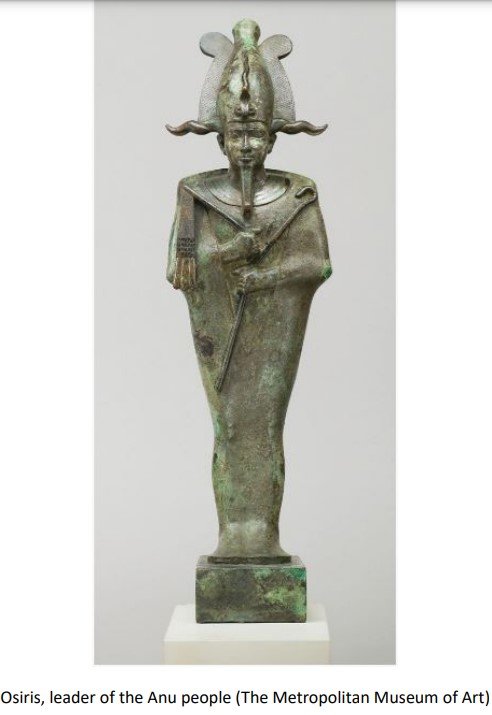
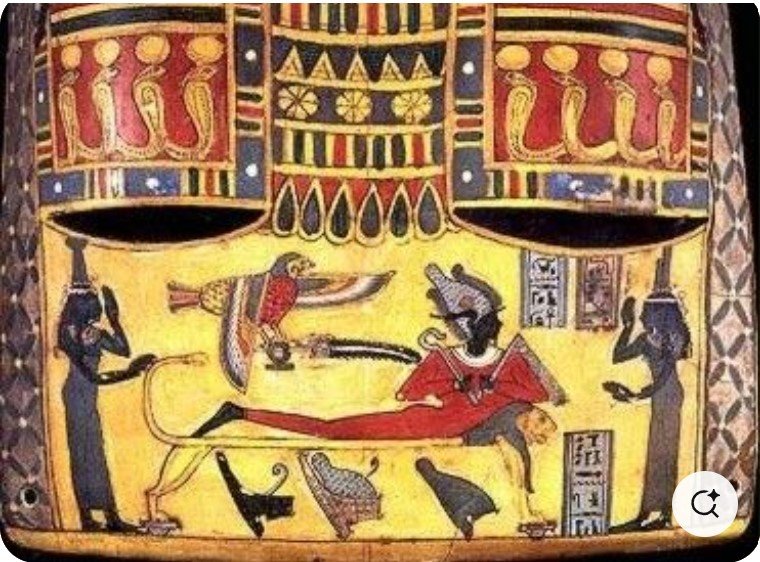
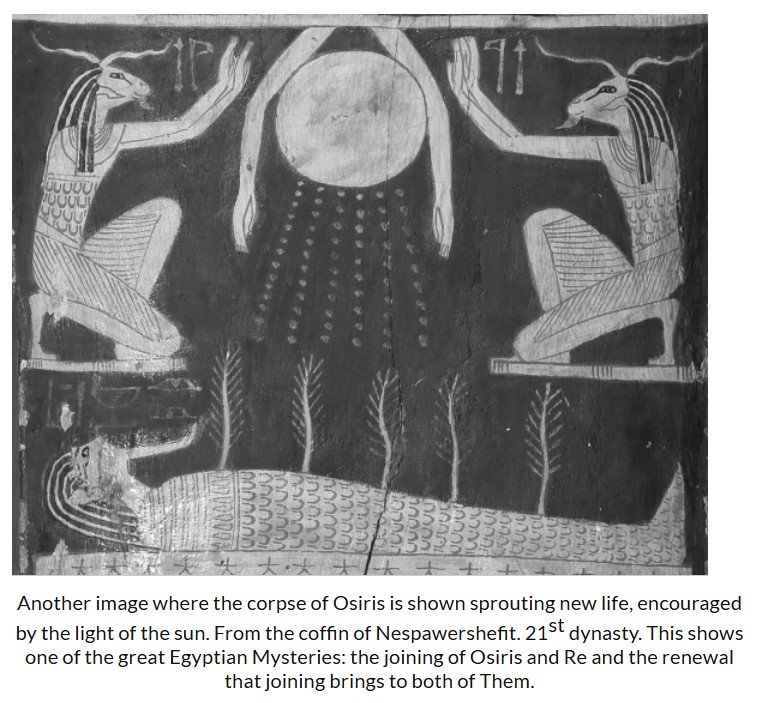
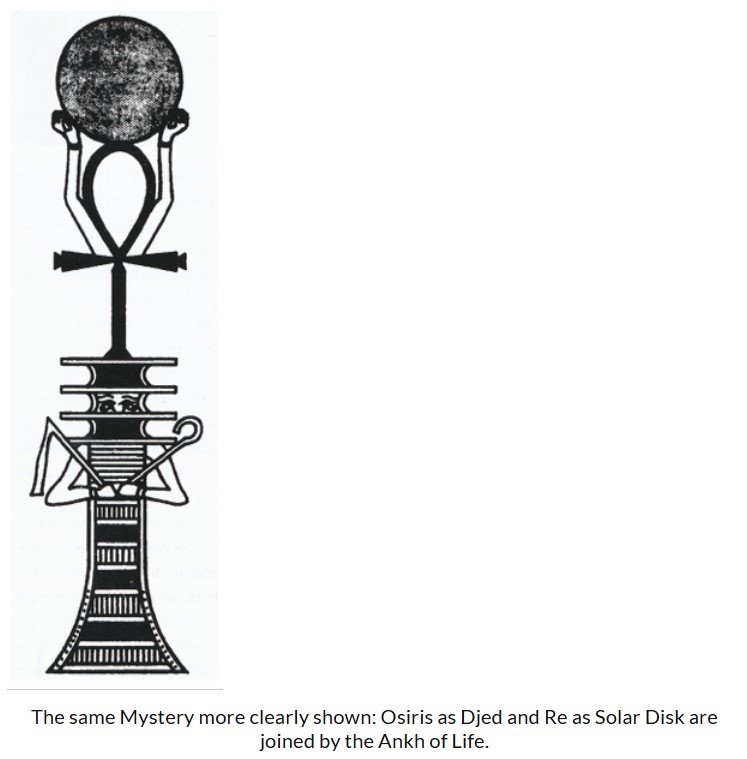
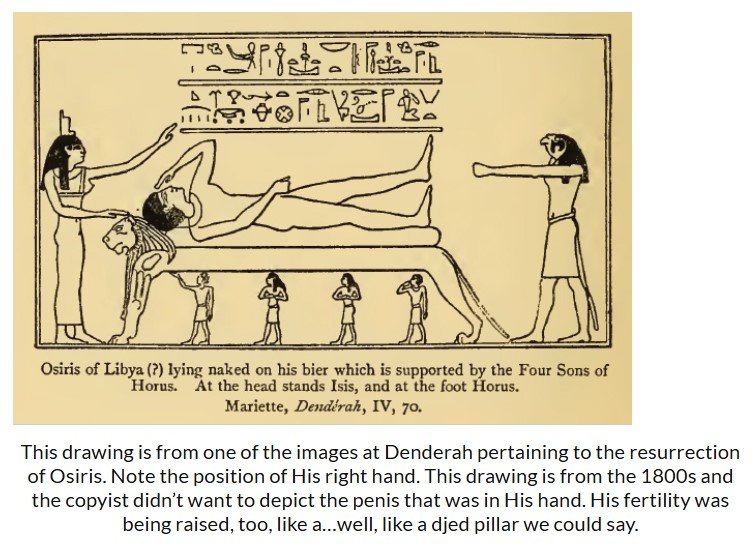
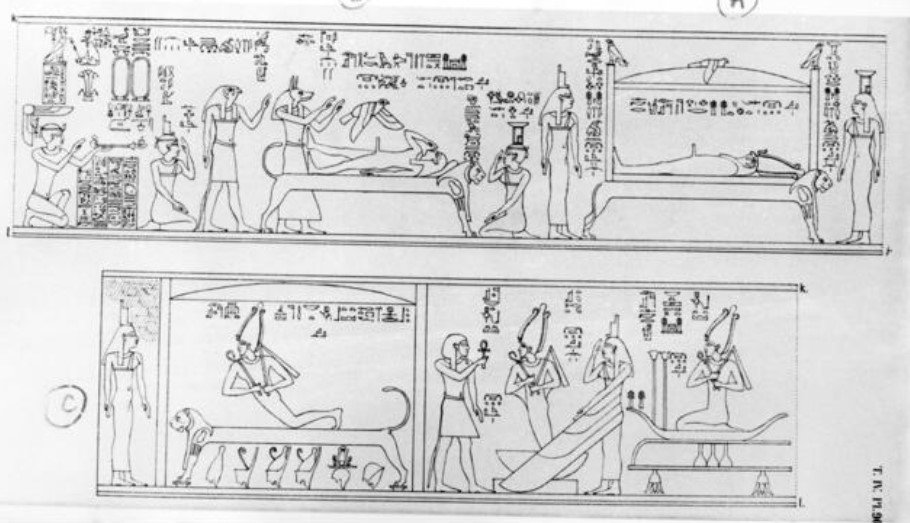
So now I understand that my ancient ancestors knew that there was no mediator between man and one’s salvation, as we find in the Christian theory. They developed a system of spiritual training that allows me to become one with God. And this is the basis of a society like the Balanta’s that does not need chiefs or kings. Such a society is composed of a population of leaders. As explained on July 17, 1959 by His Imperial Majesty, Ethiopian Emperor Haile Selassie,
“In any normal society everyone has some opportunity to show himself as a leader, Even the mechanic or clerk who has an assistant assigned to him, not to speak of the doctor with all his helpers the officer who commands his troops, is a leader. Within his own sphere each has the same opportunity for showing ability and the same potential satisfactions as has the leader of a Government. The leader is marked out by his individual craftsmanship, his sensibility and insight, his initiative and energy. . . .
Leaders are people who raise the standards by which they judge themselves, and by which they are willing to be judged. The goal chosen, the objective selected, the requirements imposed are not merely for their followers alone. They develop with consummate energy and devotion their own skill and knowledge in order to reach the standards they themselves have set. This wholehearted acceptance of the demands imposed by ever-higher standards is the basis of all human progress. A love of high quality we must remember is essential in a leader. . . .
Dependability is another requirement in a leader. To be dependable is to be willing to accept the responsibility and to carry it out faithfully. A leader will always be willing to take counsel from his people. But will have to often act on what his own mind tells him is right. This demands that the leader has trained himself out of any inordinate fear of making mistakes. . . .
To embark successfully in a career involving leadership demands a courageous and determined spirit. Once a person has decided upon his life’s work and is assured that in doing the work for which he is best endowed and equipped he is filling a vital need, what he then needs is faith and integrity, coupled with a courageous spirit so that no longer preferring himself to the fulfillment of his task he may address himself to the problems he must solve in order to be effective. . . .
One mark of the great leader is that he feels sufficiently secure to devote his thought and attention to the well being of his subordinates and the perfection of his task, rather than being constantly worried about the approval of disapproval of others. . . .
He who would be a leader must pay the price in self-discipline and moral restraint. This entails the correction and improvement of personal character, the checking of passions and desires, and an exemplary control of one’s bodily needs and drives.
Leaders have to submit themselves to a stricter self-discipline, and develop a more exemplary moral character than is expected of others. To be first in place one must be first in merit as well. . . .
The true leader is one who realizes by faith that he is an instrument in the hands of God and educates himself to be a guide and inspirer of the nobler sentiments and aspirations to the people. He will kindle interest, teach, aid, correct and inspire. Those whom he leads will co-operate with him in maintaining discipline for the good of the group. He will instruct his followers in the goals towards which to strive, and create in them a sense of mutual effort for attaining the goal.”
And on July 2, 1963, HIM Haile Selassie I said,
“A qualified man with vision, unmoved by daily selfish interests, will be led to the right decisions by his conscience.”
I now understand that unless society graduates initates of the Anu Mystery School that produces professional men and women of integrity,
NO GOVERNMENT CAN SUCCEED IN BRINGING PEACE AND PROSPERITY TO THE PLANET.
And this mixture of Bantu Great Belief and Anu spirituality explains my work in life and involvement in international diplomacy..
The spirit of my great, great, great, great, great grandfather, Brassa Nchabra, entered me when I was four years old according to the Great Belief Principle 19. The evidence of this is beyond a reasonable doubt. Brassa Nchabra came from the village Untche, which is located alongside a river and is known for having the best swimmers in the territory. Brassa Nchabra was trafficked from Untche to Charlestown, South Carolina. During a visit to the ocean at Charlestown when I was 4, my father took me to the water’s edge and when my foot touched the water, I had an inexplicable tantrum. It was that expeience that convinced my father to enroll me in swimming lessons. By the age of 10, I was the Illinois state champion swimmer.
Swimming and an out-of-body experience caused me to go to Yale University. This was the first instance of (5) having a mission in life. What happened after that is described in the article A Swimmer’s Race. The January 26th, 2015 issue of Sports Illustrated told the rest of my collegiate swimming story. That article also told another part of my story. At Yale, where I started to study African American history, I learned that most slaves took the names of their slave masters. All of a sudden, my birth name, Anthony “Tony” Blake, started to really bother me. Why did I, a black person, have a Spanish or Italian first name and an English surname when I am neither Spanish, Italian or English? Why, now that I am “free”, did I continue to use the foreign names of slave-owners? This was part of my identity crisis that started back in 1977 when I watched the movie Roots.
Describing that experience, I told Jon Wertheim, author of the Sports Illustrated article, “I didn’t feel like I knew who I was. I didn’t know my history. Like a lot of African-Americans, we don’t know our past. All of a sudden, connecting with my ancestral heritage became very important.”
An identity crisis - Who am I? Why did I have European names? -caused me to leave Yale in 1993 two months before graduation. I was tired of reading about Jesus and the Buddha, I wanted to live like them. In From Yale to Rastafari: Letters to My Mom, 1995-1998, I wrote,
“After the 1990-1991 season I was awarded the MacLeish Memorial Swimming trophy, established in 1936 by Halsted R. Vanderpoel ’35, in memory of Kenneth MacLeish, 1918, who was killed in World War I. The trophy is awarded to “that member of the Yale swimming team, who through his efforts and high ideals in sportsmanship and loyalty, best exemplifies the spirit of Kenneth MacLeish.. Because of this honor, and because Yale university had a chance to win the Ivy League title for the first time in 20 years, I felt obliged to do my part to claim such a victory. This last effort – to win an Ivy-League Championship for the team and for Frank – is the sole reason why I stayed in school as long as I did my senior year. . . . Four days after winning the Ivy-League Championship- and just three months shy of graduation, I left school, sold my possessions, [and] vowed not to cut my hair in order to consecrate and symbolize my new-found freedom . . . “
Here was the evidence of (4) Identity with spiritual life or the higher ideals and (6) Evidence of a call to spiritual Orders or the Priesthood in the Mysteries and (10) Readiness or preparedness for initiation. During the next 14 years I began Learning From The Leaders The Personal Cost of African Liberation: Responsibility, Racial Re-Education, Spiritual Re-Conversion, and Class Suicide for a Holy Order of Commitment. Leaving 2 months before graduation without the degree and the likely lucrative job opportunites afforded by a Yale degree demonstrated 10. Law of Geb (Geb) - I Know that from heaven I came and to heaven I will return; I seek not enduring works on earth. and 9. Law of Auset (isis) -Prepare to sacrifice everything to become the vessel of God on earth and I will, in turn, receive everything.”
Armed with W.E.B Dubious’ sense of responsibility of the Talented Tenth, the vision of “Africa for the Africans at home and abroad” promoted by Marcus Garvey, the understanding that I must meet the demands through the personal sacrifices demanded of a royal priesthood of Pan Africanism, with role models such as Walter Rodney, Ken Saro Wiwa, and John Africa, and with the direct, clear instructions of God, I went out into the world renouncing all personal interest, to do the work assigned to me and to fulfill my destiny. As a symbol of this Holy Order of Commitment to African Liberation, I vowed not to cut my hair. My mission led me to cities like Chicago, Atlanta, Houston and countries like Ethiopia, Ghana, Togo, Benin, South Africa, Jamaica, Barbados, Trinidad and Honduras. All of this re-education and work is chronicled in my five volumes of COME OUT OF HER, MY PEOPLE! 21ST CENTURY BLACK PROPHETIC FAITH AND PAN AFRICAN DIPLOMACY.
On March 3, 1996, I wrote a letter to my mother stating,
“Mom, Jah lives! And the Most High lives in me truly. It is up to me to seek God within, the Christos of the mystics who were able to bridge the gap between God and man. According to Rasta elder Dennis Forsythe, this is a long and painful process. He recounted to me his journey, how friends and family reacted to his islolation and alienation, his weird behavior and his bizarre smoking of herbs. Many thought he was ‘mad’. Yet, his was a conscious effort and the sufferation -the ‘madness’ - as integral to reaching what Rasta calls the ‘heights’. His advice to me:
‘Abandon the search for God and the creation and other matters of a similar sort. Look for him by taking myself as the starting point. Learn who it is within me that makes everything my own and says, ‘My god, my mind, my thought, my soul, my body.’ Learn the source of sorrow, joy, love, hate…. If I carefully investigate these matters, I will find Jah in myself. Whoever finds himself, of him the world is not worthy. . . whoesoever knows the All, but fails to know himself, lacks everything. Mystics like myself search after direct union with God, to wrench from Him the secret to immortality, and many claimed to have achieved this spiritual power, with its associated ‘gifts of prophecy’ and power to heal and create miracles.’
Well Mom, I have tasted of these powers. I have even been named ‘Propecy’ by a middle-aged Jamaican woman. You have no idea what has been happening to me here. I see it as trial after trial, never willing to admit negativity. Yet it is exhausting. In the wee hours of the morning I literally struggle to a resting spot, drifitng as I walk into semi-consciousness. I’m so exhausted. I am asleep before I lay my head down. There have been assaults on my well-being - my usual tactics being to just throw them off, ignore them. Yet, this is dangerous. It takes its toll subtly, invisibly. Such is the result of trying to navigate a maze of a thousand pins. . . . “
Those attacks intensified on January 27, 1997 and August 6, 1999. By 2003, I fled to the ancient, mystical land of Ethiopia and there received a comission which serves (5) Evidence of having a mission in life. I demonstrated 9. Law of Auset (isis) -Prepare to sacrifice everything to become the vessel of God again when I stopped paying taxes to the IRS and left the country, my business, my beloved wife, my sons, everything, for my ancestral homeland. And indeed, I did lose everything as a result of the sabotage that stopped me from competing in the Tokyo Olympics. Since then, I continue to exhibit (3) Steadfastness of purpose, which is equivalent to Fortitude, in my work in life and involvement in international diplomacy. Twenty one years later, I am still leading the effort to elect the twenty representatives to the African Union Economic, Social and Cultural Council (ECOSOCC) while taking the AfroDescendants case to the International Court of Justice.
All of this in order to understand that I have always lived and practiced the original ancient spirituality and religion of my ancient ancestors. I continue (4) Identity with spiritual life or the higher ideals and journey that puts me at odds with the world. Elder Gabriel used to always say to me, “When you become a friend of God, you become an enemy of the people!” However, if I can serve as a master for the ready students, help them break the mental slavery of Christianity, help them understand ANU SPIRITUALITY: SALVATION AND RESSURECTION THROUGH UTCHAU METU while showing them THE ANSWER TO THE QUESTION: WHO CREATED CHRISTIANITY, WHO WROTE THE GOSPELS FEATURING JESUS CHRIST, AND HOW DID CHRISTIANITY START IN AFRICA?, then I will have done my part to prepare New Afrikan Diplomats and Civil Society Workers sufficiently trained and with the necessary integrity to run the government of the United African States in order to produce the African Renaissance. This is why I start 2025 as the President of the Communications Commission of the International Preparatory Committee of the Pan African Federalist Movement.
For the Africa we want, for the African Renaissance, we need a government with workers that have (2) Control of action, the combination of which, Plato called Justice (i.e. the unswerving righteousness of thought and action. We must have a United African States’ government with civil society workers that (4) Identity with spiritual life or the higher ideals, which is equivalent to Temperance, an attribute attained when the individual has gained conquest over the passional nature.
Ultimately, we must all pass the Judgement - Utchau Metu - for the Salvation of the World.
Ra Un Nefer Amen teachings: https://www.youtube.com/watch?v=Waz4vtB2It8&list=PL8C01B0AB2D2E1A98
The Lost Egyptian Gospel: The Eternal Mystery Christianity Rebranded....
What if the story of Christ did not begin in Bethlehem but on the banks of the Nile? What if Christianity did not invent its central myth but inherited it, encoded it, and spiritualized it for a new age? To many, this sounds like heresy. To initiates of ancient wisdom traditions, it sounds like history repeating itself through symbols.
In the deepest layers of myth, religions do not argue. They echo.
In ancient Egypt, long before the Gospels were written, the myth of Horus already described a divine son born into a fallen world to restore cosmic order. Horus is not merely a god. He is a principle. The avenging son. The restorer of Ma’at. The living embodiment of divine kingship made flesh. This alone should sound familiar.
Horus is conceived through divine intervention after the murder of Osiris. His mother, Isis, conceives through sacred magic, not ordinary sexuality. Isis is not simply a mother. She is a throne, a magician, a divine womb that carries the logos of Egypt. Likewise, Christianity introduces Jesus Christ through a virgin birth narrative, where divine will bypasses biological law. In both systems, the child is not born from desire but from destiny.
In Egyptian temple theology, Horus is born to reclaim a world ruled by chaos, embodied by Set. His mission is not moral teaching. It is cosmic correction. He must defeat the powers that fractured divine order. Christ enters a world ruled by sin, archons, and corrupted authorities. His mission is not merely ethical reform. It is ontological repair. Both figures arrive in a broken cosmos to restore balance.
The Eye of Horus is one of the most misunderstood symbols in history. It is not simply an eye. It is a fractured divine body restored piece by piece after violence. Each fraction represents cosmic faculties reassembled into wholeness. In esoteric Christianity, Christ’s broken body, crucified and resurrected, becomes the same metaphysical statement. The divine is dismembered in matter and must be reassembled through sacrifice. Communion reenacts this mystery ritually, just as Egyptian rites reenacted the restoration of Horus and Osiris.
Even the motif of death and resurrection is older than Christianity dares to admit. Osiris is killed, dismembered, entombed, and raised as Lord of the Duat. Christ is crucified, entombed, descends into the underworld, and rises as Lord over death. In both traditions, resurrection is not resuscitation. It is elevation. The initiate does not return as what he was. He returns as what he truly is.
The conflict between Horus and Set mirrors Christ’s confrontation with Satan and the fallen powers. These are not fairy tales of good versus evil. They are mythic dramatizations of consciousness struggling against fragmentation. Set and Satan represent disorder, egoic rupture, and the tyranny of lower forces over the soul. Horus and Christ represent integration, sovereignty, and divine memory restored.
Ancient Egyptian texts speak of Horus as the rightful king whose reign restores Ma’at to the land. Early Christian texts proclaim Christ as King of Kings whose reign restores the Kingdom of God. In both cases, kingship is symbolic. It is not political power. It is mastery over chaos, both external and internal.
What Christianity did was not invent a new savior story. It reframed an ancient one. The Nile mystery was translated into a Judeo Roman language. The falcon became the lamb. The throne goddess became the virgin mother. The solar child became the incarnate Word. The myth did not die. It evolved.
This does not diminish Christ. It magnifies him. It places him within a lineage of eternal symbols that humanity has always used to describe the same cosmic truth: the divine descends, suffers fragmentation, and rises again to show the way back to wholeness.
The real controversy is not whether Horus and Christ are similar. The real queston is why this pattern keeps returning across civilizations, centuries, and religions. Perhaps saviors are not unique events. Perhaps they are recurring revelations of an eternal structure embedded in the human soul.
And perhaps what was crucified was never just a man, but a timeless mystery humanity keeps forgetting and relearning under different names.
#TheSacred #HorusAndChrist #AncientMysteries #HiddenTheology #EgyptianWisdom #EsotericChristianity #MythicArchetypes #OccultHistory #LostGospels #DivinePattern
THE TRUE STORY OF THE 9TH PAN AFRICAN CONGRESS - ALL THE BACKGROUND
SUPPLEMENT TO THE ARTICLE in TOWARDS FREEDOM: THE TRUE STORY OF THE 9TH PAN AFRICAN CONGRESS
“Mr. Siphiwe Baleka, New Afrika. I have the honor to inform you that Togo is hosting the 9th Pan African Congress, scheduled from 29 October to 02 November 2024 in Lomé on the general theme: Renewal of Pan-Africanism and Africa's role in the reform of multilateral institutions: Mobilizing resources and reinventing itself to act. . . . The general programme of activities includes a session entitled "Words to Pan-Africanists" to enable the delegates to benefit from your rich experience, your contributions to the advancement and consolidation of Pan-Africanism, your vision and the current and future role of Africa on the international scene, as well as your expectations for the 9th Pan-African Congress. I have therefore the honour to invite you to lead the work of this session. I remain convinced that your participation will bring inestimable value to the 9th Congress, by enriching the discussions between the congress participants.”
- Professor Robert Dussey, Minister of Foreign Affairs, Regional Integration and Togolese Abroad, Republic of Togo, 13 September 2024
You could imagine my excitement and pride, being invited to lead a session at the 9th PAC, to become a part of this historic legacy that is the PAN AFRICAN CONGRESSES. It’s a history that started in my hometown of Chicago, in 1893. The Chicago Congress on Africa held that year was attended by both Africans and people of African descent in the New world, including Alexander Crummell, Bishop Henry Turner and Bishop Alexander Walters of the African Methodist Episcopal Zion Church. A Pan African Repatriation plan was initiated two years later in 1895 by black businessman William Ellis, who helped Bishop Turner organize the Congress on Africa in Atlanta at the end of 1895. Bishop Alexander Walters would, five years later, chair the London Congress in 1900. That Congress declared that the problem of the new century is “the problem of the color-line, the question as to how far differences of race… will hereafter be made the basis of denying over half of the world the right of sharing. . . the opportunities and privileges of modern civilization.” Haitian born Benito Sylvain, the former secretary of the Haitian Legation in London and serving as Aide-de Camp to the Imperial Household of Ethiopian Emperor Menelik, attended the London Congress in 1900 as the Ethiopian Representative. Three years later, Sylvain introduced Ellis to Emperor Menelik who repeated the words first spoken by Martin Delany in 1853 - “Europe for Europeans and Africa for Africans!”, later to be attributed to Marcus Garvey. The First Pan African Conference Address concluded by demanding that the Congo Free State “become a great central Negro State of the world”, a demand that both W.E.B. DuBois and Marcus Garvey re-iterated in separate proposals to the Paris Peace Conference in 1919. Pan African Congresses were then held that year in Paris, and again in 1921 in London, Brussels, and Paris again; in 1923 in London; in 1927 in New York; in 1945 in Manchester (5th PAC); in 1974 in Dar es Salam, Tanzania (6th PAC); in 1994 in Kampala, Uganda (7th PAC); and in 2014/15 in Johannesburg, South Africa and Accra, Ghana (“dueling” 8th PACs).
By the time of the Fifth Pan African Congress in 1945, the imperative of the African World was an end to colonialism, which led to the formation of the Organization of African Unity in 1963. The challenge for the participants of the Sixth Pan African Congress in 1974 was how to harness Africa’s new independent power, deconstruct neocolonialist regimes, and unite the diaspora under a common Pan-African agenda. To achieve this, the 6th PAC sought dual citizenship for Africans from the West and establishing a Permanent Secretariat. Thirty-eight years later, that unqualified citizenship had still not been granted to the Diaspora, prompting The Declaration of the Global African Summit 2012 to recommend that,
“‘diaspora issues should be a standing item on the programmes and agenda of AU Summits….,’ and that ‘a Diaspora Advisory Board be set up which will address overarching issues of concern to Africa and its Diaspora such as reparations, right to return and to follow up to the WCAR Plan of Action.’”
The 8th Pan African Congress (PAC8.0) held in Accra, Ghana 5-7 March 2015 concluded,
“We acknowledged the need for strong collaboration, especially through citizen input, with existing Pan African entities and initiatives, such as Agenda 2063 of the AU, and especially those identified to promote the Sixth Region of the African Union . . . We recognized the need for African leadership to immediately implement processes and structures that incorporate the 6th region of the African Union, the Diaspora, in implementing Agenda 2020 and Agenda 2063 . . . Recommend that the identification of appropriate organizations to be a conduit for Africans of the Diaspora to partner with the PAM initiatives at all levels and facilitate the involvement or inclusion of Africans from the Diaspora who have repatriated back home to Mother Africa. Strongly support the actualization of the concept of the 6th Region of Africa, being the Diaspora, by the 8th Pan African Congress”
Such is the historical foundation from which I wish to discuss how the 9th Pan African Congress(es) scheduled for 2024 were organized and postponed based on my understanding from my involvement in trying to connect and harmonize them.
TOWARDS THE 9TH PAN AFRIKAN CONGRESS
In July of 2022, the African Diaspora Development Institute (ADDI) under H.E. Ambassador Arikana Chihombori-Quao, former AU Ambassador to the United States, solicited for delegates to attend what was originally announced as the African Diaspora Pan African Congress and later as the “9th Pan African Congress” to be held in Harare, Zimbabwe from 14-19, 2022 hosted by the Government of Zimbabwe. According to their solicitation for delegates,
“Since the amendment of the AU constitution, it has been brought to our attention the onus has been left to the African Diaspora to organize and collectively, in a united manner present demands to the African Heads of State as to how we wish to organize and formalize the 6th Region in the same way as the other 5 regions on the continent of Africa. . . .The African Diaspora Pan African Congress will primarily focus on the formalization of the 6th Region.”
I took great interest in the African Diaspora/9th Pan African Congress called by H.E. Ambassador Arikana Chihombori Quao, especially since I was the only African American who, in February 2003, attended the 1st Extra-Ordinary Summit of the Assembly of the African Union in Addis Ababa that approved the Article 3(q) amendment to the Constitutive Act of the African Union that officially “invite(s) and encourage(s) the full participation of Africans in the Diaspora in the building of the African Union in its capacity as an important part of our Continent.” I also founded and directed the AU 6th Region Education Campaign that initiated the election process for the African Diaspora’s representatives to the AU’s Economic, Social and Cultural Council under ECOSOCC Statute Article 5 Section 3. However, twenty years later Ambassador Quao was calling attention to what I had been publicly lamenting: that the African Diaspora still has no representatives in AU ECOSOCC and the “6th Region” is just a concept with no formal structure within the AU. After spending a week in February 2023 in Zimbabwe listening to Ambassador Quao share the details of her 9th PAC agenda, I became a true believer in our shared mission and she appointed me Coordinator of the Agenda for what became known as the “8th Pan African Congress part 1” since the 2014/2015 Dueling PACs were “nullified” and there were objections all around for calling it the “9th PAC”.
Meanwhile, on May 3, 2023, the African Political Alliance (APA) first ministerial conference in Lomé, Togo announced, “The Ministers stressed the need to move towards a synergy of action by Pan Africanists and welcomed the project to organize the 9th Pan-African Congress in Lome, in 2024, by Togo, in collaboration with the African Union. . . .” That effort had started back on February 10, 2020, within the framework of the 33rd Summit of the African Union, when the Minister of Foreign Affairs, African Integration and Togolese Abroad, Professor Robert DUSSEY, representing HE Mr. Faure Essozimna GNASSINGBE, President of the Togolese Republic, presented a communication on behalf of Togo on the launching of the “Decade of African Roots and Diasporas”. This Togolese initiative is known as the “Lomé Framework”. On May 7, Ambassador Quao and I sent a letter to Minister Dussey “inviting Your Excellency to a meeting (date and time to be determined) of the leadership of the various major entities to discuss possibilities for harmonizing our respective efforts.” A favorable response was returned.
On July 4, 2023, however, the late Professor Ikaweba Bunting, the Secretary General of the Global Pan African Movement (GPAM) issued the Call to Convene 8th Pan African Congress Phase II which emanated out of a July 8-11 2022 meeting in Kampala. Immediately I sent Professor Ikaweba Bunting a copy of my 73-page strategy document, entitled THE FUNCTIONAL ESTABLISHMENT OF THE AU 6TH REGION: HARMONIZING THE AU-AFRICAN DIASPORA SIXTH REGION (AU-ADS) HIGH COUNCIL, THE AFRICAN DIASPORA DEVELOPMENT INSTITUTE (ADDI) ADPAC AGENDA, AND THE "DECADE OF AFRICAN ROOTS AND DIASPORAS" PROPOSED BY THE REPUBLIC OF TOGO AND ADOPTED BY THE AU GENERAL ASSEMBLY EX.CL/1420(XLII) as well as the draft DECLARATION FOR THE HARMONIZING OF THE PAN AFRICAN CONGRESSES AND THE EFFORTS TO ESTABLISH THE AFRICAN DIASPORA AS THE 6TH REGION OF THE AFRICAN UNION asking him and Presidents Museveni, Mnangagwa, and Gnassingbe along with H.E. Kahinda Otafiire, Minister of Internal Affairs of Uganda and Chairman of the Governing Council of Global Pan African Movement (GPAM), H.E. Professor Robert Dussey, H.E. Ambassador Arikana Chihombori – Quao, and Dr. Barryl A. Biekman, PhD., Coordinator of the African Union African Diaspora 6th Region Facilitators Working Group Europe & Co-Facilitator of the Monitoring & Policy Working Group to sign the Declaration. The Declaration would then be sent to Pan Africanists to endorse and sign. The exchange I had with Robert Musasizi, Director of Communications for GPAM-Governing Council is worth sharing:
Robert: "Have read through your document, it's good you have now acknowledged PAC Ghana 1. How I wish we started from here yesterday. How I wish you came as a team and met with Chairman of GPAM Gen Otafiire in Kampala and empowered our Secretariat so that it unites all these different gatherings on the continent. We need to unite. . . . Chairman Gen. Otafiire is Museveni's long time special envoy on Pan African matters on the African continent and Diaspora. I think Amb. Arikana should have checked on him and harmonized these Pan African issues. . . . If Pan African groups on the continent can not unite, then who will unite and integrate Africa? It's very ironic. At one point I will share with you the latest letters from Museveni instructing Otafiire to organize the 8th PAC in Uganda 2024."
Me: "This is why I am working so hard to help them ‘harmonize’ and signal to the rest of us grassroots that a new chapter has begun and the time is now. . . . Well, now we are together. So I will need your help to get GPAM on board. . . . Maybe she didn't know Gen Otafiire or have any contact/connection to him. . . . After arriving in Harare, Zimbabwe on February 7th to join H.E. Ambassador Chihombori-Quao’s planning committee, I asked her why the conference was now being called the ‘8th PAC Part 1’ when it was originally announced as the ‘9th PAC’. Her response was that it was on the insistence of Ugandan President Yoweri Museveni, who intends to host the ‘8th PAC Part 2’ next year in Uganda to commemorate the 30th Anniversary of the 7th PAC that was held in Kampala, Uganda. I know she felt fully empowered by Museveni after meeting with him in Kampala as you will soon discover, it was Museveni's idea for the Ambassador’s ‘PAC8.1’. In any event, there is a good roadmap now on how to unite all these different gatherings. Do you have any suggestions and/or instructions now? . . . Since President Museveni is supporting both of us, there should be no problem in our uniting under the Declaration framework. The Ambassador is with the Ambassador of Togo as we speak, securing their support...."
On July 25, H.E. Ambassador Quao traveled to Kampala and presented the plan to President Yoweri Musevni who agreed to call both President Emmerson Mnangagwa of Zimbabwe and President Faure Ayedemen of Togo as well as to host and sponsor a pre-summit meeting of 150-200 leaders of African Diaspora from around the world to come to Uganda to discuss the way forward under the umbrella of the Pan African Secretariat which currently is housed in Uganda according to the outcomes of the 7th PAC. There also exists a Memorandum of Understanding Between the African Union Commission and the Pan African Movement signed by H.E. Dr. Aisha L. Abdullahi of the AU Commission for Political Affairs and Gen Kahinda Otafiire, Chairman of the International Committee of the GPAM in Kampala, on May 22nd, 2015. That memorandum states that they must work together in organizing any Pan African Congresses. In her follow-up letter to President Museveni, H.E. Ambassador Quao stated, “To host a gathering of a truly representative group of the African Diaspora from all over the world there is a need for as many Diaspora leaders to meet and discuss the agenda for the three PAC’s. This is the only way we can move forward united . . . .”
Following a request for GPAM’s Constitution, Robert Musasizi, writing for the Chairman of GPAM on August 7, stated,
“Following our meeting in Kampala on 26th July 2023, the Governing Council of GPAM will meet soon to deliberate on the serious issues you addressed to us. Therefore, as we keep on planning and working around the clock for pre-Congresses within Africa and the 6th region as precursors for the main Pan African Congress in Kampala 2024, let’s wait for the Governing Council’s decision before we start sharing with you any of our classified documents.”
Finally, during the Accra Reparations Conference in November 2023, I met with Gnaka Lagoke, Chair of the Scientific Committee of the 9th Pan-African Congress in Lomé and chief coordinator working for the Togolese government. I presented him with the plan for harmonizing the Pan African Congresses and we agreed to work together. He asked me for the list of the 150 to 200 Diaspora Pan Africanists. He also asked me to submit a concept note for gaining the support of Pan Africanists outlined in the plan that was based on my work for the PAC 8.1 that convened five preparatory Town Hall Zoom meetings, each of which were attended by 400 to 600 people. Unfortunately, the detailed plan was presented and rejected by the 9th PAC Organizers.
It should be noted that all of this was preceded by the Global RootsSynergy Roundtable (GRSR) held in Accra, Ghana in November 2019. The resultant 2019 Accra Declaration requested,
“That a Secretariat for the implementation of the Decade of Return consisting of Professional Diaspora Cadres should be placed under the Diaspora Department of the A.U. Commission. This Secretariat would have the mandate and responsibility to drive the entire process of the Decade of Return: 2020-2030.”
What’s interesting is that after this, His Excellency Professor Robert Dussey held working sessions with the Citizens and Diaspora Directorate (CIDO), the department responsible for leading the AU’s engagement with non-state actors in Addis Ababa in October 2021, on the sidelines of the African Union Executive Council. The purpose was to agree on the importance of aligning the Decade's activities with ongoing initiatives of the African Union Commission. CIDO undertook to transmit to Togo a draft action plan for the Decade which would take account of this requirement and based on the Sustainable Development Goals and the African Union Agenda 2063. How did CIDO develop this draft action plan? Was it based on the 2019 Accra Declaration? Why wasn’t the GRSR included, since this is exactly what they proposed? And why wasn’t GPAM included as mandated by the MoU that specifically states an agreement to “facilitate the implementation of a Joint AUC/PAM Action Plan”? Here I would like to quote the great Pan Africanist, Dr. John Henrik Clark, who said,
“We are the meetings and the talking -ist people in all the world. We call more meetings, pass more resolutions and get less done than any people in the world. We will meet and vote and forget what we voted for . . .”
It should also be noted that also in October 2021, Mrs. Grace A James from Jamaica but living in Tanzania, Co-President of the African Diaspora Alliance (AfDA), retired Judge D. Peter Herbert O.B.E. in the United Kingdom, and myself, completed a motion to the African Union Executive Council 39th Extraordinary Session upon the request of Shem Ochuodho, East Africa's Representative to the AU ECOSOCC who stated, “Our current term in ECOSOCC ends in 2 years. It would really have been my/our wish, within that time, to bring diaspora into the ECOSOCC system. At a time when we have about 15-20 pro-diaspora members in the General Assembly! With a good Framework, they would assist us push it through.” The motion was to be submitted to the AU ECOSOCC Secretariat through the Zambian Minister of Foreign Affairs, but for whatever reason, the motion never reached the African Union.
GRSR, led by the African Union African Diaspora 6th Region Facilitators Working Group (AUADS) then went on to host the Addis Ababa Summit in May 2022, which was attended by representatives of both CIDO and ECOSOCC and which the Resolution from this Roundtable was submitted to the African Union Commission in cooperation with the CIDO, AU ECOSOCC and the African Commission For Human and Peoples’ Rights (ACHPR). GRSR then hosted the Maputo Summit 10-13 July, 2023, presided over by the Minister of Foreign Affairs and Cooperation of the Republic of Mozambique and included a representative the AU ECOSOCC Standing Committee, to establish an AUADS High Council (HC) that would provide a coherent governance organizational voice for Diaspora participation in the African Union.
FOR THE REST OF THE STORY CLICK HERE TO GO TO THE TOWARDS FREEDOM ARTICLE
Endnote
Memorandum of Understanding Between the African Union Commission and the Pan African Movement signed by H.E. Dr. Aisha L. Abdullahi of the AU Commission for Political Affairs and Gen Kahinda Otafiire, Chairman of the International Committee of the Global Pan African Movement (GPAM) in Kampala, on May 22nd, 2015. The Memorandum states: “GUIDED by the ideals of Pan Africanism, African unity, self-reliance . . . CONSIDERING further that PAM is a mass movement that aims at promoting Pan Africanism among African peoples within Africa and in the diaspora with an ultimate aim of uniting Africa under a union Government of African states; RECALLING that PAM and the Commission have a historical standing relationship that dates back to the immediate post-independence where the founding fathers of the Organisation of African Unity (OAU)/African Union (AU) were also the founders of the PAM;. . . DESIROUS of further improving and strengthening the existing relationship between the Commission and PAM by establishing appropriate working arrangements; . . . HAVE AGREED AS FOLLOWS: ARTICLE 2(e) Convening PAM Regional stakeholders’ consultations (Pre-Congress Conferences in all the 12 PAM regions and the four Special Interest groups of Women, Youth, Workers and Intellectuals) and Pan African Congresses within the agreed upon intervals . . . . (h) Conducting joint resource mobilization initiatives to facilitate the implementation of a Joint AUC/PAM Action Plan. . . ARTICLE 4 (a) Each Party undertakes to regularly inform the other of the priority areas for cooperation as identified by their respective organizations; (b) the Commission shall consider any proposal made by PAM considering projects and programs that relate to activities set out in the Joint Action Plan for strategic partnerships; (c) PAM shall similarly undertake to consider any proposals made by the Commission that relate to activities set out in the Joint Action Plan. . . . ARTICLE 5 Subject to consultations and their respective internal rules and procedures, the Parties shall endeavor to invite each other, as an observer, to attend meetings on matters of mutual interest as deemed appropriate. . . . ARTICLE 8 1. The Parties have agreed to hold regular consultations with each other on all matters arising from this MoU that may be necessary for the smooth running of their cooperation. . . . ”
Accra Declaration 2019:
“Ghana Year of Return not in vacuum
The Year of Return declared in September 2018 in Washington DC by the President of the Republic of Ghana, Nana Akufo-Addo, with reference to the 400-year remembrance of the trans-Atlantic slave trade and the enslavement of African people does not stand by itself nor is it a vacuum. The Year of Return must be considered as an event in the series of various instruments that have been established in the framework of declarations and resolutions on the People of African descent in the last twenty years . . . .
Diasporans as development bridge-builders and agents of change
In 2020, we are on the eve of the 5 years mid-term review of the UN International Decade for People of African Descent; in 2021 20 years of commemoration of the DDPA. And in the middle of those processes is the Year of Return. It had to be so. A Year at the crossroads of the transition to a new decade 2020. A Year whereby thousands of African Diasporans, many in united partnerships accepted the invitation of the Ghana President. Each in its own way. This has more than ever, made it clear that the African Diasporans are ready for reunification. The required task to bring this engagement to fruition is to the ending of the slow pace of the implementation of the May 2012 Sixth Region African Union African Diaspora Declaration. . . .
III.2.3 CALL TO ACTION
The Global RootsSynergy Roundtable calls on
“The African Union Commission [and] respective AU Heads of State
To adopt its next session the AU Decade of Return 2020-2030 with the aim to invite the ‘historical’ Africans in particular, to ‘Return to their Continent’.
To use this Decade of Return as a tool to end the slow pace of the implementation of the May 2012 African Union African Diaspora Sixth Region Declaration as far it concerns the Legal and Political Framework and Structure with the aim: Sustainable Integration of the Diaspora Legalization in the diverse political, socioeconomic and social organs and bodies of the African Union.
III.2.4 RECOMMEND
That the Programme of Activities for the implementation of the Decade of Return must be developed in close cooperation with an appointed “Technical Working Commission Decade of Return” with a consultative voice for the Ghana Presidency Commission Year of Return, because of the learning and experience aspects.
III.2.5 REQUEST
That a Secretariat for the implementation of the Decade of Return consisting of Professional Diaspora Cadres should be placed under the Diaspora Department of the A.U. Commission. This Secretariat would have the mandate and responsibility to drive the entire process of the Decade of Return: 2020-2030.”
Dr. John Henrik Clarke - African Americans the lonely nation away from home
"My talk for tonight and unfortunately the last in the series will deal almost solely with the 𝑨𝒇𝒓𝒊𝒄𝒂𝒏-𝑨𝒎𝒆𝒓𝒊𝒄𝒂𝒏𝒔 𝒕𝒉𝒆 𝒍𝒐𝒏𝒆𝒍𝒚 𝒏𝒂𝒕𝒊𝒐𝒏 𝒂𝒘𝒂𝒚 𝒇𝒓𝒐𝒎 𝒉𝒐𝒎𝒆 because the African-American is the most misunderstood, most abused, most wounded of all the African people who live outside of Africa and yet he is the target for destruction by more forces than any other African people. He's the one African that the western world won't destroy principally because he has grown insensitive to his oppressor and he, more than any other African, has fought in larger numbers for his oppressor and mastered his oppressors modern war technique. He's also the most dangerous African on the face of the earth because he is the only African on the face of the earth trained in the modern warfare technique called combined operations. Combined operations is the art of striking a target from land, air and sea. No other Africans on the face of the earth have enough training to move on a target with ships, airplanes and infantry and the Black American has been trained to do all three. He wasn't trained to do this to liberate himself or to liberate anyone. He was trained to do this for someone else but the training is still with him. 𝐁𝐮𝐭 𝐡𝐞 𝐡𝐚𝐬 𝐧𝐞𝐯𝐞𝐫 𝐜𝐨𝐧𝐯𝐞𝐫𝐭𝐞𝐝 𝐡𝐢𝐬 𝐭𝐫𝐚𝐢𝐧𝐢𝐧𝐠 𝐢𝐧𝐭𝐨 𝐚 𝐥𝐢𝐛𝐞𝐫𝐚𝐭𝐢𝐨𝐧 𝐚𝐫𝐦𝐲 𝐟𝐨𝐫 𝐡𝐢𝐦𝐬𝐞𝐥𝐟. . . After world war two, Africa could have picked up almost for nothing one of the finest black air forces on the face of the earth. But because Africa was not ready to do this their talent deteriorated. Many of the men went bussing dishes and clerking and lost all their skills. But I'm saying that the skill and the training to make a modern army was with the Black America and right now, right this very minute, there's been enough Black Americans discharged from the U.S. army with enough modern skill they can train a modern army for every nation in Africa. This is what makes him the target for the colonists because they realize if contact is ever made with him and if he becomes aware of his skills and affects the wedding between his skills in Africa he could change the world. He could have stopped the congo situation. He can revitalize any nation in Africa because of his training. He can learn faster than almost any other African on the face of the earth. The question is why then do we have slums if he can fix houses? Why don't they fix them? Why then do we have dope? Why is his institution deteriorating? Why is he debating his integration instead of maintaining his institution? Because his mind has been trained into dependency. I'm saying that one thing about Jim Crow, one thing about that oppression - it was real.
We in the United States, then and now, was never given the illusion of nation. They will let us know right now that they don't want us here and they didn't let us dream that we were part of this nation. They let us know that we were brought to do a set labor and once the labor was over we were a surplus population, a nation within a nation without a nationality. We were not brought to this country to be given a nationality. We were not brought to this country to be given status. When they said liberty and justice for all, we were not a part of the all. No one let us dream or think that we were part of the all.
When we look at the atrocities against us day by day they keep saying again and again, not you. When I say American citizen I don't mean you. Now we have . . . . This nation has mortgaged its soul and lived a lie and tells a lie to the world because they dare not face up to the fact that you've got a massive nation inside of the United States living in under a condition many times worse than Nazis.
We have not examined the illusion that went into the original entry in the united states that wouldn't go away. We can't deal with the present because we think that maybe this country has betrayed us. This country has not betrayed us, didn't promise you anything in the first place because it wasn't talking to you. . . .
When we arrived in the country the country had not worked out its racial pattern. To understand what I'm talking about you have to understand once more the design of the country. White male protestant middle class and those who agreed with the prevailing political state and who owned property. Everybody in this country is trying to impress that group. The jews are trying to impress that group. . . . That's the, that is the big rooster in the in the pecking order and if you watch chickens in a yard the big rooster can peck anybody but instead of pecking him you pick the next smallest one till you get down to the little one, but you don't peck, you don't peck the first pekka which is the rooster. This is what you call the pecking order. You pass the peck down but you don't pass it up. So the gentile white male protestant is the rooster in the barnyard. He has his way and if you look at a book called 60 American families, the richest people in this country falls into that category. Right now its the same 60 family and their descendants who control the major wealth in the country. At the turn of the century, still control the major wealth in the country.
Now our history in this country is working our way around all these illusions and assuming that certain promises were made to us that were not made to us. Taking handouts and crumbs from the table while other groups and other places fair a little better but do not assume that slavery was mild anyplace slavery was different and being different does not mean it is less harsh. Ii mean the slave owner was less crude in his administration of the system but he still administered the system. He still killed, he still sold families from families. All right now come the American revolution. We hear all this talk about liberty and justice for all We believe some of it now. Look at the United States on the eve of the civil war. African-Americans would go into that war and in one battle alone, win 16 congressional medals of honor. It had never been done before. Why did they fight so bravely for a nation that had betrayed them and that still betrayed them? They had the illusion that if they show that manhood maybe someone will reward them with the concept of citizenship. It was a gamble but the gamble didn't totally pay off . . . .
We faced some problems that we haven't dealt with and finished dealing with to this day. We had been betrayed, have been an attempt to sell us back into slavery. The promises of the reconstruction had been betrayed. . . . We need to study again the negro convention movement. It was meeting every year. We are the meetings and the talking -ist people in all the world. We call more meetings pass more resolutions and get less done than any people in the world. We will meet and vote and forget what we voted for . . . .
When I said that we are the loneliest nation, we are the lonely African away from home, we are the ones who were invited to the United States and when we finished laboring, the labor, the jobs became obsolete. To this day no African nation has invited us to come home officially. The same as Israel has a law, that any Jew wants to return can return, Africa has no such law. Not one nation in all africa and yet africa has more space than Israel, one thousand times more. In fact all Black Americans fit into one corner of the Sudan and they will not miss the space. On the proper cultivation they feed ourselves there, too. But the African has been brainwashed into not inviting us home.
So we came into the 20th century with illusions but it was the Italian-Ethiopian war that made us think of nation again, made us think of wholeness. The protection of nation made us relive some of Marcus Garvey's teachings about nation and nation structure. . ."
This is the reason why Under Director J. Edgar Hoover, the FBI launched its COINTELPRO (Counterintelligence Program). On August 25, 1967, the United States government launched a new CounterIntelligence Program against “Black Nationalists” calling them “Hate Groups” instead of freedom fighters seeking justice. According to the The Federal Bureau of Investigations (FBI) memo revising the United States’ war strategy, 23 FBI offices were instructed:
“The purpose of this new counterintelligence endeavor is to 𝒆𝒙𝒑𝒐𝒔𝒆, 𝒅𝒊𝒔𝒓𝒖𝒑𝒕, 𝒎𝒊𝒔𝒅𝒊𝒓𝒆𝒄𝒕, 𝒅𝒊𝒔𝒄𝒓𝒆𝒅𝒊𝒕 𝒐𝒓 𝒐𝒕𝒉𝒆𝒓𝒘𝒊𝒔𝒆 𝒏𝒆𝒖𝒕𝒓𝒂𝒍𝒊𝒛𝒆 𝒕𝒉𝒆 𝒂𝒄𝒕𝒊𝒗𝒊𝒕𝒊𝒆𝒔 𝒐𝒇 𝒃𝒍𝒂𝒄𝒌 𝒏𝒂𝒕𝒊𝒐𝒏𝒂𝒍𝒊𝒔𝒕 𝒐𝒓𝒈𝒂𝒏𝒊𝒛𝒂𝒕𝒊𝒐𝒏𝒔 𝒂𝒏𝒅 𝒈𝒓𝒐𝒖𝒑𝒊𝒏𝒈𝒔, 𝒕𝒉𝒆𝒊𝒓 𝒍𝒆𝒂𝒅𝒆𝒓𝒔𝒉𝒊𝒑, 𝒔𝒑𝒐𝒌𝒆𝒔𝒎𝒆𝒏, 𝒎𝒆𝒎𝒃𝒆𝒓𝒔𝒉𝒊𝒑, 𝒂𝒏𝒅 𝒔𝒖𝒑𝒑𝒐𝒓𝒕𝒆𝒓𝒔. . . . "
The policy was then expanded on March 3, 1968 in another FBI secret memo that listed the goals of the war against the New Afrikan people:
"1. Prevent the COALITION of militant black nationalist groups. In unity there is strength; a truism that is no less valid for all its triteness. 𝐀𝐧 𝐞𝐟𝐟𝐞𝐜𝐭𝐢𝐯𝐞 𝐜𝐨𝐚𝐥𝐢𝐭𝐢𝐨𝐧 𝐨𝐟 𝐛𝐥𝐚𝐜𝐤 𝐧𝐚𝐭𝐢𝐨𝐧𝐚𝐥𝐢𝐬𝐭 𝐠𝐫𝐨𝐮𝐩𝐬 𝐦𝐢𝐠𝐡𝐭 𝐛𝐞 𝐭𝐡𝐞 𝐟𝐢𝐫𝐬𝐭 𝐬𝐭𝐞𝐩 𝐭𝐨𝐰𝐚𝐫𝐝 𝐚 𝐫𝐞𝐚𝐥 “𝐌𝐚𝐮 𝐌𝐚𝐮” [𝐁𝐥𝐚𝐜𝐤 𝐫𝐞𝐯𝐨𝐥𝐮𝐭𝐢𝐨𝐧𝐚𝐫𝐲 𝐚𝐫𝐦𝐲] 𝐢𝐧 𝐀𝐦𝐞𝐫𝐢𝐜𝐚, 𝐭𝐡𝐞 𝐛𝐞𝐠𝐢𝐧𝐧𝐢𝐧𝐠 𝐨𝐟 𝐚 𝐭𝐫𝐮𝐞 𝐛𝐥𝐚𝐜𝐤 𝐫𝐞𝐯𝐨𝐥𝐮𝐭𝐢𝐨𝐧."
The true black revolution in America started on April 12, 1964. Malcolm X returned to Detroit to support his friends, including Milton (Henry, later known as Gaidi Obadele) who had created the Freedom Now Party. That night, Malcolm X gave his famous "The Ballot or the Bullet" speech, stating,
"It is our intention to have 𝐚 𝐛𝐥𝐚𝐜𝐤 𝐧𝐚𝐭𝐢𝐨𝐧𝐚𝐥𝐢𝐬𝐭 𝐜𝐨𝐧𝐯𝐞𝐧𝐭𝐢𝐨𝐧 which will consist of delegates from all over the country who are interested in the political, economic and social philosophy of black nationalism. After these delegates convene, we will hold a seminar; we will hold discussions; we will listen to everyone. We want to hear new ideas and new solutions and new answers. 𝐀𝐧𝐝 𝐚𝐭 𝐭𝐡𝐚𝐭 𝐭𝐢𝐦𝐞, 𝐢𝐟 𝐰𝐞 𝐬𝐞𝐞 𝐟𝐢𝐭 𝐭𝐨 𝐟𝐨𝐫𝐦 𝐚 𝐛𝐥𝐚𝐜𝐤 𝐧𝐚𝐭𝐢𝐨𝐧𝐚𝐥𝐢𝐬𝐭 𝐩𝐚𝐫𝐭𝐲, 𝐰𝐞'𝐥𝐥 𝐟𝐨𝐫𝐦 𝐚 𝐛𝐥𝐚𝐜𝐤 𝐧𝐚𝐭𝐢𝐨𝐧𝐚𝐥𝐢𝐬𝐭 𝐩𝐚𝐫𝐭𝐲. 𝐈𝐅 𝐈𝐓 𝐈𝐒 𝐍𝐄𝐂𝐄𝐒𝐒𝐀𝐑𝐘 𝐓𝐎 𝐅𝐎𝐑𝐌 𝐀 𝐁𝐋𝐀𝐂𝐊 𝐍𝐀𝐓𝐈𝐎𝐍𝐀𝐋𝐈𝐒𝐓 𝐀𝐑𝐌𝐘, 𝐖𝐄'𝐋𝐋 𝐅𝐎𝐑𝐌 𝐀 𝐁𝐋𝐀𝐂𝐊 𝐍𝐀𝐓𝐈𝐎𝐍𝐀𝐋𝐈𝐒𝐓 𝐀𝐑𝐌𝐘."
At a national meeting convened in Detroit, the 𝐑𝐞𝐯𝐨𝐥𝐮𝐭𝐢𝐨𝐧𝐚𝐫𝐲 𝐀𝐜𝐭𝐢𝐨𝐧 𝐌𝐨𝐯𝐞𝐦𝐞𝐧𝐭/𝐁𝐥𝐚𝐜𝐤 𝐋𝐢𝐛𝐞𝐫𝐚𝐭𝐢𝐨𝐧 𝐅𝐫𝐨𝐧𝐭 𝐔.𝐒.𝐀. was formally organized as a national organization. Max Stanford was elected National Field Chairman, Donald Freeman was elected Executive Chairman, James Boggs, Ideological Chairman, Grace Boggs, Executive Secretary, and Milton Henry/Paul Brooks, Treasurer. RAM’s international representatives were El Hajj Malik Shabazz (Malcolm X), International Spokesman, and Robert F. Williams, International Chairman.
Three weeks later, the Afro-American Student Conference was held in Nashville, TN from May 1-3, 1964. By its end, the Revolutionary Action Movement (RAM) convinced the conference that 𝒚𝒐𝒖𝒏𝒈 𝒓𝒆𝒗𝒐𝒍𝒖𝒕𝒊𝒐𝒏𝒂𝒓𝒚 𝒏𝒂𝒕𝒊𝒐𝒏𝒂𝒍𝒊𝒔𝒕𝒔 𝒘𝒆𝒓𝒆 𝒕𝒉𝒆 𝒗𝒂𝒏𝒈𝒖𝒂𝒓𝒅 𝒐𝒇 𝒂 𝑩𝒍𝒂𝒄𝒌 𝒓𝒆𝒗𝒐𝒍𝒖𝒕𝒊𝒐𝒏 𝒂𝒏𝒅 𝒍𝒊𝒃𝒆𝒓𝒂𝒕𝒊𝒐𝒏 𝒔𝒕𝒓𝒖𝒈𝒈𝒍𝒆 𝒊𝒏 𝒕𝒉𝒆 𝑼𝒏𝒊𝒕𝒆𝒅 𝑺𝒕𝒂𝒕𝒆𝒔 which embodied cultural revolution, promoted Pan African socialism and was ready to form an organizational apparatus to 'translate' Nationalist ideology into effective action and whose members were willing to make the supreme sacrifices to build and sustain a dynamic Nationalist Movement.
Malcolm X then traveled to Ghana and met with representatives of liberation organizations, including the African National Congress of South Africa (ANC) and the South African Pan-Africanist Congress of Azania (PAC). After returning from Ghana, 𝐌𝐚𝐥𝐜𝐨𝐥𝐦 𝐗 𝐚𝐧𝐝 𝐉𝐨𝐡𝐧 𝐇𝐞𝐧𝐫𝐢𝐤 𝐂𝐥𝐚𝐫𝐤𝐞 𝐟𝐨𝐫𝐦𝐞𝐝 𝐭𝐡𝐞 𝐎𝐫𝐠𝐚𝐧𝐢𝐳𝐚𝐭𝐢𝐨𝐧 𝐨𝐟 𝐀𝐟𝐫𝐨 𝐀𝐦𝐞𝐫𝐢𝐜𝐚𝐧 𝐔𝐧𝐢𝐭𝐲 (𝐎𝐀𝐀𝐔) 𝐨𝐧 𝐉𝐮𝐧𝐞 𝟐𝟖𝐭𝐡, 𝟏𝟗𝟔𝟒 𝐭𝐨 𝐫𝐞𝐩𝐫𝐞𝐬𝐞𝐧𝐭 𝐭𝐡𝐞 𝐀𝐟𝐫𝐢𝐜𝐚𝐧 𝐀𝐦𝐞𝐫𝐢𝐜𝐚𝐧 𝐥𝐢𝐛𝐞𝐫𝐚𝐭𝐢𝐨𝐧 𝐦𝐨𝐯𝐞𝐦𝐞𝐧𝐭. Malcolm said the purpose of the OAAU was to bring independence to people of African descent in the western hemisphere; first in the United States fighting against enemies by every means necessary. He said the motto of the OAAU was freedom, justice and equality by any means necessary. He said the purpose of the OAAU was to unite all persons of African descent into one united force and when this is done in the western hemisphere to unite with Africans on the motherland on the continent of Africa. In the book, 𝑭𝒓𝒐𝒎 𝑪𝒊𝒗𝒊𝒍 𝑹𝒊𝒈𝒉𝒕𝒔 𝒕𝒐 𝑩𝒍𝒂𝒄𝒌 𝑳𝒊𝒃𝒆𝒓𝒂𝒕𝒊𝒐𝒏: 𝑴𝒂𝒍𝒄𝒐𝒍𝒎 𝑿 𝒂𝒏𝒅 𝒕𝒉𝒆 𝑶𝒓𝒈𝒂𝒏𝒊𝒛𝒂𝒕𝒊𝒐𝒏 𝒐𝒇 𝑨𝒇𝒓𝒐-𝑨𝒎𝒆𝒓𝒊𝒄𝒂𝒏 𝑼𝒏𝒊𝒕𝒚, William Sales, Jr. notes,
"Paralleling these discussions, and in as much secrecy, were discussions Malcolm X had with RAM through its field secretary, Muhammed Ahmed. . . . The OAAU was to be the broad front organization and RAM the underground Black Liberation Front of the U.S.A. 𝑴𝒂𝒍𝒄𝒐𝒍𝒎 𝒊𝒏 𝒉𝒊𝒔 𝒔𝒆𝒄𝒐𝒏𝒅 𝒕𝒓𝒊𝒑 𝒕𝒐 𝑨𝒇𝒓𝒊𝒄𝒂 𝒘𝒂𝒔 𝒕𝒐 𝒕𝒓𝒚 𝒕𝒐 𝒇𝒊𝒏𝒅 𝒑𝒍𝒂𝒄𝒆𝒔 𝒇𝒐𝒓 𝒆𝒗𝒆𝒏𝒕𝒖𝒂𝒍 𝒑𝒐𝒍𝒊𝒕𝒊𝒄𝒂𝒍 𝒂𝒔𝒚𝒍𝒖𝒎 𝒂𝒏𝒅 𝒑𝒐𝒍𝒊𝒕𝒊𝒄𝒂𝒍/𝒎𝒊𝒍𝒊𝒕𝒂𝒓𝒚 𝒕𝒓𝒂𝒊𝒏𝒊𝒏𝒈 𝒇𝒐𝒓 𝒄𝒂𝒅𝒓𝒆𝒔. While Malcolm was in Africa, the field chairman was to go to Cuba to report the level of progress to Robert Williams. As Malcolm prepared Africa to support our struggle, ‘Rob’ [Robert F. Williams] would prepare Latin America and Asia. During this period, Malcolm began to emphasize that Afro-Americans could not achieve freedom under the capitalist system. He also described guerrilla warfare as a possible tactic to be used in the Black liberation struggle in America. . . . The OAAU was to be the organizational platform for Malcolm X as the international spokesperson for RAM’s revolutionary nationalism, but the nuts and bolts of creating a guerrilla organization were not to take place inside the OAAU. The OAAU was to be an above-ground united front engaged in legitimate activities to gain international recognition for the African American freedom struggle.”
The OAAU was given Observer Status at the Organization of African Unity (OAU) and at its second Summit Meeting, Malcolm X, as Chairman of the OAAU and representative of the 22 million black people in America, joined the other African liberation movements housed on the boat named "Isis" docked in the Nile River for the OAU Summit held in Cairo. On July 17, 1964 Malcolm X distributed a memo to the African Heads of State that said,
"If South Africa is guilty of violating the human rights of Africans here on the mother continent, then America is guilty of worse violations of the 22 million Africans on the American continent. And if South African racism is not a domestic issue, then American racism also is not a domestic issue. 𝐖𝐞 𝐛𝐞𝐬𝐞𝐞𝐜𝐡 𝐢𝐧𝐝𝐞𝐩𝐞𝐧𝐝𝐞𝐧𝐭 𝐀𝐟𝐫𝐢𝐜𝐚𝐧 𝐬𝐭𝐚𝐭𝐞𝐬 𝐭𝐨 𝐡𝐞𝐥𝐩 𝐮𝐬 𝐛𝐫𝐢𝐧𝐠 𝐨𝐮𝐫 𝐩𝐫𝐨𝐛𝐥𝐞𝐦 𝐛𝐞𝐟𝐨𝐫𝐞 𝐭𝐡𝐞 𝐔𝐧𝐢𝐭𝐞𝐝 𝐍𝐚𝐭𝐢𝐨𝐧𝐬, on the grounds that the United States Government is morally incapable of protecting the lives and the property of 22 million African-Americans. And on the grounds that our deteriorating plight is definitely becoming a threat to world peace."
Within seven months, Malcolm X was killed. However, his followers formed the Malcolm X Society. In January 1968, one of its members, Imari Obadele, published 𝑾𝒂𝒓 𝒊𝒏 𝑨𝒎𝒆𝒓𝒊𝒄𝒂 outlining RAM's counter-response to the war being waged against black Americans. Obadele stated, "A second important aspect of the renewed black warfare is that it was initiated and carried out during the first three years (1964-1966) by young members of the most exploited class of black people. . . . That units of the black underground army were present in Harlem (1964) and destroyed property with noteworthy effectiveness in Watts (1965) and Cleveland (1966) should not be overlooked." The Malcolm X Society then convened the National Black Government Conference in Detroit from March 29-31, 1968 (just after the FBI's COINTELPRO Memo) and issued the Declaration of Independence of the Republic of New Afrika. On May 31, 1968 about 30 leaders of the RNA met at 40 North Ashland Avenue in Chicago to address some of the biggest issues facing the new government. Among them was, “the legislative act that established the Black Legion, the RNA’s military."
By 1969, a Newsweek poll was showing that 68% of "northern negroes under the age of 30" approved of the idea of "black power", 36% felt that violence was necessary, and 27% wanted a separate black nation.
Rather than respect their human, civil and political rights as well as the UN Resolution 1514 on the Granting of Independence to Colonial Countries and Peoples (1960) that recognized the New Afrikan's right to self determination, 𝐭𝐡𝐞 𝐔𝐧𝐢𝐭𝐞𝐝 𝐒𝐭𝐚𝐭𝐞𝐬 𝐝𝐞𝐜𝐢𝐝𝐞𝐝 𝐭𝐨 𝐞𝐬𝐜𝐚𝐥𝐚𝐭𝐞 𝐭𝐡𝐞 𝐰𝐚𝐫 𝐚𝐠𝐚𝐢𝐧𝐬𝐭 𝐭𝐡𝐞𝐢𝐫 𝐢𝐧𝐭𝐞𝐫𝐧𝐚𝐥 𝐝𝐨𝐦𝐞𝐬𝐭𝐢𝐜 𝐛𝐥𝐚𝐜𝐤 𝐜𝐨𝐥𝐨𝐧𝐲 through the COINTELPRO.
THE TIME IS NOW FOR THE REPARATIONS MOVEMENT IN THE UNITED STATES TO FOCUS ON BREAKING THE DEPENDENCY ON AMERICA, CONDUCTING A PLEBISCITE FOR SELF DETERMINATION WITH THE FOLLOWING FOUR CHOICES:
(1) return to Africa,
(2) the creation of a new African nation on American soil,
(3) emigration to another country and
(4) US citizenship
and our education campaign should be focused on promoting number 1 and 2 to break the dependency on number 4.
AN ANSWER TO THOSE WHO SHIFT THE BLAME TO AFRICANS FOR SELLING THEIR OWN PEOPLE INTO CHATTEL SLAVERY IN THE AMERICAS
“AFRICAN RULERS SOLD THEIR OWN PEOPLE INTO SLAVERY!”
This is a common consideration/objection raised concerning the responsibility for reparations and I have previously addressed slavery in the West African context. However, I have a very simple answer to this objection that is being made by some in the reparations movement.
Because NO Africans were trafficked to the Americas BEFORE June 18, 1452, and because the Dum Diversas Apostolic Edict was a declaration of total war issued by the Pope claiming planetary authority, and following the declaration a military invasion was initiated, then all trafficking by all parties are de facto "war time activities".
It doesn't matter who was taking the action of capturing and trafficking, all of it occured by virtue of the war declaration. Here is how Sir Hilary Beckles, Chairman of the CARICOM Reparations Commission, describes it in his speech “The Age of Terror: Europe and the Trade in Africans in West Africa,” given 3-2-2023:
"The chattel slave was not an African product. One of the characteristics of European History has been this notion that slavery existed everywhere and therefore there was nothing new in what they were engaged in and this was one of the first mythology and lies and deception imbedded in European History. The word Slavery was used historically in the most loose and elastic fashion to include all relationships in which individuals experience some reduction in your freedom. Institution of marriage, the female experience some reduction of freedom through resources, control of them, naming and control of children. This is imbedded in most systems of the world historically. This was seen as the shallow end. Then there was a question of What do you do with prisoners of wars, you go to war you have prisoners you have a choice, You can execute them as losers or bring them home and integrate them into your community but now they are now working on behalf of the state, chief or family. But these people had rights. They had rights to live in the community, rights to resources, rights to their own family, to get married, they could become high officers in the families in the royalty. . . . None of that was significant in the context of what the Europeans wanted. The Europeans invented a new category of slavery that had never been seen on planet earth before. No culture of civilization had ever created this thing called chattel slavery. Have never been found before. It was something specifically created to enslave the African and bring him across the Atlantic to slavery in the Americas. That moment in history. How do I establish the authenticity of that statement? What chattel slavery was? This is something that seems to have erupted from the depth of hell. Never seen before. First, A Chattel slave under law is not a human being. In no system of labor,in no system of domestic usage, in no system of family usage, in no system in which the word slavery was used before were those people denied their human identity –all of these people who were classified as slaves loosely were seen as heroic people were people who had status in their families. They performed domestic work, they performed agricultural work, they were married they had their children, many became ambassadors of the kings to go and do things on behalf of the king, they were just servants. In chattel slavery The African was not a human being, the African was property. The so called domestic slave in Africa was not Property, they were human beings whose identity was respected.
We also know that this military engagement in Africa began as a search for gold. And shifting from gold trade to the kidnapping of enchained labor. That was the enormity of this military complex that was unleashed upon the indigenous people of Africa . . . In Europe the royal families were the principle investors in these military operations. . . . The British Royal African Country had the full might of the British army and navy behind them. No West African government had the military capacity to withstand the military onslaught of these companies. These companies built forts along the coast of West Africa from Senne Gambia to Congo. . . . These corporations, and I have to emphasize this for people who have not been effectively exposed, there is a belief which you will find from observing movies and Hollywood type images, that slave traders were just a group of random individuals who took a small ships went out and randomly grabbed people and took them down the river and put them on a boat. You are looking at the most highly organized commercial military complex at this time. These corporations had dozens and dozens of ships, and thousands of soldiers in West africa on the coast to protect the storage and the shipment. They were Highly militarized with the latest military technology with the guns and the cannons and they were able to penetrate deeply into Africa with this military capacity. The Wealth that they accumulated, which was in the first instance the monopoly wealth of the royal families, eventually tricked down to the private sector, when they were given free access and down to the banks. The Bank of England was established in 1694 to help to finance the slave trade. All of the wealth coming back into England, going to the royal family and aristocracies that money had to be converted into investment capital . And so the Bank Of England was created . . . ."
Meanwhile, I have previously discussed The Correctness of Shifting from the European "Slave Trade" to the African "War Crimes" Narrative: Notes on José Lingna Nafafé's New Book on the 1684 Mendonça (Kongo) Reparations Case at the Vatican. My friend, Jose Lingna Nafafe, makes the point in his new book, Lourenço da Silva Mendonça and the Black Atlantic Abolitionist Movement in the Seventeenth Century:
"To fully comprehend Mendonça’s work, it is crucial that we understand from the outset that the enslavement of Africans was part of the Portuguese conquest of West Central Africa, and the enslavement of Angolans was inseparable from Portuguese military aggression in the region. From the beginning of Portuguese settlement there in the mid-sixteenth century, war was waged against the West Central African people. This was the catalyst for the enslavement of ordinary civilians. . . If we are to grasp the rationale behind the capture of enslaved people, in the region and understand how they were obtained, it is crucial to recognise the role played by the Municipal City Council of Luanda, which regulated the shipment of the enslaved Angolans sent to Brazil. Indeed, it is impossible to understand the significance of Mendonça’s court case without taking account of the involvement of the Municipal City Council of Luanda in the slave trade. Central to the argument of this book, then, is the story of the destruction of Pungo-Andongo and the death of its last king, Joao (John) Hari II, who was Mendonça’s uncle. . . Crucially, to fully understand the involvement of sobas (Angolan local rulers) in the slave trade in Angola and perhaps eslewhere in Africa, I contend that it is necessary to take into account the introduction in 1626 by Fernao de Sousa, the Portuguese governor in Angola, of baculamento, a tax payment of enslaved people in place of encombros, a tax payment in produce. This is a piece of new data that has not been used by historians of West Central Africa, Africanists and Atlanticists. I argue that it had far-reaching consequences for the historiography of the region in the eighteenth and nineteenth centuries. Unaware of this legislation, West Central African historiography on ‘taxation’, ‘wars’, ‘debt’ and ‘legal practices’ has unwittingly been prevented from truly understanding the reasons for and methods of enslavement. These historians of West Central Africa have remained ignorant of Sousa’s introduction of the baculamento. Subsequent governors and their captains in the presidio (Portuguese outpost) in Angola used the baculamento for centuries to naturalise the Atlantic slave trade. And the baculamento has remained obscure until now; most West Central African historians have taken it as accepted wisdom that slavery was an African practice, and the idea that Africans colluded in Atlantic slavery has never been challenged. Generations of scholars have studied systems of ‘taxation’, ‘wars’, ‘debt’ and ‘legal practices’ without interrogating the Portuguese institution of baculamento, which overrode local practices; instead, blame has been placed on the Angolan institutions. All Angolan soba allies of the Portuguese conquest were obliged to make a payment of 100 enslaved people annually to Portugal. This Portuguese taxation, which was named after the local baculamento practice - a tribute system- profoundly disrupted the Angolan socio-political and legal system and resulted in social upheaval. Communities and their rulers were turned against each other, a new local judicial procedure was imposed that served the interests of the Atlantic slave trade, putting judicial officers in local courts in Angola to adjudicate local cases in their own interest - what Kimbwandende K.B. Fu-Kiau called a turning point in African governance and leadership in West Central Africa.
Conquered, and subjected to Portuguese rule, Angolan kings and sobas loyal to the king of Portugal were made subject to annual tax payment in human beings in 1626, thus turning people into a currency. This was particularly the case for Angolan kings, because ‘native’ soldiers were recruited directly from the region where the Portuguese had established control and maintained fairs (markets). The Municipal Council of Luanda was charged with dividing land already conquered from the Angolans between the Portuguese and African war captains, so-called guerra preta. . . . Guerra preta was a term used to refer to Angolan soldiers who were recruited by force from the Portuguese-controlled or -conquered region of Angola. All loyal sobas in both Angola and Kongo were conquered by the Portuguese and forced to give obedience to the Portuguese Crown in five areas: (1) pay annual tax in enslaved people to the Crown; (2) allow recruitment of soldiers for war to fight alongside the Portuguese contingent of soldiers stationed in Angola or Kongo against fellow Angolans or Kongolese; (3) open local and regional markets for the Portuguese to freely trade and impose their rule; (4) allow Portuguese priests to build churches and carry out Christian mission activities in the area; (5) allow land to be alienated for the Portuguese use. In return, sobas were granted protection from their Angolan enemies, and their children offered Portuguese education. . . .
On 19 November 1664, members of the Municipal Council of Luanda showed their power by lodging a complaint with the Crown that was adjudicated by the Portuguese Overseas Council, which dealth with all overseas affairs:
‘That the trade of the same Kingdom [Angola] consists only in the enslaved that is carried out in the lands of Soba’s vassals of His Majesty, that is, from presidios such as Lobolo, Dembos, Benguella, and from those that are mostly conquered by that government . . . that the most important thing that there is in that kingdom, which is in need of maintaining, is the Royal standard tax duty in slaves that they dispatch from the factory of Your Majesty. It is not that its profit is great, but also for being used for sustaining the Infantry, and to pay governors’ salaries of five presidios of hinterland, of secular priests in Kongo, and of other clergy of that kingdom, and other salaries, and budgets.’
This clearly demonstrates that the City Council’s budget depended entirely on revenues from enslavement. The slave trade in Angola was the lifeblood of the council and maintained the Portuguese project of conquest; without it, there was no Portuguese Empire. . . .
Mendonça represented those constituencies from his own family - his grandfather, Philipe Hari I, and father, Ignacio da Silva - who were coerced into the slave trade by the Portuguese regime in Angola. . . . When it comes to historical sources, in 1682 the Jesuit missionaries Francisco Jose de Jaca and Epifanio de Moirans, who knew and supported Mendonça’s court case, completed their work Servi Liberi Seu Naturalis Mancipiorum Libertatis Iusta Defensio ( Freed Slaves or the Just Defence of the Natural Freedom of the Emancipated). Both also offered a critique of the capture of Africans in Africa who were then taken to the Americas as enslaved people. While renowned Spanish Jesuit Barolome De las Casas (1484-1566) defended the Indigenous Americans against slavery, the lesser-known Jaca and Moirans also spoke out against the enslavement of Africans using the legal arguments of the time. Their work, however, did not come to the fore in the debate on the Atlantic slave trade until the beginning of the 1980s, when their defence was translated from Latin to Spanish by Jose Tomas Lopez Garcia as Dos Defensores de los Esclavos Negros en el Siglo XVII (Two Defenders of the Black Slaves in the Seventeenth Century). Neither Jaca nor Moirans went to Africa as missionaries, but they both worked as Jesuit priests in Venezuela and Cuba, where they met. Their defense is a major work on the injustice of African enslavement in the Americas, and on the abolition of slavery in the Atlantic yet it is almost unknown. They analyzed in great depth the same legal terms that were used by Mendonça in the Vatican, such as ‘natural’, ‘human’, ‘divine’, ‘civil’, and ‘canon law (jus canonico)’, challenging why Atlantic slavery was being practiced against these laws. They argued that the Atlantic slave trade was illegal, stating that ‘when we begin with natural law, all men are born free’. They contended that the responsibility for those enslaved Africans in the Americas law with the pope, because ‘the lords of blind slaves with their ambition to impress the Governor (the governors in the Indies are subject to the Catholic King and the kings are subject to the Pope). This chain of responsibility made it necessary for the pope to punish the guilty parties committing such crimes, particularly the Portuguese governing authorities in Africa, Brazil and the Americas. And this obligation also implicated the pope in a crime against humanity: the Atlantic slave trade.”
When so-called "complicit African kings and queens" raided and attacked each other and trafficked African people, it was done so to fulfill the war tribute/tax imposed by the Dum Diversas principals subject to the Pope . . . .
This is just a small sample of the research which informs my work and the reason for the questions in the Request for the ICJ opinion. Again, it doesn't matter who it was doing the capturing, buying and selling, all of it was initiated and exacerbated by the Dum Diversas and succeeding Asiento monopoly war contracts.
REPARATIONS FOR THE DUM DIVERSAS WAR IS THE UNIFYING GLOBAL AFRIKAN REPARATIONS CLAIM that the Resolution on Africa’s Reparations Agenda and The Human Rights of Africans In the Diaspora and People of African Descent Worldwide - ACHPR/Res.543 (LXXIII) 2022 - Dec 12, 2022 calls for:
"2. Calls upon member states to: . . . take measures to eliminate barriers to acquisition of citizenship and identity documentation by Africans in the diaspora; to establish a committee to consult, seek the truth, and conceptualize reparations from Africa’s perspective, describe the harm occasioned by the tragedies of the past, establish a case for reparations (or Africa’s claim), and pursue justice for the trade and trafficking in enslaved Africans, colonialism and colonial crimes, and racial segregation and contribute to non-recurrence and reconciliation of the past;, . . . 4. Encourages civil society and academia in Africa, to embrace and pursue the task of conceptualizing Africa’s reparations agenda with urgency and determination.”
IMARI OBADELE ON MALCOLM X AND REPARATIONS
Excerpts:
3:54 - Greetings from the Provisional Government of the Republic of New AfriKa and from the National Coalition of Blacks for Reparations in America . . . . distinguished people who have come here tonight not only to honor Malcolm X but also to talk about and plan for and finally act upon our future. I'm going to talk very briefly and center my remarks today on the issue of reparations. You will recall that reparations is the idea that black people in our context should be paid for slavery that even those of us who exist - they should receive payment for the unjust war and the enslavement of our people in this country, unjust war waged against us by the United States and sanctioned in the United States Constitution . . . .
15:27 - We were entitled to believe that the federal government made a promise for 40 acres and a mule . . . . the promise of the 40 acres goes back beyond General Sherman. White folks when they indentured other white folks, when they held white servants during colonial time in South Carolina and Maryland used to give an indentured freed person freedom dues. They did that in all the colonies. They had been indentured - you work for seven years if you were a criminal you might have worked for 14 years occasionally even 24 and when you whites were free there was freedom dues. This is sometimes $50 and acts and a suit and a new suit of clothes, a barrel of corn. In South Carolina where we were long in the majority and in Maryland they gave the freed indentured servant 50 acres. So the idea that somehow we could help ourselves if we were just given a little to work with. We have never forgotten reparations. In the 1818 -19s black people across this country organized into something called the Ex-slaves Bounty and Reparations Society, collected 50 cent apiece, waged their campaign at Congress and indeed found some black, some white congressmen willing to support the idea that blacks should be compensated for slavery or at least given something with which to begin to build economically new lives. Well what happened to the Ex-slaves Bounty and Reparations Society? . . . . the American government jailed these men and women who were in the leadership of this movement . . . .
20:42 - They sent a missive to the United Nations . . . in 1963 because they had an idea that unless within 100 years of the Emancipation Proclamation we made a formal demand to international sources we might as well forget reparations since they did it to try to preserve for us the idea and the right to avoid this legal concept . . . .
21:25 - And all of you here most of you here except the very young know the modern story Republic of New Afrika in 1968 formed the cause in large part of the work of Queen Mother but these were the Malcolm X, the members of the Malcolm X Society, formed after his assassination who then called the black government conference . . . . and here where a declaration of independence was concluded part of it says we claim no rights from America except those rights that belong to people all over the world and these include the right to reparations for the grievous harm inflicted upon us, our people, by the United States. Republican of New Africa people went into the streets, some of you in Chicago may have first encountered provisional government people asking you to sign a petition and incidentally we have petitions. . . . What is the minimum that they owe and as you can plan in your mind, when you take into consideration the the Middle Passage, when you take into consideration just the war waged against us in North America under the United States constitution's provision of what we call a fugitive slave provision which said that you could not even leave just peacefully and quietly and go away because the whole force of the United States government, Army, Navy, Marines, stood against you, their court system stood against you . . . . never mind that . . . they will cut off Gabriel's head and hang it on the post. Gabriel [Prosser] understood that if he lost the revolution that they were going to do that to him. He knew what kind of people they were dealing. I said he stuck his head and those of his companions on the posts and an arrayed the walks into the town of Richmond with these heads so that everybody and particularly the black people would understand that you don't raise your hand against white people. . . . What about the little old lady reading her Bible and decides, unlike the Hebrew, she won't take any gold and silver, won't say to the people who have been harming her, “let me just borrow so I can go out into the desert and pray.” I pray the little old lady who just leaves quietly at night watching the North Star barefoot the full force of the United States government was against her, not just Gabriel or that [Nat] Turner . . . .
26:26 - and so the African people's Socialist Party worked in the streets and then in Baltimore and in Tallahassee in certain other places across the United States trying to raise this consciousness and in 1987 the provisional government's legislature - this is the national body. [I] Hope some of you who really believe in land who really believes that we should have independence, I hope in the RNA elections this year those of you who are really serious and will bring your talent and your money will run and be elected out of Chicago or wherever you may happen to live, to this national body. They decided that we were trying to call together black people from across this country to see if we could form a coalition that was not just land-based nationalists like myself but to spread out to the sororities and fraternities to churches to spread out to all groups and we said we wanted to at that time work make a more positive New AfriKan contribution to the freedom of our people in southern Africa and mind you that's another story . . . . so the National Conference of Black Lawyers came together with the Provisional Government and formed the National Coalition of Blacks for reparations in America (NCOBRA).
32:50 - We have never forgotten reparations. It really doesn't matter to our enemies and the United States is our enemy until they are willing to sign a peace treaty. As you know they never signed it with Elijah Muhammad not to mention Denmark Vesey, Gabriel, they haven't signed it with the Republic of New Afrika . . . . the United States is our enemy until they cease its war against us. Now the enemy has to be forced . . . .
39:11 - Now I think brother Hannibal told me I'm gonna have a chance tomorrow to talk something about the Republic of New Afrika but I just want to mention this to you. We in the Provisional Government take the position that black people should not say we're American citizens. I mean this relates to also this question of our using the term African American and alas one of my colleagues and I said . . . . Ron Walters who was one of those who pushes, I said, “look Ron you know what? I use this term African American because you know we're not Americans” and he said, “yeah, but just to get us to say African now is such an improvement that maybe we ought to take this step.” But what concerns us is maybe let's just say African. It’s just Africans. I mean, like I said, we're Africans in the new world so were New Africans or Africans because in the 200 years between 1660 and 1860 we have what, ten, seven generations? And in that time who were these Africans? They didn't come from one country, one state one nation in Africa, they came from several. I mean even though they say well we came mostly from the west coast but you remember it was a Spanish and the Portuguese who attacked into the Angola region and who also went around and attacked them, attacked them in Mozambique and so we came from all over the continent and here we had many people from many different nations who could not stay together. In Africa you knew who you could marry. Once you get here, you've got a mind to marry the woman who was next to you and so we have in America across seven to ten generations a fusing of people from many different African nations and States. And then you've got the Indian genes and you got the European genes in our gene pool and so here then you'll have a common history that solidifies the people. . . . How do you know I'm black? You know it because, not only because the gene pool, but because you know my brother and sister we may not have blue eyes and fair skin. Not only because of the gene pool but you know it also because of the common perspective and the common history. So when we look for instance at people on the same territory in the same space . . . Maybe it's easier if we look at say the Mohawk or the Passamaquoddy or some of those in New York and New England here when the whites come. The Europeans come to Massachusetts, they are on the same land with the Passamaquoddy, they are in the same time frame, they are experiencing the same event which will be war - because we read the end of the books that we know it turns into war - so here they are at the same time, same place, same timeframe, two different perspectives. The whites are saying, “Oh God thank you for giving us this wonderful land” and the Indians are saying much like, “God what did we do to lose this land?” Always we would say, “God what did we do wrong to get us in this mess? What can we do to get out of it?” It's the same time, same place, same event - two different perspectives and those two different perspectives in history create two different nations. See, the nation is what evolves. We can't create it. Queen Mother couldn't, Elijah Muhammad couldn't. The nation evolves, it's not made up. Either we are or we are not and we are because of gene pool [and] perspective in history. We don't have state power. Gabriel tried, Denmark Vesey tried, Tunis Campbell tried, and for a while succeeded. The Sea Islands off of South Carolina and Georgia, the red towns and black towns joined together in Florida before 1819 and succeeded - the Indian’s Seminole State for one. But in general we have not succeeded in freeing the land. We don't have state power. Yes, we have an army. When we think of state power, think army. It's so small now, so tiny now. We are a nation without state power and so in . . . overthrowing colonial education, brother Hannibal needs help. We all need help. We got to get it, I mean, because this is an essential part of our reparations campaign. We cannot demand certain things if we don't want, as Malcolm says, and here in the education pieces, we don't know the past. And then if we don't know the terminology that is used . . . it isn't that the terminology is right or wrong, but some of it is so potent in its acceptance that we have to understand the terminology in order to deal and get what we want. Again not a question of whether the terminology is right or wrong but we have to understand it. We must not be shy in the classrooms. Brother Chaos, he was just telling me about his experiences, how principals come up and say, “you got to teach this and this and this” and he goes in, he says “okay I'll do that and teach us the liberation of his people.” We must not be afraid in the classrooms to teach that we are a nation of the oppressed people. No matter what, Europe or Africa who retain some sense of the nationality strive to build state power. You see it a little bit today in Latvia. They understood that they were a separate people, a nation, that the Soviet’s claim to their land was bogus and so they fight or struggle to free themselves, to build, to have state power and the army. We know that in Poland's history, the Germans have come in from the west as Russians have come in from the east from times ago and wiped out Poland and noted that in many instances Poles who lived under the Germans said, “it's your school around here, these Germans are such marvelous mechanistic people and they're letting us to go to these schools. We ought to just forget this thing about Poland.” And to those who are living in the Russian area, this “so what do we need Poland for because we are all slaves around here. Great Russian people, what do we need Poland for?” But some Poles understood that their history was distinct from the history of the Russians. . . . And the moment they got the chance, which came at the end of World War II, there's gonna be a new and free Poland. So it's not just us, but we must fight here against the colonial education. We must be ashamed for the children and so what they would go into the streets in opposition to colonial education to be taught in Africanist and we teachers walk in and collect our salary, don't even back up to it, go straight up there smiling and collect our salaries and teach horse manure, teach nothing about a New African Nation. You must teach these young people who are wearing Malcolm medallions and singing about Malcolm. . . . They are entitled to learn from you and me, they are entitled to have the explanations that they need. As a teacher, I always say to the young people, “you are entitled to trust your professors. Imani, have faith, but question everything. And it is important for us to put the information in front of the young people. Queeny Mother did not make up the New Afrikan nation, it grew, it evolved, like every nation and we struggle for state power. My reference is Malcolm X's message to the grassroots . . . . talking about statehood really independent land. Now think not that we have an easy battle here at Congress. They don't regard you as any subjugated nation because you walk around talking about you are American whatever that is . . . Malcolm gave us the word. He said I am NOT an American citizen, remember I am one of the 20 million victims of America. We say, “hey cool that's a statement of the international law” and that's law today. It says you can't take a captured people and make them into anything . . . so if you have conquered somebody you must ask them what they want to do afterwards. The Conqueror cannot come and make you into anything. . . .
56:03 - Nevertheless if I want to go back to Africa that is a logical choice or if I just want to say I'm out of here because these people have treated me so bad, I'm going somewhere else, I don't care if it's China, Sweden, nowhere - that's another choice. It's two of them right then because they held you here. If you decided, well I want to be an American citizen, that was a logical option and a possible option. Okay, so you got a right to do that. If they held you here you're not able to do it. . . . There's more to this three lines of stress but then finally obviously you could do what so many Africans tried to do here is get on out in the woods and build you an independent state. So those are the logical four options you had and so when John Franklin told us about the law we said well what we need to do is to bring to black people generally the idea of self-determination. . . . If you wanted to vote in the enemies election you have to sign something that says “I'm an American citizen”. So you know we said well that's under duress. So first of all, the Provisional Government put out the word, we have issued the words, “no black people have valid US citizenship” but they still take our taxes, don't it? I mean, you can't go up and tell them, “well I'm a citizen of Republic of New Afrika, therefore I'm not paying the gasoline tax” but you don't get the gas. I mean, so they take your taxes and so if you're sitting in Chicago and they are getting ready to have an election for the mayor what is wrong with you trying to get somebody in that's going to take better take better care of your taxes than somebody else? So I don't vote in the United States election because I have served as President for these years. I am . . . there will be a new president in the fall and I will hopefully get elected to the People Senate Council from Louisiana, but in any case the citizenship in New AfriKa is not going to stop you from having to pay taxes and so if they take your taxes go ahead and vote if you wish. I mean, if you feel like it and I think you honor in many circumstances, if you've got a chance to do better in the enemy system and have somebody in the enemy system that does better for you than somebody else who's going to get there anyway . . . . Okay? So don't worry. Signing IOUs in status under duress doesn't mean a thing. Now but it is important for you to know and for you to teach whether or not these options are viable . . . .
1:06:54 - We really don't have to tell them squat about what we want to do with the reparations but the other side of the picture is that we make a more significant case when we not only say that we want to do things to end the dope economy to do something about border babies and young women and the use of crack and cocaine and all of that. Not only when we say we want to do that but when we begin to build the institutions and the industries that will make it possible for us to do that . . . . So you notice that Poland doesn't come to the United States and say give us some money because now we have overthrown communism. They come to America with a plan. All of those countries . . . Panama doesn't come and just say look y'all did us wrong and blew up the house, give us some money. They come with a plan and so we in the Provisional Government, and mind you, this is only one idea because we must come together as a people and decide what the ideas are, there's. . . . the national conference is June 15 in Washington. There are leaflets out there about it, but we have to come together and talk so let me just tell you about the RNA idea. We say give one third of the reparations straight to the black families, black individuals. [Some] said well you give it to them and [it will] be right back to the white man. Don't worry about it. I mean people aren't entitled to raise their income, they are entitled to take ten, twenty, thirty, forty thousand dollars, whatever their family gets, and use it for what they want because what are they gonna do? They're gonna buy a house, maybe a decent car, help the children with education and some of you all buy stocks and bonds. So yeah, some of us are gonna waste it. Give the money to individuals. We say that a third of us should be given to those groups and organizations that are working on all these problems. Obviously we are not satisfied with what the United States government is doing. What we are doing about these problems? And all of us know but we think that if the agencies - I don't mean agencies, I mean people like the Deltas and all those community groups that are working on these problems - if they had a little more money without any budget cuts - because you know how the white folks do, they want to give you this and take that back - if they had a little more money they could do even better programs to help. And of course, we say that a third should be given to the nation builders. . . . part of the effort of the United States was to destroy the state every time you raised up the question of statehood, the question of having an army. And it didn't matter whether it was Tunis Campbel or those revolutionaries or they are for Indian Seminole State - they never let you have any peace. Why was Malcolm X killed? Because he talked to you about State Building and the state builders money would be used for economic development, collective economic development. We have to talk together and plan together through organized efforts. . . .
𝐏𝐆𝐑𝐍𝐀 𝐅𝐨𝐫𝐞𝐢𝐠𝐧 𝐀𝐟𝐟𝐚𝐢𝐫𝐬 𝐇𝐢𝐬𝐭𝐨𝐫𝐲 - Queen Mother Audley Moore's Speech to the Summit Meeting of the Organization of African Unity (OAU) in Kampala, Uganda - July 28, 1975
𝐏𝐆𝐑𝐍𝐀 𝐅𝐨𝐫𝐞𝐢𝐠𝐧 𝐀𝐟𝐟𝐚𝐢𝐫𝐬 𝐇𝐢𝐬𝐭𝐨𝐫𝐲 . . . .
In 1955 Queen Mother Audley Moore founded the Reparations Committee of Descendants of United States Slaves. In 1957, Queen Mother Audley Moore presented a petition to the United Nations and a second one in 1959, 𝒂𝒓𝒈𝒖𝒊𝒏𝒈 𝒇𝒐𝒓 𝒔𝒆𝒍𝒇-𝒅𝒆𝒕𝒆𝒓𝒎𝒊𝒏𝒂𝒕𝒊𝒐𝒏, 𝒂𝒈𝒂𝒊𝒏𝒔𝒕 𝒈𝒆𝒏𝒐𝒄𝒊𝒅𝒆, 𝒇𝒐𝒓 𝒍𝒂𝒏𝒅 𝒂𝒏𝒅 𝒓𝒆𝒑𝒂𝒓𝒂𝒕𝒊𝒐𝒏𝒔, making her an international advocate. Interviewed by E. Menelik Pinto, Moore explained the petition, in which she asked for 𝟐𝟎𝟎 𝐛𝐢𝐥𝐥𝐢𝐨𝐧 𝐝𝐨𝐥𝐥𝐚𝐫𝐬 to monetarily compensate for 400 years of slavery. The petition also called for 𝐜𝐨𝐦𝐩𝐞𝐧𝐬𝐚𝐭𝐢𝐨𝐧𝐬 𝐭𝐨 𝐛𝐞 𝐠𝐢𝐯𝐞𝐧 𝐭𝐨 𝐀𝐟𝐫𝐢𝐜𝐚𝐧 𝐀𝐦𝐞𝐫𝐢𝐜𝐚𝐧𝐬 𝐰𝐡𝐨 𝐰𝐢𝐬𝐡 𝐭𝐨 𝐫𝐞𝐭𝐮𝐫𝐧 𝐭𝐨 𝐀𝐟𝐫𝐢𝐜𝐚 𝐚𝐧𝐝 𝐭𝐡𝐨𝐬𝐞 𝐰𝐡𝐨 𝐰𝐢𝐬𝐡 𝐭𝐨 𝐫𝐞𝐦𝐚𝐢𝐧 𝐢𝐧 𝐀𝐦𝐞𝐫𝐢𝐜𝐚.
In 1962, Moore organized the Reparations Committee of the Descendants of United States Slaves, which filed a claim in California. She went to the White House in 1962 to meet with President John F. Kennedy. In 1963, at the time of the one hundred years of the signing of the Emancipation Proclamation, Queen Mother set up the Reparations Committee with a petition drive to get signatures to demand reparations for slavery and 100 years of economic, political inequality. She went all over the country getting signatures and organized the African-American Party of National Liberation in August 1963. and its political position was that African Americans constituted a captive oppressed nation in the black belt South. Some members of the Revolutionary Action Movement in Philadelphia joined the African-American Party of National Liberation (AAPNL) and formed a joint study collective. Among the works assigned to study by Queen Mother was Negro Liberation by Harry Haywood, The Negro Question in the United States and Reconstruction: The Battle for Democracy by James Allen. Queen Mother sent Robert F. Williams (who was in exile in Cuba) a letter asking him to chair the AAPNL, and to become President of the provisional African-American government in exile. Williams accepted the offer and sent a telegram back to the States to Queen Mother. The AAPNL split in late 1963 and became defunct.
In 1965, Robert L Brock, an African American attorney working along with Queen Mother Moore, filed a brief in federal district court representing the Self-Determination Committee.
In the 1970s, Queen Mother Audley Moore 𝐰𝐞𝐧𝐭 𝐭𝐨 𝐀𝐟𝐫𝐢𝐜𝐚 𝐬𝐞𝐯𝐞𝐫𝐚𝐥 𝐭𝐢𝐦𝐞𝐬 𝐚𝐧𝐝 𝐫𝐚𝐢𝐬𝐞𝐝 𝐭𝐡𝐞 𝐪𝐮𝐞𝐬𝐭𝐢𝐨𝐧 𝐨𝐟 𝐭𝐡𝐞 𝐫𝐢𝐠𝐡𝐭 𝐨𝐟 𝐀𝐟𝐫𝐢𝐜𝐚𝐧-𝐀𝐦𝐞𝐫𝐢𝐜𝐚𝐧𝐬 𝐭𝐨 𝐬𝐞𝐥𝐟-𝐝𝐞𝐭𝐞𝐫𝐦𝐢𝐧𝐚𝐭𝐢𝐨𝐧 𝐚𝐭 𝐭𝐡𝐞 𝐒𝐮𝐦𝐦𝐢𝐭 𝐦𝐞𝐞𝐭𝐢𝐧𝐠 𝐨𝐟 𝐭𝐡𝐞 𝐇𝐞𝐚𝐝𝐬 𝐨𝐟 𝐭𝐡𝐞 𝐒𝐭𝐚𝐭𝐞 𝐨𝐟 𝐭𝐡𝐞 𝐎𝐫𝐠𝐚𝐧𝐢𝐳𝐚𝐭𝐢𝐨𝐧 𝐨𝐟 𝐀𝐟𝐫𝐢𝐜𝐚𝐧 𝐔𝐧𝐢𝐭𝐲 in Kampala, Ugand at the request of Ugandan President Ida Amin.
( Special thanks to Professor Ashley Farmer, author of Remaking Black Power: How Black Women Transformed an Era (UNC Press, 2017) and the first full-length biography on Moore, “Queen Mother” Audley Moore: Mother of Black Nationalism for providing the text below)
AFRICAN PEOPLES PARTY (USA) REACHES OUT TO :
THE ORGANIZATION OF AFRICAN UNITY
PRESENTED: JULY 28. 1975
KAMPALA, UGANDA
PRESENTED BY: QUEEN MOTHER MOORE. REPRESENTING
ALL AFRICAN PEOPLE'S PARTY (USA)
Your Excellency, Excellencies, and most Honorable guests of the Organization of African Unity.
The All African People's Party of the (USA) is honored to accept the invitation tendered by his Excellency Al Hajji ,General Idf Amin Dada, President of the Republic of Uganda. My attendance at this gathering of the Heads of State on the African continent demonstrates to the world that the children of Africa who were kidnapped centuries ago and scattered throughout the western hemisphere are linked by the bonds of common origin, common struggle, and common aspirations. For more than three centuries we were forced to toil as slaves, building up the very foundation of the capitalist structure on which today imperialism stands as a barrier to your development and our liberation.
In those centuries of boundage our African heritage was mocked, our very blackness was made a laughing stock,we were-brainwashed and crippled mentally as a people. But simultaneously with the accession to sovereignty of the formerly colonized states of Africa, we experienced a cultural revolution, the fight for identity, this revolution has largely been won. We know now that we are a people, that we are an African people, that we are an entity-- a unique entity as Africans born in the United States of America.
Our party emerged from the struggles of the past fifteen (15) years. The African People's Party has had to take the vague slogan Black Power and give it concreteness for power has to be exercised by a people, a nation and before power can be exercised, the right of self determination must be won. Citizenship in the United States was imposed on us in 1867 by the government (unilaterally} without even consulting us, without a plebiscite.
We had no choice. The Congress of the United States declared us citizens. By declaring us citizens we were not only denied the right to self determination, we were also denied the right to reparations for unpaid labor and the social degradation that slavery entails. While the act of conferring citizenship on Black captives seemed magnanimous on the one hand; on the other hand Black Codes were enacted by various states to nullify completely the benefits of citizenship. Our party emerged from the spontaneous rebellions that flared in every big city of the USA and made cities such as Watts, Newark, Detroit, Cleveland and many others international symbols of our revolutionary national discontent; from murderous repressions officially approved, which killed or imprisoned a generation of our most gifted and dedicated Revolutionary Nationalist Youth, from the so called war on poverty aimed at placating the youthful revolutionaries, while building a black middle class buffer. From all of this our party has emerged with a scientific program for the black nation.
We are building the national consciousness of our people for the maximum unity of the thirty million Africans born in the United States. Our party has as its principal task the mobilization of the black people to fight for our survival. The nature of our Party’s struggle is indicated by the following statistics:
Nearly five million black people of 17% of the black population live on public assistance with no hope of improving their condition. Black young people from 17 to 21 years of age are 40% unemployed. Health conditions are indicated by infant mortality rates - deaths per 1,000 births - 4.7 for whites and 12.1 for Blacks. The recession has meant 95 to 12% unemployment for the white workers but for Blacks the recession is in fact a deep depression with 18% to 40% unemployment. Our program is addressed to these conditions.
The thirty million Africans born inside the United States are not a minority caste and here I must speak of race. Our race in the New World has coincided with, or I should say, determined our social, political and economic status. Slavery in the U.S.A. was African slavery, Africans are black. In the early history of colonial North America there were white and black indentured servants. This was changed before we entered the 18th century, when legally whites were indentured but blacks were made slaves in perpetuity. Even to this day the long shadow of the slave plantation darkens and makes difficult our path towards full liberation.
This partially explains why the word ‘slum’ is synonymous with ‘Black Community’ where more than 34% of all black families in the USA live in substandard housing without hot water and adequate plumbing. These depressed conditions are not the result of an act of God, they result from a conscious policy which is consciously administered on a racial basis. We are not racists, we do not hate white people as white people, but the conditions under which we live remind us daily of white capitalists who are supported in these acts of oppression by the white citizenry, who still reap the benefits of exploitation.
I mention the above because a few of our young people and intellectuals have read a few books by Marx and Lenin and have announced themselves as Marxists-Leninists. They have learned no more about Marx than what he wrote about Europe in 1848 and they know what Lenin wrote about Russia in the early part of the 20th Century, and some have a smattering of the writings of Mao Tse Tung. They know by what these great men have written about Europe and China. But Black revolutionaries and independent revolutionary thought concerning the Black struggle is strangely absent.
The activities of these youthful phrase mongers, whether they realize it or not, is diversionary and aids the imperialist because they hamper the mobilization of the most powerful revolutionary anti-imperialist force inside the USA. For by insisting dogmatically that the white working class aided by a minority of blacks must lead the anti-imperialist struggle, they deny and ignore the power of the most exploited, the thirty million Africans born inside the United States. They would deny that Black people, most of whom are workers, can by theory activity in behalf of their own freedom, positively affect the thought and action of the white working class.
They would prefer ‘the cart before the horse’. If we take the example of Portugal and its colonies of Angola and Guinea Bissau and Mozambique we note that it was the fight for African Liberation that brought about the final crisis that resulted in the freedom for the Portuguese themselves. Suppose the people of Angola, Guinea Bissau and Mozambique had waited for the Portuguese workers to free them. In that case, they and the Portuguese people would still be living under the Catano dictatorship.
We live in the head office of imperialism in the world. We recognize too that this is a critical period for world imperialism. It is confronted with insoluble contradictions. The current recession results from the urgent necessity to expand, to find new markets when there are no markets. That is too dangerous. So it had to seek market outlets in the socialist countries i.e. China and the Soviet Union.
The Southern African position of the USA can be understood from the viewpoint of markets, even the US persuasion of SOuth Africa to lift the apartheid bars a little, to improve the African wage scales a little, can be understood from the imperialist imperative to expand their markets.
The African states that are politically free are not immune to the imperialist’s attempts to solve their contradictions at the expense of others. They cannot bring back colonialism, but the CIA and other agencies will do their utmost to ensure safe access to the raw materials it needs to keep its factories going.
Our party demands the right of All of Africa to be free of colonialism, neo-colonialism, racism, imperialism and capitalism. We Africans who are captives in the western hemisphere understand that our destiny and liberation are historically interlocked with Africans everywhere. We who are in colonial bondage by the United States Government ask that our African brothers and sisters in Africa take a stand in respect to our human rights. Africans born inside the United States ask our African brothers and sisters to hear our demands
We want self-determination and independent nationhood. We believe African captives in the USA will not have freedom until they have land of their own and a government; a nation that we govern, run, and control. We demand the states of Mississippi, Georgia, South Carolina, Alabama and Louisiana as partial repayment for injustice done to us for over 400 years.
We want an independent self-governing economy to guarantee full employment for our people. We believe the US federal government owes us for 400 years of slavery and 100 years of forced citizenship-servitude. We demand the US government pay the colonized captive African 400 billion dollars for ten years as partial repayment for its crimes of genocide against our people.
We want community control of all businesses in the black community and an end to the economic, political and cultural exploitation by the capitalist class waged against our people. We demand of the US government the long overdue debt of forty acres and two mules, we demand this repayment in land, the territory stated in point one and currency and period stated in point two. We also demand Black community control of all businesses located in the Black community. We want all businesses in the Black community to be turned into community cooperatives.
We want community control of housing and community planning of Black communities. We believe all housing and land in the Black community should be turned over to the Black community to be developed into communal-communities we call communes. We advocate the formation of Black housing cooperatives wherever possible. We believe urban renewal for the Black community has meant Black removal. We therefore demand 100% control of all planning boards that are planning housing and other project relocations of the Black community. We believe we are the best qualified to plan our own community.
We want to control the education of our children. We want an education that teaches us the true history of Black people and of our racist oppressors. We believe because the present racist educational system is inadequate to the needs of our people, Black people must form an educational system of their own. We advocate the establishment in every Black community, Black institutes that teach and train youth and adults alike in the knowledge of self and prepares them in job retraining and in the scientific and technical fields
We want all Black men to be exempt from military service. We believe that Black people should not be forced to fight in the military service to defend a racist government that does not protect us. We believe until racial abuses, police brutality and racial genocide is stopped being waged against our people right here in the US, ‘the US is THE BLACKMAN’S BATTLEGROUND’. We therefore call for the formation of Black People’s Liberation Army and seek to organize Black youth into Black Guards
We want an immediate end to the racist war of genocide that is being waged against the African held in captive bondage inside the United States. We believe Black people living inside the US who are called citizens are actually colonial captives because after the emancipation proclamation was signed so-called freeing us from chattel slavery, a vote was never taken among the so-called freedmen to determine whether we wanted to be citizens of the US government or not. Therefore the last 100 years of enforced citizenship has been one of citizenship slavery and we are, therefore, still captives of war. We have also in the last 100 years been victims of a systematic plan to destroy our captive nation.
We want freedom for all Black people held in federal, state, county, and city prisons and jails. We believe under the present system that this racist system is organized in all ways against Black people. We especially demand the release from prisons and jails of all Black political prisoners. We believe all Black people should be tried in court by a jury of their peer group, meaning people from Black communities.
We want an end to the social degradation of our community. We want to rid our community of drug addiction, prostitution and other social evils that destroy the moral fiber of our community. We believe these evils which are controlled by organized crime is a vice that is controlled by police who accept bribes and graft. We feel these evils are allowed to exist to lower the moral fiber and to weaken our community.
We want independence, self determination and Black State Power. We believe Black people in the US will not have true freedom until we control and govern a government and nation of our own. We advocate the formation of a national Congress of African Peoples run by Black people to determine the destiny of the Black nation. We feel the decision (vote) of this Congress should be taken to the U.N. to present our case of self determination to the World Court. We the African Peoples Party of National Liberation, call on all Black leaders and organizations to unite to form a Black Liberation Front that would serve as a centralizing committee of a national Black Congress.
We ask our African brothers and sisters to make a public stand in defense of our just cause of self-determination against our common imperialist oppressor. We call upon our African brothers and sisters to support us in our just demands for reparations, self-determination and ask that you bring the United States before the United Nations General Assembly for violating the Universal Declaration of Human Rights and support our just demand for a United Nations convened plebiscite.
Being that our liberation movement is under constant harassment, counter-intelligence and over-kill tactics, a war is being waged against our liberation fighters some of whom have been murdered and tortured while in prison. These and other acts of racial genocide is constantly being waged against our people in an attempt to nullify our mentality. We ask you to support our position for amnesty for all African prisoners of war inside the United States.
In behalf of the African People’s Party (USA), we wish again to thank General Amin for his very kind consideration in inviting us to this OAU Summit Meeting. We feel that thru General Amin’s invitation he has shown great depth, understanding and brotherly love for African People. This invitation has been an inspiration to our movement, where we were suffering enormous casualties.
We hope this is the beginning of a dynamic relationship between our brothers and sisters in Africa and thirty million Africans born inside the United States. We feel that the significance of our attendance here at this O.A.U. Summitt marks the beginning of the end of imperialist oppression which began with our separation from our motherland Africa and the beginning of the realization of common aims of African People everywhere.
Our Party is willing and ready to fulfill to the best of our ability any service that we are able to render in our common struggle to defeat our common enemy - U.S.A. imperialism.
LONG LIVE THE UNITY OF THE O.A.U
LONG LIVE OUR MOTHERLAND AFRICA
LONG LIVE THE GREAT AFRICAN REVOLUTION
***********************************************************************
Foreign Affairs Minister Siphiwe Baleka is proud to be following in Queen Mother Audley Moore's footsteps, leading the effort for New Afrikan self determination and reparations at the United Nations and the African Union.
𝐋𝐞𝐭'𝐬 𝐇𝐨𝐧𝐨𝐫 𝐐𝐮𝐞𝐞𝐧 𝐌𝐨𝐭𝐡𝐞𝐫 𝐀𝐮𝐝𝐥𝐞𝐲 𝐌𝐨𝐨𝐫𝐞! 𝐉𝐨𝐢𝐧 𝐭𝐡𝐞 𝐏𝐆𝐑𝐍𝐀 𝐦𝐨𝐯𝐞𝐦𝐞𝐧𝐭 𝐟𝐨𝐫 𝐬𝐞𝐥𝐟 𝐝𝐞𝐭𝐞𝐫𝐦𝐢𝐧𝐚𝐭𝐢𝐨𝐧 𝐚𝐧𝐝 𝐭𝐚𝐤𝐞 𝐭𝐡𝐞 𝐒𝐞𝐥𝐟 𝐃𝐞𝐭𝐞𝐫𝐦𝐢𝐧𝐚𝐭𝐢𝐨𝐧 𝐬𝐮𝐫𝐯𝐞𝐲: https://www.balanta.org/nadcsc-initial-plebiscite-survey
Feb 3, 2024 - The Interim Provisional Government of the Republic of New Afrika Applies to Renew Observer Status at the African Union - https://www.balanta.org/.../the-interim-provisional...
Feb 26, 2024 - Provisional Government of the Republic of New Afrika Advises African Union Legal Reference Group - https://www.balanta.org/.../provisional-government-of-the...
Apr 26, 2024 - Provisional Government of the Republic of New Afrika Statement to the Permanent Forum on People of African Descent - https://www.balanta.org/.../provisional-government-of-the...
Apr 26, 2024 - THE POLITICAL-LEGAL HISTORY OF THE REPUBLIC OF NEW AFRIKA AND THE WAR WAGED AGAINST IT BY THE UNITED STATES OF AMERICA - https://www.balanta.org/.../the-political-legal-history...
Apr 27, 2024 - Analysis by the Republic of New Afrika of Legal Issues Requiring an Advisory Opinion from the International Court of Justice - https://www.balanta.org/.../analysis-by-the-republic-of...
May 9, 2024 Republic of New Afrika Minister of Foreign Affairs Siphiwe Baleka Concludes Successful Diplomacy Tour in Ougadougu, Burkina Faso - https://www.balanta.org/.../republic-of-new-afrika...
May 19, 2024 - The Minister of Foreign Affairs of the Provisional Government of the Republic of New Afrika addressed the Afrodescendant Nation National Reparations Convention in Washington, D.C. - https://www.balanta.org/news/a18r6d73a7jrxrpq43zjcrbn7zwg4s
May 27, 2024 - PGRNA Minister of Foreign Affairs Siphiwe Baleka discussed the UN Permanent Forum and the Request for an Advisory Opinion from the ICJ on the 𝑹𝒆𝒑𝒂𝒓𝒂𝒕𝒊𝒐𝒏𝒔 𝑵𝒐𝒘 podcast - https://www.balanta.org/news/at50j2ptg017w7i0ajdl6sz5vlqu5s
June 14, 2024 - Republic of New Afrika Minister of Foreign Affairs on RealTalk: History as a Weapon for Black Liberation, Black Power Media Network podcast - https://www.balanta.org/.../republic-of-new-afrika...
June 19, 2024 - Minister of Foreign Affairs Presents at Juneteenth Commemoration Highlighting the Need for Reparatory Justice - https://www.balanta.org/.../balanta-leaders-present-at...
July 12, 2024 - The Republic of New Afrika Returns to the African Union for Diaspora Day https://www.balanta.org/.../the-republic-of-new-afrika...
#pgrna #republicofnewafrika #ReparationsNow #ReparationsIsADebtOwed #unpfpad #AfricanUnion #AfricanUnionCommission
THE ABSENCE OF THE BLACK NATIONALISTS IN TODAY’S REPARATIONS MOVEMENT IN THE UNITED STATES: A FAILURE TO LEARN THE LESSONS OF HISTORY
Where is the Black Nationalist Voice in the Reparations Movement?
Where is the Black nationalist voice in today’s local state and national reparations movement and conversation? With the exception of the New Afrikan Diplomatic and Civil Service Corps (NADCSC), the Provisional Government of the Republic of New Afrika (PGRNA), and the Afrodescendant Nation (ADN), which have been promoting a plebiscite for self determination that includes recognizing the right to establish an independent nation on American soil, the rest of the reparations movement is largely silent on the question of nationalism if not outright dismissive. Why isn’t the issue of establishing an independent black nation, which was historically and traditionally the central aim of the reparations movement, front and center in the reparations conversation? Why are the nationalists not supported by the integrationists and the repatriationists? Why is there no Reparations United Front containing NCOBRA, ADOS, FBA, Repatriationists and Nationalists speaking with ONE VOICE? Why can't ADOS and FBA support the nationalists and the nationalists support those who believe that the Democrats or Republicans should “Earn the Black Vote”? How do we overcome the ideological, strategic and tactical differences to unite and amass enough compelling force so that WE ALL GET WHAT WE WANT = Cessation/Assurance of Non-Repetition, Restitution and Repatriation, Compensation, Satisfaction, and Rehabilitation?
The First #ADOS Division Splitting the Emigrationists and the Integrationists in 1853
Prior to the Civil War, the overwhelming desire of the majority of both the enslaved and free Africans in the United States was to either return to their ancestral homelands in Africa or escape to liberated territory on American soil and develop separate, independent communities of their own. W E B DuBois writes in Black Reconstruction in America 1860-1880 that
“It is clear that from the time of Washington and Jefferson down to the Civil War, when the nation was asked if it was possible for free Negroes to become American citizens in the full sense of the word, it answered by a stern and determined ‘No!’ The persons who conceived of the Negroes as free and remaining in the United States were A SMALL MINORITY BEFORE 1861, AND CONFINED TO EDUCATED FREE NEGROES AND SOME OF THE ABOLITIONISTS.”
See: VIEWPOINTS OF THE ORIGINAL AMERICAN DESCENDANTS OF SLAVES (ADOS) from 1792 to 1861.
Louis Mehlinger, in The Attitude of the Free Negro Toward African Colonization, writes,
“To carry out more effectively the work of ameliorating the condition of the colored people, a National Council composed of two members chosen by election at a poll in each State, was organized in 1853. As many as twenty State conventions were to be represented. Before these plans could be well matured, however, those who believed that emigration was the only solution of the race problem called another convention to consider merely that question. Only those who would not introduce the question of African emigration but favored colonization in some other parts, were invited. Among the persons thus interested were Reverend William Webb and Martin R. Delaney of Pittsburgh, Doctor J. Gould Bias and Franklin Turner of Philadelphia, Reverend August R. Greene of Allegheny, Pennsylvania, James M. Whitfield of New York, William Lambert of Michigan, Henry Bibb, James Theodore Holly of Canada, and Henry M. Collins of California. Frederick Douglass criticized this step as uncalled for, unwise, unfortunate, and premature. . . . The greatest enemy of the Colonization Society among the freedmen . . . . was Frederick Douglass. At the National Convention of Free People of Color, held in Rochester, New York, in 1853, he was called upon to write the address to the colored people of the United States. A significant expression of this address was: ‘We ask that no appropriation whatsoever, State or national, be granted to the colonization scheme.’ . . . .[I]n writing to Mrs. Harriet Beecher Stowe in reply to her inquiry as to the best thing to be done for the elevation of the colored people, ‘The truth is,’ he said, ’we are here and here we are likely to remain. Individuals emigrate, nations never. We have grown up with this republic and I see nothing in her character or find in the character of the American people as yet, which compels the belief that we must leave the United States.’”
Hollis Lynch writes in Pan-Negro Nationalism in the New World Before 1862 that,
“Before Delany could act on his scheme, the largest Negro national conference up to that time was convened in Rochester, New York, in 1853, and the persistent division between emigrationists and anti-emigrationists was forced into the open. The anti-emigrationists, led by the Negro leader Frederick Douglass, persuaded the conference to go on record as opposing emigration. But as soon as the conference was over, the emigrationists, led by Delany, James M. Whitfield, a popular poet, and James T. Holly, an accomplished Episcopalian clergyman, called a conference for August 1854, from which anti-emigrationists were to be excluded. Douglass described this action as ‘marrow and illiberal,’ and he sparked the first public debate among American Negro leaders on the subject of emigration.
Here Douglass is betraying the expressed desire (through songs) of his enslaved brothers and sisters who wanted to leave the United States and return to Africa. This either/or rejection of emigration was a major mistake made by Douglass and the ADOS. At this time, the leaders should have united around and demanded a plebiscite to give each person the exercise of self determination and then advocated that the resources for emigrating, integrating, or building separation communities (nationalism) be provided. That they did not unite around this most necessary procedural step is the legacy that has been bequeathed to this generation and the historically, politically necessary procedural step that still needs to be performed.
Historical Periods of Black Nationalism
In my April 27, 2020 article, Black Nationalism in America - Cultural, Religious, Economic, Revolutionary: The Need for a Black United Front, I noted
“Nationalist ideologies have been in the ascendant only at certain historical periods ; in others, the major emphasis has been on racial integration and assimilation. During four periods, nationalist sentiment in various forms has been prominent in Negro thought: the turn of the eighteenth century, roughly from 1790 to 1820; the late 1840s and especially the 1850s; the nearly half-century stretching approximately from the 1880s into the 1920s; and since the middle 1960s. In general, nationalist sentiment, although present throughout the black man's experience in America, tends to be most pronounced when the Negroes' status has declined, or when they have experienced intense disillusionment following a period of heightened but unfulfilled expectations.”
This is exactly what happened after the period of Civil Rights, prompting the Black Power and New Afrikan Independence movements. The 1969 Newsweek poll captured this ascending nationalism. But what happened? In my June 11, 2020 article INTEGRATION (ELECTORAL POLITICS) VS. NATIONALISM (SELF DEFENSE) VS. REVOLUTION (BY ANY MEANS NECESSARY): UNDERSTANDING THE ART OF COOPTING BLACK LIBERATION I quoted William W. Sales, Jr., who explains in From Civil Rights to Black Liberation Malcolm X and the Organization of Afro American Unity:
“There is still a lack of understanding of the African American nationalist tradition and the context within which it reemerged in the 1960s. Little is known or understood about the important integrationist-nationalist debate of this same period. If this generation of African American youths is to be oriented toward revolutionary options, it must deepen its understanding of the African American protest tradition and the ideological and programmatic alternatives between which they must choose. . .
The study of Malcolm X is important because he was the best critic of an era and a movement which still holds significance for us today. Malcolm asked the right questions, some of which he found answers for. We must know these questions and and answers so that we don’t ‘recreate the wheel.’
The Black Liberation movement developed in the latter 1960s in marked contrast to the integrationist Civil Rights movement. It was repressed violently by the agents of the state. Even today it represents the only significant alternative to Civil Rights integration-ism that African Americans have ever developed. This movement, for a time, energized those groups in the ghetto who are today vilified as ‘the underclass.’ Our present oppression as a people is tied to the defeat and destruction of the Black Liberation movement. It is also tied to the sanctification of Black electoral politics within the confines of the Democratic Party, the sainthood of Dr. King, and the canon of nonviolence.
This sanctification stood as an alternative to the mobilization of poor and dispossessed African Americans outside of the institutions of electoral, legislative, and executive politics which are institutionally structured to maintain powerlessness. A rejuvenated Black Liberation movement can be constructed only upon an accurate understanding of the strengths and weaknesses, the accuracies and errors of our previous major efforts at rebellion. Critically studying Malcolm X is central to this reconstruction and rebuilding effort.
With a few notable exceptions in the tradition of Malcolm X, like the National Black Independent Political Party and the National Black United Front from the period of 1979-81, the dominant strategic motion in the Black community has come from those in the tradition not of Malcolm X but of Martin Luther King Jr. Their bankruptcy and that of Black electoral politics, from the perspective of resolving the pressing needs of the masses of ghettoized Black people, has engendered a renewed interest in Malcolm X and the Pan-African nationalist and internationalist tradition of which he was the most elegant spokesman in the latter part of the 20th-century. . . . While many years have passed, the questions which the Black Liberation Movement addressed are still with us. The groupings in the Black community are even more distinct and opposed than in Malcolm’s time. And we should not forget that, as Malcolm X said, if you want to know a thing, you must know its origins.”
And this is exactly what is happening now. There was great expectation during the Presidency of Barack Obama and then we witnessed that little changed. The white backlash resulted in the current Donald Trump/Maga era. But what has been the response? Mostly a one-sided and uninformed fear-trauma familiarity heuristic that begins with, “Our Ancestors died for the right to vote” and then proceeds to “choosing the lesser of two evils” and climaxes with dismissing or insulting everyone who doesn't “vote Democratic”. Nowhere does anyone stand up and say, “No, my ancestors died for the right to return to Africa” or “My ancestors died for the right to establish their own nation.” Unfortunately, often it is people within the reparations movement, the very people who ought to know better and should check such thinking that reduces our political struggle to merely voting in the Anglo American system. This article helps to contribute to a proper understanding of what our political discourse, especially at this time and concerning this election, should be - that is, if we want to build a Reparations United Front with sufficient compelling force.
Block Voting in the Democratic Party vs. Nationalism
Sales continues,
“Through force, exploitation, and deprivation of social necessities, Black people internalized the notions of minority status, and remained isolated from and ignorant of the larger world. They came to believe that physical resistance was impossible. African Americans were conditioned to believe that the violence which maintained White superiority and Black subordination could be minimized only through conforming with a code of behavior which at every turn symbolized racial power discrepancies and Black acceptance of them. . . . Those who ascribed to the ethnic-assimilationist model were heirs of the militant-assimilationist posture of the established Civil Rights leadership. They made their peace with Black Power by defining it as no more than the traditional strategy of European ethnic groups applied to the Black problem. Politically, bloc voting within the Democratic Party would increase Black elected representation in the South and in U.S. cities. The resources obtained in this fashion - patronage, influence, and the control of government contracts - would be, as for European immigrants, major sources of African American empowerment. Economically, the construction of civic-minded Black middle-class business persons would be the center of gravity around which Black community development would occur. In this way, the struggle shifted from the arena of protest to the electoral arena, from tactics appropriate to those frozen out of the polity to those who now had access to the polity.
This represented an argument for extending leadership credentials to Black politicians and the Black middle class generally.
The masses of Black people were to give up the protest option and concentrate on expanding their voting power so as to increase the number of Black insiders who would then seek resources on behalf of the masses.
[Siphiwe note: this is where voting became elevated as THE tactic among black people. Until then, it was not considered a SACRED DUTY]
This tendency was responsible for greatly increasing the Black electorate and number of Black elected officials at all levels of government. It was responsible for the establishment of the Congressional Black Caucus, the Joint Center for Political Studies, and TransAfrica, the Washington-based African American lobby on African affairs. Almost all of the largest U.S. Cities have experienced the election of a Black mayor, and there is a greatly expanded African American presence in the Democratic Party. The high point of achievement for this tendency was the presidential campaign of Jesse Jackson in 1988 and the election of Ron Brown as Democratic national chairperson. [Siphiwe note: this was superseded by the election of Barack Obama in 2008]
Nationalist forces generally reflected two alternative responses to this thrust: revolutionary nationalism and cultural nationalism. Both responses united in viewing the Black predicament as a form of domestic colonialism. Their position was that racism was not an aberration but inherent in the nature of U.S. society.
In the tradition of Malcolm X, revolutionary nationalists focused on the question of the achievement of self-determination for Black people.”
In response, Mumia Abu -Jamal emphasized in “While Rage Bubbles In Black Hearts”, August 20, 2011 in Have Black Lives Ever Mattered?
“It has taken a while to reach this conclusion, but upon reflection it is inescapable. Why, after over a half century of Black voting, and the election of more Black political leaders than at any time since Reconstruction, are the lives, fortunes, prospects , and hopes of Black people so grim? . . . One is forced to conclude that Black America suffers maladies similar to those faced by continental African nations: a segregated neo colonial system in which a political class gives the appearance of freedom and independence while perpetuating racial oppression and financial exploitation. . . . If Black politicians are to do the very same thing as their white colleagues, why have them at all? What’s the difference? Neocolonialism at home and abroad.”
The Issue is Compelling Force
On April 26, 2020, I published an article entitled, LEARNING THE LESSONS OF HISTORY: SLAVE SONGS, REPATRIATION, INSURRECTION, INTEGRATION, NATIONALISM & THE ORIGINAL #ADOS MOVEMENT FROM 1792 TO 1861. In the article I lamented,
“I am writing this article because of the tragic, lamentable state of division and hostility that exists within the “black” community, both in and outside of Africa, and specifically in the United States of America, recently intensified because of the #ADOS movement. The massive amount of non-constructive conversation and activity is preventing the development of substantial COMPELLING FORCE that could be harnessed and used in the collective liberation of all people who continue to be dominated by the global system of white supremacy. The infighting among some members of ALL of our groups and movements - #ADOS, Pan African, Black Nationalist, Aboriginal, Native American, Kemetians, Nation of Islam, Black Hebrews, Moors, Washitaw, Christians, Rastas, Black Greek Fraternities, Democrats, Republicans, Conservatives, Hip Hop, Entertainers, Sports Stars, Politicians, Facebook Groups, etc…. - is definitive PROOF that collectively, we have not LEARNED THE LESSONS OF HISTORY. All of the debates that we are having now we had during the period of 1792 to 1861. The fact that we are still having the same debates and have failed to create a UNIFYING platform that does not require homogeneity or “sameness of thought” has prevented us from developing the COMPELLING FORCE necessary to achieve each group’s goals. A UNIFYING PLATFORM whose aim is to gain all that each group desires IS POSSIBLE if we LEARN THE LESSON.”
Concerning COMPELLING FORCE, I wrote in my November 11, 2019 article THE ESSENTIAL ISSUE IS COMPELLING FORCE: REPARATIONS AND #ADOS
“The essential point is this: the current world order is run according to COMPELLING FORCE. Now, who among us has enough COMPELLING FORCE to COMPEL the system of white supremacy to submit to our interest? Come on - which group? Jamaicans? African Americans? New Orleanians? Afro Cubans? Temne? Balanta? Nigeria? South Africa? Ghana? ....when you stop all the nonsense you are talking, you will realize that if any one group had enough COMPELLING FORCE to safeguard its interest, IT WOULD ALREADY HAVE DONE SO. So, when you all are finished with petty emotionalism and how you feel about it, and either return to or come up to both a common and scientific understanding of the COMPELLING FORCE of white supremacy used against ALL of us, then you will realize that the reason why we come together and forget all the distinctions between us is because of the overriding imperative to develop enough COMPELLING FORCE to effectively oppose white supremacy and all the nations it has built. Malcolm X already schooled everyone.”
Are You Just Another Nigger With An Opinion Or Do You Have Data?
Now, my father once told me, “Opinions are like assholes. Everybody has one. Without DATA, you are just another nigger with an opinion.” So I proceeded to scientifically determine what could be the basis of the Reparations United Front by launching a survey designed to gather the data and find the answer. And although the survey has not been large enough to draw a solid conclusion, the initial survey results were revealing. The “identity” questions showed the most diverse range of answers, indicating that to try to build unity around what to call ourselves or identify as IS NOT GOING TO SUCCEED IN ACHIEVING UNITY. Meanwhile, the questions that received the most agreement were:
15. Do you believe that black people in America experience and interpret shared historical events the same way as white people in America?
Yes - 4%
No - 96%
16. Do you believe that black people in America are fully integrated into American society?
Yes - 4%
No - 96%
17. Do you believe that black people in America constitute a “nation within a nation”?
Yes - 86%
No - 14%
18. Do you believe black people in America should have a government of their own like all other free peoples?
Yes - 89%
No - 11%
The results from questions 15-18 suggest that black people in the United States do, in fact, see themselves as a nation within a nation as W.E.B. DuBois put it at the turn of the century. This is important since if we wish to have the UN Decolonization Committee (C-24) recognize our current condition as an internal, domestic colony and non-self-governing territory that has been undeclared since the founding of the UN Trusteeship system.
20. Do you believe that Reparations are owed to the descendants of Africans who were enslaved in the American colonies and later the United States of America?
Yes - 100 %
No - 0 %
Undecided - 0%
21. Do you believe that Reparations are owed to African Americans because of the legacy of slavery such as Jim Crow laws and other systemic forms of racism?
Yes - 100%
No - 0 %
Undecided - 0%
29. Would you participate in a plebiscite recognized by the United Nations or the African Union that would give you the a chance to choose among the four options: (1) US citizenship, (2) return to Africa, (3) emigration to another country and (4) the creation of a new African nation on American soil
Yes - 93% (72%)
No - 7% (28%)
Using the Data to Build a United Front Centered Around The Plebiscite
So the DATA shows that if we want to build a UNITED FRONT, we should frame reparations around the PLEBISCITE concept. And this makes complete sense since the plebiscite would be the one mechanism where everyone can document their demand on what principle form of reparation they want. Additionally, it would then set the discussion on the macro-distribution of resources. Let’s look at an example. Suppose the approximate 29 million black people of voting age in the United States were to participate in a plebiscite conducted by Plebiscite Committee (comprised 100% of trained plebiscite coordinators within the black community) and the results were the following:
7 million voted for establishing a nation of their own (24%)
4 million voted to return to Africa (13.7%)
300,000 voted to emigrate somewhere else (1%)
17.7 million voted to integrate into America as full citizens (61%)
Now suppose, $112 Trillion were approved for reparations to be paid to a Reparations Fund controlled by the Plebiscite Committee. Thus, we would now know that
$26.9 trillion needed to be allocated for establishing an independent nation
$15.5 trillion needed to be allocated for repatriation to Africa
$68.3 trillion needed to be allocated for integration into America
And the remaining $1.3 trillion for those emigrating elsewhere.
National Committees for each option composed of local committees would then go about the business of determining how those funds would be used to achieve the identified purpose.
This is a straightforward, common-sense approach to reparations that will provide each group what they need and eliminate, to a significant degree, the in-fighting between the various groups. Moreover, it will lead to SATISFACTION, which is one of the components recognized by international society as a requirement for full repair.
And so this begs the question,
if the NATIONALIST are largely excluded from the various commissions and conversations, how will they get SATISFACTION?
And now it is important to remind everyone that the modern reparations movement as we know it emerged out of the NATIONALIST segment of our nation.
Remembering the Nationalists - Don’t Betray Their Cause
Marcus Garvey and W.E.B. DuBois Call For A New Afrikan State at the Paris Peace Conference 1919
In 1918 and 1919, both Garvey and DuBois sent delegations to the Paris Peace conference to negotiate the establishment of a NEW AFRIKAN NATION right alongside other peoples that were also seeking admission to the new League of NATIONS. Both Garvey and DuBois suggested that the former German colonies in Africa be given to BLACK PEOPLE to form a NEW AFRIKAN NATION.
The National Movement for the Establishment of the 49th State - 1930s
Following that came The National Movement for the Establishment of the 49th State, a movement popular among African-American separatists during the 1930s. The movement, led by Oscar Brown Sr. from Chicago, Illinois, sought to create a state for African Americans in the American South. Following that, The development of revolutionary territorial nationalism in the United States also includes the formations of the African Nationalist Partition Party of North America (ANPP), the African Descendants Nationalist Independence Partition Party (ADNIP), and the Provisional Government of the African American Captive Nation (PG-AACN).
Queen Mother Audley Moore and the Reparations Committee of Descendants of United States Slaves - 1955
In 1955 Queen Mother Audley Moore founded the Reparations Committee of Descendants of United States Slaves. In 1957, Queen Mother Audley Moore presented a petition to the United Nations and a second one in 1959, arguing for self-determination, against genocide, for land and reparations. Interviewed by E. Menelik Pinto, Moore explained the petition, in which she asked for 200 billion dollars to monetarily compensate for 400 years of slavery. The petition also called for compensation to be given to African Americans who wish to return to Africa and those who wish to remain in America. In 1962, Queen Mother Audley Moore's Reparations Committee filed a claim inCalifornia. In 1965, Robert L Brock, an African American attorney working along with Queen Mother Moore, filed a brief in federal district court representing the Self-Determination Committee. On March 31, 1968, Queen Mother Audley Moore became the first signer of the Declaration of Independence of the Republic of New Afrika.
In the 1970s, Queen Mother Audley Moore went to Africa several times and raised the question of the right of African-Americans to self-determination at the Summit meeting of the Heads of the State of the Organization of African Unity in Kampala, Uganda.
Reparations and the Republic of New Afrika
Republic of New Afrika Declaration of Independence
As we will see from the excerpts of the works of Imari Obadele included below, the modern Reparations movement as we know it today can be credited to the NATIONALISTS and specifically the Republic of New Afrika. Here it is important to note that, the Declaration of Independence states,
“We, the Black people in America, in consequence of arriving at a knowledge of ourselves as a people with dignity, long deprived of that knowledge, as a consequence of revolting with every decimal of our collective and individual beings against the oppression that for three hundred years has destroyed and broken and warped the bodies and minds and spirits of our people in America, in consequence of our raging desire to be free of this oppression, to destroy this oppression wherever it assaults mankind in the world, and in consequence of our inextinguishable determination to go a different way, to build a new and better world do hereby declare ourselves forever free and independent of the jurisdiction of the United States of America and the obligations which that country’s unilateral decision to make our ancestors and ourselves paper-citizens placed on us.
We claim no rights from the United States of America other than those rights belonging to human beings anywhere in the world, and these include the right to damages, reparations due us for the grievous injuries sustained by our ancestors and by ourselves by reason of United States lawlessness.”
Imari Obadele Foundations of the Black Nation (1972)
It should be further noted that after the establishment of the Provisional Government of the Republic of New Afrika (PGRNA), Imari Obadele wrote in Foundations of the Black Nation (1972) that,
“Proposals for the Black Agenda To The National Black Political Convention in Gary, Indiana, March 10-12, 1972. . . .
Today the Republic of New Africa is locked in struggle for liberated land - independent land - the one thing the black nation lacks.
Our presence at this historic convention is to further that struggle. We think We understand the role of the Republic in black people’s total struggle for freedom in America. We know that today New Africa stands just outside of the center-of-vision of most blacks in America. Thus, in coming here to further the Republic’s struggle for independent land, We are not here to urge all black people to become citizens of record in New Africa: New Africa is only for those who freely want New Africa. Nor are We here to argue that conventional politics should be abandoned by black people: in our four years of struggle New Africa could not have made the advances We have made without timely help, now and then, from sons of conventional politics like Judge George Crocket, Congressman John Conyers, and Representative Julian Bond. In Mississippi, moreover, We have enjoyed certain protections and leverage which We could not have enjoyed except for work done before and since our coming by “conventional” politicians like Representative Robert Clark, Dr. Aaron Henry, Sister Fannie Lou Hamer, and others whose names you might not recognize.
Like all those men and women, the Government of New Africa understands that We blacks in America are one people and that, no matter how many fronts We must fight on, We are engaged in one struggle.
Let me, then, assure you that the Government of New Africa is here to join you in supporting all those things which benefit all black people.
The RNA requests on the black agenda are two, and while they emerge from the standpoint of an RNA perspective, they are calculated to benefit all black people. We urge that this Convention insist that no candidate for President of the United States, and no political party, receive black support unless he or she pledges the following:
To seek legislation and use presidential power to assure the peaceful acceptance by the United States of the results of the plebiscites, for land and independence, to be held in the Deep South.
To accept the principle of reparations for blacks in America and to work for prompt payment of these reparations in accordance with the Republic of New Africa’s ‘Anti-Depression Program’, submitted this month to U.S. Congressmen and Senators, calling for no-strings payment of 57.5 billion dollars in the first two years and a total of 300-billion dollars. . . .
We know whence the ‘start-money’ for the nation should come. It SHOULD come from the nation of our former slave masters, from the United States, whose wealth today is ALL derived, in essence, from the tri-cornered trade - that is to say, from the body and exploitation of the African slave. Repayments for this is what is known as reparations. The principle of reparations is well established in international law. Nations pay reparations to nations. . . . We have proposed a settlement to the United States federal government: $10,000 per individual descendant of slaves, some 300 billion dollars. (The US defense budget every year is well over 70 billion dollars.) Because of the special nature of our oppression and a belief within the RNA Government that economic development would best be advanced this way, we have proposed that 40% - $4,000 of the $10,000 - go directly to the individual. . . . What is more, the struggle can be successful. A great deal, however, depends upon how fast and how completely Africans in America can un-track their minds from the inability to think about land, independent land, as not only an integral part of our struggle for freedom but as an essential primary goal. For success of the struggle depends a great deal upon the support those of us who now opt for and are working to build an independent African nation on this soil, get from those of us who do not now choose for themselves the route of an independent nation. We calculate that those who do not now opt for independence may number as many as two~fifths of Our people. And the support of these people must be founded upon Understanding of what the New Africans are about. . . . Perhaps the best way for people to un-track their minds from the slaving inability to think of land as a real and legitimate goal of our struggle is to understand how a people acquire claims to land. There is, of course, what we call the bandit rule of international law: that says, essentially, that if a people steals land and occupies it for a long time, the world will recognize that land as belonging to them. This, of course, is the manner in which the United States acquired claim to most of America: white folks simply stole it and held it. As a people We Africans in America have been cowed by this rule; We have cringed before it (and before the power of the beast) as if it were the only rule of land possession. There is, fortunately, a civilized rule of land possession. It says that if a people has lived on a land traditionally, if they have worked and developed it, and if they have fought to stay there, that land is theirs. It is upon this rule of international law that Africans in America rest their claim for land in America. The essential strategy of our struggle for land is to array enough power ( as in jiu-jitsu, with a concentration of karate strength at key moments) to force the greatest power, the United States, to abide by international law, to recognize and accept our claims to independence and land. The purpose of this strategy can be further simplified: it is to create a situation for the United States where it becomes cheaper to relinquish control of the Five States than to continue a war against us to take back or hold the area.”
The Anti Depression Program and the National Black Political Convention in 1972
That same year, the PGRNA submitted a reparations program called the Anti Depression Program to the National Black Political Convention in Gary, IN in 1972. In the book Reparations on Fire: How and Why it’s Spreading Across America, Nkechi Taifi writes,
“The RNA supported James Forman’s Black Manifesto, which in 1969 called for white churches and synagogues to pay Black people half a billion dollars in reparations. The RNA drafted an Anti-Depression Program which called for a lump-sum reparations down payment and a negotiating committee between its subjugated government and the U.S. government, and successfully had the Program adopted at the 1972 National Black Political Assembly Convention. . . . It was an act . . . to determine kind, dates, and other details of paying reparations. The Mississippi Loyalist Delegation to the Democratic National Convention accepted the Anti-Depression Program that same year. . . . 10,000 Black delegates gathered at the Black National Convention in Gary, Indiana, and adopted a Black Agenda which specifically called for reparations to Black in America from the U.S. government. The Black Agenda also recognized the right of the Republic of New Afrika to political independence and sovereignty over Black Belt land in the southeast.”
Nkechi Taifa: Black, Power, Black Lawyer and Reparations on Fire
Nkechi Taifa also writes in her memoir, Black Power, Black Lawyer,
"The spark for [the National Coalition of Blacks for Reparations in America - NCOBRA] founding emanated from a 1987 conference on Race and the Constitution spearheaded by the National Conference of Black Lawyers (NCBL) and held at Harvard University. . . . [Note, in Reparations on Fire, Taifa adds, “Aiyetoro invited Imari Obadele, President of the Republic of New Afrika, Chokwe Lumumba, co-founder of the New Afrikan People’s Organization, and me, along with economist Richard America, to address the issue of the constitutionality of reparations on a panel at Harvard and to discuss whether a U.S. constitutional amendment was needed to effectuate reparations.”] We also examined an act authorizing negotiations between a commission of the U.S. and a commission of the RNA to determine kind, dates and other details of paying reparations. We discussed the significance of 'government to government' reparations as the negotiated settlement that follows the conclusion of war . . . . Out of that historic September 26, 1987 gathering, the National Coalition of Blacks for Reparation in America (NCOBRA) was born, bringing together diverse groups under one umbrella. Black Nationalist politics clearly dominated the room. . . . Since the creation of NCOBRA, the demand for reparations in the United States has substantially leaped forward, generating what I've dubbed, the modern day Reparations Movement. It was the perfect storm. The Black Power Movement was open and receptive to a broad-based approach to further the issue of reparations. The Black legal community sanctioned the largely Black Nationalist effort . . . . I am appreciative that leaders in the New Afrikan Independence Movement had the humility to tone down their analysis and distinct ideological position in favor of facilitating broader acceptance of the concept of reparations and allowing new voices to come to the fore." (pp. 174-179)
Nkechi Taifa continues in Reparatios on Fire:
“Broad national attention to the call for reparations for descendants of Africans enslaved in the U.S. unquestionably accelerated with the 1987 founding of N’COBRA. . . . Our presentation both at the Haarvard convening and in our co-authored 1987 book [Reparations Yes!] were replete with historical precedents for reparations. New Afrikan Political Science, and analysis of international law including our revolutionary fervor promoting the right to self-determination. Indeed, we felt the issue of self-determination for the descendants of Africans held as slaves in the U.S. to be key and central to a reparatory justice remedy. After the enslavement era Black people never had the opportunity to decide what our future would hold, with full appreciation of our options and reparations to put our choices into reality. Would we repatriate back to Africa? If so, how? Would we settle in the independent Haiti Republic or somewhere else in the diaspora? Would we accept the U.S. offer of 14th amendment citizenship into the new white nation it was developing and strive to make a multiracial democracy real? Due to severed homeland ties, would we plant our own flag in the ground in this country that we worked and built, negotiated with Native peoples, and establish our own independent Black Nation on soil claimed by the U.S.?
Our theory was that a reparations settlement must include the manifestation of each of these options through a national plebiscite, inclusive of both direct and group benefits. For those who wish to repatriate, we wrote that they should have sufficient resources to make that reintegration a reality, as well as for those who seek to emigrate elsewhere. For those who wish to force this country to respect our rights as full citizens, that option must be accompanied by transformative changes in policies and practices, closure of the Black/white wealth gap, elimination of educational and health disparities, cessation of mass incarceration disproportionately impacting black people, and release of Black political prisoners and prisoners of war. And for those who wish to establish an independent New Afrikan nation-state on this soil, following the model of five states in the Deep South or elsewhere, should likewise have the economic resources and political diplomatic recognition to make that self-determination choice a reality. . . .
‘Making’ a free people citizens without their informed consent is a limitation on that people’s freedom. If the informed consent exists from the population in question, then the population is ‘made’ citizens, but have become citizens under their own volition.
The imposition of US citizenship on New Afrikans without their express consent offends our human right to self-determination, and leaves true realization of other human rights in doubt and/or in jeopardy. The distinction making us citizens of the U.S. and voluntary choice of such citizenship, by New Afrikans desiring the same, is important. First, many of us do not want to be citizens of the United States. In fact history suggests that this has been the case since the inception of the United States (i.e Denmark Vesey, Gabriel Prosser, Nat Turner, Henry Garnett, Afrikan Blood Brotherhood, Marcus Garvey, Nation of Islam, etc.).
Second, it should be noted that an imposition on those of us (New Afrikans) not desiring the same is a badge of slavery. But fo our enslavement no such ‘citizenship’ could be imposed.
Third, imposed citizenship offends the 13th Amendment. It limits the freedom declared by that amendment, and subjects many so called free persons to an unwanted political status, merely by virtue of their presence in the United States - a presence which emanates from the enslavement that the 13th Amendment is purported to have abolished. No person or population so disposed can be said to have received full reparation for slavery.
The political essence of slavery is not merely found in economic exploitation of labor, but in the illegal and imposition of United States jurisdiction on the slave, or the slave’s descendants. Full reparation must relieve those imposed upon of any political status forced on them. Recall that Sister Collins has appropriately defined reparation as ‘redress for an injury, or amends for a wrong inflicted.’ A wrong doer certainly cannot amend for a wrong inflicted by inflicting another wrong. . . .
Black Reparations Commission President Dorothy Benton Lewis, . . . who worked closely with the Republic of New Afrika and the African National Reparations Organization. . . Working closely with the RNA and its Foreign Affairs Task Force, . . . urged Brother Imari to convene a national gathering on reparations to discuss how to increase its exposure in the U.S. and make the issue of reparations a household word. I credit Brother Imari Obadele for downplaying the New Afrikan independence politics outlined in Reparations Yes! and agreeing to issue the call for reparations-loving people to convene in Washington to discuss, among other agenda items, dealing with an independent Black foreign policy, how to move the issue of Reparations for Black people in the U.S. forward. . . . Obadele could have demanded that the diverse organizations and individuals he summoned to Washington had to refer to Black people as ‘New Afrikans.’ But he didn’t. He could have demanded that the only way forward must be ‘nation-to-nation’ reparations. But he didn’t. . . . .The higher ground was taken, and Obadele made the unifying national call for a mass-based gathering of activists not beholden to any specific ideology, and it was out of that historic September 26, 1987 gathering, that N’COBRA was born, bringing diverse groups under one umbrella.”
Here it must be emphasized that Imari Obadele, the RNA, and the Nationalists in general made a concession for the sake of unity and moving forward. Downplaying the Nationalist position did not mean abandoning it. Now that reparations is, indeed, a household word, the reparations movement owes a debt to the Republic of New Afrika to fervently pursue the manifestation of each of the options through a national plebiscite which would include, on equal footing, the nationalist demand for land and independence.
Again, both logic and the data show that this is the only way to establish a Reparations United Front with maximum COMPELLING FORCE. This is especially true due to the division in the Reparations movement that occured with the emergence of #ADOS and Foundational Black Americans (FBA) movements.
Reparations: A Proposed Act Submitted to Some Members of Congress in September 1987
The REPARATIONS: A PROPOSED ACT TO STIMULATE ECONOMIC GROWTH IN THE UNITED STATES AND COMPENSATE, IN PART, FOR THE GRIEVOUS WRONGS OF SLAVERY AND THE UNJUST ENRICHMENT WHICH ACCRUED TO THE UNITED STATES THEREFROM prepared by President of the PGRNA Imari Obadele (September 1987) proposed the following, simple and logical formula for reparations:
1. One-third of the annual sum shall go directly to each individual;
2. One-third of the annual sum shall go directly to the duly elected government of the Republic of New Afrika and to any other state-building entity of New Afrikan people; and
3. One-third of the annual sum shall be paid directly to a National Congress of Organizations. And all of this to be framed and manifested through a PLEBISCITE.
PROPOSED REPARATION AMENDMENT
All descendants of Afrikans (New Afrikans, Liberians, etc) previously held in slavery within the United States and its occupied territories during any period of time when the laws of the United States, or any states thereof, protected and/or permitted this enslavement and all descendants of Africans transported in slave commerce permitted under United States law, or the law of any state which is part of the United States shall be entitled collectively and individually, to reparations from the United States government and full compensation for all physical, educational, economic, political, cultural, and mental loss and injuries that such Afrikan descendants have suffered as a consequence of their Afrikan ancestor’ enslavement. All such persons shall also be collectively and individually entitled to reparations from the United States government and full compensation for injury and loss due to all other violations of their human rights, or the human rights of their ancestors, by the United States government, by any state of the United States, or by individuals subject to United States or state laws, whose commission of such violations were allowed by, and kown to, or which should have been known to officials of the United States government, or to government officials of a state of the United States.
This Amendment shall require payment of reparations by the United States Government directly to individual Afrikan descendants entitled under the Amendment, to representatives of Organizations, chosen by the entitled persons and to the Afrikan states and Nations in the Western Hemisphere and Afrika to which the entitled persons belong. In addition to reparations payments received on behalf of entitled individuals, and groups, the Republic of New Afrika and any Afrikan state shall be entitled to reparations for any damages suffered as a nation or state, because of slavery, the slave trade and other human rights violations perpetrated by the United States or one of its states against the nationals of these nations or states, or against their ancestors. This Amendment shall allow such nations or states reparation for belligerent acts committed against them by the United States, or any state organization, or individual operating under United States authority or protection, where the Act was designed to facilitate the continuation of slavery, the slave trade or other human rights violations against Afrikans, or their descendants.
Reparations under this Amendment shall be paid and money with interest, and machinery, technology, land and in any other appropriate form as determined by the United States Congress, after consultation with representatives of the Afrikan Nations, states, and individuals entitled to reparations payments. The amount to be paid shall also be determined by Congress after such consultation.
The United States and each state of the United States and each individual under its jurisdiction shall hereafter recognize and respect the human rights of all persons and nations, including those entitled to reparations under this Amendment. Such recognition and respect shall include an absolute recognition of the right of Afrikan descendants (New Afrikans) in the United States and its occupied territories, to self-determination.Thus neither the government of the United States or the various states, nor individuals under the jurisdiction shall restrict the right of New Afrikans to (a) repatriate to Afrika, (b) emigrate to another country, (c) become full citizens of the United States, or (d) establish an independent nation state in the New Afrikan territory in America.
The United States, the states of the United States, and individuals under United States jurisdiction shall make no effort to impose United States citizenship on Afrikan descendants in America and elsewhere.
To the extent that any prior provision of this constitution is inconsistent with this amendment it is hereby repealed.
Congress shall have the power to enact the appropriate legislation and take necessary steps to implement and enforce the provisions of this amendment.
SUMMARY
The following should now be clear:
1. The people captured from their homelands in Africa and brought to the American colonies were not Christian. Most black Americans trace their ancestry to areas of Africa that, centuries ago, were not primarily part of the Christian world. However, nearly eight-in-ten black Americans (79%) identify as Christian. This means that one of the tragic effects of surviving the middle passage was religious conversion under conditions of violence and trauma that persists until today.
2. Oral history, slave songs (coded), and modern scholarship record that the desire of the enslaved was to return to Africa or to escape to liberated territory and NOT to integrate into the Anglo American colonies..
3. The enslaved people from Africa were willing to rebel, revolt, risk death and kill their white Christian enslavers in order to obtain their freedom.
4. Christianity was formally introduced to the enslaved in 1847 following the Nat Turner Rebellion TO PREVENT INSURRECTIONS AND TO ENCOURAGE DOCILITY, OBEDIENCE TO THE WHITE SLAVE MASTER, and INTEGRATION while COLONIZATION was adopted for the same purpose by removing free blacks who were considered the most troublesome segment of the population as well as slaves who desired to return to their homelands.
5. The indoctrinated Christian free colored people held meetings which the enslaved population could not do, and based on a Christian idealism and an extremely naive understanding of the US Constitution, decided that the white slave masters would be persuaded to grant them all the rights and privileges provided for in the U.S Constitution.
6. The United States, through the American Colonization Society, were prepared to grant the desire of the slaves and begin returning them to Africa (repatriation as a form of reparation). Rightfully suspect and critical of the Society’s motives, some indoctrinated Christian free Negroes, led by Frederick Douglass, used their advantage of position to propagandize and misrepresent the will of the vast majority of slaves and free Negroes. These indoctrinated Christian free Negroes sabotaged the return of tens of thousands of slaves just prior to the Civil War.
7. So-called Black Leadership, instead of working together to see that all interests were advanced, instead fought bitterly against each other.
8. The current #ADOS movement is making the same arguments and the same mistakes as the first #ADOS movement.
9. The lesson to be learned is that what is needed is enough COMPELLING FORCE to exercise SELF-DETERMINATION so that all groups and interests are achieved. Black people, African American people - whatever you want to call them - must stop framing all the issues as EITHER/OR and instead frame them as EACH/AND/ALL. Such a framework and corresponding organization/centralization of political energies, could bring about the long desired, never achieved UNITY of black people in America.
10. THE FRAMEWORK FOR UNITING BLACK PEOPLE IN AMERICA IS THROUGH A UNITED NATIONS SPONSORED PLEBISCITE FOR SELF DETERMINATION FOR THE DESCENDANTS OF PEOPLE WHO SURVIVED THE CRIMINAL AND GENOCIDAL MIDDLE PASSAGE TO THE COLONIES WHICH BECAME THE UNITED STATES. Such a process will unite all the diverse political energies around the four basic natural choices: (1) US citizenship with ALL rights, privileges and protections, (2) return to Africa, (3) emigration to another country and (4) the creation of a new African nation on American soil.
Excerpt from WAR IN AMERICA by Imari Obadele, first drafted in October 1966 and revised and published January 1968.
THE ANSWER TO FEDERAL OPPOSITION
“THE answer to federal opposition to black state power is a complex of studied moves POLITICAL, DIPLOMATIC, ECONOMIC, AND MILITARY.
The crucial first step is the early acceptance of an essential and inevitable decision by those who seek black state power. This is the decision to withdraw the state (ultimately, withdraw the entire, new, five-state union of Mississippi, Louisiana, Alabama, Georgia, and South Carolina) from the United States and establish a separate nation.
This is necessary because the inevitable opposition of the federal government would be irresistible so long as it operates within the state; it must be put OUTSIDE the state.
Of first importance are the diplomatic moves. As Malcolm X taught, the black man’s struggle must be INTERNATIONALIZED, for it is only within the United States that we are a minority. Joined with other peoples of color beyond the American borders, black men bestow upon white men the status of a minority.
The struggle must be internationalized for an even more basic and directly negotiable reason: we must draw to our cause the moral and material support of people of good will throughout the world; this support, correctly used, could impose upon the United States federal government an amount of caution sufficient, when coupled with the military viability of the black state itself, toprotect that state from destruction beneath certain and overwhelming federal Power.
In short, the effort to win public support for the black struggle from the Afro-Asian nations, started in earnest by Malcolm X and maintained so resolutely by Robert Williams, MUST BE CONTINUED AND INTENSIFIED; we must, moreover, continue and intensify the effort to raise serious, substantial questions concerning the status of black people in the United States and bring these questions before the United Nations and the World Court. Fortunately, the groundwork for this effort has already (by 1966) been faithfully laid by such men as Robert A. Brock, founder of Los Angeles’ SELF-DETERMINATION COMMITTEE, and Baba Oserjeman Adefumi, founder of the New York-headquartered YORUBA COMMUNITY.
As Adefumi, Brock, and their fellow workers have shown, the central questions to be brought before the United Nations and the World Court are Two:
A. THE RIGHT OF BLACK PEOPLE AS FREE MEN TO CHOOSE WHETHER OR NOT THEY WISH TO BE CITIZENS OF THE UNITED STATES.
This right was never exercised: freed from slavery by constitutional provision, black people were given no choice as to whether they wished to be citizens, go back to Africa or to some other country, or set up an independent nation. Instead, the OBLIGATIONS of citizenship were automatically conferred upon us by the white majority, while the RIGHTS of citizenship for black people were made conditional rather than absolute, circumscribed by a constitutional provision that “Congress shall have power to enforce this article by appropriate legislation," and subjected to 90 years of interpretation and reinterpretation by the courts, the Congress, and the state legislatures.
Adjudication of this question must bestow upon those black people wishing it a guarantee of their right to be free of the jurisdiction of the United States and assure that their right to freedom shall not have been jeopardized by the payment of taxes, participation in the election process, or service in the military during the period before adjudication. These later acts are participated in by the blacks in America who seek adjudication, only under coercion and as defensive measures.
B. THE RIGHT OF BLACK PEOPLE TO REPARATIONS FOR THE INJURIES AND WRONGS DONE US AND OUR ANCESTORS BY REASON OF UNITED STATES LAW.
Reparations have never been paid to black people for the admitted wrongs of slavery (or since slavery) inflicted upon our ancestors with the sanction of the United States Constitution — which regulated the slave trade and provided for the counting of slaves — and the laws of several states. The principle of reparations for national wrongs, as for personal wrongs, is well established in international law. The West German government, for instance, has paid 850 million dollars in equipment and credits, in reparations to Israel for wrongs committed by the Nazis against the Jews of Europe. Demands for reparations, funneled through a united black power Congress, must include not only the demand for money and goods such as machinery, factories and laboratories, but a demand for land. And the land we want is the land where we are: MISSISSIPPI, LOUISIANA, ALABAMA, GEORGIA, and SOUTH CAROLINA.
The bringing of the first question to the United Nations — the question of black people’s right to self-determination — creates a substantial question demanding action by that world body and puts the black power struggle in America into the world spotlight where the actions of the United States against us are open to examination and censure by our friends throughout the world. It provides these friends, moreover, with a legal basis for their expressions of support and their work in our behalf.
The raising of the demand for land, as part of the reparations settlement, infuses needed logic and direction into the American black struggle and increases the inherent justice of our drive for black state power and the separation of the new five-state union from the United States.
The separation is necessary because history assures us that the whites of America would not allow a state controlled by progressive black people, opposed to the exploitation and racism and organized crime of the whole, to exist as a part of the whole. Separation is necessary because black people must separate ourselves from the guilt we have borne as partners, HOWEVER RELUCTANT, to the white man in his oppression and crimesagainst the rest of humanity. Separation is possible because, first, it is militarily possible.
When the 13 American colonies declared their independence from Britain, they also forged an alliance with France, which not insignificantly contributed to the colonies’ victory. When the Confederacy separated from the United States, it formed alliances with Britain and other European powers, and these alliances might have sustained her independence had not this creature been so severely weakened by sabotage and revolts of the slaves themselves and their service in the Union Army. In more recent times the state of Israel was created in 1948 and maintained against Arab arms by her alliances with the United States and Britain. In 1956 the independence of Egypt was maintained against invasion by Israel, supported by France and Britain, by her alliance with Russia: Russia threatened to drop atomic missiles on London if the invaders did not withdraw. In 1959-1960 an independent, anti-capitalist Cuba was saved from invasion and subjugation by American might (as American might would invade and subjugate another small Caribbean island republic, the Dominican Republic, in 1965) because, again, of an alliance with Russia.
The lesson is clear: black power advocates must assiduously cultivate the support of the Afro-Asian world. MORE, that moment when state power comes into our hands is the same moment when formal, international alliances must be announced. Indeed, these alliances may prove our only guarantee of continued existence.”
Excerpt from Imari Obadele speech to the Toward a Black University Conference at Howard University, November 1968:
Government Must Be By Consent
“Ever since the American Declaration of Independence an accepted principle of international law has been that men need only be bound by government that arises from the consent of the governed. That is to say, a group of persons must consent - must agree - to be governed by a government or else that government is a creature of oppression and its rule is tyranny. A group of people has a right - indeed, they have a duty to throw off such tyrannical government and institute such new government and new forms as to themselves seem most likely to assure their future happiness and success.
Thus, because the founders of the Republic of New Africa understood that the government of the United States rules black people without our studied consent, and because the founders understood, therefore, that for black people the United States government is tyranny and an exercise in oppression, we created a new government - The Republic of New Afrika - to which black people can freely and with great hope and justification, give their consent. The new forms which we are instituting to assure our future happiness and success are those to which black people throughout the United States have traditionally aspired, in order to achieve freedom, justice, prosperity, progress, and brotherhood. And they are spelled out in the ‘Aims of the Revolution’ contained in the Republic’s Declaration of Independence (March 31, 1968).
Primary Objective of the Republic of New Afrika: Win Consent of the People
Therefore, the primary objective of the government of the New Republic of of New Africa, in our peaceful campaign to win soverignty over lands on the continent that righfully belong to black people, has been to create opportunities for black people to show that the government of the United States does not have our consent, and that the Republic of New Africa does have our consent.
This continues to be our policy and the primary strategical objective of the Republic of New Africa. Wherever our Consulates and pledged citizens exist - whether in our subjugated colonies in the Northern cities or our subjugated territories in the South - the policy is the same and constantly pursued: to create the means for black people to express their consent to be governed by the Republic of New Africa.
Massive Mis-Education of Black People in America Concerning Citizenship and Building a Separate Independent Black Nation
Because of the massive mis-education of black people in America concerning rights and obligations, the Republic’s campaigns for consent are often described as, and often become campaigns to win consent. For most black people do not understand that their present evidences of consent (payment of taxes, voting, serving in the Army, etc.) have been forced from us by a tyrannical government that has never allowed us a free choice - free consent - in the matter of citizenship. . . .
To break through the massive mis-education of our people . . . it is necessary to make them understand - not just in their brains but in their gut-bottom emotions - that the only answer to ending the oppression and misery under which they daily live is to join in building a separate, free, powerful black nation of our own right now, right here on this continent. The next step is to convince them that it can be done.
But the first, most difficult, but most important step is to convince them that our new nation is the only answer to misery and oppression.
Winning Consent for the Republic of New Afrika is Dangerous Work
This work - the work of convincing people anywhere in our subjugated areas within the United States, that our separate nation is the only answer and to join us in building it - is fraught with danger wherever we conduct it.
Even though the Republic’s official pronouncements have made it clear that (1) we wish to negotiate a peaceful settlement of our differences with the United States and that (2) we do not seek to overthrow the United States government or alter its form but only to set up our own independent government - despite this, the United States government is fully capable (though wrong under its own law and international law) of harassing and jailing our workers and leaders. Indeed, the likelihood of this happening increases geometrically as we become more successful and as mis-informed whites (the majority in America) feel tht we are seriously threatening their prestige and power (that is: their white supremacy and white domination).
Moreover, every state in the Union has its own laws on subversion, overthrow, syndicalism and the like. In the five states of the South these laws could be used against us with considerably more justification than similar federal laws - and almost certainly will be. . . . Then, there is the use of uniformed and uninformed white violence.
Workers and officers of the Republic face all these dangers . . . merely for organizing people to express their free consent for a government. It can be no other way. And because we understand the call of history, we can do nothing else but to press on for the freedom of our people, along this certain course: Independence.
Excerpt from Revolution and Nation Building; Strategy for Building The Black Nation in America, by Imari Obadele, 1970:
Eight Strategic Elements
“There are eight strategic elements which are required for the successful establishment of an independent black state on the American mainland. They are these:
Brains
Labor
Natural Resources
Internal Domestic Support
International Support
A Limited Objective
Inherent Military Viability
A Second-Strike Capability
The combination of brains, labor and national resources is what produces wealth, without which no country can contemplate true independence. . . .
Non-New Afrikan Blacks in America Must Support the Provisional Government of the Republic of New Afrika
“Non-New Afrikan blacks in America must support us in a variety of ways. Support of the campaign for reparations is essential. Black Congressmen must take the lead in campaigning through Congress for a reparations settlement which includes substantial payment to the black nation, to the Republic of New Africa, even if it includes direct payments to individuals. But we are completely against reparations payments which go to whites or to U.S. government agencies to use for us - this is no reparations at all. We are also against using funds from our reparations settlement to pay capitalists for the plants and mines which we take over in the South. If at all, payment for these should be arranged in negotiation with our government. But the cold cash of our reparations settlement, and the trading credits, must be largely used to acquire the machine, to improve and expand industrial plants.
The support of non-New African blacks in America must, obviously, include sending dollars and gold, silver and diamonds, which we have in abundance in our jewelry to New Africa so that however long it takes to achieve a meaningful reparations settlement with the U.S. or however destructive our warfare in the South, we will not be without acceptable media for acquiring the machine through international trade. Blacks remaining within the U.S. must also - and importantly - use their influence, so long as it exists, to restrain the hand of the United States in using its court and military establishments against us. Indeed, to put this positively, blacks remaining in the U.S. must exert every influence to help us force the United States to settle with us justly - on the basis of plebiscites and international law - our claims to sovereignty and reparations.
International Support is Equally Important
But international support is equally important in staying the hand of the U.S. government against us. International Support is a crucial factor in assuring that our war for independence will neither be interminable nor unsuccessful. It is not only a matter of direct material or arms aid; just as the deployment of United States forces on alert status in such places as the Sea of Japan and Korea has been of some value to the VIetnamese, so the same or similar deployments would be of value to us. Too, on the military side, the possibility - however remote, however logistically difficult -that Chinese troops might, if asked by us, make an appearance in the United States such as Alaska or Hawaii, or at some oversees point where the United States has military commitments; the possibility that African nations in retaliation for U.S. military action against us might take action against the U.S. within their countries, which could include breaking off relations, seizures of property and concerted military action against . . . . allies of the U.S. and supported by and relied upon by the U.S. - these two possibilities count as major elements in our calculated use of foreign support to stay the hand of the U.S. against us and move that government toward a peaceful settlement with us.
Thus, in New Africa we have upon us the obligation to cultivate unilaterally and through regional associations the support of foreign powers. Ultimately we look to the United Nations as the power where world opinion - supported by the pressures generated by the operation of these eight strategic elements which we are discussing - will validate our independence and our claim against the United States for reparations. But it seems clear that the enforcement of our claims, whatever validation we receive beyond these shores, will depend on our own success at arms.
We follow a classic principle of political science; that for a small nation (us) to maintain itself against a big nation (the United States), it is necessary for the small nation to have an alliance with another big nation (China) or groups of nations (the anti-imperialist nations of Africa and Asia).
The Sixth Strategic Element - the Limited Objective - Has a Clear and Undeniable Importance
This success is made not alone on the battlefield, or even in the very important - indeed vital - preparations behind the battlefield. It is made also through the terms of the war, through the objectives being sought or defended. The sixth strategic element - the Limited Objective - has a clear and undeniable importance.
What we are talking about here is that instead of seeking the overthrow of the U.S. government of the control of 50 states or even 25 states, we seek merely five states. This is only one-forth of the states, and we are one-tenth of the population. Together they are five of the poorest states in the Union. They have great numbers of black people, suffering both a relative and absolute educational poverty, severe health and nutritional problems, and, in many areas, an endemic culture of poverty. They are underdeveloped. In short, the land we seek is an area which white Americans may feel is well worth giving up - once they have reached the point where giving up something seems inevitable or, at least, a better course than destruction and death.
Military Viability
Now, how do we get white people to this point? We would hope that polemics and reason would do it. We would hope that things like this book and diplomatic and political pressures would do it. Unfortunately history seems to teach us otherwise. We would love to be wrong. Yet what we learn from history is the unmistakable promise that the white man will fight us. And so, we must be prepared to fight him - and win - for our limited objective. We must have, therefore, an inherent Military Viability. Our army and our people must be able to survive destruction, and survive not just for a day or a few days but for many weeks and months, for years, if necessary, to establish our independence. And we must at the same time be able to inflict severe damage upon the enemy.
Sometimes the will of our people to suffer through war and persevere for years for our freedom - as the Vietnamese have done, as the black Angolans are doing, as the white American colonists did in the past - is doubted. So many of us are such comfortable slaves. Only time will tell. But if we do not have the will, if we do not persevere we will not win our freedom. It is that simple. Foreign aid and foreign alliances will not win it for us. Only through our own will. Only through our own perseverance in war, in the midst of suffering, deprivation, and death. Only out of this.
And the role of the people is crucial. In the South, where we must ultimately deploy the Black Legion as our main-force army, our strategy has to include the people on the land and in the cities as a vital element. The Army must be able to move in secret and conceal itself. It must be able to depend on the people for reconnaissance and intelligence information, against the enemy. And it must be able to depend on the people to deny to the enemy food, general supplies, transport and sanctuary in order to maximize for the enemy his supply, concealment, and logistical problems.
Finally, beyond the South, the black man’s SECOND STRIKE CAPABILITY must be believable. The second strike capability is the Underground Army, the black guerillas in the cities. So long as black people are able to remain in the cities - and there are over 120 major cities where the brothers have used the torch - and retain relative freedom of movement, the black man has, or can develop, the means for destroying white industrial capacity and - if need be - white America in general as mercilessly as a missile attack.
Although the Republic of New Afrika neither directs nor controls these guerrillas - nor is in anyway more positive than the rest of you that they even exist - to the extent that they do exist and support the national policy and objectives of the Republic of New Africa, and to the extent that their power is believable, to these extents is the war foreshortened and more quickly will come the success of our independent black state on the American mainland.”
Excerpt from FOUNDATIONS OF THE BLACK NATION by Imari Obadele, 1971:
“We know whence the ‘start-money’ for the nation should come. It SHOULD come from the nation of our former slave masters, from the United States, whose wealth today is ALL derived, in essence, from the tri-cornered trade - that is to say, from the body and exploitation of the African slave. Repayments for this is what is known as reparations.
The principle of reparations is well established in international law. Nations pay reparations to nations. They pay reparations for the damage to each other, such as for accidental sinking of a ship in time of peace. They pay reparations for war: Germany to France, after World War I. They pay damages for crimes against people, for genocide: after World War II, for instance, Germany not only paid reparations to France for war, Germany paid reparations (over $800 million) to Israel for having slaughtered six million Jews not only during but before the war.
This last is particularly important to us, because the state of Israel, founded in 1948, did not even exist when the Nazis abused the Jews. The Jews used their reparations for economic development, as all reparations are intended to be used. New Africa’s use of reparations will be for precisely the same purpose. We have proposed a settlement to the United States federal government: $10,000 per individual descendant of slaves, some 300 billion dollars. (The US defense budget every year is well over 70 billion dollars.) Because of the special nature of our oppression and a belief within the RNA Government that economic development would best be advanced this way, we have proposed that 40% - $4,000 of the $10,000 - go directly to the individual.
From every state government with a black population, for demonstrable discrimination and oppression in the years after slavery, We are demanding $15,000 for every family which comes to a New African New Community in the South or already lives in the five states. All of this would be used to build the New Community ($7,500,000 for every community of 500 families).”
𝐄𝐗𝐏𝐋𝐀𝐈𝐍𝐈𝐍𝐆 𝐇𝐎𝐖 𝐓𝐇𝐄 𝐍𝐄𝐖 𝐀𝐅𝐑𝐈𝐊𝐀𝐍 𝐀𝐍𝐃 𝐀𝐅𝐑𝐎𝐃𝐄𝐒𝐂𝐄𝐍𝐃𝐀𝐍𝐓 𝐏𝐋𝐄𝐁𝐈𝐒𝐂𝐈𝐓𝐄 𝐅𝐎𝐑 𝐒𝐄𝐋𝐅 𝐃𝐄𝐓𝐄𝐑𝐌𝐈𝐍𝐀𝐓𝐈𝐎𝐍 𝐖𝐈𝐋𝐋 𝐁𝐄 𝐎𝐑𝐆𝐀𝐍𝐈𝐙𝐄𝐃
See: NADCSC Presentation to the ADN National Plebiscite Teach In
Just after being sworn in as the Minister of Foreign Affairs of the PGRNA, Siphiwe Baleka presented the plan for organizing the 𝐍𝐞𝐰 𝐀𝐟𝐫𝐢𝐤𝐚𝐧 & 𝐀𝐟𝐫𝐨𝐝𝐞𝐬𝐜𝐞𝐧𝐝𝐚𝐧𝐭 𝐏𝐥𝐞𝐛𝐢𝐬𝐜𝐢𝐭𝐞 𝐟𝐨𝐫 𝐒𝐞𝐥𝐟 𝐃𝐞𝐭𝐞𝐫𝐦𝐢𝐧𝐚𝐭𝐢𝐨𝐧 at the National Plebiscite Teach - In on January 14, 2024. This followed the Plebiscite Workshop at the New Afrikan People's Convention, December 30, 2023.
See: https://www.balanta.org/nadcsc-presentation-to-the-adn... and https://www.balanta.org/.../plebiscite-workshop-at-the...
A plebiscite vote of all eligible black voters in the United States - approximately 29 million people of voting age - will require a campaign. A campaign will require a campaign machine in each of the ten regions of the United States.
The New Afrikan Diplomatic and Civil Service Corps (NADCSC) is a private group that provides consulting and diplomatic service to the nation of New Afrikan people in the United States in their exercise of self determination in pursuit of freedom, independence and justice. Its ultimate strategic goal is expressed in its 𝐂𝐀𝐋𝐋 𝐅𝐎𝐑 𝐓𝐇𝐄 𝐅𝐈𝐑𝐒𝐓 𝐍𝐄𝐖 𝐀𝐅𝐑𝐈𝐊𝐀𝐍 & 𝐀𝐅𝐑𝐎 𝐃𝐄𝐒𝐂𝐄𝐍𝐃𝐀𝐍𝐓 𝐏𝐋𝐄𝐁𝐈𝐒𝐂𝐈𝐓𝐄 𝐂𝐎𝐍𝐆𝐑𝐄𝐒𝐒 𝐈𝐍 𝐓𝐇𝐄 𝐔𝐍𝐈𝐓𝐄𝐃 𝐒𝐓𝐀𝐓𝐄𝐒 which would establish an objective, qualified national body constituted to take responsibility for conducting the plebiscite.
The NADCSC plebiscite campaign is divided in several phases which are:
1. Exploratory;
2. Pre-Congress;
3. Preparation and convening of the First New Afrikan & Afro Descendant Plebiscite Congress in the United States;
4. Campaign for and conducting the Plebiscite which will allow the people to vote on the 4 options
5. The Convening of the Second New Afrikan & Afro Descendant Plebiscite Congress in the United States and other activities during the transitional phase after the Plebiscite to determine the implementation of all four of the Plebiscite options;
IMPORTANT REMINDER:
Contrary to mobilizing the masses of the people, 𝒂 𝒄𝒂𝒎𝒑𝒂𝒊𝒈𝒏 𝒎𝒂𝒄𝒉𝒊𝒏𝒆 𝒅𝒐𝒆𝒔 𝒏𝒐𝒕 𝒏𝒆𝒆𝒅 𝒂 𝒍𝒐𝒕 𝒐𝒇 𝒏𝒐𝒊𝒔𝒆 𝒕𝒐 𝒃𝒆 𝒃𝒖𝒊𝒍𝒕. This is comparable to building an army. First, you recruit generals who look for staff officers. Then, the hierarchy and the officers put together the troops to be trained for the war later on.
𝐒𝐓𝐄𝐏 𝟏: 𝐃𝐈𝐒𝐓𝐑𝐈𝐁𝐔𝐓𝐄 𝐓𝐇𝐄 𝐂𝐀𝐋𝐋
Collect signed 𝑪𝒂𝒍𝒍 𝒇𝒐𝒓 𝒕𝒉𝒆 𝑭𝒊𝒓𝒔𝒕 𝑵𝒆𝒘 𝑨𝒇𝒓𝒊𝒌𝒂𝒏 & 𝑨𝒇𝒓𝒐 𝑫𝒆𝒔𝒄𝒆𝒏𝒅𝒂𝒏𝒕 𝑷𝒍𝒆𝒃𝒊𝒔𝒄𝒊𝒕𝒆 𝑪𝒐𝒏𝒈𝒓𝒆𝒔𝒔 𝒊𝒏 𝒕𝒉𝒆 𝑼𝒏𝒊𝒕𝒆𝒅 𝑺𝒕𝒂𝒕𝒆𝒔 and return to newafrikandiplomaticcorps@gmail.com. An online version is available here: https://www.balanta.org/nadcsc-call-for-plebiscite-campaign
𝐒𝐓𝐄𝐏 𝟐: 𝐏𝐋𝐄𝐁𝐈𝐒𝐂𝐈𝐓𝐄 𝐒𝐔𝐑𝐕𝐄𝐘
Complete NADCSC-PEC online Initial Plebiscite Survey https://www.balanta.org/nadcsc-initial-plebiscite-survey After completing the survey, you will receive the 𝑩𝒖𝒊𝒍𝒅𝒊𝒏𝒈 𝑶𝒖𝒓 𝑪𝒂𝒎𝒑𝒂𝒊𝒈𝒏 𝑴𝒂𝒄𝒉𝒊𝒏𝒆 𝑫𝒐𝒄𝒖𝒎𝒆𝒏𝒕
𝐒𝐓𝐄𝐏 𝟑: 𝐅𝐈𝐕𝐄 𝐏𝐄𝐎𝐏𝐋𝐄 𝐓𝐎 𝐄𝐒𝐓𝐀𝐁𝐋𝐈𝐒𝐇 𝐀𝐍 𝐑𝐂𝐂
Anyone who completes the “Call” and checks “Organizer” and completes the Initial Plebiscite Survey is invited to “𝑳𝒆𝒂𝒅𝒆𝒓𝒔𝒉𝒊𝒑 𝑻𝒓𝒂𝒊𝒏𝒊𝒏𝒈 𝑺𝒆𝒔𝒔𝒊𝒐𝒏” with NADCSC Coordinator and at least one member of the PEC. The training session will be no more than two hours and have two parts: 1) Fundamentals of the NADCSC and 2) Profile and Process for assigning individuals to key leadership positions in the NADCSC Plebiscite Campaign structures. Upon completion of the training, sign the “𝑻𝒆𝒏𝒖𝒓𝒆 𝒐𝒇 𝑶𝒇𝒇𝒊𝒄𝒆 𝑨𝒈𝒓𝒆𝒆𝒎𝒆𝒏𝒕''. At this point, the person becomes a member of the PEC for his region. As soon as a region has 5 Coordinators, that region is active. The RCC’s are responsible for establishing the SCCs and MCCs using the same 3 step process.
Strong teams - municipal coordinating committees (MCCs) - need to be set up in the top one hundred cities with the largest population of Black people to conduct the Initial Plebiscite Survey; other teams may be set up wherever 5 or more people agree to do so.
Collecting a minimum of 10,000 completed Initial Plebiscite Surveys - 1,000 from each of the ten regions - will complete the exploratory phase and provide the basis to determine the viability of the campaign and its marketing strategy.
In the process of collecting Initial Plebiscite Surveys, the PEC should establish at least 3 RCCs and 10 MCCs - the requirement for holding the Pre-Congress for the First New Afrikan & Afro Descendant Plebiscite Congress in the United States

